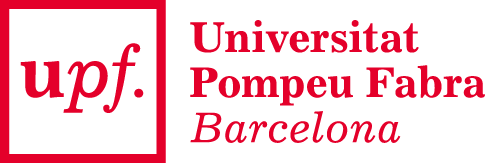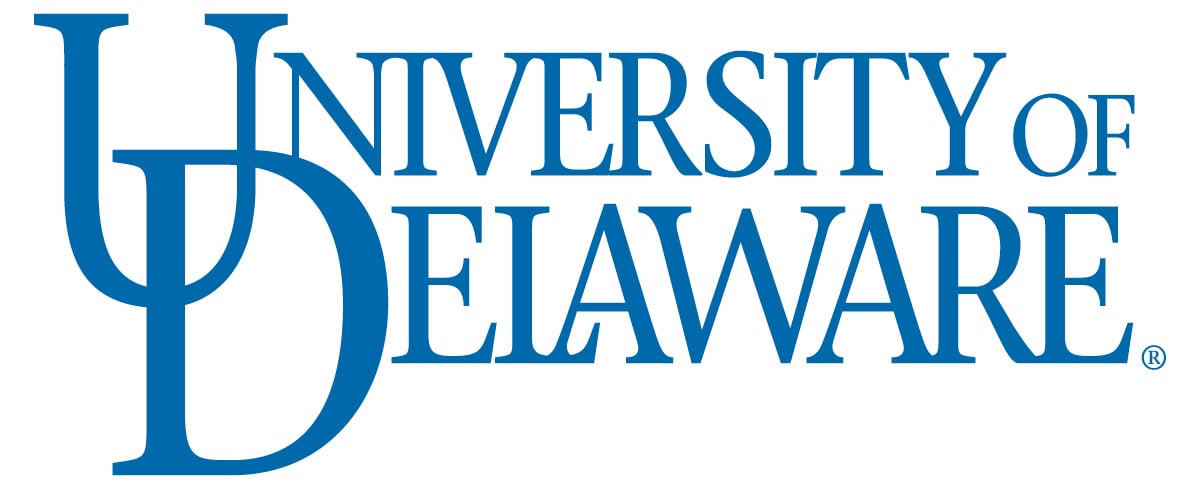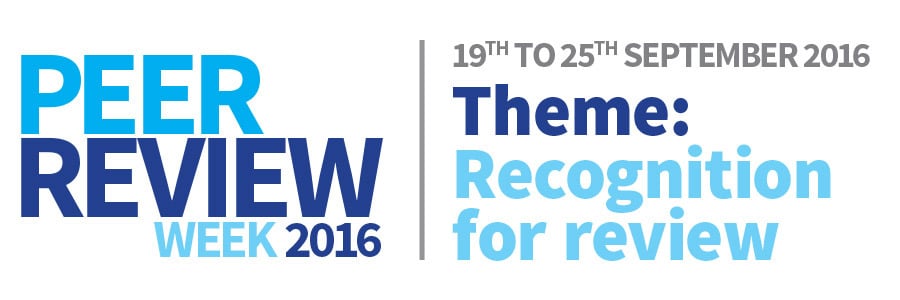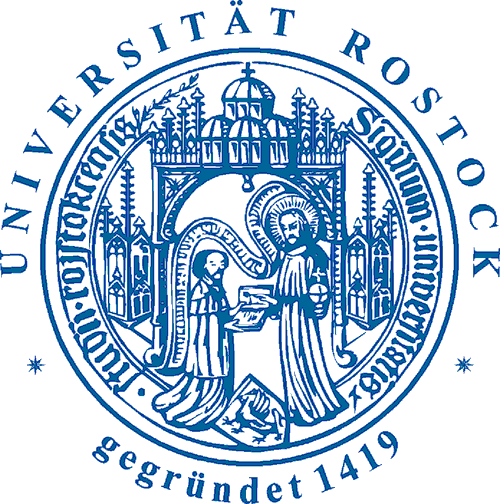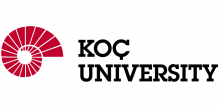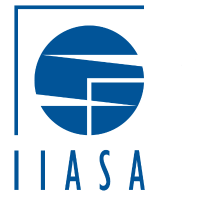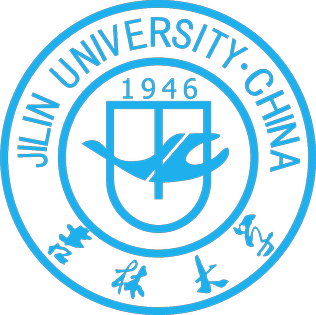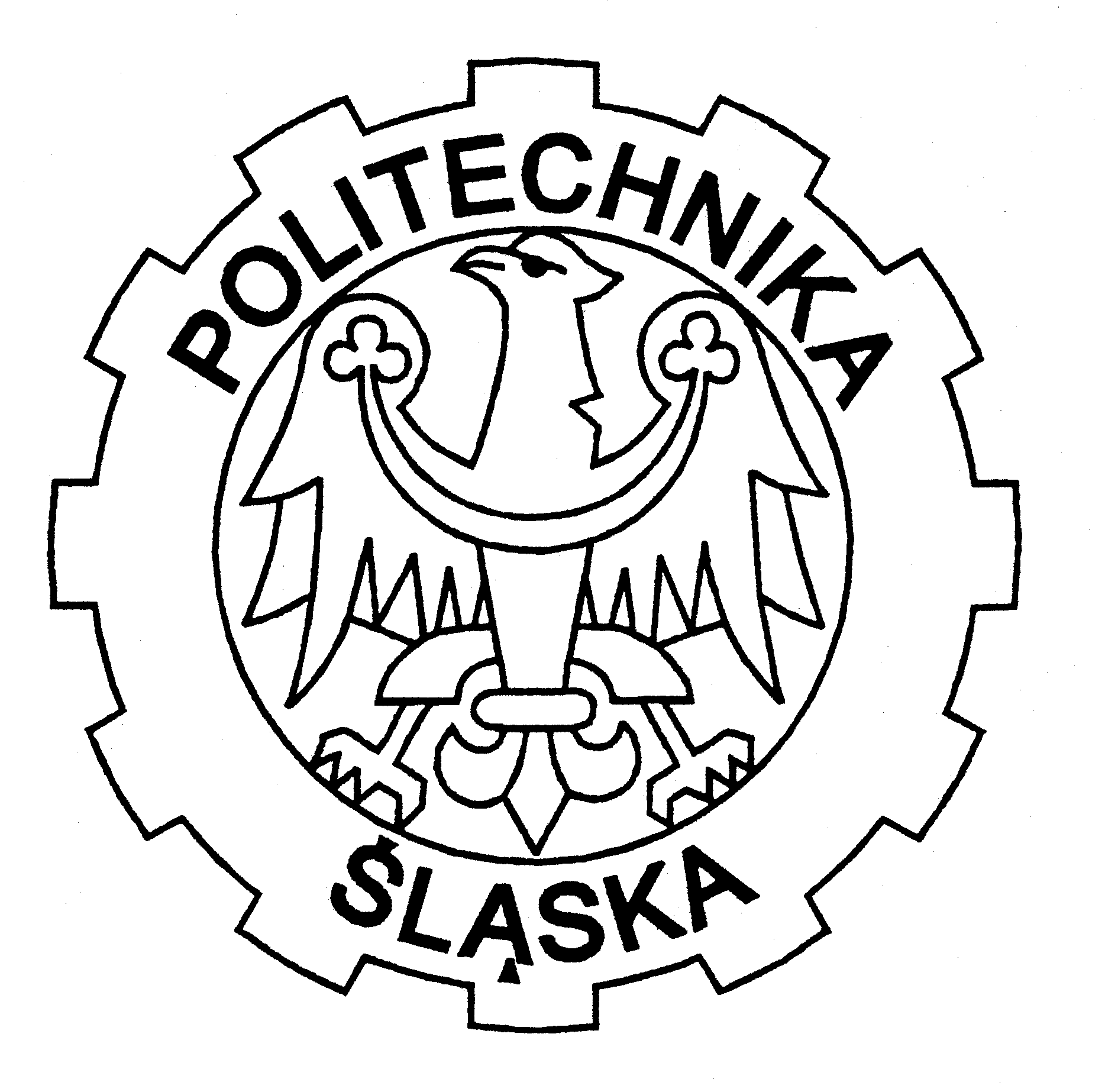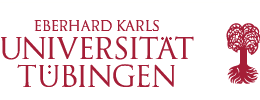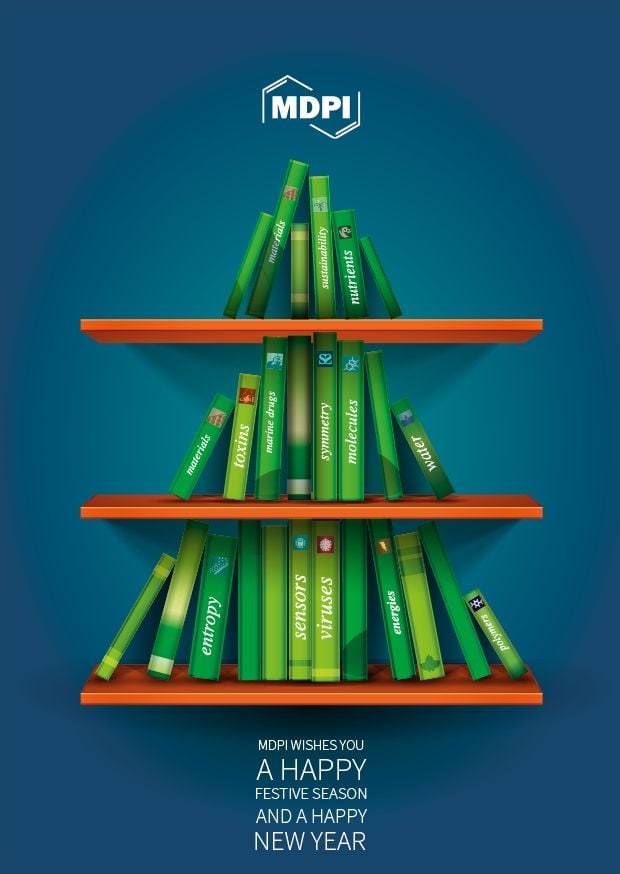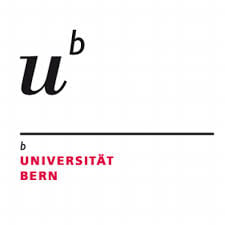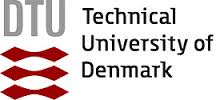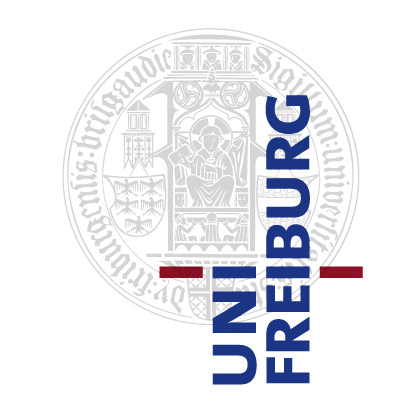
Journal Menu
► ▼ Journal Menu-
- Biomedicines Home
- Aims & Scope
- Editorial Board
- Reviewer Board
- Topical Advisory Panel
- Instructions for Authors
- Special Issues
- Topics
- Sections & Collections
- Article Processing Charge
- Indexing & Archiving
- Editor’s Choice Articles
- Most Cited & Viewed
- Journal Statistics
- Journal History
- Journal Awards
- Society Collaborations
- Conferences
- Editorial Office
Journal Browser
► ▼ Journal BrowserNeed Help?
Announcements
15 November 2024
Prof. Dr. A. Douglas Kinghorn Appointed Chair of the 2024 Tu Youyou Award Committee

We are honored to announce that Prof. Dr. A. Douglas Kinghorn will serve as the Chair of the 2024 Tu Youyou Award Committee.

Name: Prof. Dr. A. Douglas Kinghorn
Affiliation: College of Pharmacy, The Ohio State University, USA
Prof. Dr. Kinghorn is a leading expert in pharmacognosy and natural products research. He is recognized for his key contributions to discovering bioactive compounds from plants, especially in anticancer, cancer chemopreventive, and substances with a sweet taste and taste-modifying agents. His prolific contributions include over 590 peer-reviewed works and edited or co-edited 40 scientific volumes.
The 2024 Tu Youyou Award Committee, under Prof. Dr. Kinghorn's guidance, will focus on identifying innovative research in the fields of natural products chemistry and medicinal chemistry. The committee will aim to identify groundbreaking work with the potential to lead to significant advancements in these areas.
We are confident that, with Prof. Dr. Kinghorn at the helm, the 2024 Tu Youyou Award will continue to inspire excellence and innovation in the related fields.
About the Tu Youyou Award
Established in 2016, the Tu Youyou Award seeks to honor those who excel in the fields of natural products chemistry and medicinal chemistry. This award offers a total prize of CHF 100,000, which will be equally divided among the winners if there is more than one, with each recipient receiving an award medal.
The 2024 Tu Youyou Award remains open for nominations until 31 December 2024. We encourage all eligible candidates to participate in this prestigious recognition, as this award not only honors individual achievement but also encourages further scientific exchange, exploration and discovery in critical areas of medicine.
If you are interested in participating, please visit the Tu Youyou Award website for more information on the nomination requirements.
5 November 2024
MDPI INSIGHTS: The CEO's Letter #17 - OA Week, Basel Open Day, Beijing Graphene Forum

Welcome to the MDPI Insights: The CEO's Letter.
In these monthly letters, I will showcase two key aspects of our work at MDPI: our commitment to empowering researchers and our determination to facilitating open scientific exchange.
Opening Thoughts

Open Access Week: Forging the Future of Open Access through Global Reach and Collaboration
From 21 to 27 October, we celebrated International Open Access Week (OAW), highlighting the importance of making research accessible to everyone. This campaign reinforced our commitment to advancing open access (OA) and showcased how we are helping research communities worldwide adopt OA as their standard.
“OA publishing is now a cornerstone of global research”
Throughout the week, we featured MDPI’s efforts to support quality open research through blog posts on topics such as how Research Integrity Promotes OA Practices, our Preprints.org platform, and supporting societies with different OA models. These initiatives capture our commitment to making research more inclusive and accessible to all.
OA publishing is now a cornerstone of global research, with more researchers choosing OA over traditional paywalled models, and embracing new, community-driven models.
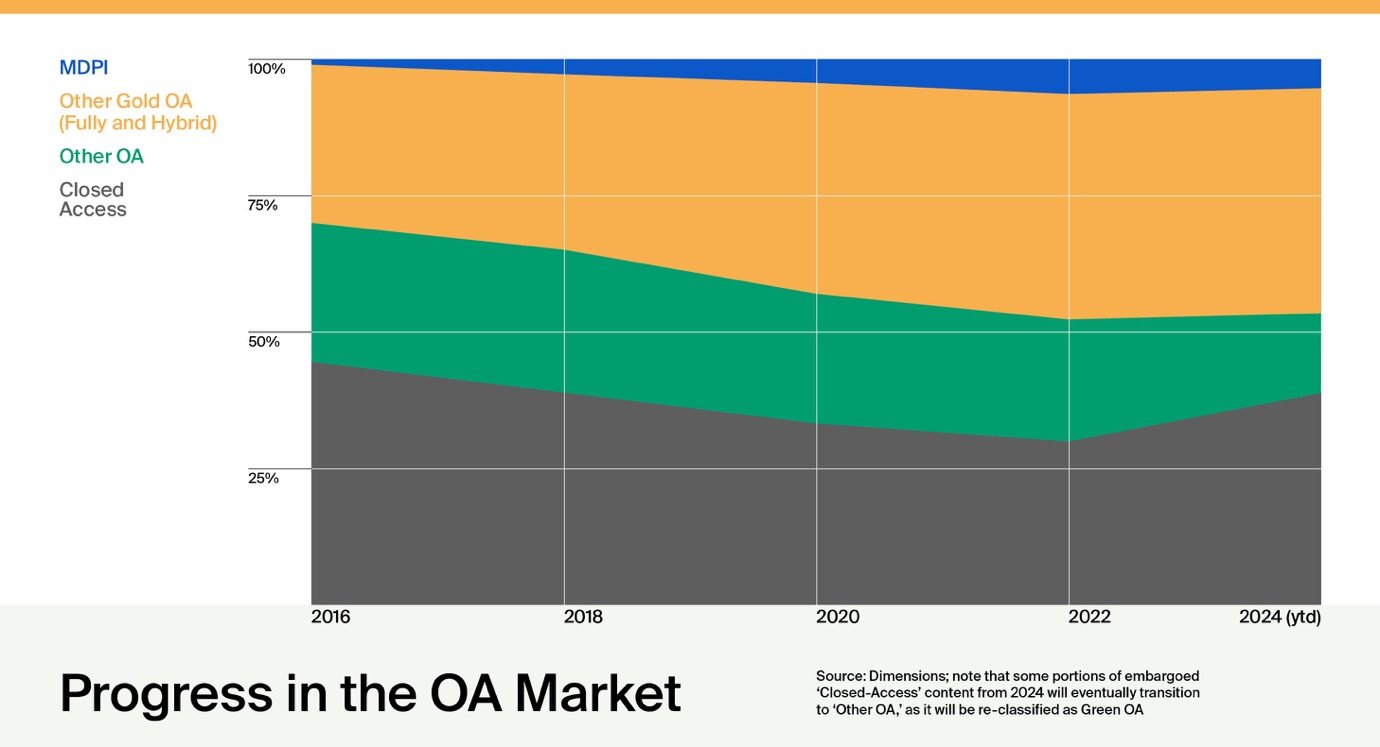
Benefits of Open Access and Open Research
- Accelerated Discoveries: OA speeds up scientific progress by allowing immediate access to findings, enabling researchers to build on each other’s work faster.
- Community-Led Innovation: Open research empowers communities to manage their own platforms, creating collaboration and shared knowledge.
- Increased Visibility: OA broadens the reach of your research, leading to greater recognition, collaboration, and impact.
- Cross-Disciplinary Connections: By removing financial and geographical barriers, OA unites diverse fields, sparking innovation across disciplines.

MDPI Singapore Celebrates Open Access Week
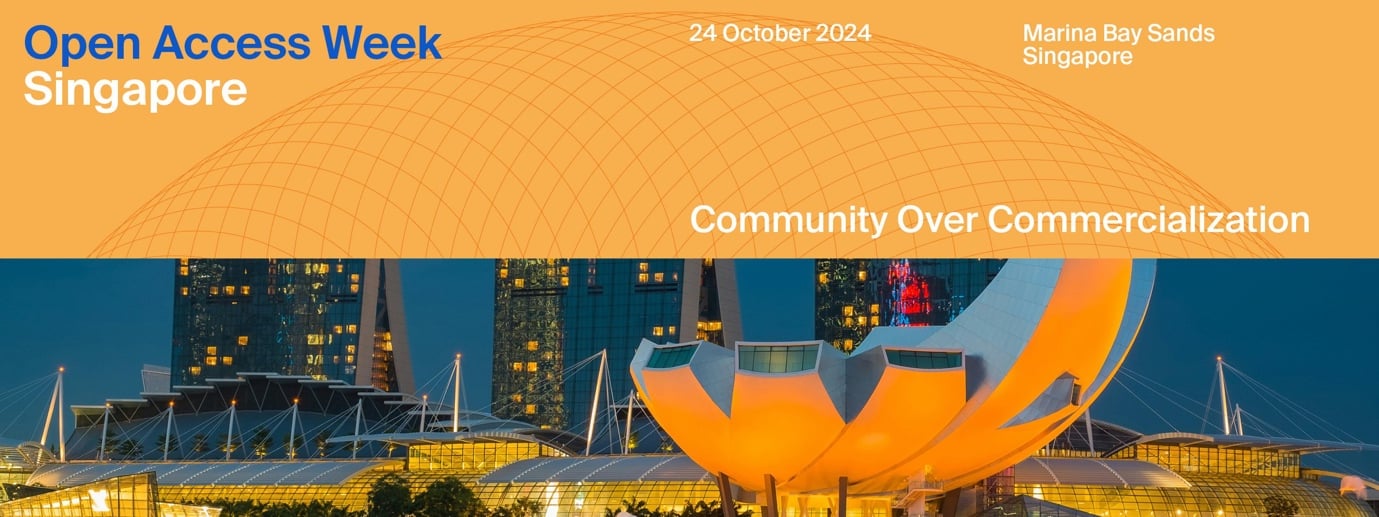
MDPI Singapore also hosted its first-ever OAW event at the Marina Bay Sands Convention Centre, bringing together academics, researchers, and students to discuss the future of open scholarship. Conversations focused on the potential of new publishing models, alternative funding strategies, and the importance of communicating research to wider audiences.
As OA evolves, MDPI remains a committed partner in advancing open science and creating a transparent, inclusive research environment. For a full recap of the week’s highlights and resources, visit our campaign page.

Impactful Research

MDPI Connection to Nobel-Winning Protein Research
David Baker, an American biochemist, and Demis Hassabis and John M. Jumper, two scientists from Google DeepMind, have been awarded the 2024 Nobel Prize in Chemistry for their groundbreaking advancements in better understanding the structure of proteins, the molecular engines of life’s processes.
One half of the prize was awarded to Professor David Baker from the University of Washington for his development of revolutionary protein design software enabling the creation of novel proteins for vaccines, nanomaterials, and sensors. Prof. Baker co-authored a 2016 paper in MDPI’s Toxins journal on protein-based therapeutics.
Meanwhile, DeepMind’s Demis Hassabis and John M. Jumper received recognition for AlphaFold, the AI model that predicts protein structures from amino acid sequences, fulfilling a long-held scientific dream.
“We congratulate this year’s Nobel laureates for their groundbreaking contributions to the study of life”
Nobel Prize Laureates Entrust MDPI with Their Research
As at October 2024, 45 Nobel laureates had contributed to more than 115 articles across
35 MDPI journals. The privilege of hosting the research of such contributors, who significantly influence the open access movement, resonates deeply with our editorial teams.
We are proud to list the names of Pierre Agostini, Hiroshi Amano, Werner Arber, Aaron Ciechanover, Robert H. Grubbs, Oliver Hart, Gerard ‘t Hooft, Michael Houghton, Harald zur Hausen, Katalin Karikó, Jean-Marie Lehn, Gérard Mourou, Ferid Murad, Shuji Nakamura, William Nordhaus, Kostya S. Novoselov, Giorgio Parisi, Charles M. Rice, Alvin E. Roth, Donna Strickland, K. Barry Sharpless, George F. Smoot, Anne L’Huillier, Drew Weissman, Kurt Wüthrich, Ada Yonath, Tomas Lindahl, Thomas C. Südhof, Stanley B. Prusiner, Roger Kornberg, Robert F. Engle, Richard J. Roberts, Ōmura Satoshi, Kenneth J. Arrow, John B. Goodenough, Jennifer Doudna, Hamilton Othanel Smith, Eric R. Kandel, Carlo Rubbia, Bernard Feringa, Barry J. Marshall, Anthony J. Leggett, Andrew Victor Schally, and David Baker.
Notable MRNA Published in Cells
On 7 October 2024, the 2024 Nobel Prize in Physiology or Medicine was jointly awarded to Victor Ambros and Gary Ruvkun for the discovery of microRNA and its role in post-transcriptional gene regulation.
MicroRNAs are proving to be fundamentally important for how organisms develop and function. Some interesting papers about microRNA research are published in the MDPI journal Cells. I invite you browse through the notable papers related to microRNA research in Cells.
Inside MDPI
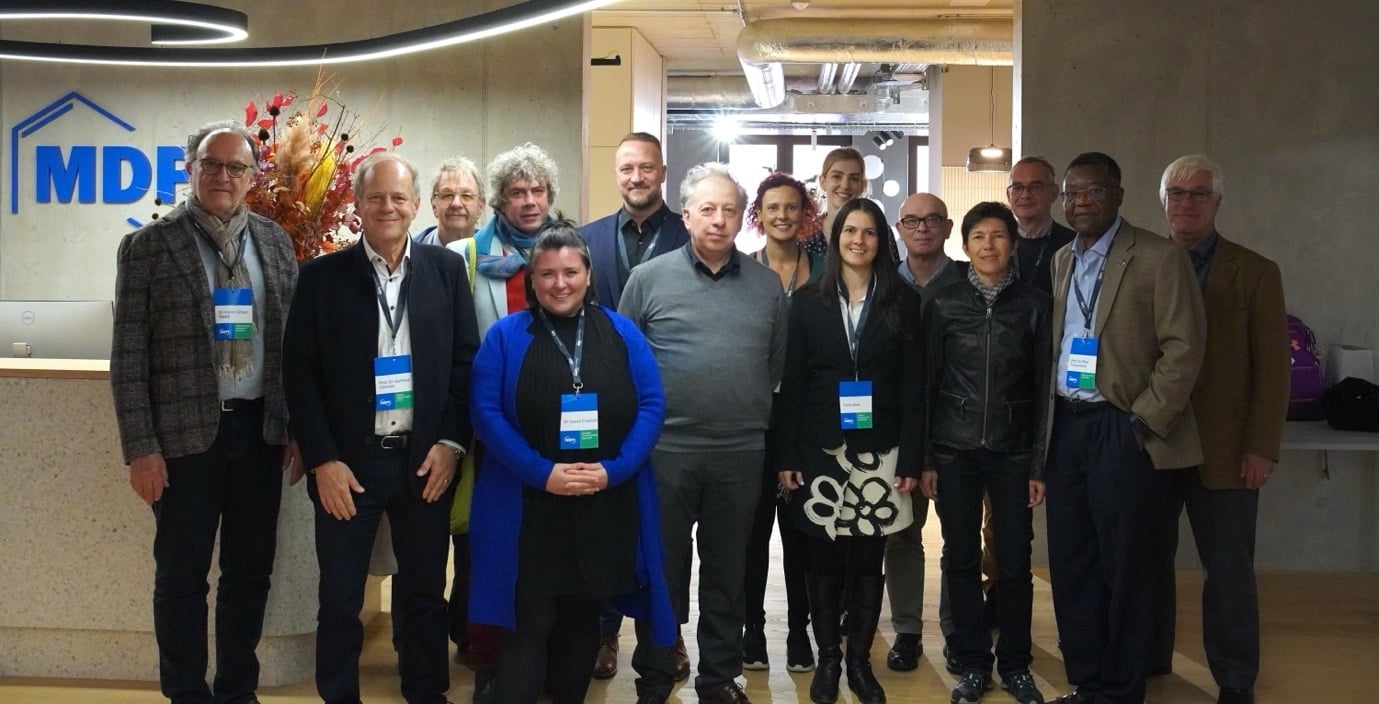
Basel Open Day
On 21 October, we held the Basel Open Day at our headquarters, welcoming a group of journal Editors-in-Chief (EiC) and Editorial Board Members (EBMs) for a full-day workshop. The event featured presentations and discussions on MDPI’s latest editorial updates, data integrity policies, society collaborations, and local market insights.
The following MDPI journals were represented during the visit: Physics, Journal of Personalized Medicine (JPM), Sci, Remote Sensing, Animals, Cells, Buildings, Histories, Sensors, and International Journal of Environmental Research and Public Health (IJERPH).
This was a great opportunity to showcase our new office space while gathering feedback from leading journal stakeholders. To get everyone on the same page, we took 60 minutes for round-table introductions, which helped set a collaborative tone and ground us in MDPI’s mission of disseminating open science.
“This was a great opportunity to gather feedback from leading journal stakeholders”
The general feedback from the day highlighted positive developments around our editorial and ethics policies, as well as areas for improvement, including flexibility regarding reviewer deadlines. There was a genuine appreciation and push for our ongoing efforts to share more about MDPI, including company updates and promoting high-quality research through our blog, announcements, and social media channels, which we have been growing and expanding.
Our Basel Open Day was a positive experience, bringing together key journal stakeholders and gathering insights to guide MDPI’s continued engagement with the academic community. We look forward to hosting future events of this kind and welcoming more scholars to our headquarters in Basel, Switzerland.
Coming Together for Science

ncRNA 2024 Conference in Basel
I am pleased to share that we held Non-coding RNA World 2024: Exploring Mechanisms, Designing Medicines (ICM 2024) in Basel, Switzerland this past 7–9 October.
The three-day event attracted just over 100 attendees, including two Chairs, 10 invited speakers and two keynotes from Prof. Mauro Giacca and Prof. Ling-Ling Chen. Of the presentations on site, there were 35 posters and 44 oral presentations.
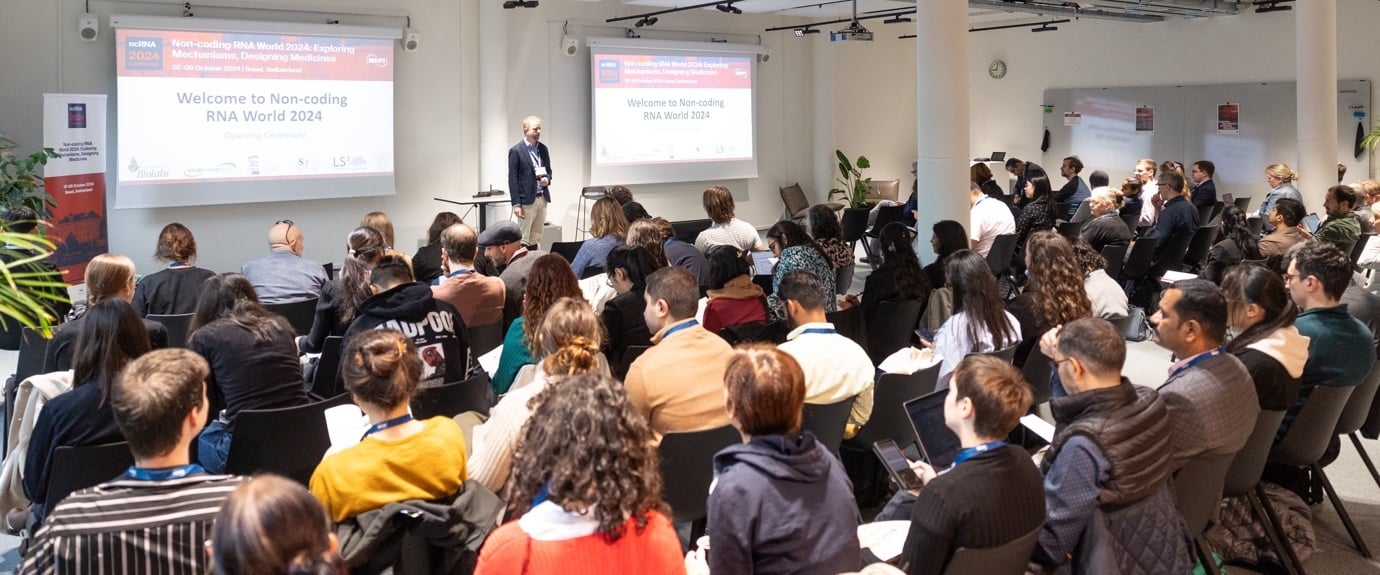
The overall feedback was positive, with people enjoying the intimate event and the unique activities offered, including a guided tour around Basel’s Old Town (a must-see for anyone visiting the city) and a memorable conference dinner.

It was cool to see the winners of the 2024 Nobel Prize in Physiology or Medicine announced during the conference days. This was exciting for attendees, as the winners discovered a new class of RNA molecules (miRNAs). As one invited speaker put it, “It's exciting to be among fellows when something that important for the field is announced.”
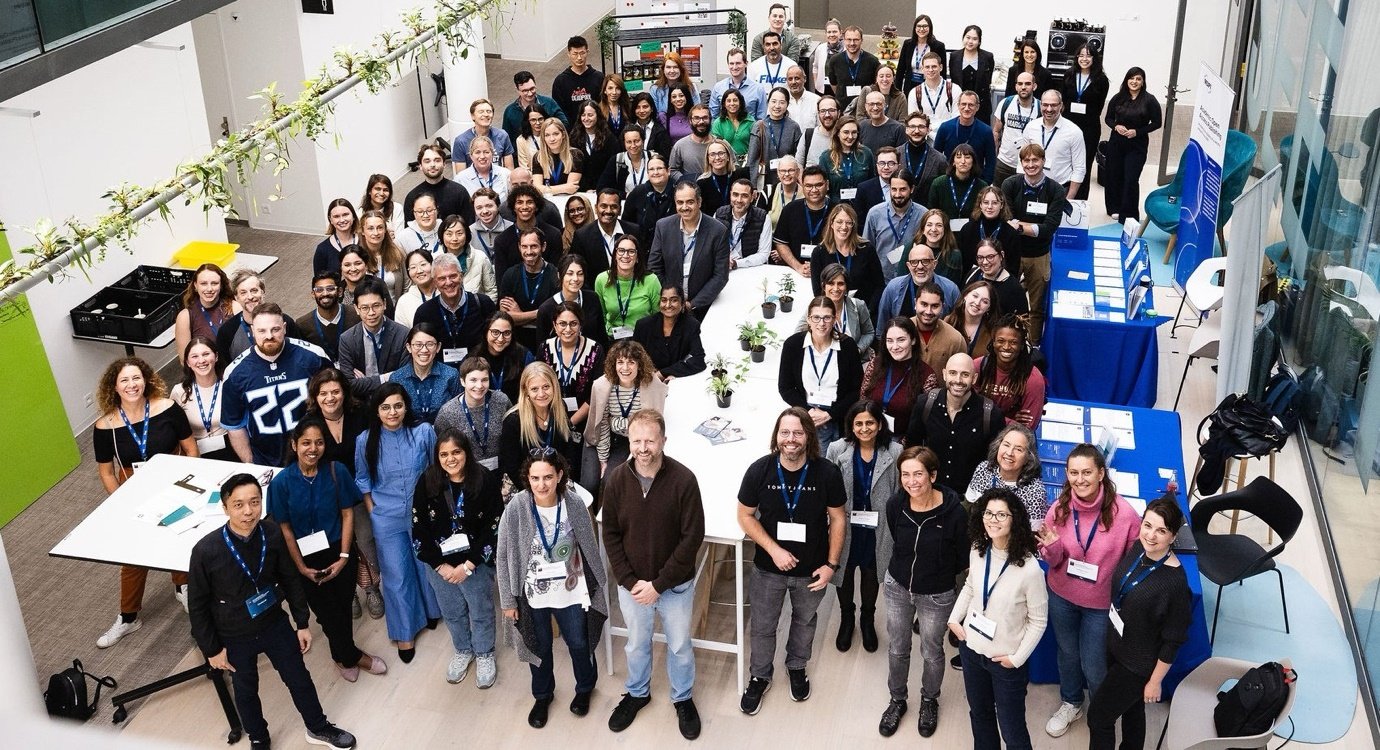
“It's exciting to be among fellows when something that important for the field is announced”
Every attendee receives a conference survey, and I’m always pleased to see a high percentage of ‘Very Satisfied’ responses when asked about ‘treatment from conference personnel’. Kudos to our conference team for meeting our attendees’ needs. These events are a great opportunity for us to reach new audiences, as 92% of the respondents had never been to an MDPI conference, so I am thrilled to see us connecting with a new demographic of your researchers in the RNA field.
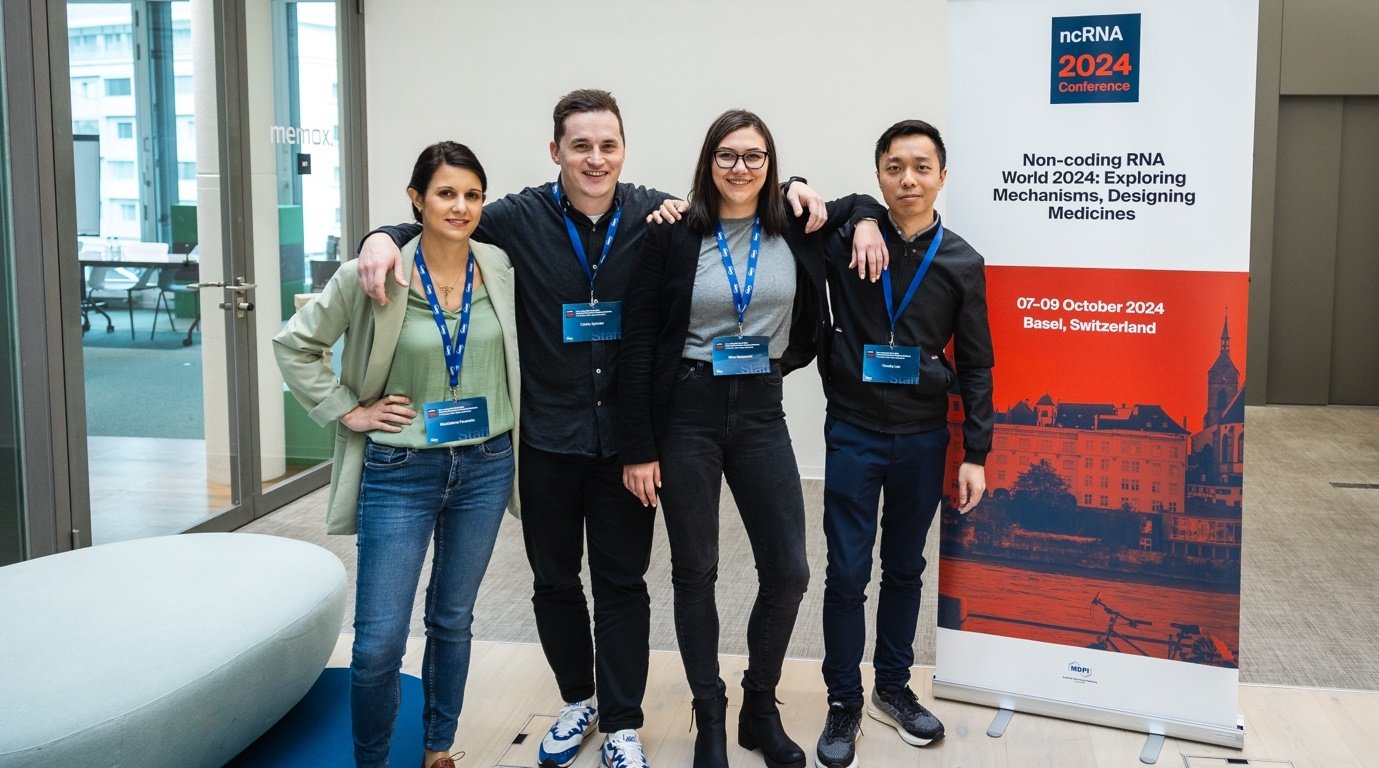
A special thank-you to our partnering societies The Epigenetics Society, The French Society of Genetics, LS2 / USGEB (Union of Swiss Societies for Experimental Biology), and The RNA Biology Group, as well as to our sponsors New England Biolabs and Arraystar for their support of the ncRNA 2024 conference. I am also pleased to report that we presented two awards, including the Best Presentation Award and two Best Poster Award, recognizing the contributions of our participants.
Upcoming In-Person Event
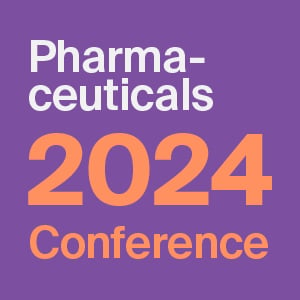
27–29 November 2024
Pharmaceuticals 2024 – Recent Advances in Pharmaceutical Sciences Towards a Healthy Life
Location: Barcelona, Spain
The discovery of new molecules, their properties, and actions to enhance human health and quality of life.
Find more upcoming MDPI events here.
Closing Thoughts

Beijing Graphene Forum 2024
I am pleased to share that we had a successful time at the Beijing Graphene Forum 2024, which drew around 1,000 attendees, including Konstantin Novoselov (2015 Nobel Prize in Physics) and other high-profile scholars in materials science and chemistry. It was a great opportunity to present MDPI on the big stage, with university presidents from institutions such as Peking University also in attendance.
I had the honour of awarding Prof. Zhongfan Liu, Chairman of the Chemical Science Committee, with a medal and presenting certificates to the members of the Chemical Science Committee; this is an important initiative to help expand MDPI’s journals and influence in China. These are highly respected scholars, and we enjoyed connecting with them over lunch as well.
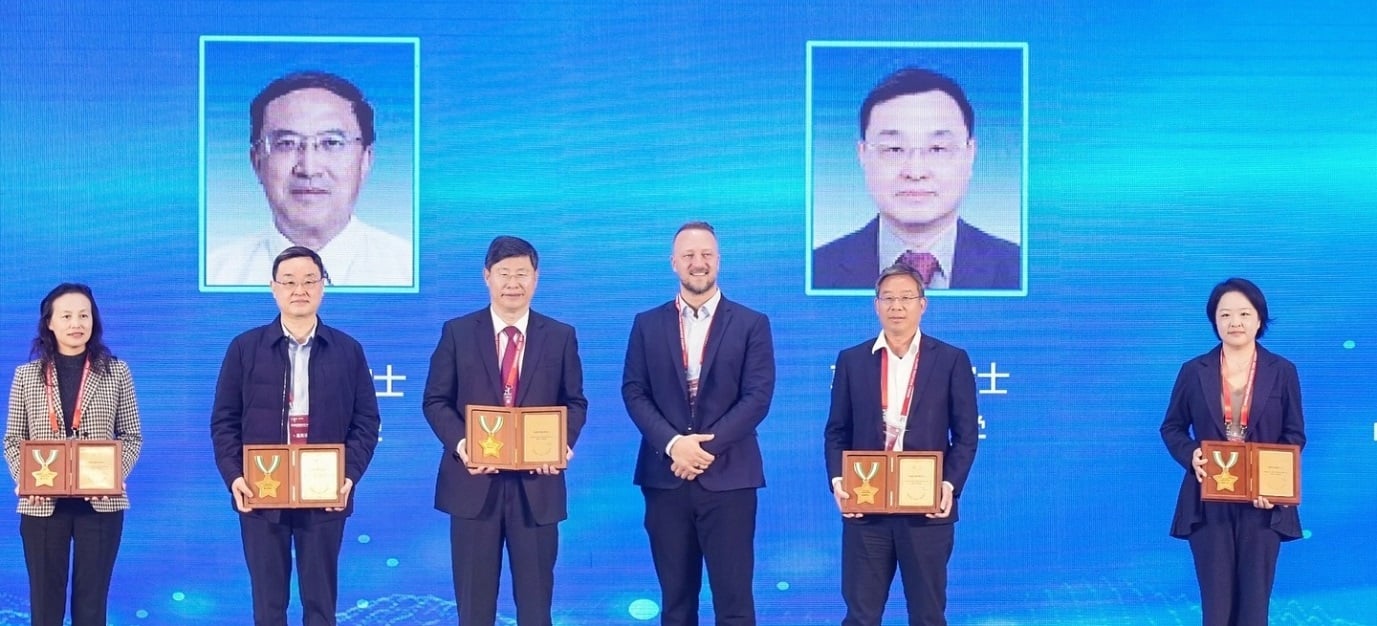
“This is an important initiative to help expand MDPI’s journals and influence in China”
I also had the chance to speak about MDPI and open access, giving a five-minute speech during the opening ceremony and a 20-minute presentation at the close. MDPI hosted a sub-forum where both academic scholars and MDPI members shared insights, and we engaged with attendees at our MDPI booth.
This was a great opportunity to spotlight MDPI as the main publishing partner for the event, and I was proud to represent us on stage. We also met with scholars to discuss topics such as their publishing needs and institutional policies, open access, impact journals, and IOAP.
Chief Executive Officer
MDPI AG
16 October 2024
MDPI's Newly Launched Journals in September 2024
Five new journals covering a diverse range of subjects launched their inaugural issue in September 2024. Like other journals in MDPI’s portfolio, these journals are dedicated to sharing the latest research through open access, reflecting our commitment to making knowledge accessible to all.
We extend our sincere gratitude to the Editorial Board Members for their dedication to the launch and development of our new journals. Each journal will ensure its high-quality output via excellent editorial and rigorous peer-review processes so that the published articles achieve significant impact and broad visibility.
We invite you to explore and learn more about these new journals below.
| Journal | Founding Editor-in-Chief | Journal Topics (Selected) |
| Prof. Dr. Nejat Düzgüneş, University of the Pacific, USA | Editorial | view inaugural issue | biological therapy and stem-cell therapy; drug therapy; chemotherapy; radiation and other nonsurgical therapeutic strategies | view journal scope | submit an article | |
| Prof. Dr. Magda Tsolaki, Greek Federation of Alzheimer’s Disease, Greece; Aristotle University of Thessaloniki, Greece | Editorial | view inaugural issue | surgical/procedural complications; complications; perioperative adverse events; postoperative adverse events | view journal scope | submit an article | |
| Prof. Dr. Steven R. Fassnacht, Colorado State University, USA; Cooperative Institute for Research in the Atmosphere, USA | Editorial | view inaugural issue | ice as a mineral; atmospheric ice; sea ice; freshwater ice; ice sheets; ice caps and ice shelves | view journal scope | submit an article | |
| Dr. Francisco Epelde, Hospital Universitari Parc Tauli, Spain; University Autonoma of Barcelona, Spain | Editorial | view inaugural issue | hospital management; hospital facilities; hospital services; hospital risk management; health law | view journal scope | submit an article | |
| Prof. Dr. Nicola Ferri, University of Padova, Italy | Editorial | view inaugural issue | lipids in cells and whole organisms; lipid structure and function; lipid products and processes; dietary lipids and nutrition | view journal scope | submit an article |
We wish to thank everyone who has supported the development of open access publishing. You are welcome to send an application here or contact the New Journal Committee ([email protected]) if you would like to create more new journals.
15 October 2024
Meet Us at the Third ASBMB-BSC Symposium on the Interplay Between Epigenetic Regulation and Genome Integrity, 21–25 October 2024, Wuhan, China

The third ASBMB-BSC Symposium on the Interplay between Epigenetic Regulation and Genome Integrity will be held from 21 to 25 October 2024, in Wuhan, China. The conference is co-organized by the Biophysics Society of China (BSC) and the American Society for Biochemistry and Molecular Biology (ASBMB).
Topics include the following:
- Epigenetic regulation of genome replication;
- Dynamic epigenetic alterations maintaining genome stability;
- Chromatin-based epigenetic inheritance;
- The role of epigenetic alterations in cancer and aging.
The following MDPI journals will be represented at the conference:
- CIMB;
- Genes;
- IJMS;
- Biomedicines;
- Epigenomes;
- JDB.
If you are planning to attend this conference, please feel free to start an online conversation with us. Our delegates look forward to meeting you in person at our booth #9 and answering any questions that you may have. For more information about the conference, please click the following link: https://www.bsc.org.cn/bsc-asbmb-epigenetics/.
4 October 2024
MDPI INSIGHTS: The CEO's Letter #16 - UNGA79 Science Summit, OASPA, Peer Review Week

Welcome to the MDPI Insights: The CEO's Letter.
In these monthly letters, I will showcase two key aspects of our work at MDPI: our commitment to empowering researchers and our determination to facilitating open scientific exchange.
Opening Thoughts

MDPI Joins the Science Summit at UNGA79 (23–27 September 2024, New York)
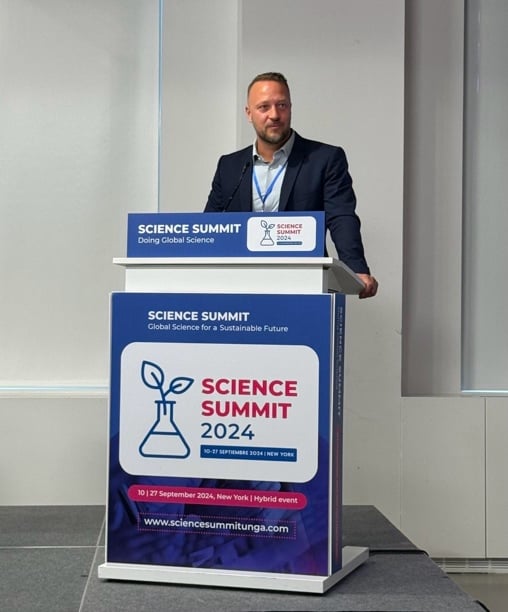
On Friday 27 September, I had the privilege of giving the opening talk at the “Youth at the Science Summit” panel during the Science Summit conference, held in New York at the 79th session of the United Nations General Assembly (UNGA). Together, we discussed the future of science, publishing, innovation, and sustainable development.
It was a great opportunity to learn from our young leaders, whose voices must be included in the conversation as science shapes the future of artificial intelligence, climate mitigation, healthcare, technology, and more. This was also a powerful reminder of how essential global collaboration is in solving the major challenges we face. I left inspired by the dedication of these young researchers to making the world a better place!
Today’s youth are not just the leaders of tomorrow – they are already leading the change today.
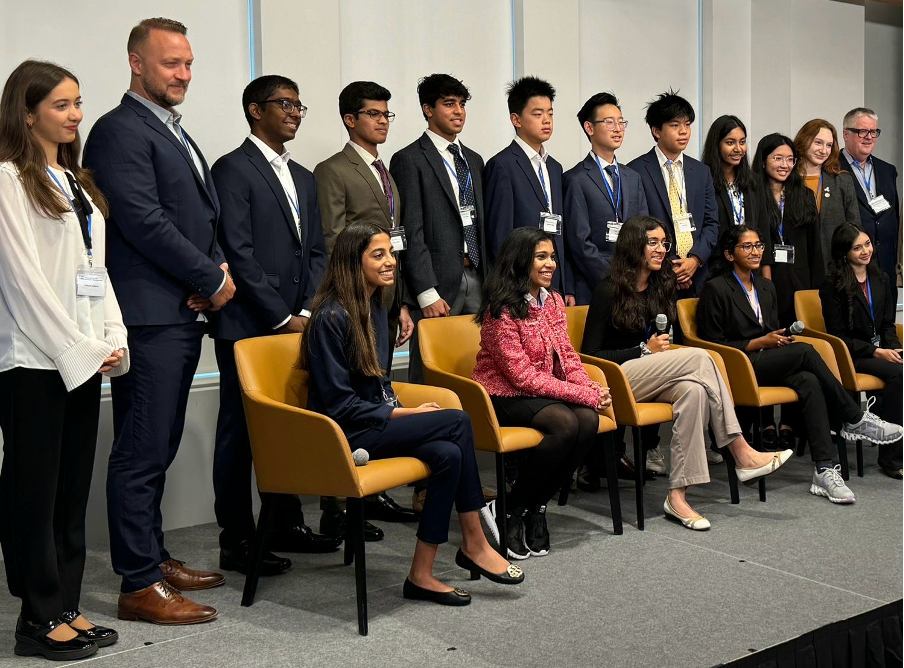
Stefan Tochev (second from left) at the UNGA Science Summit 2024: “A great opportunity to learn from our young leaders.”
MDPI Supports the Future Generation of Scientists
This aligns with MDPI’s mission to support the next generation of scientists and early-career researchers by recognizing their achievements through our various MDPI awards, including the Young Investigator Awards, Best PhD Thesis Awards, Travel Awards, and more.
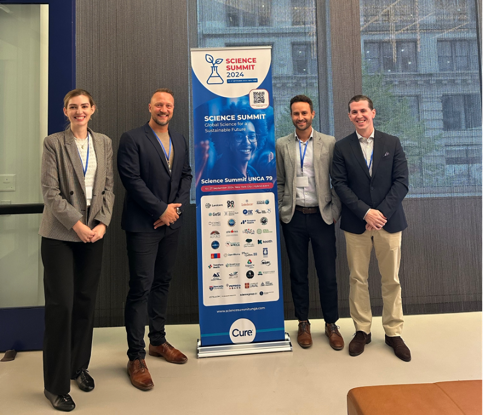
Our presence at this global event showed our commitment to advancing Open Science as a key driver for sustainable development. As a leading Open Access (OA) publisher, MDPI’s role at the summit was to emphasize the critical importance of democratizing scientific knowledge, making it accessible to all, and promoting global collaboration.
Through OA publishing, we aim to address pressing global challenges such as climate change, public health, and inequality, in line with the United Nations Sustainable Development Goals (SDGs).
“We aim to address pressing global challenges”
MDPI and the SDGs
In 2020, the SDG Publishers Compact was launched to accelerate implementation of the SDGs by promoting content that informs, develops, and inspires action. MDPI joined this initiative in 2021 and subsequently launched the MDPI SDG Hub in 2022, offering free access to recent research within the scope of each of the 17 SDGs.
During the summit, we highlighted the connection between Open Science and the SDG Publishers Compact, supporting the core objective to “Leave No One Behind” (LNOB). The transformative promise of the SDGs relies heavily on the Open Access model, which serves as a fundamental enabler of Open Science. We advocate for the wider adoption of Open Science practices in order to achieve the SDGs by 2030.
Impactful Research
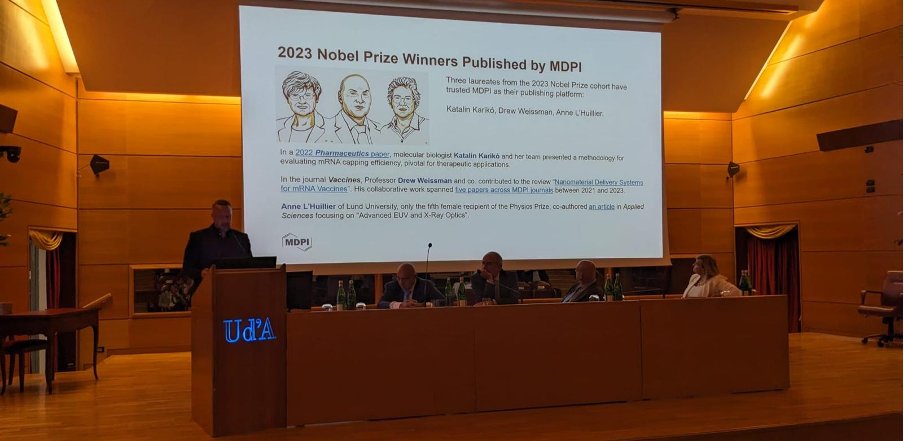
Presenting at the 1st International Conference of Environmental Medicine
In September, MDPI and our journals IJERPH and Diseases sponsored and participated in the 1st International Conference of Environmental Medicine: Environmental Threats to Human Health: From Genetics to Epigenetics, held in Chieti, Italy.
The conference was organized in collaboration with various societies, including the Italian Society of Environmental Medicine (SIMA), one of more than 160 societies partnering MDPI journals.
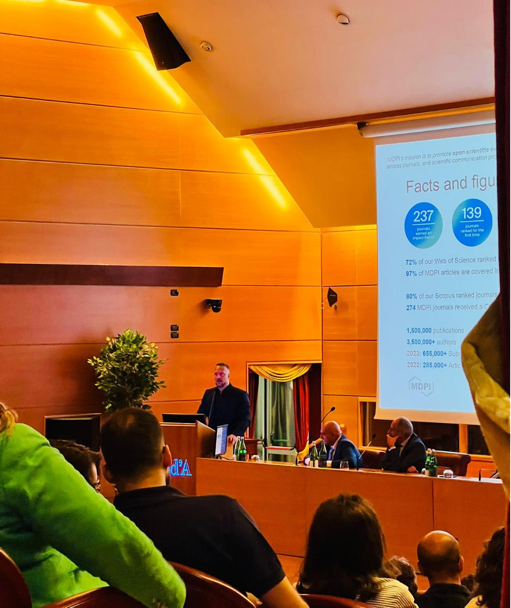
The conference brought together influential figures from the Italian scholarly community, such as Antonio Felice Uricchio (President of the National Agency for University Research Assessment [ANVUR]), Alessandro Miani (President of SIMA), and Liborio Stuppia (Director of ‘Gabriele d’Annunzio’ University of Chieti-Pescara), among others.
MDPI was the sole publishing sponsor of the conference, at which I had the opportunity to present on behalf of the company. I provided an overview of MDPI, covering key facts and figures, the peer-review process, our strong collaboration with the Italian market, and insights into Nobel Prize winners who have published with MDPI, ahead of Sir Richard Roberts’ Nobel lecture.
“As at September 2024, 44 Nobel laureates have contributed to over 115 articles across 35 MDPI journals”

The keynote speaker at the event was Sir Richard Roberts, Nobel Laureate and 1993 Nobel Prize winner in Medicine, recognized for his discovery of split genes.
Nobel Laureates’ Contributions to MDPI
As at September 2024, 44 Nobel laureates have contributed to over 115 articles across 35 MDPI journals. I’ll share more details on this in the October newsletter.
Hosting such prominent figures in their respective fields, who play a significant role in advancing the OA movement, of which we are leaders in, resonates deeply with our editorial teams.
Sponsoring and supporting academic conferences is something we do on a large scale, and it continues to grow. Attending and speaking about MDPI shows our commitment by taking the time to connect with the scholarly community in person.
MDPI’s Presence in Italy
Italy ranks third globally in total MDPI publications, with nearly 130,000 contributions. We collaborate with about 12,000 Editorial Board Members in Italy, over 6,100 of whom have an H-index of more than 25.
We have 83 Editors-in-Chief and 209 Section Editors-in-Chief from Italy. We also support 20 Italian universities through our Institutional Open Access Program (IOAP) agreements with major institutions such as Sapienza University of Rome, the University of Milan, and the University of Pisa, among others.
Inside MDPI

Celebrating Peer Review Week, 23–27 September 2024
As we conclude another productive month at MDPI, I am pleased to highlight our participation in this year’s Peer Review Week (PRW), which took place from 23–27 September 2024. This global, community-driven celebration underscores the vital importance of peer review in maintaining the integrity and reliability of academic work. PRW provide a platform for institutions, publishers, and scholars to come together and reflect on the processes that uphold the quality of scholarly communication.
“We remain committed to enhancing the peer review process”
The theme for PRW 2024 was ‘Innovation and Technology in Peer Review.’ At MDPI, we were proud to contribute through various online and in-person events, including webinars from Europe, Asia-Pacific, and a roundtable discussion on innovation and technology in peer review. These events offer an opportunity to explore new tools and technologies that are shaping the future of peer review, particularly the integration of AI. As a company, we remain committed to enhancing the peer review process with innovative solutions while preserving the essential human expertise that makes it effective.
Peer Review Innovation and Technology at MDPI
Our efforts to improve peer review extend beyond the activities of this week. We also released a blog article discussing New Tools for Advancing Research Integrity and Peer Review, where we highlight two tools that MDPI has developed to support research integrity: Eureka – Reviewer Recommender and Online Proofreader. We are continually refining SuSy, our in-house submission system, to provide a seamless experience for authors and reviewers alike.
Listening to MDPI’s Authors and Reviewers
We highly value the time of our reviewers, and so do the authors who contribute to our journals. Our editorial process is bolstered by a network of dedicated reviewers, a team of over 6,000 diligent, well-trained staff members, and an in-house article submission platform designed to ensure efficient processes.
We make it a point to continually improve the experiences of both our authors and our reviewers throughout the entire editorial process, from submission to publication. This is why we regularly ask for feedback by conducting surveys. Here is what some of our respondents recently had to say about working with MDPI:
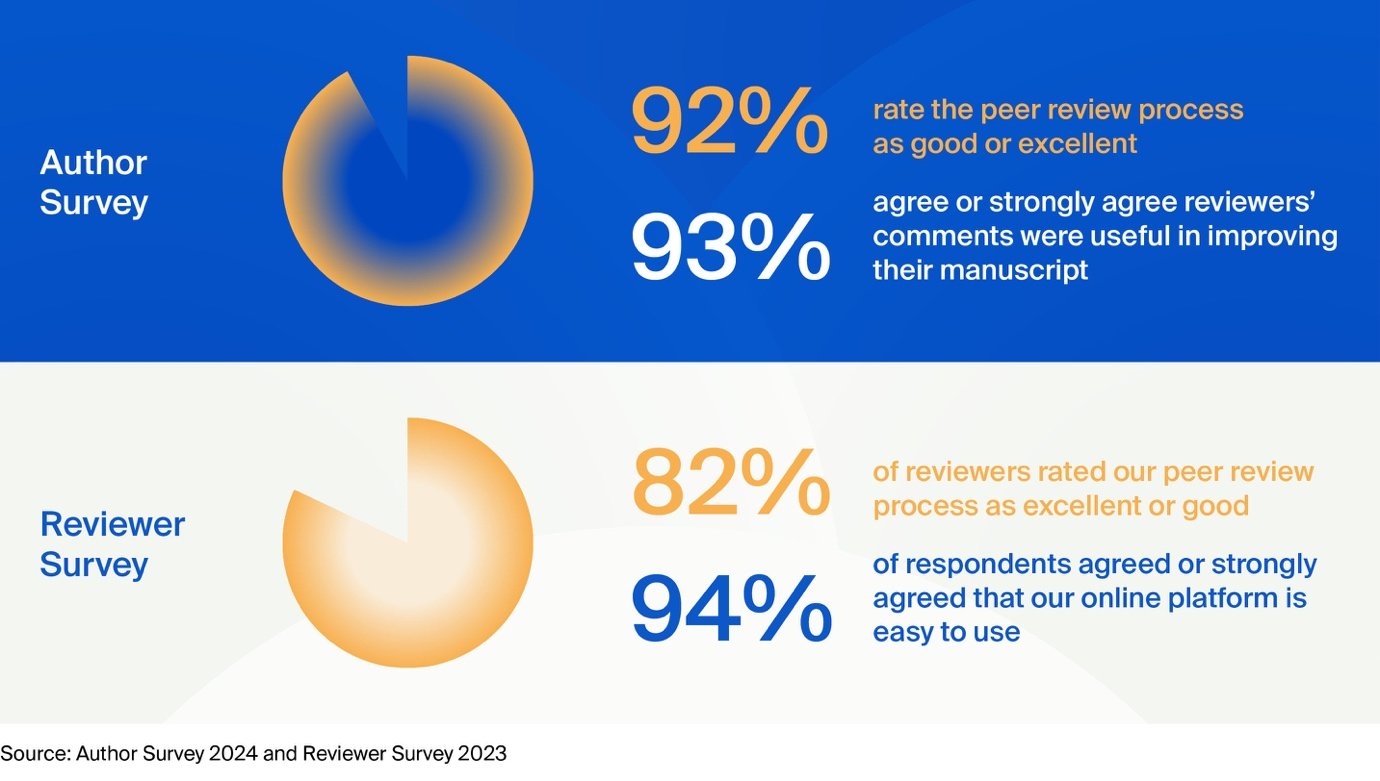
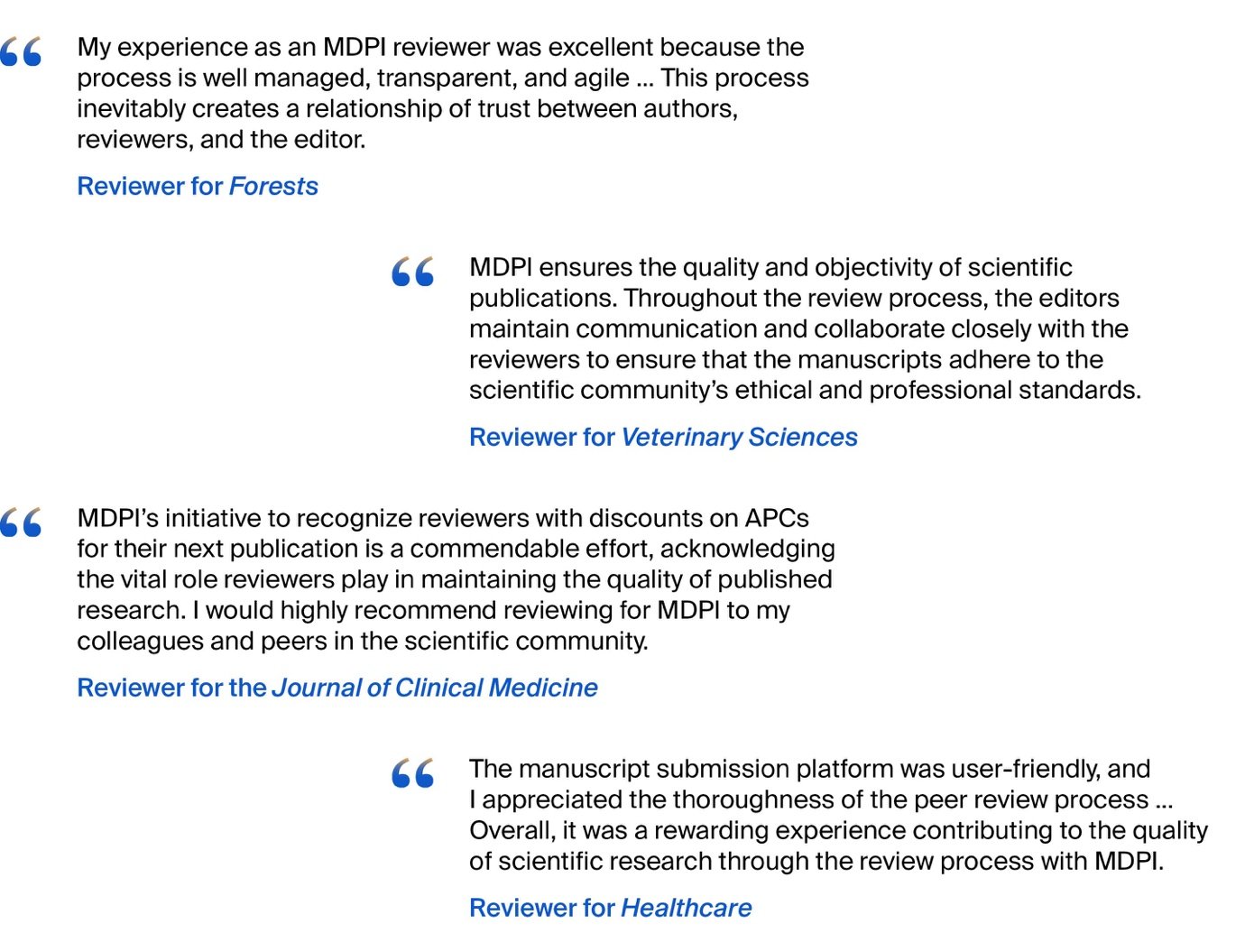
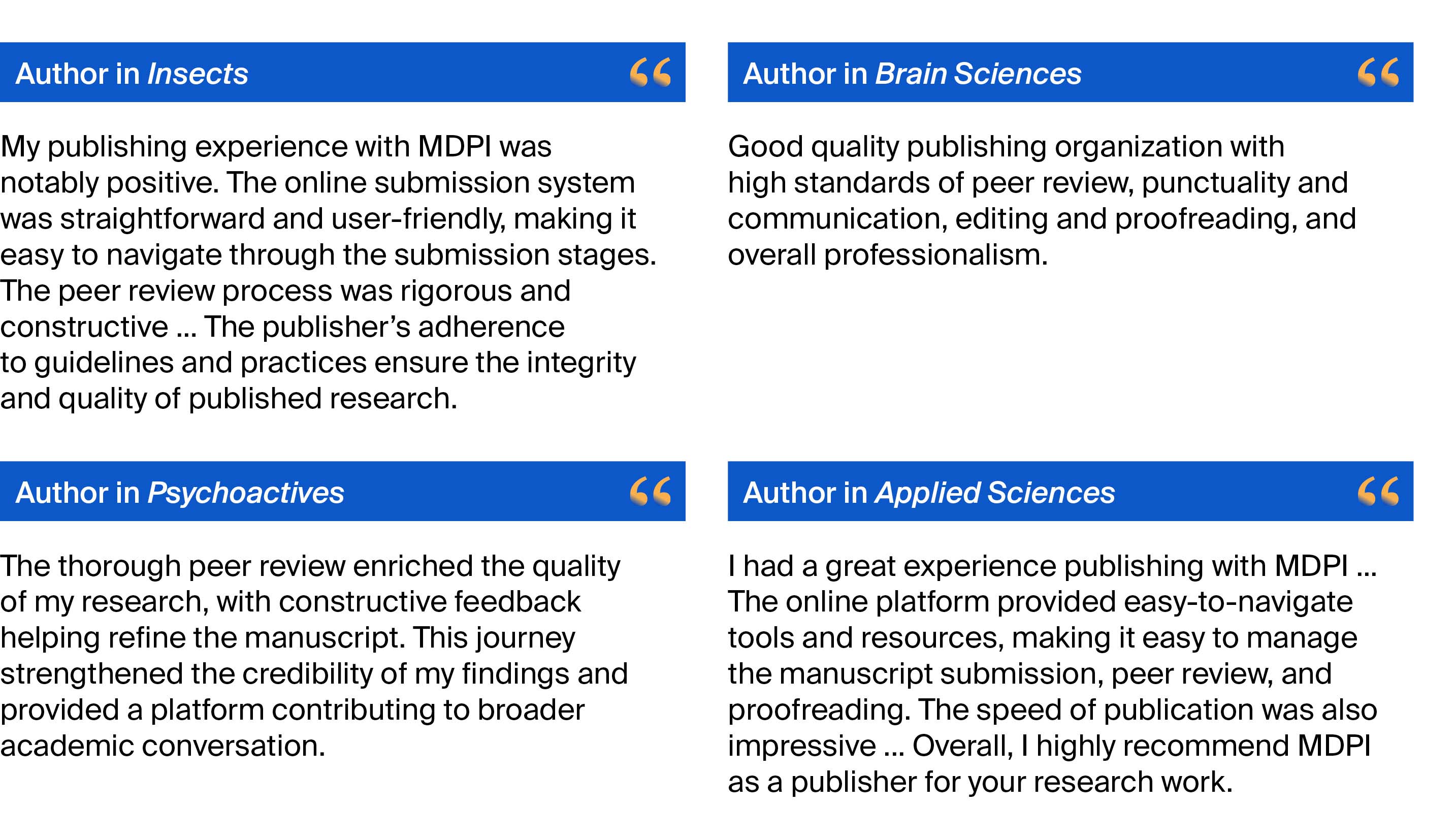
Coming Together for Science

ICM 2024 – Advances in Material Innovation
I am pleased to share that we held The 5th International Conference on Materials: Advances in Material Innovation (ICM 2024) in Basel, Switzerland this past 25–27 September.
This intimate event brought together leading scientists, researchers, and industry experts to exchange insights on recent advancements in materials characterization, processing, and manufacturing. Key focus areas included nanotechnology in material sciences and engineering, optical, electrical, and magnetic materials, soft, biological, and biomaterials, fibres, membranes, thin films, sensing materials, as well as materials and devices for energy and solar fuels. In addition, discussions featured the integration of AI and machine learning in materials research.
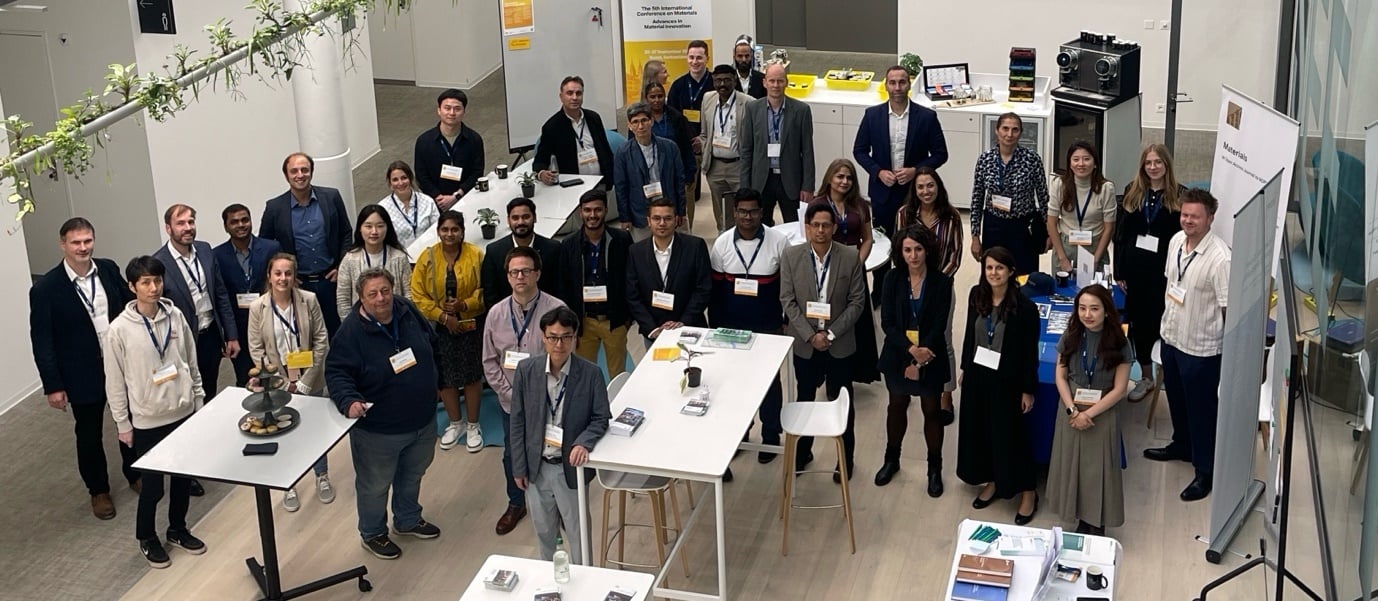
We received 90 abstract submissions. Over the course of the three-day event, 18 posters were displayed, and 34 talks were delivered, including three plenary speeches, seven invited talks, and 24 selected oral presentations.
A special thank-you to our partnering societies The Polish Membrane Society and The North American Thermal Analysis Society, as well as our sponsor, Nanomegas, for their support of the ICM conference. I am also pleased to share that we presented three awards, including the Best Presentation Award and two Best Poster Awards, recognizing the outstanding contributions of our participants.
Upcoming In-Person Event
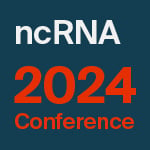
7–9 October 2024
Non-coding RNA World 2024: Exploring Mechanisms, Designing Medicines
Location: Basel, Switzerland
ncRNA 2024 will explore the latest advances in the field, covering topics from basic biology to medical and technological applications.
Find more upcoming MDPI events here.
Closing Thoughts
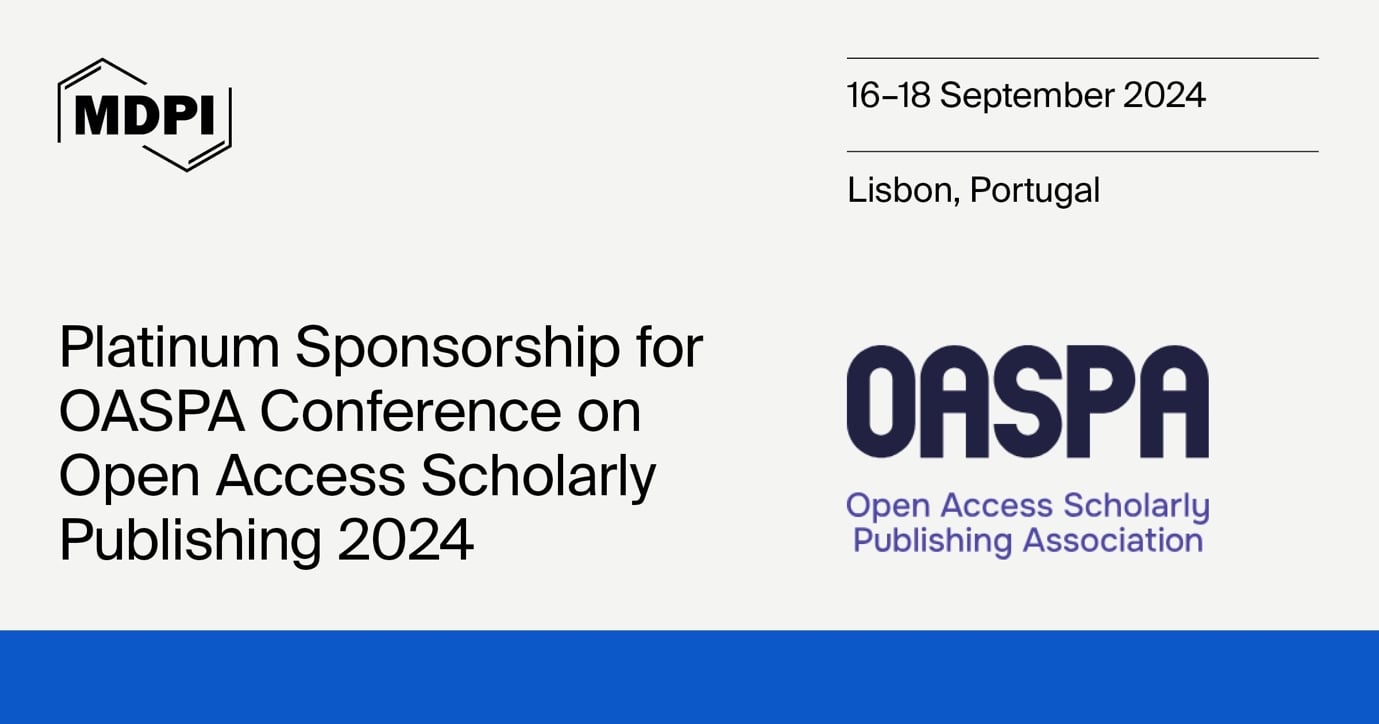
Reflections from OASPA 2024 Conference in Lisbon (16–18 September)
Amidst my September travels, I also had pleasure of attending the OASPA 2024 Conference in Lisbon from 16–18 September. It’s the first in-person Open Access Scholarly Publishing Association (OASPA) event in five years, and being in the sunny city of Lisbon made it even better! MDPI has long been a member of OASPA, and attending this conference gave us an opportunity to connect with other key members of the organization to see the latest developments in the OA movement.
“I believe that publishers have a lot to offer in terms of data and insights”
Main Themes from OASPA 2024
The main themes covered were equity and inclusivity, diamond OA, AI and openness, OA books, research integrity, and how OA can address broader societal challenges such as climate change. While it was great to see the latest developments in these areas, it was also clear that certain voices were missing, particularly those of major publishers. Although it’s not easy to incorporate every perspective, I believe that publishers, including MDPI, have a lot to offer in terms of data and insights. During the membership meeting, a few of us raised the point that large-scale publisher input could add value to these discussions.
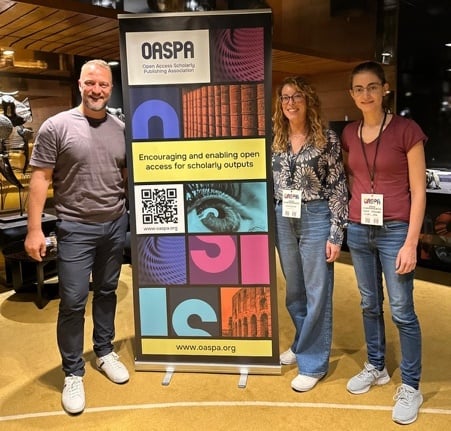
It’s important to participate in industry conferences such as OASPA in order to be part of the discussions and remain at the forefront of the OA movement.
It’s an opportunity to build meaningful relationships with organizations that share our commitment to OA.
While sponsorship is one way to show our support, it’s clear that being part of the conversation through participating in the OASPA groups and committee is what really makes a difference.
It took the last 20 years for more than 50% of the world's research to be published via open access. This provides a sobering reminder that flipping the remaining 50% will be a big challenge.
An important takeaway for me was that there is no "one-size-fits-all" solution for OA challenges: different regions and different stakeholders need different forms of support, whether it is infrastructure, funding, education, or policy, for example. I also enjoyed Rebecca Ross' presentation on how OA can drive action on climate. A few panellists shared the need for transparency in the peer-review process, advocating for open review reports, which is something we have been offering since 2014.
Speaking of openness, we are excited to celebrate Open Access Week 2024 with the scholarly community from 21–27 October. I look forward to sharing a recap of our activities in the next newsletter.
Chief Executive Officer
MDPI AG
29 September 2024
MDPI New Journal Proposal—Invitation to Shape the Future of Open Science Together

As a leader in open access publishing, MDPI is eager to explore new collaboration opportunities, including the launch of new journals and the transfer of existing ones. At present, MDPI publishes over 400 journals, more than 160 of which have established partnerships with academic organizations. Additionally, we publish 19 association journals.
In order to enhance exchange and cooperation with scientific researchers and share the results of open science, MDPI invites experts and scholars from various fields to submit proposals for new journal collaboration opportunities. If your proposal is approved, you could take on the role of Editor-in-Chief, Deputy Editor-in-Chief, or Editorial Board Member of the journal. This position allows you to manage the manuscript review process alongside our editorial department, participate in calls for papers, strengthen your network with scholars in the field, expand scientific research cooperation, enhance your personal and academic influence internationally, and play a leading role in academia.
Once the new journal is online, MDPI will provide a variety of promotional channels to market the journal internationally.
MDPI will offer various promotional channels to enhance its visibility and promote it internationally.
How can you determine the theme of a new journal?
- Assess research hotspots/academic frontiers;
- Assess pioneers in the field/key research directions of universities;
- Determine whether MDPI has already established a journal in the field.
You can browse MDPI’s existing journals at the following link: https://www.mdpi.com/about/journals.
Advantages of collaborating with MDPI:
- MDPI is a global leader in open-access publishing with extensive academic resources.
- MDPI offers a professional publishing team that provides comprehensive support throughout the publishing process.
- MDPI’s diverse promotional platforms and channels help journals quickly increase their international visibility and influence.
We invite you to submit new journal proposal here, and contribute to academic development! In addition, if your institution (university, institute, college, national key laboratory, society, etc.) intends to establish a journal, you can also submit a draft to MDPI on its behalf.
27 September 2024
MDPI’s 2023 Travel Awards—Winners Announced

MDPI journals frequently grant travel awards to empower junior researchers to showcase their latest research at academic conferences, thereby amplifying their impact within their research fields.
We extend our heartfelt congratulations to the 103 recipients of MDPI's 2023 Travel Awards from different countries and territories for their exceptional presentations. These outstanding individuals were selected by the journal editors based on the strength of their research proposals and the anticipated impact of their presentations at academic conferences. We commend their exceptional contributions and wish them continued success in their academic endeavors.
MDPI will continue to provide support and recognition to the academic community. To learn more about the list of awardees, please visit the following pages:
- Biology and Life Sciences;
- Chemistry and Materials Sciences;
- Engineering;
- Environmental and Earth Sciences;
- Medicine and Pharmacology;
- Public Health and Healthcare;
- Others.
About MDPI Awards:
To reward the academic community, especially young researchers, and enhance communication among scientists, MDPI journals regularly offer various awards to researchers in specific fields. These awards, serving as a source of inspiration and recognition, help raise the influence of talented individuals who have been credited with outstanding achievements and are making a significant contribution to the advancement of their fields.
To explore more MDPI awards, please click here.
20 September 2024
Recruiting Early Career Editorial Board Members for Biomedicines
In order to further enhance the international influence of the journal Biomedicines (ISSN: 2227-9059), promote the academic exchange of young scientists, and support the Editorial Board with additional expertise, Biomedicines is inviting interested and eligible early career researchers to apply for an Early Career Editorial Board (ECEB) membership.
Early Career Editorial Board (ECEB) members will hold the position for two years, with the possibility of renewal for a second term.
Application Eligibility:
- Completed their doctorate/Ph.D. degree within the past 10 years (we may consider granting exceptions for career interruptions, including medical and family leave, as well as relevant experience);
- Served as the first author on at least five peer-reviewed and published manuscripts (we may also consider three first-author original research papers if the articles have been cited);
- Having an impactful portfolio of publications in their field of research on human health and disease;
- Researchers that are currently (at the time of application) an assistant professor, research assistant professor, associate research scientist, post-doctoral fellow, or an equivalent early career position;
- Researchers that are active and engaged in their community (e.g., experienced at presenting at academic conferences or involved in professional organizations);
- Willingness to dedicate their time to assist in developing the journal with passion and enthusiasm.
Benefits of being an Early Career Editorial Board Member include the following:
- A certificate of appointment as an Early Career Editorial Board Member will be provided;
- The achievements of Early Career Editorial Board Members are publicized on the journal’s media platforms to improve academic visibility;
- There will be an opportunity to be promoted to an Editorial Board Member based on contributions;
- The journal will regularly acknowledge those who participate in the peer-review process on the journal’s website;
- There will be opportunities to participate in or host annual meetings and online seminars organized by the Editor-in-Chief and the Editorial Board Members.
Responsibilities of an Early Career Editorial Board Member include:
- Publicizing and promoting the journal at academic conferences and among peers;
- Selecting high-quality articles and preparing media content for promotion;
- Reviewing at least four manuscripts per year;
- Identifying potential reviewers for specific papers and assessing any potential ethical or policy-based questions that might arise due to the papers’ content;
- Supporting the development of the journal through various means, such as providing suggestions, promoting the journal via academic networks, academic conferences, and new media channels, etc.;
- Learning about the scholarly publishing landscape, including gaining an awareness of the manuscript review process, ethical considerations, and the strategies used by publishers.
Applications:
Please fill in the application form here.
Please send the application form and your academic résumé to [email protected] with the subject line “Early Career Editorial Board Application + Name + Institute + Research Expertise”.
Application deadline: 31 December 2024.
Selection Process and Announcement:
The selection process is as follows: initial screening of application materials → selection by Editor-in-Chief and Editorial Board Members → email notification → issuance of certificate of appointment.
Selection will be made within one month of the application deadline, and the results will be announced on the journal’s website.
11 September 2024
Meet Us at the Non-coding RNA World 2024: Exploring Mechanisms, Designing Medicines, 7–9 October 2024, Basel, Switzerland

MDPI will be attending the Non-coding RNA World 2024: Exploring Mechanisms, Designing Medicines (ncRNA 2024) in Basel, Switzerland, which will take place from 7 to 9 October 2024. The conference will cover a broad range of topics, from basic biology to medical and technological applications. The sessions will take molecular biology through the topics of disease mechanisms, therapies, technologies, and bioinformatic approaches. Each session will be anchored by leading international speakers.
The following MDPI journals will be represented:
- Biology;
- Biomedicines;
- Biomolecules;
- Cells;
- Epigenomes;
- Genes;
- Life.
If you are attending the conference, please visit our booth. Our delegates look forward to meeting you in person and answering any questions that you may have. For more information about the conference, please visit the following link: https://sciforum.net/event/ncRNA2024.
11 September 2024
MDPI’s 2023 Best PhD Thesis Awards—Winners Announced

MDPI’s Best PhD Thesis Awards are granted to promising young scholars whose PhD theses are deemed exceptional within their respective research fields. These awards aim to encourage young scholars to continue their outstanding accomplishments and further contribute to their field.
We extend our heartfelt congratulations to the 54 winners of the 2023 Best PhD Thesis Awards and wish them success with their future research endeavors.
MDPI will continue to provide support and recognition to the academic community. To learn more about all the awardees and their research projects in your field of study, please visit the following pages:
About MDPI Awards:
To reward the academic community, especially young researchers, and enhance communication among scientists, MDPI journals regularly offer various awards to researchers in specific fields. These awards, serving as a source of inspiration and recognition, help raise the influence of talented individuals who have been credited with outstanding achievements and are making a significant contribution to the advancement of their fields.
To explore more MDPI awards, please click here.
10 September 2024
Meet Us at the 2024 International Conference of the Korean Society for Molecular and Cellular Biology, 8–11 October 2024, Jeju, Republic of Korea

The 2024 International Conference of the Korean Society for Molecular and Cellular Biology will be held from 8 to 11 October 2024, in Jeju, Republic of Korea. The conference is organized by the Korean Society for Molecular and Cellular Biology, and promises a rich tapestry of scholarly exchange across various disciplines within biological and biomedical sciences.
The conference will feature four top keynote speakers in the field of life sciences, including two Nobel Prize winners, and scientists from more than thirty countries around the world participating in more than twenty scientific sessions on a variety of topics. The agenda includes symposiums showcasing pioneering research in life sciences, dedicated sessions for young academics, such as graduate students, postdoctoral researchers, and research professors, and a Bio Job Fair.
The following MDPI journals will be represented at the conference:
- International Journal of Molecular Sciences;
- Antioxidants;
- Biophysica;
- Current Issues in Molecular Biology;
- Kinases and Phosphatases;
- Metabolites;
- Microorganisms;
- Proteomes;
- Bioengineering;
- Biomedicines;
- BioMed;
- Biomolecules;
- Cancers;
- Genes;
- Journal of Molecular Pathology;
- Organoids;
- Plants;
- Non-Coding RNA;
- Sci;
- Journal of Fungi.
If you are attending this conference, please feel free to start an online conversation with us. Our delegates look forward to meeting you in person at booth #99 and answering any questions that you may have. For more information about the conference, please visit the following link: https://www.ksmcb.or.kr/icksmcb2024/main.html.
3 September 2024
MDPI INSIGHTS: The CEO's Letter #15 - CHORUS, Best Paper Award, August Events

Welcome to the MDPI Insights: The CEO's Letter.
In these monthly letters, I will showcase two key aspects of our work at MDPI: our commitment to empowering researchers and our determination to facilitating open scientific exchange.
Opening Thoughts

I am pleased to share that MDPI is now an Affiliate Member of CHORUS, a not-for-profit organization dedicated to ensuring public access to articles reporting on U.S. government-funded research. This partnership highlights our long-standing commitment to advancing Open Access (OA) publishing and meeting funders’ open research requirements.
Read the full announcement here.
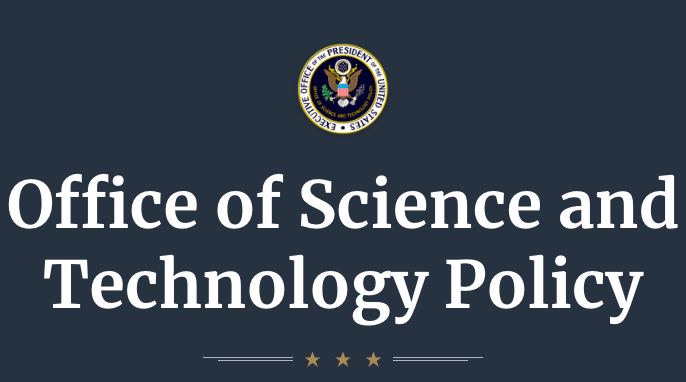
With the White House Office of Science and Technology Policy (OSTP) 2022 memorandum calling for immediate public access to all federally funded research by 2026, this partnership positions MDPI to further support academic institutions in adhering to national mandates while providing authors with fully compliant (CC-BY) OA journals.
The CHORUS platform went live in July 2014 and includes NASA, the U.S. Department of Energy, the U.S. Department of Defense, the U.S. Geological Survey, and the National Science Foundation.
“This partnership positions MDPI to further support academic institutions in adhering to national mandates”
Joining CHORUS perfectly aligns our mission as the leading OA publisher, which is to drive transparency and innovation in scholarly publishing, with that of CHORUS itself, which is to advance Open Access research. It will also support MDPI publications from organizations such as NASA, with 1,200 research papers published by NASA-affiliated authors as at 31 August 2024.
Impactful Research
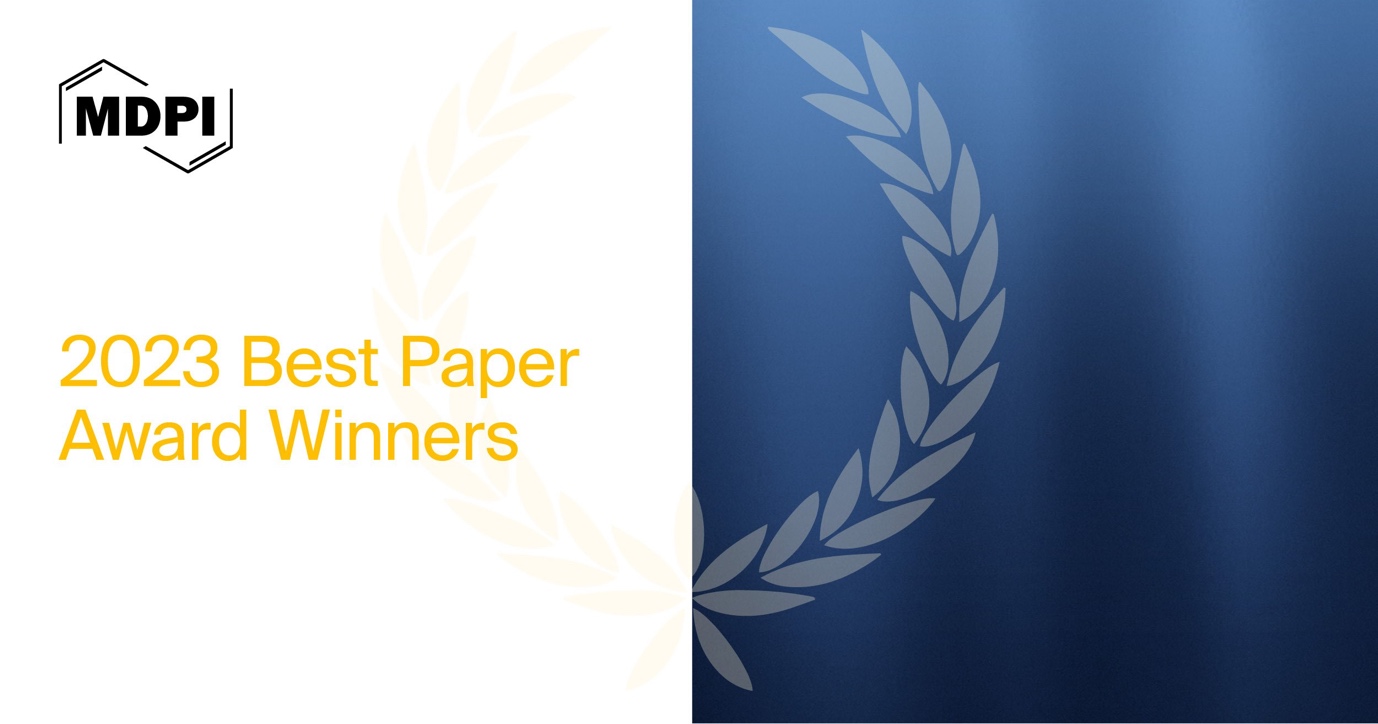
MDPI’s Best Paper Awards—Award-Winning Papers in 2023 Announced
MDPI is committed to supporting and recognizing the academic community and is proud to announce the recipients of the 2023 Best Paper Awards, which recognize high-quality papers of significant scientific merit and impact. Each year, the editors of our journals carefully select papers that showcase outstanding scientific achievement.
This year, 115 Best Paper Awards were presented, chosen from 346 exceptional papers in a highly competitive selection process. Congratulations to the authors for their remarkable contributions!
To learn more about all the awardees and their research projects, visit the following pages:
- Biology and Life Sciences
- Business and Economics
- Chemistry and Materials Sciences
- Computer Sciences and Mathematics
- Engineering
- Environmental and Earth Sciences
- Medicine and Pharmacology
- Public Health and Healthcare
- Social Sciences, Arts and Humanities
- Physical Sciences
About MDPI Awards
MDPI regularly offers various awards to recognize researchers, particularly young scientists, and to promote communication within the scientific community. These awards exist to inspire and acknowledge talented scientists who have made significant contributions to advancing their fields.
To find out more MDPI awards, please click here.
“Our awards exist to inspire and acknowledge talented scientists”
Inside MDPI

MDPI AI Team Presented at EuroSciPy 2024 in Poland
As part of the CEO Letter, I hold dear this ‘Inside MDPI’ section, where I have an opportunity to highlight various projects, teams and updates within our organization. As such, I’m happy to showcase the following presentations from members of MDPI’s Artificial Intelligence (AI) team, which were recently presented at the EuroSciPy 2024 (16th European Conference on Python in Science). This conference took place in Szczecin, Poland from 26–30 August.
“This event was a great opportunity to reinforce our commitment to innovation and excellence in publishing”
MDPI colleagues Frank Sauerburger (AI Tech Leader) and Daniele Raimondi (Senior Data Scientist) both presented at the conference. Frank discussed MDPI’s AI infrastructure, while Daniele showcased a new methodological approach we have been developing to track the journey of rejected academic manuscripts. This approach combines AI, data science and analytics to improve the identification of manuscripts and authors, enhancing our understanding of publishing dynamics.
This event was a great opportunity to reinforce our commitment to innovation and excellence in publishing. It also allowed us to contribute to the academic discussion on integrating AI and data science into scholarly communication.
From data analysis in Jupyter Notebooks to production applications: AI infrastructure at reasonable scale – Frank Sauerburger
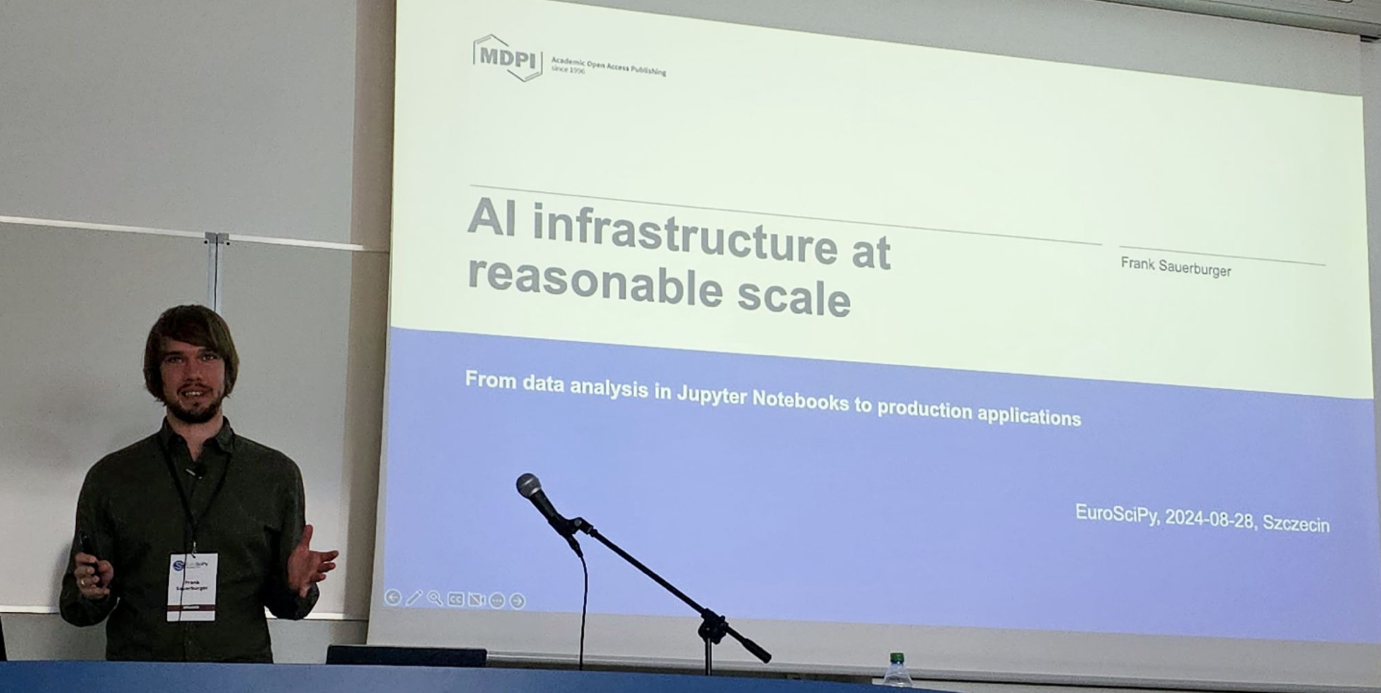
Frank’s presentation on MDPI’s AI infrastructure provided a chance to showcase the advanced technological frameworks that power our operations. Given the technical and academic focus of EuroSciPy, this talk demonstrated how MDPI’s AI capabilities are not only cutting-edge but also central to driving efficiency and innovation in scholarly publishing. Engaging with the EuroSciPy community helps position MDPI as a leader in applying AI within the publishing industry, fostering potential collaborations and attracting interest from top researchers.
A Qdrant and Specter2 framework for tracking resubmissions of rejected manuscripts in academia – Daniele Raimondi
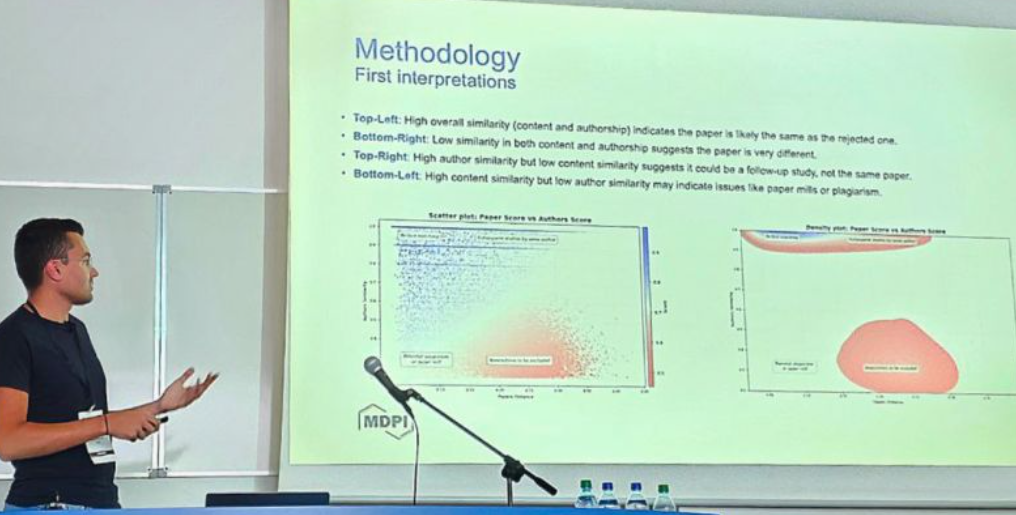
Daniele’s talk on the novel methodological approach that combines AI, Data Science, and Analytics was crucial in highlighting how MDPI is advancing the precision and effectiveness of manuscript and author identification. This approach is pivotal in enhancing our understanding of publishing dynamics and ensuring the quality and integrity of the academic content we manage. By presenting at EuroSciPy, we had the opportunity to engage with an audience deeply involved in scientific computing, gaining feedback and insights that could further refine our methodologies.
Thank you, Frank and Daniele, for representing MDPI so well!
I will share more about MDPI’s AI team and projects in upcoming CEO Letters, as we have a well-rounded AI and Data Team working on an exciting suite of AI products for MDPI and the scholarly community at large.
Coming Together for Science
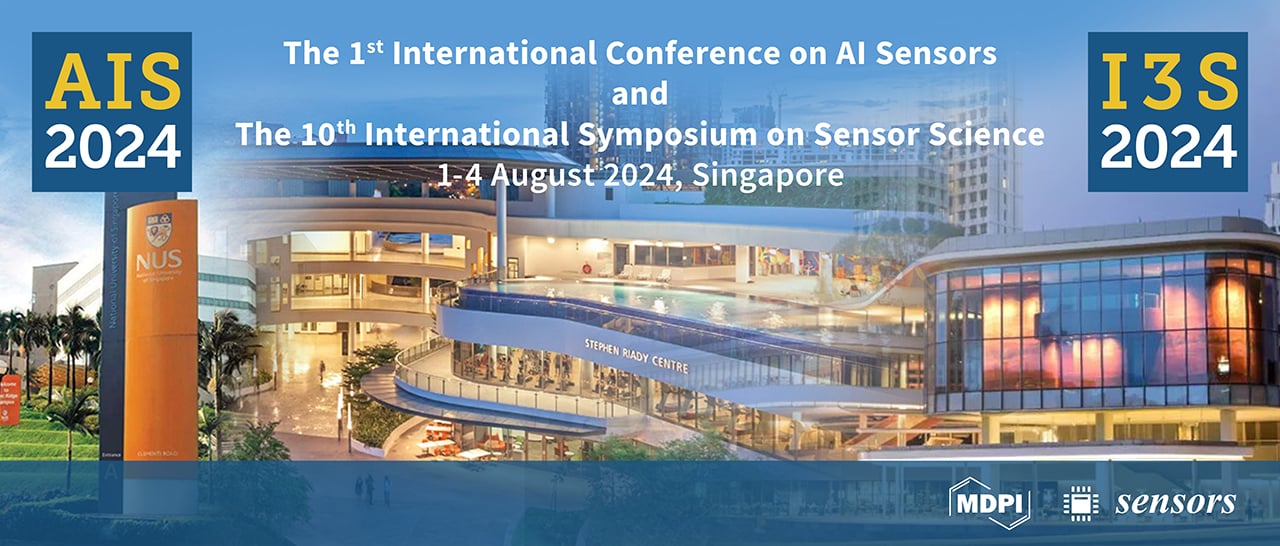
The 1st International Conference on AI Sensors & The 10th International Symposium on Sensor Science
I am pleased to share the success of our MDPI conference The 1st International Conference on Artificial Intelligence (AI) Sensors and the 10th International Symposium on Sensor Science in Singapore this past 1–4 August.
With nearly 400 attendees, the event brought together researchers and industry experts from China, Singapore, Japan, Korea, Taiwan, India and other countries to share their findings on the latest developments in sensors, sensing technology, artificial intelligence for sensing applications and AI-enhanced sensing systems.
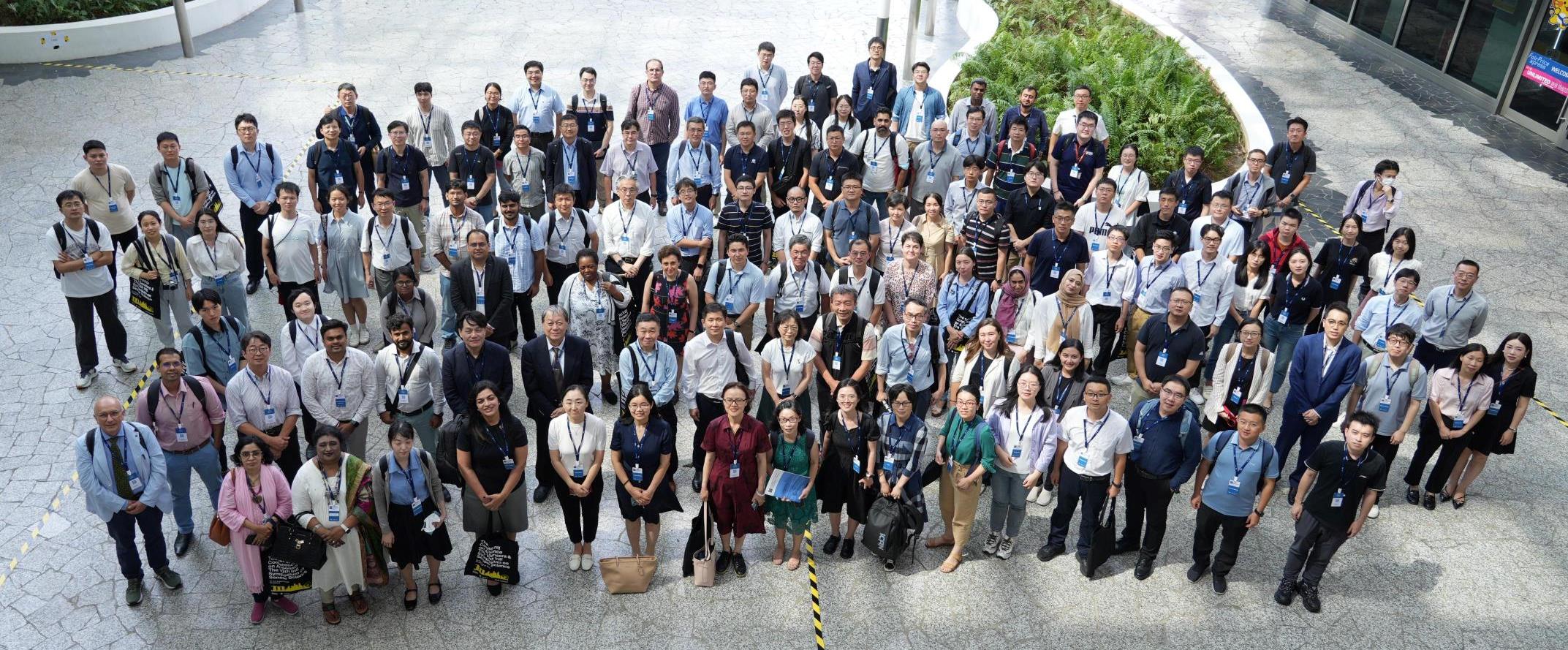
We accepted a total of 355 abstracts, featuring 772 authors from 28 countries. Over the course of the four-day event, 66 posters were displayed and 296 talks were delivered, including 4 plenary talks, 46 keynote speeches, 122 invited talks, and 124 selected oral presentations. View the event gallery here.
I am pleased to announce the winners of the four awards, including Best Presentation and Best Poster, recognizing the contributions of our participants during the conference.
Looking ahead, the 2nd International Conference on AI Sensors and Transducers is scheduled to take place from 29 July to 5 August, 2025, in Bangkok, Thailand.
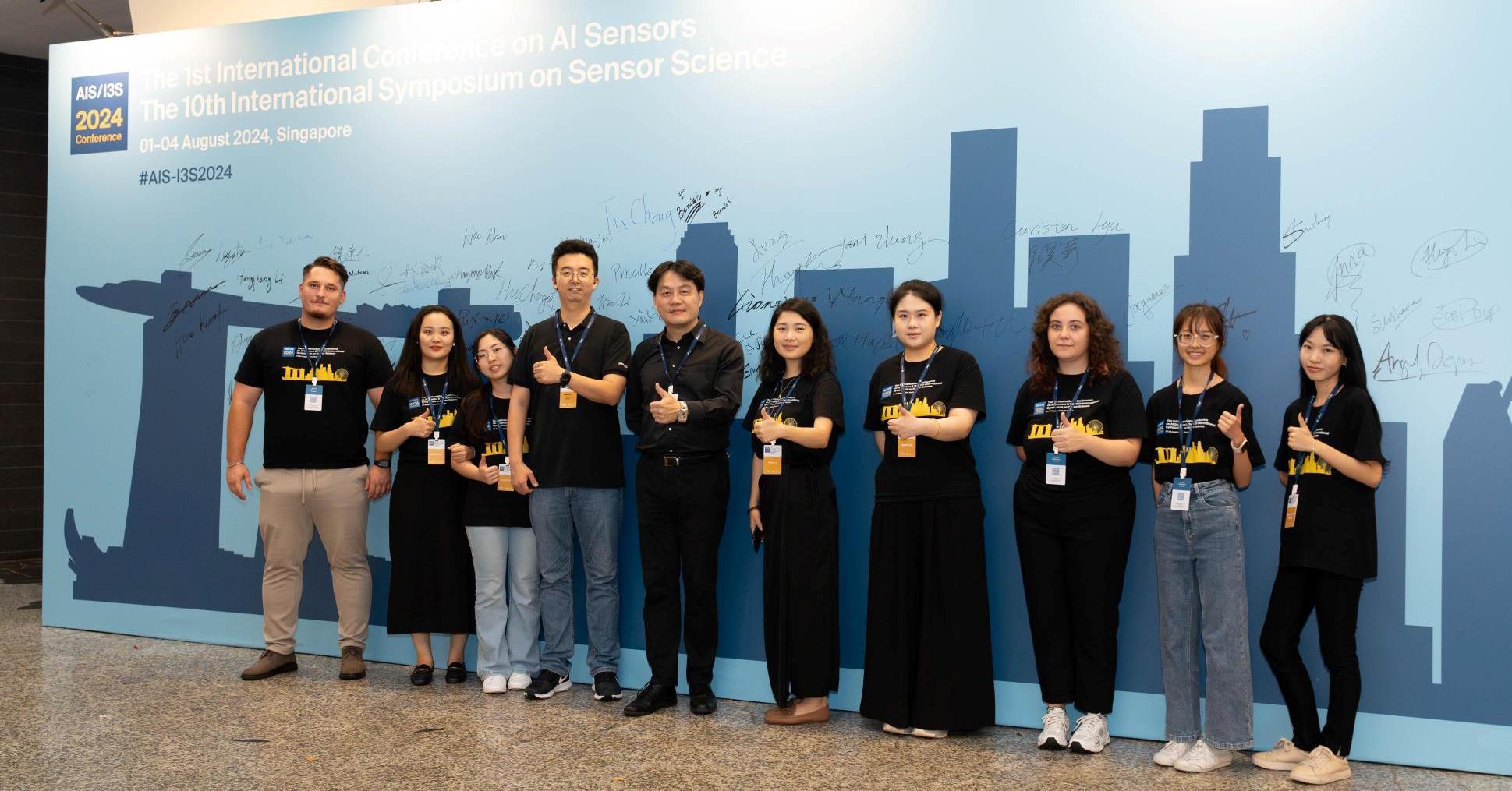
Thank you to our Conference team, including Ionut Spatar, Teodora Nicoleta Cremene, Ang Kai Lin, Benjamin Tay, Leong Jin Yue Esther, Wong Jolin, Judith Wu, Alethea Liu and Flora Li, who were involved in making this event a success. A big thank-you also goes to our local MDPI colleagues for their support: Yu Nwe Soe, Hen Chu Yang, Kwah Zhi En Watcharapong, Zephan Yang, Daphne Neo, Huimin Cheng, Nathan Li and Ting Yin.
Upcoming In-Person Event
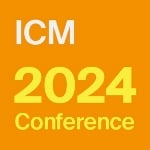
25–27 September, 2024
The 5th International Conference on Materials: Advances in Material Innovation
Location: Basel, Switzerland
ICM 2024 will unite experts to share insights on recent advancements in Materials Characterization, Processing and Manufacturing.
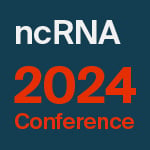
7–9 October, 2024
Non-coding RNA World 2024: Exploring Mechanisms, Designing Medicines
Location: Basel, Switzerland
ncRNA 2024 will explore the latest advances in the field, covering topics from basic biology to medical and technological applications.
Find more upcoming MDPI events here.
Closing Thoughts

The 2nd Sustainable Publishing Forum
In 2022, the International Association of Scientific, Technical and Medical Publishers (STM) outlined three goals to reflect the academic community’s shared aspirations: promoting Open Science, maintaining research integrity and fulfilling social responsibility. Open Science has evolved from the Open Access movement of the early 2000s to become a preferred model in academic publishing. Publishers and academic journals play a crucial role in ensuring research integrity, with efforts to prevent misconduct markedly on the increase now.
As the world faces sustainability challenges, the academic publishing industry is increasingly committed to contributing the achievement of the United Nations Sustainable Development Goals (SDGs). Many publishers are implementing strategies to support these objectives, including ours, which you can view here.
The 2nd MDPI Sustainable Publishing Forum provided a platform for global editors and publishers to discuss these themes, aiming to strengthen collaboration and advance the contributions that scientific publishing can make to academia and society.
“Open Science has evolved to become a preferred model in academic publishing”
The 2nd Sustainable Publishing Forum
We hosted MDPI’s 2nd Sustainable Publishing Forum in Beijing, China, on 15–16 August, attracting nearly 120 attendees from local and international publishers, university presses, scientific and technical journal associations, libraries and the Chinese Academy of Sciences. The event focused on promoting Open Science, maintaining research integrity, and fulfilling social responsibility.
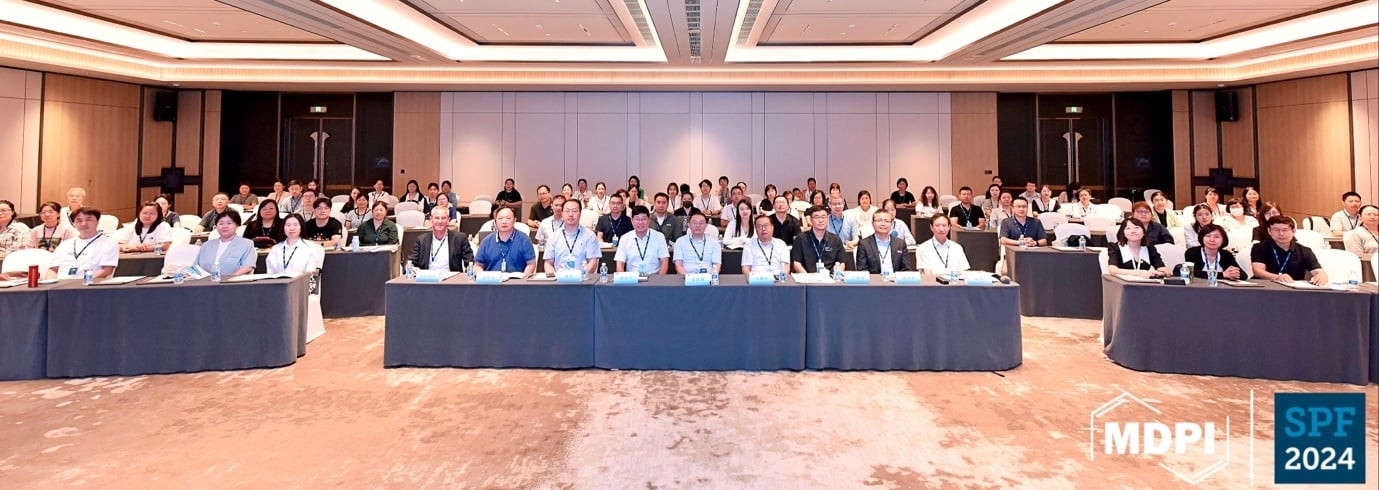
This was an excellent opportunity for us to share more with conference attendees about the approach of our research integrity team. Our Head of Publishing, Peter Roth, also participated, speaking on how to identify and avoid predatory publishers and about the principles that underpin ethical academic publishing.
I extend my thanks to all of our conference speakers, including Hylke Koers (STM Solutions), who presented on STM Trends 2028 and shared insights on the STM Integrity Hub, of which MDPI is a member.
Chief Executive Officer
MDPI AG
19 August 2024
MDPI’s 2023 Young Investigator Awards—Winners Announced

MDPI’s Young Investigator Awards recognize promising early career scientists, acknowledge their contributions, and foster collaboration within the scientific community. We are proud to announce the recipients for 2023, who were carefully selected by the journals’ esteemed Award Evaluation Committee.
We extend our heartfelt congratulations to the 79 winners of MDPI’s 2023 Young Investigator Awards for their excellent contributions in their research field. We look forward to seeing these rising stars continue to contribute to the advancement of science.
MDPI will continue to support and recognize the academic community. To explore details about the awardees by field, please visit the individual pages listed below:
Congratulations to all the winners for their exceptional contributions and dedication to advancing scientific research.
About MDPI Awards:
To support the academic community, particularly young researchers, and to enhance communication among scientists, MDPI journals regularly offer various awards to researchers in specific fields. These awards, serving as a source of inspiration and recognition, help to elevate the profiles of talented individuals who have made outstanding achievements and are making significant contributions to advancements in their respective fields.
To find out more about MDPI awards, please click here.
15 August 2024
Meet Us at the 11th Biennial Meeting of the Society for Free Radical Research-Asia and the Chinese National Conference of Redox Biology and Medicine 2024, 21–23 October 2024, Beijing, China

Conference: The 11th Biennial Meeting of the Society for Free Radical Research-Asia and the Chinese National Conference of Redox Biology and Medicine 2024
Organizers: Society for Redox Biology and Medicine Branch of Biophysical Society of China;
The Material Biology and Intelligent Medicine Branch of Biophysical Society of China
Date: 21–23 October 2024
Place: Beijing, China
MDPI journals will be attending the 11th Biennial Meeting of the Society for Free Radical Research-Asia and the Chinese National Conference of Redox Biology and Medicine 2024 as exhibitors. This conference will be held in Beijing, China, from 21 to 23 October 2024.
After two decades of SFRR-Asia biennial meetings, we are marching into a new era regarding the exploration of redox biology and medicine at precision, mechanistic, and in vivo levels with innovative technology and the collaboration of multiple disciplines. The coming SFRR-Asia 2024, with the theme “The new era of precision redox biology and medicine: from basic research to the intervention of aging and diseases,” will provide an opportunity to embrace research progress in the field. This conference will address a range of topics, with a particular focus on three areas of research: basic research on redox biology and medicine, redox homeostasis in aging and diseases, and precision redox intervention and health management.
The following MDPI journals will be represented:
- Antioxidants;
- Biomedicines;
- Pharmaceuticals;
- Oxygen;
- International Journal of Molecular Sciences (IJMS);
- Current Issues in Molecular Biology (CIMB);
- Life;
- Obesities.
If you will be attending this conference, our delegates look forward to meeting you in person and answering any questions that you may have. For more information about the conference, please visit the following website: https://sfrr-asia2024.tiemeeting.com.
13 August 2024
Join Us at the 2024 BMES Annual Meeting, 23–26 October 2024, Baltimore, USA

Conference: 2024 BMES Annual Meeting
Date: 23–26 October 2024
Location: Baltimore, USA
MDPI will be attending the 2024 BMES Annual Meeting as an exhibitor. We welcome researchers from different backgrounds to visit and share their latest ideas with us.
Established in 1968, the Biomedical Engineering Society (BMES) is a professional society for students, faculty, researchers, and industry professionals in the field of biomedical engineering. The conference aspect covers cancer treatment, heart disease, women’s health, global health disparities, and more. The meeting allows members to advocate for their innovative solutions, demonstrating their commitment to our society’s core value of health equity for all individuals. The Biomedical Engineering Society is governed by the BMES Board of Directors, and this board is elected from members of the society.
The following MDPI journals will be represented at the conference:
- Bioengineering;
- Sensors;
- Biomedicines;
- Biomechanics;
- Micromachines;
- Technologies;
- Applied Sciences;
- BioChem;
- BioTech;
- CIMB.
If you are planning to attend the above conference, please do not hesitate to start an online conversation with us before visiting. Our delegates look forward to meeting you in person and answering any questions that you may have. For more information about the conference, please visit the following website: https://www.bmes.org/bmes2024.
8 August 2024
Meet Us at the Biomolecular Horizons 2024 Congress (BMH 2024), 22–26 September 2024, Melbourne, Australia

MDPI will attend the Biomolecular Horizons 2024 Congress, held from 22 to 26 September 2024 in Melbourne, Australia. This important forum will bring together three prestigious congresses, each with a strong history of attracting the bioscience and biotechnology communities to discuss and examine the latest developments and research:
- 26th Congress of the International Union of Biochemistry and Molecular Biology (IUBMB);
- 17th Congress of the Federation of Asian & Oceanian Biochemists & Molecular Biologists (FAOBMB);
- 22nd ComBio Conference (ComBio).
The overarching theme of the Biomolecular Horizons 2024 (BMH2024) Congress is “Discover, Create, Innovate”, which will be examined across the following key themes:
- Cell, Developmental and Stem Cell Biology;
- Biotechnology and Synthetic Biology;
- Microbial World;
- Cell Signalling and Metabolism;
- Genomics, Gene Regulation and Epigenetics;
- Bioinformatics, Computational Biology and Omics;
- Structural Biology and Biophysics;
- Molecular Basis of Disease;
- Molecular Physiology;
- Education.
The following MDPI journals will be represented:
- International Journal of Molecular Sciences;
- Biomolecules;
- Applied Biosciences;
- BioMedInformatics;
- Biomedicines;
- Cells;
- Applied Microbiology;
- BioTech;
- Biologics;
- Current Issues in Molecular Biology;
- Epigenomes;
- Genes;
- Journal of Developmental Biology;
- Journal of Molecular Pathology;
- Methods and Protocols;
- Muscles;
- Organoids;
- Signals;
- SynBio;
- Cardiogenetics.
If you are planning to attend the above conference, please feel free to stop by our booth. Our delegates look forward to meeting you in person to answer any questions that you may have. For more information about the conference, please visit the following link: https://www.bmh2024.com/.
8 August 2024
Meet Us at the 36th European Congress of Pathology (ECP 2024), 7–11 September 2024, Florence, Italy

Conference: 36th European Congress of Pathology (ECP 2024)
Date: 7–11 September 2024
Location: Florence, Italy
The European Society of Pathology (ESP) and the Italian Society of Pathology invite you to the 36th European Congress of Pathology (ECP 2024). It will take place in the Congress Center, Fortezza da Basso, of the wonderful city of Florence from 7 to 11 September 2024. Over the last years, the ECP has become the worldwide leading congress in pathology, and the Florence congress will increase this legacy with top contributions in diagnostic training, research, and education. For these few days in September, pathologists, clinicians, molecular biologists, geneticists, bioinformaticians, IT experts, and our industry partners will gather for ECP 2024 and make Florence the capital of pathology. You can view the detailed conference topics at https://www.esp-congress.org/scientific-programme/topics.html.
MDPI will be attending the 36th European Congress of Pathology (ECP 2024), and we welcome researchers from different backgrounds to visit and share their latest ideas with us.
The following MDPI journals will be represented:
- Diagnostics;
- Biomedicines;
- Neurology International;
- Pathophysiology;
- Gastroenterology Insights;
- IJMS;
- Cancers;
- CIMB;
- Antibiotics;
- Zoonotic Diseases;
- BioMed;
- Dermatopathology;
- Tomography;
- Sclerosis.
If you plan to attend this conference, please contact us online. Our delegates look forward to meeting you in person at booth #L150 and answering any questions that you may have. For more information about the conference, please visit the following website: https://www.esp-congress.org/.
7 August 2024
MDPI Insights: The CEO's Letter #14 - New Headquarters, Marketing, Poland

Welcome to the MDPI Insights: The CEO's Letter.
In these monthly letters, I will showcase two key aspects of our work at MDPI: our commitment to empowering researchers and our determination to facilitating open scientific exchange.
Opening Thoughts
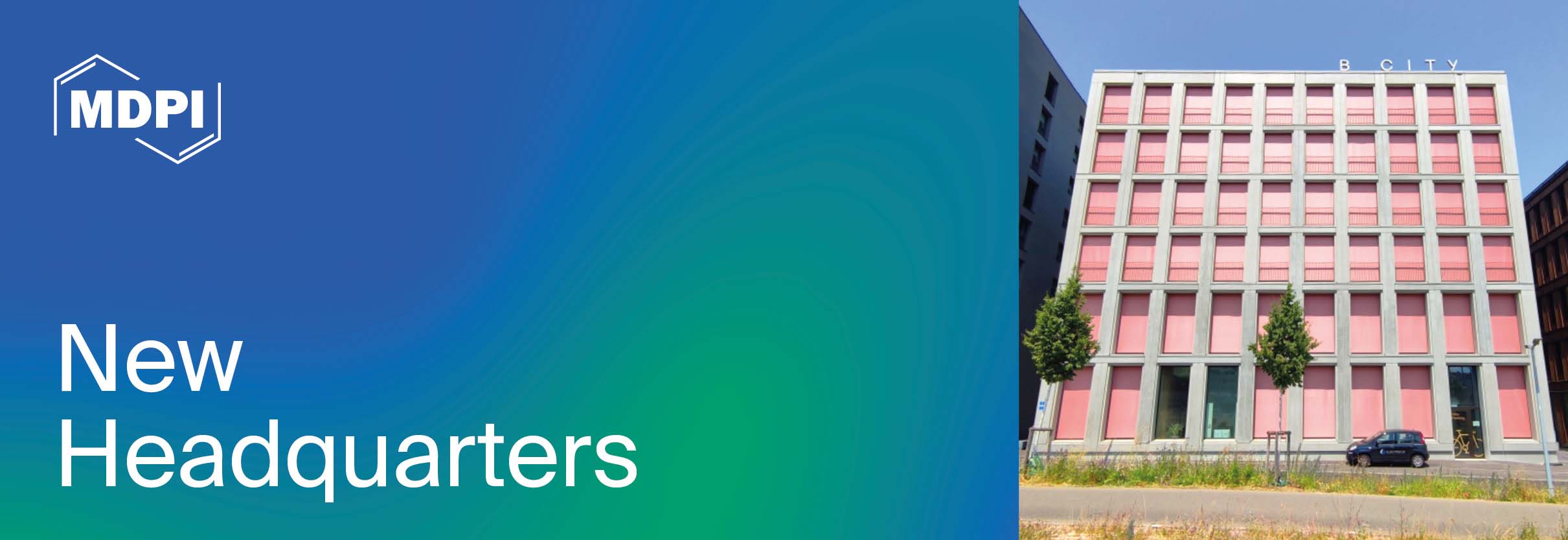
MDPI Moves to New Headquarters in Basel, Switzerland

I am excited to share that MDPI has moved to a new state-of-the-art office space in Basel, Switzerland. This move consolidates our operations by bringing together our two previously separated Basel offices into one central location.
We are always growing our talent pool and encourage you to view our Careers Page for the positions available in Basel and across our offices.
New Address: Grosspeteranlage 5, CH-4052 Basel, Switzerland
Effective Date: 1 July 2024
This new chapter in our company’s journey is designed to continue our mission of positioning MDPI as a leader in Open Access (OA) publishing, highlighting our commitment to making scholarly research accessible to everyone.

Boasting modern amenities, improved meeting and event spaces designed to support our growing needs, the new location provides a more collaborative and efficient working environment for our employees. The location offers convenient accessibility to public transportation and is situated near the Basel SBB railway station, with a variety of nearby services and amenities.
In fact, I can see the trains right outside of my window as I write these lines!
This move marks an exciting milestone in MDPI’s development, and I am confident that the new headquarters will serve as an inspiring and productive space for everyone. We also very much look forward to welcoming visitors here. You can read more about MDPI's history here.
“This new chapter continues our mission of positioning MDPI as a leader in OA publishing”
For Those New to MDPI
A pioneer in scholarly, Open Access publishing, MDPI has supported academic communities since 1996. MDPI is leading the transition to Open Science by making a greater proportion of the research conducted worldwide free and accessible to everyone. To date, over 3.5 million researchers have entrusted MDPI with publishing their scientific discoveries. MDPI’s editorial process is bolstered by a network of dedicated reviewers, a team of 6,000 professional, well-trained staff members, and an in-house article submission platform designed to ensure efficient processes within its 440 fully Open Access titles. MDPI supports more than 800 academic institutions worldwide, helping them adhere to national mandates while facilitating authors’ publication in fully compliant (CC BY) Open Access journals.
Impactful Research
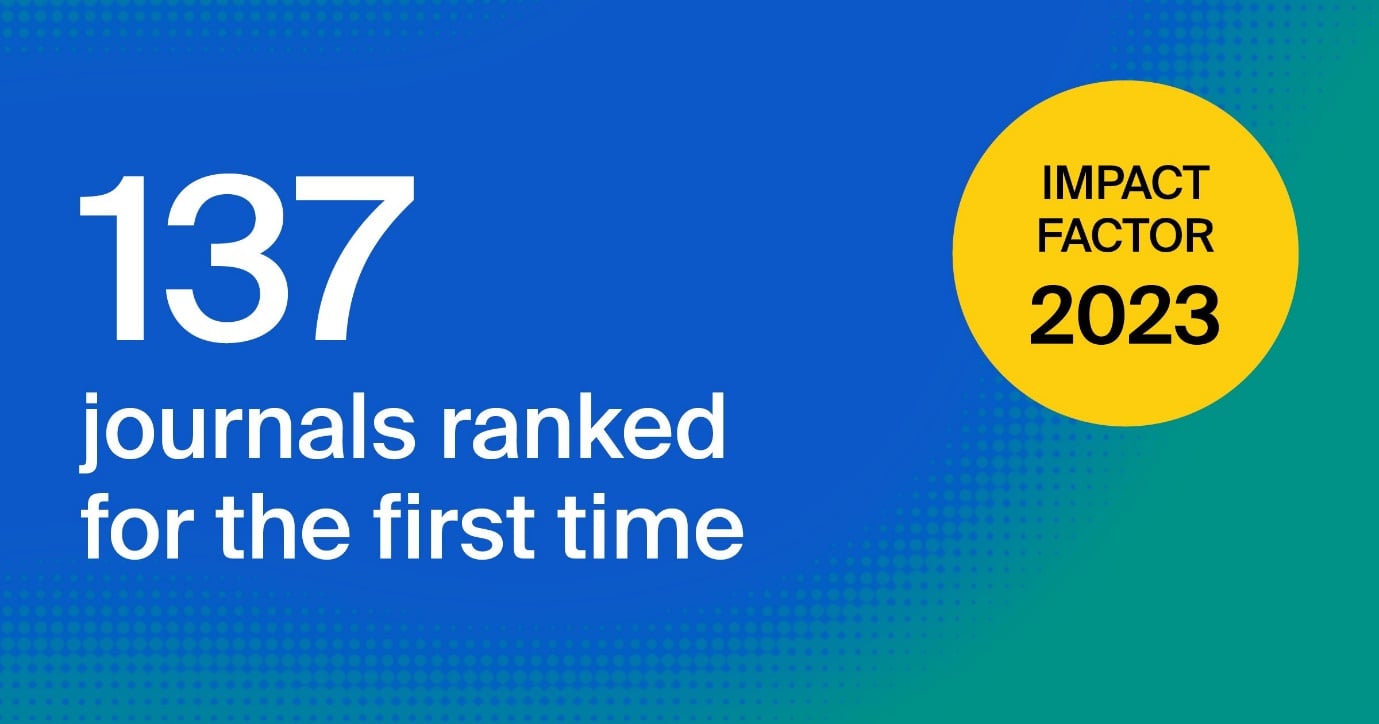
New and Emerging MDPI Journals Making an Immediate Impact
Unpacking some of the Impact Factor updates from the June CEO Letter, I wanted to dive a little deeper into the 137 MDPI journals which received Impact Factor for the first time.
Academic authors highly value efficient publishing processes, robust editorial support, and the opportunity to publish in high-impact journals. We are proud that our newly launched journals typically achieve coverage in the Emerging Sources Citation Index (ESCI) of the Web of Science within just a few years, with a median time of only three years from release to inclusion.
As part of our commitment to advancing academic research and providing high-quality OA publishing, we actively seek new research areas to expand our portfolio of journals. We have a proven track record of successfully establishing new journals.
Our dedicated teams excel in fostering dynamic editorial boards and working closely with Editors-in-Chief (EiC) to define the precise scope and focus of each new journal. Our expertise extends to collaborating with indexing services, ensuring that our journals comply with best practices and are indexed promptly in all relevant databases.
Emerging Titles Ranked for the First Time
Our commitment to excellence is reflected in the annual impact metrics released this past June. The latest edition of the Journal Citation Reports (JCR) showcases the integration of journals from the ESCI in the new unified category rankings, providing a simplified and more complete view of all journals within each subject category, including newly established titles.
Out of 137 new and developing MDPI journals ranked in the 2024 release, 79 are in the top half (Q1 or Q2) of their categories. Here is a breakdown of the number of MDPI’s ESCI-indexed journals by quartile in the JCR:
| Quartile | No. of journals |
| Q1 | 17 (12.4%) |
| Q2 | 62 (45.3%) |
| Q3 | 43 (31.4%) |
| Q4 | 15 (10.9%) |
| Not ranked (humanities-related journals) | 2 |
These rankings highlight our success in rapidly establishing high-impact new journals. Among those that made it directly into the top 25% of their category are the International Journal of Neonatal Screening, Journal of Xenobiotics, Polysaccharides, Smart Cities, and thirteen other journals.
You can browse MDPI journals by Indexing. Simply visit our Journals page and select from the list of Indexing bodies in the top left-hand corner.
Inside MDPI

MDPI Corporate Marketing Strategy and Team Meeting 2024
In July, I hosted the annual Corporate Marketing strategy and team-building activity with 15 of our team members.
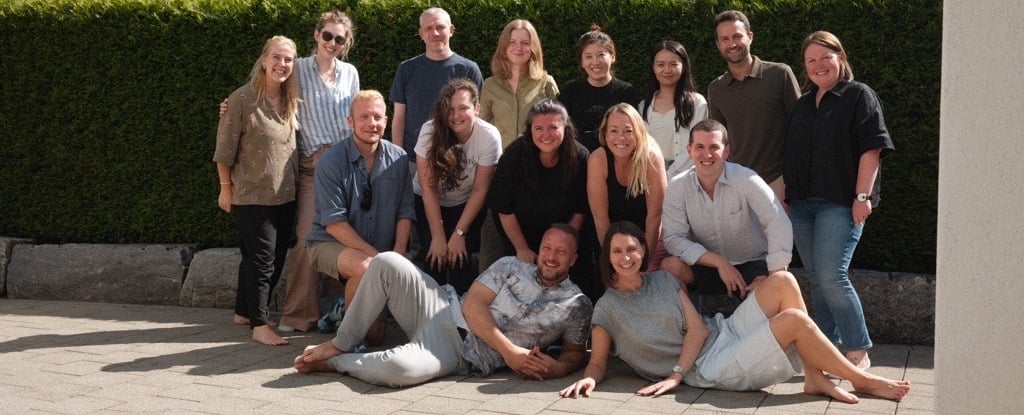
The aim was to align the Corporate Marketing strategy with MDPI's goal of becoming the world's most trusted OA publisher. While we provide a high-level publishing experience for our authors, as seen from our surveys, we need to keep building on our transparent and open communication to foster trust within the scholarly community and continue enhancing our reputation.
The Corporate Marketing team plays an important role as the mouthpiece for all our major activities within MDPI, especially those that model what it means to be a trusted partner. The purpose of the strategy meeting was to develop a feeling of trust in one another and an understanding of how to inspire trust in the stakeholders with whom we interact.
“We need to keep building on our transparent and open communication to foster trust within the scholarly community”

We conducted a set of activities to facilitate that sense of mutual trust and trustworthiness. Examples of some activities we worked on during this strategy-building event include:
- Exploring what trust means
- ‘Letter to self’
- ‘The brand I most trust’
- Most Trusted Academic Publisher
- ‘The brand I would like MDPI to become’
- ‘The 2029 MDPI Annual Report’
- Voice of Customer and Share of Voice – survey/data update on MDPI Brand Experience and Brand Perception
- Integrate Trust-Based Objective into Marketing Plan
- ‘Becoming the MDPI experience’
- ‘Trusting the next steps’
While two days is not enough to finalize a marketing strategy, it is sufficient to get everyone who attended into the mindset of the direction in which we are working. From here, we will develop a program with next steps on main projects, update communications, and collaborate with team leads to incorporate this approach into our work going forward.
As a marketing team, we can communicate our messages, but trust has to be built at every touchpoint in the stakeholder journey. Just talking about it isn’t enough. We need to be about it. That’s a role each of us plays, from editorial to IT, from marketing to HR. We must build trust from the inside out. It starts with each manager and resonates out via every team member.
As a company, our goal is to give all stakeholders with whom we interact – whether internal or external – the experience of working with an organization it can trust.
Coming Together for Science
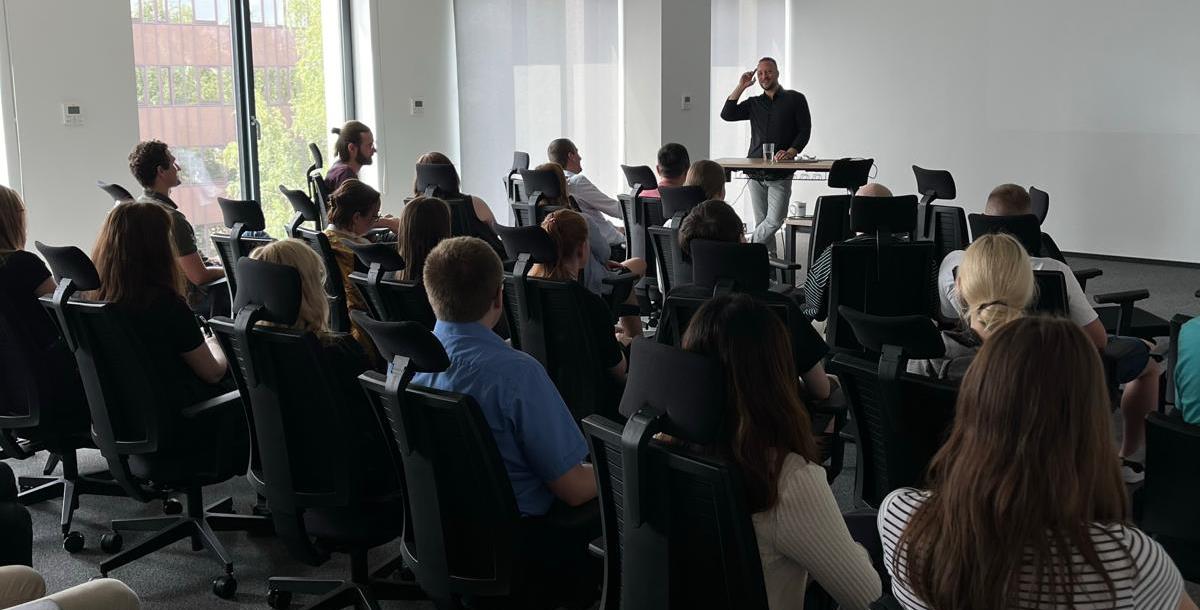
MDPI in Poland: Krakow Office
In July, I had the pleasure of visiting our Krakow office, following my recent trip to Warsaw to meet with the Polish Ministry of Science and Higher Education.

During these visits, I prioritized meeting with our Office Manager, Editorial Director, Group Leads, and members from various teams, including editorial, production, marketing, and journal relationship specialists, to understand their roles and current challenges. Instead of a formal presentation, I opted for an open discussion, sharing updates from headquarters to engage with colleagues in a more personal way.
Our Krakow office has many things to be proud of, including a large number of PhD colleagues (over a third of its staff holds a PhD degree). Krakow provides an opportunity for expanding beyond the 100 colleagues we currently have, by adding new hires in departments including editorial, production and marketing, among others.
About our Krakow office
- Opened in 2020
- 99 staff members as at 1 August 2024
- Main Departments include Editorial, Production, English Department, JRS, PR
Our Krakow office participates in international conferences, conducts author trainings and scholar visits, and engages in local market outreach. The office is also a member of the Polish Chamber of Commerce for High Technology (IZTECH) and is working on expanding its local engagement.
Krakow is the second-largest city in Poland, with a population of about 800,000. It also has a large student population of around 128,000, with seven universities. This means that roughly one in every eight residents is a student.
Poland and MDPI

Poland is a crucial market for MDPI. From 2020 to June 2024, Poland ranked 7th in submissions and 5th in publications for MDPI research articles. As at 31 July 2024, Poland ranks 7th in total MDPI publications, with approximately 70,000 research papers.
Between 2020 and June 2024, 61,500 authors from Poland published with MDPI. As at 30 June 2024, there are 1,205 active Editorial Board Members (EBMs) from Poland, with 661 EBMs (55% of the total) having an H-index over 25.
We also have four Editors-in-Chief (EiC) from Poland leading our journals: Coatings, Venereology, Advances in Respiratory Medicine, and Limnological Review, along with six Section EiC.
In 2023, we received approximately 21,000 submissions from Polish-affiliated authors, of which 12,032 were published.
“Poland is a crucial market for MDPI”
Meeting with Ministry of Education

On 22 July, we visited Warsaw to meet with the Polish Ministry of Science and Higher Education.
We were pleased to learn that they are strong supporters of the OA publishing model and value MDPI’s approach to the peer-review process, including our high ethical standards for quality control.
In 2023 Polish authors predominantly published their papers in OA, with MDPI holding the largest market share in OA publications within the country.
Our commitment to collaborating with Polish institutions is evident through our 33 Institutional Open Access Program (IOAP) agreements with prestigious institutions such as the University of Warsaw, the University of Wroclaw, the Jagiellonian University, and Gdańsk University of Technology. Through IOAP discounts, a healthy waiver rate, and our peer-review voucher system, we provide the Polish scholarly community with significant savings in OA publishing. The Minister greatly appreciated these efforts and our commitment to offsetting some of the APC costs.
We discussed industry concerns about the threat of papermills and presented the preventive measures MDPI has in place to mitigate this risk and uphold high ethical standards. We informed them of our commitment to combating papermills, including our involvement with United2Act and the STM Research Integrity Hub, as well as our efforts to expand our research integrity team and explore proactive measures.
Closing Thoughts

MDPI Thought Leadership Op-ed on Open Access is Now Live on Politico
I am pleased to share that our thought leadership Op-ed piece on Open Access (OA) is now live on Politico. This is a nice push for continued influence and support of OA among policymakers and industry leaders.
Why Politico?
Politico's reputation as a highly credible and influential news platform makes it an important venue to reach key opinion leaders (KOL) from academia, policymakers, and thought leaders from many industries. This visibility helps promote the OA philosophy.
Open Access: A Moral Imperative for Progress
In this piece, I discuss the necessity of making scientific research freely available to all. I argue that publicly funded research should be publicly accessible, highlighting how OA democratizes scientific knowledge, accelerates research availability, and fosters collaboration.
“Open Access is a fundamental right for all citizens”
Democratizing scientific communication
The impulse to democratize scientific communication is nothing new. OA may seem like a recent innovation, but its principles have historical roots traceable to Europe in the 15th century. Just as the printing revolution accelerated the dissemination of new ideas, OA publishing unlocks new scientific insights that would otherwise only be accessible to a few.
Benefits for scholars: amplifying impact through Open Access
Authors publishing in an OA journal can expect more citations of their work, increasing its potential impact. Research findings that are freely available are more likely to be cited than those hidden behind a paywall. Freedom of access greatly increases the potential audience for each paper, fostering a sense of community among researchers worldwide. Heightened visibility can attract prospective collaborators and employers for young scientists. At MDPI, we believe that all these factors can only accelerate the advance of science. Additionally, authors retain copyright in their work instead of signing it away, permitting broader dissemination under Creative Commons licenses and increasing its capacity for impact.
The moral imperative
OA is not just a matter of scientific policy; it is a fundamental right for all citizens and a prerequisite for a brighter, more informed future. Publicly funded research should be a top priority, and I am pleased to see policy moving in this direction. Our capacity to generate transformative scientific insights has to be democratized. The question today is no longer whether we can afford to embrace OA; rather, it is whether we can afford not to.
Chief Executive Officer
MDPI AG
2 August 2024
MDPI Romania Author Training Sessions in May
In May, MDPI Romania held three author training sessions – one endorsing an external event and two stand-alone sessions.
The National Session of Scientific Student Communications took place at Technical University Cluj on 17 and 18 May 2024. MDPI Romania sponsored this event and contributed an author training session on the production of research papers and case study analyses. JRS Norbert Kiss gave a presentation called The World of Open Access to explain different open access publishing models and the benefits of open access publishing. His presentation highlighted the impact of open access publishing on scientific progress and innovation.
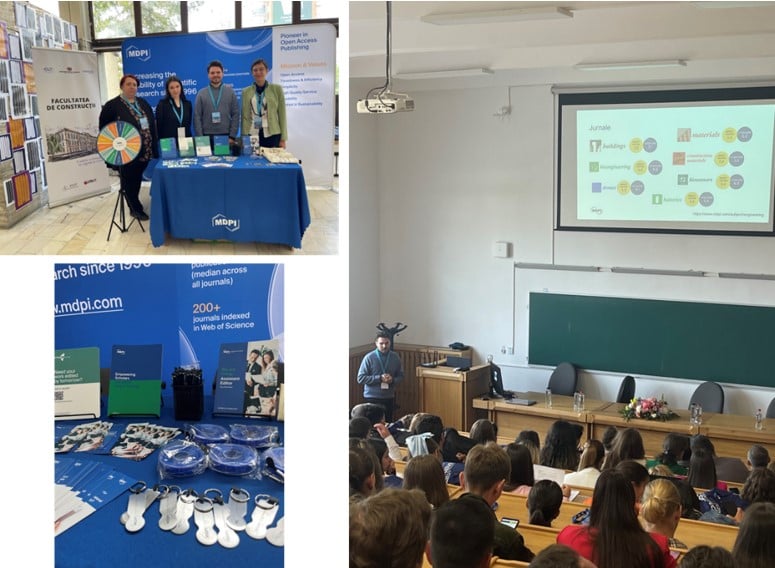
On 29 May 2024, MDPI Romania hosted an author training session for Ph.D. students, early career researchers, and professors at the Carol Davila University of Medicine and Pharmacy. In collaboration with Prof. Andreea Arsene, JRS Ioana Paunescu prepared two presentations: The Steps of the Publishing Process and Elaboration of a Peer Review Report. In her first presentation, she delved into MDPI’s history and mission, MDPI’s editorial process, and MDPI journals of various scopes that are accepting submissions. Her second presentation outlined the types of peer review, the contents of a peer review report by an MDPI reviewer, and the responsibilities of an MDPI reviewer.
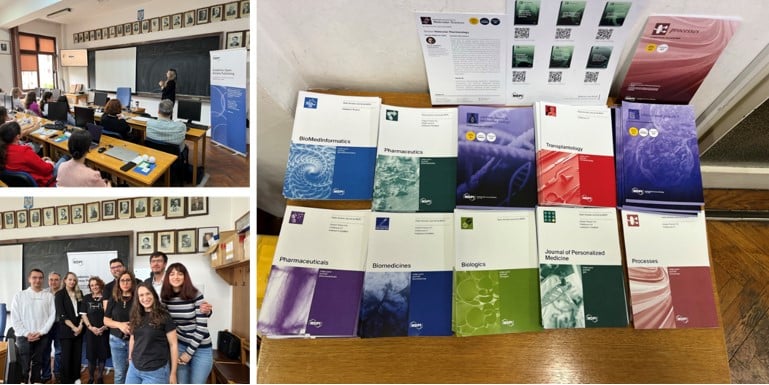
MDPI Romania also hosted an author training session at the Iasi University of Life Sciences on 29 May 2024. JRSs Laurentiu Preda and Cosmin Artan gave four presentations: Efficient Writing of an ISI-Indexed Scientific Article, Benefits of Publishing in the Open Access Model, Various Methods of Open Access Publishing, and MDPI Guide for the Article Review Process. The first three presentations offered guidance on how to improve academic writing, the fourth focused on how to write peer review reports. A highly interactive discussion followed the presentations, during which the JRSs provided extensive answers to attendees’ questions.
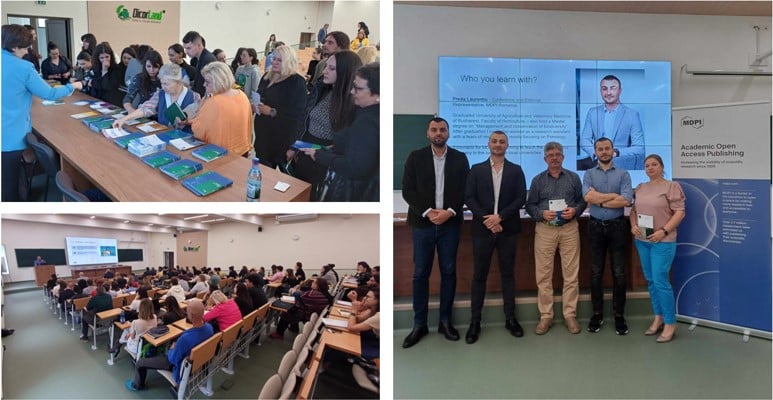
MDPI is grateful for all the attendees, speakers, and organizers involved in these events. Through their enthusiasm and dedication, these events were great successes.
2 August 2024
MDPI Webinar | World Breastfeeding Week 2024, 7 August 2024

In order to commemorate World Breastfeeding Week 2024, MDPI is launching a special webinar to encourage researchers to come together, take action, and highlight how the exchange of findings facilitates efforts to raise awareness on breastfeeding.
Breastfeeding plays a crucial role in the early development of infants, providing essential nutrients and antibodies that bolster the immune system and promote healthy growth. It fosters a strong bond between mother and child while reducing the risk of infections, allergies, and chronic conditions. Moreover, breastfeeding supports cognitive development and contributes to long-term health benefits, including lower risks of obesity and diabetes. For mothers, it aids post-partum recovery and reduces the risk of certain cancers. Promoting breastfeeding is vital for public health, ensuring the well-being of both infants and mothers and fostering a healthier future generation.
We are very much looking forward to seeing you at the MDPI World Breastfeeding Week Webinar 2024.
Date: 07 August 2024 at 03.00 p.m. CEST | 9:00 a.m. EDT | 9:00 p.m. CST Asia
Webinar ID: 839 4244 6710
Webinar Announcement: https://sciforum.net/event/MWBWW2
Register now for free!
| Speaker/Presentation | Time in CEST | Time in EDT |
| MDPI Introduction | 3:00 p.m.–3:10 p.m. | 9:00 a.m.–9:10 a.m. |
| Dr. Shela Hirani Breastfeeding during Emergencies: Challenges and Way Forward to Support Mothers in Disaster Zone |
3:10 p.m.–3:40 p.m. | 9:10 a.m.–9:40 a.m. |
| Dr. Sylvia H. Ley Role of Lactation in Cardiometabolic Health Consequences among Women |
3:40 p.m.–4:10 p.m. | 9:40 a.m.–10:10 a.m. |
| Dr. Natalie Shenker Developing the Milk Bank Services of the Future |
4:10 p.m.–4:40 p.m. | 10:10 a.m.–10:40 a.m. |
| Q&A Session | 4:40 p.m.–4:55 p.m. | 10:40 a.m.–10:55 a.m. |
| Closing of Webinar | 4:55 p.m.–5:00 p.m. | 10:55 a.m.–11:00 a.m. |
After registering, you will receive a confirmation email containing information on how to join the webinar. Registrations with academic institutional email addresses will be prioritized.
Unable to attend? Register anyway and we will inform you when the recording is available.
Keynote Speakers:
- Dr. Shela Hirani, University of Regina, Faculty of Nursing, Regina, Canada;
- Dr. Sylvia H. Ley, Epidemiology, Tulane University School of Public Health and Tropical Medicine, New Orleans, Louisiana, U.S.A.;
- Dr. Natalie Shenker, Department of Surgery and Cancer, Imperial College London, London, England; Human Milk Foundation, Gossoms End Health Centre, Hertfordshire, England.
Relevant Special Issues:
“Health Promotion and Interventions for Marginalized Mothers and Children”
Guest Editor: Dr. Shela Hirani
Deadline for manuscript submissions: 30 June 2025
“Anxiety and Depressive Disorders among Pregnant and Breastfeeding Women”
Guest Editor: Dr. Georgios Eleftheriou
Deadline for manuscript submissions: 30 September 2024
“Association between Breast Milk Composition and Neonates Growth”
Guest Editor: Dr. Maria Elisabetta Baldassarre
Deadline for manuscript submissions: 15 December 2024
“Breastmilk for Healthy Development”
Guest Editors: Dr. Monika Zielińska-Pukos and Prof. Dr. Jadwiga Hamułka
Deadline for manuscript submissions: 25 October 2024
“What’s New in Breastfeeding?”
Guest Editor: Dr. Patricia Markham Risica
Deadline for manuscript submissions: 25 October 2024
“Breast Cancer: New Diagnostic and Therapeutic Approaches”
Guest Editors: Dr. Erika Bandini, Dr. Tania Rossi and Dr. Sara Bravaccini
Deadline for manuscript submissions: 31 January 2025
“Molecular and Pharmacological Basis of Breast Cancer Resistance to Therapies”
Guest Editors: Dr. Stefania Crucitta and Dr. Rossana Roncato
Deadline for manuscript submissions: 30 November 2024
“Women’s Special Issue Series: Biomedicines (2nd Edition)”
Guest Editors: Dr. Letizia Polito, Dr. Federica Falà and Dr. Riuko Ohashi
Deadline for manuscript submissions: 15 December 2024
“Impacts of Newborn Breast Milk Feeding”
Guest Editors: Dr. Ivan Hand and Dr. Lawrence M. Noble
Deadline for manuscript submissions: 10 January 2025
“Infant Feeding: Advances and Future Challenges: 2nd Edition”
Guest Editors: Dr. Evangelia Antoniou, Dr. Maria K. Tzitiridou-Chatzopoulou and Dr. Eirini Orovou
Deadline for manuscript submissions: 20 September 2024
“Promoting Breastfeeding and Human Milk in Infants”
Guest Editors: Dr. Pasqua Anna Quitadamo and Prof. Dr. Luigi Corvaglia
Deadline for manuscript submissions: 1 March 2025
“2nd Edition: Pregnancy and Perinatal Health”
Guest Editors: Prof. Dr. Claude Billeaud and Dr. Virginie Rigourd
Deadline for manuscript submissions: 31 August 2024
“Nutritional Management of Newborn Infants”
Guest Editor: Dr. Maria Skouroliakou
Deadline for manuscript submissions: 27 November 2024
“Pregnancy, Childbirth, Puerperium, Breastfeeding and Sexuality in the World of Rare Diseases”
Guest Editors: Dr. Juan Carlos Sánchez-García, Dr. Raquel Rodríguez-Blanque and Dr. Jonathan Cortés Martín
Deadline for manuscript submissions: 30 September 2024
1 August 2024
Interview with Dr. Federica Laudisi—Winner of the Biomedicines 2022 Best Paper Award

We are pleased to announce that Dr. Federica Laudisi’s paper “Implication of Intestinal Barrier Dysfunction in Gut Dysbiosis and Diseases” has been chosen as one of four articles of exceptional quality published in the journal Biomedicines in 2022 and has won the Biomedicines 2022 Best Paper Award. As the award winner, Dr. Laudisi will receive CHF 500, a certificate, and a voucher granting a full waiver on the article processing charge (valid for one year).
The following is an interview with Dr. Federica Laudisi:
1. Could you please provide a brief introduction of yourself to our readers?
I am a mucosal immunologist, with strong expertise in human chronic inflammatory pathologies. After getting my Ph.D. in immunology in Rome at Sapienza University, I spent three years at the A*STAR-Singapore Immunology Network (SigN) in Singapore and one year at the Charitè Universitӓtsmedizin in Berlin. In 2015, I joined the laboratory of Prof. Giovanni Monteleone at the University of Rome “Tor Vergata”, focusing my research on gut inflammation and cancer. I am currently setting up my group here.
2. Could you please briefly introduce the main content of the winning paper?
This paper describes the importance of the intestinal epithelial barrier in maintaining gut homeostasis and ensuring the critical crosstalk between gut microbes (both commensals and pathogens) and the host’s immune system. We also describe potential alterations (either genetic or related to the environment) that may undermine such equilibrium, thus leading to gut dysbiosis. This pathological condition is now recognized to trigger the onset of several diseases, such as inflammatory bowel diseases and colorectal cancer. Indeed, targeting intestinal barrier dysfunctions represents a fascinating and challenging approach to treating gut-related diseases.
3. What is your current research and why did you choose this research field?
My research interests focus on the genetic, cellular, and environmental factors underlying chronic inflammatory bowel diseases, as well as mechanisms and inflammatory/neoplastic signals that sustain and amplify colon carcinogenesis.
4. Which research topics do you think will be of particular interest to the research community in the coming years?
I believe that research topics concerning microbiota targeting (including mycobiome and virome), as well as the host’s immune response modulation, may be of particular interest to the research community in the coming years since they are now considered a valuable and promising strategy to prevent and/or treat gut-related diseases.
5. What appealed to you about the journal that made you want to submit your paper? What benefits do you think authors can gain when publishing their articles in Biomedicines?
Biomedicines is a multidisciplinary journal that attracts a number of experts in different scientific fields. Therefore, in my view, this increases the visibility of your research among the research community. Moreover, the open access format, as well as the social media sharing, importantly contribute to disseminating your work.
6. How was your experience submitting to Biomedicines?
My experience submitting to Biomedicines was positive. The whole submission procedure was easy and clear to follow. I also appreciated the quickness of the revision since we received a first decision within two weeks, and this is a very important aspect to be considered in publishing scientific articles.
7. Can you briefly describe the key to a happy laboratory life? Have you ever encountered any difficulties conducting research and how did you overcome them?
I believe that the key to a happy laboratory life is to create a positive and balanced atmosphere in your teamwork. We are a group of scientists working together many hours per day and many days per year. We share successes and frustrations. Everyone is an important cog in the wheel, and it is not possible to reach ambitious goals without the help of your colleagues.
Sure, I have encountered many difficulties conducting research at every step of my career. We should not be afraid of failures and troubles; they are part of our lives. They make you stronger; they make your goals more defined and clearer. I try to be resilient and cultivate my passion for science, despite everything.
8. We are an open access journal. How do you think open access impacts the authors?
As I mentioned previously, being an open access journal gives a lot of advantages to the authors, since it helps to share your research more easily among the scientific community. Moreover, it allows low-income countries to read your work and take inspiration for further in-depth studies, thus helping the growth of the research community.
9. As the winner of this award, is there something you want to express or someone you wish to thank most?
I would like to thank the co-authors who helped me to conceptualize and draft this paper. A special thanks goes to Prof. Giovanni Monteleone. I am grateful for his support and guidance throughout my career.
More information about journal awards can be found at the following link: https://www.mdpi.com/journal/biomedicines/awards.
26 July 2024
Meet Us at the 46th ESPEN Congress (ESPEN 2024), 7–10 September 2024, Milan, Italy

A range of MDPI journals will be attending the 46th ESPEN Congress in Milan, Italy, from 7 to 10 September 2024.
ESPEN 2024 offers a great opportunity for physicians, dietitians, pharmacists, nutritionists, scientists and nurses involved in the field of nutrition and metabolism to meet and discuss cutting-edge science in an informal atmosphere, strengthening old and creating new collaborations.
The following MDPI journals will be represented:
- Nutrients;
- Medicina;
- Obesities;
- CIMB;
- Children;
- Metabolites;
- Biomedicines;
- Sci;
- Dietetics;
- Geriatrics;
- Women.
If you are attending this conference, please feel free to engage with us at our booth. Our delegates look forward to meeting you and answering any questions that you may have. For more information about the conference, please visit https://espencongress.com/ or contact the Nutrients Editorial Office at [email protected].
19 July 2024
Meet Us at the 46th Congress of the Spanish Society of Biochemistry and Molecular Biology, 3–6 September 2024, A Coruña, Spain

MDPI will be attending the 46th Congress of the Spanish Society of Biochemistry and Molecular biology (46th SEBBM Congress), which will be held from 3 to 6 September 2024 in A Coruña, Spain.
The 46th SEBBM Congress will enjoy a wide range of plenary conferences, symposia, including the Hispanic-Luso Scientific Symposium and the Scientific Symposium of Education, meetings of the scientific groups of SEBBMs, poster sessions and the commercial exhibition of collaborating companies. We will be able to enjoy satellite activities such as the Research Initiation Course in Biochemistry and Molecular Biology, the Professional Development Forum for Young Researchers, and the activities of Biochemistry in the city, with exhibitions, scientific–artistic shows, round tables and scientific workshops.
The following MDPI journals will be represented at the conference:
- Cells;
- Biomolecules;
- CIMB;
- IJMS;
- Biomedicines;
- Organoids;
- Biology;
- BioTech;
- Biologics;
- Diagnostics;
- Medicina;
- BioMedInformatics;
- JMP;
- Genes.
If you are planning to attend the above conference, we encourage you to visit our booth and speak to our representatives. We are eager to meet you in person and assist you with any queries that you may have.
For more information about the conference, please visit the official website at https://congresos.sebbm.es/coruna2024/.
10 July 2024
MDPI's Newly Launched Journals in June 2024
 Five new journals covering multiple subjects have launched their inaugural issue in June 2024. We are excited to be able to share with you the newest research rooted in the value of open access.
Five new journals covering multiple subjects have launched their inaugural issue in June 2024. We are excited to be able to share with you the newest research rooted in the value of open access.
We would like to express our deepest appreciation to all the Editorial Board Members and each journal will ensure its high-quality output using excellent editorial and rigorous peer review processes, to ensure that the articles achieve high impact and visibility.
Please feel free to browse and discover more about the new journals below.
|
Journal |
Founding Editor-in-Chief |
Journal Topics (Selected) |
 |
Prof. Dr. Marco Ranucci, IRCCS Policlinico San Donato, Italy |
anaesthetic medications; blood and fluid management; pain management; critical care; critical illness | view journal scope | submit an article |
 |
Dr. Giovanni E. Cacciamani, University of Southern California, USA |
surgical/procedural complications; complications; perioperative adverse events; postoperative adverse events | view journal scope | submit an article |
 |
Prof. Dr. Gassan Hodaifa, Universidad Pablo de Olavide, Spain |
laboratory management; laboratory safety; protective equipment; laboratory problems and challenges; laboratory Innovation | view journal scope | submit an article |
 |
Prof. Dr. Jan S. Suchodolski, Texas A&M University, USA |
companion animals health and disease; veterinary care and nutrition; genetics and genomics; behavior and welfare; human-animal relations | view journal scope | submit an article |
 |
Prof. Dr. Pierfrancesco De Paola, University of Naples Federico II, Italy |
real estate appraisal; economic and financial valuation of real estate projects; sustainable real estate; housing and urban economics | view journal scope | submit an article |
We wish to thank everyone who has supported the development of open access publishing. You are welcome to send an application here, or contact the New Journal Committee ([email protected]) if you would like to create more new journals.
2 July 2024
Biomedicines Receives an Updated Impact Factor of 3.9 and CiteScore of 5.2
We are pleased to share that Biomedicines (ISSN: 2227-9059) was awarded an updated Impact Factor of 3.9 in the 2023 Journal Citation Reports™ released by Clarivate in June 2024, ranking in Q1 (85 among 354 titles) in the “Pharmacology and Pharmacy” category.
Additionally, according to data released by Scopus (Elsevier), Biomedicines received an increased CiteScore™ of 5.2, showing an increase of 40.5% compared to 2022.
Biomedicines’ CiteScore ranks as follows:
- Q2 (103 out of 398 journals) in the “Medicine (miscellaneous)” category;
- Q2 (74 out of 221 journals) in the “General Biochemistry, Genetics and Molecular Biology” category.
|
3.92023 Impact Factor |
85/354 (Q1)Pharmacology and Pharmacy |
28,411Citations in 2023 |
|
5.22023 CiteScore |
64/189 (Q2)Medicine, Research and Experimental |
0.814SNIP |
For further statistics, please visit https://www.mdpi.com/journal/biomedicines/stats. For more information about MDPI flagship journals' citation metrics, please see here.
At MDPI, our mission is simple, yet powerful—we strive every day to make scientific research freely accessible to everyone, everywhere. With over 3.5 million authors choosing MDPI, we have established ourselves as a key player driving the open access initiative.
Our journals have received over 13 million citations in the Web of Science, making us the most cited open access publisher. With over 800 institutional partners, MDPI continues to demonstrate its dedication to providing reliable and collaborative publishing services.
Biomedicines Editorial Office
25 June 2024
Meet Us at the ASHG Annual Meeting 2024, 5–9 November 2024, Denver, Colorado, USA

MDPI will attend the ASHG Annual Meeting 2024, held in Denver, Colorado, USA, from 5 to 9 November 2024.
The ASHG Annual Meeting is the largest human genetics and genomics meeting and exposition in the world. Held in the fall, it provides a forum for the presentation and discussion of cutting-edge science in all areas of human genetics. Highlights include invited symposia; abstract-driven plenary, platform, and poster sessions; education/trainee workshops; and career opportunities and networking events.
The following MDPI journals will be represented:
- Genes;
- IJMS;
- Biomedicines;
- Diagnostics;
- Cancers;
- Biomolecules;
- Humans;
- Applied Biosciences;
- DNA;
- Cardiogenetics;
- Vaccines;
- Life;
- Epigenomes;
- Biology;
- CIMB;
- JCDD;
- ncRNA;
- Diseases;
- BioMed;
- Biomedinformatics.
If you plan on attending this conference, please stop by our booth #1058 and speak with us. Our delegates look forward to meeting you in person and answering any questions that you may have.
For more information about the conference, please visit the following link: https://www.ashg.org/meetings/2024meeting/.
20 June 2024
2023 Impact Factors for MDPI Journals Released

MDPI is pleased to announce the inclusion of 237 journals in the 2024 release of the Journal Citation Reports (JCR) and share the key results (see above).
This year, journals covered in the Emerging Sources Citation Index (ESCI) received category ranks together with journals in the Science Citation Index Expanded (SCIE) and Social Sciences Citation Index (SSCI). Overall, 139 MDPI journals indexed in ESCI are included in the new unified rankings for the first time.
Enhanced Comparability of Data
According to Clarivate, "the creation of unified category rankings [provides] a simpler and more complete category view for the evaluation of journal performance. [...] The category-first approach simplifies journal performance assessment with a holistic view of all journals in each subject category."
We are thrilled to announce that 72% of our ranked MDPI journals (171 of 237) are above average, in Q1 or Q2. Twenty-nine of our journals received their first Impact Factor this year, accounting for more than 5% of the journals accepted into the Web of Science last year.
MDPI Journals Ranked in JCR
The following data includes all MDPI journals indexed in SCIE, SSCI, ESCI and AHCI.
|
Journal |
Impact Factor |
Rank Quartile |
Category |
|
Q3 |
Acoustics |
||
|
Q2 |
Engineering, Mechanical |
||
|
Q2 |
Instruments & Instrumentation |
||
|
Q2 |
Management |
||
|
Q3 |
Respiratory System |
||
|
Q2 |
Engineering, Aerospace |
||
|
Q1 |
Agronomy |
||
|
Q2 |
Agricultural Engineering |
||
|
Q1 |
Agronomy |
||
|
Q1 |
Plant Sciences |
||
|
Q2 |
Computer Science, Artificial Intelligence |
||
|
Q2 |
Computer Science, Interdisciplinary Applications |
||
|
Q3 |
Computer Science, Artificial Intelligence |
||
|
Q2 |
Computer Science, Theory & Methods |
||
|
Q1 |
Agriculture, Dairy & Animal Science |
||
|
Q1 |
Veterinary Sciences |
||
|
Q1 |
Infectious Diseases |
||
|
Q1 |
Pharmacology & Pharmacy |
||
|
Q3 |
Immunology |
||
|
Q1 |
Biochemistry & Molecular Biology |
||
|
Q1 |
Chemistry, Medicinal |
||
|
Q1 |
Food Science & Technology |
||
|
Q2 |
Chemistry, Multidisciplinary |
||
|
Q1 |
Engineering, Multidisciplinary |
||
|
Q3 |
Materials Science, Multidisciplinary |
||
|
Q2 |
Physics, Applied |
||
|
Q2 |
Computer Science, Information Systems |
||
|
Q2 |
Engineering, Electrical & Electronic |
||
|
Q2 |
Telecommunications |
||
|
N/A |
Humanities, Multidisciplinary |
||
|
Q3 |
Environmental Sciences |
||
|
Q3 |
Meteorology & Atmospheric Sciences |
||
|
Q3 |
Physics, Atomic, Molecular & Chemical |
||
|
Q1 |
Audiology & Speech-language Pathology |
||
|
Q1 |
Mathematics, Applied |
||
|
Q2 |
Electrochemistry |
||
|
Q2 |
Energy & Fuels |
||
|
Q2 |
Materials Science, Multidisciplinary |
||
|
Q2 |
Psychology, Multidisciplinary |
||
|
Q2 |
Food Science & Technology |
||
|
Q2 |
Computer Science, Artificial Intelligence |
||
|
Q2 |
Computer Science, Information Systems |
||
|
Q1 |
Computer Science, Theory & Methods |
||
|
Q2 |
Engineering, Biomedical |
||
|
Q1 |
Biology |
||
|
Q2 |
Biochemistry & Molecular Biology |
||
|
Q2 |
Medicine, Research & Experimental |
||
|
Q1 |
Pharmacology & Pharmacy |
||
|
Q1 |
Engineering, Multidisciplinary |
||
|
Q3 |
Materials Science, Biomaterials |
||
|
Q1 |
Biochemistry & Molecular Biology |
||
|
Q1 |
Chemistry, Analytical |
||
|
Q1 |
Instruments & Instrumentation |
||
|
Q2 |
Nanoscience & Nanotechnology |
||
|
Q3 |
Biotechnology & Applied Microbiology |
||
|
Q1 |
Ornithology |
||
|
Q3 |
Neurosciences |
||
|
Q2 |
Construction & Building Technology |
||
|
Q2 |
Engineering, Civil |
||
|
Q2 |
Materials Science, Multidisciplinary |
||
|
Q1 |
Oncology |
||
|
Q4 |
Cardiac & Cardiovascular Systems |
||
|
Q2 |
Chemistry, Physical |
||
|
Q2 |
Cell Biology |
||
|
Q1 |
Materials Science, Ceramics |
||
|
Q3 |
Materials Science, Multidisciplinary |
||
|
Q2 |
Engineering, Chemical |
||
|
Q3 |
Chemistry, Multidisciplinary |
||
|
Q2 |
Chemistry, Analytical |
||
|
Q2 |
Electrochemistry |
||
|
Q1 |
Instruments & Instrumentation |
||
|
Q2 |
Pediatrics |
||
|
Q2 |
Engineering, Environmental |
||
|
Q2 |
Environmental Sciences |
||
|
Q3 |
Green & Sustainable Science & Technology |
||
|
Q2 |
Meteorology & Atmospheric Sciences |
||
|
Q2 |
Medicine, General & Internal |
||
|
Q3 |
Clinical Neurology |
||
|
Q3 |
Neurosciences |
||
|
Q2 |
Materials Science, Coatings & Films |
||
|
Q3 |
Materials Science, Multidisciplinary |
||
|
Q2 |
Physics, Applied |
||
|
Q3 |
Chemistry, Physical |
||
|
Q2 |
Mathematics, Interdisciplinary Applications |
||
|
Q2 |
Computer Science, Interdisciplinary Applications |
||
|
Q3 |
Physics, Condensed Matter |
||
|
Q2 |
Biochemistry & Molecular Biology |
||
|
Q2 |
Dermatology |
||
|
Q3 |
Computer Science, Information Systems |
||
|
Q2 |
Computer Science, Theory & Methods |
||
|
Q2 |
Crystallography |
||
|
Q3 |
Materials Science, Multidisciplinary |
||
|
Q3 |
Biochemistry & Molecular Biology |
||
|
Q2 |
Oncology |
||
|
Q3 |
Computer Science, Information Systems |
||
|
Q2 |
Multidisciplinary Sciences |
||
|
Q2 |
Dentistry, Oral Surgery & Medicine |
||
|
Q3 |
Dermatology |
||
|
Q3 |
Endocrinology & Metabolism |
||
|
Q1 |
Medicine, General & Internal |
||
|
Q2 |
Medicine, Research & Experimental |
||
|
Q2 |
Biodiversity Conservation |
||
|
Q3 |
Ecology |
||
|
Q1 |
Remote Sensing |
||
|
Q3 |
Environmental Sciences |
||
|
Q3 |
Geosciences, Multidisciplinary |
||
|
Q3 |
Ecology |
||
|
Q3 |
Economics |
||
|
Q2 |
Economics |
||
|
Q1 |
Education & Educational Research |
||
|
Q2 |
Computer Science, Information Systems |
||
|
Q2 |
Engineering, Electrical & Electronic |
||
|
Q2 |
Physics, Applied |
||
|
Q3 |
Energy & Fuels |
||
|
Q2 |
Physics, Multidisciplinary |
||
|
Q2 |
Environmental Sciences |
||
|
Q3 |
Genetics & Heredity |
||
|
Q4 |
Critical Care Medicine |
||
|
Q4 |
Dermatology |
||
|
European Journal of Investigation in Health Psychology and Education |
Q1 |
Psychology, Clinical |
|
|
Q2 |
Biotechnology & Applied Microbiology |
||
|
Q2 |
Materials Science, Multidisciplinary |
||
|
Q2 |
Ecology |
||
|
Q1 |
Forestry |
||
|
Q2 |
Fisheries |
||
|
Q2 |
Marine & Freshwater Biology |
||
|
Q3 |
Mechanics |
||
|
Q3 |
Physics, Fluids & Plasmas |
||
|
Q1 |
Food Science & Technology |
||
|
Q2 |
Multidisciplinary Sciences |
||
|
Q1 |
Forestry |
||
|
Q1 |
Mathematics, Interdisciplinary Applications |
||
|
Q3 |
Energy & Fuels |
||
|
Q3 |
Engineering, Chemical |
||
|
Q2 |
Computer Science, Information Systems |
||
|
Q2 |
Astronomy & Astrophysics |
||
|
Q4 |
Economics |
||
|
Q4 |
Mathematics, Interdisciplinary Applications |
||
|
Q4 |
Social Sciences, Mathematical Methods |
||
|
Q3 |
Gastroenterology & Hepatology |
||
|
Q4 |
Gastroenterology & Hepatology |
||
|
Q1 |
Polymer Science |
||
|
Q3 |
Ethnic Studies |
||
|
Q4 |
Family Studies |
||
|
Q3 |
Sociology |
||
|
Q2 |
Genetics & Heredity |
||
|
Q2 |
Geosciences, Multidisciplinary |
||
|
Q3 |
Geriatrics & Gerontology |
||
|
Q2 |
Health Care Sciences & Services |
||
|
Q2 |
Health Policy & Services |
||
|
Q4 |
Hematology |
||
|
Q4 |
Hematology |
||
|
N/A |
Humanities, Multidisciplinary |
||
|
Q2 |
Multidisciplinary Sciences |
||
|
Q1 |
Horticulture |
||
|
N/A |
Humanities, Multidisciplinary |
||
|
Q2 |
Water Resources |
||
|
Q4 |
Immunology |
||
|
Q2 |
Infectious Diseases |
||
|
Q2 |
Computer Science, Interdisciplinary Applications |
||
|
Q3 |
Computer Science, Information Systems |
||
|
Q2 |
Construction & Building Technology |
||
|
Q2 |
Engineering, Civil |
||
|
Q2 |
Transportation Science & Technology |
||
|
Q2 |
Chemistry, Inorganic & Nuclear |
||
|
Q1 |
Entomology |
||
|
Q2 |
Business, Finance |
||
|
Q1 |
Biochemistry & Molecular Biology |
||
|
Q2 |
Chemistry, Multidisciplinary |
||
|
Q1 |
Genetics & Heredity |
||
|
Q1 |
Pediatrics |
||
|
International Journal of Turbomachinery Propulsion and Power |
Q2 |
Engineering, Aerospace |
|
|
Q3 |
Engineering, Mechanical |
||
|
Q2 |
Engineering, Multidisciplinary |
||
|
Q2 |
Computer Science, Information Systems |
||
|
Q2 |
Geography, Physical |
||
|
Q2 |
Remote Sensing |
||
|
Q2 |
Cardiac & Cardiovascular Systems |
||
|
Q1 |
Medicine, General & Internal |
||
|
Q2 |
Materials Science, Composites |
||
|
Q3 |
Developmental Biology |
||
|
Q1 |
Engineering, Biomedical |
||
|
Q2 |
Materials Science, Biomaterials |
||
|
Q1 |
Sport Sciences |
||
|
Q2 |
Microbiology |
||
|
Q1 |
Mycology |
||
|
Q3 |
Imaging Science & Photographic Technology |
||
|
Q1 |
Psychology, Multidisciplinary |
||
|
Q3 |
Engineering, Electrical & Electronic |
||
|
Q2 |
Engineering, Manufacturing |
||
|
Q1 |
Engineering, Mechanical |
||
|
Q2 |
Materials Science, Multidisciplinary |
||
|
Q1 |
Engineering, Marine |
||
|
Q2 |
Engineering, Ocean |
||
|
Q2 |
Oceanography |
||
|
Q2 |
Health Care Sciences & Services |
||
|
Q1 |
Medicine, General & Internal |
||
|
Q2 |
Computer Science, Information Systems |
||
|
Q2 |
Telecommunications |
||
|
Journal of Theoretical and Applied Electronic Commerce Research |
Q1 |
Business |
|
|
Q1 |
Toxicology |
||
|
Q2 |
Biodiversity Conservation |
||
|
Q2 |
Communication |
||
|
Q2 |
Environmental Studies |
||
|
N/A |
Language & Linguistics |
||
|
Q2 |
Linguistics |
||
|
Q1 |
Law |
||
|
Q1 |
Biology |
||
|
Q2 |
Management |
||
|
Q2 |
Operations Research & Management Science |
||
|
Q2 |
Engineering, Mechanical |
||
|
Q2 |
Computer Science, Artificial Intelligence |
||
|
Q2 |
Computer Science, Interdisciplinary Applications |
||
|
Q2 |
Engineering, Electrical & Electronic |
||
|
Q3 |
Engineering, Electrical & Electronic |
||
|
Q2 |
Engineering, Mechanical |
||
|
Q2 |
Chemistry, Inorganic & Nuclear |
||
|
Q3 |
Chemistry, Physical |
||
|
Q3 |
Materials Science, Multidisciplinary |
||
|
Q1 |
Chemistry, Medicinal |
||
|
Q1 |
Pharmacology & Pharmacy |
||
|
Q3 |
Chemistry, Physical |
||
|
Q2 |
Materials Science, Multidisciplinary |
||
|
Q1 |
Metallurgy & Metallurgical Engineering |
||
|
Q2 |
Physics, Applied |
||
|
Q2 |
Physics, Condensed Matter |
||
|
Q2 |
Mathematics, Interdisciplinary Applications |
||
|
Q1 |
Mathematics |
||
|
Q1 |
Medicine, General & Internal |
||
|
Q2 |
Chemistry, Physical |
||
|
Q2 |
Engineering, Chemical |
||
|
Q2 |
Materials Science, Multidisciplinary |
||
|
Q2 |
Polymer Science |
||
|
Q2 |
Biochemistry & Molecular Biology |
||
|
Q3 |
Materials Science, Multidisciplinary |
||
|
Q2 |
Metallurgy & Metallurgical Engineering |
||
|
Q3 |
Biochemical Research Methods |
||
|
Q3 |
Microbiology |
||
|
Q2 |
Chemistry, Analytical |
||
|
Q2 |
Instruments & Instrumentation |
||
|
Q3 |
Nanoscience & Nanotechnology |
||
|
Q2 |
Physics, Applied |
||
|
Q2 |
Microbiology |
||
|
Q2 |
Geochemistry & Geophysics |
||
|
Q2 |
Mineralogy |
||
|
Q2 |
Mining & Mineral Processing |
||
|
Q3 |
Engineering, Multidisciplinary |
||
|
Q4 |
Chemistry, Organic |
||
|
Q2 |
Biochemistry & Molecular Biology |
||
|
Q2 |
Chemistry, Multidisciplinary |
||
|
Q3 |
Computer Science, Artificial Intelligence |
||
|
Q2 |
Computer Science, Cybernetics |
||
|
Q3 |
Computer Science, Information Systems |
||
|
Q2 |
Chemistry, Multidisciplinary |
||
|
Q2 |
Materials Science, Multidisciplinary |
||
|
Q2 |
Nanoscience & Nanotechnology |
||
|
Q2 |
Physics, Applied |
||
|
Q2 |
Clinical Neurology |
||
|
Q3 |
Clinical Neurology |
||
|
Q4 |
Neurosciences |
||
|
Q4 |
Environmental Sciences |
||
|
Q2 |
Biochemistry & Molecular Biology |
||
|
Q2 |
Genetics & Heredity |
||
|
Q1 |
Nursing |
||
|
Q1 |
Nutrition & Dietetics |
||
|
Q3 |
Marine & Freshwater Biology |
||
|
Q3 |
Oceanography |
||
|
Q4 |
Optics |
||
|
Q3 |
Chemistry, Organic |
||
|
Q3 |
Astronomy & Astrophysics |
||
|
Q2 |
Physics, Nuclear |
||
|
Q3 |
Physics, Particles & Fields |
||
|
Q2 |
Microbiology |
||
|
Q2 |
Pathology |
||
|
Q3 |
Pediatrics |
||
|
Q2 |
Chemistry, Medicinal |
||
|
Q1 |
Pharmacology & Pharmacy |
||
|
Q1 |
Pharmacology & Pharmacy |
||
|
Q3 |
Pharmacology & Pharmacy |
||
|
Q2 |
History & Philosophy of Science |
||
|
N/A |
Philosophy |
||
|
Q2 |
Optics |
||
|
Q2 |
Physics, Multidisciplinary |
||
|
Q1 |
Plant Sciences |
||
|
Q3 |
Physics, Fluids & Plasmas |
||
|
Q1 |
Polymer Science |
||
|
Q1 |
Polymer Science |
||
|
Q2 |
Engineering, Chemical |
||
|
Q4 |
Materials Science, Biomaterials |
||
|
Q2 |
Biochemistry & Molecular Biology |
||
|
Q4 |
Psychiatry |
||
|
Q1 |
Information Science & Library Science |
||
|
Q3 |
Instruments & Instrumentation |
||
|
Q3 |
Materials Science, Characterization & Testing |
||
|
Q4 |
Quantum Science & Technology |
||
|
Q2 |
Geosciences, Multidisciplinary |
||
|
Q3 |
Chemistry, Multidisciplinary |
||
|
Q2 |
Green & Sustainable Science & Technology |
||
|
N/A |
Religion |
||
|
Q2 |
Environmental Sciences |
||
|
Q1 |
Geosciences, Multidisciplinary |
||
|
Q2 |
Imaging Science & Photographic Technology |
||
|
Q2 |
Remote Sensing |
||
|
Q3 |
Medicine, General & Internal |
||
|
Q4 |
Obstetrics & Gynecology |
||
|
Q4 |
Reproductive Biology |
||
|
Q2 |
Environmental Sciences |
||
|
Q3 |
Green & Sustainable Science & Technology |
||
|
Q2 |
Business, Finance |
||
|
Q2 |
Robotics |
||
|
Q3 |
Public, Environmental & Occupational Health |
||
|
Q3 |
Pharmacology & Pharmacy |
||
|
Q2 |
Chemistry, Analytical |
||
|
Q2 |
Engineering, Electrical & Electronic |
||
|
Q2 |
Instruments & Instrumentation |
||
|
Q3 |
Chemistry, Analytical |
||
|
Q2 |
Medicine, General & Internal |
||
|
Q3 |
Psychology, Multidisciplinary |
||
|
Q2 |
Social Sciences, Interdisciplinary |
||
|
Q2 |
Womens Studies |
||
|
Q1 |
Engineering, Electrical & Electronic |
||
|
Q1 |
Urban Studies |
||
|
Q2 |
Social Sciences, Interdisciplinary |
||
|
Q2 |
Sociology |
||
|
Q2 |
Soil Science |
||
|
Q3 |
Chemistry, Physical |
||
|
Q3 |
Materials Science, Multidisciplinary |
||
|
Q2 |
Sport Sciences |
||
|
Q4 |
Mathematics, Interdisciplinary Applications |
||
|
Q3 |
Statistics & Probability |
||
|
Q3 |
Chemistry, Physical |
||
|
Q3 |
Materials Science, Multidisciplinary |
||
|
Q4 |
Surgery |
||
|
Q2 |
Environmental Sciences |
||
|
Q2 |
Environmental Studies |
||
|
Q3 |
Green & Sustainable Science & Technology |
||
|
Q2 |
Multidisciplinary Sciences |
||
|
Q1 |
Social Sciences, Interdisciplinary |
||
|
Q1 |
Engineering, Multidisciplinary |
||
|
Q3 |
Telecommunications |
||
|
Q4 |
Hematology |
||
|
Q2 |
Radiology, Nuclear Medicine & Medical Imaging |
||
|
Q2 |
Environmental Sciences |
||
|
Q1 |
Toxicology |
||
|
Q2 |
Food Science & Technology |
||
|
Q1 |
Toxicology |
||
|
Q2 |
Infectious Diseases |
||
|
Q2 |
Parasitology |
||
|
Q1 |
Tropical Medicine |
||
|
Q2 |
Astronomy & Astrophysics |
||
|
Q2 |
Physics, Particles & Fields |
||
|
Q3 |
Environmental Sciences |
||
|
Q3 |
Environmental Studies |
||
|
Q2 |
Geography |
||
|
Q3 |
Regional & Urban Planning |
||
|
Q2 |
Urban Studies |
||
|
Q1 |
Immunology |
||
|
Q1 |
Medicine, Research & Experimental |
||
|
Q2 |
Engineering, Mechanical |
||
|
Q2 |
Transportation Science & Technology |
||
|
Q2 |
Veterinary Sciences |
||
|
Q3 |
Engineering, Mechanical |
||
|
Q3 |
Mechanics |
||
|
Q2 |
Virology |
||
|
Q2 |
Environmental Sciences |
||
|
Q2 |
Water Resources |
||
|
Q2 |
Economics |
||
|
Q2 |
Political Science |
||
|
Q1 |
Social Sciences, Interdisciplinary |
||
|
Q2 |
Engineering, Electrical & Electronic |
||
|
Q2 |
Transportation Science & Technology |
Source: 2023 Journal Impact Factors, Journal Citation Reports TM (Clarivate, 2024)
About MDPI
A pioneer in scholarly, open access publishing, MDPI has supported academic communities since 1996. MDPI is leading the transition to open science by making more research free and accessible to everyone. Over 3.5 million researchers have entrusted MDPI with publishing their scientific discoveries. MDPI’s editorial process is bolstered by a network of dedicated reviewers, a team of 6000 professional, well-trained staff members, and an in-house article submission platform that was designed to ensure efficient processes within its 440 fully open access titles.
18 June 2024
Biomedicines 2022 Best Paper Award for Anniversary Special Issues—Winners Announced
We are pleased to announce the winners of the Biomedicines 2022 Best Paper Award for Anniversary Special Issues. All papers published in 2022 in Anniversary Special Issues were considered for the award. After a thorough evaluation of the originality and significance of the papers, citations, and downloads, six winners were selected.
First Prize: CHF 800 plus a paper free of charge after peer review
“Human iPSC Modeling of Genetic Febrile Seizure Reveals Aberrant Molecular and Physiological Features Underlying an Impaired Neuronal Activity”
by Stefania Scalise, Clara Zannino, Valeria Lucchino, Michela Lo Conte, Luana Scaramuzzino, Pierangelo Cifelli, Tiziano D’Andrea, Katiuscia Martinello, Sergio Fucile, Eleonora Palma et al.
Biomedicines 2022, 10(5), 1075; https://doi.org/10.3390/biomedicines10051075
Second Prize: CHF 500
“Assessing the Future of Solid Tumor Immunotherapy”
by Prajna Guha, Kara R. Heatherton, Kyle P. O’Connell, Ian S. Alexander and Steven C. Katz
Biomedicines 2022, 10(3), 655; https://doi.org/10.3390/biomedicines10030655
“Gastrointestinal Microbiome and Neurologic Injury”
by Eric J. Panther, William Dodd, Alec Clark and Brandon Lucke-Wold
Biomedicines 2022, 10(2), 500; https://doi.org/10.3390/biomedicines10020500
Third Prize: CHF 300
“Effects of Resveratrol Administration in Liver Injury Prevention as Induced by an Obesogenic Diet: Role of Ruminococcaceae”
by Iñaki Milton-Laskibar, Amanda Cuevas-Sierra, María P. Portillo and J. Alfredo Martínez
Biomedicines 2022, 10(8), 1797; https://doi.org/10.3390/biomedicines10081797
“Targeting Adiponectin in Breast Cancer”
by Rawan Nehme, Mona Diab-Assaf, Caroline Decombat, Laetitia Delort and Florence Caldefie-Chezet
Biomedicines 2022, 10(11), 2958; https://doi.org/10.3390/biomedicines10112958
“Coronary Microvascular Dysfunction in Diabetes Mellitus: Pathogenetic Mechanisms and Potential Therapeutic Options”
by Teresa Salvatore, Raffaele Galiero, Alfredo Caturano, Erica Vetrano, Giuseppe Loffredo, Luca Rinaldi, Christian Catalini, Klodian Gjeloshi, Gaetana Albanese, Anna Di Martino et al.
Biomedicines 2022, 10(9), 2274; https://doi.org/10.3390/biomedicines10092274
Please join us in congratulating the winners of the Biomedicines 2022 Best Paper Award for Anniversary Special Issues. We would also like to take this opportunity to thank all of our authors for your continued support of Biomedicines (ISSN: 2227-9059).
Biomedicines Editorial Office
7 June 2024
MDPI Calls for Greater Open Access to Science for Ocean Protection
On UNESCO’s 2024 Oceans Day, MDPI encourages the scientific community to increase the accessibility of ocean research to accelerate ocean conservation.
Basel, Switzerland, June 7, 2024: MDPI, a leading open access (OA) publisher, is proud to announce its active support for World Oceans Day 2024, celebrated under UNESCO’s Ocean Decade framework. MDPI’s CEO, Stefan Tochev hopes that “the latest ocean research can be made freely accessible to help empower scientists and communities at large to save our oceans,” under UNESCO’s Ocean Decade until 2030.
Open Access: A Catalyst for Ocean Action
MDPI’s presence at the UNESCO Ocean Decade Conference 2024 highlights our unwavering commitment to using OA to advance ocean science, support research communities, and promote sustainable ocean management.
"Our involvement in the UNESCO Ocean Decade Conference underscores MDPI's commitment to the underfunded Ocean SDG. By promoting OA to scientific articles and books on SDGs, we aim to inspire critical actions," said Tochev. "Our initiatives, like the World Sustainability Award and Emerging Sustainability Award, further demonstrate our dedication to advancing sustainability.”
Showcasing MDPI’s Contributions to Ocean Research
Over the past three years, MDPI has published 30,000 papers focused on ocean research and related topics. Key MDPI journals contributing to this body of work include:
- Journal of Marine Science and Engineering (4.9k papers)
- Remote Sensing (2.6k papers)
- Sustainability (2k papers)
- International Journal of Molecular Sciences (IJMS) (1.7k papers)
- Marine Drugs (1.5k papers)
- Water (1.5k papers)
These publications highlight MDPI’s contributions to ocean science, reinforcing our role in the broader sustainability agenda by promoting blue innovation and economy.
Additionally, MDPI has launched Oceans, an international, peer-reviewed forum specifically aimed at publishing studies related to all branches of oceanography with an emphasis on the functioning of the ocean and the sustainable use of its resources and ecosystem services.
Affirming MDPI’s Commitment to Ocean Science
MDPI’s commitment to OA is pivotal in addressing critical global challenges, from climate change to ocean sustainability. Our efforts resonate with Outcome 4 of the UNESCO Ocean Decade action roadmap: an accessible ocean with open and equitable access to data, information, technology, and innovation. By aligning with UNESCO’s goals, MDPI continues to contribute to shaping a sustainable future for our oceans, reinforcing our position as a forward-thinking publisher dedicated to environmental stewardship and scientific excellence.
For more information, contact Rui Duarte at [email protected] or +41764313242.
About MDPI
A pioneer in scholarly, open access publishing, MDPI has supported academic communities since 1996. MDPI is leading the transition to open science by making more research free and accessible to everyone. Over 3.5 million researchers have entrusted MDPI with publishing their scientific discoveries. MDPI’s editorial process is bolstered by a network of dedicated reviewers, a team of over 6000 professional, well-trained staff members, and an in-house article submission platform that was designed to ensure efficient processes within its 430 fully open access titles.
5 June 2024
MDPI Sets a New Benchmark for Publishing Excellence

95% of authors rate MDPI’s publication process as excellent or good, setting a new benchmark in scientific publishing – reveals 2023 Annual Report.
Basel, Switzerland, June 4, 2024: MDPI, the leading open access (OA) publisher, proudly announces the release of its 2023 Annual Report, detailing remarkable achievements and reaffirming its leadership in advancing OA publishing. In 2023, MDPI received 655,065 submissions, of which 285,244 articles were published. The company now commands a 17% market share in gold open access articles, with a median publication time of six weeks.
Stefan Tochev, MDPI's CEO, stated, "As a pioneer in open access publishing, MDPI has long been a game-changer in the scholarly community, serving millions of authors around the world to ensure the latest research is freely available. Reflecting on our incredible journey at MDPI, 2023 has been marked by growth in paper submissions, ambitious projects and initiatives aimed at improving our internal processes and delivering top-notch services to our scientists."
MDPI's 2023 Annual Report highlights several key achievements:
- 17% market share in gold open access articles across all disciplines.
- Record satisfaction rates: 95% of authors, 82% of reviewers, and 85% of guest editors.
- Enhanced editorial standards and feedback processes.
- Increased reach and impact with 54 new MDPI journal inclusions in Scopus, 29 in Web of Science, and 77 in DOAJ.
MDPI’s unwavering commitment to advancing OA has transformed the landscape of scholarly publishing, making high-quality research freely accessible to the global scientific community. The continuous improvement in our editorial standards and feedback processes underscores MDPI’s dedication to ensuring academic integrity and excellence.
Global Reach and Collaboration
MDPI’s global footprint continues to expand, with authors from diverse regions: 37% from Asia/Pacific, 36% from Europe, 15% from the Americas, and 12% from other parts of the world. The company’s fully OA platform attracted nearly 14 million monthly visitors in 2023, reflecting its widespread influence in the scientific community.
Commitment to Partnerships
With over 800 institutional partners, MDPI continues to demonstrate its dedication to providing reliable and collaborative publishing services. The introduction of a transparent flat-fee model highlights MDPI's ongoing efforts to enhance affordability and support to the academic community. For more details read our 2023 Annual Report.
For more information, contact Rui Duarte at [email protected] or +41764313242.
About MDPI
A pioneer in scholarly, open access publishing, MDPI has supported academic communities since 1996. MDPI is leading the transition to open science by making more research free and accessible to everyone. Over 3.5 million researchers have entrusted MDPI with publishing their scientific discoveries. MDPI’s editorial process is bolstered by a network of dedicated reviewers, a team of over 6000 professional, well-trained staff members, and an in-house article submission platform that was designed to ensure efficient processes within its 430 fully open access titles.
5 June 2024
Meet Us at the ESMO Congress 2024, 13–17 September 2024, Barcelona, Spain

The ESMO Congress is a globally influential oncology platform that unites clinicians, researchers, patient advocates, journalists and healthcare industry representatives from all over the world. ESMO 2024 will disseminate the latest cutting-edge data, providing high-quality education and excellent networking opportunities for oncologists and other stakeholders on an international level.
The following MDPI journals will be represented:
- Cancers;
- JCM;
- Healthcare;
- Pharmaceutics;
- Applied Biosciences;
- Dermatopathology;
- Onco;
- Biomedicines;
- Cells;
- Diagnostics;
- Current Oncology;
- Immuno;
- Hemato;
- Gastrointestinal Disorders;
- Biologics;
- Biomolecules;
- Clinics and Practice;
- Medical Sciences.
If you are participating in this conference, please feel free to engage with us online prior to attendance. Our delegates look forward to meeting you in person at booth #P627 and answering any questions you may have. For more information regarding the conference, please visit the following link: https://www.esmo.org/meeting-calendar/esmo-congress-2024.
4 June 2024
MDPI Insights: The CEO's Letter #12 - First Term as CEO, Tu Youyou Award, Books Report

Welcome to the MDPI Insights: The CEO's Letter.
In these monthly letters, I will showcase two key aspects of our work at MDPI: our commitment to empowering researchers and our determination to facilitating open scientific exchange.
Opening Thoughts

Renewed Term as CEO of MDPI
I released the first CEO Letter at the end of June 2023, reflecting on my first month as CEO. Looking back at the first release, I’m pleased to see a marked consistency of content – from talking about open access (OA) and highlighting the great work being done at MDPI, to bringing together the science community with our conferences and building relations with our editorial board members and our industry as a whole.

For example, in the first letter, I highlighted our meeting with Dr. Eric O. Freed, the founding and current Editor-in-Chief (EiC) of our journal Viruses. Meeting with Eric is a pleasure, as he has a strong commitment and clear vision for the journal.
On 21 May, 2024 we met with EiC Prof. Dr. Antonino Carbone, and Section EiC Prof. Dr. Alberto Signore (pictured on the left), of our journal Hemato (tracked for Impact Factor, and indexed in Scopus), showing our continued and active collaboration with our chief editors to develop the visions for the journal. Over the course of the day, we gathered feedback and gained an understanding of the journal's expectations and focus on strategic growth.
Reflections on my first year as CEO: achievements and initiatives
During my first year as CEO, there have been many remarkable moments, including a strong focus on bringing people together, focusing on company communications and performance.
According to a recent study of 3,400 people across 10 countries, “Managers impact employees’ mental health (69%) more than doctors (51%) or therapists (41%) — and even the same as a partner (69%).” This is an important topic for me, and perhaps that’s why I place a high value on management culture due to its tangible impact on people’s lives.
When I joined MDPI, I created a weekly meet-up for the Corporate Marketing department and their team leads. On the final Thursday of every month, we hold a Global Marketing meet-up to present projects, share knowledge, and conduct training. For years, I’ve maintained the tradition of ending each of our monthly global calls with a group photo to boost morale, motivation, and productivity, and to finish on a positive note.
In keeping with this, when I stepped into the role of CEO, I launched a bi-weekly management meeting, chairing over 20 MDPI Management Team meetings in my first year. These sessions provide an opportunity for managers to present their team’s work, focusing on their achievements and the challenges they face, while at the same time creating space for sharing knowledge.
“I firmly believe that OA is the future of publishing”
I co-organized and co-led the 2023 MDPI Strategy Management meeting this past October, from which we established an Executive Task Force that meets monthly to prioritize projects aimed at building MDPI into the world’s most trusted publisher. To achieve our goals, we as managers need to maintain collaborative communication and connect to the bigger picture.

As CEO, I focused on leadership communication by publishing 12 CEO Letters, one for each month of my tenure, to share more about MDPI news and achievements. I also produced ten videos to help further communicate our message.
I was happy to attend eight publishing and conference events, including STM in Frankfurt and Washington, APE, and R2R, and facilitate critical company meetings with Elsevier, Web of Science, ResearchGate, DOAJ, and others. It was a pleasure to meet and have discussions with key organizations and governing bodies such as CAS in China and ANVUR in Italy.
The best part was the opportunity to visit seven MDPI offices across Europe and Asia-Pacific, meeting with local managers and colleagues and supporting them in person. As part of this, I conducted training sessions while continuing to lead the Corporate Marketing department.
Looking ahead
My goal for my second year as CEO is to continue building on the initiatives from the past, including leadership communications, public relations, educational marketing, and company culture, while representing MDPI to the best of my ability. Additionally, I have a few new projects I hope to launch that I believe will be valuable to MDPI and the industry at large.
I firmly believe that OA is the future of publishing, and I am grateful to be in a position to advocate for this belief as part of MDPI, the world's leading open access publisher.
Thank you to our staff and industry friends for your genuine support in this role.
Impactful Research

Nominations Open for the Prestigious Tu Youyou Award 2024
I am pleased to share that MDPI has opened nominations for the 2024 Tu Youyou Award, a prestigious recognition established in honour of Professor Tu Youyou, Nobel Laureate, whose work has significantly transformed the global fight against malaria.
The Tu Youyou Award offers CHF 100,000
In 2015, Professor Tu Youyou was awarded the Nobel Prize in Physiology or Medicine for her discovery of artemisinin, significantly reducing mortality rates from malaria and shaping global health policies. Artemisinin-based combination therapies (ACTs) are now the standard treatment endorsed by the World Health Organization (WHO), saving countless lives, especially in regions heavily burdened by malaria.
MDPI Special Issue
To mark Professor Tu’s 80th birthday in 2009, MDPI’s journal Molecules issued a Special Issue focusing on her contributions to medical research. Recognizing her continuous contribution, MDPI created the Tu Youyou Award in 2016 to honour outstanding achievements in natural products and medicinal chemistry.
The deadline for nominations is 31 December 2024
Nominations are open to scientists excelling in natural products and medicinal chemistry. Eligible nominators include academic institutes, universities, and societies. The deadline for nominations is 31 December 2024, with the winners to be announced on 30 April 2025. The Tu Youyou Award offers CHF 100,000, split equally among the winners.
MDPI encourages the academic community to nominate individuals who have demonstrated excellence and innovation in line with Professor Tu’s legacy. This award not only honours individual achievement but also encourages further scientific exploration and discovery in critical areas of medicine.
This award embodies our deep commitment to groundbreaking research that drives societal progress and celebrates the legacy of one of the greatest medical innovators of our time.
Inside MDPI

2023 MDPI Books Report
In past CEO letters, I have highlighted our publishing process and the impactful peer-reviewed articles that represent the core output of scholarly publishing. However, scholarly books are another pillar of publishing that MDPI also services, which our core audience may not be fully aware of. In this section, I highlight the 2023 MDPI Books report, released by our MDPI Books team in May 2024.
Download the 2023 MDPI Books Report
In the report, you will find a summary of MDPI Books’ 10th anniversary, the books indexed in the Web of Science Book Citation Index, our market outreach, and our outlook for 2024.
MDPI Books celebrated its 10th anniversary in 2023
MDPI Books published its first OA Reprint, “From the Renaissance to the Modern World,” in 2013. Over the past ten years, MDPI Books has seen a significant increase in both the volume and nature of published Reprints. As of December 2023, our catalogue includes a total of 7,369 Reprints, with 1,811 of them added in 2023 alone. MDPI Books includes monographs, book series, edited books and reprints of special issues and topical collections, among other book types.

We’re also celebrating the 10-year MDPI anniversary of Laura Wagner, Head of MDPI Books.
Laura Wagner (Head of Books Division)
Laura holds a Bachelor’s degree in Art History and History from the University of Basel. After her studies, she started her career at an art gallery in Basel.
Since joining MDPI in 2014, Laura has held several roles within the company. This included editorial work, development of reprint and book services, and the temporary management of the journal Arts.
Currently Laura holds the role of Head of Books Division and is in charge of the development and strategic direction of MDPI Books.
MDPI Books indexed in Web of Science Book Citation Index
Another milestone in 2023 was the indexing of four book titles in the Web of Science Book Citation Index. The indexing of our open access books is crucial for their reach and accessibility, ensuring higher visibility within the open science community.

- Self-Representation in an Expanded Field: From Self-Portraiture to Selfie, Contemporary Art in the Social Media Age by editor Ace Lehner
- Towards Socially Integrative Cities: Perspectives on Urban Sustainability in Europe and China by editors Bernhard Müller, Jian Liu, Jianming Cai, Paulina Schiappacasse, Hans-Martin Neumann, and Baojun Yang
- Transitioning to Gender Equality by editors Christa Binswanger and Andrea Zimmermann
- Under Construction: Performing Critical Identity by editor Marie-Anne Kohl
If you would like to learn more about MDPI Books, please visit: www.mdpi.com/books
If you are thinking of writing or editing a book, you can submit your proposal at www.mdpi.com/books/publish-with-us, or email us at [email protected].
Coming Together for Science

Polymers 2024 – Polymers for a Safe and Sustainable Future
Our conference team successfully managed the Polymers 2024 – Polymers for a Safe and Sustainable Future international conference which took place from 28–31 May 2024 in Athens, Greece. The conference was chaired by Prof. Dr. Dimitrios Bikiaris and Prof. Dr. Konstantinos Triantafyllidis from the Aristotle University of Thessaloniki, Greece, and Dr. Ioanna Deligkiozi from AXIA Innovation, Germany. In total, the conference had 259 accepted abstracts and over 300 attendees from 22 different countries.
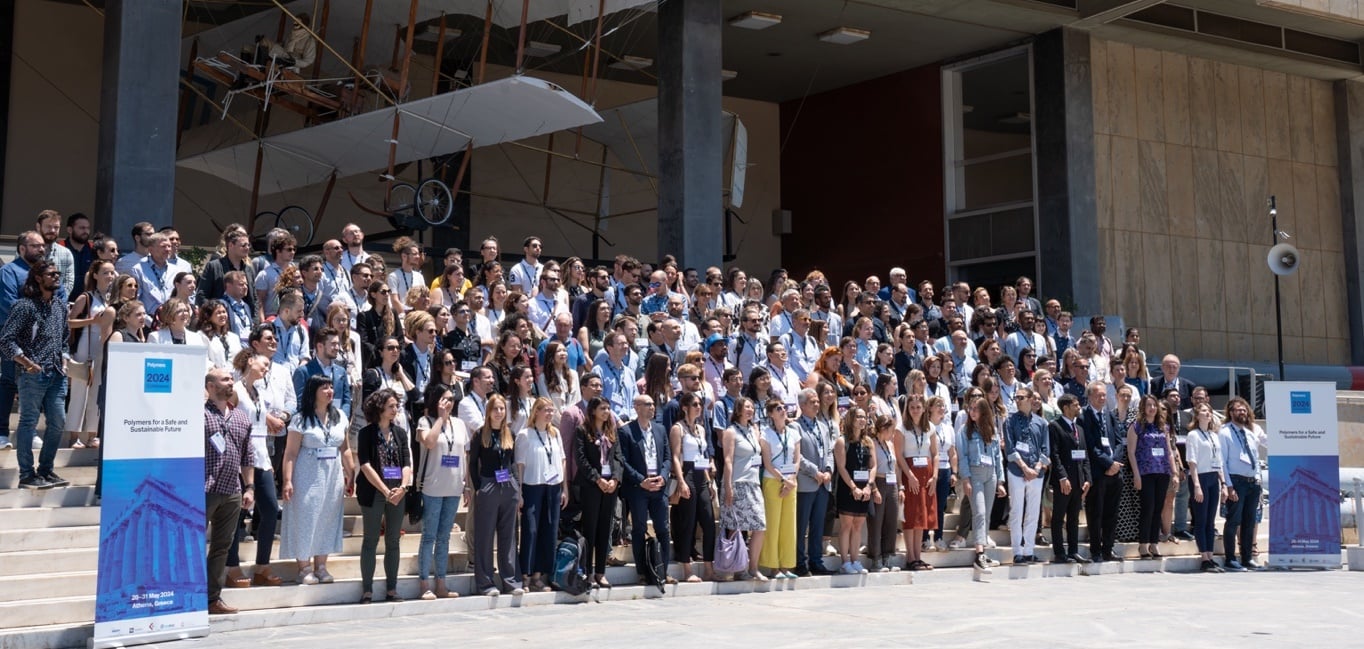
The conference featured three keynote speakers and 12 invited speakers, including esteemed scholars from Europe, Asia, Africa, and Canada. It included 60 selected talks and 189 posters, chosen by the 24 members of the Scientific Committee along with the three Conference Chairs. The event explored the latest scientific advancements and innovations in polymer science, focusing on creating safe, sustainable, and environmentally friendly materials. Emphasizing green polymer chemistry and the use of bioresources, the conference promoted the synthesis of biobased and biodegradable polymers.
The conference featured esteemed scholars from Europe, Asia, Africa, and Canada
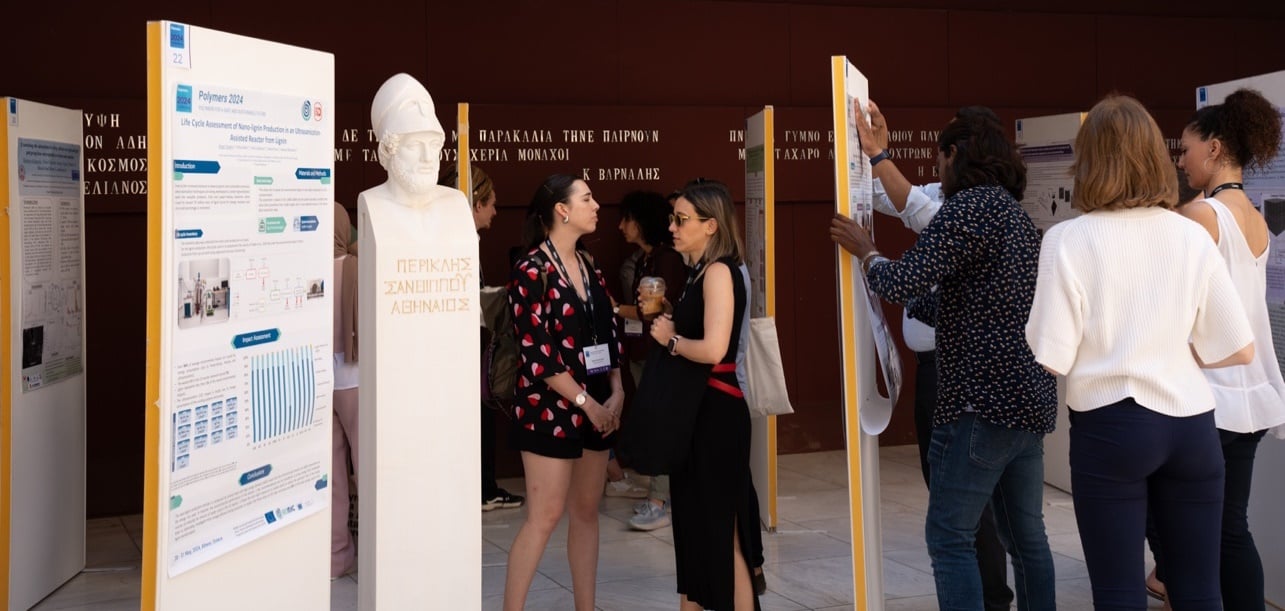
Conference awards
The conference also presented three awards: two sponsored by the journal Polymers – The Best Poster Award (€500) and the Best Oral Presentation Award (€600) – and one sponsored by Ossila, the Best Student Poster Award (€500).
Thank you to our 16 sponsors, three partnering societies (Hellenic Polymer Society, European Polymer Federation, and North American Thermal Analysis Society [NATAS]) and eight media partners.
Upcoming in-person event
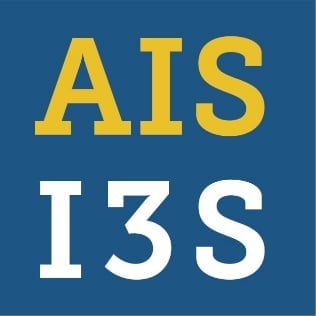
1–4 August, 2024
The 1st International Conference on AI Sensors & The 10th International Symposium on Sensor Science
Location: Singapore
The AI Sensors 2024 Conference will unite innovators and experts in the realms of sensors, sensing technology, and artificial intelligence.
Find more upcoming MDPI events here.
Closing Thoughts
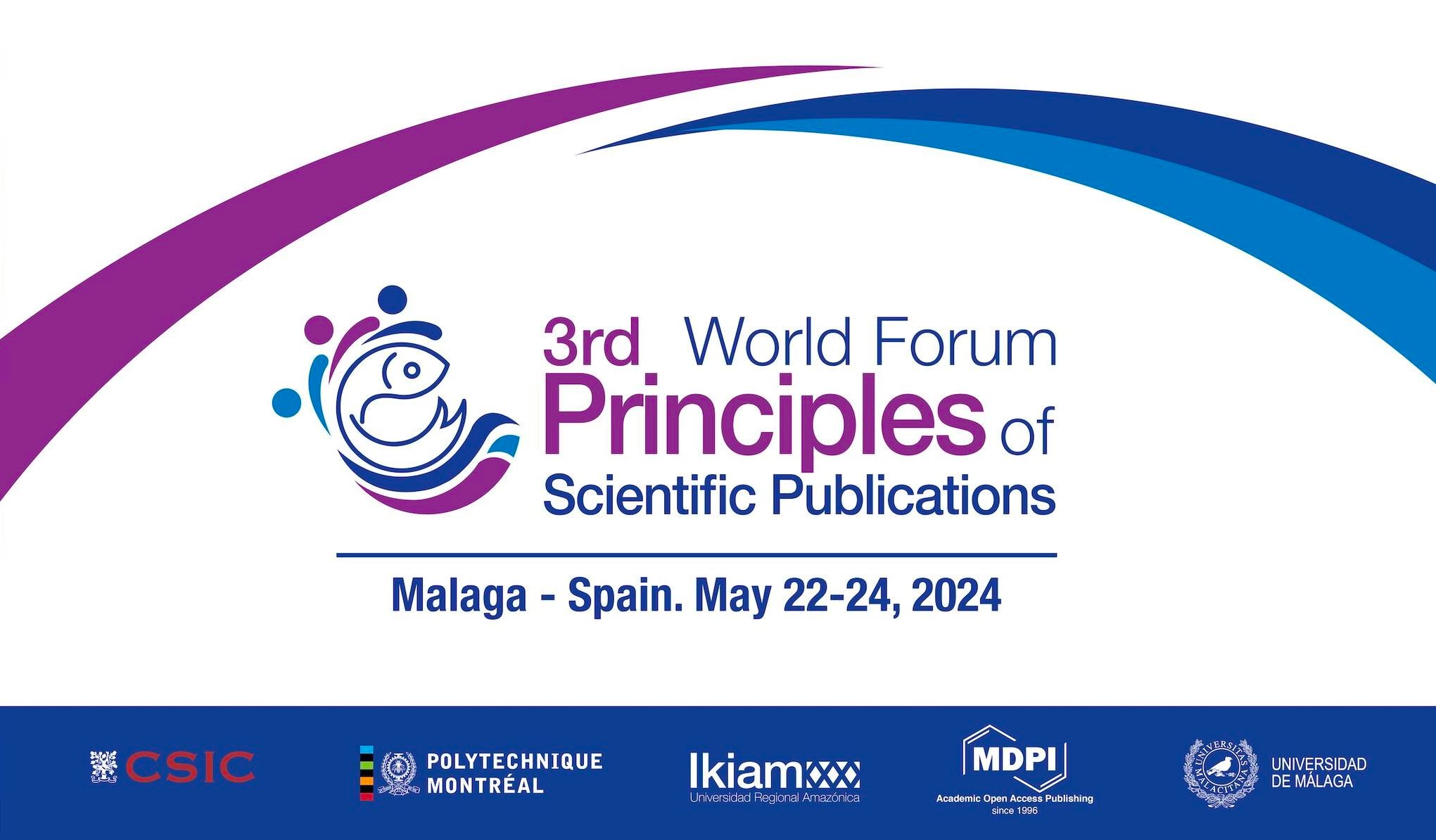
3rd World Forum Principles of Scientific Publications
I’m pleased to share that MDPI sponsored and attended the 3rd World Forum on Principles of Scientific Publications, which took place from 22–24 May in Malaga, Spain. The event brought together academic professionals and leading researchers to discuss critical topics in the realm of publishing and research. Presentation topics included Open Science, AI in Publishing, Predatory Journals, Fake Publications, Challenges for Non-native English Speakers, and more.
“It was great to see strong support from MDPI authors in the audience”
MDPI presentations
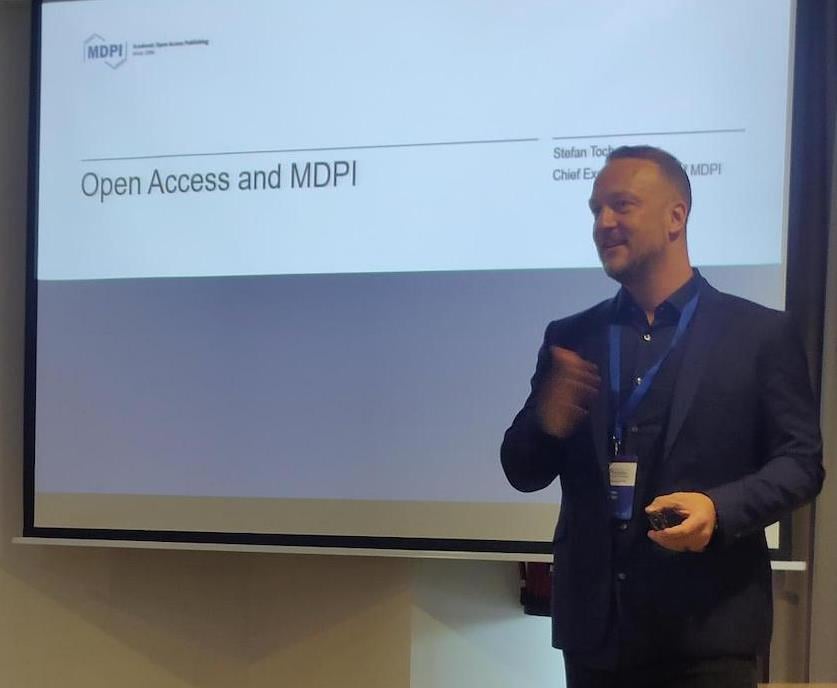
Stefan Tochev (CEO, MDPI) presenting at the 3rd World Forum Principles of Scientific Publications
I had the privilege of attending and presenting at the event, along with my colleague Dr. Enric Sayas (Business Analyst, MDPI) from our Barcelona office, who explored the ethical concerns and opportunities brought by AI in publishing.
I took the opportunity to present on Open Science, the benefits of Open Access, and MDPI’s performance, operations, and investment in ethics. Special thanks to Evan Escamilla (Project Manager, MDPI Books) and Facundo Santomé (Sr. Marketing Manager, MDPI) who also joined the conference.
It was great to see strong support from MDPI authors in the audience who shared their positive experiences publishing with us. Their story reflects the experience of the vast majority of authors who choose to work with MDPI.
We also encountered some conservative views on OA, which created an opportunity for open discussion aimed at addressing concerns about OA and MDPI. Engaging in such discussions is important, as scepticism sometimes arises from misinformation or from a misunderstanding of who we are and how we operate. When we engage in open and honest discussion, we tend to see people getting a better understanding of MDPI, which helps address any misconceptions they may have had.
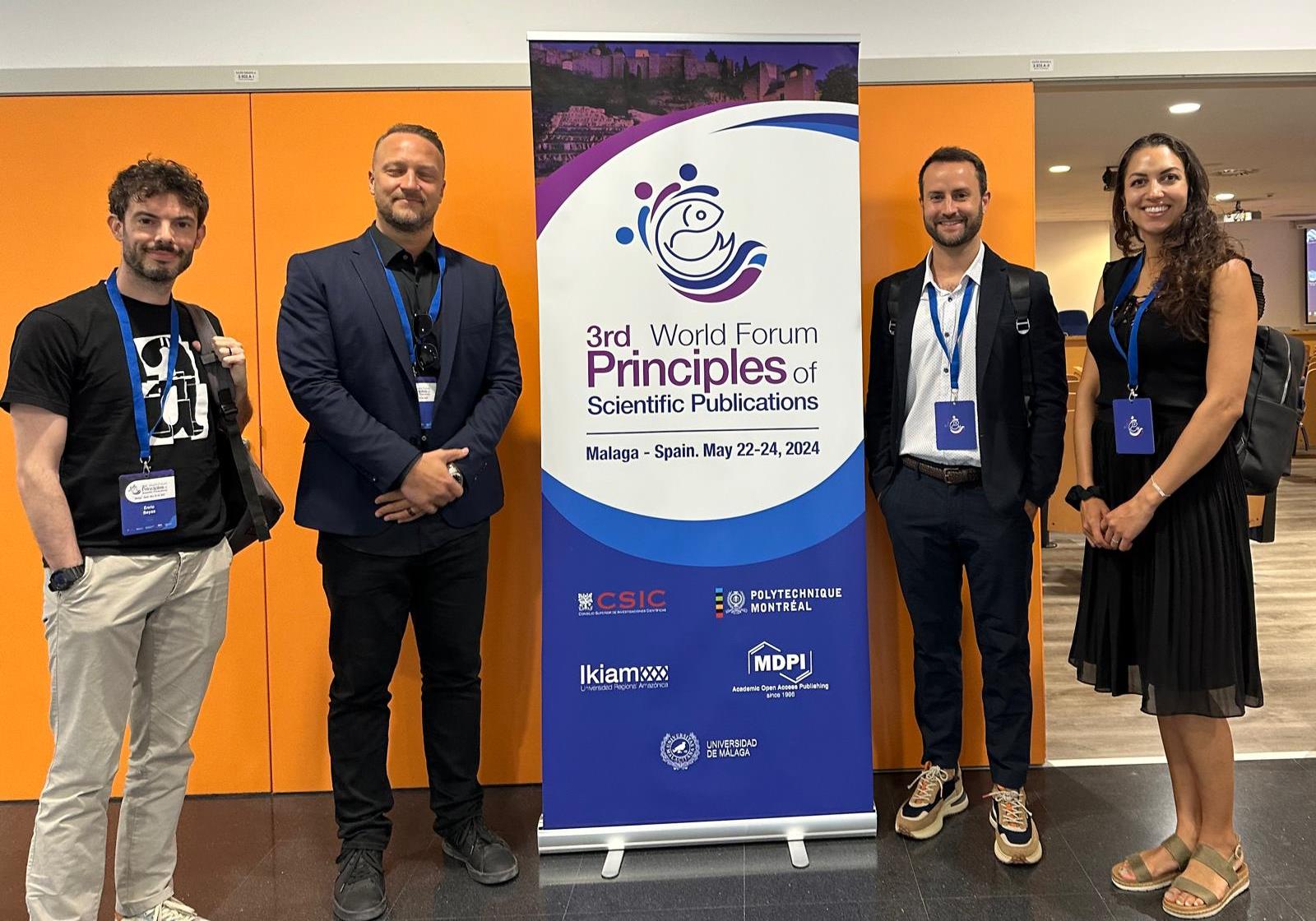
Left to right: Dr. Enric Sayas (Business Analyst, MDPI), Stefan Tochev (CEO, MDPI), Facundo Santomé (Sr. Marketing Manager, MDPI), and Evan Escamilla (Project Manager, MDPI Books) at 3rd World Forum Principles of Scientific Publications
Chief Executive Officer
MDPI AG
31 May 2024
Meet Us at the 10th Congress of the European Academy of Neurology, 29 June–2 July 2024, Helsinki, Finland

MDPI will attend the 10th Congress of the European Academy of Neurology, held in Helsinki, Finland, from 29 June to 2 July 2024, at booth #E28. We invite researchers from different backgrounds to visit and share their latest ideas with us.
The EAN Congress covers “big diseases” such as multiple sclerosis, movement disorders, headache, muscle disorders, epilepsy, dementia, and stroke, as well as breakthrough research on rare diseases. This edition will celebrate 10 years of the EAN with over 8000 professionals. The 10th EAN Congress's overarching theme is “Neuromodulation: Advances and Opportunities in Neurological Diseases”. Leading specialists will tackle hot topics in invasive and non-invasive neuromodulation in movement and cognitive disorders, chronic pain, and refractory epilepsy. The current state and future directions of neuromodulation will be addressed with relevant questions regarding which techniques are available as diagnostic tools or therapeutic interventions; how to precisely target specific cortical regions, deep brain structures, and head nerves for therapeutic purposes; and how to advance neuromodulation in new areas of neurology such as chronic minimally conscious state or limb prosthesis.
The following MDPI journals will be represented at the conference:
- Biomedicines;
- Clinical and Translational Neuroscience;
- Brain Sciences;
- Biomolecules;
- Cells;
- Current Issues in Molecular Biology;
- Diagnostics;
- Genes;
- Healthcare;
- International Journal of Translational Medicine;
- Journal of Clinical Medicine;
- Life;
- Muscles;
- Methods and Protocols;
- Neuroglia;
- Neurology International;
- Vaccines.
If you are planning to attend the conference, please feel free to start a conversation with us at our booth #E28. Our delegates look forward to meeting you in person and answering any questions you may have. For more information about the conference, please visit the following website: https://www.ean.org/congress2024.
31 May 2024
Meet Us at the FENS Forum 2024, 25–29 June 2024, Vienna, Austria

Conference: FENS Forum 2024
Date: 25–29 June 2024
Location: Vienna, Austria
MDPI will be attending FENS Forum 2024 as an exhibitor; we welcome researchers from different backgrounds to visit and share their latest ideas with us.
This conference has been organized by the Federation of European Neuroscience Societies (FENS), the Austrian Neuroscience Association (ANA) and and the Hungarian Neuroscience Society. The FENS Forum is Europe’s largest neuroscience congress, covering all areas of neuroscience from basic to translational research.
The following MDPI journals will be represented:
- Brain Sciences;
- Journal of Clinical Medicine (JCM);
- Cells;
- NeuroSci;
- Neuroglia;
- Biomedicines;
- Neurology International;
- Behavioral Sciences;
- Psychoactives.
If you are planning on attending this conference, please do not hesitate to contact us. Our delegates look forward to meeting you in person at booth #1003, and answering any questions that you may have. For more information about the conference, please visit the following website: https://www.fens.org/meetings/fens-forum/upcoming-fens-forums.
23 May 2024
Transfer Service in MDPI
We are pleased to announce MDPI’s Transfer Service.
This service provides a convenient method of transferring your manuscript file, along with any reviewer comments, to another journal within our publishing portfolio.
We are committed to helping authors find the right home for their research, and we will provide authors with guidance and technical support through all stages of the transfer process. Authors will be able to choose to transfer in the following two situations:
1. Select alternative journals on submission.
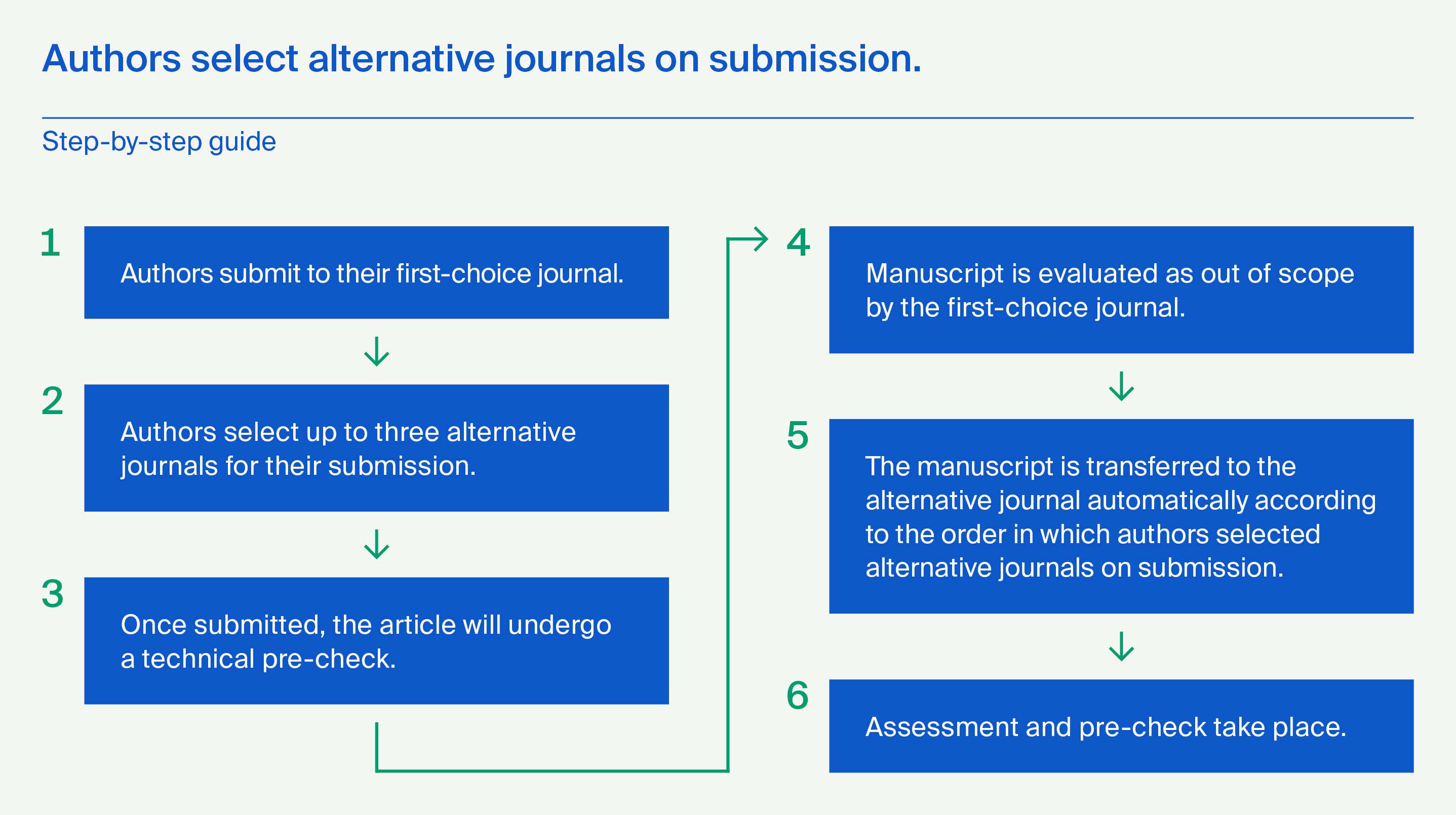
2. Authors are encouraged to transfer manuscripts to other MDPI journals.
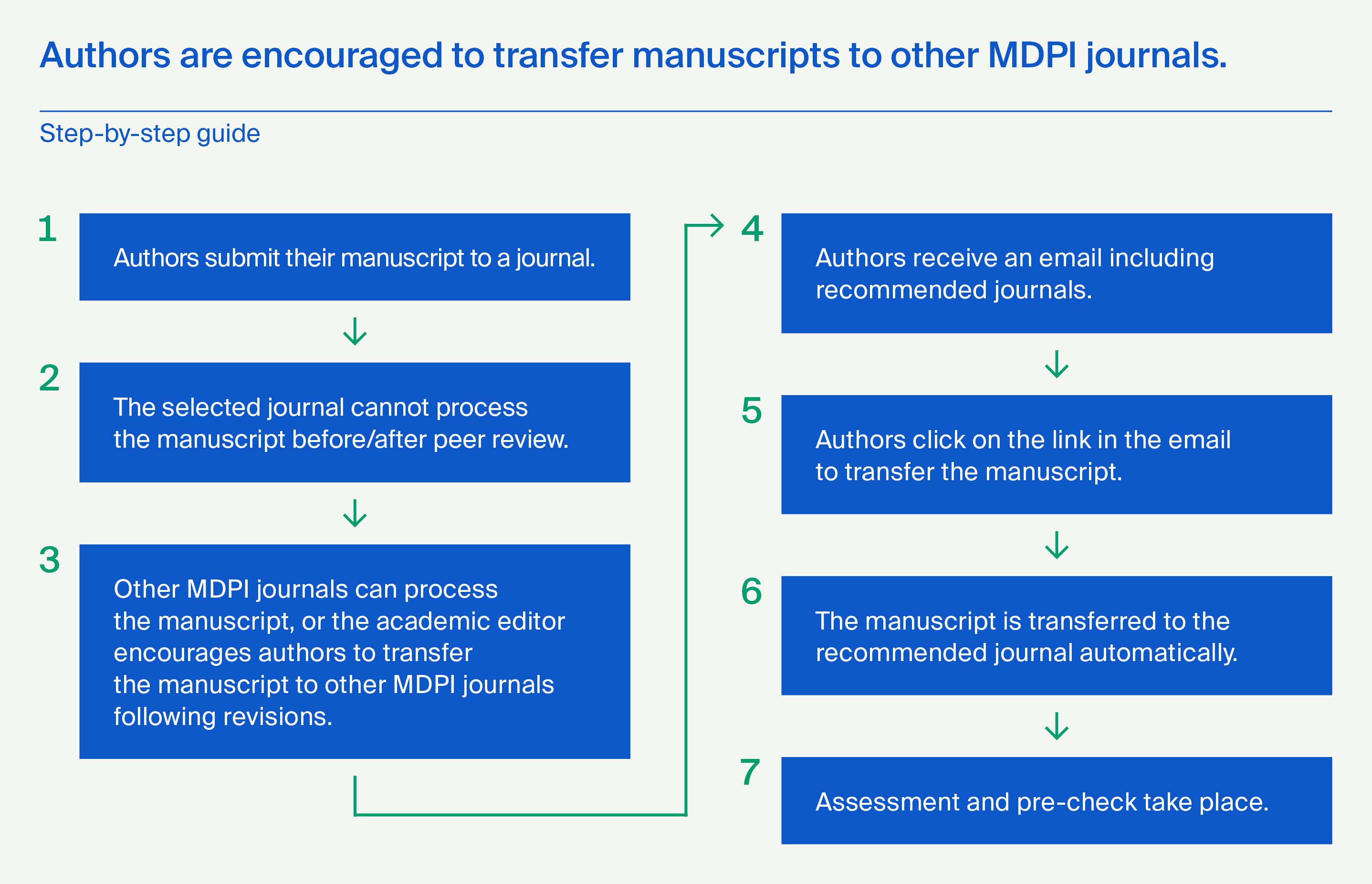
More details about the Transfer Service can be found at the following link:
20 May 2024
Biomedicines Webinar | Emerging Trends in Pathophysiology and Therapy of COVID-19, 4 June 2024

Although the worst of the SARS CoV-2 pandemic is behind us, many questions and issues persist. Systemic manifestations due to COVID-19 infections and long COVID continue to emerge in multiple countries. There are a few new USA FDA-approved vaccines available in addition to the Moderna, Pfizer, and Johnson and Johnson ones, but vaccine effectiveness and immunologic memory appear to be limited in most patients. Therapies are available and should be incorporated into treatment plans for COVID-19 patients. Although the focus of these therapies is on hospitalized COVID-19 patients, orally delivered medications are now administered by health care providers.
This webinar will present discussions on these issues, as well as emerging trends, to understand COVID-19 infections and transmissibility more fully.
Date: 4 June 2024 at 5:00 CEST | 11:00 a.m. EDT | 11:00 p.m. CST Asia
Webinar ID: 828 4947 7200
Webinar Secretariat: [email protected]
Webinar Announcement: https://sciforum.net/event/Biomedicines-14
After registering, you will receive a confirmation email containing information on how to join the webinar.
Registrations with academic or institutional email addresses will be prioritized.
Unable to attend? Feel free to still register, and we will inform you when the recording is available.
Register now for free!
|
Speaker/Presentation |
Time in CEST |
Time in EDT |
|
Prof. Dr. Jon Suzuki |
5:00 p.m.–5:30 p.m. |
11:00 a.m.–11:30 p.m. |
|
Dr. Rosalinda Sorrentino |
5:30 p.m.–5:50 p.m. |
11:30 a.m.–11:50 p.m. |
|
Prof. Dr. Stefano D’Errico |
5:50 p.m.–6:10 p.m. |
11:50 p.m.–12:10 p.m. |
|
Dr. Mariana D’Alessandro |
6:10 p.m.–6:20 p.m. |
12:10 p.m.–12:20 p.m. |
|
Dr. Sara Gangi |
6:20 p.m.–6:30 p.m. |
12:20 p.m.–12:30 p.m. |
|
Q&A Session |
6:30 p.m.–6:45 p.m. |
12:30 p.m.–12:45 p.m. |
|
Prof. Dr. Jon Suzuki Closing of Webinar |
6:45 p.m.–6:50 p.m. |
12:45 p.m.–12:50 p.m. |
Webinar Chair and Keynote Speakers:
- Jon Suzuki (Chair), 1University of Maryland, USA, 2University of Washington, USA, 3Nova Southeastern University, USA, 4Temple University, USA;
- Rosalinda Sorrentino, University of Salerno, Italy;
- Stefano D’Errico, University of Trieste, Italy;
- Miriana D’Alessandro, University of Siena, Italy;
- Sara Gangi, University of Siena, Italy.
Relevant Special Issue:
“Emerging Trends in Pathophysiology and Therapy of COVID-19”
Guest Editors: Dr. Jon Suzuki and Dr. Miriam Ting
17 May 2024
Tu Youyou Award—Open for Nominations
In acknowledgment of the groundbreaking achievements of Professor Tu Youyou, the Nobel laureate credited with the discovery of artemisinin, MDPI is proud to announce the Tu Youyou Award. This award, inaugurated in 2016, seeks to honor scholars who excel in the fields of natural products chemistry and medicinal chemistry.
Prize:
- CHF 100,000 in total (If there is more than one winner, the prize will be divided equally amongst the winners);
- An award medal for each winner.
Who should be nominated?
- Scientists with outstanding achievements and contributions in the fields of natural products chemistry and medicinal chemistry.
Who can submit a nomination?
- Academic research institutes
- Universities
- Academic societies
Any personal nominations are not accepted.
How do I submit a nomination?
Candidates’ institutional affiliations need to submit their nominations for final candidates to the Tu Youyou Award Team directly by email after internal screening, and each institution can only nominate a maximum of two candidates for each edition of the Tu Youyou Award. Please note that the nominations cannot be modified once they are submitted and confirmed by the Tu Youyou Award Team.
Required nomination materials:
Nomination Form (Download)
Schedule:
Nomination deadline: 31 December 2024;
Winner announcement: 30 April 2025.
Contact:
Tu Youyou Award Team ([email protected])
More information can be found on the Tu Youyou Award official website. For any inquiries, do not hesitate to contact the Tu Youyou Award Team.
16 May 2024
MDPI Romania Author Training Academic Events in April
MDPI Romania sponsored four events over the month of April, contributing author training sessions to each event.
The NutriSciLabs 2024 conference was held at the Carol Davila University of Medicine and Pharmacy on 12 April 2024. Organized by the Association of Students from the Faculty of Pharmacy Studies, the conference aimed to enhance students’ academic writing and research skills, and bolster their confidence in participating in the academic world. Ioana Paunescu, journal relations specialist for MDPI Romania, led the training session. Paunescu first outlined MDPI’s history and core values, then explained academic writing techniques, ethics, and similarity percentages. The presentation covered the entire editorial process, highlighting the amount of attention paid to details throughout manuscript processing. Paunescu also discussed common errors that authors make while writing, and how to avoid such errors.
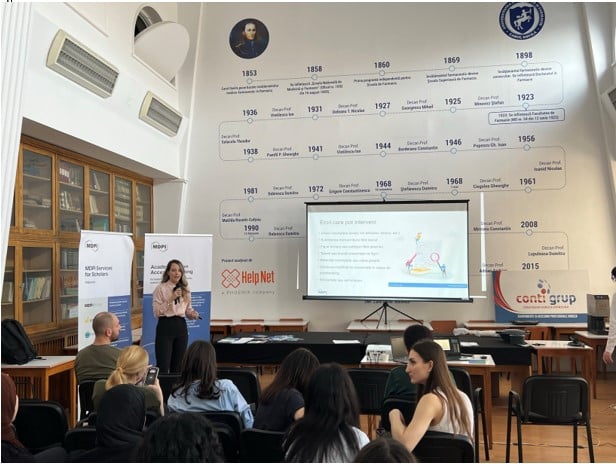
On 13 April 2024, the NextGEN 2.0 Student Conference took place at the Babes-Bolyai University of Cluj-Napoca. NextGen Healthcare organized this event with the university’s European Students’ Society to discuss European and international current affairs. MDPI Romania contributed an author training session called Steps of the Publication Process. Irina Codruta Zaharia, journal relations specialist, began the session with a general introduction of MDPI before diving into different article types, different layout formats, possible journals to submit to, the MDPI submission checklist, and the MDPI editorial process. By explaining the fundamentals of writing and publishing academic papers, Zaharia imparted valuable industry knowledge to the curious minds present. Participants were eager to engage with Zaharia in the subsequent Q&A session.
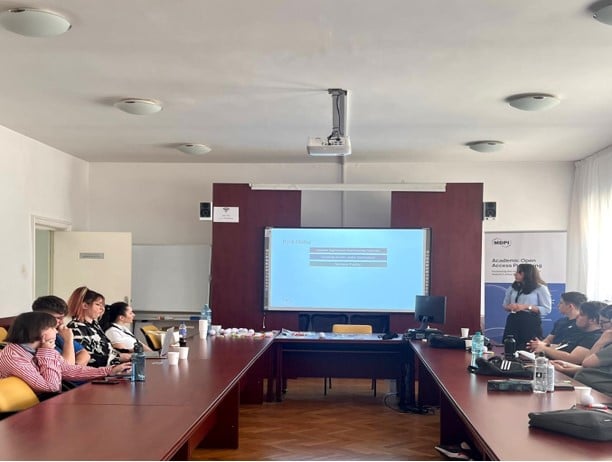
Celebrating its 20th anniversary this year, the International Conference “Students for Students” has long been a gathering place for undergraduate and postgraduate students of all nationalities to present their work and exchange ideas with each other. This year’s conference was held on 18 April 2024, with MDPI Romania contributing an author training session called The World of Open Access. Key speakers included Dr. Norbert Kiss from MDPI Romania and Prof. Dragos Horvath from Strasbourg University. Dr. Kiss discussed the history of open access, differences between open access publishing and traditional publishing, and implications for open access in the future. Attendees expressed keen interest in the subject, approaching Dr. Kiss with questions about academic publishing as well as his career trajectory.
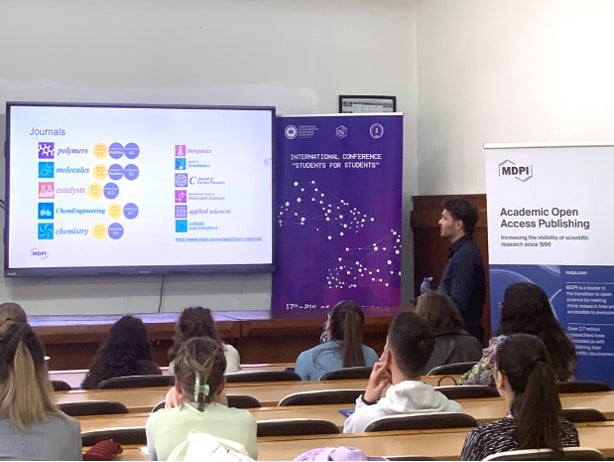
Most recently, on 26 April 2024, MDPI Romania sponsored the National Symposium of Students from Geology and Geophysics Faculties. The AAPG Students Chapter at the Babes-Bolyai University organized this event as an opportunity for geology students from all Romanian universities to present their work and confer with other researchers. Dr. Kiss gave his lecture The World of Open Access at this event as well.
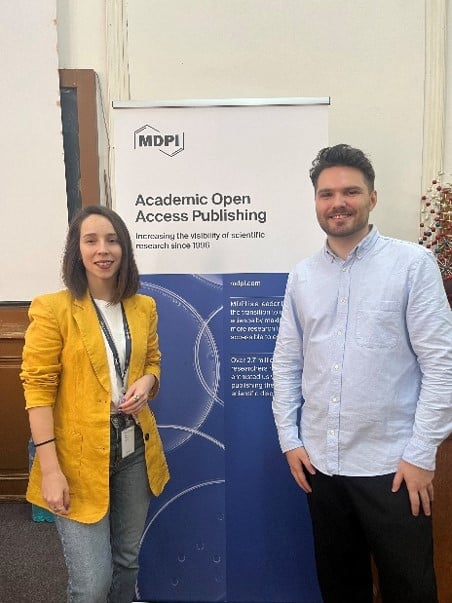
MDPI is thankful to all the participants, speakers, and organizers who attended these events. Through their enthusiasm and dedication, these events were great successes.
13 May 2024
Meet Us at the 34th CCS Congress, 15–18 June 2024, Guangzhou, China

MDPI will attend the 34th CCS Congress, which will be held in Guangzhou, Guangdong Province, China, from 15 to 18 June 2024. Registration for the event opens on 14 June.
This annual congress is hosted by the Chinese Chemical Society (CCS). With the support and active participation of chemists across the country, the annual academic conference of the Chinese Chemical Society has continued to expand in scale and influence and has become a comprehensive academic exchange platform with the most comprehensive categories, the largest scale, and the highest level in chemistry and related fields. The theme of the 34th CCS Congress is “Toward Higher Quality Chemistry Research”. It has established 70 academic branches. The forms of academic exchange include conference plenary reports (PL), keynote reports (KN), invited reports (I), oral reports (O), flash reports (F), and poster reports (P). The annual meeting collects academic papers (abstracts) from chemists. Workers in scientific research, teaching, and industry in chemistry and related fields are welcome to submit papers and actively participate in the meeting.
A series of colorful forums, continuing education, and other activities will be held simultaneously during the annual meeting. An exhibition will also be held, inviting the support and active participation of relevant universities and research institutes, enterprises, book publishing, and academic journals.
The following MDPI journals will be represented at the conference:
- Molecules;
- International Journal of Molecular Sciences;
- Polymers;
- Biomedicines;
- Inorganics;
- Processes;
- Symmetry;
- Separations;
- Membranes;
- Materials;
- Reactions;
- Chemistry;
- Compounds;
- Biomolecules;
- Sustainable Chemistry;
- Chemosensors;
- Applied Sciences.
If you are planning on attending this conference, please do not hesitate to stop by our booth #B37 and start a conversation with us. Our delegates look forward to meeting you in person and answering any questions that you may have. For more information about the conference, please visit the following website: https://www.chemsoc.org.cn/meeting/34th/.
2 May 2024
MDPI Insights: The CEO's Letter #11 - 2023 Annual Report, MDPI Awards, STM

Welcome to the MDPI Insights: The CEO's Letter.
In these monthly letters, I will showcase two key aspects of our work at MDPI: our commitment to empowering researchers and our determination to facilitating open scientific exchange.
Opening Thoughts

2023 Annual Report
This is an exciting time of year at MDPI, as we have just released our annual report 2023, recapping the past year and sharing the progress and changes that took place during it.

Stefan Tochev (CEO, MDPI)
Reflecting on 2023, I can't help but think of the changes that have occurred not only at MDPI but also within our industry as a whole. In light of this, I’m reminded that change is the only constant, and that for a publishing enterprise that has experienced rapid growth, adapting to change becomes not only a necessity but also a catalyst for sustained success.
Looking back on the significant ground we covered in 2023, I am pleased to report that the year was marked by a rise in paper submissions, along with a range of initiatives aimed at improving our internal processes and delivering top services to our scientists.
2023 Top-line MDPI Numbers
An important priority for 2023 was to strengthen our editorial policies. Despite a notable increase in the number of papers submitted from 603,000 to 655,000 (+8.6%), there was a decrease in the number of papers published from 303,000 to 285,000 (-5.9%), consistent with the overall trend in the scholarly publishing market. MDPI’s market share in gold open access articles published reached 17% in 2023 (according to Dimensions data).
2023 Open Access Numbers
For over two decades, MDPI has been at the forefront of reshaping the academic publishing landscape, with OA surpassing subscription-based publishing in 2020. This trajectory is deeply rooted in our history and reflects our unwavering commitment to, and vision for, an open future. This momentum continued in 2023, with 39% of the 4.16 million articles and reviews published as gold full-OA, 15% as gold hybrid-OA, 8% as bronze-OA, and 3% as green-OA, relative to 35% behind a paywall. In terms of gold OA (full or hybrid) articles and reviews published, MDPI leads the way in terms of total articles published in 2023.
MDPI is the trusted and preferred OA publisher for the scholarly community
However, in 2023, we saw a downward trend in publication numbers compared to 2022. This trend was also seen in total OA publications. While the number of submissions increased, the decline in MDPI publications can be attributed to several factors, such as improved scrutiny in our peer-review process, including the evaluation of content scope and higher rejection rates, and a post-pandemic decrease in research related to COVID-19 papers.
Download 2023 MDPI Annual Report.
Access 2023 Digital Report.
Impactful Research

Recognizing Scholars – MDPI Awards
MDPI is committed to empowering young researchers as they embark on their careers. In 2023, our journals hosted a total of 400 awards, receiving 8,839 applications and nominations. The evaluation committees selected 959 winners, with the total budget for these awards amounting to CHF 546,500.
For more information about MDPI awards, applications, and winners, please click here
The following awards recognize scholars and the impact of their research, including Young Investigator Awards, Best PhD Thesis Awards, and Travel Awards for junior researchers.
MDPI Awards – The following awards require an application or a nomination.
Young Investigator Award (CHF 1000–2000 for each winner)
This award acknowledges the achievements of young investigators in research areas relevant to the journal’s scope. Candidates must have received their PhD no more than 10 years prior to the award announcement date and must be nominated.
Best PhD Thesis Award (CHF 500–800 for each winner)
This award recognizes young scholars who have completed outstanding PhD theses in research areas relevant to the journal’s scope. It aims to encourage them to continue their excellent work and make further contributions to their field.
Travel Award (CHF 500–800 for each winner)
This award encourages junior scientists to present their latest research at academic conferences relevant to the journal’s scope, thereby increasing their impact.
Distinguished Scholars
Additionally, 220 awards were granted to the most distinguished authors and reviewers in our journals through Best Paper Awards and Outstanding Reviewer Awards. The following awards are selected by the editorial staff of the journal and do not require an application or a nomination. They exemplify the excellent contributions made by our authors, reviewers, and editors.
These awards exemplify the excellent contributions made by our authors, reviewers, and editors
Best Paper Award (CHF 200–500 for each winner)
This award is granted annually to highlight publications of high quality, scientific significance, and extensive influence.
Outstanding Reviewer Award (CHF 500 for partial winners)
This award is given annually to recognize reviewers who generously contribute their time to reviewing papers and demonstrate thoroughness, professionalism, and timeliness in their reviews.
MDPI also offers awards for specific topics in various research fields:
Carbon Neutrality Award (CHF 500–800 for each winner)
Sponsored by MDPI journal Sustainability, this award recognizes applicants who have made exceptional academic or societal contributions to carbon neutrality, either in general or in relation to a specific carbon-neutrality-related issue.
Intelligent Manufacturing Award (CHF 500–800 for each winner)
Administered by MDPI journal Machines, this award is presented to an individual who has made outstanding academic or societal contributions to the field of intelligent manufacturing.
Granted: World Sustainability Awards
Inside MDPI

MDPI Opens Office in Seoul, Korea and Appoints Claude Seo as Office Manager
As CEO of the world’s leading OA publisher, I am pleased to announce the official opening of our Korean branch office. With this addition, MDPI now operates 21 offices in 12 countries worldwide, improving on our position as a truly global publisher. This expansion represents more than just an increase in our physical footprint; it is a pivotal step in our ongoing commitment to making scientific knowledge more accessible across the globe.
MDPI now operates 21 offices in 12 countries worldwide, improving on our position as a truly global publisher

Claude Seo (MDPI Korea Office Manager, Seoul)
Claude Seo, who has over 15 years of experience in the academic publishing industry, has been appointed as the Office Manager of the Seoul office. The launch of our Seoul office allows us to better support the Korean scientific community and to further promote the publication of OA journals in the region.
Reflecting on his role, Claude shared that he is:
“Delighted to have been entrusted with this position within MDPI, the no. 1 scholarly OA publisher. As we establish our presence in Korea, we are dedicated to integrating ourselves into the local community and contributing to its vibrant culture. Our commitment goes beyond business growth; it is about creating a more informed and innovative society by embracing and promoting diversity within the scientific community.”
Sungkyunkwan University Joins MDPI’s Institutional Open Access Program
Additionally, I am pleased to share that Sungkyunkwan University has joined MDPI’s Institutional Open Access Program (IOAP). This program offers free access to MDP’s online submission system for institutions and provides APC discounts to affiliated authors. Thirteen major Korean universities, including Sungkyunkwan University, Kyunghee University, Chung-Ang University, and the Catholic University of Korea, have adopted IOAP in Korea.
Learn more about MDPI’s collaboration in Korea in my previous CEO Letter, in which I recap our visit to Seoul, South Korea.
Coming Together for Science

4th MMCS: Harnessing the Power of New Drug Modalities
Our conference team successfully managed the 4th Molecules Medicinal Chemistry Symposium, held from 24–26 April in Barcelona, Spain. It was chaired by Prof. Dr. Diego Muñoz-Torrero from the Institute of Biomedicine (IBUB), University of Barcelona, Spain, and Prof. Dr. Simona Collina from the University of Pavia, Italy. In total, there were 84 accepted abstracts and 102 conference attendees from 22 different countries.
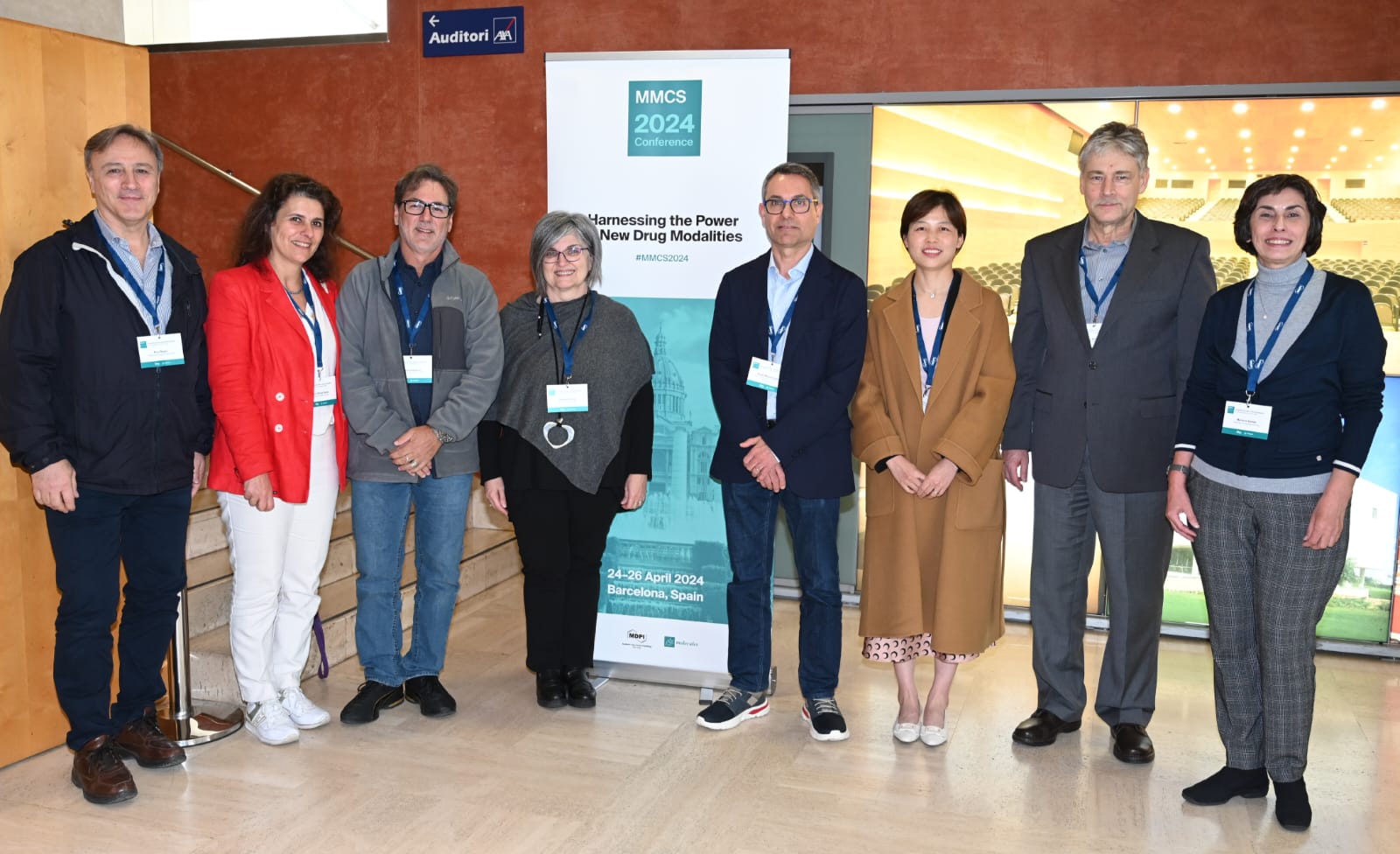
From left to right: Prof. Dr. Rino Ragno (Scientific Committee), Dr. Maria Emilia Sousa (Scientific Committee), Prof. Dr. Claudio Viegas Jr. (Scientific Committee), Prof. Dr. Simona Collina (Chair), Prof. Dr. Diego Muñoz-Torrero (Chair), Alvina Wu (Managing Editor, MDPI), Prof. Dr. Roman Dembinski (Scientific Committee), Prof. Dr. Mariana Spetea (Scientific Committee).
The event comprised 12 Invited Speakers, 35 Selected Talks, 10 Flash Poster Presentations, and 39 Posters. The overarching topic of the conference was the impact of the emergence of new drug modalities on drug discovery, with thematic sessions covering topics such as photoactivatable drugs, candidates targeting RNA and epigenetic targets, covalent modifiers, and the development of new anti-cancer agents, among other medicinal chemistry projects.
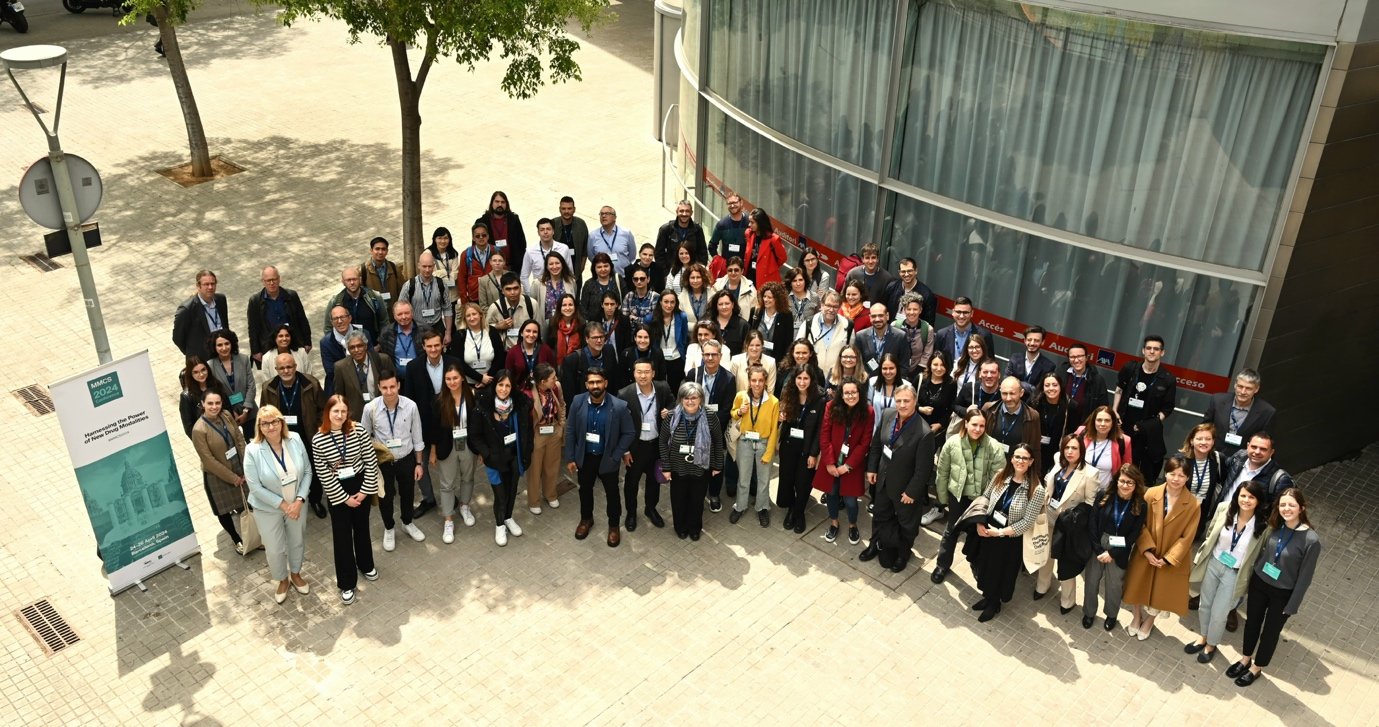
We are pleased to have received feedback from attendees highlighting the professional approach of the conference chairs and participants, the high quality of the talks, and the overall outstanding organization on the part of the MDPI conference team.
Thank you to the conference sponsors, Fluorochem and IBUB, and to our partnering societies, The Spanish Society for Biochemistry and Molecular Biology (SEBBM), and the Spanish Society of Medicinal Chemistry (SEQT).
Upcoming In-Person Event
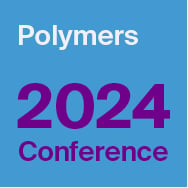
28–31 May, 2024
Polymers 2024 – Polymers for a Safe and Sustainable Future
Location: Athens, Greece
Conference Chairs: Prof. Dr. Dimitrios Bikiaris, Prof. Dr. Konstantinos Triantafyllidis, Dr. Ioanna Deligkiozi
We look forward to welcoming experts Prof. Damià Barceló, Prof. Minna Hakkareinen, and Prof. Armando J. D. Silvestre to this event.
Find more upcoming MDPI events here.
Organize Your Event with MDPI’s Sciforum
Sciforum is MDPI’s platform dedicated to the organization of scientific events. In line with our mission to promote science, Sciforum supports scholars, societies, research networks, and universities at all stages of organizing in-person events, virtual events and webinars. Our platforms are efficient, user-friendly, and cost-effective. We handle all steps related to event management. Contact us for details.
Closing Thoughts
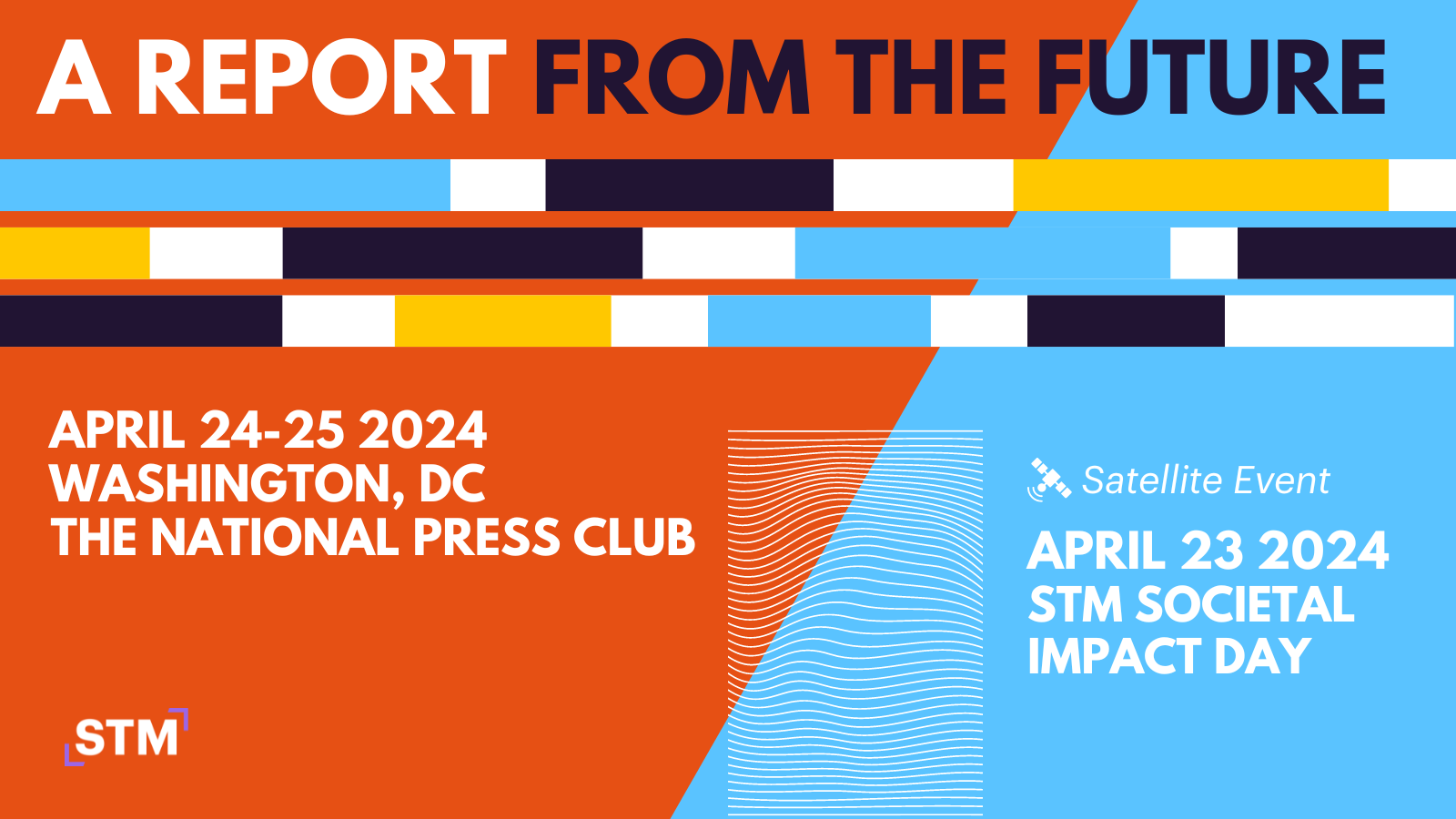
A Report from the Future – STM US Annual Conference 2024
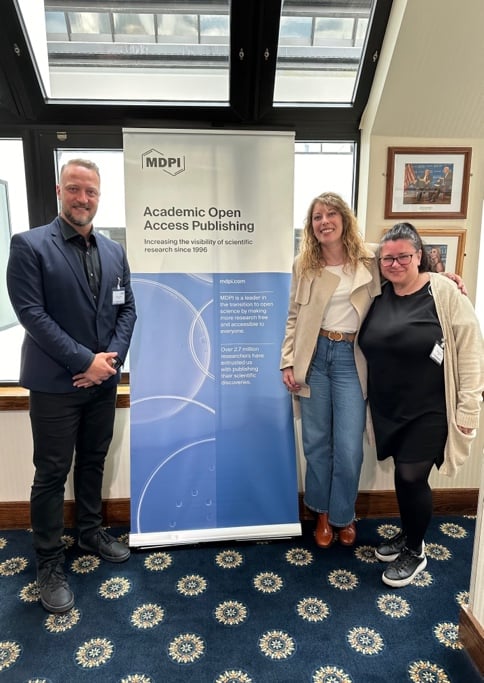
Stefan Tochev (CEO, MDPI), Dr. Giulia Stefenelli and Dr. Ioana Craciun from MDPI’s Scientific Office Board.
MDPI has for a long time been a sponsor of the STM Annual Conferences, held yearly in the US and Frankfurt, and is a trusted partner and supporter of the STM organization. While I have attended the Frankfurt conference for the past three years, this was my first time visiting the Washington, DC session, and I am glad I did.
Although it was a brief trip, I greatly appreciated the opportunity to attend in the company of my colleagues Dr. Giulia Stefenelli and Dr. Ioana Craciun from MDPI’s Scientific Office Board. They always help map some of the new industry trends against MDPI’s operational framework and guidelines. It’s a great group for kicking ideas back and forth on what we can apply at MDPI.
In my experience, STM never fails to deliver. It’s always a great conference for reconnecting with fellow publishers, industry friends, and vendors. As usual, STM this year curated a diverse range of speakers and panels, who proferred valuable knowledge and insights from outside our industry, delivering thought-provoking insights into our field. An example of this was the ‘Trust Panel’ session, which included Alan Schiffres (Managing Director, InfoLinx), who shared a number of the learnings about fraud and risk management from his 40 years in financial services, to help address some of the challenges we are currently facing in the area of publishing integrity.
Launch of STM Trends 2028 Panel
I particularly enjoyed the ‘Launch of STM Trends 2028 Panel’, which presented a report focused on the integration of humans and machines in scholarly publishing. The session highlighted themes such as AI, digitization, and the evolving research ecosystem. The report envisions a future where technology blurs the lines between human and machine involvement in research processes, with significant implications for trust, reputation, and equity. While this presents opportunities for connectivity and knowledge dissemination, it also poses challenges such as disinformation, fragmentation, and geopolitical tensions. We must rely on a wise combination of technology and human agency to navigate this complex landscape and will have to carefully examine its potential impacts on communication and scholarly publishing.
MDPI has joined the STM Integrity Hub. Click here to learn more.
While every presenter brought their own knowledge and personal touch, I was particularly pleased to encounter new speakers such as Heather Whitney (Research Assistant Professor, Radiology, University of Chicago) and Igor Grossmann (Professor of Psychology, University of Waterloo, Canada). Having studied Sociology at the University of Guelph, I have a soft spot for fellow social scientists from Canada, and I was very impressed by Igor’s presentation on ‘The Social Scientist: A View from the Future’ and his participation in the panel session ‘The Future Beyond the Article,’ which was one of my favourites from the conference, given the diversity of perspectives from the panel speakers.
Memorial Park in Washington, DC

On a personal note, this was my first-time visiting Washington, DC, and I’m glad we took an afternoon to visit the Memorial Park, with its incredible monuments to figures ranging from Martin Luther King, Jr. to Abraham Lincoln. The magnitude of the monuments is deeply impressive. I particularly appreciated the Thomas Jefferson memorial and the following quote, which I think speaks to the importance of change and adaptation. It’s something we can apply not only in our industry but also in our personal lives.
"I am not an advocate for frequent changes in laws and constitutions, but laws and institutions must go hand in hand with the progress of the human mind. As that becomes more developed, more enlightened, as new discoveries are made, new truths discovered and manners and opinions change, with the change of circumstances, institutions must advance also to keep pace with the times. We might as well require a man to wear still the coat which fitted him when a boy as a civilized society to remain ever under the regimen of their barbarous ancestors."
– Excerpted from a letter to Samuel Kercheval, July 12, 1816.
Chief Executive Officer
MDPI AG
30 April 2024
MDPI Opens Office in Seoul, Korea and Appoints Claude Seo as Office Manager

MDPI, the leading Open Access (OA) publisher, announced on Monday that it opened its Korean branch office on 29th April 2024. With this addition, MDPI now operates 21 offices in 12 countries worldwide. Claude Seo, with over 20 years of experience in the academic journal publishing industry, including Nature Publishing Group (NPG), has been appointed as the Office Manager of the Seoul office.
With the establishment of a Seoul office, MDPI aims to actively support Korea scientific communities to further promote the publication of OA journals in the region. As of the end of 2023, Korea ranked sixth worldwide in both submissions and publications of MDPI research papers. MDPI is the number one OA publisher in Korea.
Sungkyunkwan University Joins MDPI’s Institutional Open Access Program
In addition, MDPI announced that Sungkyunkwan University joined MDPI’s Institutional Open Access Program (IOAP). This program offers free access to MDPI online submission system for the institutions and APC discounts to affiliated authors. Thirteen major Korean universities, including Sungkyunkwan University, Kyung Hee University, Chung-Ang University and Catholic University of Korea, have adopted IOAP in Korea.
OA aims to break down barriers that have traditionally restricted access to science, ensuring that knowledge is available to all, regardless of financial situation or institutional affiliations. Authors, academia, and scientific communities are rapidly moving toward OA. MDPI has been at the forefront of reshaping the academic publishing landscape, with OA surpassing subscription-based publishing in 2020.
MDPI CEO Visits Seoul, Korea
In March, Stefan Tochev, Chief Executive Officer (CEO) of MDPI, visited Korea and met with various stakeholders including government agencies, research and academic institutions, universities. During his visit, Stefan highlighted that MDPI continues to pave the way for a world where science is accessible to all, supporting a global community of inclusive innovation and collaborative solutions.
Stefan expressed excitement about the new venture, stating, "Today marks a significant milestone for MDPI as we celebrate the opening of our new office in Seoul, Korea. This expansion is more than just an increase in our physical footprint, it is a pivotal step in our ongoing commitment to making scientific knowledge more accessible, participatory, and inclusive across the globe."
Claude Seo, reflecting on his new role, commented, "I am delighted to have been offered this position of trust within MDPI, the no. 1 scholarly OA publisher. As we establish our presence in Korea, we are dedicated to integrating into the local community and contributing to its vibrant culture. Our commitment goes beyond business growth; it is about creating a more informed and innovative society by embracing and promoting diversity within the scientific community.”
For further inquiries, please contact our Seoul office directly.
About MDPI
A pioneer in scholarly, open access publishing, MDPI has supported academic communities since 1996. MDPI is leading the transition to open science by making more research free and accessible to everyone. Over 3.3 million researchers have entrusted MDPI with publishing their scientific discoveries. MDPI’s editorial process is bolstered by a network of dedicated reviewers, a team of 6000 diligent, well-trained staff members, and an in-house article submission platform that was designed to ensure efficient processes within its 430 fully OA titles.
24 April 2024
Biomedicines Webinar | Pharmacokinetics and Pharmacogenetics in Treating Infections, 10 May 2024

The new era in systems pharmacology has revolutionized the study of human biology. Its applicability, precise treatment, adequate response, and safety measures are all relevant to medical/clinical practice, particularly in the field of infectious diseases, given the dramatic increase in the prevalence of multi-drug-resistant organisms in the last 10 years.
Due to this background, immediate and appropriate anti-infective therapy—defined as the timely commencement of pharmacological treatment with an appropriate strength for the pathogen(s)—is mandatory in improving the clinical outcomes of infected patients and limiting/preventing the development of resistance.
Consistent and solid evidence is accumulating showing that the successful treatment of severe infections is based on the selection of the most appropriate anti-infective agents that ensure adequate exposure, whilst taking into consideration both the patient’s pathophysiological changes and the physicochemical properties of the drug administered to reach the optimal pharmacokinetic/pharmacodynamic (PK/PD) targets. This is particularly true for antibiotics, since underdosing may result in treatment failure, thereby increasing the likelihood of the development of antimicrobial resistance. The achievement of optimal anti-infective exposure is difficult in clinical practice because most of these drugs are administered according to standard dosing regimens, which do not take into account the pathophysiologic, iatrogenic, and/or genetic factors that are likely to affect both the pharmacokinetics and pharmacodynamics of anti-infective agents in different real-life settings.
Accordingly, in this webinar, we will mainly deal with the main clinical, pharmacologic, and pharmacogenetic sources of variability in the exposure and clinical response to anti-infective agents, with a specific focus on the role of therapeutic drug monitoring and pharmacogenetic testing as reliable diagnostic tools in the daily management of in- and out-patient settings.
Finally, the potential role of fast-track pharmacology at the bedside will also be proposed.
Date: 10 May 2024 at 3.00 p.m. CEST | 9:00 a.m. EDT | 9:00 p.m. CST Asia
Webinar ID: 893 0899 5947
Webinar Secretariat: [email protected]
Sciforum webpage: https://sciforum.net/event/Biomedicines-13
Register now for free!
|
Speaker/Presentation |
Time in CEST |
Time in EDT |
|
Prof. Jessica Cusato Chair Introduction |
3:00–3:10 p.m. |
9:00–9:10 p.m. |
|
Dr. Dario Cattaneo Pharmacokinetics of Anti-Infectives at the Bedside |
3:10–3:30 p.m. |
9:10–9:30 p.m. |
|
Prof. Jessica Cusato The Role of Clinical Pharmacogenetics in Infectious Diseases |
3:30–3:50 p.m. |
9:30–9:50 p.m. |
|
Q&A Session |
3:50–4:05 p.m. |
9:50–10:05 p.m. |
|
Prof. Jessica Cusato Closing of Webinar |
4:05–4:10 p.m. |
10:05–10:10 p.m. |
After registering, you will receive a confirmation email containing information on how to join the webinar. Registrations with academic institutional email addresses will be prioritized.
Unable to attend? Register anyway and we will inform you when the recording is available.
Webinar Chair and Keynote Speakers:
- Jessica Cusato (Chair), Department of Medical Sciences, University of Turin, Italy;
- Dario Cattaneo, Sacco Hospital, Milan, Italy.
23 April 2024
Interview with Dr. Joaquim Carreras—Winner of the Biomedicines 2023 Outstanding Reviewer Award
We are delighted to announce that we had the opportunity to interview Dr. Joaquim Carreras, a winner of the Biomedicines 2023 Outstanding Reviewer Award. Join us as we delve into his experiences as a reviewer and his insights into collaborating with Biomedicines.

Name: Dr. Joaquim Carreras
Affiliation: Department of Pathology, Faculty of Medicine, School of Medicine, Tokai University, Tokyo, Japan
Research Interests: artificial intelligence; molecular histopathology; pathology; neoplasia; inflammatory diseases; biomarkers; immune checkpoints; immuno-oncology; health care informatics; diagnosis and treatment
The following is an interview with Dr. Joaquim Carreras:
1. Can you please tell us a little more about yourself and your current research?
I am a pathologist with a medical degree from the University of Barcelona, Spain. My medical specialization focused on pathology. I completed residency training in pathology at the Hospital Clinic of Barcelona, Spanish Ministry of Health. My Ph.D. was in hematopathology from the Department of Pathology, Faculty of Medicine, University of Barcelona. I worked as a pathologist in Spain, as a medical research associate at the University of Cambridge (UK), and at the Biomedical Research Institute of the National Institute of Advanced Industrial Science and Technology (AIST) Tsukuba Central (Japan). I am currently at Tokai University, School of Medicine. My fields of research are immuno-oncology, inflammatory diseases, and molecular pathology. I focus on hematological neoplasia (lymphoma) and molecular histopathology studies. As a pathologist, I have always been interested in digital image analysis and, in the past years, in the application of AI in the medical field.
2. Can you please share with us your thoughts upon winning the award?
It was unexpected. It made me happy because the work of the reviewers is voluntary but necessary in science. Science needs peer review to be more reliable and trustworthy. This work is done by academics who volunteer, as not all academics perform peer review. I must note that, when I received the award, I was preparing for a meeting, so I didn’t have much time to enjoy. However, I am grateful to MDPI for the award because sometimes the work of reviewers is taken for granted (and it has a cost in terms of invested time).
3. In your opinion, what are some of the qualities necessary for being a reviewer?
The most important thing is to keep an open mind, be constructive in the feedback, and be aware of your capabilities. You must avoid conflicts of interest with the authors; this can be difficult. When searching for reviewers, the editors of the journals may search for other researchers who have published similar studies in recent years. However, the risk is that the reviewers will be competitors, and the review will be biased by this fact. This is why I think reviewers should have some knowledge in the field of the article, but not too much. It is interesting that lately, in the MDPI review form, you are asked to confirm that you have not used AI (e.g., generative AI) to perform the review. We are in challenging times as some researchers have taken advantage of AI to create papers. Previously, I had never thought you could use AI during the review process. A turning point in AI has been the release of OpenAI’s ChatGPT, which is a trained conversational model. It is important to point out that thinking and making our own decisions are what makes us human. Letting machines think for us makes us less free and less conscious. Therefore, no machine should be made in the likeness of the human mind.
4. Can you share some highlights of your experience as a reviewer for Biomedicines, and how it has enriched your understanding of the latest advancements in biomedicine?
Some articles are quite multidisciplinary, and you may find that you are not an expert in all types of experiments and analyses that are shown in the article. This can be challenging. However, by revising the papers, you can update your knowledge and learn. The medical field can be conservative sometimes, and journals that accept the most innovative research are necessary.
5. As someone deeply involved in the peer-review process at Biomedicines, how do you perceive the journal's impact on shaping the future direction of research and innovation in the field of biomedicine?
This journal is multidisciplinary, and there are many mechanistic studies. Therefore, in my view, Biomedicines lies between human pathology and drug development. The journal addresses the challenges in bringing biological agents or novel targeted strategies to clinical practice. Therefore, it focuses on laboratory medicine research, translational medical research, and comprehensive preclinical studies.
10 April 2024
Meet Us at the 48th FEBS Congress, 29 June–3 July 2024, Milan, Italy

Conference: The 48th FEBS Congress
Date: 29 June–3 July 2024
Location: Milan, Italy
MDPI will be attending the 48th FEBS Congress at Booth #30, and we welcome researchers from different backgrounds to visit us and share their latest ideas.
The Italian Society of Biochemistry and Molecular Biology (SIB), founded in 1951, will host the event. The 48th FEBS Congress—“Mining biochemistry for human health and well-being”—welcomes scientists from Europe and other parts of the world.
The 48th FEBS Congress will present a broad-spectrum and ground-breaking scientific program in a fruitful collaboration with FEBS journals and representatives from FEBS Constituent Societies. The SIB and biochemical community are focusing on human health and well-being through molecular and cellular science approaches; this is a key social issue amid ongoing global transitions. Besides presenting the latest and emerging developments in biochemical sciences, the Congress will include dedicated education-oriented sessions, symposia organized by young biochemists, and biochemistry-related economic discussions. Industry representatives will also give presentations on the latest advances in commercial instrumentation.
The following MDPI journals will be represented:
- Biomedicines;
- IJMS;
- JMP;
- Antioxidants;
- Applied Biosciences;
- BioMedInformatics;
- Biomolecules;
- Dietetics;
- Life;
- Medical Sciences;
- Molecules;
- Biology;
- Cancers;
- CIMB;
- Pharmaceutics.
If you plan to attend this conference, please start an online conversation with us. Our delegates look forward to meeting you in person and answering your questions. For more information about the conference, please visit the following website: https://2024.febscongress.org/.
8 April 2024
Meet Us at the 2024 ASCO Annual Meeting, 31 May–4 June 2024, Chicago, IL, USA

The 2024 ASCO Annual Meeting will take you to discover state-of-the-art research, groundbreaking treatments, and visionary insights, igniting your passion for oncology. This year's program will feature over 200 sessions, complementing Dr. Lynn Schuchter’s Presidential theme “The Art and Science of Cancer Care: From Comfort to Cure”.
The following MDPI journals will be represented:
- Cancers;
- JPM;
- Pharmaceutics;
- Healthcare;
- JCM;
- CIMB;
- Medical Sciences;
- Clinics and Practice;
- Onco;
- Current Oncology;
- Dermato;
- Pharmacy;
- Biomedicines;
- Diseases;
- Immuno;
- Biologics;
- Vaccines;
- Diagnostics;
- Hemato;
- Venereology.
If you are attending this conference, please feel free to start an online conversation with us. Our delegates look forward to meeting you in person at the booth at the conference and answering any questions you may have. For more information regarding the conference, please visit the following link: https://conferences.asco.org/am/attend.
2 April 2024
MDPI Insights: The CEO's Letter #10 - South Korea, IWD, U2A, Japan

Welcome to the MDPI Insights: The CEO's Letter.
In these monthly letters, I will showcase two key aspects of our work at MDPI: our commitment to empowering researchers and our determination to facilitating open scientific exchange.
Opening Thoughts

Left to right: Dr. Jisuk Kang (Scientific Officer, MDPI), Stefan Tochev (CEO, MDPI), and Dr. Giulia Stefenelli (Chair of Scientific Office Board, MDPI), during media meetings at Prain Agency office in Seoul, South Korea.
Visit to Seoul, South Korea
During my recent visit to South Korea, I had the privilege of meeting various stakeholders, including representatives of government, research institutions, and academia, to understand their needs and communicate MDPI’s commitment to accessible science. Accompanied by my colleagues Dr. Giulia Stefenelli and Dr. Jisuk Kang, I engaged with the Korean scientific community, which is increasingly embracing open access (OA).
As the leading OA publisher in South Korea, MDPI is trusted by local authors and in 2023 enjoyed an approximately 30% share of the OA market. South Korea ranks sixth globally for MDPI in terms of research papers submitted and published.
MDPI and South Korea by Numbers
As at 30 March, over 76,000 MDPI articles have been authored by individuals affiliated with Korean institutions. We have over 1,800 active editorial board members (EBMs) from South Korea, with more than 880 EBMs having an H-index between 26 and 50, including 10 serving as Chief Editors.
“South Korea is the sixth-largest contributor to our total publications”
Over the past five years (2019–2023), nearly 120,000 authors affiliated with South Korean institutes have published with MDPI. Specifically in 2023, we received approximately 25,000 submissions from South Korean authors, publishing close to 13,000 articles, resulting in a rejection rate of 47.4%, which is not far below MDPI’s overall rejection rate of 56.4% in 2023.
Institutional Partnerships with South Korea
I am pleased to share that MDPI has more than 825 institutional partnerships worldwide, with 12 in South Korea, including Kyunghee University, Chung-Ang University, and Inha University, among others.

Left to right: Dr. Jisuk Kang (Scientific Officer, MDPI), Dr. Giulia Stefenelli (Chair of Scientific Office Board, MDPI), and Stefan Tochev (CEO, MDPI) fielding media questions at Prain PR Agency office in Seoul, South Korea.
Over the past three years (2021–2023), we have had some of the most prestigious academic universities ranked among the top 10 Korean institutions publishing with MDPI. Seoul National University had the highest number of publications with MDPI during those three years, publishing nearly 6,000 papers. Universities such as Korea University and Yonsei University also rank among the top 10 Korean institutions publishing with MDPI.
MDPI Hosts Seminar for Academia and Media
As the world’s leading OA publisher, MDPI is actively democratizing science. This is reflected in the seminars we hosted on 21 March to address questions about our editorial processes and ethical standards. The visit garnered media coverage, reflecting our mission to providing high-quality services and fostering open dialogue in the community.
“MDPI is actively democratizing science”
MDPI in the News

Stefan Tochev (CEO, MDPI) leading a seminar on OA and MDPI at Prain PR Agency office in Seoul, South Korea.
Media coverage generated by our visit to Seoul included the following stories:
“Open access is an unstoppable trend…it will lead the development of the knowledge ecosystem.”
I greatly appreciate the contributions of everyone who took the time to meet with us, share their stories, and hold us accountable for continuing to provide high-quality publishing services while identifying areas for improvement. I am also excited to announce that we have opened an MDPI office in Seoul and will release a press release on MDPI.com, with details, by the end April 2024. The purpose of the office is to establish a local presence to connect with and support the South Korean academic community through institutional partnerships, conferences, author workshops, stakeholder communications, and more.
Impactful Research

Featured Articles on Women’s Leadership and Healthcare
In celebration of International Women’s Day (8 March 2024), MDPI curated a collection of research articles on various topics, including women’s leadership, reproductive health, preventive healthcare, and a selection of articles from our journal Women.
Women’s Leadership
- Women Entrepreneurship and Sustainable Development: Bibliometric Analysis and Emerging Research Trends
Sustainability 2022, 14, 9160. https://doi.org/10.3390/su14159160 - Refugee Women Business Mentors: New Evidence for Women’s Empowerment
Sustainability 2022, 14, 9154. https://doi.org/10.3390/su14159154 - Women and Leadership in Higher Education: A Systematic Review
Soc. Sci. 2023, 12, 555. https://doi.org/10.3390/socsci12100555 - Understanding Needs and Potentials for Gender-Balanced Empowerment and Leadership in Climate Change Adaptation and Mitigation in Africa
Sustainability 2022, 14, 9410. https://doi.org/10.3390/su14159410 - Challenges Women Experience in Leadership Careers: An Integrative Review
Merits 2023, 3, 366-389. https://doi.org/10.3390/merits3020021
Women’s Reproductive Health
- Recreational Female Athletes’ Understanding of and Perceived Impact of the Menstrual Cycle on Physical Performance, Mood, and Sleeping Behaviour
Women 2023, 3, 445-456. https://doi.org/10.3390/women3030034 - Difficulties in Adaptation of the Mother and Newborn via Cesarean Section versus Natural Birth—A Narrative Review
Life 2023, 13, 300. https://doi.org/10.3390/life13020300 - The Main Theories on the Pathogenesis of Endometriosis
Int. J. Mol. Sci. 2023, 24, 4254. https://doi.org/10.3390/ijms24054254
Women’s Preventive Healthcare
- Insulin Metabolism in Polycystic Ovary Syndrome: Secretion, Signaling, and Clearance
Int. J. Mol. Sci. 2023, 24, 3140. https://doi.org/10.3390/ijms24043140 - Assessing Barriers Encountered by Women in Cervical Cancer Screening and Follow-Up Care in Urban Bolivia, Cochabamba
Healthcare 2022, 10, 1604. https://doi.org/10.3390/healthcare10091604 - Updates on HPV Vaccination
Diagnostics 2023, 13, 243. https://doi.org/10.3390/diagnostics13020243
Featured Articles in MDPI Journal Women
Below are a few articles from Women, our journal focused on women’s health, the social determinants of health, and the healthcare system that serves women. The aim of Women is to encourage academics to publish their experimental and theoretical results in detail, to aid reproducibility, and in an engaging style, to aid comprehensibility.
- Premenstrual Syndrome and Exercise: A Narrative Review
Women 2023, 3, 348-364. https://doi.org/10.3390/women3020026 - Increasing Awareness of the Human Papillomavirus (HPV) Vaccine for Women 18–45 Years of Age
Women 2023, 3, 365-373. https://doi.org/10.3390/women3030027 - Addressing Women’s Needs with Human Immunodeficiency Virus (HIV) and Enhancing the Visibility of Pharmacists in the Public Health Arena
Women 2022, 2, 346-352. https://doi.org/10.3390/women2040032
Inside MDPI

Championing Women’s Healthcare and Access to Healthcare Information
MDPI colleagues from our offices joined in celebrating #IWD2024. In doing so, we emphasized key missions that encompass:
- Empowering women to assume leadership and decision-making roles in both business and science.
- Helping women and girls make informed decisions about their health.
- Recruiting and developing female talent and fostering inclusive workplace environments.
“We are thrilled to recognize the accomplishments of women scientists”
I am proud to see our colleagues enthusiastically supporting the International Women’s Day call to ‘Inspire Inclusion!’ The heart-hands in the collage below symbolize our appreciation of the achievements of women researchers and the recognition of the trailblazers who have courageously made a mark on societies past and present.

We are thrilled to recognize the accomplishments of women scientists through our many MDPI awards and by highlighting success stories. As inspirational figures, female scientists are paving the way for the next generation of women aspiring to pursue careers in engineering, life sciences, computing, and various other STEM fields.
“I consider myself lucky because I work with incredibly talented women who inspire me every day.”
– Dr. Alessandra Pasut, Winner of MDPI's ‘Biology 2023 Young Investigator Award’
“It’s really important to find a supportive and enabling environment in which to do your science; it would have a big impact on you as a person and on your scientific outputs.”
– Dr. Rhea Longley, Winner of the ‘Pathogens 2023 Young Investigator Award’
Open-access publishing, in particular, allows early-career women researchers to share their work more widely, potentially attracting mentorship opportunities and collaborations. This support is crucial for career development and advancement.
Coming Together for Science

MDPI Joins United2Act in Collective Fight to Stop Paper Mills
In my February 2024 CEO Letter, I highlighted some of our recent initiatives aimed at bolstering our commitment to research integrity, including joining the STM Integrity Hub and expanding our Research Integrity and Publication Ethics team (RIPE). Continuing our efforts in coming together for science, I am pleased to share our participation in the United2Act initiative.
The text below is taken from our official announcement:
United2Act represents an international group of stakeholders in the publishing industry committed to addressing the collective challenge posed to research integrity by paper mills.
Scientists and academic publishers have increasingly noted the alarming proliferation of paper mills, recognized as fraudulent entities seeking to manipulate the publication process for financial profit. These entities engage in fraudulent practices such as falsifying or fabricating data, selling co-authorship of fake papers, manipulating peer review, and including inappropriate citations. These actions pose a significant threat to the integrity of the scholarly record, prompting widespread concern among those involved in the academic community.
MDPI has been actively contributing to combat the undermining of the scientific record. Our editors employ a set of tools to detect potential ethical breaches within a manuscript and to tackle the issue of fake papers.
United2Act’s consensus statement is the outcome of a virtual summit held in May 2023. It involved the participation of research bodies, publishers, researchers/sleuths, universities, and publishing infrastructure from 15 countries and resulted in a Consensus Statement outlining five key areas of action for all stakeholders:
- Education and awareness
- Improve post-publication corrections
- Facilitate and organise research on paper mills
- Enable the development of trust markers
- Facilitate dialogue between stakeholders
MDPI is committed to promoting transparency and integrity in scholarly publishing and is continuing to work closely with the scientific community toward this goal.
Closing Thoughts

Left to right: Ryo Hirayama (Marketing Specialist, MDPI), Takashi Sasabe (Marketing Specialist, MDPI), Dr. Giulia Stefenelli (Chair of Scientific Office Board, MDPI), Dr. Izumi Yamamoto (Marketing Manager, MDPI), and Stefan Tochev (CEO, MDPI), at MDPI’s office in Tokyo, Japan.
Visit to Tokyo and Kyoto, Japan
In March, I had the opportunity to visit our Tokyo office and engage with stakeholders in Tokyo and Kyoto. During the visit, I also recorded a video message to welcome Japanese scholars working with MDPI and to highlight our operations in Japan.
We held meetings with Editors-in-Chief, librarians, scholars, and external consultants to gather feedback on our efforts to enhance our reputation and explore additional steps we can take in that direction. Japan's rich cultural heritage, characterized by tradition, respect, and formality, provided valuable insights into meeting the publishing needs specific to Japan.
Japan’s Open Access statistics
Over the years, we have seen a shift from subscription-only to gold OA publishing in Japan, despite the lack of an official mandate. Here are some statistics:
- 2012: 68% of articles were subscription-only, 6% were green Open Access, and 8% were gold Open Access.
- 2016: 55% of articles were subscription-only, 6% were green Open Access, and 20% were gold Open Access.
- 2022: 43% of articles were subscription-only, 7% were green Open Access, and 39% were gold Open Access.
To learn more about the history of OA in Japan as well as about future trends, please read this blog post.
“Japan is the ninth-largest contributor to our total publications”

Left to right: Stefan Tochev (CEO, MDPI), Dr. Izumi Yamamoto (Marketing Manager, MDPI), and Dr. Giulia Stefenelli (Chair of Scientific Office Board, MDPI) visiting Kyoto University in Kyoto, Japan.
MDPI and Japan by Numbers
As at 1 April, over 50,000 MDPI articles have been authored by scholars affiliated with Japanese institutions, making the country the ninth-largest contributor to our total publications. Over the past three years (2020–2023), nearly 90,000 authors affiliated with Japanese institutes have published with MDPI, and we have collaborated with over 4,600 Guest Editors from Japan.
In 2023, we published over 8,200 papers from authors associated with Japanese institutions. MDPI collaborates with 41 institutional partnerships in Japan, including the University of Tokyo, Hokkaido University, and Nagoya University. We have over 2,100 active EBMs from Japan, more than 1,050 EBMs having an H-index between 26 and 50, including 13 serving as Editors-in-Chief.
General Feedback – a side note
A general takeaway from our discussions with stakeholders from around the world is that negative perceptions of MDPI often stem from misinformation, misconceptions, or misunderstandings about MDPI and our practices. While we acknowledge our mistakes and work diligently to address them, maintaining a strong editorial procedure and robust peer-review process, I find that educating stakeholders about our how we do what we do and our ongoing improvements tends to help shift opinions.
That said, we recognize the importance of addressing individual concerns. We take feedback seriously and are continuously working to get better while not compromising the core principles that millions of authors appreciate about MDPI.
Chief Executive Officer
MDPI AG
27 March 2024
Interview with Dr. Simone Battaglia—Winner of the Biomedicines 2023 Outstanding Reviewer Award
Join us as we engage with our third Outstanding Reviewer Award winner, Dr. Simone Battaglia, to discuss his scholarly insights and journey as a reviewer for Biomedicines (ISSN: 2227-9059).

Name: Dr. Simone Battaglia
Affiliation: 1. Department of Psychology, University of Turin, Turin, Italy; 2. Department of Psychology, University of Bologna, Bologna, Italy
Research Interests: NIBS techniques; TMS; skin conductance; heart rate variability; fear conditioning; fear learning; learning; neuropsychology; prefrontal cortex; amygdala; hippocampus; anxiety; depression; working memory; PTSD; skin conductance responses; psychophysiology; error-related negativity; EEG; tDCS; Alzheimer’s disease; PIT; stress-related disorders; Parkinson’s disease; resilience; memory; neurologic patients; cognitive decisions; fMRI; translational and molecular psychiatry
The following is an interview with Dr. Simone Battaglia:
1. Could you please tell us a little more about yourself and your current research?
Currently, I hold the position of assistant professor in psychology and neuroscience at the Center for studies and research in Cognitive Neuroscience, Department of Psychology “Renzo Canestrari”, University of Bologna. My academic journey began in 2015 when I enrolled at the University of Bologna as a Ph.D. student, subsequently transitioning to the role of postdoctoral researcher, focusing on the investigation of neural, physiological, and behavioral correlates of emotional learning and memories in humans and its implications for psychopathology. My research experience focuses on investigating the intricate functional interplay of different brain areas involved in emotional learning, action control, brain plasticity, decision-making, and a variety of cognitive tasks. To this end, my research activities primarily revolve around the utilization of non-invasive brain stimulation techniques such as transcranial magnetic stimulation (TMS) and transcranial direct current stimulation (tDCS), in addition to employing various neuroscientific techniques to record physiological measures, including EEG, SCR, HRV, and EMG. I have conducted extensive research involving healthy individuals, where I examine intra/inter-individual differences, and patients with acquired brain injuries. In my investigations, I employ a multimodal approach that integrates behavioral assessments, electrophysiological measurements, and neurostimulation techniques. The overarching aim of my research is to develop innovative therapeutic protocols, with a particular focus on utilizing the cortico-cortical paired associative stimulation (ccPAS) method to facilitate neuroplasticity and enhance functional recovery.
2. How do you anticipate that winning this award will influence your research experiences or personal outlook?
Winning this award is incredibly meaningful to me, and I believe it will have a profound impact on both my research experiences and personal outlook. Firstly, receiving this recognition validates the hard work and dedication I've poured into my research endeavors. It reinforces my confidence in my abilities and motivates me to continue striving for excellence in my academic pursuits. Moreover, winning this award opens up new opportunities for collaboration and networking, not only within my field but also with other professionals with different backgrounds, thus promoting translational research. I anticipate that these interactions will not only enrich my research experiences but also broaden my perspective on various topics. On a personal level, winning this award instills a sense of pride and fulfillment. It serves as a reminder of the impact that perseverance and determination can have in achieving one's goals.
3. What aspects of your experience as a reviewer for Biomedicines have you found most rewarding or fulfilling?
Being a reviewer for Biomedicines has been both a pleasure and a means to broaden my horizons by being exposed to a wide range of research topics. The most rewarding aspect of this role is the feeling of having provided a contribution to research, achieved by providing feedback to fellow colleagues. Furthermore, the opportunity to peer-review these articles also coincided with a sense of personal growth, as it led to an enhancement of my critical thinking as well as analytical and communication skills, all required to appropriately share my expertise to foster excellence in research.
4. Can you share any positive interactions or experiences you've had with the editorial team at Biomedicines during the review process?
My interactions with the editorial team at Biomedicines during the review process have been overwhelmingly positive. They have consistently demonstrated professionalism, responsiveness, and a genuine commitment to facilitating a smooth and fair review process. Additionally, I appreciate the open communication channels established by the editorial team. They have been proactive in addressing any queries or concerns that arose throughout the review process, fostering a collaborative environment.
In my opinion, several qualities are necessary for being an effective reviewer. Naturally, the most important one may be expertise. In order to provide a meaningful and coherent revision, a solid understanding of the subject at hand is essential. Alongside this feature, a good reviewer must be objective and impartial, focusing solely on the quality and validity of the research presented. Furthermore, critical thinking is necessary to assess the strenghts and weaknessess of a manuscript, including the methodology, data analysis, and the interpretation of the results. Attention to detail is also crucial, in order to find inaccuracies and imprecisions that may go unnoticed upon a more superficial read. Finally, communication skills are key in order to convey the relevant suggestions with both respect towards the authors and authority, as well as timeliness in order to promote a smooth review process for both authors and the editors.
21 March 2024
Biomedicines | Sectional Reinvention
We would like to share with you an update on the Section structure of Biomedicines (ISSN: 2227-9059). After careful evaluation and analysis, we have made the decision to merge the Section “Drug Discovery” with the Sections “Drug Delivery”, “Drug Metabolism”, and “Pharmacogenomic and Personalized Medicines” to create a new Section “Drug Discovery, Development and Delivery”, and merge the Section “Biomedical Engineering in Human Health” with the Section “Biomedical Materials” to create a new Section “Biomedical Engineering and Materials”. All published papers and Special Issues as well as Topical Collections of the old Sections will be moved to the new Sections of the journal accordingly.
Moreover, the Sections “Cancer Biology and Therapeutics” and “Neurobiology and Neurologic Disease” will be individually renamed as “Cancer Biology and Oncology” and “Neurobiology and Clinical Neuroscience”. All published papers and Special Issues as well as Topical Collections will remain unchanged.
This decision was based on a comprehensive review of the Section’s substantial development. This strategic initiative aims to make the Section structure clearer allowing readers to better identify the articles, enhance the journal’s transdisciplinary focus, foster collaboration across diverse fields, and elevate the impact of published research.
We extend our heartfelt gratitude to the Editorial Board, MDPI leadership team, and all stakeholders for their invaluable contributions and support throughout this transformative process. Together, we are dedicated to advancing the biomedical field.
Biomedicines Editorial Office
20 March 2024
Interview with Prof. Dr. Ewa Tomaszewska—Winner of the Biomedicines 2023 Oustanding Reviewer Award
Delving into the realm of research and peer review, we were fortunate to connect with Prof. Dr. Ewa Tomaszewska, the recent winner of the Biomedicines Outstanding Reviewer Award 2023. As we explore her insights, we gain a perspective from a female researcher, shedding light on the diverse voices shaping academia today.

Name: Prof. Dr. Ewa Tomaszewska
Affiliation: Department of Animal Physiology, Faculty of Veterinary Medicine, University of Life Sciences in Lublin, Lublin, Poland
Research Interests: animal model; bone quality and physiology; intestine function and physiology; nutrition; toxicology; egg quality; animal physiology
The following is an interview with Prof. Dr. Ewa Tomaszewska:
1. Could you please tell us a little more about yourself and your current research?
I am a long-time academic and teaching staff member and a physiologist. I work at the Department of Animal Physiology at the University of Life Sciences in Lublin. I am involved in a wide range of research topics, as seen in my work. However, my passion lies in prenatal programming, which I pursued after personal experiences related to pregnancy. Currently, I am focusing on conducting planned analyses from several experiments carried out over the past three years. These experiments were conducted on rats, pigs, and birds as animal models. I always strive to gather experimental material in a way that ensures the animals that have been euthanized do not give their lives in vain. Scientific work requires not only passion and dedication but also responsibility and empathy. Therefore, I endeavor to collaborate with various specialists and publish jointly across various fields.
2. Could you please share your sentiments about winning the award with us?
I am someone who has not achieved many awards in life. So, there is a moment of disbelief at first, followed by immense joy that is difficult to describe. It is a great honor and distinction to be chosen among many people from around the world. It is a culmination of work that brings joy, but the award gives it a different dimension. It is a wonderful feeling to see that others recognize and appreciate the efforts.
3. What initially drew you to become a reviewer for MDPI Biomedicines?
I have been a reviewer for MDPI since 11 September 2017, and Biomedicines since 30 December 2022. I actively participate in reviewing articles for various journals. Naturally, the subject matter of the papers I review must fall within my area of expertise. Being a physiologist, it is possible that I am able to tackle diverse challenges. Additionally, I collaborate with a medical university, conducting a variety of research together. This collaboration allows us to approach topics from different perspectives.
4. Could you share some insights into your approach to reviewing manuscripts? How do you balance thoroughness with efficiency?
I am not sure if I can consider myself precise and efficient. I have been working for thirty years. I have numerous publications and have conducted many reviews (approximately 130 per year in recent years). By writing scientific papers, responding to reviews, and reviewing other papers, I am able to systematically learn what to focus on and what an ideally prepared manuscript should look like. This practice of writing and reviewing allows me to continuously improve my skills and shape my perception of an ideally prepared experiment and manuscript. An additional advantage is the opportunity to work in a team with individuals possessing a broad knowledge base, who always provide me with support. When I encounter dilemmas regarding methodology or statistics, I can always count on their assistance. On the other hand, I realize that authors expect feedback just as I do from other reviewers. Therefore, I strive not to postpone reviews. It may contribute to my efficiency.
5. How do you believe your experience as a woman in this biomedical field has contributed to your success and the advancements you have made in your research?
I believe that being a woman has influenced many aspects of my journey. My experience as a woman has shaped everything. My research and passion focus on prenatal programming, as I mentioned before. I have taken on research challenges that bridge veterinary and medical sciences, requiring flexibility of thought. However, there is another question: can I be considered a successful woman? Honestly, I am not sure. I have never looked at myself in that way. I simply work in the field of science, and my work is quite intensive because it is my passion. I love what I do.
Never give up. Throughout my life, I have experienced various good and bad moments, and perhaps there are more ahead of me, but one must never give up. Take a moment to slow down, balance ambitions and strengths, take care of your family, and then resume action with new energy and determination. Regardless of what the future holds, it is important to adhere to these values and continue on the path with determination and optimism.
15 March 2024
Interview with Prof. Dr. Francisco Solano—Winner of the Biomedicines 2023 Oustanding Reviewer Award

We had the privilege of discussing some topics on research and peer review with Prof. Dr. Francisco Solano, who has recently been honored with the Biomedicines 2023 Outstanding Reviewer Award.
Name: Prof. Dr. Francisco Solano
Affiliation: Department of Biochemistry, Molecular Biology and Immunology, University of Murcia, Murcia, Spain
Research Interests: tyrosinase and melanogenesis proteins; melanin pigmentation; photoprotection and other melanin functions; polyphenols as antioxidants; oxidative stress and ROS; skin-lightening agents; ocular melanin; melanin as polymeric biomaterial; bacterial and fungal melanin
1. Can you please tell us a little more about yourself, and your current research?
I am a professor of biochemistry and molecular biology at the School of Medicine, University of Murcia, Spain. I am 69 years old. I divide my time between teaching and researching. My current research is related to several issues, as I advise young researchers completing their Ph.D. degrees. My main expertise over my decades as a principal investigator has been photobiology, particularly melanin biosynthesis, precursors, and regulation of that pathway. This includes cutaneous pigmentation, pigmentary disorders, and melanoma. I am also involved in research related to oxidative stress, antioxidants and antioxidant response, aging and metabolic nutrition, and the antifungal effects of natural antioxidants.
2. Can you please share with us your sentiments upon winning the award?
I was very happy to receive the news. During the last years, I have dedicated a significant part of my time to the peer review process. I do not need to dedicate all my time to my own research as it will no longer be the sole focus of my career. It’s very important to me that I share my experience with the authors, and I try to be honest throughout the process. Regarding my sentiments about the award, I feel that my time and efforts have been recognized, and I am overwhelmed with gratitude.
3. In your opinion, what are some key qualities that make a review outstanding?
The most important quality is will. I should be convinced that you want to do it to improve the document, both in the content and in the format. Another key quality is time. A good reviewer should take their time in doing a first reading, taking a general idea, and then writing comments and a list of details on the improvement of that idea. Other qualities include knowledge and experience in the field. In addition, reviewers should act with fair play and honesty. They should give authors the chance to discuss alternative opinions, although the scientific rigor should always be in mind. The comments should always be constructive and clear enough for introducing modifications or for making new experiments to solve possible ambiguities and pitfalls if the manuscript contains positive sections and it would provide a chance of a revised version. Regarding the format, the manuscript should follow the instructions for authors, with a logical development, appropriate references, and so on. The manuscript should be logical and well-ordered, as should the report.
4. What advice would you give to early career researchers who are interested in becoming reviewers for academic journals like MDPI Biomedicines?
Love for science, honesty, integrity, scientific rigor but comprehension, and patience are crucial. Reviewers should act the same as they would like other scientists to act with their work. Fair review is important and instructive. I would rather be a reviewer than an editor, and I dislike the fact that many scientists refuse to review other scientist’s research since they are busy with their own.
5. Biomedicines is an open access journal. How do you think being open access impacts authors?
This is a very important issue. Open access is a great idea which facilitated the free availability of science to scientists. Scientific literature has changed a lot since the appearance of open access; however, I believe open access journals should be regulated. Quality and veracity of science are very important. Impact factor, number of reading and citations, and many other bibliometric parameters are useful, but, in my opinion, the number of journals, or the number of issues published annually by invitation should be limited. Predatory journals and easy business are currently serious risks. Editors, as any other members involved in publishing scientific literature of the system, should be fair.
This is a crucial time in many fields, but biomedicine is one of the most promising topics. AI and the new genetic revolution using CRISPR/Cas9 editing and related techniques will be able to make miracles soon. The mRNA technology developed after the COVID-19 pandemic and the new coming vaccines are trends of the near future. Tridimensional details about protein structure and the design of specific inhibitors/activators of key proteins will also trend. No doubt, it will be amazing and exciting.
7 March 2024
Biomedicines | Aims and Scope Update
To further enhance the quality of Biomedicines and the papers published in it, under the guidance of our Editor-in-Chief, Prof. Dr. Felipe Fregni, the journal has updated and revised its aims and scope. The original scope and the updated version are listed below:
|
Aims (new version): |
Aims (old version): |
|
Biomedicines (ISSN 2227-9059) is an open access journal devoted to all aspects of research on human health and disease, the discovery and characterization of new therapeutic targets, therapeutic strategies, and research of naturally driven biomedicines, pharmaceuticals, and biopharmaceutical products. Topics include pathogenesis mechanisms of diseases, translational medical research, clinical studies and applications, biomaterial in biomedical research, natural bioactive molecules, biologics, biosimilar, vaccines, gene therapies, cell-based therapies, targeted specific antibodies, recombinant therapeutic proteins, nanobiotechnology-driven products, targeted therapy, bioimaging, biosensors, biomarkers, biosimilars, and nano-biosimilars. We encourage authors to publish their experimental, theoretical, and computational results in as much detail as possible. There is no restriction on the maximum length of papers or the number of electronic multimedia and supplementary files. For all articles, the full experimental details must be provided so that the results can be reproduced. Electronic files regarding the full details of the experimental procedure, if unable to be published in a normal way, can be deposited as Supplementary Materials (including animated pictures, videos, interactive Excel sheets, software executables and others). |
Biomedicines (ISSN 2227-9059) is an open access journal devoted to all aspects of research on human health and disease, the discovery and characterization of new therapeutic targets, therapeutic strategies, and research of naturally driven biomedicines, pharmaceuticals, and biopharmaceutical products. Topics include pathogenesis mechanisms of diseases, translational medical research, biomaterial in biomedical research, natural bioactive molecules, biologics, biosimilar, vaccines, gene therapies, cell-based therapies, targeted specific antibodies, recombinant therapeutic proteins, nanobiotechnology driven products, targeted therapy, bioimaging, biosensors, biomarkers, biosimilars, and nano-biosimilars. The journal is open for publication of studies conducted at the basic science and preclinical research levels. We invite you to consider submitting your work to Biomedicines, be it original research, review articles, or developing Special Issues of current key topics. Biomedicines publishes high-quality papers that address the challenges in bringing biological agents or novel targeted strategies through identification, development, and, ultimately, to clinical use. Therefore, laboratory medicine research, translation medicinal research, and comprehensive preclinical studies are all within the scope of the journal. |
|
Scope (new version): |
Scope (old version): |
|
Biomedicines publishes high-quality papers that address the challenges in bringing biological agents or novel targeted strategies through identification, development, and, ultimately, to clinical use. Therefore, laboratory medicine research, translation medical research, comprehensive preclinical studies, and most clinical studies focused on development and early phase clinical trials are all within the scope of the journal. Some topics include the following:
|
|
For more detailed information, please visit the following link: https://www.mdpi.com/journal/biomedicines/about.
Biomedicines Editorial Office
4 March 2024
MDPI Insights: The CEO's Letter #9 - Romania, Research Integrity, Viruses

Welcome to the MDPI Insights: The CEO's Letter.
In these monthly letters, I will showcase two key aspects of our work at MDPI: our commitment to empowering researchers and our determination to facilitating open scientific exchange.
Opening Thoughts

Reka Kovacs (Deputy Office Manager, MDPI), Stefan Tochev (CEO, MDPI), and Sandra Ana Spatariu (Office Manager, MDPI) at the MDPI office in Cluj, Romania.
MDPI’s Impact on Romania
In February, I visited our office in Cluj, Romania. I worked closely with our senior office managers and various teams, including the departments of training, marketing and conferences, as well as our journal relationship specialists, reviewing our service to the local scholarly community. During the visit, I also met with representatives from Babes-Bolyai University and the Technical University of Cluj-Napoca. Our multifunctional Romanian office plays an important role in supporting our collaborations with the local market as well as helping to meet MDPI’s overall business needs.

Feedback and strategy meeting with a group of MDPI’s Journal Relationship Specialists at the MDPI office in Cluj, Romania.
With 22,436 articles, Romania ranks as a top 20 contributing country to MDPI’s total number of papers published as at 28 February 2024. This highlights the importance of our collaboration with Romanian-affiliated authors and the growing opportunity to support their publishing needs. MDPI is one of the few academic publishers with a significant presence in Romania, boasting over 360 colleagues across our offices in Bucharest and Cluj. We are also proud to hire colleagues from local institutions to launch their careers within publishing.
Romania ranks as a top 20 contributing country.
The Numbers: 2019–2023
MDPI has seen a healthy increase in submissions from Romanian authors over the past three years, from 8,439 in 2021 to 11,866 by end of 2023, with most submissions going to journals such as Sustainability, Medicina, Diagnostics, IJMS, Applied Sciences, and JCM. From 2019 to 2023, MDPI published articles from 32,145 authors affiliated with Romanian institutions. Over those years, we have worked with Romanian Guest Editors on nearly 3,000 occasions to support their Special Issue and Topical collections.
With more than 300 Editorial Board Members from Romania, 34 appear on the board of Mathematics, 27 on Materials, 19 on Polymers, 18 on Coatings, and 16 on Molecules, while three serve as Section Editors-in-Chief (SEiC) on our journals Coatings (3.4 IF, 4.6 Citescore), Magnetochemistry (2.7 IF, 3.5 Citescore), and Chemosensors (4.2 IF, 3.9 Citescore).
Institutional Open Access Programs
Our commitment to working with institutions is evident in Romania, where we have established eight Institutional Open Access Programs (IOAP) with esteemed institutions such as the University of Bucharest, the University of Medicine and Pharmacy Cluj-Napoca, and most recently the National Institute for Laser, Plasma and Radiation Physics.
Our growth and presence in Romania are a true testament.
We also have IOAP agreements with Babes-Bolyai University and the Technical University of Cluj-Napoca, where I had the opportunity to meet senior stakeholders during my visit. Below are a few photos capturing our meeting with Prof. Radu Silaghi-Dumitrescu (Head of Faculty of Chemistry, Babes-Bolyai University) at the MDPI office in Cluj, Romania, along with a photo from our meeting with Vice Deans Nicoleta Cobarzan, Nicoleta Ilies, and Hoda Gavril, from the faculty of Civil Engineering at the Technical University of Cluj, Romania.


Our growth and presence in Romania are a true testament to the service we provide to the scholarly community and the relationships we foster in that region. We look forward to continuing to support Romanian scholars and institutions by providing a valuable and trusted experience with MDPI, the leader in open access publishing.
Impactful Research

MDPI Joins the STM Integrity Hub
MDPI has long been a supporter and partner of STM, with our involvement ranging from sponsoring and attending events to helping organize event programs. By joining the STM Integrity Hub, we aim to further our commitment to STM initiatives aimed at safeguarding the integrity of science.
“We are pleased to welcome MDPI as the 35th organisation participating in the Hub. This expansion is critical, as every new member enhances our capacity to prevent fraudulent submissions from entering the academic record.”
Joris van Rossum, Director of Research Integrity, STM
MDPI operates in full alignment with STM Integrity Hub's values of shared data and experiences. We strongly believe in collaboration and open exchange for the purposes of creating a holistic approach to support research integrity at MDPI itself and across the entire academic publishing industry. The Integrity Hub is an excellent example of how publishers can come together to jointly address industry-wide challenges related to research integrity, such as manuscripts that breach research integrity standards and paper-mills.
I look forward to our Research Integrity and Publication Ethics Team (RIPE) team immersing themselves in this initiative, exchanging information, best practices, and tools for the benefit of the entire scholarly ecosystem. We believe that ethical publishing standards should be implemented across the board, and we aim to be rigorous in our approach, addressing research integrity issues and improving the impact of published research.
Inside MDPI

MDPI Expands Research Integrity and Publication Ethics Team (RIPE)
In addition to external collaborations and joint initiatives aimed at further strengthening our commitment to research integrity, we are also enhancing our internal efforts. This includes improving our processes and guidelines and expanding our teams and departments to ensure quality assurance throughout our publishing process.
We are pleased to announce the expansion of our Research Integrity and Publication Ethics Team (RIPE) at MDPI. The RIPE team has recently welcomed new colleagues, each bringing unique skills and a personal commitment to prioritize ethical considerations in all our work.
The demand for research integrity and high ethical standards in academic publishing is steadily rising across our industry. Our expanded RIPE team will work to enhance and align our practices with industry best practices, ensuring excellence in research integrity and publication ethics.

Stefan Tochev (CEO, MDPI) introduces Dr. Tim Tait-Jamieson (Research Integrity Lead, MDPI) for his presentation on MDPI’s Retraction and Approval Process to a group of Journal Relationship Specialists at the MDPI office in Cluj, Romania: “The demand for research integrity and publication ethics is steadily rising across our industry.”
Introducing our Research Integrity and Publication Ethics Team
Led by Dr. Tim Tait-Jamieson (Research Integrity Lead), the RIPE team comprises Dr. Ivana Resanovic (Research Integrity Manager), Dr. Lavinia Rogojina (Research Integrity Manager), Ms. Diana Apodaritei (Research Integrity Specialist), Dr. Zoltan Mihaly (Research Integrity Specialist), Mr. Aleksandar Đukić (Research Integrity Specialist), Ms. Ana Stankovic (Research Integrity Specialist), and Ms. Anna Pena (Publication Ethics Assistant).
Please click here to access everything that you need to know about MDPI’s Research and Publication Ethics.
With this span of complementary roles, the RIPE team collaborates directly with journal editorial teams and works closely with various departments, including our Scientific Office Board and our Journal Relationship Specialists. The team’s primary objectives are to help prevent issues regarding research integrity and publication ethics during peer review, uphold MDPI’s ethics policies, adhere to industry standards, and resolve publication ethics and research integrity issues and complaints.
Quality Updates to Special Issues Oversight
At MDPI, we are committed to reviewing policies pertaining to the quality of research. In this blog post, Shaheena Patel (Communications Associate, MDPI), outlines two recent updates to MDPI journal processes. These updates pertain to Special Issue (SI) quality guidelines, in line with criteria provided by COPE and DOAJ. Alongside the SI updates, details regarding the new minor corrections policy introduced in 2024 are provided in the blog.
The two updates we implemented include greater oversight and the verification of Guest Editor credentials. These guidelines require that Editors-in-Chief (EiCs) and Editorial Board Members (EBMs) take responsibility for overseeing SIs.
PS. Thank you, James Butcher, for featuring this up in your 67th issue of the Journalogy newsletter.
Read more:
Coming Together for Science

Viruses 2024 – A World of Viruses
I am pleased to share the success of our MDPI conference Viruses 2024 – A World of Viruses, held 14-16 February, in Barcelona. With 240 registrations, this event brought together top scientists, researchers, and industry experts from 40 countries to share their findings on the latest developments in viral pathogenesis and immune responses.
Attendees gathered for the 5th edition of the Viruses’ conference, where we hosted influential keynote speeches from Nobel Prize laureate Dr. Charles M. Rice and ‘Distinguished Senior Virologist’ Prof. Luis Enjuanes, along with 14 invited speakers, 47 selected speakers, and nine flash poster presenters, to discuss the most significant issues in virology today.
Recap on the #Viruses2024 Conference
Take a look at the key moments from MDPI’s Viruses event and please join us in commemorating a gathering for global knowledge and cooperation. A heartfelt thank-you to all attendees; their passion and engagement played a crucial role in making this event an engaging success!
Below are calls to action from the keynote speakers encouraging collaboration and communication:
“There’s never been a better time than now to really take the power that we have both in terms of basic research and also in biotech and pharma to develop antiviral agents.” - Dr. Charles M. Rice, The Rockefeller University, New York, USA
“The collaboration between labs is absolutely essential. Improving initial detection and improving communication is a must for all of us working in science.” - Prof. Dr. Luis Enjuanes, National Center of Biotechnology (CNB-CSIC), Madrid, Spain

Our thanks go to our sponsors and partnering societies, our Viruses journal and editorial team, our Barcelona colleagues, and the social media, conference and other MDPI teams for making this event a memorable occasion. View the event gallery here.
Upcoming In-Person Event

24–26 April, 2024
4th MMCS – Harnessing the Power of New Drug Modalities
Location: Barcelona, Spain
Esteemed speakers at MMCS 2024 include Prof. Arun K. Ghosh, the mind behind the Darunavir molecule, and Prof. Paul Brennan, CSO of Alzheimer's Research UK Oxford Drug Discovery Institute.
Find more upcoming MDPI events here.
Organize Your Event with MDPI’s Sciforum
Sciforum is MDPI’s platform dedicated to the organization of scientific events. In line with our mission to promote science, Sciforum supports scholars, societies, research networks, and universities at all stages of organizing in-person events, virtual events and webinars. Our platforms are efficient, user-friendly, and cost-effective. We handle all steps related to event management. Contact us for details.
Closing Thoughts

Researcher to Reader (R2R) Conference
From 20–21 February 2024, I had the pleasure of attending the Researcher to Reader (R2R) conference in London, which MDPI has proudly sponsored over the years. The conference programme offered a variety of session formats, including workshops, panel discussions, debates, interviews, presentations, and lightning talks, with opportunities to discuss relevant topics.
We take pride in supporting the scientific community, bringing researchers across the world together to network, exchange ideas and share the latest in science and publishing. In 2023, MDPI invested close to 2 million CHF in sponsoring over 2,000 scientific and publishing-related conferences worldwide.
R2R Peer Review Innovations Workshop
I found the R2R conference to be engaging, with the workshops being particularly enjoyable. My colleague Giulia Stefenelli (Chair of Scientific Office Board) and I participated in the “Peer Review Innovations” workshop, which spanned four sessions over the two days. These sessions explored the future of peer review and how we can improve the peer review process for everyone involved. Notably, the large majority of attendees expressed their opinion that peer review, as currently practiced, requires significant improvement. Together, we collaborated on potential immediate and long-term improvements and innovative processes, aiming to create an ecosystem beneficial to all stakeholders by strengthening submission systems with the aim of reducing threats and making authors more responsible for their work. We also discussed the opportunity for academic institutions to better scrutinize the quality of the work produced and submitted to journals.
Our group comprised publishers, software providers, librarians, and more, bringing diverse perspectives to the discussions. These interactions were relevant to MDPI’s ongoing conversations, providing insights to our efforts. The session also made me appreciate that MDPI is doing well, as the group discussions included the subject of various quality checks that we have already embedded in our processes, ensuring that we keep abreast of industry standards.
The need for an optimized system to incentivize the activities of editors and reviewers was also a focus of discussion, as well as the support that reviewers need from publishers via the provision of strong reports through fixed forms, questionnaires and training.
At MDPI, we are currently auditing our reviewer program to improve reviewer recognition, guidelines, and methods for identifying suitable reviewers, while maintaining our commitment to quality and timeliness.
Congratulations to Mark Carden, Conference Director, and the R2R team for organizing a productive and successful event. PS: The break times were greatly appreciated as well!
Chief Executive Officer
MDPI AG
23 February 2024
Meet Us at the 144th Annual Meeting of the Pharmaceutical Society of Japan, 28–31 March 2024, Yokohama, Japan

Conference: The 144th Annual Meeting of the Pharmaceutical Society of Japan
Date: 28–31 March 2024
Location: Yokohama, Japan
MDPI will be attending the 144th Annual Meeting of the Pharmaceutical Society of Japan at Booth #79, and we welcome researchers from different backgrounds to visit and share their latest ideas with us.
The theme of the 144th Annual General Meeting is: “Creation of a Pharmaceutical Culture that Co-prosperity with “Genes” and “Environment”: Toward the Integration of Sustainable “Digital Therapy”.
With the introduction of vaccines, the sale of therapeutic drugs, and the establishment of treatment systems, the fight against COVID-19 has become a coexistent situation. We hope that this annual general meeting will be an opportunity for many researchers, medical professionals, and educators involved in pharmaceutical research to gather, present the latest research results, and discuss how pharmaceutical education should be. We hope that it will be an opportunity to create sustainable innovations for the future.
The following MDPI journals will be represented:
- Biomedicines;
- JPM;
- Molecules;
- Pharmaceuticals;
- Pharmaceuticals.
If you are planning on attending this conference, please do not hesitate to start an online conversation with us. Our delegates look forward to meeting you in person and answering any questions that you may have. For more information about the conference, please visit the following website: https://confit.atlas.jp/guide/event/pharm144/top.
2 February 2024
Biomedicines | Hot Papers in the “Drug Delivery” Section
This Section of Biomedicines (ISSN: 2227-9059) publishes reviews and original peer-reviewed papers of research on the development and application principles of drug delivery and targeting at molecular, cellular, and higher levels. It accepts research on the following topics:
- All drug delivery systems, including oral, pulmonary, nasal, parenteral and transdermal delivery;
- All modes of drug entry, such as controlled release systems;
- Microcapsules, liposomes, vesicles, and macromolecular conjugates;
- Antibody targeting;
- Protein/peptide delivery;
- DNA, oligonucleotide and siRNA delivery.
Read freely the following papers:
1. “Novel Chloro-Substituted Salicylanilide Derivatives and Their β-Cyclodextrin Complexes: Synthesis, Characterization, and Antibacterial Activity”
by Ioana Maria Carmen Ienașcu, Adina Căta, Mariana Nela Ştefănuț, Iuliana Popescu, Gerlinde Rusu, Paula Sfîrloagă, Daniel Ursu, Cristina Moşoarcă, Anamaria Dabici, Corina Danciu et al.
Biomedicines 2022, 10(7), 1740; https://doi.org/10.3390/biomedicines10071740
Available online: https://www.mdpi.com/2227-9059/10/7/1740
2. “coupled Hydrodynamic Flow Focusing (cHFF) to Engineer Lipid–Polymer Nanoparticles (LiPoNs) for Multimodal Imaging and Theranostic Applications”
by Felicia Roffo, Alfonso Maria Ponsiglione, Paolo Antonio Netti and Enza Torino
Biomedicines 2022, 10(2), 438; https://doi.org/10.3390/biomedicines10020438
Available online: https://www.mdpi.com/2227-9059/10/2/438
3. “Cyclodipeptides: From Their Green Synthesis to Anti-Age Activity”
by Veronica Mosetti, Beatrice Rosetti, Giovanni Pierri, Ottavia Bellotto, Simone Adorinni, Antonella Bandiera, Gianpiero Adami, Consiglia Tedesco, Matteo Crosera, Greta Camilla Magnano et al.
Biomedicines 2022, 10(10), 2342; https://doi.org/10.3390/biomedicines10102342
Available online: https://www.mdpi.com/2227-9059/10/10/2342
4. “Membrane Carriers and Transporters in Kidney Physiology and Disease”
by Marek Drozdzik, Maria Drozdzik and Stefan Oswald
Biomedicines 2021, 9(4), 426; https://doi.org/10.3390/biomedicines9040426
Available online: https://www.mdpi.com/2227-9059/9/4/426
5. “Novel Mucoadhesive Wafers for Treating Local Vaginal Infections”
by Ahmed Alzainy and Joshua Boateng
Biomedicines 2022, 10(12), 3036; https://doi.org/10.3390/biomedicines10123036
Available online: https://www.mdpi.com/2227-9059/10/12/3036
6. “Aqueous Heat Method for the Preparation of Hybrid Lipid–Polymer Structures: From Preformulation Studies to Protein Delivery”
by Natassa Pippa, Nefeli Lagopati, Aleksander Forys, Maria Chountoulesi, Hektor Katifelis, Varvara Chrysostomou, Barbara Trzebicka, Maria Gazouli, Costas Demetzos and Stergios Pispas
Biomedicines 2022, 10(6), 1228; https://doi.org/10.3390/biomedicines10061228
Available online: https://www.mdpi.com/2227-9059/10/6/1228
7. “Screening of Natural Compounds as P-Glycoprotein Inhibitors against Multidrug Resistance”
by Sérgio M. Marques, Lucie Šupolíková, Lenka Molčanová, Karel Šmejkal, David Bednar and Iva Slaninová
Biomedicines 2021, 9(4), 357; https://doi.org/10.3390/biomedicines9040357
Available online: https://www.mdpi.com/2227-9059/9/4/357
8. “Lipid-Based Nanocarriers in Renal RNA Therapy”
by Chi-Ting Su, Daniel H. W. See and Jenq-Wen Huang
Biomedicines 2022, 10(2), 283; https://doi.org/10.3390/biomedicines10020283
Available online: https://www.mdpi.com/2227-9059/10/2/283
9. “Recent Advances in RNA Therapy and Its Carriers to Treat the Single-Gene Neurological Disorders”
by Ming-Jen Lee, Inyoul Lee and Kai Wang
Biomedicines 2022, 10(1), 158; https://doi.org/10.3390/biomedicines10010158
Available online: https://www.mdpi.com/2227-9059/10/1/158
10. “Reduced Thiamine Availability and Hyperglycemia Impair Thiamine Transport in Renal Glomerular Cells through Modulation of Thiamine Transporter 2”
by Aurora Mazzeo, Federica Barutta, Linda Bellucci, Marina Trento, Gabriella Gruden, Massimo Porta and Elena Beltramo
Biomedicines 2021, 9(4), 385; https://doi.org/10.3390/biomedicines9040385
Available online: https://www.mdpi.com/2227-9059/9/4/385
We would appreciate it if you would circulate the link of any of the papers you find appealing into your network. Furthermore, the following opportunities for collaboration may be of interest:
Submitting a manuscript:
This Section is currently open for submissions. Papers may be submitted via the following link: https://susy.mdpi.com/user/manuscripts/upload/f17a01dbff7541081d1092edf09cd870?form%5Bjournal_id%5D=158.
Launching a Special Issue:
You have the opportunity to propose hot topics and edit a Special Issue together with experts in the field. Proposals may be submitted via the following link: https://www.mdpi.com/journalproposal/sendproposalspecialissue/biomedicines.
Joining the Editorial Board:
We are looking for active scholars who are interested in helping with the selection of submissions. Please do not hesitate to get in touch if you are interested in joining the Editorial Board ([email protected]).
Biomedicines Editorial Office
2 February 2024
Biomedicines | Hot Papers in the “Drug Metabolism” Section
Metabolism is one of the most important processes in the body. It enables the body to produce energy, but also to convert exogenous substances such as drugs into compounds that can be removed. A patient’s health status, polytherapy, and genetic factors have a significant impact on the rate of drug metabolism. This Section of Biomedicines (ISSN: 2227-9059) is organized into the following topics:
- Drug metabolism/biotransformation;
- Pharmacokinetics and pharmacodynamics;
- Toxicokinetics and toxicodynamics;
- Drug–drug interaction/drug–food interaction;
- Mechanism of drug absorption and disposition (including transporter);
- Drug delivery system;
- Factors affecting drug metabolism and transport;
- Expression of genes for drug-metabolizing enzymes and transporters;
- Pharmacogenetics and pharmacogenomics.
Read freely the following papers:
1. “Doppler Ultrasound Selection and Follow-Up of the Internal Mammary Artery as Coronary Graft”
by Pietro Scicchitano, Micaela De Palo, Giuseppe Parisi, Margherita Ilaria Gioia and Marco Matteo Ciccone
Biomedicines 2023, 11(1), 66; https://doi.org/10.3390/biomedicines11010066
Available online: https://www.mdpi.com/2227-9059/11/1/66
2. “Sex Differences in the Anti-Hypertensive Effect of Calcium-Channel Blockers: A Systematic Review and Meta-Analysis”
by Eveline M. van Luik, Esmée W. P. Vaes, Maud A. M. Vesseur, Nick Wilmes, Daniek A. M. Meijs, Sophie A. J. S. Laven, Zenab Mohseni-Alsalhi, Sander de Haas, Marc E. A. Spaanderman and Chahinda Ghossein-Doha
Biomedicines 2023, 11(6), 1622; https://doi.org/10.3390/biomedicines11061622
Available online: https://www.mdpi.com/2227-9059/11/6/1622
3. “Association between Antihyperlipidemic Agent Use and Age-Related Macular Degeneration in Patients with Hyperlipidemia: A Population-Based Retrospective Cohort Study”
by Chun-Hao Chen, Hsiu-Chen Lin, Hsiu-Li Lin, Joseph Jordan Keller and Li-Hsuan Wang
Biomedicines 2023, 11(6), 1508; https://doi.org/10.3390/biomedicines11061508
Available online: https://www.mdpi.com/2227-9059/11/6/1508
4. “Exploring Sex Differences of Beta-Blockers in the Treatment of Hypertension: A Systematic Review and Meta-Analysis”
by Nick Wilmes, Eveline M. van Luik, Esmée W. P. Vaes, Maud A. M. Vesseur, Sophie A. J. S. Laven, Zenab Mohseni-Alsalhi, Daniek A. M. Meijs, Cédric J. R. Dikovec, Sander de Haas, Marc E. A. Spaanderman et al.
Biomedicines 2023, 11(5), 1494; https://doi.org/10.3390/biomedicines11051494
Available online: https://www.mdpi.com/2227-9059/11/5/1494
5. “Pharmacokinetics of Biopharmaceuticals: Their Critical Role in Molecular Design”
by Takuo Ogihara, Kenta Mizoi and Akiko Ishii-Watabe
Biomedicines 2023, 11(5), 1456; https://doi.org/10.3390/biomedicines11051456
Available online: https://www.mdpi.com/2227-9059/11/5/1456
6. “The Representation of Females in Studies on Antihypertensive Medication over the Years: A Scoping Review”
by Zenab Mohseni-Alsalhi, Maud A. M. Vesseur, Nick Wilmes, Sophie A. J. S. Laven, Daniek A. M. Meijs, Eveline M. van Luik, Esmée W. P. Vaes, Cédric J. R. Dikovec, Jan Wiesenberg, Mohamad F. Almutairi et al.
Biomedicines 2023, 11(5), 1435; https://doi.org/10.3390/biomedicines11051435
Available online: https://www.mdpi.com/2227-9059/11/5/1435
7. “Effect of Low Protein Diet Supplemented with Ketoanalogs on Endothelial Function and Protein-Bound Uremic Toxins in Patients with Chronic Kidney Disease”
by George Chang, Hong-Mou Shih, Chi-Feng Pan, Chih-Jen Wu and Cheng-Jui Lin
Biomedicines 2023, 11(5), 1312; https://doi.org/10.3390/biomedicines11051312
Available online: https://www.mdpi.com/2227-9059/11/5/1312
8. “Reactive Oxygen Species Regulation of Chemoresistance and Metastatic Capacity of Melanoma: Role of the Cancer Stem Cell Marker CD271”
by Francesca Beretti, Martina Gatti, Manuela Zavatti, Sara Bassoli, Giovanni Pellacani and Tullia Maraldi
Biomedicines 2023, 11(4), 1229; https://doi.org/10.3390/biomedicines11041229
Available online: https://www.mdpi.com/2227-9059/11/4/1229
9. “Moderate-Intensity Exercise Improves Mesenteric Arterial Function in Male UC Davis Type-2 Diabetes Mellitus (UCD-T2DM) Rats: A Shift in the Relative Importance of Endothelium-Derived Relaxing Factors (EDRF)”
by Md Rahatullah Razan, Said Amissi, Rifat Ara Islam, James L. Graham, Kimber L. Stanhope, Peter J. Havel and Roshanak Rahimian
Biomedicines 2023, 11(4), 1129; https://doi.org/10.3390/biomedicines11041129
Available online: https://www.mdpi.com/2227-9059/11/4/1129
10. “Anaemia and Congestion in Heart Failure: Correlations and Prognostic Role”
by Pietro Scicchitano, Massimo Iacoviello, Antonio Massari, Micaela De Palo, Angela Potenza, Raffaella Landriscina, Silvia Abruzzese, Maria Tangorra, Piero Guida, Marco Matteo Ciccone et al.
Biomedicines 2023, 11(3), 972; https://doi.org/10.3390/biomedicines11030972
Available online: https://www.mdpi.com/2227-9059/11/3/972
We would appreciate it if you would circulate the link of any of the papers you find appealing into your network. Furthermore, the following opportunities for collaboration may be of interest:
Submitting a manuscript:
This Section is currently open for submissions. Papers may be submitted via the following link: https://susy.mdpi.com/user/manuscripts/upload/f17a01dbff7541081d1092edf09cd870?form%5Bjournal_id%5D=158.
Launching a Special Issue:
You have the opportunity to propose hot topics and edit a Special Issue together with experts in the field. Proposals may be submitted via the following link: https://www.mdpi.com/journalproposal/sendproposalspecialissue/biomedicines.
Joining the Editorial Board:
We are looking for active scholars who are interested in helping with the selection of submissions. Please do not hesitate to get in touch if you are interested in joining the Editorial Board ([email protected]).
Biomedicines Editorial Office
2 February 2024
Biomedicines | Hot Papers in the “Nanomedicine and Nanobiology” Section
This Section of Biomedicines (ISSN: 2227-9059) aims to rapidly publish contributions on the synthesis, bioavailability, and biodistribution of nanomedicines; delivery, pharmacodynamics, and pharmacokinetics of nanomedicines; imaging; diagnostics; improved therapeutics; innovative biomaterials; and interactions of nanomaterials with cells, tissues, and living organisms.
Read freely the following papers:
1. “Perspectives of Microscopy Methods for Morphology Characterisation of Extracellular Vesicles from Human Biofluids”
by Mladenka Malenica, Marija Vukomanović, Mario Kurtjak, Valentina Masciotti, Simone dal Zilio, Silvio Greco, Marco Lazzarino, Vedrana Krušić, Marko Perčić, Ivana Jelovica Badovinac et al.
Biomedicines 2021, 9(6), 603; https://doi.org/10.3390/biomedicines9060603
Available online: https://www.mdpi.com/2227-9059/9/6/603
2. “Carbon Nanofibers versus Silver Nanoparticles: Time-Dependent Cytotoxicity, Proliferation, and Gene Expression”
by Beatriz Salesa, Marcelo Assis, Juan Andrés and Ángel Serrano-Aroca
Biomedicines 2021, 9(9), 1155; https://doi.org/10.3390/biomedicines9091155
Available online: https://www.mdpi.com/2227-9059/9/9/1155
3. “Targeting Cancer Cells Overexpressing Folate Receptors with New Terpolymer-Based Nanocapsules: Toward a Novel Targeted DNA Delivery System for Cancer Therapy”
by Elena Bellotti, Maria Grazia Cascone, Niccoletta Barbani, Daniela Rossin, Raffaella Rastaldo, Claudia Giachino and Caterina Cristallini
Biomedicines 2021, 9(9), 1275; https://doi.org/10.3390/biomedicines9091275
Available online: https://www.mdpi.com/2227-9059/9/9/1275
4. “Covalently Labeled Fluorescent Exosomes for In Vitro and In Vivo Applications”
by María Isabel González, Mario González-Arjona, Ana Santos-Coquillat, Javier Vaquero, Elena Vázquez-Ogando, Antonio de Molina, Héctor Peinado, Manuel Desco and Beatriz Salinas
Biomedicines 2021, 9(1), 81; https://doi.org/10.3390/biomedicines9010081
Available online: https://www.mdpi.com/2227-9059/9/1/81
5. “Functionalized Liposome and Albumin-Based Systems as Carriers for Poorly Water-Soluble Anticancer Drugs: An Updated Review”
by Sofia Teixeira, Maria Alice Carvalho and Elisabete M. S. Castanheira
Biomedicines 2022, 10(2), 486; https://doi.org/10.3390/biomedicines10020486
Available online: https://www.mdpi.com/2227-9059/10/2/486
6. “Nanostructure, Self-Assembly, Mechanical Properties, and Antioxidant Activity of a Lupin-Derived Peptide Hydrogel”
by Raffaele Pugliese, Anna Arnoldi and Carmen Lammi
Biomedicines 2021, 9(3), 294; https://doi.org/10.3390/biomedicines9030294
Available online: https://www.mdpi.com/2227-9059/9/3/294
7. “Gel-Forming of Self-Assembling Peptides Functionalized with Food Bioactive Motifs Modulate DPP-IV and ACE Inhibitory Activity in Human Intestinal Caco-2 Cells”
by Raffaele Pugliese, Martina Bartolomei, Carlotta Bollati, Giovanna Boschin, Anna Arnoldi and Carmen Lammi
Biomedicines 2022, 10(2), 330; https://doi.org/10.3390/biomedicines10020330
Available online: https://www.mdpi.com/2227-9059/10/2/330
8. “Macrophage-Derived Extracellular Vesicles: A Promising Tool for Personalized Cancer Therapy”
by Antonella Barone, Nicola d’Avanzo, Maria Chiara Cristiano, Donatella Paolino and Massimo Fresta
Biomedicines 2022, 10(6), 1252; https://doi.org/10.3390/biomedicines10061252
Available online: https://www.mdpi.com/2227-9059/10/6/1252
9. “Ammonium Glycyrrhizinate and Bergamot Essential Oil Co-Loaded Ultradeformable Nanocarriers: An Effective Natural Nanomedicine for In Vivo Anti-Inflammatory Topical Therapies”
by Maria Chiara Cristiano, Nicola d’Avanzo, Antonia Mancuso, Martine Tarsitano, Antonella Barone, Daniele Torella, Donatella Paolino and Massimo Fresta
Biomedicines 2022, 10(5), 1039; https://doi.org/10.3390/biomedicines10051039
Available online: https://www.mdpi.com/2227-9059/10/5/1039
10. “Near Infrared Fluorescent Nanostructure Design for Organic/Inorganic Hybrid System”
by Kyohei Okubo, Masakazu Umezawa and Kohei Soga
Biomedicines 2021, 9(11), 1583; https://doi.org/10.3390/biomedicines9111583
Available online: https://www.mdpi.com/2227-9059/9/11/1583
We would appreciate it if you would circulate the link of any of the papers you find appealing into your network. Furthermore, the following opportunities for collaboration may be of interest:
Submitting a manuscript:
This Section is currently open for submissions. Papers may be submitted via the following link: https://susy.mdpi.com/user/manuscripts/upload/f17a01dbff7541081d1092edf09cd870?form%5Bjournal_id%5D=158.
Launching a Special Issue:
You have the opportunity to propose hot topics and edit a Special Issue together with experts in the field. Proposals may be submitted via the following link: https://www.mdpi.com/journalproposal/sendproposalspecialissue/biomedicines.
Joining the Editorial Board:
We are looking for active scholars who are interested in helping with the selection of submissions. Please do not hesitate to get in touch if you are interested in joining the Editorial Board ([email protected]).
Biomedicines Editorial Office
2 February 2024
Biomedicines | Hot Papers in the “Microbiology in Human Health and Disease” Section
Microorganisms are an essential part of life on earth and play an important role in almost every natural cycle. The “Microbiology in Human Health and Disease” Section of Biomedicines (ISSN: 2227-9059) focuses on microbiology in human health and diseases, including infectious diseases, the interaction between pathogenic microorganisms and hosts, bacteriology, mycology, virology and parasitology. This Section is based on the knowledge that microorganisms and public health are closely intertwined and that advances in one area will have positive consequences on the other.
Read freely the following papers:
1. “Antibacterial Effect of Silver Nanoparticles Is Stronger If the Production Host and the Targeted Pathogen Are Closely Related”
by Priyanka Singh and Ivan Mijakovic
Biomedicines 2022, 10(3), 628; https://doi.org/10.3390/biomedicines10030628
Available online: https://www.mdpi.com/2227-9059/10/3/628
2. “Oral Microbiome: Getting to Know and Befriend Neighbors, a Biological Approach”
by Cecilia Bacali, Romana Vulturar, Smaranda Buduru, Angela Cozma, Adriana Fodor, Adina Chiș, Ondine Lucaciu, Laura Damian and Mirela Liliana Moldovan
Biomedicines 2022, 10(3), 671; https://doi.org/10.3390/biomedicines10030671
Available online: https://www.mdpi.com/2227-9059/10/3/671
3. “Humoral Immune Response in IBD Patients Three and Six Months after Vaccination with the SARS-CoV-2 mRNA Vaccines mRNA-1273 and BNT162b2”
by Richard Vollenberg, Phil-Robin Tepasse, Joachim Ewald Kühn, Marc Hennies, Markus Strauss, Florian Rennebaum, Tina Schomacher, Göran Boeckel, Eva Lorentzen, Arne Bokemeyer et al.
Biomedicines 2022, 10(1), 171; https://doi.org/10.3390/biomedicines10010171
Available online: https://www.mdpi.com/2227-9059/10/1/171
4. “Heart Failure Severity Closely Correlates with Intestinal Dysbiosis and Subsequent Metabolomic Alterations”
by Martina E. Spehlmann, Ashraf Y. Rangrez, Dhiraj P. Dhotre, Nesrin Schmiedel, Nikita Chavan, Corinna Bang, Oliver J. Müller, Yogesh S. Shouche, Andre Franke, Derk Frank et al.
Biomedicines 2022, 10(4), 809; https://doi.org/10.3390/biomedicines10040809
Available online: https://www.mdpi.com/2227-9059/10/4/809
5. “Antimicrobial and Prebiotic Activity of Lactoferrin in the Female Reproductive Tract: A Comprehensive Review”
by Jolanta Artym and Michał Zimecki
Biomedicines 2021, 9(12), 1940; https://doi.org/10.3390/biomedicines9121940
Available online: https://www.mdpi.com/2227-9059/9/12/1940
6. “Genomic and Phylogenetic Analysis of Lactiplantibacillus plantarum L125, and Evaluation of Its Anti-Proliferative and Cytotoxic Activity in Cancer Cells”
by Konstantinos Tegopoulos, Odysseas Sotirios Stergiou, Despoina Eugenia Kiousi, Margaritis Tsifintaris, Ellie Koletsou, Aristotelis C. Papageorgiou, Anthoula A. Argyri, Nikos Chorianopoulos, Alex Galanis and Petros Kolovos
Biomedicines 2021, 9(11), 1718; https://doi.org/10.3390/biomedicines9111718
Available online: https://www.mdpi.com/2227-9059/9/11/1718
7. “Assessment of Antibiofilm Potencies of Nervonic and Oleic Acid against Acinetobacter baumannii Using In Vitro and Computational Approaches”
by Sagar Kiran Khadke, Jin-Hyung Lee, Yong-Guy Kim, Vinit Raj and Jintae Lee
Biomedicines 2021, 9(9), 1133; https://doi.org/10.3390/biomedicines9091133
Available online: https://www.mdpi.com/2227-9059/9/9/1133
8. “Characterization of the Gut Microbiota in Individuals with Overweight or Obesity during a Real-World Weight Loss Dietary Program: A Focus on the Bacteroides 2 Enterotype”
by Rohia Alili, Eugeni Belda, Odile Fabre, Véronique Pelloux, Nils Giordano, Rémy Legrand, Pierre Bel Lassen, Timothy D. Swartz, Jean-Daniel Zucker and Karine Clément
Biomedicines 2022, 10(1), 16; https://doi.org/10.3390/biomedicines10010016
Available online: https://www.mdpi.com/2227-9059/10/1/16
9. “Alterations of the Composition and Neurometabolic Profile of Human Gut Microbiota in Major Depressive Disorder”
by Alexey S. Kovtun, Olga V. Averina, Irina Y. Angelova, Roman A. Yunes, Yana A. Zorkina, Anna Y. Morozova, Alexey V. Pavlichenko, Timur S. Syunyakov, Olga A. Karpenko, George P. Kostyuk et al.
Biomedicines 2022, 10(9), 2162; https://doi.org/10.3390/biomedicines10092162
Available online: https://www.mdpi.com/2227-9059/10/9/2162
10. “Biocides as Biomedicines against Foodborne Pathogenic Bacteria”
by Eugenia Butucel, Igori Balta, Mirela Ahmadi, Gabi Dumitrescu, Florica Morariu, Ioan Pet, Lavinia Stef and Nicolae Corcionivoschi
Biomedicines 2022, 10(2), 379; https://doi.org/10.3390/biomedicines10020379
Available online: https://www.mdpi.com/2227-9059/10/2/379
We would appreciate it if you would circulate the link of any of the papers you find appealing into your network. Furthermore, the following opportunities for collaboration may be of interest:
Submitting a manuscript:
This Section is currently open for submissions. Papers may be submitted via the following link: https://susy.mdpi.com/user/manuscripts/upload/f17a01dbff7541081d1092edf09cd870?form%5Bjournal_id%5D=158.
Launching a Special Issue:
You have the opportunity to propose hot topics and edit a Special Issue together with experts in the field. Proposals may be submitted via the following link: https://www.mdpi.com/journalproposal/sendproposalspecialissue/biomedicines.
Joining the Editorial Board:
We are looking for active scholars who are interested in helping with the selection of submissions. Please do not hesitate to get in touch if you are interested in joining the Editorial Board ([email protected]).
Biomedicines Editorial Office
2 February 2024
Biomedicines | Hot Papers in the “Molecular Genetics and Genetic Diseases” Section
The Section “Molecular Genetics and Genetic Diseases” covers the basic and translational aspects of human genetic diseases and genomics research, from fundamental molecular investigation to preclinical animal models. In particular, this Section aims to facilitate the rapid publication of innovative research encompassing the genetic basis of human health and disease, as well as the treatment of genetic disorders, and heritable or acquired cancers. We welcome submissions that apply new and emerging technologies in the fields of genomics, transcriptomics and bioinformatic tools to advance knowledge in human genetic diseases. In this context, we are pleased to feature some recently published papers on molecular genetics and genetic diseases in Biomedicines (ISSN: 2227-9059), which provide valuable insights into this exciting field.
Read freely the following papers:
1. “Perspectives in Sports Genomics”
by Valentina Ginevičienė, Algirdas Utkus, Erinija Pranckevičienė, Ekaterina A. Semenova, Elliott C. R. Hall and Ildus I. Ahmetov
Biomedicines 2022, 10(2), 298; https://doi.org/10.3390/biomedicines10020298
Available online: https://www.mdpi.com/2227-9059/10/2/298
2. “Bilateral Adrenal Hyperplasia: Pathogenesis and Treatment”
by Benjamin Chevalier, Marie-Christine Vantyghem and Stéphanie Espiard
Biomedicines 2021, 9(10), 1397; https://doi.org/10.3390/biomedicines9101397
Available online: https://www.mdpi.com/2227-9059/9/10/1397
3. “Nonsense-Mediated mRNA Decay, a Finely Regulated Mechanism”
by Fabrice Lejeune
Biomedicines 2022, 10(1), 141; https://doi.org/10.3390/biomedicines10010141
Available online: https://www.mdpi.com/2227-9059/10/1/141
4. “UPF1: From mRNA Surveillance to Protein Quality Control”
by Hyun Jung Hwang, Yeonkyoung Park and Yoon Ki Kim
Biomedicines 2021, 9(8), 995; https://doi.org/10.3390/biomedicines9080995
Available online: https://www.mdpi.com/2227-9059/9/8/995
5. “Implication of Sphingolipid Metabolism Gene Dysregulation and Cardiac Sphingosine-1-Phosphate Accumulation in Heart Failure”
by Lorena Pérez-Carrillo, Isaac Giménez-Escamilla, Luis Martínez-Dolz, Ignacio José Sánchez-Lázaro, Manuel Portolés, Esther Roselló-Lletí and Estefanía Tarazón
Biomedicines 2022, 10(1), 135; https://doi.org/10.3390/biomedicines10010135
Available online: https://www.mdpi.com/2227-9059/10/1/135
6. “Estrogen-Like Effect of Mitotane Explained by Its Agonist Activity on Estrogen Receptor-α”
by Elisa Rossini, Edoardo Giacopuzzi, Fabrizio Gangemi, Mariangela Tamburello, Deborah Cosentini, Andrea Abate, Marta Laganà, Alfredo Berruti, Salvatore Grisanti and Sandra Sigala
Biomedicines 2021, 9(6), 681; https://doi.org/10.3390/biomedicines9060681
Available online: https://www.mdpi.com/2227-9059/9/6/681
7. “Diagnostic Accuracy of Dehydroepiandrosterone Sulfate and Corticotropin in Autonomous Cortisol Secretion”
by Lindsay E. Carafone, Catherine D. Zhang, Dingfeng Li, Natalia Lazik, Oksana Hamidi, Maria Daniela Hurtado, William F. Young, Jr., Melinda A. Thomas, Benzon M. Dy, Melanie L. Lyden et al.
Biomedicines 2021, 9(7), 741; https://doi.org/10.3390/biomedicines9070741
Available online: https://www.mdpi.com/2227-9059/9/7/741
8. “Novel Translational Read-through–Inducing Drugs as a Therapeutic Option for Shwachman-Diamond Syndrome”
by Valentino Bezzerri, Laura Lentini, Martina Api, Elena Marinelli Busilacchi, Vincenzo Cavalieri, Antonella Pomilio, Francesca Diomede, Anna Pegoraro, Simone Cesaro, Antonella Poloni et al.
Biomedicines 2022, 10(4), 886; https://doi.org/10.3390/biomedicines10040886
Available online: https://www.mdpi.com/2227-9059/10/4/886
9. “Genetic Alterations in Benign Adrenal Tumors”
by Georgia Pitsava and Constantine A. Stratakis
Biomedicines 2022, 10(5), 1041; https://doi.org/10.3390/biomedicines10051041
Available online: https://www.mdpi.com/2227-9059/10/5/1041
10. “Cochlear Implantation Outcomes in Patients with Auditory Neuropathy Spectrum Disorder of Genetic and Non-Genetic Etiologies: A Multicenter Study”
by Pei-Hsuan Lin, Hung-Pin Wu, Che-Ming Wu, Yu-Ting Chiang, Jacob Shujui Hsu, Cheng-Yu Tsai, Han Wang, Li-Hui Tseng, Pey-Yu Chen, Ting-Hua Yang et al.
Biomedicines 2022, 10(7), 1523; https://doi.org/10.3390/biomedicines10071523
Available online: https://www.mdpi.com/2227-9059/10/7/1523
We would like to take this opportunity to thank all the research groups that submitted manuscripts to Biomedicines. We would appreciate it if you would circulate this document among your colleagues and network. Furthermore, the following opportunities for collaboration may be of interest:
Submitting a manuscript:
This Section is currently open for submissions. Papers may be submitted via the following link: https://susy.mdpi.com/user/manuscripts/upload/f17a01dbff7541081d1092edf09cd870?form%5Bjournal_id%5D=158.
Launching a Special Issue:
You have the opportunity to propose hot topics and edit a Special Issue together with experts in the field. Proposals may be submitted via the following link: https://www.mdpi.com/journalproposal/sendproposalspecialissue/biomedicines.
Joining the Editorial Board:
We are looking for active scholars who are interested in helping with the selection of submissions. Please do not hesitate to get in touch if you are interested in joining the Editorial Board ([email protected]).
Biomedicines Editorial Office
31 January 2024
MDPI Insights: The CEO's Letter #8 - Altmetric and Flat Fee Agreement

Welcome to the MDPI Insights: The CEO's Letter.
In these monthly letters, I will showcase two key aspects of our work at MDPI: our commitment to empowering researchers and our determination to facilitating open scientific exchange.
Opening Thoughts

MDPI and Digital Science Meeting
At MDPI, we are committed to providing our authors with the essential tools to publish, promote, and track their research. In line with this commitment, we have established a longstanding collaboration with Digital Science, a company specializing in research data and analytical insights for the research community. Our collaboration integrates their Altmetric tool, offering us and our authors the ability to track a variety of sources that monitor and report attention surrounding publications.
As part of our collaboration, we recently hosted Cathy Holland, Director of Global Publisher Business Development, and Helen Cooke, Managing Director of Publisher Sales, from Digital Science, at our MDPI headquarters in Basel, Switzerland.

Left to right: Facundo Santomé (Senior Marketing Manager, MDPI), Constanze Shelhorn (Indexing Manager, MDPI), Cathy Holland (Director of Global Publisher Business Development, Digital Science), Helen Cooke (Managing Director of Publisher Sales, Digital Science), and Stefan Tochev (CEO, MDPI) in front of MDPI headquarters in Basel, Switzerland.
During our meeting, we discussed MDPI’s publishing philosophy and explored further avenues for collaboration. We look forward to continuing our partnership with Digital Science, aiming to improve our services yet further and meet the needs of our authors more closely than ever.
What is Altmetric?
You will notice that MDPI articles feature an Altmetric score, a colourful doughnut capturing the score in the upper right corner of the article page. This score represents ‘alternative metrics,’ as distinct from traditional metrics such as Impact Factor, CiteScore, and Scimago Journal Rank.
Altmetrics complement traditional citation-based metrics by capturing online discussions related to a specific research topic. By analyzing both sets of data, we can obtain a comprehensive understanding of the attention a particular research output receives and the sources in which it is mentioned.
“Almetric provides visual insights into where research is being discussed”
Sources Tracked by Altmetric
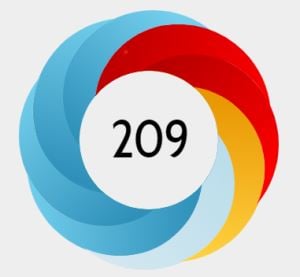
Altmetric badge showing the Altmetric score and colour-coded mention sources.
Altmetric monitors various sources, categorizing them into segments such as policy documents, peer reviews, Wikipedia, news and blogs, and social media, among other sources. Each category is identifiable by a specific colour.
The Altmetric badge provides visual insights into where the research is being discussed. A more colourful badge indicates broader mentions across multiple platforms. Such tracking enables us to gauge the extent of an article’s online dissemination, noting that increased visibility may correlate with higher citation rates.
Read more:
Impactful Research

Ten High-Altmetric Articles Published by MDPI
As at 30 January 2024, Altmetric has tracked 670,500 MDPI research outputs from MDPI, resulting in over 4.3 million mentions. This includes over 71,894 mentions in policy and patents and 294,714 mentions in news and blogs, with some achieving an Altmetric score as high as 28,754.
So, what is a good Altmetric score? There are various ways to put this score into context. You can find out more about the score in context and how to evaluate your work by this means.
Here are ten MDPI papers ranking in the top 5% of all research outputs scored by Altmetric.
|
|
“Accuracy in Wrist-Worn, Sensor-Based Measurements of Heart Rate and Energy Expenditure in a Diverse Cohort” J. Pers. Med. 2017, 7(2), 3; https://doi.org/10.3390/jpm7020003 Altmetric page: https://mdpi.altmetric.com/details/20477344 Altmetric shows that this article appeared in 253 news stories from 209 outlets including Forbes, BBC, and Fox News. |
|
|
“Daylight Saving Time and Acute Myocardial Infarction: A Meta-Analysis” J. Clin. Med. 2019, 8(3), 404; https://doi.org/10.3390/jcm8030404 Altmetric page: https://mdpi.altmetric.com/details/57654628 Altmetric shows that this article appeared in 295 news stories from 207 outlets including Forbes, The Atlantic, and New York Times. |
|
|
“The Preliminary Analysis of Cave Lion Cubs Panthera spelaea (Goldfuss, 1810) from the Permafrost of Siberia” Quaternary 2021, 4(3), 24; https://doi.org/10.3390/quat4030024 Altmetric page: https://mdpi.altmetric.com/details/111086701 Altmetric shows that this article appeared in 182 news stories from 134 outlets including CBC News, CNN, and National Geographic. |
|
|
“Not the Cat’s Meow? The Impact of Posing with Cats on Female Perceptions of Male Dateability” Animals 2020, 10(6), 1007; https://doi.org/10.3390/ani10061007 Altmetric page: https://mdpi.altmetric.com/details/83796184 Altmetric shows that this article appeared in 124 news stories from 98 outlets including VICE, CNN and The Guardian. |
|
|
“Behaviour and Welfare Impacts of Releasing Elephants from Overnight Tethers: A Zimbabwean Case Study” Animals 2022, 12(15), 1933; https://doi.org/10.3390/ani12151933 Altmetric page: https://mdpi.altmetric.com/details/133463915 Altmetric shows that this article appeared in 192 news stories from 186 outlets. |
How do I use altmetrics?
Altmetric Explorer provides a detailed step-by-step guide and instruction video for first-time users of the tool. The guide includes useful diagrams that make it easy to get started.
Sharing Research Online
For research to be tracked across different sources, Altmetric needs a research output with a persistent identifier: a DOI, ISBN, PubMed ID, handle ID, etc. When sharing research, it is important to include a link to the original research output.
|
|
“An Update on Eukaryotic Viruses Revived from Ancient Permafrost” Viruses 2023, 15(2), 564; https://doi.org/10.3390/v15020564 Altmetric page: https://mdpi.altmetric.com/details/142929875 Altmetric shows that this article appeared in 250 news stories from 180 outlets including CTV, Fox News, and CNN. |
|
|
“The Global Problem of Insufficient Sleep and Its Serious Public Health Implications” Healthcare 2019, 7(1), 1; https://doi.org/10.3390/healthcare7010001 Altmetric page: https://mdpi.altmetric.com/details/53406248 Altmetric shows that this article appeared in 252 news stories from 168 outlets including BBC, Harvard Business Review, and Forbes. |
|
|
“A Detailed Review Study on Potential Effects of Microplastics and Additives of Concern on Human Health” Int. J. Environ. Res. Public Health 2020, 17(4), 1212; https://doi.org/10.3390/ijerph17041212 Altmetric page: https://mdpi.altmetric.com/details/86529137 Altmetric shows that this article appeared in 197 news stories from 150 outlets including BBC, The Tribune, and World Economic Forum. |
|
|
“An Empirical Study of Chronic Diseases in the United States: A Visual Analytics Approach to Public Health” Int. J. Environ. Res. Public Health 2018, 15(3), 431; https://doi.org/10.3390/ijerph15030431 Altmetric page: https://mdpi.altmetric.com/details/34714141 Altmetric shows that this article appeared in 232 news stories from 149 outlets including Forbes, New York Times, and Harvard Business Review. |
|
|
“Garden Scraps: Agonistic Interactions between Hedgehogs and Sympatric Mammals in Urban Gardens” Animals 2023, 13(4), 590; https://doi.org/10.3390/ani13040590 Altmetric page: https://mdpi.altmetric.com/details/142934305 Altmetric shows that this article appeared in 172 news stories from 168 outlets including BBC. |
Inside MDPI

MDPI Annual Meeting Celebrations in China
On Thursday 25 January, over 1,300 MDPI colleagues from our two offices in Beijing gathered to kick off MDPI’s traditional ‘Annual Meetings.’ These celebrations take place in MDPI’s offices across China, including Dalian, Tianjin, Wuhan, and Nanjing.
The evenings include performances, informative talks and presentations, awards, and entertainment, providing an ideal platform to recognize our colleagues, celebrate their achievements, and set our sights on the future.
“It is essential that we stay connected and share best practices”

I sent a video congratulating everyone on their work and sharing our vision of building MDPI into the most trusted OA publisher, highlighting the roles each of us has to play in achieving that goal.
Unfortunately I could not join in person, but you may recall my recent trip, when I visited our offices in Beijing and Wuhan, which I look forward to visiting again this year.
Although our headquarters are in Basel, Switzerland, and we are expanding throughout Europe and North America, the majority of MDPI’s workforce is in China and throughout the Asia-Pacific region, including offices in Singapore, Thailand, Japan, and newly opened office in South Korea. It is essential that as a global organization, we stay connected and share best practices in order to grow collectively and continue providing the exceptional service to our authors.
The Annual Meeting is a moment to reflect and enjoy the year’s hard work and dedication.
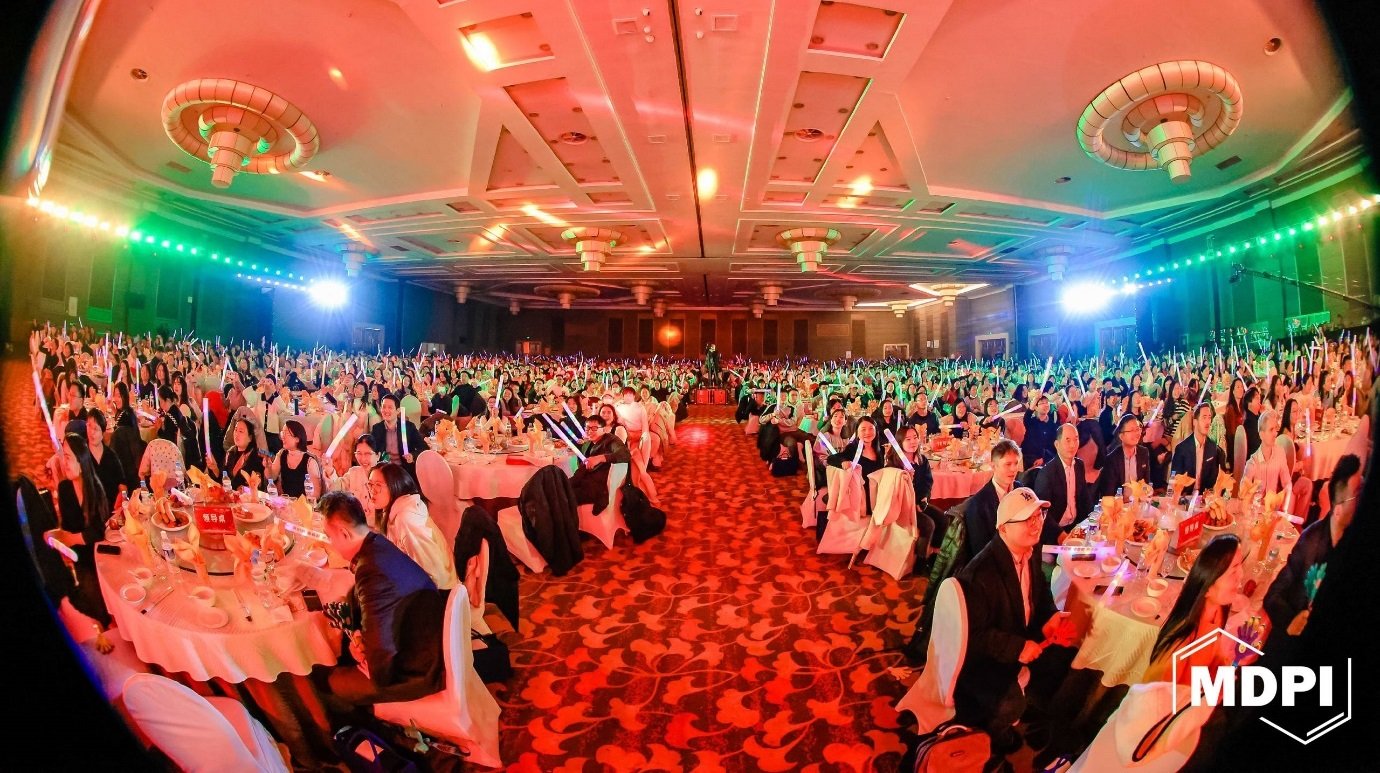
I extend our best wishes to all for the Chinese New Year (Xīnnián kuàilè)!
Coming Together for Science
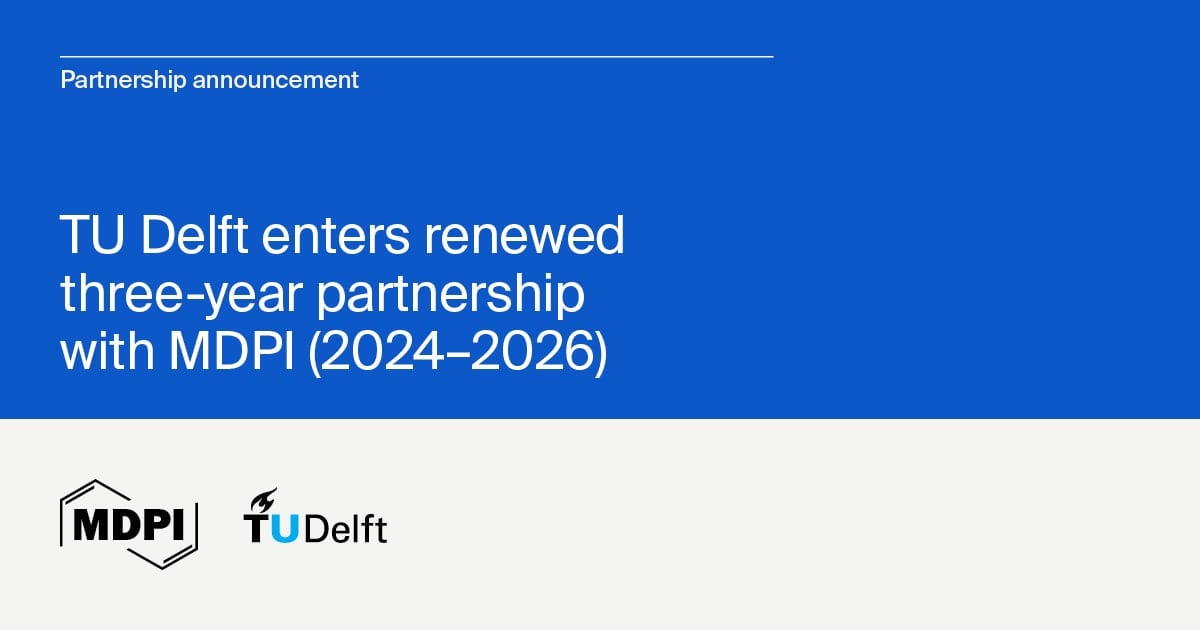
MDPI and TU Delft Adopt Flat Fee Model in Extended Partnership
We are excited to announce a renewed three-year partnership with Delft University of Technology (TU Delft) in the Netherlands. This collaboration introduces a fixed lump-sum fee, covering publishing costs from 2024 to 2026.
“This initiative reflects our dedication to transparent and inclusive publishing”
TU Delft-affiliated authors will enjoy cost-free publishing in any MDPI journal during this period, aligning with our commitment to removing barriers for open access publishing. The agreement supports Plan S compliance and facilitates a seamless publishing process for TU Delft corresponding authors. This initiative reflects our dedication to transparent and inclusive publishing, providing stability and predictability both for authors and for institutions.
For further details on our Institutional Open Access Program (IOAP), please contact us.
Benefits to MDPI’s IOAP
At MDPI we have a long tradition of partnerships, including our Institutional Open Access Program (IOAP). IOAP supports institutions through simplification, access, transparency, APC discounts, and institutional repository deposits. The program simplifies administrative processes, offers central payment, and allows easy opting in and out. Participants gain free access to Susy, MDPI’s online submission system, with extensive article metadata and exportable data. APC discounts and Book Processing Charge discounts are available for affiliated authors. Automated deposits to institutional repositories and streamlined matching of papers to IOAP participants enhance the overall experience.
For further information, see our IOAP FAQ.
Closing Thoughts

Reflections on the 2024 APE Conference
MDPI was proud to co-sponsor the Academic Publishing in Europe (APE) 2024 Conference that took place in Berlin, Germany, from 9–10 January 2024.
The conference theme, ‘Keep the Conversation Going!’, explored the evolving landscape of scholarly communication. APE is one of the key conferences I make a point to attend each year. January offers a valuable opportunity to engage with new contacts, reconnect with familiar faces, and participate in impactful discussions and presentations among professionals, scholars, and practitioners in the field.
“It's fascinating to see how other publishers are leveraging AI”
Highlights
Some of the standout panels for me include: the role of the UN Sustainable Development Goals (SDGs) within the publishing industry. It was encouraging to hear the current status quo, though I was eager also to learn about the exciting projects planned for 2024 and beyond. These will allow us to track progress in subsequent years. At MDPI, we remain committed to promoting Open–Access (OA) content on SDGs through scientific articles and books. Furthermore, we extend our commitment to sustainability by financially supporting researchers through initiatives such as the World Sustainability Award and the Emerging Sustainability Leader Award, as well as waiving the APC for feature papers on each SDG.
In recent years, discussions on AI have become increasingly prominent at such conferences. It’s fascinating to see how other publishers are leveraging AI to meet the evolving needs of their audiences while at the same time using it to safeguard the scientific process. Other engaging panels that I enjoyed included updates on transformation beyond transformative agreements, the principles of lean change, incentive structures related to research integrity, and the panel on reviewer incentives.
“We can share best practices and lessons learned”
Incorporating MDPI’s Insights into Conferences
I must confess that I sometimes feel overlooked when MDPI is not invited to participate in crucial industry discussions. As the leading open access publisher and the third-largest publisher overall, we possess extensive experience in many of these areas and can offer valuable contributions to these discussions. We can share best practices, lessons learned, and our thinking about future trajectories. For instance, in panels discussing reviewer incentives, at MDPI we offer a discount voucher to reviewers for future submissions, reflecting our commitment to fostering a robust peer review process. In 2022 alone, MDPI collected over 1.4 million peer review reports, informing the decision-making processes of our editors. Given our expertise in these areas, it would be natural to include MDPI in such discussions. I therefore extend an invitation to future conference organizers to consider MDPI for speaking engagements and collaborative opportunities.
Chief Executive Officer
MDPI AG
30 January 2024
Biomedicines | Hot Papers in the “Biomedical Materials” Section
The Section “Biomedical Materials” of Biomedicines (ISSN: 2227-9059) aims to rapidly publish contributions of studies focused on the preparation, performance, and evaluation of biomaterials; the chemical, physical, toxicological, and mechanical behavior of materials in physiological environments; and the response of blood and tissues to biomaterials. All relevant biomaterial topics, including the science and technology of alloys, polymers, ceramics, and reprocessed animal and human tissues in surgery, dentistry, artificial organs, and other medical devices, are welcome to be submitted.
Please feel free to read the following papers:
1. “In Search of Novel Degradation-Resistant Monomers for Adhesive Dentistry: A Systematic Review and Meta-Analysis”
by Vlasta Mocharko, Paulo Mascarenhas, Ana Mano Azul and António H. S. Delgado
Biomedicines 2022, 10(12), 3104; https://doi.org/10.3390/biomedicines10123104
Available online: https://www.mdpi.com/2227-9059/10/12/3104
2. “Influence of Pre-Treatment and Artificial Aging on the Retention of 3D-Printed Permanent Composite Crowns”
by Tobias Graf, Kurt-Jürgen Erdelt, Jan-Frederik Güth, Daniel Edelhoff, Oliver Schubert and Josef Schweiger
Biomedicines 2022, 10(9), 2186; https://doi.org/10.3390/biomedicines10092186
Available online: https://www.mdpi.com/2227-9059/10/9/2186
3. “In Vitro Molecular Study of Titanium-Niobium Alloy Biocompatibility”
by Laëtitia Chézeau, Alex Tchinda, Gaël Pierson, Pierre Bravetti, Luc Ferrari, Olivier Joubert, Mohamed Zaiou and Bertrand H. Rihn
Biomedicines 2022, 10(8), 1898; https://doi.org/10.3390/biomedicines10081898
Available online: https://www.mdpi.com/2227-9059/10/8/1898
4. “Hydrogels: 3D Drug Delivery Systems for Nanoparticles and Extracellular Vesicles”
by Yashna Chabria, Garry P. Duffy, Aoife J Lowery and Róisín M. Dwyer
Biomedicines 2021, 9(11), 1694; https://doi.org/10.3390/biomedicines9111694
Available online: https://www.mdpi.com/2227-9059/9/11/1694
5. “Characteristics of Dental Resin-Based Composites in Leukemia Saliva: An In Vitro Analysis”
by Alexandru Mester, Marioara Moldovan, Stanca Cuc, Ciprian Tomuleasa, Sergiu Pasca, Miuta Filip, Andra Piciu and Florin Onisor
Biomedicines 2021, 9(11), 1618; https://doi.org/10.3390/biomedicines9111618
Available online: https://www.mdpi.com/2227-9059/9/11/1618
6. “Experimental Bioactive Glass-Containing Composites and Commercial Restorative Materials: Anti-Demineralizing Protection of Dentin”
by Matej Par, Andrea Gubler, Thomas Attin, Zrinka Tarle, Andro Tarle and Tobias T. Tauböck
Biomedicines 2021, 9(11), 1616; https://doi.org/10.3390/biomedicines9111616
Available online: https://www.mdpi.com/2227-9059/9/11/1616
7. “Smart Hydrogels Meet Carbon Nanomaterials for New Frontiers in Medicine”
by Simone Adorinni, Petr Rozhin and Silvia Marchesan
Biomedicines 2021, 9(5), 570; https://doi.org/10.3390/biomedicines9050570
Available online: https://www.mdpi.com/2227-9059/9/5/570
8. “3D Collagen Hydrogel Promotes In Vitro Langerhans Islets Vascularization through ad-MVFs Angiogenic Activity”
by Monica Salamone, Salvatrice Rigogliuso, Aldo Nicosia, Simona Campora, Carmelo Marco Bruno and Giulio Ghersi
Biomedicines 2021, 9(7), 739; https://doi.org/10.3390/biomedicines9070739
Available online: https://www.mdpi.com/2227-9059/9/7/739
9. “Self-Supporting Hydrogels Based on Fmoc-Derivatized Cationic Hexapeptides for Potential Biomedical Applications”
by Carlo Diaferia, Elisabetta Rosa, Enrico Gallo, Giovanni Smaldone, Mariano Stornaiuolo, Giancarlo Morelli and Antonella Accardo
Biomedicines 2021, 9(6), 678; https://doi.org/10.3390/biomedicines9060678
Available online: https://www.mdpi.com/2227-9059/9/6/678
10. “Whey-Derived Porous Carbon Scaffolds for Bone Tissue Engineering”
by Raúl Llamas-Unzueta, Marta Suárez, Adolfo Fernández, Raquel Díaz, Miguel A. Montes-Morán and J. Angel Menéndez
Biomedicines 2021, 9(9), 1091; https://doi.org/10.3390/biomedicines9091091
Available online: https://www.mdpi.com/2227-9059/9/9/1091
We would much appreciate it if you could circulate the link of any papers you find appealing within your network.
Submit a manuscript:
This Section is currently open for submissions. Papers may be submitted via the following link: https://susy.mdpi.com/user/manuscripts/upload/f17a01dbff7541081d1092edf09cd870?form%5Bjournal_id%5D=158.
Launch a Special Issue:
You have the opportunity to propose hot topics and edit a Special Issue together with experts in the field at the following link: https://www.mdpi.com/journalproposal/sendproposalspecialissue/biomedicines.
Join the Editorial Board:
We are looking for active scholars who have interests within and are passionate about this field to help with the selection of submissions; please do not hesitate to get in touch if you are interested in joining the Editorial Board ([email protected]).
Biomedicines Editorial Office
26 January 2024
Acknowledgment of the Reviewers of Biomedicines in 2023
In recognizing the exceptional efforts of our reviewers in 2023, we express our sincere gratitude for upholding the high standards of Biomedicines. Their commitment ensured the rigorous peer review that is integral to quality academic publishing.
In 2023, Biomedicines received 11,476 review reports, from 6,668 reviewers. This past year, we worked with reviewers from 89 countries and regions, reflecting the diversity in our collaboration with research communities. Their dedication shapes scholarly discourse and advances global research. The editorial team expresses gratitude for the vital role played by each reviewer in the Biomedicines family throughout 2023, and we look forward to their continued support in 2024.
The following are the reviewers who have consented to show their names:
| A. Ganesan | Komuraiah Myakala |
| A. Valance Washington | Konstantin Belosludtsev |
| Aamir Rasool | Konstantin Yarygin |
| Abdul Sadiq | Konstantinos Papadimitriou |
| Abdullah Gibriel | Konstantinos Tosios |
| Abhishek Anant Kulkarni | Koraljka Gall Troselj |
| Abhishek Bhattacharya | Kornelia Kreiser |
| Abhishek Jha | Koyeli Girigoswami |
| Abraham Pouliakis | Krishna Kant |
| Abraham Wall-Medrano | Krishna Yadav |
| Achille Aveta | Krishnan Sriram |
| Addisson Salazar | Kristian Leisegang |
| Adelina Vlad | Krzysztof Czamara |
| Adi Sarig-Axelrod | Krzysztof Skrzypkowski |
| Adina Magdalena Musuc | Ksenia Babina |
| Adriana Albu | Kui Zhang |
| Adriana Grigoraș | Kumara Swami Konda |
| Adriana Morar | Kun Chen |
| Adriano Murrone | Kun Li |
| Agata Stanek | Kunihiro Tsuchida |
| Agnieszka Bojarska-Junak | Kurubaran Ganasegeran |
| Agnieszka Kuczaj | Kyle Poulsen |
| Agnieszka Piegat | Kyle Vining |
| Agnieszka Potęga | Kyohei Kin |
| Agnieszka Zelek-Molik | Lacramioara Popa |
| Agnishwar Girigoswami | Laia Josa-Culleré |
| Agostino Guida | Laikang Yu |
| Agostino Ognibene | Lan Lin |
| Aguinaldo Fraddosio | Lan Zhao |
| Agustín Herrera-May | Lara Baticic |
| Ahmad M. Mansour | Lars Ängquist |
| Ahmad Salti | Lars Småbrekke |
| Ahmed Abu-Zaid | László Hazai |
| Ahmed Bakillah | Laszlo Jicsinszky |
| Ahmed Doghish | László Szilák |
| Ahmed Elbestawy | Laura Bulgariu |
| Ahmed El-Fiqi | Laura Eadie |
| Ahmed Fatimi | Laura Endres |
| Ahmed Noreldin | Laura Evangelista |
| Ajay Pal | Laura Vicente |
| Akihito Tsubota | Laurent Dufossé |
| Akilavalli Narasimhan | Laurent Mailly |
| Akira Umemura | Laurentiu M. Pop |
| Akira Yamasaki | Leander Corrie |
| Akylbek Sydykov | Lei Wang |
| Alaa Adawy | Lei Zhang |
| Alain Massart | Leigh Plant |
| Alarico Ariani | Leire Pedrosa |
| Alberto Porta | Leny Jose |
| Alberto Rodriguez-Archilla | Leonard Ionut Atanase |
| Alberto Zamora | Leonel Pereira |
| Aldona Kasprzak | Leszek Kotula |
| Alejandra García-Gasca | Leszek Szablewski |
| Alejandro J. Alvarez | Li Fu |
| Alejandro Schäffer | Lia Mara Diţu |
| Aleksander Mendyk | Lídia Gonçalves |
| Aleksandra Bondžić | Lidija Savić |
| Aleksandra Czumaj | Liewei Wen |
| Aleksandra Klisic | Lifu Sheng |
| Aleksey Zaitsev | Liliana Torres-López |
| Ales Blinc | Lilya Dzhemileva |
| Alessandra Ammazzalorso | Linda Peters |
| Alessandra Ferramosca | Lin-Fu Liang |
| Alessandro Di Rienzo | Lingchen Yang |
| Alessandro Tozzi | Lingjun Tong |
| Alessia Pardo | Linlin Guo |
| Alex Siu Wing Chan | Livius D'Uscio |
| Alexa Klettner | Lokesh Koodlur Sannegowda |
| Alexander Chizhov | Lokesh Kumar |
| Alexander H. Maass | Lorena Saelices Gomez |
| Alexander Lykov | Lorenzo Faggioni |
| Alexander Meigal | Lorenzo Schiavoni |
| Alexander Shinkov | Luca Falzone |
| Alexander Shtil | Luca Giacomelli |
| Alexander Timoshenko | Luca Giovanni Locatello |
| Alexander V. Artem’ev | Luca Raiteri |
| Alexander Winter | Lucia Montenegro |
| Alexander Zemchenkov | Lucia Pirvu |
| Alexander Zimmermann | Lucia Stanciakova |
| Alexandra Craciun | Luciana Baroni |
| Alexandre De Brevern | Luciana Bordin |
| Alexandros Brotis | Lucjusz Zaprutko |
| Alexandru Mester | Ludmila Kazdova |
| Alexei Chukhlovin | Ludovic Tricoire |
| Alexey Iordanskii | Ludwig Wagner |
| Alexey Mittenberg | Luidmila Yakimova |
| Alexey Rakov | Luigi Auletta |
| Alexey Sumin | Luigi Di Filippo |
| Alfonso Maria Ponsiglione | Luis Apaza Ticona |
| Alfred Ankrah | Luis Eduardo Almeida |
| Alfredo Bellon | Luís Félix |
| Alfredo Caturano | Luis Ibarra |
| Alfredo G. Casanova | Luis Salazar |
| Alfredo J. Lucendo | Luísa Romão |
| Ali Zarrabi | Lukas Lacina |
| Alica Pizent | Lukasz Dobrek |
| Alida Caforio | Lukasz Szarpak |
| Alin Laurentiu Tatu | Łukasz Szeleszczuk |
| Alina Deshpande | Lyudmila Bel'skaya |
| Alma Villaseñor | Maciej Przybyłek |
| Álvaro González Domínguez | Maciej Serda |
| Amanda Iglesias | Maciej Skotak |
| Amandeep Singh | Maciej Socha |
| Amany Abdel-Rahman | Maciej Zieliński |
| Ameer Fawad Zahoor | Madankumar Ghatge |
| Amelia Maria Gaman | Madhubanti Mullick |
| Amin Tamadon | Madhuri Dey |
| Amir Ashoorzadeh | Magdalena Aflori |
| Amir Mellati | Magdalena Izdebska |
| Amirhossein Ahmadi | Magdalena Mizerska-Kowalska |
| Amirreza Haghighi | Magnus S. Ågren |
| Amit Goel | Maha Nasr |
| Amitava Mukherjee | Mahdi Mahdipour |
| Ammad Ahmad Farooqi | Mahmoud Al-Khrasani |
| Ammar Saleem | Mahmoud Balbaa |
| Amosy M'Koma | Mahmoud Elsayed |
| Amr Abu Lila | Mahmoud Kandeel |
| Amrita Sarkar | Mahtab Nourbakhsh |
| Amritlal Mandal | Mai Mostafa |
| Amro Amara | Maja Jazvinšćak Jembrek |
| Ana Cazacu | Maja Sabol |
| Ana Dascalu | Maja Tomicic |
| Ana Fernández | Majid Ghareghani |
| Ana Henriques Da Costa | Makoto Endo |
| Ana Leticia Fornari Caprara | Makoto Nakamura |
| Ana Luísa De Sousa-Coelho | Makoto Tsunoda |
| Ana Sofia Vallés | Małgorzata Jeleń |
| Ana Stupin | Malgorzata Jerzak |
| Anabel Lostao | Małgorzata Przybyło |
| Anamaria Savu | Małgorzata Szczuko |
| Anand Singh | Man Qu |
| Anastasia Spiliopoulou | Manesh Nautiyal |
| Anastasios Serbis | Manhai Long |
| Anatoly Zherdev | Manikandan Samidurai |
| Anbazhagan Sathiyaseelan | Manoj Neog |
| Anca Bobirca | Manoj Pandey |
| Anders Lade Nielsen | Manthar Ali Mallah |
| Andre Luiz Costa | Manuel Durán-Poveda |
| André Maia | Manuel Lis |
| Andre Obenaus | Manuel Muro |
| Andrea Amaroli | Manuela Chiper |
| Andrea Brancaccio | Maochun Wang |
| Andrea Giannini | Mara Carsote |
| Andrea Godino | Marc Herb |
| Andrea Mastinu | Marc Since |
| Andrea Ragusa | Marc Vasse |
| Andrea Tinelli | Marc-André Lécuyer |
| Andreas Brodehl | Marcel Leutenegger |
| Andreas G. Tsantes | Marcello Pinti |
| Andree Hartanto | Marcin Kozuch |
| Andrei Adrian Tica | Marco Alves |
| Andrei Khlebnikov | Marco Carmignani |
| Andrei Vasile Nastuta | Marco Cavaco |
| Andrej Belančić | Marco Cosentino |
| Andrej Savic | Marco Fogante |
| Andres Tittarelli | Marco Germanotta |
| Andrey Markov | Marcos Brioschi |
| Andrey Maslivets | Marcus Mareel |
| Andrey Nagdalian | Marek K. Bernard |
| Andrey Plotnikov | Marek Kiliszek |
| Andrey Ratushnyy | Marek Murias |
| Andrey Sudarikov | Marek Wesolowski |
| Andrey Zamyatnin | Margarida Duarte-Araújo |
| Andrzej Kasperski | Margarita Apostolova |
| Aneta Ostróżka-Cieślik | Margarita Ivanova |
| Ang Li | Margarita Terentjeva |
| Angel Josabad Alonso-Castro | Margherita Eufemi |
| Ángel Núñez | Margherita Neri |
| Angeliki Angelidi | Maria A. Bonifacio |
| Angeliki Katsafadou | Maria Addolorata Mariggiò |
| Angelo Naselli | Maria Agallou |
| Angelo Torrente | Maria Angeles Rojo |
| Anilkumar Thaghalli Shivanna | Maria Antonietta Panaro |
| Anisoara Cimpean | Maria Botelho |
| Anita Kloss-Brandstätter | Maria Carmela Bonaccorsi Di Patti |
| Anna Bilska-Wilkosz | Maria Carmen Duran-Ruiz |
| Anna Bizoń | Maria Correia |
| Anna Cleta Croce | Maria Cristina Cangussú |
| Anna Drabczyk | Maria Cristina Gauzzi |
| Anna Kabłak-Ziembicka | Maria Da Glória Queiroz |
| Anna Kasielska-Trojan | Maria Grazia Cerrito |
| Anna Lewinska | María Jesús Costas |
| Anna Paradowska-Stolarz | Maria Loureiro |
| Anna Piotrowska | Maria Lucibello |
| Anna Shtro | Maria Mascellino |
| Anna Spagnoletta | Maria Mirabelli |
| Anna-Maria Barciszewska | Maria Pia Ferraz |
| Anne Demulder | Maria Rosaria De Miglio |
| Annette Audigé | Maria Rubtsova |
| Anny Slama-Schwok | Maria Salagianni |
| Anoop Rawat | Maria Xilouri |
| Antal Csampai | Mariagiovanna Cantone |
| Anthony William Coleman | Marian Simka |
| Antimo Di Maro | Mariana Floria |
| Antonella Ragnini-Wilson | Mariangela Mancini |
| Antonia Rujia Sun | Mariann Harangi |
| Antonino Di Pino | Mariano Francesco Caratozzolo |
| Antonino S. Rubino | Mariapaola Marino |
| Antonio Barbato | Mariarosaria Boccellino |
| António Miguel Morgado | Marie Černá |
| Antonio Nenna | Marie-Louise Bang |
| Antonio Orlacchio | Marie-Odile Soyer-Gobillard |
| Antonio Pontoriero | Mariia Ivanova |
| Anusorn Cherdthong | Marika Comegna |
| Ao Zhang | Marilena Mangiardi |
| Apolinaras Zaborskis | Marina Bobkova |
| Apostolos Papachristos | Marina Khodanovich |
| Apostolos Tsolakis | Marina Piscopo |
| Apostolos Zaravinos | Marino Paroli |
| Arancha Llama-Palacios | Mario D'Acunto |
| Arboix Adrià | Mario Ganau |
| Arda Isik | Mario Simirgiotis |
| Argyro Mavrogiorgou | Mario Valenti |
| Ari-Pekka Koivisto | Mario Valentino |
| Aristeidis Stavroulopoulos | Marion Korach-André |
| Aristotle Koutsiaris | Mariusz Hartman |
| Armando Caseiro | Mariusz Klencki |
| Armando Patrizio | Mariusz Niemczyk |
| Arpad Tosaki | Mariusz Siemiński |
| Arrigo Cicero | Marjorie Jones |
| Artem Gureev | Mark Musch |
| Artur Ribeiro | Mark Roberts |
| Artur Słomka | Marlena Brzozowa-Zasada |
| Arturo Sanchez Perez | Marlena Godlewska |
| Arulselvan Palanisamy | Marloes Dekker Nitert |
| Arun Kumar Hanumana Gouda Patil | Marta Elena Losa Iglesias |
| Arun Sridhar | Marta Gaburjáková |
| Arũnas Ramanavičius | Marta Letizia Hribal |
| Arvind Negi | Marta Wysocka-Mincewicz |
| Asim Ali Yaqoob | Martha Gallegos |
| Assunta Pozzuoli | Martin Michel |
| Astrida Velena | Martin Wawruch |
| Athanasios Kiourtis | Martina Maggi |
| Athanasios Papadopoulos | Martina Smolic |
| Athanasios Papakyriakou | Marwan El Ghoch |
| Attila Frigy | Marwan Osman |
| Audrius Dulskas | Maryam Ardalan |
| Avisek Majumder | Marzia Baldereschi |
| Ayaz Shahid | Marzia Di Donato |
| Ayslan Brant | Marzia Segù |
| Azad Bhuiyan | Masahiro Yasuda |
| B. H. Jaswanth Gowda | Masaki Nagaya |
| Bai-Yan Li | Masaru Tanaka |
| Balakumar Chandrasekaran | Masashi Mizuguchi |
| Bangfu Zhu | Masayuki Nashimoto |
| Baoquan Liu | Massimiliano Ammirabile |
| Barbara Giordani | Massimo Broggini |
| Bárbara Henriques | Massimo Corsalini |
| Barbara Kaplan | Mateusz Szudzik |
| Barbara Lapinska | Mathias Dolci |
| Barbara Ruaro | Mats Eriksson |
| Barbara Strzalka-Mrozik | Matteo Ramazzotti |
| Bartosz Małkiewicz | Matteo Riccò |
| Basant Puri | Matthew Benesch |
| Basveshwar Gawali | Matthew Butchbach |
| Beata Mrozikiewicz-Rakowska | Matthias Eckhardt |
| Beata Wodecka | Matthias Müller |
| Beatrice Turcq | Matthias Ocker |
| Bela Balint | Mau-Ern Poh |
| Ben Chen | Maurizio Iacobone |
| Ben De Lacy Costello | Maurizio Mulas |
| Beniamin Grabarek | Mauro Giacomelli |
| Benjamin Cull | Mauro Lombardo |
| Benjamín Floran Garduño | Mauro Montalbano |
| Benjamin Teply | Mayank Choubey |
| Bennett Elzey | Mayur Virarkar |
| Bernardo Pereira | Md. Azad |
| Bhaswati Bhattacharya | Md. Khalid Anwer |
| Bhaumik Pandya | Md. Tanvir Rahman |
| Bhupendra Prajapati | Mederle Ovidiu Alexandru |
| Bhupinder Kumar | Meerambika Mishra |
| Bi-He Cai | Mehdi Dadmehr |
| Bilal Kirmani | Mehdi Montazer |
| Biljana Arsic | Mehmet Gumustas |
| Bin Du | Meijun Du |
| Bipradas Roy | Melanie Walker |
| Blanca Bazán-Perkins | Mengliang Zhang |
| Błażej Grodner | Mercedes Fernandez |
| Blessy Suresh | Mercedes Gimeno |
| Bogdan Gherman | Mercedes Lopez-Santalla |
| Bogdan Iliescu | Mi Chen |
| Bogdan Socea | Mi Kyung Park |
| Bogdan Walkowiak | Micaela Medrano |
| Bogna Grygiel-Górniak | Michael Diamantidis |
| Bojana Vidović | Michael Landowski |
| Boldeanu Virgil | Michael Leitges |
| Boleslaw T. Karwowski | Michael Petronek |
| Boris Kozlov | Michael Schirmer |
| Božana Lončar-Brzak | Michael Seidenstuecker |
| Brian D. Adams | Michael Sticherling |
| Bruce MacIver | Michael Weller |
| Bruno Bueno-Silva | Michael West |
| Bruno Fonseca | Michal J. Dabrowski |
| Burak Tüzün | Michal Nowak |
| Camelia Gurban | Michal Ordak |
| Cândida Teixeira Tomaz | Michal Pruc |
| Caner Günaydın | Michel Puceat |
| Carina Balcoş | Michel Roethlisberger |
| Carine Arnoni | Michela Mitchell |
| Carla Pagliari | Michela Terlizzi |
| Carla Palma | Michele Boffano |
| Carla Perego | Michele Costanzo |
| Carla Zannella | Michele D'Attilio |
| Carlo Aprile | Michele Schiano Di Visconte |
| Carlo Diaferia | Mick Welling |
| Carlos Cerdán Santacruz | Mieszko Wieckiewicz |
| Carlos Del Fresno Sánchez | Miguel A. Ortega |
| Carlos Eric Galván-Tejada | Miguel Angel Alcántara Ortigoza |
| Carlos Gamarra-Luques | Miguel García-Castro |
| Carlos López-De-Celis | Miguel Gonzalez-Gay |
| Carlos Miguel Marto | Miha Moškon |
| Carlos Torres-Torres | Mihaela Adriana Ilie |
| Carlos Trenado | Mihaela Avram |
| Carlos Viegas | Mikaeel Young |
| Carly Filgueira | Mikael Lindström |
| Carmen Llena | Mikhail Akimov |
| Carmen Sáez | Mikhail Dubinin |
| Carmine Izzo | Mikhail Inyushin |
| Carol Wadham | Mikhail Kostik |
| Carsten Carlberg | Mikhail Vorob'ev |
| Carsten Tjell | Mikołaj Maga |
| Cassiano Gonçalves-De-Albuquerque | Milan D. Perovic |
| Catalin Pruncu | Milan Kolar |
| Catana Cristina | Milan Toma |
| Catherine Yzydorczyk | Milica Pešić |
| Cesar Ceballos | Milka Mileva |
| Cesar Mattei | Miloš Mitić |
| Cesare Tosetti | Mineko Terao |
| Céu Costa | Ming Yang |
| Chadi Abdul Kader El Farran | Ming-Chi Lu |
| Chandra Mishra | Ming-Wei Lin |
| Chandrabose Selvaraj | Miquéias Lopes-Pacheco |
| Chang Lei | Mircea-Catalin Fortofoiu |
| Changzheng Chen | Miriam Hickey |
| Chan-Yen Kuo | Mirjana Jerkic |
| Chao Wang | Mirko Manetti |
| Charles Norton | Mohamad Shahgholi |
| Charlie Rice | Mohamed Addi |
| Chen Xie | Mohamed Al-Agamy |
| Cheng-Rong Yu | Mohamed Jaber |
| Chetta Massimiliano | Mohamed Khalifa |
| Chia-Che Chang | Mohamed Rahouma |
| Chien-Chung Yang | Mohammad Doroudian |
| Chih-Li Lin | Mohammad Mobashir |
| Chis Adriana Aurelia | Mohammad Qneibi |
| Chisato Kinoshita | Mohammad Reza Jamalpour |
| Chitra Rawat | Mohammad Zamani |
| Chiung-Hui Liu | Mohammadreza Shalbafan |
| Christian Barbato | Mohammed El-Magd |
| Christian Lehmann | Mohammed Emran |
| Christian Saleh | Mohammed Hawash |
| Christian Wiraja | Mohammed Ramadan |
| Christian Wunder | Mohammed Sayed |
| Christina Banti | Mohd Imran |
| Christina Kostara | Mohd Kausar |
| Christoph Faschinger | Mohsin Shah |
| Christopher Anderson | Moises Leon Juarez |
| Christopher Kobierzycki | Mona Sadat Larijani |
| Christopher Plaisier | Monica Gallego |
| Christopher William | Monica Sancho |
| Christos Mikropoulos | Monika Łopuszańska-Dawid |
| Christos Papaneophytou | Monika Ruszala |
| Chrysoula Voidarou | Monika Szturmowicz |
| Chuan Hun Ding | Monika Ulamec |
| Chuanming Xu | Moshe Davidovitch |
| Chuanqi Chu | Motoki Fukuda |
| Chulhun Park | Mounir M. Salem Bekhit |
| Chung Lin Lee | Mrinal Bhattacharjee |
| Chung-Hsin Wu | Muammel Hanon |
| Chung-Ming Chen | Mugurel Constantin Rusu |
| Chun-Jung Chen | Muhamad Noor Alfarizal Kamarudin |
| Chun-Song Yang | Muhammad N. Zahid |
| Cíntia Helena Saraceni | Muhammad Sajid Hamid Akash |
| Ciprian Danielescu | Myron Szewczuk |
| Claire Jean-Quartier | Nadège Kindt |
| Claire Stocker | Nadezda Apostolova |
| Claudia Altamura | Nadira Yuldasheva |
| Claudia Kowolik | Nagavendra Kommineni |
| Claudia Riccardi | Nagendran Tharmalingam |
| Claudio Ferrante | Nahum Rosenberg |
| Claudiu Morgovan | Naima Cortes-Perez |
| Claudiu N. Lungu | Naji Kharouf |
| Clement Chung | Nan Jiang |
| Concettina La Motta | Nanako Kawaguchi |
| Constantin Munteanu | Nancy Saad |
| Constantinos Pistos | Napoleão Argôlo Neto |
| Conxita Mestres | Narendar Dudhipala |
| Cornelia Mircea | Narongchai Autsavapromporn |
| Cornelius Krasel | Naser Alsharairi |
| Corrado Pelaia | Natalia Belosludtseva |
| Cristian Baicus | Natalia Ivanovna Agalakova |
| Cristian Mornos | Natalia Shnayder |
| Cristian Persu | Natalia Stepanova |
| Cristina Capatina | Nataša Marčun Varda |
| Cristina Capusa | Nathaniel Szewczyk |
| Cristina Casalou | Nauman Khan |
| Cristina Gluhovschi | Naveed Ahmed |
| Cristina Manuela Dragoi | Neal Davies |
| Cristina Mas-Bargues | Neelanjan Vishnu |
| Cristina Zbârcea | Neeraj Thakur |
| Cristoforo Pomara | Nejc Umek |
| Cyril Fersing | Nemat Ali |
| Cyril Nicolas | Neven Papić |
| Cyrille Blondet | Nhu-Nang Vu |
| Cyrille Magne | Nicholas Bradshaw |
| Dae-Wui Yoon | Nicholas Rowell |
| Damir Fabijanić | Nicola Mondanelli |
| Dan Tesloianu | Nicola Scott |
| Dana Carmen Zaha | Nicolae Gica |
| Dana Ciobanu | Nicoleta Anton |
| Dana Copolovici | Nicoletta Cera |
| Dan-Alexandru Szabo | Nicoletta Coccaro |
| Dane Wolf | Nicolò Brandi |
| Daniel Antwi-Amoabeng | Nicolò Fabbri |
| Daniel Barbosa | Nidhi Puranik |
| Daniel Böger | Nikolaos Kadoglou |
| Daniel Liedtke | Nikolaos Kostomitsopoulos |
| Daniel Meier | Nikolay Barashkov |
| Daniel Ortuño-Sahagún | Nilay Shah |
| Daniel Otto | Nima Rafati |
| Daniel Piskorz | Nina Anfinogenova |
| Daniel Potaczek | Nina Filip |
| Daniel Pozza | Nina Graffmann |
| Daniel Torres-Lagares | Nina Pastor |
| Daniel Van Wamelen | Nirmal Mohakud |
| Daniela Cabibi | Nisha Arenja |
| Daniela Elena Serban | Nitin Amdare |
| Daniela Iancu | Nitin Saksena |
| Daniela Opriş-Belinski | Noriko Takegahara |
| Daniela Regazzo | Noura Dosoky |
| Daniele Fanale | Nurbubu Moldogazieva |
| Daniele Maria-Ferreira | Oana Almasan |
| Daniele Ugo Tari | Oana Pop |
| Daniele Vergara | Oana-Maria Boldura |
| Daniil Olennikov | Octavio Galindo-Hernandez |
| Danijela Ristic-Medic | Oleg Shichalin |
| Danilo Boskovic | Oleg Shuvalov |
| Dapeng Chen | Oleksii Skorokhod |
| Daria Chudakova | Olesya Sazonova |
| Daria Shishkova | Olga Anatskaya |
| Darin Zerti | Olga Kopach |
| Dario Siniscalco | Olga Pershina |
| Darko Kero | Olga Sysoeva |
| Darlene Mitrano | Olga Zakharova |
| Daryoush Shahbazi-Gahrouei | Oliver Felthaus |
| David Aebisher | Oliver Sander |
| David Bar-Or | Olivier Rukundo |
| David Gewirtz | Omid Mirmosayyeb |
| David Greenhalgh | Omneya Attallah |
| David Kopsky | Ondrej Vasicek |
| David Leavesley | Osama Kishta |
| David Li-Kroeger | Oscar Cabrera-Marante |
| David Parada | Oscar Campuzano |
| David Ramiro-Cortijo | Óscar Lorenzo González |
| David S. Y. Ong | Óscar Rapado-González |
| David Sánchez-García | Oskars Kalejs |
| Davide Bizzoca | Otávio Augusto Chaves |
| Davide Borroni | Otávio Espíndola |
| Davide Giuseppe Ribaldone | Oumaima Ammar |
| Davide Romano | Oyuna Kozhevnikova |
| Davood Rahmatabadi | Pablo Martinez-Camblor |
| Debashis Dutta | Palanisamy Ravichandiran |
| Deborah Verran | Pallabita Chowdhury |
| DeGaulle Chigbu | Pamela Di Giovanni |
| De-Li Shi | Panagiotis Mallis |
| Demetrios Arvanitis | Panayiota Petrou |
| Demin Cai | Pantelis Zebekakis |
| Dengchao Cao | Paola Maycotte |
| Denis Silachev | Paolina Crocco |
| De-Pei Li | Paolo Benna |
| Desislava Teneva | Paolo Cavoretto |
| Despina A. Tata | Paolo Limoli |
| Dhananjay Yadav | Paolo Meneguzzo |
| Dharambir Kashyap | Paolo Natale |
| Dhiraj Bhatia | Paolo Trucillo |
| Diana Pinto | Paolo Tucci |
| Dianbao Zhang | Parisa Gazerani |
| Diego Romano Perinelli | Partha Narayan Dey |
| Dignesh Khunt | Paschalis Theotokis |
| Dillon Mintoff | Pasquale Marrazzo |
| Dimitra Mitsiou | Pasquale Paolisso |
| Dimitrios-Efthymios Vlachos | Pasquale Sessa |
| Dimitris Tatsis | Pasqualino Sirignano |
| Dimosthenis Lykouras | Patrice X. Petit |
| Diwakar Guragain | Patrícia Pires |
| Djordje Vukelic | Patricia Wadowski |
| Dmitrii Maltsev | Patrick G. Arndt |
| Dmitry Ryumin | Patrick Martin |
| Dmitry Verbenko | Patrick Rockenfeller |
| Dolores E. Lopez | Patrycja Woźniak |
| Domenico Di Raimondo | Paulo J. Palma |
| Domenico Ferro | Pavel Solopov |
| Domenico Lio | Pawan Raghav |
| Domenico Tripodi | Paweł Krzyżek |
| Dominik Dłuski | Paweł Wańkowicz |
| Dominik Sturm | Payal Ganguly |
| Domiziano Tarantino | Pedro Ferreira-Santos |
| Donatella Delle Cave | Pedro Guillen |
| Donato Liloia | Petar Ozretić |
| Dong Keon Yon | Peter Anderson |
| Donghwa Kim | Peter Gaengler |
| Dongil Shin | Peter Liddle |
| Dongrui Ma | Peter Lunt |
| Dong-Wook Han | Peter Piko |
| Dorianna Sandonà | Peter Scharff |
| Dorota Bartusik-Aebisher | Péter Ujma |
| Dorota Formanowicz | Petko Alov |
| Dragana Gabric | Petr Masliukov |
| Dragana M. Stanojevic | Petros Ioannou |
| Dragos Serban | Philip Busbee |
| Drozdstoy Stoyanov | Philip Chilibeck |
| Dzmitry Shcharbin | Philippe Lefrançois |
| Eberhard Uhl | Philippe Lewalle |
| Ebrahim Asadi | Philippos Klonizakis |
| Edgar López López | Pia Giovannelli |
| Edit Hermesz | Pier Nicola Sergi |
| Edoardo Pasqui | Piera Anna Martino |
| Eduardo Gutiérrez-Abejón | Pierre Moffatt |
| Eduardo Rivadeneyra Domínguez | Pierre Tennstedt |
| Edward J. Pavlik | Pierre-Simon Jouk |
| Edward N. Harris | Pieter Jj Sauer |
| Egor Dzyubenko | Pietro Cacialli |
| Egor Plotnikov | Pietro Geri |
| Ehsan Ahmadpour | Pietro Hiram Guzzi |
| Eiichi Kumamoto | Pietro Scicchitano |
| Eirini Christodoulou | Pilar Font-Ugalde |
| Eishin Morita | Ping K. Yip |
| Eitaro Kodani | Ping Wang |
| Ekaterina Naumenko | Ping-Chung Kuo |
| Ekaterina V. Zubareva | Pingfan Hu |
| Ekaterina Yurchenko | Piotr B. Heczko |
| Elaine Dunlop | Piotr Dobrowolski |
| Elena Criscuolo | Piotr Gauden |
| Elena Kovalenko | Piotr Mamczur |
| Elena Salernitano | Piotr Michel |
| Elena Tchetina | Piotr Szymczyk |
| Elena Tchevkina | Piya Temviriyanukul |
| Eleni Alexandratou | Piyush Baindara |
| Eleni Mavrogonatou | Piyush Gondaliya |
| Elenko Popov | Piyush Gupta |
| Eleonora Alfinito | Placido Bruzzaniti |
| Eleonora Russo | Plamen Todorov |
| Eleonora Scarlata | Polliana Mihaela Leru |
| Eleonore Fröhlich | Ponti Donatella |
| Eleuterio A. Sánchez Romero | Prabhanjan Giram |
| Elisa Belluzzi | Pradeep Uchil |
| Elisa Cairrao | Pranav Prabhakar |
| Elisa Camela | Prasanth Puthanveetil |
| Elisa Ceccherini | Prasenjit Mondal |
| Elisa Lazzari | Prashant Kumar |
| Elisa Oltra | Pravin Sehgal |
| Elisa Russo | Prem Kushwaha |
| Elisa Zavattaro | Premranjan Kumar |
| Elisabete M. S. Castanheira | Priti Prasanna Maity |
| Elisabeth Bloemena | Pui Wah Hui |
| Elisabeth Pinart | Pushpa Joshi |
| Elisavet Stavropoulou | Pushpa Verma |
| Elpiniki Papageorgiou | Qi Xiang |
| Elrashdy Redwan | Qianrong Qi |
| Elton Vasconcelos | Qibin Geng |
| Elvira Orduna-Hospital | Qilei Chen |
| Elyor Berdimurodov | Qin Xiang Ng |
| Elżbieta Grześk | Qingjun Pan |
| Eman Khalifa | Qingsen Shang |
| Eman Toraih | Qiuwang Zhang |
| Emanuela Chiarella | Rabbani Syed |
| Emanuele Bernardinelli | Rachy Abraham |
| Emel Baloglu | Radu Chicea |
| Emilia Manole | Radu Miftode |
| Emily S. J. Edwards | Radu Racovita |
| Emma Adriana Ozon | Rafael Baltiérrez-Hoyos |
| Emmanouil-Georgios Tzanakakis | Rafael Gongora |
| Emmanuel Topoglidis | Rafał Czepczyński |
| Enric I. Canela | Rafał Watrowski |
| Enrique Berjano | Raffaele Frazzi |
| Eric Chappel | Raffaele Serra |
| Eric Huet | Raghbendra Dutta |
| Erika Di Zazzo | Raghuvaran Shanmugam |
| Erin Van Schaik | Raghuveera Goel |
| Ernesto Cortés Castell | Rahul Mannan |
| Ernő Zádor | Raja Singh Paulraj |
| Erzsébet Horváth-Puhó | Rajeev K. Singla |
| Estefania Nuñez | Rajendra Rohokale |
| Eugene V. Radchenko | Ram Sagar |
| Euphrosyni Koutsouraki | Ramanjaneyulu Rayala |
| Eva Fischer-Fodor | Ramaswamy Kannappan |
| Evangelia Antoniou | Ramcés Falfán-Valencia |
| Evangelia Kouidi | Ramendra Pandey |
| Evgen Multia | Ramesh Kumar Paidi |
| Evgenia Sitnikova | Rami Najjar |
| Evgenii Skurikhin | Ramiro Guerrero-Santos |
| Evgeniya Kaigorodova | Ramón Fuentes |
| Evgeniya Ostroumova | Ramona Danac |
| Evgeny Ermakov | Ranjeet Kumar |
| Ewa Balcerczak | Ranjith Kumar Manoharan |
| Ewa Tomaszewska | Ranko Gacesa |
| Fabio Zicker | Ravi Sharma |
| Fabrice Compain | Ravindra Deshpande |
| Fabrizio Bambini | Raviraj Vankayala |
| Fabrizio Martora | Razeghian-Jahromi Iman |
| Faisal Alzahrani | Rebeca Busto |
| Fangfang Sun | Rebekka Heitmar |
| Farah Al-Marzooq | Récsán Zsuzsa |
| Fares Ali | Remington L. Nevin |
| Farzad Taghizadeh-Hesary | Renata Ciccarelli |
| Fatemeh Khatami | Renato Galzio |
| Fatma Abdel Bar | Renato Melo |
| Fatma Abdelhamid | Rene Buchet |
| Fausto Fiori | Revathy Nadhan |
| Federica Fogacci | Reza Assaran Darban |
| Federico Marchesi | Reza Nedaeinia |
| Fei Pan | Reza Razaghi |
| Felicia Grasso | Reza Shirazi |
| Felix Clanchy | Ricardo Marques |
| Felix Sebastian Oberhoffer | Ricardo Ruiz-Villaverde |
| Fengyuan Zhao | Richard Drevet |
| Ferdinando Antonio Gulino | Richard Frye |
| Fernanda Seixas | Ritthideach Yorsaeng |
| Fernanda Tonelli | Rizwan Wahab |
| Fernando Durães | Rob McCorkle |
| Fernando Ferreira | Robert Eibl |
| Fernando Sanchez Lasheras | Robert Friedman |
| Filemon Dela Cruz | Robert Kleszcz |
| Filippo Mariano | Robert L. Meisel |
| Filippo Torrisi | Roberta Giordano |
| Filippos Triposkiadis | Roberta Imperatore |
| Filomena Salazar | Roberta Moschini |
| Fiorella Colasuonno | Roberto Cannataro |
| Fiorella Tonello | Roberto Castiglione |
| Fiorenzo Moscatelli | Roberto Codella |
| Firoz Akhter | Roberto De Santis |
| Flávia Leão Barbosa | Roberto Montalti |
| Flavio Milana | Robin Cooper |
| Flaviu Moldovan | Robin Kumar |
| Fletcher White | Rodolfo Garcia |
| Flor H. Pujol | Rodolfo Reda |
| Flora N. Balieva | Rogerio Buchaim |
| Florence Carrouel | Rolf Heumann |
| Florence Legendre | Roman Lysiuk |
| Florin Tripon | Roman Nowicki |
| Fortunato Iacovelli | Ronan Murphy |
| Franc Vrečer | Rosa María Giráldez-Pérez |
| Francesca Di Sole | Rosa Suades |
| Francesca Felicia Operto | Rosa Vona |
| Francesca Pacifici | Rosa Zampino |
| Francesco Bianco | Rosalba Senese |
| Francesco Boccalatte | Rosanna Mallamaci |
| Francesco Cadario | Rosaria Meccariello |
| Francesco Ciccarese | Rossella Cacciola |
| Francesco Claps | Rostyslav Bilyy |
| Francesco De Francesco | Roua Popescu |
| Francesco Di Gregorio | Roxana Liana Lucaciu Stan |
| Francesco Dondi | Roxana Racoviceanu Babuta |
| Francesco Saverio Ludovichetti | Rubén San-Segundo |
| Francesco Serrapica | Rueinian Li |
| Francesco Sessa | Rui Han |
| Francisco David Rodríguez | Rui Tada |
| Francisco Epelde | Rui Vitorino |
| Francisco Esteves | Rumyana Simeonova |
| Francisco Germain | Ruoxing Wang |
| Francisco Guillen-Grima | Ruperto González-Pérez |
| Francisco José Nunes Antunes | Rusan Catar |
| Frank D. Eckerdt | Ruth Perez |
| František Trejtnar | Ryo Saga |
| Franz Zehentmayr | Saad Darwish |
| Furong Tian | Sabina Galiniak |
| Gabor Halmos | Sabina Sevcikova |
| Gábor Kökény | Sabrina Bossio |
| Gábor Nagy | Saeed Mohammadi |
| Gabriel Gutiérrez-Ospina | Saeid Ghavami |
| Gabriela Dumitru | Sagrario Martín-Aragón |
| Gabriela Popa | Saikat Paul |
| Gabriele Grunig | Sajjad Ahmad |
| Gabriele Toietta | Sakthivel Muniyan |
| Gaetana Costanza | Salih Durdu |
| Gaetano Marverti | Sally Freeman |
| Gaetano Santulli | Salvatore Feo |
| Gagandeep Saggu | Salvatore Giordano |
| Galina Nikolova | Salvatore Pezzino |
| Gamaleldin Harisa | Salvatore Saccone |
| Gary Farkas | Samar Tharwat |
| Gary Moore | Samo Fokter |
| Gatikrushna Singh | Samrita Dogra |
| Gema Navarrete | Samy Sayed |
| Gennadi Saiko | Sandeep Kumar Reddy Adena |
| George Imataka | Sandra Donnini |
| George Koumantakis | Sandra Pina |
| George Manis | Sandro Glumac |
| George Mihai Nitulescu | Sandro Massao Hirabara |
| George Paraskevas | Sanjay Patel |
| Georgia Vrioni | Santosh Misal |
| Georgios Katsaras | Sara Carmo |
| Georgios Pampalakis | Sara Gibertini |
| Georgios Panos | Sara Manti |
| Gerald Lushington | Sashi Debnath |
| Gerardo Cazzato | Sathish Kumar Natarajan |
| Gergő Tóth | Sathish Thirunavukkarasu |
| Gessica Sala | Satish Sagar |
| Gheorghe Solcan | Satoru Munakata |
| Giacinto Barresi | Satyavani Kaliamurthi |
| Giada Amodeo | Satyesh K. Sinha |
| Gianandrea Pasquinelli | Saverio Muscoli |
| Giancarlo Micheletto | Savvas Lampridis |
| Gianluca Fasciolo | Sayed Sartaj Sohrab |
| Gianluca Nazzaro | Sazan Rasul |
| Gilbert Lim | Scott McComb |
| Gilles Lemaître | Sebastián Castillo-Galán |
| Gionata Fragomeni | Sebastian Glowinski |
| Giorgio Treglia | Sebastian Werneburg |
| Giou-Teng Yiang | Sebastian Yu |
| Giovanna Gambarotta | Sebastiano Cicco |
| Giovanna Mottola | Seong-Hee Ko |
| Giovanni Buzzaccarini | Serap Özer Yaman |
| Giovanni Colonna | Sergei Boichuk |
| Giovanni Levi | Sergei Gaidin |
| Giovanni Ribaudo | Sergey Dikalov |
| Giovanni Rosti | Sergey Kolomeichuk |
| Girolamo Costanza | Sergey Sedykh |
| Gisele Nai | Sergey Sekatskii |
| Giulia Di Benedetto | Sergey Tkachev |
| Giuliana Muzio | Sergi Maicas |
| Giulio Mengozzi | Sergii Babichev |
| Giulio Sancini | Sergio Crespo-Garcia |
| Giuseppe Biagini | Shabana Naz |
| Giuseppe Bruno | Shabnam Bakhshalizadeh |
| Giuseppe Caminiti | Shadma Wahab |
| Giuseppe Cirillo | Shalini Dogra |
| Giuseppe Di Martino | Shanfeng Zhang |
| Giuseppe Martelli | Shanmuga S. Mahalingam |
| Giuseppe Nasso | Shaohua Wang |
| Giuseppe Schepisi | Shao-Ming Wang |
| Gjin Ndrepepa | Sharad Purohit |
| Goran Augustin | Shenghong He |
| Goran Vrgoč | Sherif Fahmy |
| Gordana Wozniak Knopp | Sherif T. S. Hassan |
| Grazyna Gromadzka | Shifeng Xue |
| Grażyna Nowicka | Shin-Chen Pan |
| Gražyna Simha Martynková | Shingen Nakamura |
| Grzegorz Bartosz | Shin-ichi Hirano |
| Grzegorz Grześk | Shin-ichi Kawaguchi |
| Grzegorz Jakubiak | Shining Loo |
| Guangbi Li | Shinji Takamatsu |
| Guan-Jun Yang | Shiv Dutt Purohit |
| Guendalina Zuccari | Shraddha Parate |
| Guglielmo Duranti | Shujaat Ahmad |
| Guglielmo Manenti | Shujat Ali |
| Guido Gembillo | Shuta Ohara |
| Guido Vanham | Silvano Dragonieri |
| Guillaume E. Courtoy | Silvia Visentin |
| Guillermo Gervasini | Simona Coniac |
| Guillermo Tellez | Simona Dedoni |
| Gulali Aktas | Simona Ferraro |
| Gul-e-Saba Chaudhry | Simona Iftimie Iftimie |
| Gundula Schulze-Tanzil | Simona-Delia Nicoara |
| Guochun Jiang | Simone Cilio |
| Guowei Kim | Simone Porsborg |
| Gustavo Fernandes | Simons Svirskis |
| Guy Hans | Singh Avishek |
| Györgyi Műzes | Sivaraman Natarajan |
| Hadia Almahli | Sivashankar Krishnamoorthy |
| Haidi Ibrahim | Sladjan Pavlovic |
| Haijun Liu | Slavica Kvolik |
| Hailong Hu | Slawomir Jakiela |
| Haim Breitbart | Snehasis Bhakta |
| Haina Huang | Snježana Kaštelan |
| Haitham Abo-Al-Ela | Sohail Mumtaz |
| Haiyu Ji | Soheil Abbaspour-Ravasjani |
| Halilibrahim Ciftci | Soledad López-Enríquez |
| Hamed Barabadi | Solomon Viswas Raja |
| Hamed Nosrati | Soma Shekar Dachavaram |
| Hamed Saghaei | Somchai Amornyotin |
| Hanna Szaefer | Sonia Benítez |
| Hans Binder | Sonia Ronchey |
| Hans Peter Lang | Soochong Kim |
| Hans-Christian Kolberg | Søren Christensen |
| Hany H. Arab | Sotiria Vrouva |
| Hanying Chen | Sousana Papadopoulou |
| Hao Wu | Srijit Das |
| Haralampos Tzoupis | Srikanth Prabhu |
| Harald Krentel | Stanislav Naryzhny |
| Harald Schulze | Stefan Brocke |
| Harikanth Venkannagari | Stefan Frent |
| Harikumar Rajaguru | Stefan Kranz |
| Harish Ramachandramoorthy | Stefan Linsler |
| Haruhiko Sugimura | Stefana Moisa |
| Haruhito A. Uchida | Stefania Garzoli |
| Haruki Usuda | Stefano Bacci |
| Hassan Ishqi | Stefano Ciardullo |
| Hassan Mirzaei | Stefano Fais |
| He Zhang | Stefano Giannubilo |
| Héctor Mora-Montes | Stefano Vendrame |
| Heinz Koelbl | Stelian Sergiu Maier |
| Helder Cardoso-Cruz | Stephan Schmid |
| Hemant Prajapati | Stephen Inbaraj |
| Hengyi Xu | Stephen Walker |
| Henrico Strazzi-Sahyon | Stergios Boussios |
| Henrik Ronnberg | Steven Esworthy |
| Henrique Silveira | SubbaRao Madhunapantula |
| Henry Sutanto | Subir Kumar Juin |
| Herbert Ryan Marini | Sueli Fumie Yamada-Ogatta |
| Hervé Reychler | Sugandh Kumar |
| Hexiao Wang | Suhwan Lee |
| Hideji Yoshida | Sukanya Saha |
| Hideo Kato | Sulev Kõks |
| Hideo Wada | Süleyman Cemil Oğlak |
| Hidetoshi Saitoh | Suman Mukhopadhyay |
| Hipolito Nzwalo | Sung-Lang Chen |
| Hiroaki Inaba | Supandeep Hallan |
| Hiroaki Neki | Suparerk Janjarasjitt |
| Hiroaki Taguchi | Supriya Chakraborty |
| Hiroki Ide | Surbhi Chouhan |
| Hiroki Teragawa | Susana Silva |
| Hiroyasu Sakai | Susanne Füssel |
| Hiroyasu Yamanaka | Susanne Klaus |
| Hiroyuki Nojima | Svetlana Ermolaeva |
| Hiroyuki Wakiguchi | Svetlana Guryanova |
| Hisao Haniu | Svetoslav Todorov |
| Hisayoshi Kawahara | Swati Dahariya |
| Hong Shi | Syed Husain Mustafa Rizvi |
| Hongbing Chen | Syed Mohd Faisal |
| Honghua Hu | Sylvain Bourgoin |
| Hongwei Cheng | Sylvain Broussy |
| Hsiang-Ning Luk | Sylvère Störmann |
| Hsinjung Ho | Székely Andrea |
| Hsiu-Mei Chiang | Szu-Tah Chen |
| Hsiuying Wang | Tadahisa Sugiura |
| Huacheng Zhang | Tadakazu Kondo |
| Hugo Martiniano | Tae Hun Chung |
| Hui Hannah Xiaoyan | Taif Shah |
| Huiwen Ren | Takashi Obama |
| Hung-Chi Cheng | Takemichi Fukasawa |
| Hung-Pin Tu | Takuji Tanaka |
| Hyuck Jin Lee | Takuya Tada |
| Hyun-Ouk Kim | Talal Zari |
| Hyun-Woo Park | Taner Tuncer |
| Ibrahim Sayed | Tania Colasanti |
| Ichiro Kawahata | Tanja Miličić |
| Ignacija Vlašić | Tarek M. A. Abdel-Fatah |
| Ignacio Bosch | Tarek Mohamed |
| Ignacio Díez López | Tarr Tünde |
| Ignazio Gaspare Vetrano | Tatiana Antipova |
| Igor Buzalewicz | Tatiana Arefieva |
| Igor Iskusnykh | Tatiana Kuznetsova |
| Igor Jurak | Tatiana Moshonkina |
| Ihar Volkau | Tatjana Radosavljević |
| Ilaria Girolami | Tatsuo Kanda |
| Iliana Medina-Ramirez | Tatyana Baltina |
| Ilias Mylonis | Tejeshwar Rao |
| Ilya Klabukov | Terenzio Cosio |
| Ilze Strumfa | Teresa Bellón |
| Iman Karimzadeh | Teresa Rubio-Tomás |
| Iman Tavassoly | Terry Lichtor |
| Iman Van Den Bout | Teru Kamogashira |
| Imran Ali Khan | Tetsuro Tamaki |
| Ines Aguinaga-Ontoso | Thach Nguyen |
| Ines Drenjancevic | Thanavel Rajangam |
| Inna S. Midzyanovskaya | Theocharis Koufakis |
| Inna Solyanikova | Theodoros Androutsakos |
| Ioan Petean | Theodoros Mavridis |
| Ioana Corina Bocsan | Theofilos Kolettis |
| Ioana Ionut | Theresa Whiteside |
| Ioannis Giantsis | Thierry Cens |
| Ioannis Ilias | Thomas Greither |
| Ioannis Kanakis | Thomas Hieronymus |
| Ioannis Ntanasis-Stathopoulos | Thomas Van Groen |
| Ioannis Petrakis | Tiago Ribeiro |
| Ioannis Tomos | Tianhua Niu |
| Ioannis Tsoulos | Tianjie Pu |
| Iolanda De Marco | Ting-Feng Wu |
| Ion Cosmin Puia | Tom Broderick |
| Ionel Alexandru Checherita | Tomasz Frączyk |
| Ionela-Larisa Miftode | Tomasz Gębarowski |
| Irena Jekova | Tomasz Kubrak |
| Irena Nalepa | Tomaz Velnar |
| Irene Buj-Corral | Tommaso Ercoli |
| Irene Dini | Tommaso Lombardi |
| Irene Ottaviani | Tomohiro Chiba |
| Irfan Khan | Tomohiro Torii |
| Irina Georgiana Mocanu | Torbjörn Ledin |
| Irina Pronina | Torill Sauer |
| Irina Shipounova | Toshiaki Ohara |
| Irmina Nahon | Toshihiro Kita |
| Isabella Panfoli | Tracy Murray Stewart |
| Isidora Vujcic | Triantafyllos Didangelos |
| Ismail Fidan | Trim Lajqi |
| Istvan Koncz | Trish Berger |
| Istvan Zupko | Tsunahiko Hirano |
| Ítala Marx | Tsung-Cheng Tsai |
| Ivan Bratchenko | Tuba Taslamacioglu Duman |
| Ivan Ivanov | Tudor Lucian Pop |
| Iván Padrón | Tudor Pop |
| Ivan Pavić | Tulasigeri M. Totiger |
| Ivan Sabol | Tusty-Jiuan Hsieh |
| Ivana Škrlec | Tze-Kiong Er |
| Ivo Dumic-Cule | Ubaldo Armato |
| Iwona Wertel | Udi Sarig |
| Izabela Zakrocka | Ugo Ala |
| Jacek Nycz | Ulrich Gergs |
| Jacek Tabarkiewicz | Ulrich Julius |
| Jackson Bittencourt | Ulrike Baranyi |
| Jacopo Junio Valerio Branca | Umapathi Reddicherla |
| Jacopo Lamanna | Undurti Das |
| Jacqueline M. Bentel | Usman Ghafoor |
| Jae Kyu Ryu | Vadim Elagin |
| Jae-Hyung Park | Vadim Genkel |
| Jakub Hadzik | Vahid Jahed |
| Jakub Rok | Vahideh Rabani |
| Jamel El Benna | Vaitsa Giannouli |
| James Chow | Valentin Zaharia |
| James Chung-Wai Cheung | Valentina Giudice |
| Jan Bocianowski | Valentina Vellecco |
| Janaina Sena De Souza | Valeria Rachela Villella |
| Janja Trček | Valérian Dormoy |
| Janusz Kluczynski | Valerio Caputo |
| Janusz Madaj | Valerio Leoni |
| Jared Ahrendsen | Van Du Nguyen |
| Jarek Baran | Van Thanh Tien Nguyen |
| Jaroslav Pejchal | Van-An Duong |
| Javier Martinez-Useros | Vangelis Karalis |
| Javier Parada | Vanya Mantareva |
| Javier Rodriguez Carpena | Vasile Valeriu Lupu |
| Javier Saenz-Medina | Vasileios P. Papadopoulos |
| Jaya Shanker Tedla | Vassiliy Tsytsarev |
| Jayanta Kumar Patra | Velmarini Vasquez |
| Jean Amiral | Vera Faustino |
| Jean Boutin | Vera Panzarella |
| Jean Vanderpas | Veronica Filetti |
| Jean-Christophe Jacquier | Veronica Marrella |
| Jean-Marie Exbrayat | Vibhav Gautam |
| Jean-Pierre Gagner | Vicente Giner-Galvañ |
| Jeffrey Bryant Travers | Victor I. Sevastianov |
| Jelena Ban | Victor Kuz'min |
| Jen-Chih Tseng | Victor Midlej |
| Jeni Prosperi | Victor Seledtsov |
| Jennifer Pursley | Vikas Kumar |
| Jeremy Lavine | Vikas Malik |
| Jer-Ming Chang | Vincent Van Der Velden |
| Jerry Malayer | Vincenza Gragnaniello |
| Jessica Daolio | Vincenzo Positano |
| Jesús Palomero | Vincenzo Ronsivalle |
| Jesús Pastor | Violeta Popovici |
| Jianfeng Xiang | Virgil-Florin Duma |
| Jiangang Chen | Vittorio Aprile |
| Jianing Fu | Vjekoslav Peitl |
| Jianli Tao | Vladimir Babenko |
| Ji-Chang Wang | Vladimir Bilim |
| Jie Gao | Vladimir Chobot |
| Jiekai Yin | Vladimir Jurisic |
| Jimmy T. Efird | Vladimir Kalinin |
| Jin-Chul Kim | Vladimir Pisarev |
| Jinghua Wang | Vladimir Yeremeev |
| Jinghui Wang | Volkan Arısan |
| Jin-Ha Choi | Vrinda Gote |
| Jinming Han | Vyacheslav Dyachuk |
| Jitendra Kumar Sinha | Wai Hang Cheng |
| Joachim Storsberg | Wai San Cheang |
| Joana Barbosa | Waldemar Wagner |
| Joana Damásio | Walid Tawfik |
| Joanna Bartkowiak-Wieczorek | Walied Abdo |
| Joanna Gromadzka-Ostrowska | Walther Bild |
| João Henrique G. Lago | Wansu Park |
| Joao Pessoa | Wei Hong Lim |
| Joaquim Bustorff-Silva | Wei-Chieh Lee |
| Joaquim C. G. Esteves Da Silva | Wei-Chih Kan |
| Joaquim Carreras | Wei-Hsiung Yang |
| Jochen D. Schipke | Weihua Huang |
| Jochen Maurer | Weiren Luo |
| Joel Ellwanger | Weita Chen |
| Joel Soares Filipe | Wen Yang |
| Johannes Hofer | Wenchao Xu |
| John A. St. Cyr | Wenji Piao |
| John Chisholm | Wenjie Zhou |
| John Lalith Charles Richard | Wenjing Tao |
| John M. Perry | Wen-Jun Shen |
| John Nicholson | Wen-Sheng Liu |
| John Parrish | Wenyi Wang |
| John Triantafillidis | Wesley Raup-Konsavage |
| Jolanta Dlugaszewska | Wiesław Kaca |
| Jolanta E. Loster | Wilhelm Mistiaen |
| Jonathan Rayner | William Grant |
| Joni H. Ylostalo | Wing Wong |
| Jordi Soriano | Wojciech Jacheć |
| Jorge Ble-Castillo | Wojciech Szlasa |
| Jorge Feito | Wolfgang Kreisel |
| Jorge Gutiérrez-Cuevas | Wolfram Kunz |
| José A. Carrión | Woon‑Man Kung |
| Jose A. Fontenla | Xavier Sastre-Garau |
| José A. García-Sanz | Xiang Ma |
| José Lopes | Xiao Shen |
| Jose M. Mendez-Arriaga | Xiaoan Wu |
| José Pedraza-Chaverri | Xiaobo Wu |
| Jose Tudela | Xiaochun Peng |
| Jose Velázquez-Aragón | Xiaohe Yang |
| Josefa Gonzalez-Santos | Xiaonan Zhang |
| Jose-Luis Pérez-Castrillón | Xin Li |
| Joseph Christakiran Moses | Xin Liu |
| Joseph Kwong | Xin Wang |
| Joseph Papamatheakis | Xin Xiong |
| Josip A. Borovac | Xing Zhang |
| Josko Bozic | Xingchun Gao |
| Joy Mitra | Xinxu Yuan |
| Jozsef Dudas | Xuan Fang |
| Juan Antonio Rosado | Xuan Li |
| Juan Carlos Fernandez-Lopez | Xueqin Gao |
| Juan E. Ludert | Xun Tao |
| Juan Guzman-Flores | Yanan Liu |
| Juan Leon | Yang Chen |
| Juan Mozas-Moreno | Yang Zhang |
| Juan Pablo Rigalli | Yang-Wei Lin |
| Juan-Carlos Galvez-Ruiz | Yanira Vasquez |
| Juandy Jo | Yan-Ming Xu |
| Judit Oláh | Yanqiang Li |
| Julián Solís García Del Pozo | Yanshuo Han |
| Julio Plaza-Diaz | Yansong Qi |
| Julita Kulbacka | Yaoxiang Li |
| Julius Höhne | Yasemin M. Akay |
| Juliusz Huber | Yasuhiro Nakamura |
| Jun Zhang | Yasumasa Okazaki |
| Junaid Rafi | Yasuo Imai |
| Junchao Tong | Yehoshua Socol |
| Jun-ichi Tanuma | Yekta Can |
| Jure Urbančič | Yen-Chun Peng |
| Kabirullah Lutfy | Yhiya Amen |
| Kacper Nijakowski | Yichi Zhang |
| Kah Hui Wong | Yifei Jin |
| Kaili Ma | Yi-Lang Chen |
| Kamenna Vutova | Yiming Huang |
| Kamyar Khoshnevisan | Yinglei Song |
| Kandi Sridhar | Yogendra Pratap Singh |
| Kangfu Chen | Yong Weon Yi |
| Kanve N. Suvilesh | Yong-Moon Lee |
| Kanwal Rehman | Yorito Hattori |
| Karel Allegaert | Yoshiaki Yura |
| Karel Kostev | Yoshihiro Shidoji |
| Karen Kyuregyan | Yoshihito Kano |
| Karolina A. Wojtunik-Kulesza | Yoshikane Yamauchi |
| Karolina Stepien | Yoshinobu Kariya |
| Katalin Sipos | Younes Zaid |
| Katarina Baralić | Youness Limami |
| Katarzyna Garbacz | Young Zoon Kim |
| Katarzyna Zorena | Youri Pavlov |
| Katerina Kotzampassi | Yu Pi |
| Katharina Rump | Yuet-Kin Leung |
| Katherine Sattler | Yuhki Satou |
| Katherine Theken | Yuji Nagatomo |
| Katsuhisa Inoue | Yumeng Xi |
| Katsuhito Kino | Yunfeng Zhao |
| Katsusuke Ozawa | Yung-Hsiang Chen |
| Katsuyuki Tanabe | Yunwen Tao |
| Kay-Dietrich Wagner | Yuqing Zhang |
| Kazuhiko Nakadate | Yuriy Vasil'ev |
| Kazuomi Sato | Yusra Habib Khan |
| Kazuto Tajiri | Yutian Ma |
| Keigi Fujiwara | Yutian Zou |
| Keld-Erik Byg | Yuyan Jiang |
| Kelly De Jesus | Yves Combarnous |
| Ken Rosenthal | Yves Piette |
| Kenji Hayashida | Zbigniew Adamiak |
| Kenji Hirata | Zdeněk Fišar |
| Kenneth Chat Pan Cheung | Zenon Pogorelić |
| Kenneth N. White | Zhaoxi Sun |
| Keun-Yeong Jeong | Zhe Li |
| Kevin Dzobo | Zheng Yuan |
| Kevin Ita | Zhengwei Huang |
| Kexiao Yu | Zhibin Zhou |
| Kezheng Li | Zhichuan Zhu |
| Khalil Karimi | Zhong Jian |
| Khurshid Ahmad | Zhuhuang Zhou |
| Kielan McAlinden | Zhuqiu Jin |
| Kinga Lis | Zihao Ou |
| Kiran Lokhande | Zoltan Banki |
| Kirk Stephenson | Zoltan Kozinszky |
| Kirsten Haastert-Talini | Zoltán Kukor |
| Kishor Pant | Zoltán Pethő |
| Kishu Ranjan | Zorana Dobrijević |
| Kit-Leong Cheong | Zorana Golubović |
| Ko Miyoshi | Zvonko Rumboldt |
| Kok Lun Pang | Zygmunt Warzecha |
26 January 2024
Interview with Dr. Alessandra Bettiol—Winner of the Biomedicines Young Investigator Award 2023
We had the privilege of interviewing Dr. Alessandra Bettiol, one of our distinguished winners of the 2023 Young Investigator Award, to delve into her remarkable journey and insights into biomedical research.

Dr. Alessandra Bettiol is a postdoctoral researcher at the Department of Experimental and Clinical Medicine, University of Florence, Italy. Since receiving her Ph.D. in 2018, Dr. Bettiol has worked in the field of rare autoimmune diseases, particularly systemic vasculitis, producing ground-breaking research on the biochemical and pathogenetic mechanisms sustaining these conditions, with a particular focus on the role of oxidative stress and fibrinogen structural and functional modifications in thrombo-inflammation. Also, she has made significant contributions to the field of innovative therapeutic approaches, collecting and analyzing data related to the largest European cohort of patients treated with innovative drugs for eosinophilic granulomatosis with polyangiitis (EGPA), a rare systemic vasculitis. Dr. Bettiol is a highly productive young researcher and has published >120 peer-reviewed articles in high-ranking journals. According to Scopus, her research has received > 1650 citations, and her h-index is 21.
The following is an interview with Dr. Alessandra Bettiol:
1. Could you kindly share your sentiments upon winning the Biomedicines Young Investigator Award 2023?It has been a great surprise and honor for me to receive the Biomedicines Young Investigator Award 2023. I feel honored to see the research efforts made over these years by me and the research group I work with, awarded by this prestigious journal.
Also, I feel privileged to have the possibility, through this award, of enriching my CV and my international impact as a researcher.
2. Would you please provide a brief introduction to your main research focus? Additionally, could you share with us your motivation to pursue this particular area of research?Since my Ph.D. was obtained in 2018, I have worked in the field of rare autoimmune diseases, particularly systemic vasculitis, at the Department of Experimental and Clinical Medicine of the University of Florence (Italy).
During this period, I had the chance to collaborate with the most important European centers working on eosinophilic granulomatosis with polyangiitis (EGPA), a rare systemic vasculitis, and I have authored relevant publications on this rare disease, collecting and analyzing data from the largest European cohorts of patients treated with innovative drugs for this condition.
The close collaboration with clinicians, biochemists, biologists and statisticians, also in the framework of National and International working groups, allowed me to become passionate about this research field, and to conduct ground-breaking research on biochemical and pathogenetic mechanisms of rare immune-mediated diseases. Specifically, I have worked on innovative observational and clinical studies assessing the contribution of oxidative stress and fibrinogen modifications in thromboinflammation associated with Behçet syndrome (BS), and on the role of gut microbiome in EGPA.
My wish is that this research will pave the way for future studies on theragnostic and prognostic markers for several immune-mediated diseases.
3. Could you elaborate on how you initially learned about the Biomedicines journal? And what inspired you to publish with us?The Biomedicines journal is among the referral journals for investigators working in the field of translational medical research. Being particularly interested in pathogenetic, theragnostic and prognostic aspects of rare autoimmune diseases, I have always considered this journal as a potential candidate for the publication of my research works, and I had indeed the chance to publish one paper in this journal in 2022 [Niccolai E, Bettiol A et al. Biomedicines. 2022 May 24;10(6):1227.].
4. Furthermore, what inspired you to apply for the Biomedicines Young Investigator Award 2023? In what ways does this award contribute to the advancement of your professional career?Over the last decade, I have worked with dedication and enthusiasm for identifying research needs, designing and conducting new research studies, and overcoming challenges in the field of rare autoimmune diseases. Applying for the Biomedicines Young Investigator Award 2023 has been the opportunity to have my work recognized, as well as enriching my CV and my international impact as a researcher.
5. Do you have any advice for aspiring young researchers looking to make a meaningful impact in their respective fields?My advice for all young researchers is to be passionate about what they do. Passion, motivation and hard work are always rewarded.
6. How do you believe your experiences, as a woman in this biomedical field, have contributed to your success and the advancements you’ve made in your research? Additionally, what advice would you offer to other aspiring female researchers in the field or facing similar challenges?This award came to be during a very special period as a female researcher, as I was on maternity leave. Being a woman has always been a source of pride for me because I think that society forces us to learn a multi-tasking, translational way of managing things, that becomes an invaluable resource for us and our careers.
My advice for all young female researchers is to turn challenges into opportunities.
26 January 2024
Interview with Dr. Nico Sollmann—Winner of the Biomedicines Young Investigator Award 2023
Recently, we reached out to Dr. Nico Sollmann, a winner of the Biomedicines Young Investigator Award 2023, as we were eager to hear his perspectives on biomedicines and biomedical research.

Dr. Nico Sollmann graduated from the Medical School at the Technical University of Munich (TUM), Germany, in 2013. He completed the Ph.D. program “Medical Life Science and Technology” at TUM in 2017, followed by a residency at the Department of Diagnostic and Interventional Neuroradiology at Klinikum rechts der Isar (TUM). To focus on research in between his clinical rotations, Dr. Sollmann completed an internship at Harvard Medical School, Boston, USA, in 2016 and held a post-doc position at the University of California San Francisco, USA, in 2021. He currently works as a radiologist in training at the University Hospital Ulm as well as at the Klinikum rechts der Isar (TUM). He has published over 200 PubMed-listed articles and has an h-index of 37. He has been awarded several prestigious scientific awards. Dr. Sollmann continues to serve as a reviewer and editor for multiple journals and is a member of several national and international scientific societies, with a strong focus on neuroimaging and imaging of the spine.
In this interview, Dr. Sollmann offers a glimpse into the dedication and aspirations that have fueled his impactful contributions to the biomedical field.
1. Could you kindly share your sentiments upon winning the Biomedicines Young Investigator Award 2023?
I feel very honored and would like to thank all the Award Committee members for their evaluation and the Section Editor-in-Chief, Prof. Dr. Paul Rösch, for awarding me with the Biomedicines Young Investigator Award 2023. Furthermore, given that research is always a team effort, I would like to thank all my co-workers for their constant commitment, dedication, and inspiration. Working on research projects in addition to daily clinical work can sometimes be quite intense, and I consider this award a great motivator for all our upcoming projects.
2. Would you please provide a brief introduction to your main research focus? Additionally, could you highlight any compelling discoveries or unforeseen challenges encountered during your research journey?
I believe my research interests are quite broad but mostly revolve around quantitative in-vivo magnetic resonance imaging (MRI) in the field of neuroradiology, including imaging of the brain and spine. Two currently ongoing major projects focus on advanced MRI of the neck and shoulder muscles in patients with primary headaches (to elucidate the role of neck and shoulder muscles in the pathophysiology of migraine and tension-type headache) and on longitudinal MRI of the brain following a mild traumatic brain injury (to develop some kind of an individual injury profile that may help to better understand injury-related changes in the brain and to improve patient management and outcome prediction after injury).
One of the main lessons learned over recent years is that most projects take a very different direction than initially thought, and that the success of a project is oftentimes highly dependent on the attitude of the colleagues you work with (not only in terms of the actual findings but also in terms of the joy and gratitude you experience once a project has been completed). Hence, a flexible and curious mindset is key to becoming proficient in science.
3. Could you elaborate on how you initially learned about the Biomedicines journal? Furthermore, what inspired you to apply for the Biomedicines Young Investigator Award 2023?
Together with co-workers, I have published some of our work on spine imaging in the Biomedicines journal before. Hence, I have been aware of the journal and came across the award notification on the journal’s homepage. The announcement appeared to be highly interesting in light of my current career level and scientific profile, thus I wanted to take the chance and applied for this award.
4. In what ways does this award contribute to the advancement of a young/early-career researcher's professional career, such as yours?
I think that an award like the Biomedicines Young Investigator Award can be regarded as a great motivator and a catalyst for ongoing and future projects. Sometimes research projects can be quite time-consuming and demanding, and you do not know whether your efforts will pay off in the end. Hence, such an award helps you to stay on track, and also to keep going during times when you might not see the ultimate benefit of the efforts you put into the research.
5. Do you have any advice for aspiring young researchers looking to make a meaningful impact in their respective fields?
A key piece of advice is to stay on track and make yourself aware that research is often like long-distance running rather than a sprint. Good projects can often take time and you should not get frustrated if initial plans do not exactly work out.
6. As we conclude, could you share your vision for the future of your research and the contributions you aspire to make in the field of biomedicines?
I am most grateful to my colleagues and co-workers for their enthusiasm, and I hope that I can continue relying on and working together with such a great team again in the future. My vision is that our current major projects will lead to clinically meaningful results that can improve patient care and management, and that those results will drive future ideas and collaborations in the field of biomedicines.
19 January 2024
Biomedicines | Hot Papers in the “Gene and Cell Therapy” Section
This Section of Biomedicines (ISSN: 2227-9059) aims to rapidly publish contributions on all aspects of the latest research results concerning gene and cell therapy. We encourage the submission of manuscripts that provide novel and mechanistic insights and papers that report significant advances in the therapeutic delivery of nucleic acid into a patient's cells as a drug to treat disease.
You’re welcome to read the following papers:
1. “Cell-Based Therapies for Traumatic Brain Injury: Therapeutic Treatments and Clinical Trials”
by Celia Bonilla and Mercedes Zurita
Biomedicines 2021, 9(6), 669; https://doi.org/10.3390/biomedicines9060669
Available online: https://www.mdpi.com/2227-9059/9/6/669
2. “Telomeres and Age-Related Diseases”
by Hans-Jürgen Gruber, Maria Donatella Semeraro, Wilfried Renner and Markus Herrmann
Biomedicines 2021, 9(10), 1335; https://doi.org/10.3390/biomedicines9101335
Available online: https://www.mdpi.com/2227-9059/9/10/1335
3. “C-Peptide as a Therapy for Type 1 Diabetes Mellitus”
by Rachel L. Washburn, Karl Mueller, Gurvinder Kaur, Tanir Moreno, Naima Moustaid-Moussa, Latha Ramalingam and Jannette M. Dufour
Biomedicines 2021, 9(3), 270; https://doi.org/10.3390/biomedicines9030270
Available online: https://www.mdpi.com/2227-9059/9/3/270
4. “Photobiomodulation of Human Fibroblasts and Keratinocytes with Blue Light: Implications in Wound Healing”
by Francesca Rossi, Giada Magni, Francesca Tatini, Martina Banchelli, Federica Cherchi, Michele Rossi, Elisabetta Coppi, Anna Maria Pugliese, Duccio Rossi degl’Innocenti, Domenico Alfieri et al.
Biomedicines 2021, 9(1), 41; https://doi.org/10.3390/biomedicines9010041
Available online: https://www.mdpi.com/2227-9059/9/1/41
5. “Telomerase in Brain: The New Kid on the Block and Its Role in Neurodegenerative Diseases”
by Gabriele Saretzki and Tengfei Wan
Biomedicines 2021, 9(5), 490; https://doi.org/10.3390/biomedicines9050490
Available online: https://www.mdpi.com/2227-9059/9/5/490
6. “CAR-T Regulatory (CAR-Treg) Cells: Engineering and Applications”
by Motahareh Arjomandnejad, Acadia L. Kopec and Allison M. Keeler
Biomedicines 2022, 10(2), 287; https://doi.org/10.3390/biomedicines10020287
Available online: https://www.mdpi.com/2227-9059/10/2/287
7. “Role of Oxidative Stress in Heart Failure: Insights from Gene Transfer Studies”
by Bart De Geest and Mudit Mishra
Biomedicines 2021, 9(11), 1645; https://doi.org/10.3390/biomedicines9111645
Available online: https://www.mdpi.com/2227-9059/9/11/1645
8. “Immunomodulation of Skin Repair: Cell-Based Therapeutic Strategies for Skin Replacement (A Comprehensive Review)”
by Shima Tavakoli, Marta A. Kisiel, Thomas Biedermann and Agnes S. Klar
Biomedicines 2022, 10(1), 118; https://doi.org/10.3390/biomedicines10010118
Available online: https://www.mdpi.com/2227-9059/10/1/118
9. “A Peptide-Nucleic Acid Targeting miR-335-5p Enhances Expression of Cystic Fibrosis Transmembrane Conductance Regulator (CFTR) Gene with the Possible Involvement of the CFTR Scaffolding Protein NHERF1”
by Anna Tamanini, Enrica Fabbri, Tiziana Jakova, Jessica Gasparello, Alex Manicardi, Roberto Corradini, Alessia Finotti, Monica Borgatti, Ilaria Lampronti, Silvia Munari et al.
Biomedicines 2021, 9(2), 117; https://doi.org/10.3390/biomedicines9020117
Available online: https://www.mdpi.com/2227-9059/9/2/117
10. “The Relationship between Telomere Length and Gestational Weight Gain: Findings from the Mamma & Bambino Cohort”
by Andrea Maugeri, Roberta Magnano San Lio, Maria Clara La Rosa, Giuliana Giunta, Marco Panella, Antonio Cianci, Maria Anna Teresa Caruso, Antonella Agodi and Martina Barchitta
Biomedicines 2022, 10(1), 67; https://doi.org/10.3390/biomedicines10010067
Available online: https://www.mdpi.com/2227-9059/10/1/67
We would appreciate it if you could circulate the link of any papers that you find appealing to your network.
Submit a manuscript:
This Section is currently open for submissions. Papers may be submitted via the following link: https://susy.mdpi.com/user/manuscripts/upload/f17a01dbff7541081d1092edf09cd870?form%5Bjournal_id%5D=158.
Launch a Special Issue:
You have the opportunity to propose hot topics and edit a Special Issue together with experts in the field at the following link: https://www.mdpi.com/journalproposal/sendproposalspecialissue/biomedicines.
Join the Editorial Board:
We are looking for active scholars who have interests within and a passion for this Section to help with the selection of submissions; please do not hesitate to get in touch if you are interested in joining the Editorial Board ([email protected]).
Biomedicines Editorial Office
19 January 2024
Biomedicines | Hot Papers in the “Biomedical Engineering in Human Health” Section
This Section of Biomedicines (ISSN: 2227-9059) aims to rapidly publish reviews and original peer-reviewed papers describing research results on the development and application principles of biomedical engineering in human health and diseases. The main topics of this Section include, but are not limited to, the following:
- Tissue/neural/genetic/protein/antibody engineering;
- Artificial organs;
- 3D bioprinting;
- Bioinformatics of diseases;
- Micro-/nano systems;
- Microfluidic chips;
- 3D cell culture systems;
- Next-generation sequencing;
- Biomedical sensors;
- Biomedical signal and image processing;
- Next-generation sequencing.
Please feel free to read the following papers:
1. “Near-Infrared-Triggered Upconverting Nanoparticles for Biomedicine Applications”
by Manoj Kumar Mahata, Ranjit De and Kang Taek Lee
Biomedicines 2021, 9(7), 756; https://doi.org/10.3390/biomedicines9070756
Available online: https://www.mdpi.com/2227-9059/9/7/756
2. “Biofabrication of Gingival Fibroblast Cell-Laden Collagen/Strontium-Doped Calcium Silicate 3D-Printed Bi-Layered Scaffold for Osteoporotic Periodontal Regeneration”
by Chen-Ying Wang, Yung-Cheng Chiu, Alvin Kai-Xing Lee, Yun-An Lin, Ping-Yi Lin and Ming-You Shie
Biomedicines 2021, 9(4), 431; https://doi.org/10.3390/biomedicines9040431
Available online: https://www.mdpi.com/2227-9059/9/4/431
3. “A Rationale for the Activity of Bone Target Therapy and Tyrosine Kinase Inhibitor Combination in Giant Cell Tumor of Bone and Desmoplastic Fibroma: Translational Evidences”
by Alessandro De Vita, Silvia Vanni, Giacomo Miserocchi, Valentina Fausti, Federica Pieri, Chiara Spadazzi, Claudia Cocchi, Chiara Liverani, Chiara Calabrese, Roberto Casadei et al.
Biomedicines 2022, 10(2), 372; https://doi.org/10.3390/biomedicines10020372
Available online: https://www.mdpi.com/2227-9059/10/2/372
4. “Elastomeric Cardiowrap Scaffolds Functionalized with Mesenchymal Stem Cells-Derived Exosomes Induce a Positive Modulation in the Inflammatory and Wound Healing Response of Mesenchymal Stem Cell and Macrophage”
by Juan Carlos Chachques, Chiara Gardin, Nermine Lila, Letizia Ferroni, Veronique Migonney, Celine Falentin-Daudre, Federica Zanotti, Martina Trentini, Giulia Brunello, Tiberio Rocca et al.
Biomedicines 2021, 9(7), 824; https://doi.org/10.3390/biomedicines9070824
Available online: https://www.mdpi.com/2227-9059/9/7/824
5. “Multi-Modal Biological Destruction by Cold Atmospheric Plasma: Capability and Mechanism”
by Dayun Yan, Alisa Malyavko, Qihui Wang, Kostya (Ken) Ostrikov, Jonathan H. Sherman and Michael Keidar
Biomedicines 2021, 9(9), 1259; https://doi.org/10.3390/biomedicines9091259
Available online: https://www.mdpi.com/2227-9059/9/9/1259
6. “Incorporation of Calcium Sulfate Dihydrate into a Mesoporous Calcium Silicate/Poly-ε-Caprolactone Scaffold to Regulate the Release of Bone Morphogenetic Protein-2 and Accelerate Bone Regeneration”
by Kuo-Hao Huang, Chen-Ying Wang, Cheng-Yu Chen, Tuan-Ti Hsu and Chun-Pin Lin
Biomedicines 2021, 9(2), 128; https://doi.org/10.3390/biomedicines9020128
Available online: https://www.mdpi.com/2227-9059/9/2/128
7. “Nanomaterial-Based Fluorescence Resonance Energy Transfer (FRET) and Metal-Enhanced Fluorescence (MEF) to Detect Nucleic Acid in Cancer Diagnosis”
by Jin-Ha Choi, Taehyeong Ha, Minkyu Shin, Sang-Nam Lee and Jeong-Woo Choi
Biomedicines 2021, 9(8), 928; https://doi.org/10.3390/biomedicines9080928
Available online: https://www.mdpi.com/2227-9059/9/8/928
8. “Polyphenols as Antioxidants for Extending Food Shelf-Life and in the Prevention of Health Diseases: Encapsulation and Interfacial Phenomena”
by Marlene Costa, Zerrin Sezgin-Bayindir, Sonia Losada-Barreiro, Fátima Paiva-Martins, Luciano Saso and Carlos Bravo-Díaz
Biomedicines 2021, 9(12), 1909; https://doi.org/10.3390/biomedicines9121909
Available online: https://www.mdpi.com/2227-9059/9/12/1909
9. “Penetration of the SARS-CoV-2 Spike Protein across the Blood–Brain Barrier, as Revealed by a Combination of a Human Cell Culture Model System and Optical Biosensing”
by Dániel Petrovszki, Fruzsina R. Walter, Judit P. Vigh, Anna Kocsis, Sándor Valkai, Mária A. Deli and András Dér
Biomedicines 2022, 10(1), 188; https://doi.org/10.3390/biomedicines10010188
Available online: https://www.mdpi.com/2227-9059/10/1/188
10. “Applications of Plasma-Activated Liquid in the Medical Field”
by Sungryeal Kim and Chul-Ho Kim
Biomedicines 2021, 9(11), 1700; https://doi.org/10.3390/biomedicines9111700
Available online: https://www.mdpi.com/2227-9059/9/11/1700
We would much appreciate it if you could circulate the link to any papers you find appealing within your network.
Submit a manuscript:
This Section is currently open for submissions. Papers may be submitted via the following link: https://susy.mdpi.com/user/manuscripts/upload/f17a01dbff7541081d1092edf09cd870?form%5Bjournal_id%5D=158.
Launch a Special Issue:
You have the opportunity to propose hot topics and edit a Special Issue together with experts in the field at the following link: https://www.mdpi.com/journalproposal/sendproposalspecialissue/biomedicines.
Join the Editorial Board:
We are looking for active scholars who have interests within and a passion for this field to help with the selection of submissions; please do not hesitate to get in touch if you are interested in joining the Editorial Board ([email protected]).
Biomedicines Editorial Office
9 January 2024
Meet Us at the 14th World Meeting on Pharmaceutics, Biopharmaceutics and Pharmaceutical Technology, 18–21 March 2024, Vienna, Austria

Conference: The 14th World Meeting on Pharmaceutics, Biopharmaceutics and Pharmaceutical Technology
Date: 18–21 March 2024
Location: Vienna, Austria
MDPI will be attending the 14th World Meeting on Pharmaceutics, Biopharmaceutics and Pharmaceutical Technology at Booth #06, and we welcome researchers from different backgrounds to visit and share their latest ideas with us.
This conference has had an ever-increasing impact among pharmaceutical scientists, and it is organized every two years, in March or April of even years.
The entire spectrum of topics ranging from engineering aspects of the manufacturing process, the portfolio of commercially available excipients enabling the formulation of a large variety of medicinal products, the underlying physico-chemical principles, cutting-edge characterization techniques as well as potential pitfalls and hurdles to be overcome during product development, manufacturing and characterisation will be addressed.
Young and experienced scientists from academia and industry will present their latest research achievements in the form of poster presentations, allowing for fruitful scientific exchanges with the authors.
The meeting is intended to bring together people working in fundamental and applied academic research, in the chemical and pharmaceutical industry and the regulatory field, offering the opportunity to initiate fruitful discussions and collaborations.
The following MDPI journals will be represented:
- Pharmaceutics;
- Pharmaceuticals;
- IJMS;
- DDC;
- Molecules;
- Biomedicines;
- CIMB;
- Applied Biosciences;
- BioMedInformatics;
- Medicines;
- Cosmetics;
- Biomolecules.
2 January 2024
MDPI Insights: The CEO's Letter #7 - Nobel Laureates Entrust MDPI with Their Research

Welcome to the MDPI Insights: The CEO's Letter.
In these monthly letters, I will showcase two key aspects of our work at MDPI: our commitment to empowering researchers and our determination to facilitating open scientific exchange.
Opening Thoughts

Nobel Prize Laureates Entrust MDPI with Their Research
The Nobel Prize stands as a hallmark of distinction, honouring ground-breaking research across disciplines. Annually, the Nobel Prizes are awarded in six categories: Physics, Chemistry, Medicine or Physiology, Literature, Peace, and Economic Sciences.
Through the years, renowned scholars have entrusted MDPI with their work. As at December 2023, 26 Nobel laureates have contributed to more than 75 articles across 25 MDPI journals, including: Antibiotics, Applied Sciences, Biology, Biomedicines, Cancers, Catalysts, Cells, Crystals, Entropy, Games, IJMS, Life, Materials, Micromachines, Molecules, Pharmaceuticals, Pharmaceutics, Photonics, Quantum Beam Science, Remote Sensing, Sensors, Solids, Universe, Vaccines, and Viruses.
The best of the best trust us with their work.
Nobel Prize Laureates Who Have Published with MDPI
We are proud to list the names of Pierre Agostini, Hiroshi Amano, Werner Arber, Aaron Ciechanover, Robert H. Grubbs, Oliver Hart, Gerard ‘t Hooft, Michael Houghton, Harald zur Hausen, Katalin Karikó, Jean-Marie Lehn, Gérard Mourou, Ferid Murad, Shuji Nakamura, William Nordhaus, Kostya S. Novoselov, Giorgio Parisi, Charles M. Rice, Alvin E. Roth, Donna Strickland, K. Barry Sharpless, George F. Smoot, Anne L’Huillier, Drew Weissman, Kurt Wüthrich, Ada Yonath.
The privilege of hosting such contributors resonates deeply with our editorial teams. For instance, in this interview, the Editor-in-Chief (EiC) of Universe speaks on the significance of publishing a paper by Nobel laureate Gerard ’t Hooft within the journal.
2023 Nobel Prize Winners Published by MDPI

Nobel Prize Winners, 2023: Katalin Karikó, Drew Weissman, Anne L’Huillier (Ill. Niklas Elmehed © Nobel Prize Outreach)
Three laureates from the 2023 Nobel Prize cohort have trusted MDPI as their publishing platform. Notably, in a 2022 Pharmaceutics paper, molecular biologist Katalin Karikó and her team presented a methodology for evaluating mRNA capping efficiency, pivotal for therapeutic applications. Pharmaceutics had previously dedicated a Special Issue to “mRNA Therapeutics: A Themed Issue in Honor of Professor Katalin Karikó”, spotlighting ten articles from August 2021 to February 2022.
In the journal Vaccines, Professor Drew Weissman, collaborating with scholars from Pennsylvania University and George Mason University, contributed an influential review titled “Nanomaterial Delivery Systems for mRNA Vaccines”. His collaborative efforts spanned five papers across MDPI journals between 2021 and 2023.
Furthermore, Anne L'Huillier of Lund University, only the fifth female recipient of the Physics Prize, co-authored an article in Applied Sciences focusing on "Advanced EUV and X-Ray Optics". Similarly, Pierre Agostini, an Emeritus Professor from Ohio State University, co-authored an article featured in the special issue "Attosecond Science and Technology: Principles and Applications".
We extend heartfelt congratulations to all Nobel Prize laureates and express sincere gratitude for their confidence in MDPI as a platform for their scholarly contributions.
Read more:
Impactful Research

MDPI Journals Newly Indexed in 2023
The aim of indexing is to enhance the quality and credibility of published research, ensuring that researchers access the most credible resources available. While the principle behind citation indexing is straightforward, it remains one of the most dependable methods for tracking an idea's evolution across various scientific disciplines.
Throughout the year, MDPI works to expand the reach of our publications across premier multidisciplinary databases like Web of Science, Scopus, EBSCO, and ProQuest. This initiative is spearheaded by MDPI's Indexing team, under the leadership of Dr. Constanze Schelhorn.
In 2023, MDPI achieved 54 new acceptances in Scopus, 29 in Web of Science, 52 in EBSCO, and 83 in DOAJ: Directory of Open Access Journals.
The team prioritizes ensuring that our journals feature in numerous specialized databases, including PMC, PubMed, MEDLINE, Inspec, CAS, and FSTA, among others. Currently, MDPI collaborates with over 65 renowned international databases, consistently enhancing our database affiliations annually.
MDPI’s journals are indexed in all major global databases.
Furthermore, we collaborate with universities and government organizations to list our journals in country-specific ranking lists and relevant institutional repositories. This ensures compliance with requirements often set by funders or institutions for authors to publish in specific journals.
Web of Science Adds 24 MDPI Journals to Emerging Sources Citation Index (ESCI)
Clarivate recently analysed MDPI’s new journals, resulting in 24 journals, mainly established in 2020, being added to the ESCI in November and December 2023. Additionally, five journals passed this assessment earlier in the year. For a complete list of our journals in Web of Science, refer here. Journals in the ESCI meet 24 quality criteria, ensuring editorial rigor. They may be considered for inclusion in broader indices like the Science Citation Index Expanded (SCIE), the Social Sciences Citation Index (SSCI), or the Arts and Humanities Citation Index (AHCI), based on four impact criteria.
Read more:
Inside MDPI

MDPI Appoints New Chief Operating Officer (COO)

Alistair Freeland returned to MDPI and assumed the role of Chief Operating Officer in November 2023, a position he previously held from 2013 to 2019. He succeeds Dr. Yu Lin, who will remain a member of MDPI’s Board of Directors, overseeing significant financial decisions for the company. I would like to express my sincere thanks to Dr. Yu Lin for his service as COO.
Alistair brings extensive experience not only in scholarly publishing but also in technology and business management. Prior to rejoining MDPI, he was associated with SIX Group, the entity responsible for Switzerland's financial market infrastructure. There, he played a pivotal role in developing the blockchain-based platform SDX (SIX Digital Exchange), which has gained traction among major Swiss banks and the Swiss National Bank.
As COO, Alistair will collaborate with the MDPI management team to improve the practices and services we offer to scholarly communities. I am pleased to welcome Alistair back to MDPI and look forward to his contributions going forward.
Coming Together for Science

MDPI’s 2024 In-Person Academic Events Schedule
MDPI's Conference Team is dedicated to organizing and hosting in-person academic events across Europe, Asia-Pacific, and North America. We recognize conferences as invaluable platforms for scientific collaboration, scholarly exchange, discussions on contemporary topics, networking, and forging collaborations.
Here's a glimpse of the notable events we currently have scheduled for 2024:
|
|
14–16 February, 2024 |
|
|
24–26 April, 2024 |
|
|
28–31 May, 2024 |
|
|
1–4 August, 2024 |
Upcoming events with details to be announced:
- September 2024, Materials 2024 – Basel, Switzerland
- 19–21 September 2024, International Conference on Nanomaterials Sciences 2024 – Beijing, China
- October 2024, ncRNA 2024 – Basel, Switzerland
- November 2024, Pharmaceuticals 2024 – Barcelona, Spain
- 22–26 November 2024, International Conference on Science of Electronics – Wuhan, China
- Stay tuned for more details on the Sustainable Publishing Forum 2024.
Click here for all upcoming MDPI events.
Organize Your Event with MDPI’s Sciforum
Sciforum is MDPI’s platform dedicated to the organization of scientific events. In line with our mission to promote science, Sciforum supports scholars, societies, research networks, and universities at all stages of organizing in-person events, virtual events and webinars. Our platforms are efficient, user-friendly, and cost-effective. We handle all steps related to event management. Contact us for details.
Closing Thoughts

Reflecting on 2023 and Looking Ahead to 2024
As we approach 2024, I reflect on the incredible journey we’ve had together at MDPI this year. The past 12 months have been marked by ambitious projects and initiatives to improve our internal processes, and a commitment to continue delivering top-notch services to our stakeholders. I’d like to thank each and every one of our staff members for contributing to the positive experiences our stakeholders have reported in our surveys. Your dedication to speed, efficiency, and effective communication with our stakeholders is very much recognized and appreciated.
Becoming a stronger organisation
While we have encountered challenges in 2023, it’s important to understand that these are a part of our growth process. Difficulties provide us with opportunities to reflect, address problems at their roots, and ultimately evolve into a stronger organization. Our stakeholders expect us to overcome tough times, and it’s an expectation that we have for ourselves.
I extend my sincere appreciation to every MDPI employee, from our editorial office and IT department to marketing, indexing, IOAP, societies, Scientific Office board, products, production, conferences, finance, operations, admin, and beyond. To our newest team members, a warm welcome; to our longstanding colleagues, your dedication is invaluable.
“I am committed to taking MDPI to a new level of excellence.”
Interacting with many of you during my visits to our offices and representing MDPI at external events has been a personal highlight. I am deeply grateful to Dr. Lin for entrusting me with the role of CEO of MDPI. Looking forward, I am committed to working closely with our management team to lead MDPI and take it to a new level of excellence, aiming to establish it as the most trusted publisher in open access worldwide. This is a collective endeavour, with each of us shaping MDPI’s reputation. I therefore encourage us to take pride in our work, as it represents not only our craft but also MDPI as a whole.
Accountability and communication
As we look forward to 2024, there’s a lot to be excited about. Together, we’ll navigate challenges, seize growth opportunities, and refine our practices. To solidify MDPI’s position as the premier open access publisher globally, we must bolster accountability, improve stakeholder communication, share MDPI’s best practices, champion the open access philosophy, and educate stakeholders about our mission, methodologies, and motivations.
Thank you for engaging with the CEO Letter over the past six months of 2023. I will continue to release this newsletter as a method of sharing the great work being done at MDPI. Please feel free to connect directly with any insights or questions.
Here’s to a joyous and prosperous 2024!
Chief Executive Officer
MDPI AG
13 December 2023
Prof. Dr. Felipe Fregni Appointed Editor-in-Chief of Biomedicines

We are pleased to announce that Prof. Dr. Felipe Fregni has been appointed Editor-in-Chief of Biomedicines (ISSN: 2227-9059).
Name: Prof. Dr. Felipe Fregni
Homepage: https://www.hsph.harvard.edu/ecpe/faculty/felipe-fregni/
Affiliation: 1.Neuromodulation Center and Center for Clinical Research Learning, Spaulding Rehabilitation Hospital and Massachusetts General Hospital, Harvard Medical School, Boston, MA 02114, USA; 2.Department of Epidemiology, Harvard T.H. Chan School of Public Health, Boston, MA 02115, USA
Interests: neuromodulation; pain perception modulation; neurophysiology; neuroplasticity
Prof. Dr. Fregni is a Professor of epidemiology at Harvard T.H. Chan School of Public Health and PM&R at Harvard Medical School. He leads a large clinical research laboratory (Spaulding Neuromodulation Center) funded by major NIH grants and is currently investigating techniques to guide and measure neuroplasticity in brain injury. He has been at the forefront of advancing neurorehabilitation science to treat conditions such as stroke, Parkinson’s disease, and chronic pain. He holds an M.D. and Ph.D. from the University of Sao Paulo, Brazil, and three master’s degrees from Harvard University. He has more than 580 peer-reviewed publications and has been leading the international training program Principles. In recognition of his outstanding contributions, he has been awarded the highest honor bestowed by the United States government to outstanding scientists and engineers in the U.S.: the Presidential Early Career Award for Scientists and Engineers (PECASE).
Currently, his research focuses on understanding neuroplastic changes associated with conditions such as chronic pain, Parkinson’s disease, and stroke, using non-invasive brain stimulation as an investigative tool for such aims.
We warmly welcome our new Editor-in-Chief and wish the journal every success in the future.
30 November 2023
MDPI Insights: The CEO's Letter #6 - MDPI Spain Summit and ResearchGate

Welcome to the MDPI Insights: The CEO's Letter.
In these monthly letters, I will showcase two key aspects of our work at MDPI: our commitment to empowering researchers and our determination to facilitating open scientific exchange.
Opening Thoughts

MDPI Spain Summit

Stefan Tochev (CEO, MDPI) gives the opening speech at the MDPI Spain Summit.
On Friday 10 November 2023 I was in Barcelona, Spain, to deliver the opening presentation and participate in a panel at MDPI’s Spain Summit, a two-day event, inspired by our salon events in China.
With 16 Editors-in-Chief (EiCs) and 20 Editorial Board Members (EBMs) in attendance, the event, organized by our conference team and Barcelona office, featured presentations on open access (OA), MDPI, and publishing market trends in Spain.
The event provided a great opportunity to engage with stakeholders from various MDPI journals, including Nutrients, Vaccines, Buildings, IJMS, and others. We were able to gather feedback and have open conversations around manuscript quality, the peer-review process, and journal development, as well as accreditation agencies.
The main objective of this Summit was to bring together Editors representing MDPI journals across various disciplines within Spanish universities and research centers, primarily from the Barcelona area. The aim was to facilitate an open and fruitful discussion regarding the development of their journals, the future of OA in Spain, and to provide meaningful interactions and networking opportunities.
Connecting with Editorial Board Members

Stefan Tochev in conversation with Summit participants: "Our EBMs are passionate about the journals they serve."
Interacting with our EBMs in person provides a valuable opportunity to show how important it is to us to connect with them, hear their perspectives on their journals and learn more about their own experience collaborating with MDPI.
From my conversations, it was clear that our EBMs are passionate about the journals they serve. I know the advice they provide may sometimes involve just small tweaks, but these can lead to important improvements. As the saying goes, small hinges swing open big doors.
As at November 2023, MDPI has over 6,300 EBMs affiliated with Spanish institutions, with more than 30 of them serving as EiCs or section EiCs. Furthermore, over 68,000 Spanish scholars have contributed as reviewers in MDPI journals.
Open Access in Spain
In 2023, Spain implemented legislation mandating immediate OA for all publicly funded research, aligning with the EU’s Plan S initiative to expedite the transition to OA. The Spanish government also approved a four-year, €23.8 million annual budget for the first national OA strategy, aiming to make publicly funded research freely accessible upon publication. This strategy aims to strengthen the quality and transparency of research in Spain, and to help promote movement towards a digital, low-carbon economy.
For further details of Spain's OA policy and the history of government mandates, click here.
Spain has already seen a notable decline in subscription-only articles, decreasing by 62% over a 10-year period, while gold OA increased by 42%. Green OA slightly decreased, suggesting a shift towards publishing in gold OA journals rather than traditional subscription-based ones. Here are some statistics from Scopus.
A big thank-you to the various MDPI teams, including our conference team and the Barcelona office, for organizing this very successful event!

MDPI colleagues from various offices gathered to host and support the first MDPI Spain Summit, in Barcelona, Spain.
I think this type of gathering has the potential to become an annual event in various locations. For example, Manchester could be an option, as we have over 30 EiCs and over 3,000 EBMs in the UK, a top market for MDPI that publishes high-quality research.
Impactful Research

769 Editorial Board Members of MDPI Journals Recognized as Highly Cited Researchers in 2023
Congratulations to our 769 Editorial Board Members from 40 countries/territories who have been awarded Highly Cited Researcher status for 2023 by Clarivate. This recognition is based on their outstanding scientific research contributions and significant influence in various fields, as evidenced by Web of Science data.
Click here to view the full list of 769 Editorial Board Members.
Clarivate's Highly Cited ResearchersTM list identifies individuals with exceptional impact in scientific and social science domains over the past decade. Their papers rank in the top 1% of citations in 21 fields analysed in ‘Essential Science Indicators,’ showcasing their substantial influence.
This year, 7,125 Highly Cited Researcher 2023 designations were issued to 6,849 individuals from 67 countries, representing just 1 in 1,000 researchers worldwide.
These researchers demonstrate exceptional influence, representing a small fraction of contributors pushing the boundaries of knowledge, contributing to global well-being, sustainability, and security.
Congratulations to these scholars for their remarkable achievement: we are honoured to have them on board with our journals!
Inside MDPI

Corporate Marketing and Communications Strategy Session

Members of MDPI’s Corporate Marketing & Communications team.
For the past few years, I have led the Corporate Marketing & Communications department in our annual strategy session.
This typically involves 2–3 days of focused sessions covering key topics including budgeting, hiring targets, campaign reviews, and planning for the upcoming year, department strategy, and structure.
We are constantly exploring ways to optimize the Corporate Marketing & Communications department to support MDPI’s primary objectives and better convey the MDPI story while serving the scholarly community.
The strategy session also serves as a team-building activity, during which the team voted on bowling!
Strategy Session
In this strategy session, we looked at how to align our teams in order to better streamline our content with our campaigns, build a dedicated marketing team to strategically support our core MDPI products, expand our communications teams and functionalities to focus on company-critical campaigns and press releases, align our new brand design system with our marketing initiatives, set up a community and engagement team to support various teams with their outreach and communication efforts, and increase our use of data in the evaluation of campaign performance.
To grow in these areas, we will be hiring for various positions, including those of Public Relations Manager, Communications Manager, Internal Communications Manager, Campaign Manager, Marketing Associate, and Editorial Engagement Manager.
I am grateful for the way our Corporate Marketing & Communications department has grown and gelled over the years, and I look forward to supporting the department teams and their ideas for the future.
Coming Together for Science

ResearchGate and MDPI Partner to Boost the Visibility of Open Access Content through Journal Home

Stefan Tochev (CEO, MDPI) and Sören Hofmayer (Co-Founder and Chief Strategy Officer, ResearchGate) meet in Berlin, Germany to take their ongoing discussion further.
When I assumed the role of CEO at MDPI, my primary focus was to initiate the building of essential partnerships and collaborations within our industry. After all, I am a firm believer in achieving our goals by helping others achieve theirs and focusing on co-opetition wherever there is an opportunity. I first touched on the notion of co-opetition in MDPI Insights: The CEO's Letter #3, particularly when discussing collaborations with Elsevier.
In light of this, Sören Hofmayer (Co-Founder and Chief Strategy Officer at ResearchGate) and I connected recently to continue a discussion that had been ongoing for months. I was quickly brought up to speed and felt there was an opportunity for MDPI journals to pilot the Journal Home service that ResearchGate had launched. This would provide a new way for MDPI to engage with authors and readers and amplify the visibility of our journals.
While I receive many offers and opportunities for discussions with vendors, I am a firm believer that timing is everything, and in this case, the time for us is now. Sören and I met in person during my recent visit to Berlin and decided to proceed with piloting ten MDPI journals with the Journal Home service.
The press release below provides further details.
Press Release: Berlin (Germany) and Basel (Switzerland), 15 November 2023
ResearchGate, the professional network for researchers, and MDPI, the largest open access publisher in the world and a pioneer in open access publishing, today announced a partnership that will see ten of MDPI’s open access journals benefit from an enhanced presence on ResearchGate through its innovative Journal Home offering.
This new partnership will expand the reach and visibility of MDPI’s participating flagship journals with ResearchGate’s highly relevant community of more than 25 million researchers globally.
Around 210,000 version-of-record articles from these 10 titles will be readily available on ResearchGate, including the full archive material and all new articles as they are published. These journals also benefit from enhanced brand visibility, with dedicated journal profiles, prominent representation on all associated article pages and all relevant touchpoints across the ResearchGate network – keeping the journals top-of-mind with their reader and author audiences. All articles covered by the new partnership will automatically be added to the authors’ publication records in ResearchGate. This not only reduces MDPI authors’ needs for direct management but also offers them valuable insights into the impact of their work, including data about readership and citations.
Closing Thoughts

November is Men’s Health Awareness Month

Stefan Tochev (CEO, MDPI) listening to music as he writes at a coffee shop in Basel, Switzerland.
November is dedicated to raising awareness of various men’s health issues. I have been fortunate to have positive male role models in my life, and I strive to share my experiences with others.
I used to take part in Movember, growing my moustache throughout November to raise awareness and funds and to help “change the face of men’s health.” With male family and friends impacted by physical and mental health issues, I have recently become more interested in men’s overall well-being.
Men often face stigma involving the perceived need always to be strong and have things figured out. Recently, I’ve had meaningful conversations with male friends and colleagues about issues we rarely discuss, and it was a positive experience.
Various factors impact men’s health and well-being, all too easily leading to risky health behaviours including a lack of health awareness, poor health education, and negative, culturally induced, behaviour patterns in our work and personal lives. I hope we can break down these barriers in our work environment.
Healthy men help build healthy families and a healthy society
Men are less likely than women to seek help with their physical and mental health struggles. This is a reminder to prioritize your overall well-being. I hope that as men, we will continue to open up to one another, becoming vulnerable in order to share what we are going through. By sharing and by supporting each other, we can learn and grow together. You are not alone, and when you fall, you can still get up and stand tall.
From one broski to another, you are loved and appreciated. I hope this mindset carries into December and beyond.
Mindfulness
Our content team recently released a handful of articles on mindfulness, a practice that I believe provides a good opportunity for stress release and self-reflection:
Chief Executive Officer
MDPI AG
28 November 2023
Editorial Board Members from Biomedicines Featured in the 2023 Highly Cited Researchers List Published by Clarivate

Recently, Clarivate™ revealed its 2023 list of Highly Cited Researchers™—individuals at universities, research institutes, and commercial organizations.
The scientists who were selected for this year’s list of Highly Cited Researchers published highly cited papers in the 11-year period from January 2012 to December 2022, with citation frequency in the top 1% of academic subjects and the same year of publication in the Web of ScienceTM database. This year, 7,125 Highly Cited Researcher 2023 designations were issued to 6,849 individuals, representing just 1 in 1,000 researchers worldwide. This means that these researchers have demonstrated an incredible level of significant and broad influence in their chosen field or fields over the last decade. The list is truly global, spanning 67 countries or regions and spread across a diverse range of research sciences and social sciences.
According to our statistics, 6 members of the Editorial Board of Biomedicines (ISSN: 2227-9059) were selected for the list of Highly Cited Researchers by ClarivateTM in 2023. They are being recognized for their high-quality scientific research achievements and outstanding contributions to their professional fields. The Biomedicines Editorial Office sincerely congratulates all elected editorial members and hopes that they continue to have an academically productive relationship with the journal.
| Researcher | Category | Affiliation |
| Carvalho, Andre F. | Psychiatry and Psychology | Deakin University, Australia |
| Pitt, Bertram | Clinical Medicine | University of Michigan, United States |
| Parati, Gianfranco | Cross-Field | IRCCS Istituto Auxologico Italiano, Italy |
| Serruys, Patrick W. | Clinical Medicine | University of Galway, Ireland |
| Capasso, Raffaele | Cross-Field | University of Naples Federico II, Italy |
| Davis, Thomas P. | Cross-Field | University of Queensland, Australia |
21 November 2023
769 Editorial Board Members of MDPI Journals Achieve Highly Cited Researcher Recognition in 2023

We extend our sincere congratulations to the 769 Editorial Board Members of our journals – from 40 different countries/territories – who have been recognized as Highly Cited Researchers for the year 2023 by Clarivate. They are being recognized for their high-quality scientific research achievements and outstanding contributions to their professional fields, as indicated by Web of Science data.
Clarivate's annual list of Highly Cited ResearchersTM identifies the most highly cited scientists for the past decade who stand out for their significant and broad influence in various scientific and social science domains. Their impactful papers are among the top 1 per cent in the citation distribution of one or more of 21 fields analyzed in the "Essential Science Indicators", distinguishing them as hugely influential among their peers.
This year, 7,125 Highly Cited Researcher 2023 designations were issued to 6,849 individuals from 67 countries, representing just 1 in 1,000 researchers worldwide.
This means that these researchers have demonstrated an incredible level of significant and broad influence in their chosen field or fields over the last decade. They represent a small fraction of the researcher population whose contributions disproportionately push the boundaries of knowledge, enhancing global well-being, sustainability, and security.
Congratulations to the scholars for their noteworthy achievement – we are honored to have them on board with our journals!
|
Abate, Antonio |
Jaiswal, Amit K. |
Shen, Zexiang |
16 November 2023
Biomedicines | Hot Papers in the “Endocrinology and Metabolism Research” Section
The Section “Endocrinology and Metabolism Research” of Biomedicines (ISSN: 2227-9059) publishes reviews and original peer-reviewed papers of a high scientific level covering all aspects of endocrinology and metabolism. Papers aiming to uncover molecular and cellular mechanisms in endocrinology and metabolism are welcome. Topics include, but are not limited to, gene regulation, cell biology, signaling, mutations, growth factors, cytokines, hormone receptors, hormone action and regulation, developmental endocrinology, genetic endocrinology, endocrine diseases (diabetes, obesity, osteoporosis, hyperthyroidism, etc.), and metabolic diseases.
Please feel free to read the following papers:
1. “Follicular Fluid: A Powerful Tool for the Understanding and Diagnosis of Polycystic Ovary Syndrome”
by Ana Teresa Brinca, Ana Cristina Ramalhinho, Ângela Sousa, António Hélio Oliani, Luiza Breitenfeld, Luís A. Passarinha and Eugenia Gallardo
Biomedicines 2022, 10(6), 1254; https://doi.org/10.3390/biomedicines10061254
Available online: https://www.mdpi.com/2227-9059/10/6/1254
2. “2-Arachidonoylglycerol Reduces the Production of Interferon-Gamma in T Lymphocytes from Patients with Systemic Lupus Erythematosus”
by Luca Navarini, Marta Vomero, Stefano Di Donato, Damiano Currado, Onorina Berardicurti, Annalisa Marino, Pietro Bearzi, Alice Biaggi, Matteo Ferrito, Piero Ruscitti et al.
Biomedicines 2022, 10(7), 1675; https://doi.org/10.3390/biomedicines10071675
Available online: https://www.mdpi.com/2227-9059/10/7/1675
3. “The Translational Role of miRNA in Polycystic Ovary Syndrome: From Bench to Bedside—A Systematic Literature Review”
by Salvatore Giovanni Vitale, Anna Maria Fulghesu, Mislav Mikuš, Rafał Watrowski, Maurizio Nicola D’Alterio, Li-Te Lin, Mohsin Shah, Enrique Reyes-Muñoz, Thozhukat Sathyapalan and Stefano Angioni
Biomedicines 2022, 10(8), 1816; https://doi.org/10.3390/biomedicines10081816
Available online: https://www.mdpi.com/2227-9059/10/8/1816
4. “Prospective Risk of Type 2 Diabetes in Normal Weight Women with Polycystic Ovary Syndrome”
by Dorte Glintborg, Naja Due Kolster, Pernille Ravn and Marianne Skovsager Andersen
Biomedicines 2022, 10(6), 1455; https://doi.org/10.3390/biomedicines10061455
Available online: https://www.mdpi.com/2227-9059/10/6/1455
5. “Fatty Liver as Potential Biomarker of Atherosclerotic Damage in Familial Combined Hyperlipidemia”
by Giuseppe Mandraffino, Carmela Morace, Maria Stella Franzè, Veronica Nassisi, Davide Sinicropi, Maria Cinquegrani, Carlo Saitta, Riccardo Scoglio, Sebastiano Marino, Alessandra Belvedere et al.
Biomedicines 2022, 10(8), 1770; https://doi.org/10.3390/biomedicines10081770
Available online: https://www.mdpi.com/2227-9059/10/8/1770
6. “Therapeutic Potential of Glucagon-like Peptide-1 Agonists in Polycystic Ovary Syndrome: From Current Clinical Evidence to Future Perspectives”
by Mojca Jensterle, Rok Herman and Andrej Janež
Biomedicines 2022, 10(8), 1989; https://doi.org/10.3390/biomedicines10081989
Available online: https://www.mdpi.com/2227-9059/10/8/1989
7. “Impact of Thyroid Function on Pregnancy and Neonatal Outcome in Women with and without PCOS”
by Sarah Feigl, Barbara Obermayer-Pietsch, Philipp Klaritsch, Gudrun Pregartner, Sereina Annik Herzog, Elisabeth Lerchbaum, Christian Trummer, Stefan Pilz and Martina Kollmann
Biomedicines 2022, 10(4), 750; https://doi.org/10.3390/biomedicines10040750
Available online: https://www.mdpi.com/2227-9059/10/4/750
8. “Nephroprotective Effects of Semaglutide as Mono- and Combination Treatment with Lisinopril in a Mouse Model of Hypertension-Accelerated Diabetic Kidney Disease”
by Louise S. Dalbøge, Michael Christensen, Martin Rønn Madsen, Thomas Secher, Nicole Endlich, Vedran Drenic’, Alba Manresa-Arraut, Henrik H. Hansen, Ida Rune, Lisbeth N. Fink et al.
Biomedicines 2022, 10(7), 1661; https://doi.org/10.3390/biomedicines10071661
Available online: https://www.mdpi.com/2227-9059/10/7/1661
9. “Cortisol as an Independent Predictor of Unfavorable Outcomes in Hospitalized COVID-19 Patients”
by Renata Świątkowska-Stodulska, Agata Berlińska and Ewelina Puchalska-Reglińska
Biomedicines 2022, 10(7), 1527; https://doi.org/10.3390/biomedicines10071527
Available online: https://www.mdpi.com/2227-9059/10/7/1527
10. “Saturated Fatty Acid Blood Levels and Cardiometabolic Phenotype in Patients with HFpEF: A Secondary Analysis of the Aldo-DHF Trial”
by Katharina Lechner, Clemens von Schacky, Johannes Scherr, Elke Lorenz, Matthias Bock, Benjamin Lechner, Bernhard Haller, Alexander Krannich, Martin Halle, Rolf Wachter et al.
Biomedicines 2022, 10(9), 2296; https://doi.org/10.3390/biomedicines10092296
Available online: https://www.mdpi.com/2227-9059/10/9/2296
We would appreciate it if you would circulate the link of any papers you find appealing throughout your network. Furthermore, the following opportunities for collaboration may be of interest:
Submitting a manuscript:
This Section is currently open for submissions. Papers may be submitted via the following link: https://susy.mdpi.com/user/manuscripts/upload/f17a01dbff7541081d1092edf09cd870?form%5Bjournal_id%5D=158.
Launching a Special Issue:
You have the opportunity to propose hot topics and edit a Special Issue together with experts in the field. Proposals may be submitted via the following link: https://www.mdpi.com/journalproposal/sendproposalspecialissue/biomedicines.
Joining the Editorial Board:
We are looking for active scholars who are interested in and passionate about helping with the selection of submissions. Please do not hesitate to get in touch if you are interested in joining the Editorial Board ([email protected]).
Biomedicines Editorial Office
1 November 2023
MDPI Insights: The CEO's Letter #5 - OA Week, UK, and Strategy

Welcome to the MDPI Insights: The CEO's Letter.
In these monthly letters, I will showcase two key aspects of our work at MDPI: our commitment to empowering researchers and our determination to facilitating open scientific exchange.
Opening Thoughts

Open Access Week 2023 – the Global Drive to Open Continues
As the world's largest open-access (OA) publisher, we believe that unrestricted access to research findings is the cornerstone of transparency, efficiency, and quality control across scientific disciplines. At MDPI, we provide free, immediate access to scientific papers, empowering scientists to examine, validate, replicate, and build upon existing results. This minimizes redundancy, optimizes resources, and fosters innovative approaches.
International OA Week, held from 23 to 29 October 2023, provided a unique opportunity to link the global movement toward open sharing and open science with the progress of policy changes at the local level. Our mission, during OA Week and all the year round, is to offer educational resources highlighting the benefits of open-access publishing. The MDPI Blog is a valuable resource for information on open access and open science.
Core principles of OA publishing
Accessibility, transparency, and collaboration are core principles of OA publishing. OA aims to break down barriers that have traditionally restricted research access, ensuring that knowledge is available to all, regardless of financial situation or institutional affiliations. Our commitment to diverse pathways for OA publishing worldwide includes discounts for researchers. You can learn more about how MDPI supports scientific communities here.
One of the key strengths of OA publishing is its ability to facilitate interdisciplinary research. By removing paywalls and promoting knowledge-sharing across disciplines, OA encourages collaboration and innovation. Researchers from various fields can access and build upon each others’ work, fostering a holistic approach to addressing complex global challenges.
OA holds the potential to democratize knowledge, advance science, and drive positive societal change.
Policy driving change
Governments, institutions, and funding agencies have recognized the transformative potential of OA and have implemented policies to promote it. These policies often require publicly funded research to be made openly accessible, accelerating the growth of OA repositories and journals. Check out our spotlights on OA policies in the US, EU and China.
OA publishing is continuously evolving, with community-driven models and technologies shaping its future. Initiatives such as “Plan S” and “cOAlition S” promote OA publishing from the perspective of national funders, requiring grantees to publish their research openly. A new policy announced by the US administration last year mandates that, with effect from January 2026, all US federally funded research should be freely and immediately available after publication.
Additionally, preprint servers such as MDPI's Preprints.org, which allow researchers to share their findings before formal peer review, have gained popularity, enhancing the speed at which new knowledge is disseminated. The rise of blockchain technology is also being explored to ensure transparency and authenticity in scholarly publishing.
For more than two decades, OA publishing has been revolutionizing academic publishing by promoting accessibility, transparency, and collaboration. Its support for interdisciplinary research, evolving policies, and innovative practices all contribute to its growing influence in the global research community. As OA continues to expand, it holds the potential to democratize knowledge, advance science, and drive positive societal change.
MDPI is proud to lead the transition to open access.
Read more:
Impactful Research

Spotlight on Smart Cities
Smart cities will serve as a cornerstone for future human development. Their implementation will help us tackle many of the significant challenges we are facing – climate change, ageing populations, waste management, public safety, travel, and so on. Recognising the importance of this multifaceted field, MDPI launched the inaugural issue of Smart Cities in 2018 to provide an advanced forum for research into smart technology and society. Here we take a look at how this journal has developed, and its impact in this exciting field.
As at 30 October, 2023, Smart Cities has published 421 papers and has an Impact Factor of 6.4. It also has a CiteScore of 8.5, and more than one quarter of its published papers – 124 – have been cited 10 times or more.
Highly cited papers in Smart Cities
Below are several highly cited papers recently published in Smart Cities. Citation metrics are current as at 31 October 2023.
1. “Introducing the “15-Minute City”: Sustainability, Resilience and Place Identity in Future Post-Pandemic Cities”
Authors: Carlos Moreno, Zaheer Allam, Didier Chabaud, Catherine Gall and Florent Pratlong
Smart Cities 2021, 4(1), 93-111; https://doi.org/10.3390/smartcities4010006
Citations: Crossref (338), Scopus (366), Web of Science (270), Google Scholar (710)
The paper discusses the socio-economic impacts of the COVID-19 on cities, including increasing inequalities and rising unemployment. It introduces the concept of the "15-Minute City," a form of "chrono-urbanism," as a response to the challenges posed by the pandemic.
2. “A Review on Electric Vehicles: Technologies and Challenges”
Authors: Julio A. Sanguesa, Vicente Torres-Sanz, Piedad Garrido, Francisco J. Martinez and Johann M. Marquez-Barja
Smart Cities 2021, 4(1), 372-404; https://doi.org/10.3390/smartcities4010022
Citations: Crossref (359), Scopus (363), Web of Science (268), Google Scholar (558)
This paper provides an overview of the progress in Electric Vehicles (EVs), focusing on battery technology, charging methods, and emerging research challenges. It also analyzes the global EV market and its future outlook.
3. “IoT in Smart Cities: A Survey of Technologies, Practices and Challenges”
Authors: Abbas Shah Syed, Daniel Sierra-Sosa, Anup Kumar and Adel Elmaghraby
Smart Cities 2021, 4(2), 429-475; https://doi.org/10.3390/smartcities4020024
Citations: Crossref (121), Scopus (151), Web of Science (91), Google Scholar (215)
This paper gives an overview of the Internet of Things (IoT) in the context of Smart Cities, discussing the fundamental components, technologies, architectures, networking technologies, and artificial algorithms that underpin IoT-based Smart City systems.
4. “Artificial Intelligence Techniques in Smart Grid: A Survey”
Authors: Olufemi A. Omitaomu and Haoran Niu
Smart Cities 2021, 4(2), 548-568; https://doi.org/10.3390/smartcities4020029
Citations: Crossref (76), Scopus (94), Web of Science (57), Google Scholar (120)
This survey paper reviews the utilization of artificial intelligence (AI) techniques in the context of the smart grid. It covers various applications of AI in load forecasting, power grid stability assessment, fault detection, and security issues in the smart grid and power systems.
5. “The Metaverse as a Virtual Form of Smart Cities: Opportunities and Challenges for Environmental, Economic, and Social Sustainability in Urban Futures”
Authors: Zaheer Allam, Ayyoob Sharifi, Simon Elias Bibri, David Sydney Jones and John Krogstie
Smart Cities 2022, 5(3), 771-801; https://doi.org/10.3390/smartcities5030040
Citations: Crossref (72), Scopus (75), Web of Science (43), Google Scholar (176)
This paper discusses the concept of the Metaverse, a virtual world introduced by Meta (formerly Facebook), and its potential impact on urban life. It explores how emerging technologies such as AI, Big Data, IoT, and Digital Twins could reshape urban design and services in the context of the Metaverse.
Testimonial
“It was indeed a great and pleasant experience with MDPI regarding our recent publication. The submission process was very straightforward and less time-consuming than the norm. The review process was very fast compared to many other open access journals, which is praiseworthy. The support from the Editorial Office during the revision process was highly useful as well. We look forward to publishing with MDPI in the future, and I will most definitely recommend MDPI to my colleagues and collaborators.” – Dr. Luís Rosa, University of Minho
Article in Smart Cities: Mobile Networks and Internet of Things Infrastructures to Characterize Smart Human Mobility
Inside MDPI

MDPI Manchester office, UK Visit

Allie Shi (Editorial Director, MDPI), Stefan Tochev (CEO, MDPI), Jamie Anderson (Manchester Office Manager, MDPI), Michael O’Sullivan (Senior Scientific Officer, MDPI), Hushneara Akhtar, and Becky Castellon (IOAP Team Lead, MDPI), dining out in Manchester, UK.
In October, I visited MDPI’s new office in Manchester. During the visit, I connected with our English Editing (EE) managers, Scientific Officer, members of the Editorial team, the Marketing team, and IOAP Team Lead.
Our Manchester office focuses primarily on EE services and provides local support for the UK market. Additionally, we regularly visit Editorial Board members and participate in local conferences.
I would like to thank Jamie Anderson, Manchester Office Manager, and her team, for their deep commitment to our Manchester staff and to MDPI’s impact on the UK market.
The UK by numbers
The UK is a hub for the world’s top universities, making it a key market for MDPI and the publishing world in general. It is home to two of the top-five-ranked universities globally, 11 in the top 100, and 15 in the top 200.
As a result, the UK plays a key role in MDPI’s global market. As at October 2023, it ranks as the seventh-largest contributor to the total number of papers published by MDPI. We have 3,500 Editorial Board members affiliated with UK institutions, including 34 serving as Editors-in-Chief (EiCs). Our commitment to collaboration with institutions is evident in the UK, where we have successfully established some 60 Institutional Open Access Program (IOAP) agreements with esteemed institutions, such as the University of Oxford, the University of Cambridge, Imperial College London, the University of Edinburgh, and more.
According to InCites Dataset + ESCI for the period 2018–2022, as at October 2023, nearly 65% of UK papers are now published as OA. Just over 10% of total OA publications are by UK authors. UK papers are known for their high quality, with an average of 11 citations per paper. Furthermore, 2.16% of UK papers are in the top 1% of cited papers, and 14.61% are in the top 10% of cited papers, showcasing their impact.
We are currently hiring EEs in various locations worldwide.
English Editing at MDPI
Our English Editing (EE) department consists of two main branches, Quality Control and Learning and Development, reflecting our priorities. We are continuously enhancing the quality of our English Editing services and have raised the relevant standards, which now extend to company-wide communications. English editors participate in international interviews, conduct English assessments, and provide colleagues with presentations on ways to improve their use of written and spoken English.
While expanding, the EE department has proactively refocused its efforts on the quality of our work and how the English Editing department can benefit the company more broadly. We currently have approximately 140 full-time English Editors based across five offices worldwide, supplemented by over 700 freelance English editors.
Our Manchester office serves as the hub for the EE Department, with EE Managers situated there, except for Kurtis Jackson, who serves as the Head of EE and is located in our Basel office. Manchester EEs play a critical role in establishing and developing EE teams in our other offices, overseeing management and recruitment. The EE department plays a vital role in MDPI’s operations, as it is the department that touches every published paper. If this work interests you, I encourage you to explore our available EE positions, whether you are seeking full-time or freelance opportunities.
Testimonials
“MDPI provides an excellent service compared to any other previously used services. It delivers fast and high-quality results but at an affordable price.” – Ardha Apriyanto, University of Potsdam
“In my role as a professor, I consider that MDPI Author Services offer an excellent quality in the editing of Western academic writing while maintaining the required standards of clarity, precision and rigor. Additionally, delivery times are fast compared to other available services.” – Jesus Insuasti, University of Nariño
Read more:
Coming Together for Science

STM and Frankfurt Book Fair
Attending STM
MDPI has been a proud sponsor of the STM Conference for several years. The STM Conference is a dynamic event featuring interactive sessions, expert panellists, idea-sharing, and ample networking opportunities. On 16 October, the event kicked off with arrival drinks, sponsored by MDPI, followed by a welcoming dinner, providing a great chance to connect and network with industry professionals. The following day was filled with speakers, sessions, and further opportunities to connect. STM exemplifies the collaborative spirit of the scientific community, with session topics including achieving open, visible, and impactful research at scale; maintaining research integrity in a rapidly changing world; and exploring the impact of ever-evolving technology in the scholarly community.
Meeting with Web of Science
On a personal note, one of the highlights of STM was a candid and productive conversation with Nandita Quaderi, Editor-in-Chief and SVP at Web of Science. During our discussion, we talked about MDPI, Web of Science, the IJERPH delisting, and ways of moving forward. This open conversation aimed at fostering better collaboration for the future.
“We discussed ways to improve our communication and collaboration.”
I appreciated our frank discussion and felt that Nandita wholeheartedly supports open access. She also expressed her appreciation for the monthly CEO Letter, which she sees as a way to add personality to the MDPI brand and provide insight into the great work we do at MDPI. While we highlighted the positives, we also discussed ways to improve our communication and collaboration moving forward. This meeting alone made the trip worthwhile, and I hope Nandita doesn’t mind my sharing that she found our chat to be “the most honest and constructive discussion” she’s had with someone from MDPI in recent years.
75th Frankfurt Book Fair

Jelena Milojevic (Book Editor, MDPI), Jovana Dubajic (Book Editor, MDPI), Evan Escamilla (Project Manager, MDPI), Laura Wagner (Head of Books, MDPI), and Jenny Knowles (Commissioning Editor, MDPI), at the Frankfurt Book Fair in Frankfurt am Main, Germany.
For the 75th time, the Frankfurter Buchmesse opened its doors in October to celebrate exciting stories and their authors. If you haven’t yet had the chance to visit the Frankfurt Book Fair, I highly recommend it. It’s the largest book fair in the world, attracting thousands of visitors from around the globe. This is the place to gain valuable industry insights from top-class publishing professionals, connect with publishers directly, and learn about the latest trends in publishing.
MDPI Books
Our Books team was also present at the Frankfurt Book Fair, networking and learning from various panels. Did you know that our MDPI Books department publishes OA Books?
The book publishing program includes monographs, book series, edited books and reprints of special issues and topical collections, among other book types.
If you have a book proposal you would like to discuss, please feel free to contact our Books team to understand the benefits and methods of publishing your next book with the OA model.
Closing Thoughts

MDPI Strategy Meeting
As the newly appointed CEO, this is my first year leading the MDPI Senior Management Strategy session. I saw it as an opportunity to explore what MDPI has the potential to become in the next five years. Guided by the vision of its founder and President, Dr. Shu-kun Lin, the company has accomplished remarkable feats over the past 27 years and currently holds the position as the world’s third-largest academic publisher, following Springer Nature and Elsevier.
Our primary objective is to build upon the milestones of the past decades and consolidate MDPI’s position as well-established publishing brand. The two-day meeting emphasized the importance of communicating MDPI’s values more actively via its brand and adopting a straightforward yet impactful approach to managing MDPI as a mature academic publisher.
“Our primary objective is to consolidate MDPI’s position as well-established publishing brand”
As the world’s number one open-access publisher, MDPI has long been a game-changer in the scholarly community, serving millions of authors. The challenge in being a trailblazer is the need to continuously improve and at the same time explore the next blue-ocean strategy, while also maintaining the smooth operation of the business. Our collection model, featuring guest-curated thematic topics in the form of Special Issues, has disrupted the industry. Other publishers closely study us and attempt to replicate our models. The future of this collection model is something we are actively addressing – while, of course, looking ahead to what comes next!
Chief Executive Officer
MDPI AG
20 October 2023
Biomedicines | Hot Papers in the Section “Drug Discovery”
The “Drug Discovery” Section of Biomedicines (ISSN: 2227-9059) publishes reviews and original peer-reviewed papers of a high scientific level covering all aspects of the biomedical use of natural compounds. Papers aim to review or report the discovery of novel natural compounds, novel medical or health uses of existing natural compounds, the bioactivities of natural compounds, pharmaceutical and nutraceutical formulations of natural compounds, new technology for natural compound extraction and purification, the pharmacology of natural compounds, combination therapy with natural compounds as supplements, and any new frontiers of natural compound research. Topics include, but are not limited to, the following: in vivo/in vitro bioactivity research, the chemical identification and characterization of bioactive natural compounds, the clinical study of natural compounds, the pharmaceutical formulation of natural compounds (including nano-formulation and prodrug formulation), targeted combination therapies (i.e., synergy between natural compounds and standard chemotherapy), preclinical and clinical pharmacology, the synthesis (chemical synthesis and biosynthesis) and modification of natural compounds, and advanced extraction as well as purification technology to improve yield, purity, and bioactivity.
You’re welcome to read the following papers:
1. “Natural Photosensitizers in Antimicrobial Photodynamic Therapy”
by Ece Polat and Kyungsu Kang
Biomedicines 2021, 9(6), 584; https://doi.org/10.3390/biomedicines9060584
Available online: https://www.mdpi.com/2227-9059/9/6/584
2. “Rutin Is a Low Micromolar Inhibitor of SARS-CoV-2 Main Protease 3CLpro: Implications for Drug Design of Quercetin Analogs”
by Bruno Rizzuti, Fedora Grande, Filomena Conforti, Ana Jimenez-Alesanco, Laura Ceballos-Laita, David Ortega-Alarcon, Sonia Vega, Hugh T. Reyburn, Olga Abian and Adrian Velazquez-Campoy
Biomedicines 2021, 9(4), 375; https://doi.org/10.3390/biomedicines9040375
Available online: https://www.mdpi.com/2227-9059/9/4/375
3. “Pharmacoinformatics and Preclinical Studies of NSC765690 and NSC765599, Potential STAT3/CDK2/4/6 Inhibitors with Antitumor Activities against NCI60 Human Tumor Cell Lines”
by Bashir Lawal, Yen-Lin Liu, Ntlotlang Mokgautsi, Harshita Khedkar, Maryam Rachmawati Sumitra, Alexander T. H. Wu and Hsu-Shan Huang
Biomedicines 2021, 9(1), 92; https://doi.org/10.3390/biomedicines9010092
Available online: https://www.mdpi.com/2227-9059/9/1/92
4. “Antiviral Effects of Polyphenols from Marine Algae”
by Natalya N. Besednova, Boris G. Andryukov, Tatyana S. Zaporozhets, Sergey P. Kryzhanovsky, Ludmila N. Fedyanina, Tatyana A. Kuznetsova, Tatyana N. Zvyagintseva and Mikhail Yu. Shchelkanov
Biomedicines 2021, 9(2), 200; https://doi.org/10.3390/biomedicines9020200
Available online: https://www.mdpi.com/2227-9059/9/2/200
5. “Biomarkers and Utility of the Antioxidant Potential of Probiotic Lactobacilli and Bifidobacteria as Representatives of the Human Gut Microbiota”
by Olga V. Averina , Elena U. Poluektova, Mariya V. Marsova and Valery N. Danilenko
Biomedicines 2021, 9(10), 1340; https://doi.org/10.3390/biomedicines9101340
Available online: https://www.mdpi.com/2227-9059/9/10/1340
6. “Naringin and Naringenin: Their Mechanisms of Action and the Potential Anticancer Activities”
by Jolita Stabrauskiene, Dalia M. Kopustinskiene, Robertas Lazauskas and Jurga Bernatoniene
Biomedicines 2022, 10(7), 1686; https://doi.org/10.3390/biomedicines10071686
Available online: https://www.mdpi.com/2227-9059/10/7/1686
7. “Molecular Mechanisms of Resistance to Immune Checkpoint Inhibitors in Melanoma Treatment: An Update”
by Sonja Vukadin, Farah Khaznadar, Tomislav Kizivat, Aleksandar Vcev and Martina Smolic
Biomedicines 2021, 9(7), 835; https://doi.org/10.3390/biomedicines9070835
Available online: https://www.mdpi.com/2227-9059/9/7/835
8. “Serum Inflammatory Biomarkers in the Diagnosis of Periprosthetic Joint Infections”
by Irene K. Sigmund, Stephan E. Puchner and Reinhard Windhager
Biomedicines 2021, 9(9), 1128; https://doi.org/10.3390/biomedicines9091128
Available online: https://www.mdpi.com/2227-9059/9/9/1128
9. “Curcumin and Radiotherapy Exert Synergistic Anti-Glioma Effect In Vitro”
by Vasiliki Zoi, Vasiliki Galani, Evrysthenis Vartholomatos, Natalia Zacharopoulou, Eftichia Tsoumeleka, Georgios Gkizas, Georgios Bozios, Pericles Tsekeris, Ieremias Chousidis, Ioannis Leonardos et al.
Biomedicines 2021, 9(11), 1562; https://doi.org/10.3390/biomedicines9111562
Available online: https://www.mdpi.com/2227-9059/9/11/1562
10. “Radiosensitization and Radioprotection by Curcumin in Glioblastoma and Other Cancers”
by Vasiliki Zoi, Vasiliki Galani, Pericles Tsekeris, Athanasios P. Kyritsis and George A. Alexiou
Biomedicines 2022, 10(2), 312; https://doi.org/10.3390/biomedicines10020312
Available online: https://www.mdpi.com/2227-9059/10/2/312
We would appreciate it if you would circulate the links of any papers that you find appealing to your network.
Submitting a Manuscript:
This Section is currently open for submissions. Papers may be submitted via the following link: https://susy.mdpi.com/user/manuscripts/upload/f17a01dbff7541081d1092edf09cd870?form%5Bjournal_id%5D=158.
Launching a Special Issue:
You have the opportunity to propose hot topics and edit a Special Issue together with experts in the field at the following link: https://www.mdpi.com/journalproposal/sendproposalspecialissue/biomedicines.
Joining the Editorial Board:
We are looking for active scholars who have an interest in and passion to help with the selection of submissions; please do not hesitate to get in touch ([email protected]) if you are interested in joining the Editorial Board.
Biomedicines Editorial Office
19 October 2023
Open Access Week 2023 – the Global Drive to Open Continues

MDPI has been a strong proponent of the open access publishing model right from the beginning. As one of the pioneering fully open access publishers, we firmly believe that unrestricted access to research findings forms the foundation for better transparency, efficiency, and quality control across all scientific disciplines.
In December 2022, we reached a significant milestone by surpassing one million articles published. That is one million articles freely available to all, to circulate and build upon!
Offering free and immediate access to scientific papers empowers scientists to examine, validate, replicate, and expand upon existing results. This not only helps prevent redundancy and optimizes how resources are used but also paves the way for innovative new approaches.
The International Open Access Week takes place from 23 to 29 October 2023, providing a unique opportunity to connect the global movement towards open sharing and open science with the progress of policy transformations at the local level.
Our goal, during Open Access Week as well as throughout the year, is to offer resources for educating people about the benefits of open access publishing. The MDPI Blog offers a wealth of information around open access and open science.
Promoting the values of accessibility, transparency, and collaboration
Open access publishing embodies the fundamental values of democratizing knowledge and fostering global accessibility. It aims to break down barriers that have traditionally limited access to scholarly work, ensuring that knowledge is available to all, regardless of their financial or institutional affiliations.
Discounts are part of our commitment to ensuring there are diverse pathways to Open Access publishing for researchers worldwide. MDPI supports scientific communities in several different ways.
One of the key strengths of open access publishing lies in its ability to facilitate interdisciplinary research. By removing paywalls and promoting the sharing of knowledge across disciplines, OA encourages collaboration and innovation. Researchers from diverse fields can access and build upon each other's work, fostering a holistic approach to addressing complex global challenges.
Funders' policies are getting aligned with open science
Governments, institutions, and funding agencies have recognized the transformative potential of open access and have implemented policies to promote it. These policies often mandate that publicly funded research should be made openly accessible. Such initiatives have accelerated the growth of open access repositories and journals, reinforcing the commitment to open access principles. Check our spotlights on OA policies in the US, EU and China.
Open access publishing is continually evolving, with innovative and community-driven models and technologies shaping its future. Initiatives like "Plan S" and "cOAlition S" promote the adoption of OA publishing from the national funders’ perspective by requiring grantees to publish their research openly. A new policy announced by the US administration last year requires that, as of January 2026, all US federally funded research be made freely and immediately available after publication.
Additionally, preprint servers such as MDPI's Preprints.org, which allow researchers to share their findings before formal peer review, have gained popularity, enhancing the speed at which new knowledge is disseminated. The rise of blockchain technology is also being explored to ensure transparency and authenticity in scholarly publishing.
For more than twenty years, open access scholarly publishing has been revolutionizing academia by promoting the values of accessibility, transparency, and collaboration. Its support for interdisciplinary research, evolving policies, and innovative practices all contribute to its growing influence in the global research community. As open access continues to expand, it holds the potential to democratize knowledge, advance science, and drive positive societal change.
MDPI is proud to be a leader in the transition to open access.
18 October 2023
Meet Us at Neuroscience 2023, 11–15 November 2023, Washington, DC, USA

Neuroscience 2023 will be held from 11 to 15 November 2023 in Washington, DC, USA. The conference is organized by the Society for Neuroscience.
The conference will gather scientists, clinicians, and decision makers from around the world, creating a platform for the communication of knowledge and the sharing of groundbreaking research on the brain as well as nervous system. As stated in the introduction to the conference, you can “Present new research. Exchange ideas. Expand collaborations. Strengthen your career.”
As one of the exhibitors of Neuroscience 2022 last year, MDPI will be a part of Neuroscience 2023 this year, and looks forward to meeting our scholars as well as new friends, hoping to impress you with our open access publishing model face-to-face.
The following MDPI journals will be represented:
- Brain Sciences.
- JCM.
- Cells.
- NeuroSci.
- J. Intell.
- Neuroglia.
- JPM.
- Biomedicines.
- Clinics and Practice.
- Diagnostics.
- Neurology International.
- Pathophysiology.
- Psych.
If you are attending this conference, please feel free to start an online conversation with us. Our delegates look forward to meeting you in person at the booth and answering any questions that you may have. For more information about the conference, please visit the following link: https://www.sfn.org/meetings/neuroscience-2023.
13 October 2023
Biomedicines | Hot Papers in the “Neurobiology and Neurologic Disease” Section
Chronic non-communicable neurologic diseases, known to affect the central and the peripheral nervous system, represent the leading cause of disability and the second-leading cause of mortality worldwide. Topics include, but are not limited to, neurogenesis, neuroplasticity, neuropharmacology, and neurotherapeutics, in vitro and in vivo responses to neurological diseases, identification of therapeutic targets, evaluation of diagnostic markers, and assessment of therapies for neurological disorders.
We invite you to read the following papers:
1. “Dopamine in Health and Disease: Much More Than a Neurotransmitter”
by Rafael Franco, Irene Reyes-Resina and Gemma Navarro
Biomedicines 2021, 9(2), 109; https://doi.org/10.3390/biomedicines9020109
Available online: https://www.mdpi.com/2227-9059/9/2/109
2. “Meningioma: A Review of Epidemiology, Pathology, Diagnosis, Treatment, and Future Directions”
by Christian Ogasawara, Brandon D. Philbrick and D. Cory Adamson
Biomedicines 2021, 9(3), 319; https://doi.org/10.3390/biomedicines9030319
Available online: https://www.mdpi.com/2227-9059/9/3/319
3. “The Neurobiological Correlates of Gaze Perception in Healthy Individuals and Neurologic Patients”
by Simone Battaglia, Jasper H. Fabius, Katarina Moravkova, Alessio Fracasso and Sara Borgomaneri
Biomedicines 2022, 10(3), 627; https://doi.org/10.3390/biomedicines10030627
Available online: https://www.mdpi.com/2227-9059/10/3/627
4. “Role of Microbiota-Gut-Brain Axis in Regulating Dopaminergic Signaling”
by Sevag Hamamah, Armin Aghazarian, Anthony Nazaryan, Andras Hajnal and Mihai Covasa
Biomedicines 2022, 10(2), 436; https://doi.org/10.3390/biomedicines10020436
Available online: https://www.mdpi.com/2227-9059/10/2/436
5. “Brain Metabolic Correlates of Persistent Olfactory Dysfunction after SARS-Cov2 Infection”
by Maria Isabella Donegani, Alberto Miceli, Matteo Pardini, Matteo Bauckneht, Silvia Chiola Michele Pennone, Cecilia Marini, Federico Massa, Stefano Raffa, Giulia Ferrarazzo, Dario Arnaldi et al.
Biomedicines 2021, 9(3), 287; https://doi.org/10.3390/biomedicines9030287
Available online: https://www.mdpi.com/2227-9059/9/3/287
6. “Inflammation, Anxiety, and Stress in Attention-Deficit/Hyperactivity Disorder”
by Luigi F. Saccaro, Zoé Schilliger, Nader Perroud and Camille Piguet
Biomedicines 2021, 9(10), 1313; https://doi.org/10.3390/biomedicines9101313
Available online: https://www.mdpi.com/2227-9059/9/10/1313
7. “Relevance of Autophagy and Mitophagy Dynamics and Markers in Neurodegenerative Diseases”
by Carlotta Giorgi, Esmaa Bouhamida, Alberto Danese, Maurizio Previati, Paolo Pinton and Simone Patergnani
Biomedicines 2021, 9(2), 149; https://doi.org/10.3390/biomedicines9020149
Available online: https://www.mdpi.com/2227-9059/9/2/149
8. “Critical Molecular and Cellular Contributors to Tau Pathology”
by Liqing Song, Evan A. Wells and Anne Skaja Robinson
Biomedicines 2021, 9(2), 190; https://doi.org/10.3390/biomedicines9020190
Available online: https://www.mdpi.com/2227-9059/9/2/190
9. “Mind the Gap: Mitochondria and the Endoplasmic Reticulum in Neurodegenerative Diseases”
by Nuno Santos Leal and Luís Miguel Martins
Biomedicines 2021, 9(2), 227; https://doi.org/10.3390/biomedicines9020227
Available online: https://www.mdpi.com/2227-9059/9/2/227
10. “Current Understanding of the Physiopathology, Diagnosis and Therapeutic Approach to Alzheimer’s Disease”
by Victoria García-Morales, Anabel González-Acedo, Lucía Melguizo-Rodríguez, Teresa Pardo-Moreno, Víctor Javier Costela-Ruiz, María Montiel-Troya and Juan José Ramos-Rodríguez
Biomedicines 2021, 9(12), 1910; https://doi.org/10.3390/biomedicines9121910
Available online: https://www.mdpi.com/2227-9059/9/12/1910
We would appreciate it if you could circulate the link of any paper you find appealing within your network.
Submit a manuscript:
This Section is currently open for submissions. Papers may be submitted via the following link: https://susy.mdpi.com/user/manuscripts/upload/f17a01dbff7541081d1092edf09cd870?form%5Bjournal_id%5D=158.
Launch a Special Issue:
You have the opportunity to propose hot topics and edit a Special Issue together with experts in the field.
Join the Editorial Board:
We are looking for active scholars who are interested in and passionate about helping with the selection of submissions. Please do not hesitate to get in touch if you are interested in joining the Editorial Board ([email protected]).
Biomedicines Editorial Office
2 October 2023
MDPI Insights: The CEO's Letter #4 - MDPI Presence in China

Welcome to the MDPI Insights: The CEO's Letter.
In these monthly letters, I will showcase two key aspects of our work at MDPI: our commitment to empowering researchers and our determination to facilitating open scientific exchange.
Opening Thoughts

Open Access in China
It is Saturday, 23 September, and I have just returned from an unforgettable 12-day trip to China, visiting our main offices in Beijing and Wuhan. In the wake of a packed and very enjoyable agenda of internal and external meetings, I would like to use this edition of the CEO Letter to showcase how MDPI supports the scholarly community in China.
Coincidentally, Jack McKenna, Communications Associate from MDPI’s corporate content team, has just released a blog article discussing China’s open access (OA) policy. It is a timely read, providing a concise overview of the development of the OA movement in China and reflecting on its future. I shall draw some content from Jack’s piece and use this edition of the CEO Letter to highlight the various ways in which MDPI is involved in this market. And it would be remiss of me not to include some pictures and highlights from my travels!
Open Access Policy in China
As per Jack’s post, in 2020, China became the world’s leading producer of research articles. Today, China is experiencing a “substantial growth rate in OA [Open Access] publication”. This growth is supported by the State’s commitment to research & development and its policy “requiring the promotion of open science”.
Over the past two decades, there have been gradual developments in China’s OA framework, with repositories and platforms being developed in a consistent manner. Currently, key institutions across China – including the National Science Library, the National Science and Technology Library, and the Natural Science Foundation of China – support OA. The State aims to establish consistent policies across government agencies – a framework for a more encompassing embrace of OA across institutions.
In China, the number of subscription-only articles decreased by nearly 30% over the 10-year period of 2011–2021, while gold OA increased by 22%. Between 2017 and 2020 alone, China published 800,921 academic papers in an OA format.
In 2023, as the leading publisher of academic research, China is pursuing “self-reliance”. Therefore, the State will be establishing consistent policies across government agencies, including those related to OA. Additionally, it will want to ensure that Chinese people can access the research that is supported by Chinese funding and produced by Chinese academics. For this reason, “Open Access is a matter of priority in China”.
MDPI Offices in China
While the history of MDPI begins in Basel, Switzerland, the story of MDPI’s founder is very much rooted in China. Dr. Shu-kun Lin, Founder and President of MDPI, graduated with a BSc from Wuhan University in 1982. He also studied physical chemistry at the Lanzhou Institute of Chemical Physics, Chinese Academy of Sciences (1982–1986; MSc in 1985), and at the University of Louisville, USA (1987–1989). Dr. Lin completed his doctorate in organic chemistry at the Swiss Federal Institute of Technology (ETH-Zürich) in 1992.

Stefan Tochev (CEO, MDPI) at MDPI’s Wuhan office.
In 2002, MDPI’s Basel headquarters moved to Matthäusstrasse 11, 4052 Basel, and Dr. Lin opened an editorial office in Qingdao, China, which launched the journal Marine Drugs in the following year. Below is a list of MDPI’s current offices in China and their respective dates of inauguration:
- 2008: Beijing (Tongzhou, Haidian)
- 2013: Wuhan (Hankou, Guanggu)
- 2019: Tianjin
- 2021: Dalian
- 2021: Nanjing
Our Strength is in Our People
With over 6,000 MDPI staff, across 20 offices in 11 countries, MDPI is able to offer authors responsive and efficient round-the-clock support, enabling a rapid publication process.
In my experience, stakeholders are genuinely surprised when they realize the extent of our global operations. My response is to reiterate that our people are our strength. This is why we have fast and efficient processes and top-notch responsiveness. Our global presence ensures that your manuscript is constantly attended to, rather than sitting on someone’s desk. We prioritize our authors’ needs and act quickly to move things through the various stages of publication. MDPI is built on speed, convenience, and competence, which I believe are core pillars for success in any industry. We continually strive to improve our systems and processes on the basis of these core strengths. We literally have over 6,000 staff worldwide dedicated to serving your needs. It’s not magic: it’s people; it’s real.
Impactful Research

MDPI Awards
To support the academic community, and especially young researchers, and also to enhance communication among scientists, MDPI journals offer various awards in specific fields. We serve the scientific community by funding research to facilitate the development of sustainable global solutions through our annual World Sustainability Award and Emerging Sustainability Leader Award.
In 2022, MDPI made awards totalling over US$1 million in recognition and support of researchers worldwide.
Across our journal catalogue, we have granted over 2,000 awards to recognize and support researchers from all disciplines. Since 2016, these awards have served as a source of recognition, acknowledging the impact of research by heightening the influence of talented individuals. The award types mainly include the Young Investigator Award, the Best PhD Thesis Award, the Best Paper Award, and the Outstanding Reviewer Award.
To learn more about MDPI Awards and to find out which are currently available, please click here.
MDPI Awards to Scholars from China
Since 2021, there have been 23 Best Paper Awards granted to authors affiliated with Chinese institutions, identifying their papers as having high-quality scientific impact. A total of 45 Chinese scholars have received awards such as the Young Investigator Award, the Best PhD Thesis Award, the Outstanding Reviewer Award, and the Tu Youyou Award, among others. Prizes for these awards include MDPI grants for paid publications, totalling over CHF 70,000 for scholars affiliated with Chinese institutions.
MDPI’s Tu Youyou Award

Prof. Tu Youyou (left), Dr. Shu-Kun Lin (President, MDPI).
In 2015, Professor Tu Youyou was awarded the Nobel Prize in Physiology or Medicine “for her discoveries concerning a novel therapy against Malaria.” In order to commemorate Professor Tu’s contributions to human health and to promote the passion and spirit conveyed by her experiences, MDPI in 2016 established the ‘Tu Youyou Award’, which runs biennially to recognize outstanding scholars dedicated to the research of natural products and medicinal chemistry.
The 2022 Tu Youyou Award was granted to Prof. Dr. Xiaoguang Lei of Peking University. Click here to access the interview with the winner.
2015 Nobel Prize for Medicine Awarded to Professor Youyou Tu
Professor Tu’s work was celebrated in a Special Issue from Molecules on the occasion of her 80th birthday. The Special Issue: 'Artemisinin (Qinghaosu): Commemorative Issue in Honor of Professor Youyou Tu on the Occasion of her 80th Anniversary” was created five years before she won the Nobel Prize, highlighting the visibility MDPI provides researchers and their work.
Highly Cited Articles by Chinese Scholars Published in MDPI
Click here to access the most cited MDPI papers published by scholars affiliated with Chinese institutions. This list presents the most influential research from the more than 287,000 MDPI papers published by Chinese scholars. With over 9 million total citations, I encourage you to maximize your visibility and impact by publishing with MDPI, the number one most cited open access publisher.
Read more:
- Tu Youyou Award
- World Sustainability Awards
- Available Awards
Inside MDPI
 Stefan Tochev (CEO, MDPI) with the Beijing Marketing team.
Stefan Tochev (CEO, MDPI) with the Beijing Marketing team.
Marketing Department in China
During my visit to our offices in Beijing and Wuhan, I had the opportunity to meet with, and to present to, our local marketing teams. These teams are responsible for various journal-related and corporate promotional activities, including newsletters, conferences, seminars, author training, journal awards, content creation, digital marketing, and social media.
I was pleased by the ambition and curiosity of our marketing colleagues. They showed a strong desire to collaborate and acquire knowledge and tactics to effectively market and promote MDPI-journal-related activities. I presented some of the principles and objectives that we apply in the Corporate Marketing and Communications department, and used the opportunity to strengthen our collaborative communications across offices.
 Stefan Tochev (CEO, MDPI) with the Wuhan Marketing team.
Stefan Tochev (CEO, MDPI) with the Wuhan Marketing team.
Coming Together for Science

Collaborations, Scholarships and Meetings
MDPI maintains partnerships with nearly 190 learned societies and over 800 institutions and consortia, helping to facilitate the transition to OA publishing. Our commitment to working with institutions is evident in China, where we have successfully established over 35 Institutional Open Access Programs (IOAP) with esteemed institutions such as the Tsinghua University, Huazhong University of Science and Technology, and Shanghai Jiao Tong University.
Our institutional partnerships, waiver programs, and article processing cost discounts create diverse pathways to OA publishing for researchers worldwide.
Scholarships in China
Since 2021, several MDPI journals (Sensors, Photonics, Coatings, Materials, Energies, and Journal of Fungi) have funded full scholarships for four Master’s and five Ph.D. projects in China. These scholarships align with Tianjin University, Wuhan University of Technology, Central South University, the Chinese Academy of Sciences, and the China University of Petroleum (Beijing).
Meeting with the Society of Chinese University Journals (CUJS)

Prof. Tieming Zhang (President of CUJS, centre) and MDPI colleagues at CUJS office.
I am pleased to have participated in some highly productive meetings during my visit to China, including one with the Society of Chinese University Journals (CUJS). The meeting involved Prof. Tieming Zhang (President of CUJS), Assoc. Prof. Xin Zhang (Vice President and Secretary General), and Dr. Fei Gao (Executive Member of CUJS). Alongside my colleagues Dr. Guoshi Liu, Dr. Giulia Stefenelli, and Anita Sun, I represented MDPI and held an open discussion to address any questions regarding OA and MDPI.
We discussed several methods for collaboration, including a workshop on the future of peer review, MDPI sponsoring a funding grant for early-career researchers, and transitioning journals from diamond to gold OA. I am thankful for the opportunity to have met our colleagues at CUJS in person and feel very confident about our future collaborations in support of OA publishing in China.
MDPI hosts free academic seminars, author training sessions, and academic conferences as part of its commitment to enrich and support the scholarly community. CUJS often stages academic events (e.g., conferences, editor training, and editor competitions), and I believe there are great opportunities for CUJS and MDPI to collaborate accordingly.
Meeting with National Science Library, Chinese Academy of Sciences (NSLC)

Stefan Tochev (CEO, MDPI), Dr. Giulia Stefenelli (Chair of Scientific Officers, MDPI), Anita Sun (PR Manager, MDPI) and Dr. Guoshi Liu (Managing Director, MDPI) at the National Science Library, Chinese Academy of Sciences.
We also visited the NSLC Director, Xiwen Liu, and colleagues Ying Jin, Zhesi Shen, and Sichao Tong. Following our introductions, we gave a presentation on the history and editorial process at MDPI, discussing specific details related to MDPI’s business and data. We highlighted the status of our IOAP collaborations in China and the makeup of our author base, specifically in China, and drew attention to the fact that MDPI has published research by authors from every country in the world. We then discussed the design indicators, calculation methods and implementation purposes of the ‘Early Warning Journal List’ and how we can have open communication to provide any data regarding MDPI journals. I am pleased to report that we reached a consensus on future communications, and am grateful to NSLC for hosting us in their offices.
In-person meetings with stakeholders provide an invaluable opportunity to communicate what MDPI is about and the various ways in which we serve the scholarly community. While digital marketing and online communication are essential, they are no replacement for the understanding and trust that come about through in-person interactions.
The Numbers
As at September 2023, China holds the largest position in MDPI’s global market, ranking as the largest contributor to the total number of papers published by MDPI.
At this point in time, there were more than 847,000 China mainland scholars who have published with MDPI, 51 of whom are Section-Editors-in-Chief (SEiC) of MDPI journals, with seven serving as Editors-in-Chief (EiCs) for journals such as Air, Big Data and Cognitive Computing, Blockchains, Future, Nanoenergy Advances, and Targets.
Our growth and presence in China are a true testament to the service we provide to the scholarly community, and to the relationships we foster through collaborative activities. We look forward to continuing to support the growth of the scholarly community in China, providing a valuable and trusted experience with MDPI.
Closing Thoughts
Final Reflections on our MDPI Offices in Beijing and Wuhan

Stefan Tochev (CEO, MDPI), Dr. Constanze Schelhorn (Indexing Manager, MDPI), Jiale Shang (Admin, Tongzhou, MDPI) at Beijing Capital International Airport, Beijing.
I spent approximately two weeks visiting some of our offices in China, and the first word that comes to mind when describing my experience is ‘hospitality.’ My colleagues and I were met with enthusiasm and delight at the airport by the Tongzhou Admin team (thank you, Jiale Shang, and thank you, Eric Wang, for keeping us organized on this trip!) and were taken care of with great attention. From hotels to transportation, dinners, and meetings, our stay was catered for perfectly.
Perhaps this is where MDPI’s focus on customers and service originates. At our core, we are a service company that provides a publishing platform for its authors. It’s therefore no surprise that authors consistently rate their experience with MDPI very highly.
95% of submitting authors rate their overall experience with the MDPI publication process as Excellent or Good (Springer Nature report 90%).
91% of submitting authors rate their overall experience with the MDPI peer review process as Excellent or Good.
Speed/Efficiency and Editorial Relationship are two key reasons underlying this high satisfaction score. ‘Editorial Relationship’ can be further explored, but in the past month, the most commonly noted aspects were the professionalism, kindness, availability, communicativeness, and personalized assistance provided by our editorial staff throughout the process. These attributes are at the core of our work across all our offices and continents.
Hospitality and Service
Just as our Chinese colleagues strove to keep us engaged by showing us the city sights (thank you, Thea Pan, and Jason Wu from the Wuhan Marketing team!) and sharing a variety of wonderful meals, our editorial staff are committed to serving our authors throughout their publishing journey. Our aim is to place the author at the centre of everything we do, eager to welcome our ‘guests’ and provide them with a pleasant publishing experience.
I asked my colleague Francis Wu (Senior Publisher, Wuhan office) where this hospitality originates. He responded that it is part of Chinese culture. I reflected long and deep on this answer. China is a vast country, and when visitors arrive, hosts want to ensure they feel welcomed and taken care of in order to maximize their time and visit. I can’t think of a better analogy for how I would want our authors to feel when they visit MDPI for their publishing needs. A company culture that prioritizes service, something that goes beyond products and productivity, and focuses on the overall experience. Over 6,000 people, across all MDPI offices, are ready, willing and able to go the extra mile for their colleagues and their customers. This is something I am truly proud of.
Chief Executive Officer
MDPI AG
27 September 2023
Biomedicines | Hot Papers in the “Immunology and Immunotherapy” Section
The “Immunology and Immunotherapy” Section of the journal Biomedicines (ISSN: 2227-9059) publishes high-quality reviews and original peer-reviewed papers covering all aspects of immunology and oncoimmunology. The papers published in this Section aim to uncover the modulations of the immune system, active and passive immunotherapies, diagnostic testing based on specific markers and the use of new technologies to identify novel predictive factors to respond to immunotherapy. Topics include, but are not limited to, the following: in vivo/in vitro immune responses research; targeted therapies (including antibody research and vaccine research); virotherapy and oncolytic vaccines; the use of nanoparticles and microvesicles for developing immunotherapeutics; etc. In this context, we are pleased to feature some recently published papers on immunology and immunotherapy in Biomedicines, which provide valuable insights into this exciting field.
As Biomedicines is an open access journal, the following papers can be read for free:
1. “Cutaneous Squamous Cell Carcinoma: From Pathophysiology to Novel Therapeutic Approaches”
by Luca Fania, Dario Didona, Francesca Romana Di Pietro, Sofia Verkhovskaia, Roberto Morese, Giovanni Paolino, Michele Donati, Francesca Ricci, Valeria Coco, Francesco Ricci et al.
Biomedicines 2021, 9(2), 171; https://doi.org/10.3390/biomedicines9020171
Available online: https://www.mdpi.com/2227-9059/9/2/171
2. “Retinal Microvascular Impairment in COVID-19 Bilateral Pneumonia Assessed by Optical Coherence Tomography Angiography”
by Jorge González-Zamora, Valentina Bilbao-Malavé, Elsa Gándara, Anna Casablanca-Piñera, Claudia Boquera-Ventosa, Manuel F. Landecho, Javier Zarranz-Ventura and Alfredo García-Layana
Biomedicines 2021, 9(3), 247; https://doi.org/10.3390/biomedicines9030247
Available online: https://www.mdpi.com/2227-9059/9/3/247
3. “Relationship between Vitamin D Status and Antibody Response to COVID-19 mRNA Vaccination in Healthy Adults”
by Thilo Samson Chillon, Kamil Demircan, Raban Arved Heller, Ines Maria Hirschbil-Bremer, Joachim Diegmann, Manuel Bachmann, Arash Moghaddam and Lutz Schomburg
Biomedicines 2021, 9(11), 1714; https://doi.org/10.3390/biomedicines9111714
Available online: https://www.mdpi.com/2227-9059/9/11/1714
4. “Endothelial Dysfunction in Pulmonary Hypertension: Cause or Consequence?”
by Kondababu Kurakula, Valérie F. E. D. Smolders, Olga Tura-Ceide, J. Wouter Jukema, Paul H. A. Quax and Marie-José Goumans
Biomedicines 2021, 9(1), 57; https://doi.org/10.3390/biomedicines9010057
Available online: https://www.mdpi.com/2227-9059/9/1/57
5. “Dynamic Changes of the Neutrophil-to-Lymphocyte Ratio, Systemic Inflammation Index, and Derived Neutrophil-to-Lymphocyte Ratio Independently Predict Invasive Mechanical Ventilation Need and Death in Critically Ill COVID-19 Patients”
by Emanuel Moisa, Dan Corneci, Silvius Negoita, Cristina Raluca Filimon, Andreea Serbu, Mihai Ionut Negutu and Ioana Marina Grintescu
Biomedicines 2021, 9(11), 1656; https://doi.org/10.3390/biomedicines9111656
Available online: https://www.mdpi.com/2227-9059/9/11/1656
6. “Roles of XBP1s in Transcriptional Regulation of Target Genes”
by Sung-Min Park, Tae-Il Kang and Jae-Seon So
Biomedicines 2021, 9(7), 791; https://doi.org/10.3390/biomedicines9070791
Available online: https://www.mdpi.com/2227-9059/9/7/791
7. “The Impact of SARS-CoV-2 Infection on Youth Mental Health: A Narrative Review”
by Claudio Brasso, Silvio Bellino, Cecilia Blua, Paola Bozzatello and Paola Rocca
Biomedicines 2022, 10(4), 772; https://doi.org/10.3390/biomedicines10040772
Available online: https://www.mdpi.com/2227-9059/10/4/772
8. “Role of NLRP7 in Normal and Malignant Trophoblast Cells”
by Roland Abi Nahed, Maya Elkhoury Mikhael, Deborah Reynaud, Constance Collet, Nicolas Lemaitre, Thierry Michy, Pascale Hoffmann, Frederic Sergent, Christel Marquette, Padma Murthi et al.
Biomedicines 2022, 10(2), 252; https://doi.org/10.3390/biomedicines10020252
Available online: https://www.mdpi.com/2227-9059/10/2/252
9. “Puerarin Attenuates Obesity-Induced Inflammation and Dyslipidemia by Regulating Macrophages and TNF-Alpha in Obese Mice”
by Ji-Won Noh, Hee-Kwon Yang, Min-Soo Jun and Byung-Cheol Lee
Biomedicines 2022, 10(1), 175; https://doi.org/10.3390/biomedicines10010175
Available online: https://www.mdpi.com/2227-9059/10/1/175
10. “High Neutrophil-to-Lymphocyte and Platelet-to-Lymphocyte Ratios Are Associated with a Higher Risk of Hemodialysis Vascular Access Failure”
by Edoardo Pasqui, Gianmarco de Donato, Elisa Lazzeri, Cecilia Molino, Giuseppe Galzerano, Michele Giubbolini and Giancarlo Palasciano
Biomedicines 2022, 10(9), 2218; https://doi.org/10.3390/biomedicines10092218
Available online: https://www.mdpi.com/2227-9059/10/9/2218
We would appreciate it if you would share the papers you find interesting with your network.
Submitting a manuscript:
The “Immunology and Immunotherapy” Section is currently open for submissions. Papers may be submitted here.
Launching a Special Issue:
You have the opportunity to propose hot topics and edit a Special Issue together with experts in the field. Special Issues can be proposed here.
Joining the Editorial Board:
We are looking for active scholars who are interested in helping with the selection of submissions. Please do not hesitate to get in touch in case you are interested in joining the Editorial Board ([email protected]).
Biomedicines Editorial Office
25 September 2023
Meet Us at the 2023 Chinese Medicinal Chemistry Symposium & CPA-EFMC International Symposium on Medicinal Chemistry, 7–10 October 2023, Chongqing, China

MDPI will be attending the 2023 Chinese Medicinal Chemistry Symposium & CPA-EFMC International Symposium on Medicinal Chemistry, which will be held from 7 to 10 October 2023 in Chongqing, China.
The conference is held every two years and the theme for 2023 is “Original New Drug Development and New Drug Synthesis Technology”. It aims to promote the deep integration of basic research, new drug R&D, and clinical transformation and improve the overall level of innovative drug R&D and clinical transformation in China. It provides a good exchange and cooperation platform for experts, scholars, and business colleagues in the field of medicinal chemistry and related basic research and clinical transformation.
The following MDPI journals will be represented:
- Molecules;
- Pharmaceuticals;
- Biomedicines;
- Antibiotics.
If you are planning to attend this conference, please feel free to stop by our booth #68 and start a conversation with us. Our delegates look forward to meeting you in person and answering any questions that you may have.
For more information about the conference, please visit the following website: https://www.cmcs2023.com/.
6 September 2023
Recap of Awards Granted to Scholars in 2022

MDPI is committed to supporting the academic community, nurturing talent and advancing science. Awards are an important part of the research landscape and play a vital role in helping academics gain recognition, especially young researchers as they embark on new research avenues.
In 2022, our journals presented a total number of 394 Awards, including Travel Awards, Young Investigator Awards, Best PhD Thesis Awards, Best Paper Awards, and Outstanding Reviewer Awards, with several winners announced for some of the awards. The total prize sum amounted to just under 580,000 Swiss francs (CHF), or approximately 650,000 US dollars. Overall, more than 720 scholars were awarded.
The majority of the awards were dedicated to young researchers in relatively early stages of their careers. This encompassed 66 of the afore-mentioned Travel Awards, 60 Young Investigator Awards, supporting research projects and conference attendance, as well as 51 Best PhD Thesis Awards. Additionally, 113 Best Paper Awards were given by our journals. The selection committees were entrusted with identifying the most impactful and novel research and review articles published in their journal within a given year.
MDPI will continue its support and recognition for the academic community moving forward, sponsoring new awards across disciplines. To learn more about all the awardees and their research projects in your field of study, please visit the following pages:
To explore more MDPI awards, please click here.
5 September 2023
Meet Us at the 16th China Pharmaceutical Preparations Conference, 15–17 September 2023, Changsha, China

The upcoming conference is the 16th so far, and it has become an important conference in the field of pharmaceutical research in China. The theme of this formulation conference is "New Technologies, New Opportunities, and New Challenges" which will be held in Changsha, China. Experts from various fields and directions in pharmacy at home and abroad will be invited to conduct exchanges and discussions on theoretical research, technology applications, policies, and regulations on pharmaceutical formulations. In addition to the main venue, the conference also has a basic pharmacy forum (targeted drug delivery strategy, controlled release strategy), industrial pharmacy forum, International Controlled Release Association China Branch Forum, external preparations forum, improved new drugs and clinical research forum, medicinal excipients and pharmaceutical packaging materials forum, preparation R&D services and equipment forum, young pharmaceutical workers forum, graduate student forum, and other sub-venues.
Pharmaceutics (ISSN: 1999-4923) is a peer-reviewed, open access journal on the science and technology of pharmaceutics and biopharmaceutics, and it is published monthly online by MDPI. Pharmaceutics will participate in this event as an exhibitor together with seven other MDPI journals.
The following MDPI journals will be represented:
- Pharmaceutics (leading);
- Biomedicines;
- Medicina;
- Hematology Reports;
- Polymers;
- Future Pharmacology;
- Pharmacy;
- Bioengineering.
If you are attending this conference, please feel free to start a conversation with us at our booth #A39. Our delegates look forward to meeting you in person and answering any questions that you may have.
For more information, please feel free to contact the Pharmaceutics Editorial Office at [email protected].
5 September 2023
Interview with Prof. Dr. Bernhard Ryffel—Section Board Member of Section “Cell Biology and Pathology” in Biomedicines
We had the pleasure of speaking with Prof. Dr. Bernhard Ryffel, Section Board Member of the “Cell Biology and Pathology” Section in Biomedicines (ISSN: 2227-9059), to discuss his experience with Biomedicines and his research interest in the field of immunopharmacology, inflammation and infectious diseases. Prof. Dr. Ryffel is currently research director at CNRS in the laboratory of Molecular Immunology and Embryology in Orleans, France, and Professor and Head of Department of Immunology, University of Cape Town, RSA. We hope you enjoy the interview.
1 September 2023
Meet Us at the Tissue Engineering and Regenerative Medicine International Society (TERMIS–AP) Conference, 16–19 October 2023, Hong Kong, China

MDPI will attend the Tissue Engineering and Regenerative Medicine International Society (TERMIS-AP) conference, which will be held from 16 to 19 October 2023 at the Hong Kong Science Park, Hong Kong, China. The mission of TERMIS–AP is to provide a platform for the generation and dissemination of knowledge and interactions across a range of expertise for the advancement of basic, translational, and clinical research.
The conference will comprise various topics that provide comprehensive coverage of diverse issues in current tissue engineering and regenerative medicine under the main theme of “New Chapter of Future Regenerative Medicine”.
The following MDPI journals will be represented:
If you plan on attending this conference, please feel free to stop by our booth #09 and start a conversation with us. Our delegates look forward to meeting you in person and answering any questions that you may have. For more information about the conference, please visit https://ap2023.termis.org/.
30 August 2023
MDPI Insights: The CEO's Letter #3 - Sustainability and Co-opetition

Welcome to the MDPI Insights: The CEO's Letter.
In these monthly letters, I will showcase two key aspects of our work at MDPI: our commitment to empowering researchers and our determination to facilitating open scientific exchange.
Opening Thoughts

Our Commitment to Sustainability
As a pioneer in academic open access publishing since 1996, MDPI has always been dedicated to facilitating scientific exchange across all disciplines. Our approach to open science is guided by principles such as Open Access (OA), Timeliness and Efficiency, Simplicity, High-Quality Service, Flexibility, and a commitment to Sustainability. This commitment involves preserving published papers for the long term and supporting the future of science through partnerships, sponsorships, and awards.
In this edition of the CEO Letter, I will delve into MDPI’s various sustainability initiatives. As a leader in OA publishing, we are able to provide the public with a significant amount of environment-related content at no cost.
MDPI and the Sustainable Development Goals (SDGs)
In 2020, the SDG Publishers Compact was launched to accelerate implementation of the SDGs by promoting content that informs, develops, and inspires action. MDPI joined this initiative in 2021 and subsequently launched the MDPI SDG Hub in 2022, offering free access to recent research within the scope of each of the 17 SDGs. We also support authors from underrepresented communities by waiving publication charges for selected SDG-related papers. Detailed sustainability practices and supported publications are available in the report under each Goal page.
“More than 80% of MDPI articles and reviews published in 2022 relate to the Sustainable Development Goals.” [source: InCites, Accessed on 21.08.2023]
As at August 2023, MDPI boasts 14 journals dedicated to sustainability-related topics. Our first journal in this area, Sustainability, has published over 29,000 articles on the SDGs, accumulating over 240,000 citations (source: InCites, as at 1 January 2023). These journals serve as vital platforms for researchers to share insights and address environmental challenges. In addition:
MDPI journals specializing in sustainability-related topics:
- 2009: Sustainability
- 2012: Resources
- 2013: Climate
- 2014: Environments
- 2016: Recycling
- 2019: Clean Technologies
- 2020: Sustainable Chemistry
- 2021: Wind, Biomass, Conservation, Pollutants, Solar
- 2022: Waste, Microplastics
Read more:
Impactful Research

Highly Cited Articles in Sustainability
In 2022, content published in Sustainability and indexed in Journal Citation Reports (JCR) received nearly 190,000 citations. This highlights the fact that Sustainability publishes highly cited research articles related to environmental sciences and SDG-related topics such as climate action.
We are pleased to share that Sustainability received a 2022 CiteScore of 5.8, marking a 16% increase from the 2021 metric. Specifically, the CiteScore positions Sustainability as follows: Q1 (27 out of 163) in the “Environmental Science (miscellaneous)” category, and Q1 (101 out of 779) in the “Geography Planning and Development” category. For additional journal statistics, please visit here.
“Sustainability received a 2022 CiteScore of 5.8”
While MDPI journals such as Climate and Atmosphere have a distinct focus on atmosphere pollution and its impact on climate processes, journals like Sustainability, Environments, Water, Remote Sensing, and IJERPH publish content related to climate change. These journals have published over 32,300 articles related to SDG 13: Climate Action.
Highly Cited Papers in Sustainability
Below are several highly cited papers published in Sustainability over the past three years. Citation metrics are current as at 15 August 2023.
1. “A Global Assessment: Can Renewable Energy Replace Fossil Fuels by 2050?”Authors: Jerry L. Holechek, Hatim M. E. Geli, Mohammed N. Sawalhah, and Raul Valdez
Sustainability 2022, 14(8), 4792; https://doi.org/10.3390/su14084792
Citations: Crossref (97), Scopus (91), Web of Science (82), Google Scholar (125)
This paper addresses one of the most significant challenges of climate change – achieving Net Zero Carbon by 2050. The meta-analysis suggests that while difficult, this transition is possible through the concerted application of pathways, lifestyle changes, and global cooperation.
2. “Anxiety and the Ecological Crisis: An Analysis of Eco-Anxiety and Climate Anxiety”Author: Panu Pihkala
Sustainability 2020, 12(19), 7836; https://doi.org/10.3390/su12197836
Citations: Crossref (144), Scopus (121), Web of Science (159), Google Scholar (382)
This paper has received substantial media attention, including coverage by The Guardian, BBC, Vice, and CNBC. An interview with Dr. Panu Pihkala, a leading interdisciplinary researcher on the topic, can be found on MDPI’s podcast: Insight Faster, Episode 1.
3. “Impact of Climate Change on Agriculture and Its Mitigation Strategies: A Review”Authors: Gurdeep Singh Malhi, Manpreet Kaur, and Prashant Kaushik
Sustainability 2021, 13(3), 1318; https://doi.org/10.3390/su13031318
Citations: Crossref (207), Scopus (221), Web of Science (186), Google Scholar (355)
This paper reviews literature on climate change, addressing its causes, future projections, impact on agriculture, including plant physiology, growth, productivity, pest infestation, and the economic implications of mitigation strategies.
4. “Impacts of Plastic Pollution on Ecosystem Services, Sustainable Development Goals, and Need to Focus on Circular Economy and Policy Interventions”Authors: Rakesh Kumar, Anurag Verma, Arkajyoti Shome, Rama Sinha, Srishti Sinha, Prakash Kumar Jha, Ritesh Kumar, Pawan Kumar, Shubham, Shreyas Das, Prabhakar Sharma, and P. V. Vara Prasad
Sustainability 2021, 13(17), 9963; https://doi.org/10.3390/su13179963
Citations: Crossref (134), Scopus (136), Web of Science (113), Google Scholar (184)
This review aims to assess the adverse effects of plastic pollution on ecosystems, link the management of plastic with the SDGs, and propose policy measures using transdisciplinary approaches. Empowering communities to reduce plastic use is crucial. Addressing global plastic pollution is a priority.
Sustainability is an international, cross-disciplinary, open access journal that explores environmental, cultural, economic, and social sustainability of human beings. It provides a forward-looking platform for research on sustainability and sustainable development, and is published semi-monthly online by MDPI. Sustainability is affiliated with The Canadian Urban Transit Research & Innovation Consortium (CUTRIC) and The International Council for Research and Innovation in Building and Construction (CIB).
Read more:
- Testimonials: See what our editors and authors say about Sustainability.
Inside MDPI

President of Ireland Authors Editorial in MDPI Journal Sustainability
It’s a very special occasion when the president of a country takes the initiative to write an editorial for a journal. Michael D. Higgins, President of the Republic of Ireland, has contributed his insights to a forthcoming Special Issue in Sustainability:

This Special Issue, focusing on “making sustainable development happen” at grassroots levels, allows for perspectives from, and on, the major world faiths, exploring how challenges have been conceptualised and addressed, in addition to case studies of faith-based sustainability initiatives in practice.
The experience of faith institutions and communities in translating theological and moral commitments to sustainable development into action is now a topic we must examine with urgency; one on which I am so glad this Special Issue focuses.
As President of Ireland, I very much support this Special Issue of Sustainability. It is my great hope that the contents of the papers contained herein will assist in making sustainable development happen at grassroots levels across the world so that we can cooperate together, people of faith and of none, to ensure a just, inclusive and sustainable future for all on our fragile planet.
Read the completed editorial here:
Special Issue “Faith and Sustainable Development: Exploring Practice, Progress and Challenges among Faith Communities and Institutions”: Foreword by the President of Ireland
Author: Michael D. Higgins
Sustainability 2023, 15(12), 9683; https://doi.org/10.3390/su15129683
Coming Together for Science

The World Sustainability Forum 2023
The World Sustainability Forum (WSF) is a biennial MDPI event focused on sustainability. WSF 2023 marks the tenth anniversary of the conference series, taking place on 14 September. For the first time, the event will be hosted as a 24-hour conference across three locations – Singapore, Basel in Switzerland, and Toronto in Canada – alongside virtual streaming.
This unique format allows us to span three time zones, providing live coverage of critical sustainability-related topics throughout the day:
- The Singapore Hub, chaired by Professor Horn Mun Cheah and Associate Professor Renee Tan, will explore “Sustainability for Social and Community Impact”.
- The Basel Hub, chaired by Prof. Dr. Anet Režek Jambrak and Dr. Lela Mélon, will delve into “Sustainability in the industry, and at university and corporate settings”.
- The Toronto Hub, led by Dr. Umberto Berardi, will discuss “The Sustainable Built Environment”.
MDPI Sustainability Foundation: Recognizing Excellence in Sustainability Research
The MDPI Sustainability Foundation supports researchers through two sustainability-focused awards:
- The World Sustainability Award, amounting to USD 100,000, is given to senior researchers.
- The Emerging Sustainability Leader Award, valued at USD 20,000, sponsored by the journal Sustainability, is presented to early-career researchers.
The winners of the Sustainability Foundation will be formally awarded during the WSF2023 on 14 September. Interviews with the award winners and finalists are available below.
2023 World Sustainability Award Winners
Interviews with 2023 Emerging Sustainability Leader Award Finalists
- Dr. Bahareh Kamranzad
- Dr. Youjin Kim
- Dr. Julia Lohmann
As a hybrid event, WSF23 provides scholars with the option to attend in person at one of the conference sites or, for a more sustainable approach, virtually. All sessions will be recorded and archived for future access. Registration is open until 3 September 2023, with in-person and virtual tickets available here.
Read more:
Closing Thoughts
“Co-opetition”: Collaboration Plus Healthy Competition – A Visit to Elsevier
I firmly believe in fostering collaboration and at the same time promoting healthy competition within the academic publishing industry. The market offers ample room for publishers and related companies to provide valuable services and products that enrich the academic community. While MDPI is recognized for its efficient and streamlined processes –thanks to our over 6,000 colleagues, in-house tools, and initiatives that support the author journey – our ethos has always involved learning from and collaborating with other organizations.
MDPI’s Interaction with Elsevier
In January 2023, I had a brief conversation with Judy Verses, President of Global Academic and Government Markets at Elsevier, following her participation in a panel discussion at the Academic Publishers Europe event in Berlin. One of the highlights for me was Judy’s insight into the impact of research, particularly her emphasis on the role of collaboration, including policy and showing the impact of research to influence on funding decisions.
“Such collaborations drive forward-looking strategies to elevate our support for the scholarly community”

Judy and I resumed our discussion in August, when I visited Elsevier's office to review current projects, such as our recent agreement with Science Direct and the continued indexing of MDPI journals in Scopus (indexing database owned by Elsevier). We also explored possible opportunities for the future, including a potential collaboration to expand MDPI’s Scilit data infrastructure. This endeavour aims to aggregate and provide access to scholarly metadata encompassing journal articles, conference papers, books, preprints, and more. While these discussions are ongoing, the underlying principle remains that such collaborations drive forward-looking strategies to elevate our services and support for the scholarly community.
It was great that Judy and I acknowledged the merits of 'co-opetition,' a concept based of the belief that fostering cooperation alongside healthy competition can lead to shared advancements for both individual companies and the industry at large.
‘Fully OA’ Organizations Dedicated to Open Access

MDPI proudly aligns with the ‘Fully OA’ group, a collaborative initiative comprising nine organizations dedicated to Open Access. Our monthly meetings, including an OASPA representative, serve as platforms to share non-confidential information, resources, and projects. These gatherings also facilitate discussions on topics relevant to fully OA organizations. Occasionally, joint actions spring from these interactions, such as collaborative blog posts on pertinent subjects and joint statements, such as a recent response to the House Appropriations Committee.
This display of cooperation among competing entities forms a strategic alliance focused on nurturing the best interests of the OA publishing model.
As I wrap up this third edition of the CEO Letter, I encourage you to seize opportunities for collaboration and contribute to advancing our shared academic culture. As the African proverb has it, “If you want to go fast, go alone; if you want to go far, go together.”
Chief Executive Officer
MDPI AG
28 August 2023
Biomedicines | Hot Papers from the Section “Cancer Biology and Therapeutics”
The “Cancer Biology and Therapeutics” Section of Biomedicines (ISSN: 2227-9059) publishes reviews and original peer-reviewed papers of a high scientific standard, covering all the aspects of innovative cancer therapies. Papers aim to uncover novel therapeutic approaches toward overcoming conventional anticancer drug resistance, a better understanding of the interrelations between cancer and metabolism as well as tumors and microenvironments, along with the discovery of novel diagnostic and prognostic makers. Topics include but are not limited to in vitro and in vivo cancer therapeutic responses, targeted therapies (including metabolism and immunotherapy, such involving CAR-T cells), identification of novel therapeutic targets, and evaluation of novel diagnosis and prognosis markers and the assessment of their impact on morphological, phenotypical, and molecular classifications.
“Modulation of Intracellular Copper Levels as the Mechanism of Action of Anticancer Copper Complexes: Clinical Relevance”
by Maria V. Babak and Dohyun Ahn
Biomedicines 2021, 9(8), 852; https://doi.org/10.3390/biomedicines9080852
Available online: https://www.mdpi.com/2227-9059/9/8/852
“Advances and Limitations of Antibody Drug Conjugates for Cancer”
by Candice Maria Mckertish and Veysel Kayser
Biomedicines 2021, 9(8), 872; https://doi.org/10.3390/biomedicines9080872
Available online: https://www.mdpi.com/2227-9059/9/8/872
“Trifarotene: A Current Review and Perspectives in Dermatology”
by Terenzio Cosio, Monia Di Prete, Roberta Gaziano, Caterina Lanna, Augusto Orlandi, Paolo Di Francesco, Luca Bianchi and Elena Campione
Biomedicines 2021, 9(3), 237; https://doi.org/10.3390/biomedicines9030237
Available online: https://www.mdpi.com/2227-9059/9/3/237
“Targeting Glioblastoma Stem Cells to Overcome Chemoresistance: An Overview of Current Therapeutic Strategies”
by Hyunkoo Kang, Haksoo Lee, Dahye Kim, Byeongsoo Kim, JiHoon Kang, Hae Yu Kim, HyeSook Youn and BuHyun Youn
Biomedicines 2022, 10(6), 1308; https://doi.org/10.3390/biomedicines10061308
Available online: https://www.mdpi.com/2227-9059/10/6/1308
“The Hallmarks of Glioblastoma: Heterogeneity, Intercellular Crosstalk and Molecular Signature of Invasiveness and Progression”
by Filippo Torrisi, Cristiana Alberghina, Simona D’Aprile, Anna M. Pavone, Lucia Longhitano, Sebastiano Giallongo, Daniele Tibullo, Michelino Di Rosa, Agata Zappalà, Francesco P. Cammarata et al.
Biomedicines 2022, 10(4), 806; https://doi.org/10.3390/biomedicines10040806
Available online: https://www.mdpi.com/2227-9059/10/4/806
“MiR-7 in Cancer Development”
by Petra Korać, Mariastefania Antica and Maja Matulić
Biomedicines 2021, 9(3), 325; https://doi.org/10.3390/biomedicines9030325
Available online: https://www.mdpi.com/2227-9059/9/3/325
“Targeting STAT3 Signaling Pathway in Colorectal Cancer”
by Antonios N. Gargalionis, Kostas A. Papavassiliou and Athanasios G. Papavassiliou
Biomedicines 2021, 9(8), 1016; https://doi.org/10.3390/biomedicines9081016
Available online: https://www.mdpi.com/2227-9059/9/8/1016
“Circulating Tumor Cells: Technologies and Their Clinical Potential in Cancer Metastasis”
by Jerry Xiao, Paula R. Pohlmann, Claudine Isaacs, Benjamin A. Weinberg, Aiwu R. He, Richard Schlegel and Seema Agarwal
Biomedicines 2021, 9(9), 1111; https://doi.org/10.3390/biomedicines9091111
Available online: https://www.mdpi.com/2227-9059/9/9/1111
“CK2 Regulation: Perspectives in 2021”
by Scott E. Roffey and David W. Litchfield
Biomedicines 2021, 9(10), 1361; https://doi.org/10.3390/biomedicines9101361
Available online: https://www.mdpi.com/2227-9059/9/10/1361
“Glycobiology of the Epithelial to Mesenchymal Transition”
by Michela Pucci, Nadia Malagolini and Fabio Dall’Olio
Biomedicines 2021, 9(7), 770; https://doi.org/10.3390/biomedicines9070770
Available online: https://www.mdpi.com/2227-9059/9/7/770
We would appreciate it if you would circulate the link of any of the papers you find appealing into your network.
Submitting a manuscript:
This Section is currently open for submissions. Papers may be submitted via the following link: https://susy.mdpi.com/user/manuscripts/upload/f17a01dbff7541081d1092edf09cd870?form%5Bjournal_id%5D=158.
Launching a Special Issue:
You have the opportunity to propose hot topics and edit a Special Issue together with experts in the field. Special Issue proposals can be submitted at the following link: https://www.mdpi.com/journalproposal/sendproposalspecialissue/biomedicines.
Joining the Editorial Board:
We are looking for active scholars who are interested in helping with the selection of submissions and please do not hesitate to get in touch in case you are interested in joining the Editorial Board ([email protected]).
Biomedicines Editorial Office
24 August 2023
Meet Us at the ASHG Annual Meeting 2023, 1–5 November 2023, Washington D.C., USA

MDPI will attend the ASHG Annual Meeting 2023, held in Washington, D.C., USA, from 1 to 5 November 2023.
The ASHG Annual Meeting is the largest human genetics and genomics meeting and exposition in the world. Held in the fall, it provides a forum for the presentation and discussion of cutting-edge science in all areas of human genetics. Highlights include invited symposia; abstract-driven plenary, platform, and poster sessions; education/trainee workshops; and career opportunities and networking events.
The following MDPI journals will be represented:
- Genes;
- JPM;
- Biomolecules;
- Medicina;
- Diagnostics;
- Cancers;
- Biomedicines;
- Humans;
- Applied Biosciences;
- DNA;
- IJMS;
- Brain Sciences;
- Cardiogenetics;
- Vaccines;
- Life;
- Epigenomes;
- BioTech;
- Biology;
- CIMB;
- Biomedinformatics.
If you plan on attending this conference, please stop by our booth and speak with us. Our delegates look forward to meeting you in person and answering any questions that you may have.
For more information about the conference, please visit https://www.ashg.org/meetings/.
18 August 2023
Meet Us at the 2023 China Biomaterials Conference, 12–15 October 2023, Chongqing, China

Conference: 2023 China Biomaterials Conference (CSBM2023)
Date: 12–15 October 2023
Booth: #B4
MDPI journals will be attending the 2023 China Biomaterials Conference (CSBM2023) as an exhibitor. This meeting will be held in Chongqing, China, from 12 to 15 October 2023.
The theme of the conference is “Innovative Biomaterials to Protect People's Health”, focusing on the frontiers of biomaterials science, technological innovation, achievement transformation, regulatory science, etc., to discuss and share the latest developments in the current field of biomaterials.
The following MDPI journals will be represented:
- IJMS;
- JFB;
- Bioengineering;
- Biomimetics;
- Marine Drugs;
- Polymers;
- Nanomaterials;
- Biomedicines;
- Micromachines;
- Pharmaceutics;
- Electrochem.
If you plan on attending this conference, please feel free to stop by our booth (#B4) and speak with us. Our delegates look forward to meeting you in person and answering any questions that you may have.
For more information about the conference, please visit http://2023.csbm.org.cn/index.php/index/index/index.html.
18 August 2023
MDPI’s 2022 Young Investigator Awards in Medicine and Pharmacology—Winners Announced

MDPI’s Young Investigator Awards recognize promising young researchers, acknowledge their contributions, and enhance communication among scientists. We are proud to present the winners for the year 2022 in medicine and pharmacology. The winners were selected by the journals’ Award Evaluation Committee.
We would like to warmly congratulate the awarded young investigators for their outstanding contributions. MDPI will continue to provide support and recognition to the academic community.
- Yuyan Jiang, Stanford University, USA
- Billy Wai-Lung Ng, Chinese University of Hong Kong, China
- Ashleigh Poh, The Olivia Newton-John Cancer Research Institute, Australia
- Miranda Fidler-Benaoudia, University of Calgary, Canada
- Bishal Gyawali, Queen’s University, Canada
- Shahnawaz Anwer, Hong Kong Polytechnic University, Hong Kong
- Jan Bednarsch, Universitätsmedizin Berlin, Germany
- Anda Mihaela Naciu, Fondazione Policlinico Universitario Campus Bio-Medico, Italy
- Jerome Lechien, University of Mons, Belgium
- Daniele Bertoglio, University of Antwerp, Belgium
- Gregor Fuhrmann, Friedrich-Alexander-Universität Erlangen-Nürnberg, Germany
- Haley Adcox, Virginia Commonwealth University, USA
About MDPI Awards:
In order to support the academic community, especially young researchers, and enhance communication among scientists, MDPI journals regularly offer various awards to researchers in specific fields. These awards, serving as a source of inspiration and a form of recognition, help to promote the influence of talented individuals who have made outstanding achievements and are making significant contributions to the advancement of their fields.
For more MDPI awards, please click here.
18 August 2023
MDPI’s 2022 Travel Awards in Medicine and Pharmacology—Winners Announced

We are proud to recognize the winners of MDPI’s 2022 Travel Awards in medicine and pharmacology category for their outstanding presentations.
MDPI journals regularly offer Travel Awards to encourage talented junior scientists to present their research at academic conferences in specific fields, which helps to enhance their influence.
The winners mentioned below were carefully selected by the journal editors based on an outline of their research and the work to be presented at an academic conference.
We would like to congratulate the winners of the 2022 Travel Awards and wish them success with their future research endeavors. MDPI will continue to enhance communication among scientists.
- Filip Jansåker, Lund University, Lund, Sweden
- Vanessa Silva, University of Trás-os-Montes and Alto Douro, Portugal
- Diego de Miguel Perez, Icahn School of Medicine at Mount Sinai, USA
- Luigi Russo, Italian Institute of Technology (IIT), Italy
- Sneha Sethi, University of Adelaide, Australia
- Xiyin Wang, Indiana University School of Medicine, USA
- Sonia Nath, University of Adelaide, Australia
- Konstantina Kritikou, Carol Davila University of Medicine and Pharmacy, Romania
- Adrien Holzgreve, The University Hospital of Munich, Germany
- Antonella Padella, Istituto Romagnolo per lo Studio dei Tumori "Dino Amadori" - IRST S.r.l., Italy
- Susanna Cooper, St. George’s University of London, UK
- Renée Tillie, Maastricht University Medical Center, the Netherlands
- Max Lennart Eckstein, University of Bayreuth, Germany
- Lorenzo Bertani, University of Pisa, Italy
- Yuxue Cao, University of Queensland, Australia
- Flávia Sousa, Italian Institute of Technology, Italy
About MDPI Awards:
In order to support the academic community, especially young researchers, and enhance communication among scientists, MDPI journals regularly offer various awards to researchers in specific fields. These awards, serving as a source of inspiration and form ot recognition, help to promote the influence of talented individuals who have made outstanding achievements and are making significant contributions to their fields.
See more MDPI awards, please click here.
18 August 2023
MDPI’s 2022 Outstanding Reviewer Awards in Medicine and Pharmacology—Winners Announced

In order to acknowledge our reviewers, who so generously dedicate their time to reviewing papers and demonstrate diligence, professionalism, and timeliness when reviewing manuscripts, MDPI journals regularly offer outstanding reviewer awards to scholars who participate in the peer-review process.
We are proud to recognize the winners for the year 2022 in medicine and pharmacology for their outstanding contributions among the extensive competition by presenting them with an Outstanding Reviewer Award.
We would like to take this opportunity to congratulate all of the winners on their achievements. MDPI will continue to provide support and recognition to the academic community.
- Maxime Pichon, Centre Hospitalier Universitaire de Poitiers, France
- Violeta Popovici, Ovidius University of Constanta, Romania
- Yosra A. Helmy, University of Kentucky, USA
- Antonio G. Solimando, Aldo Moro University of Bari, Italy
- Linlin Guo, The Ohio State University Medical Center, USA
- Ravindra Deshpande, Wake Forest School of Medicine, USA
- Songli Zhu, Fred Hutchinson Cancer Research Center, USA
- Antonella Argentiero, IRCCS Istituto Tumori “Giovanni Paolo II” of Bari, Italy
- Camelia Coada, Alma Mater Studiorum-University of Bologna, Italy
- Chenghui Li, University of Arkansas for Medical Sciences, USA
- Laurentiu Pop, University of Texas Southwestern Medical Center, USA
- Muhammad Fazal Ijaz, Dongguk University, Republic of Korea
- Rafał Watrowski, University of Freiburg, Germany
- Ruben C. Petreaca, The Ohio State University, USA
- Ruchi Roy, Rush University Medical Center, USA
- Salvatore Cocuzza, University of Catania, Italy
- Santosh Kumar Singh, Morehouse School of Medicine, USA
- Sergei Boichuk, Kazan State Medical University, Russia
- Simon John Christoph Soerensen, Stanford University, USA
- Takuya Koie, Gifu University, Japan
- Teresa Rubio-Tomás, Foundation for Research and Technology Hellas, Greece
- Teruki Nii, Kyushu University, Japan
- Tomasz Marjanski, Medical University of Gdansk, Poland
- Kristen Haase, The University of British Columbia, Canada
- Ravi Ramjeesingh, Nova Scotia Cancer Centre and Dalhousie University, Canada
- Makoto Endo, Kyushu University, Japan
- Tefera Tadesse, Addis Ababa University, Ethiopia
- Ravi Ramjeesingh, Nova Scotia Cancer Centre and Dalhousie University, Canada
- Ryuichi Ohta, Unnan City Hospital, Japan
- Henry Sutanto, Cardiovascular Research Institute Maastricht, the Netherlands
- José-María Sánchez-González, University of Seville, Spain
- Emmanouil Kapetanakis, General Hospital of Piraeus “Tzaneio”, Greece
- Eleonora Topino, Libera Università Maria Santissima Assunta (LUMSA), Italy
- Rodolfo Reda, Sapienza University of Rome, Italy
- Giulio Francesco Romiti, Sapienza University of Rome, Italy
- Maria Gabriella Melchiorre, IRCCS INRCA—National Institute of Health and Science on Ageing, Italy
- James Walter, 1Hines VA Hospital, USA; 2 Loyola Medical Center, USA
- Vasiliki Tsigkou, Sotiria Hospital, Greece
- Flavia Zacconi, Pontificia Universidad Católica de Chile, Chile
- Bhupendra Prajapati, Ganpat University, India
- Van-An Duong, Gachon University, Republic of Korea
- Ashish Agrawal, Indian Institute of Technology (BHU), India
- Aydin Eresen, University of California Irvine, USA
About MDPI Awards:
In order to support the academic community, especially young researchers, and enhance communication among scientists, MDPI journals regularly offer various awards to researchers in specific fields. These awards, serving as a source of inspiration and form of recognition, help to promote the influence of talented individuals who have made outstanding achievements and are making significant contributions to their fields.
See more MDPI awards, please click here.
18 August 2023
MDPI’s 2022 Best PhD Thesis Awards in Medicine and Pharmacology—Winners Announced

MDPI’s Best PhD Thesis Awards aim to recognize young scholars who are deemed to have produced the most outstanding PhD thesis in their fields of research and to encourage them to continue their outstanding work and further contributions to their field.
We would like to congratulate the winners of the 2022 Best PhD Thesis Awards in medicine and pharmacology and wish them success with their future research endeavors. MDPI will continue to enhance communication among scientists.
- “Uncovering Novel Prognostic and Predictive Epigenetic Biomarkers in Malignant Testicular Germ Cell Tumors”
by João Pedro da Silva Machado Lobo, University of Porto, Portugal
- “Metastatic Recurrence in Colorectal Cancer Arises from Residual EMP1+ Cells”
by Adrià Cañellas Socias, University of Barcelona, Spain
- “Investigating Novel Aspects of the Blood–Brain Barrier Using High-Resolution Electron Microscopy”
by Shireen Mentor, University of Cape Town, South Africa
- “An Epidemiological Approach to Study The Interplay between Genome, Epigenome and Exposome in Women”
by Roberta Magnano San Lio, University of Catania, Italy
- “Intravitreal Liposomes as Ocular Drug Delivery Systems: Vitreal Interactions, Retinal Permeation and Drug Release Characteristics”
by Shirin Tavakoli, University of Helsinki, Finland
- “Microbiome-Mediated Colonization Resistance: Defense against Enteropathogens and Multi-Drug Resistant Organisms”
by Quinten Ducarmon, Leiden University Medical Center, the Netherlands
About MDPI Awards:
In order to support the academic community, especially young researchers, and enhance communication among scientists, MDPI journals offer various awards to researchers in specific fields. These awards, serving as a source of inspiration and form of recognition, help to promote the influence of talented individuals who have made outstanding achievements and are making significant contributions to their fields.
For more MDPI awards, please click here.
18 August 2023
MDPI’s Best Paper Awards in Medicine and Pharmacology—Winners Announced in 2022

The purpose of our Best Paper Awards is to promote and recognize the most impactful contributions published within MDPI journals.
The editors of each journal carefully selected review and research papers through a rigorous evaluative process based on criteria such as the scientific merit, overall impact, and quality of presentation of the papers published in the journal.
We are honored to present the winners for the year 2022 in medicine and pharmacology, who were selected amongst extensive competition, and congratulate the authors for their outstanding scientific publications. MDPI will continue to provide support and recognition to the academic community.
- “Development and Challenges of Antimicrobial Peptides for Therapeutic Applications”
by Charles H. Chen and Timothy K. Lu
Antibiotics 2020, 9(1), 24; https://doi.org/10.3390/antibiotics9010024
- “Antimicrobial Usage and Resistance in Companion Animals: A Cross-Sectional Study in Three European Countries”
by Philip Joosten, Daniela Ceccarelli, Evelien Odent, Steven Sarrazin, Haitske Graveland, Liese Van Gompel, Antonio Battisti, Andrea Caprioli, Alessia Franco, Jaap A. Wagenaar et al.
Antibiotics 2020, 9(2), 87; https://doi.org/10.3390/antibiotics9020087
- “Management of Peri-Implantitis Lesions without the Use of Systemic Antibiotics: A Systematic Review”
by Ahsen Khan, Ankit Goyal, Scott D. Currell and Dileep Sharma
Dent. J. 2020, 8(3), 106; https://doi.org/10.3390/dj8030106
- “Associations among Primary Stability, Histomorphometric Findings, and Bone Density: A Prospective Randomized Study after Alveolar Ridge Preservation with a Collagen Cone”
by Sigmar Schnutenhaus, Werner Götz, Jens Dreyhaupt, Heike Rudolph, Ralph G. Luthardt and Cornelia Edelmann
Dent. J. 2020, 8(4), 112; https://doi.org/10.3390/dj8040112
- “Novel Prefrontal Synthesis Intervention Improves Language in Children with Autism”
by Andrey Vyshedskiy, Edward Khokhlovich, Rita Dunn, Alexander Faisman, Jonah Elgart, Lisa Lokshina, Yuriy Gankin, Simone Ostrovsky, Lauren deTorres, Stephen M. Edelson et al.
Healthcare 2020, 8(4), 566; https://doi.org/10.3390/healthcare8040566
- “The Effects of Long-Term 40-Hz Physioacoustic Vibrations on Motor Impairments in Parkinson’s Disease: A Double-Blinded Randomized Control Trial”
by Abdullah Mosabbir, Quincy J. Almeida and Heidi Ahonen
Healthcare 2020, 8(2), 113; https://doi.org/10.3390/healthcare8020113
- “Racial Disparities-Associated COVID-19 Mortality among Minority Populations in the US”
by Donald J. Alcendor
J. Clin. Med. 2020, 9(8), 2442; https://doi.org/10.3390/jcm9082442
- “Hypertension, Thrombosis, Kidney Failure, and Diabetes: Is COVID-19 an Endothelial Disease? A Comprehensive Evaluation of Clinical and Basic Evidence”
by Celestino Sardu, Jessica Gambardella, Marco Bruno Morelli, Xujun Wang, Raffaele Marfella and Gaetano Santulli
J. Clin. Med. 2020, 9(5), 1417; https://doi.org/10.3390/jcm9051417
- “Estimation of the Transmission Risk of the 2019-nCoy and Its Implication for Public Health Interventions”
by Biao Tang, Xia Wang, Qian Li, Nicola Luigi Bragazzi, Sanyi Tang, Yanni Xiao and Jianhong Wu
J. Clin. Med. 2020, 9(2), 462; https://doi.org/10.3390/jcm9020462
- “Molecular and Cellular Mechanisms Affected in ALS”
by Laura Le Gall, Ekene Anakor, Owen Connolly, Udaya G. Vijayakumar, William J. Duddy and Stephanie Duguez
J. Pers. Med. 2020, 10(3), 101; https://doi.org/10.3390/jpm10030101
- “Postulated Adjuvant Therapeutic Strategies for COVID-19”
by Anderson O. Ferreira, Hudson C. Polonini and Eli C. F. Dijkers
J. Pers. Med. 2020, 10(3), 80; https://doi.org/10.3390/jpm10030080
- “Evidences of CTLA-4 and PD-1 Blocking Agents-Induced Cardiotoxicity in Cellular and Preclinical Models”
by Vincenzo Quagliariello, Margherita Passariello, Domenica Rea, Antonio Barbieri, Martina Iovine, Annamaria Bonelli, Antonietta Caronna, Gerardo Botti, Claudia De Lorenzo and Nicola Maurea
J. Pers. Med. 2020, 10(4), 179; https://doi.org/10.3390/jpm10040179
- "Manufacturing Considerations for the Development of Lipid Nanoparticles Using Microfluidics”
by Carla B. Roces, Gustavo Lou, Nikita Jain, Suraj Abraham, Anitha Thomas, Gavin W. Halbert and Yvonne Perrie
Pharmaceutics 2020, 12(11), 1095; https://doi.org/10.3390/pharmaceutics12111095
- “Development of Remdesivir as a Dry Powder for Inhalation by Thin Film Freezing”
by Sawittree Sahakijpijarn, Chaeho Moon, John J. Koleng, Dale J. Christensen and Robert O. Williams III
Pharmaceutics 2020, 12(11), 1002; https://doi.org/10.3390/pharmaceutics12111002
- “Skin Wound Healing Process and New Emerging Technologies for Skin Wound Care and Regeneration”
by Erika Maria Tottoli, Rossella Dorati, Ida Genta, Enrica Chiesa, Silvia Pisani and Bice Conti
Pharmaceutics 2020, 12(8), 735; https://doi.org/10.3390/pharmaceutics12080735
- “The Role of Hospital and Community Pharmacists in the Management of COVID-19: Towards an Expanded Definition of the Roles, Responsibilities, and Duties of the Pharmacist”
by Nicola Luigi Bragazzi, Muhammad Mansour, Alessandro Bonsignore and Rosagemma Ciliberti
Pharmacy 2020, 8(3), 140; https://doi.org/10.3390/pharmacy8030140
- “Association of a Novel Medication Risk Score with Adverse Drug Events and Other Pertinent Outcomes Among Participants of the Programs of All-Inclusive Care for the Elderly”
by David L. Bankes, Hubert Jin, Stephanie Finnel, Veronique Michaud, Calvin H. Knowlton, Jacques Turgeon and Alan Stein
Pharmacy 2020, 8(2), 87; doi.org/10.3390/pharmacy8020087
About MDPI Awards:
In order to support the academic community, especially young researchers, and enhance communication among scientists, MDPI journals regularly offer various awards to researchers in specific fields. These awards, serving as a source of inspiration and form of recognition, help to promote the influence of talented individuals who have made outstanding achievements and are making significant contributions to their fields.
See more MDPI awards, please click here.
17 August 2023
Interview with Dr. Alireza Dolatshahi-Pirouz—Section Board Member of Section “Biomedical Engineering in Human Health” in Biomedicines
We had the pleasure of speaking with Dr. Alireza Dolatshahi-Pirouz, Section Board Member of the “Biomedical Engineering in Human Health” Section in Biomedicines (ISSN: 2227-9059), to discuss his experience with Biomedicines and his research interest in the field of biomechanics and tissue engineering. Dr. Dolatshahi-Pirouz is currently an associate professor at the Department of Health Technology, Technical University of Denmark, Denmark. We hope you enjoy the interview!
10 August 2023
Interview with Prof. Dr. Swee Hin Teoh—Editorial Board Member of Biomedicines
We had the pleasure of speaking with Prof. Dr. Swee Hin Teoh, Editorial Board Member of Biomedicines (ISSN: 2227-9059), to discuss his experience with Biomedicines and the recent research trends in the field.

Prof. Dr. Swee-Hin Teoh graduated with a BEng and Ph.D. from Monash University, Australia, in 1978 and 1981, respectively. He then worked at the National University of Singapore from 1982 to 2022. He is presently an Emeritus Professor at Nanyang Technological University (NTU). He is a Fellow of the Academy of Engineers Singapore. Prof. Dr. Teoh is one of a few scientists who has brought research from the lab to the clinic and to public listing. He was at the Nanyang Technological University Singapore (NTU) from 2012 to 2022 and was honored with the President’s Chair School of Chemical and Biomedical Engineering, and was jointly appointed Professor of bioengineering at Lee Kong Chian School of Medicine, NTU Singapore. Recently, he was listed among the World’s Top 2% Scientists by scholars from Stanford University. The Stanford rankings reflect the significant influence and research excellence of Prof. Dr. Teoh, who is committed to furthering knowledge for the benefit of society.
Prof. Dr. Teoh is known for the clinical translation of 3D-printed bioresorbable scaffolds for bone tissue engineering. This device has FDA approval and has been implanted in more than 60,000 patients globally, and the company Osteopore successfully went public in Australia in 2019. His pioneering work in fracture and wear of biomaterials is well recognized and highly cited. He has won a number of major awards, such as the Golden Innovation Award from Far East Economic Review, and the Institute of Engineers Singapore’s Prestigious Engineering Achievement Award in 2004. Majoring in materials engineering at Monash University, Melbourne, Australia, his research journey focused on translating materials research to biomedical benefits. He has over 260 research publications and 22 patents. He was the Founding Chief Engineer of the Skin Research Institute of Singapore, a unique entity that is highly interdisciplinary and involves NTU, A*Star and Singapore Hospital (TTSH). He undertook pioneering work to develop a unique bioreactor with electromagnetic energy to study bone growth and organ biocompatibility in chick embryos. His Web of Science citation record is 11,382, and he has an h-index of 51. His Google Scholar citations equal 91334, and his h-index is 136. He has also won numerous Excellent Teaching Awards. Presently he is the Designate Director at the Centre for Advanced Materials Engineering in Medicine (CAMEM) and Distinguished Cheung Kong Professor at the School of Materials and Engineering, Hunan University, People’s Republic of China.
We hope you enjoy the interview.
1. Why did you decide to work for Biomedicines? Tell us about the journal and your role there.
Biomedicines reminds me of the great scientist Louis Pasteur, a chemist-turned-microbiologist who became the father of modern medicine; a legendary man who inspired me. The multidisciplinary nature of Biomedicines, the focus on disease research to benefit and impact society and the rapid speed of publication of original work and the assistance of able editorial managers are some of the reasons why I chose the journal. I started as a Guest Editor in the Special Issue “Scaffolds for Bone Tissue Engineering”, a topic I have researched for more than 20 years. Bone diseases are important problems to solve, especially for the aging population experienced worldwide.
2. Why should scientists submit their manuscripts in Biomedicines? And how do you think open access impacts authors?
A survey where Nobel Laureates published their works will show that it is not just the numerical high impact factor of a journal based on citation but on other factors such as the impact on society, commonly measured by Alternative (A) index in social media, news, web, YouTube, and also the Composite (C) index based on an interdisciplinary team, resilience in pursuing details, especially in experimentation, as opposed to just discovering something novel which sometimes depends on serendipity. I think Biomedicines has some of these qualities that attract scientists who are seeking a mature audience, especially in translational medicine with good science. This is also of interest to industries. Open access is attractive as it allows a larger audience to quickly read the published works.
3. Tell us more about your first publishing experience. How do you begin the process of writing a paper?
I always begin by asking why anyone would be interested in reading my paper if it does not address a compelling issue in medicine. After identifying the issue, I would ask myself whether I have assembled a credible multidisciplinary team to look at the solution and whether we have demonstrated a repeatable science-based experimental technique. One also needs to ask are the results based on a sound statistical analysis and are the conclusions moderated, which otherwise may seem overenthusiastic, blind to other shortcomings.
4. What are some current challenges in this field?
Some current challenges in bone tissue engineering are the cocktail of stem cells that need to be packed in the 3D printed scaffolds to address long-term viability in vascularization and tissue remodeling, which is dependent on the biomechanics and electromagnetic stimulation of the new bone construct from the surrounding environment.
5. Finally, do you have any advice for young researchers?
Before embarking on a Ph.D. topic please do a detailed problem-based study with a team of interdisciplinary researchers. Do as much content learning via the internet and seek experts’ opinions on various issues, especially if you are pursuing biomedical research. Formulating the right questions is an important first step. It would be great if a young researcher would meditate on the words of wisdom of the great scientist Louis Pasteur—“Chance favors a prepared mind”—and spend time studying his autobiography and capture his passion for standing up for truths in science through experimentation and prove skeptics wrong no matter where they are placed in the hierarchy of their profession.
We are thankful for Prof. Dr. Teoh’s time and his support for Biomedicines.
Prof. Dr. Swee Hin Teoh’s contact information:
E-mail: [email protected]
9 August 2023
Interview with Prof. Dr. Ali Nokhodchi—Editorial Board Member of Biomedicines
We had the pleasure of speaking with Prof. Dr. Ali Nokhodchi, Editorial Board Member of Biomedicines (ISSN: 2227-9059), to discuss his experience with Biomedicines and the recent research trends in the field.

Prof. Dr. Ali Nokhodchi is a pharmacist by training (since 1989) and he obtained his Ph.D. in pharmaceutical technology at John Moores University, Liverpool, UK in 1996. He is an Emeritus Professor at the University of Sussex, UK and a Fellow at Lupin Research Center, Florida, USA. His main research interest is formulation science spanning particle engineering of excipients and actives for pulmonary and oral delivery, dissolution enhancement, 3D printing in drug delivery, nanomedicine, controlled release formulation and transdermal delivery. Prof. Dr. Nokhodchi has published over 350 research articles including 10 book chapters and a book on pulmonary drug delivery. His h-index is 65 with 13783 citations (dated 7 March 2023). Prof. Dr. Nokhodchi is listed among the top 1% of scientists worldwide by the ESI-WoS. He is on the editorial board of over 10 international pharmacy journals published by Elsevier, Springer Nature and Taylor & Francis.
We hope you enjoy the interview.
1. How would you recommend picking the right journal to submit your research to?
For me, two factors are important; quick review and the impact factor of the journal.
2. What is the priority for a good scientific article: great research with high scientific value or a well-thought-out composition and good writing?
I think both of the mentioned parameters are equally important. If great research with a scientific value fails to be translated into good writing, it will lose its value.
3. What excites you the most about the fields of drug delivery and nanotechnology?
When you see how drug delivery systems can help patients to treat various diseases and reduce pain and stress, it is really rewarding and makes researchers happy. It is really exciting to see how changing the size of drug particles (nanomedicines) can change the behavior of medicines. The application of drug delivery in health care is very exciting.
4. Could you describe the difficulties and breakthrough innovations encountered in this research?
In my opinion, one of the big challenges is the safety of nanoparticles to normal cells in the long term. It seems it is extremely challenging to make all nanoparticles without any toxicity in their long-term use. There is no doubt more research in the field could address the challenges facing nanoparticle delivery and toxicity. Innovations in drug delivery are needed to meet the challenges that are imposed by regulatory bodies. For innovations, the collaboration of different disciplines such as pharmaceutics, biology, biochemistry, physiology, chemistry and engineering are needed. Designing new drug delivery systems, exploring new applications of nanoparticles and implementing 3D printing in drug delivery are innovations in the field. A close collaboration between academics and industry is also needed for scale-up purposes.
5. What are some current challenges in this field?
Although extensive progress has been made by researchers on the drug delivery side of pharmaceutics, there are still many challenges. The first challenge is the delivery of poorly water-soluble drugs to the target site. Medicinal chemists discover many potential drugs but most of them cannot find their way to the market due to poor solubility, hence poor bioavailability. The second biggest challenge is the biocompatibility and acceptability of the new synthetic materials for drug delivery purposes, as most of them interact with human body cells which can cause serious side effects. Designing a cost-effective drug delivery system is another challenge.
We are thankful for Prof. Dr. Nokhodchi’s time and his support for Biomedicines.
Prof. Dr. Ali Nokhodchi’s contact information:
E-mail: [email protected]
2 August 2023
Biomedicines | Hot Papers in the “Cell Biology and Pathology” Section
The “Cell Biology and Pathology” Section of Biomedicines (ISSN: 2227-9059) covers all aspects of this general field, from molecular machines that enable or adversely modify cell function to the pathology of complete organisms. Both review articles and original research contributions are welcome, as long as they conform to the highest scientific standards. Contributions that explore the origin of diseases at the molecular level, such as structural, biochemical, and genetic studies of receptors, oncogenes, tumor suppressor and regulatory proteins, signal pathways, RNA/DNA, as well as articles that propose new routes for the cure and prevention of diseases, are of particular interest. Cutting-edge diagnostic tools ranging from PCR to magnetic resonance, as applied to the detection of cellular or organismic pathological dysfunctions on all levels, will be accepted.
Feel free to read the following papers:
“Modulation of Insulin Sensitivity by Insulin-Degrading Enzyme”
by Carlos M. González-Casimiro, Beatriz Merino, Elena Casanueva-Álvarez, Tamara Postigo-Casado, Patricia Cámara-Torres, Cristina M. Fernández-Díaz, Malcolm A. Leissring, Irene Cózar-Castellano and Germán Perdomo
Biomedicines 2021, 9(1), 86; https://doi.org/10.3390/biomedicines9010086
Available online: https://www.mdpi.com/2227-9059/9/1/86
“Vitamin D and Its Role in the Lipid Metabolism and the Development of Atherosclerosis”
by Andrei Mihai Surdu, Oana Pinzariu, Dana-Mihaela Ciobanu, Alina-Gabriela Negru, Simona-Sorana Cainap, Cecilia Lazea, Daniela Iacob, George Saraci, Dacian Tirinescu, Monica Borda et al.
Biomedicines 2021, 9(2), 172; https://doi.org/10.3390/biomedicines9020172
Available online: https://www.mdpi.com/2227-9059/9/2/172
“Obesity Affects HDL Metabolism, Composition and Subclass Distribution”
by Julia T. Stadler, Sonja Lackner, Sabrina Mörkl, Athina Trakaki, Hubert Scharnagl, Andrea Borenich, Willibald Wonisch, Harald Mangge, Sieglinde Zelzer, Nathalie Meier-Allard et al.
Biomedicines 2021, 9(3), 242; https://doi.org/10.3390/biomedicines9030242
Available online: https://www.mdpi.com/2227-9059/9/3/242
“Fetal High-Density Lipoproteins: Current Knowledge on Particle Metabolism, Composition and Function in Health and Disease”
by Julia T. Stadler, Christian Wadsack and Gunther Marsche
Biomedicines 2021, 9(4), 349; https://doi.org/10.3390/biomedicines9040349
Available online: https://www.mdpi.com/2227-9059/9/4/349
“Targeting Pin1 for Modulation of Cell Motility and Cancer Therapy”
by Hsiang-Hao Chuang, Yen-Yi Zhen, Yu-Chen Tsai, Cheng-Hao Chuang, Ming-Shyan Huang, Michael Hsiao and Chih-Jen Yang
Biomedicines 2021, 9(4), 359; https://doi.org/10.3390/biomedicines9040359
Available online: https://www.mdpi.com/2227-9059/9/4/359
“MicroRNA Expression in Extracellular Vesicles from Nasal Lavage Fluid in Chronic Rhinosinusitis”
by Seungbin Cha, Eun-Hye Seo, Seung Hyun Lee, Kyung Soo Kim, Chung-Sik Oh, Jong-Seok Moon and Jin Kook Kim
Biomedicines 2021, 9(5), 471; https://doi.org/10.3390/biomedicines9050471
Available online: https://www.mdpi.com/2227-9059/9/5/471
“Gender Specific Differences in Disease Susceptibility: The Role of Epigenetics”
by Lucia Migliore, Vanessa Nicolì and Andrea Stoccoro
Biomedicines 2021, 9(6), 652; https://doi.org/10.3390/biomedicines9060652
Available online: https://www.mdpi.com/2227-9059/9/6/652
“Structure and Dynamics of Oxidized Lipoproteins In Vivo: Roles of High-Density Lipoprotein”
by Hiroyuki Itabe, Naoko Sawada, Tomohiko Makiyama and Takashi Obama
Biomedicines 2021, 9(6), 655; https://doi.org/10.3390/biomedicines9060655
Available online: https://www.mdpi.com/2227-9059/9/6/655
“The Importance of Lipoprotein Lipase Regulation in Atherosclerosis”
by Anni Kumari, Kristian K. Kristensen, Michael Ploug and Anne-Marie Lund Winther
Biomedicines 2021, 9(7), 782; https://doi.org/10.3390/biomedicines9070782
Available online: https://www.mdpi.com/2227-9059/9/7/782
“The Roles of Post-Translational Modifications in STAT3 Biological Activities and Functions”
by Annachiara Tesoriere, Alberto Dinarello and Francesco Argenton
Biomedicines 2021, 9(8), 956; https://doi.org/10.3390/biomedicines9080956
Available online: https://www.mdpi.com/2227-9059/9/8/956
We would appreciate it if you could circulate the link of any paper you find appealing in your network.
Submit a manuscript:
This Section is currently open for submissions. Papers may be submitted via the following link: https://susy.mdpi.com/user/manuscripts/upload/f17a01dbff7541081d1092edf09cd870?form%5Bjournal_id%5D=158.
Launch a Special Issue:
You have the opportunity to propose hot topics and edit a Special Issue together with experts in the field: https://www.mdpi.com/journalproposal/sendproposalspecialissue/biomedicines.
Join the Editorial Board:
We are looking for active scholars to help with the selection of submissions. Please do not hesitate to get in touch if you are interested in joining the Editorial Board ([email protected]).
Biomedicines Editorial Office
27 July 2023
MDPI Insights: The CEO's Letter #2 - Open Peer-Review and IJERPH

Welcome to the MDPI Insights: The CEO's Letter.
In these monthly letters, I will showcase two key aspects of our work at MDPI: our commitment to empowering researchers and our determination to facilitating open scientific exchange.
Opening Thoughts

Open Peer Review Reports
Continuing the topic of openness from my inaugural monthly CEO letter, in these Opening Thoughts, I highlight the growth and importance of open peer-review reports at MDPI. Open peer reports align with the principles of open science, making the publishing process more transparent and facilitating rigorous peer review.
MDPI journals operate an open peer-review option by default, allowing authors to publish review reports and author responses (often referred to as open reports) together with the published paper. Publishing the reviewer reports and author responses together with the article provides greater transparency and trust for readers, as this allows them to track the editorial decision-making process. Open peer-review also encourages reviewers and editors to provide high-quality comments, as these will be made public if the article is accepted for publication.
Start and Growth of Open Peer Review at MDPI
The MDPI journal Life was a pioneer in offering this opportunity to its authors in 2014. The first MDPI article with peer-review reports openly published was a review by the Nobel Laureate Werner Arber, in which the review reports were published as supplementary material. By 2018, open peer-review was available across all MDPI journals. As such, MDPI authors have embraced the open peer-review model, providing a steady increase in the number of MDPI articles. As of 2023, approximately one-third (34.0%) of MDPI articles were published with open review reports.
As at July 2023, the percentage of MDPI articles published with open peer review has increased to 36.2% of the total papers published in 2023 so far, indicating ongoing growth in adoption.
Open peer review continues to play a critical role in the assessment of the peer-review process in Life. For further insights, please see the recent editorial by Dr. Pabulo Henrique Rampelotto, the former Editor-in-Chief of Life, who spearheaded the implementation of the open peer-review process.
Benefits of Open Peer Review
The benefits of open peer review include increased transparency, trust and constructive feedback. To promote open communication further and increase the robustness of the peer-review process, we encourage reviewers to sign their reports so that their name appears on the review report (this process is referred to as open identity). The default option is for reviewers to remain anonymous; however, by signing the reports, reviewers receive direct credit for their contribution to the peer-review process and show their commitment towards open science.
As the leading open access publisher, MDPI remains committed to promoting open peer-review and encourages authors to choose this approach. Our goal is to provide a rigorous and transparent peer-review process that benefits the scientific community, and we believe that open peer-review is a vital step in fostering openness and collaboration in scientific communication.
Impactful Research

MDPI Papers Cited in the News – IJERPH edition
Every month, our corporate marketing team compiles data from Altmetrics to create a list of MDPI papers that have been cited in the news. This list continues to grow as renowned news outlets regularly reference research published by MDPI in their articles.
During 2022, a total of 111,965 MDPI research papers were mentioned in prominent news outlets such as National Geographic, The Washington Post, Forbes, The Guardian, the BBC, CNN, Time, and Harvard Business Review.
Highly Cited Journal Publications
IJERPH, known for publishing impactful research, received the most news mentions among all MDPI journals in 2022, based on Altmetrics data:
- International Journal of Environmental Research and Public Health: 3509 mentions
- Nutrients: 2698 mentions
- International Journal of Molecular Sciences: 1701 mentions
- Journal of Clinical Medicine: 1131 mentions
- Viruses: 1111 mentions
These numbers show the recognition and impact of the articles published in IJERPH. For a more detailed view of the journal’s most cited and viewed papers, you can visit here. In total, IJERPH has garnered over 28,000 mentions in prominent news outlets, and as at July 2023, an impressive count of over 17,000 papers cited 10 times or more. These figures highlight the impactful contribution of IJERPH publications to the scientific community.
Example of Recent Mentions
During May and June 2023, a noteworthy selection of articles from IJERPH was cited in news articles, including:
The Washington Post: “Bringing nature inside can improve your health. Here’s how to do it.”
IJERPH paper: “Physiological Benefits of Viewing Nature: A Systematic Review of Indoor Experiments”
Harvard Business Review: “How to Take Better Breaks at Work, According to Research”
IJERPH paper: “Canine-Assisted Therapy Improves Well-Being in Nurses”
National Geographic: “Lyme disease is spreading fast—but a vaccine may be on the way”
IJERPH paper: “Range Expansion of Tick Disease Vectors in North America: Implications for Spread of Tick-Borne Disease”
Inside MDPI

MDPI Develops an Artificial Intelligence Tool to Enhance the Peer-Review Process
At MDPI, we believe that rigorous peer-review is the corner-stone of high-quality academic publishing. We are grateful to the scholars who generously dedicate their time to peer-review articles submitted to MDPI journals. Their contributions are invaluable to the advancement of science.
Peer-review is a critical part of the publication process, ensuring that MDPI upholds the highest quality standards for the papers we publish. Every manuscript submitted to our journals undergoes a comprehensive peer-review process conducted by subject-matter experts.
To further enhance our peer-review process, our Data Analytics team has developed an Artificial Intelligence (AI) tool designed to support the selection of reviewers. This proprietary tool utilizes Natural Language Processing (NLP), a specially designed AI language model, to extract information from the title and abstract of submitted papers. It then searches our database for similar manuscripts and suggests potential reviewers based on this analysis. Integrated with MDPI's submission system (SuSy), the AI tool cross-references the suggested candidates with our reviewer database to verify their invitation status and availability.
The goal of this tool is to provide better targeted peer-review invitations, reducing the number of emails sent for each paper and increasing the efficiency of our editorial staff.
In the near future, our Data Analytics team plans to deploy similar AI projects to improve other critical aspects of our services, offering an enhanced experience to our authors and readers.
Click here to learn about MDPI’s review process, including procedures, responsibilities, and benefits.
Read more:
Coming Together for Science
The Future of IJERPH

On 5 July 2023, Prof. Dr. Paul B. Tchounwou, the founding Editor-in-Chief of IJERPH, along with five Section Editors in Chief (Prof. Dr. Germán Vicente-Rodríguez, Prof. Dr. Karl Goodkin, Prof. Dr. William A. Toscano, Prof. Dr. Jimmy T. Efird, and Prof. Dr. William Douglas Evans), gathered in Basel to discuss the future of the journal. The meeting provided an opportunity to address the recent decision by The Web of Science to delist IJERPH due to the journal failing the Content Relevance criterion, and propose best strategies that will ensure high scientific rigor as well as a clear scope and aim of IJERPH, going forward.
While the delisting is disappointing for IJERPH, as well as for our authors, academic editors, and the entire scientific community supporting our journal, we see it as an opportunity to reflect and prepare for the future direction of the journal.
Since its launch in 2004, IJERPH’s vision and mission have evolved to be more complete and comprehensive in engaging scientific communities. In light of this, we will refresh the journal’s aims and scope, ensuring they align with the organic expansion of IJERPH. Additionally, we will restructure the journal sections into broader categories, encouraging collaborative research and transdisciplinary approaches for authors. This is designed to foster collaboration and knowledge exchange among diverse fields, contributing to a holistic understanding of health promotion and disease prevention. We are confident that these next steps will enhance the scientific strength and societal impact of our journal.

Journal Achievements
In addition to the productive discussions, we took the time to celebrate some of the remarkable achievements of IJERPH, which I highlight below:
- Founded by Prof. Dr. Paul B. Tchounwou in 2004
- Indexed in PubMed in 2008
- Received its first Impact Factor in 2012
- Published its 5000th paper in 2017
- Over 60,000 papers published as at June 30, 2023
- 131,628,173 paper views in 2018–2022
- Over 28,000 mentions in prominent news outlets
- 17,000 papers cited 10 times or more as at June 30, 2023
- No.1 journal in the 2022 Google Scholar Metrics in the category of Public Health
- Awarded several editions of Young Investigator Awards, Travel Awards, and Outstanding Reviewer Awards since 2018.
These achievements showcase the journal’s significant contributions to the field and its impact on global health. We are proud of the exceptional work accomplished by the IJERPH team and look forward to building upon this success in the years to come.
Closing Thoughts
MDPI’s Impact in Spain

During the past month, I had the opportunity to visit our new office building in Barcelona, where I met with our local colleagues to discuss the ways we serve the scholarly community, particularly in Spain. The multi-functional office plays a vital role in supporting various business needs, including editorial, design, conference management, data analytics, journal relationship management, publishing partnerships, and collaborations with societies.
Spain holds a significant position in MDPI’s global market, ranking as the fourth-largest contributor to the total number of papers published by MDPI as at July 2023, ranking next to Italy, the USA, and China, with Germany completing the top five.
The Numbers
Out of the 1,680,000 total MDPI articles published as at 25 July, almost 80,000 articles are contributed by Spanish authors, representing nearly 40,000 unique authors affiliated with Spanish institutions. Remarkably, over 6,300 of these authors hold editorial board member (EBM) positions within MDPI journals, with 30 of them serving as Editors-in-Chief (EiCs).
Our commitment to working with institutions is very evident in Spain, where we have successfully established over 40 Institutional Open Access Programs (IOAP) with esteemed institutions such as the University of Barcelona, the Autonomous University of Barcelona, Pompeu Fabra University, the University of Navarre, and Complutense University of Madrid.
Over the past five years, we have successfully organized eight in-person conferences in Barcelona, attracting over 1,150 registrations, with two forthcoming events scheduled for 2024. Barcelona's excellent connectivity to international airports makes it easily accessible to participants from around the world. Its welcoming atmosphere provides us with the perfect environment for knowledge-sharing, networking, and contributing to the local economy.
Our growth and presence in Spain are a true testament to the incredible service we provide to the scholarly community and the relationships we foster through responsive and collaborative communication. We look forward to continuing to support Spanish scholars, providing them a valuable and trusted experience with MDPI, the leader in open access publishing.
Testimonials
I close this letter as I did in the first edition, by sharing testimonials from our stakeholders. Here are a few IJERPH testimonials from a Spanish guest editor and an author:
Guest Editor
“I want to thank the kindness, attention and professionalism of the MDPI team throughout the editorial process of the Special Issue. I believe that it is a very professional and quality editorial process.”
- Professor Víctor Arufe-Giráldez, University of A Coruña
Special Issue in International Journal of Environmental Research and Public Health: Physical Activity in Childhood and Adolescence
Special Issue in International Journal of Environmental Research and Public Health: Physical Education: Present and Future
__
Author
“I want to thank the rigor of the revisions made to the manuscripts to improve their quality, the support to the authors for the editor assignment system they have and the follow-up they carry out, for the speed in answering and in carrying out the entire process of the revision, and for doing all this at an affordable price.”
- Dr. María Paz García-Caro, University of Granada
Article in International Journal of Environmental Research and Public Health: Factors Associated with Suicide Attempts and Suicides in the General Population of Andalusia (Spain)
Chief Executive Officer
MDPI AG
26 July 2023
Meet Us at the 45th Congress of the Spanish Society of Biochemistry and Molecular Biology (SEBBM 2023), 5–8 September 2023, Zaragoza, Spain

Conference: The 45th Congress of the Spanish Society of Biochemistry and Molecular Biology (SEBBM 2023)
Date: 5–8 September 2023
Place: University of Zaragoza Faculty of Medicine, Zaragoza, Spain
Booth: #30
MDPI journals will be attending the 45th Congress of the Spanish Society of Biochemistry and Molecular Biology (SEBBM 2023) as an exhibitor. This meeting will be held in Zaragoza, Spain, from 5 to 8 September 2023.
SEBBM contributed significantly to the creation of the Federation of European Biochemical Societies (FEBS) in 1964, represents Spain in the International Union of Biochemistry and Molecular Biology (IUBMB), is one of the founding members of the Confederation of Spanish Scientific Societies (COSCE) and belongs to the Spanish Association of Biocompanies (ASEBIO), which develops activities in the field of biotechnology in Spain.
The following MDPI journals will be represented:
- Genes;
- Cells;
- Biomolecules;
- IJMS;
- Biomedicines;
- Applied Biosciences;
- CIMB;
- Biomedinformatics;
- DNA;
- Biology;
- Medicina;
- BioTech;
- Biologics;
- Diagnostics;
- JMP.
If you are attending this conference, please feel free to start a conversation with us. Our delegates look forward to meeting you in person and answering any questions you may have. For more information about the conference, please visit the following website: https://www.acs.org/meetings/acs-meetings/fall-2023.html.
25 July 2023
Biomedicines | Invitation to Read 2021–2022 Highly Cited Papers in Web of Science
We are delighted to present the highly cited papers in Web of Science from 2021 and 2022, a curated list of high-quality articles from Biomedicines (ISSN: 2227-9059), as shown below.
“Current FDA-Approved Therapies for High-Grade Malignant Gliomas”
by Jacob P. Fisher and David C. Adamson
Biomedicines 2021, 9(3), 324; https://doi.org/10.3390/biomedicines9030324
Available online: https://www.mdpi.com/2227-9059/9/3/324
Cited by 85 | Viewed by 6038
“Intestinal Barrier and Permeability in Health, Obesity and NAFLD”
by Piero Portincasa, Leonilde Bonfrate, Mohamad Khalil, Maria De Angelis, Francesco Maria Calabrese, Mauro D’Amato, David Q. -H. Wang and Agostino Di Ciaula
Biomedicines 2022, 10(1), 83; https://doi.org/10.3390/biomedicines10010083
Available online: https://www.mdpi.com/2227-9059/10/1/83
Cited by 47 | Viewed by 8195
“The Cardiovascular System in Space: Focus on In Vivo and In Vitro Studies”
by Ronni Baran, Shannon Marchal, Sebastian Garcia Campos, Emil Rehnberg, Kevin Tabury, Bjorn Baselet, Markus Wehland, Daniela Grimm and Sarah Baatout
Biomedicines 2022, 10(1), 59; https://doi.org/10.3390/biomedicines10010059
Available online: https://www.mdpi.com/2227-9059/10/1/59
Cited by 23 | Viewed by 4192
“The Selenoprotein Glutathione Peroxidase 4: From Molecular Mechanisms to Novel Therapeutic Opportunities”
by Kamari Weaver and Rachid Skouta
Biomedicines 2022, 10(4), 891; https://doi.org/10.3390/biomedicines10040891
Available online: https://www.mdpi.com/2227-9059/10/4/891
Cited by 19 | Viewed by 4037
“Advances in Nanomaterial-Mediated Photothermal Cancer Therapies: Toward Clinical Applications”
by Hwa Seung Han and Ki Young Choi
Biomedicines 2021, 9(3), 305; https://doi.org/10.3390/biomedicines9030305
Available online: https://www.mdpi.com/2227-9059/9/3/305
Cited by 115 | Viewed by 6659
“Natural Photosensitizers in Antimicrobial Photodynamic Therapy”
by Ece Polat and Kyungsu Kang
Biomedicines 2021, 9(6), 584; https://doi.org/10.3390/biomedicines9060584
Available online: https://www.mdpi.com/2227-9059/9/6/584
Cited by 55 | Viewed by 7951
“Bioavailability Enhancement Techniques for Poorly Aqueous Soluble Drugs and Therapeutics”
by Dixit V Bhalani, Bhingaradiya Nutan, Avinash Kumar and Arvind K. Singh Chandel
Biomedicines 2022, 10(9), 2055; https://doi.org/10.3390/biomedicines10092055
Available online: https://www.mdpi.com/2227-9059/10/9/2055
Cited by 25 | Viewed by 6026
“Inflammatory Mechanisms Contributing to Endothelial Dysfunction”
by Panagiotis Theofilis, Marios Sagris, Evangelos Oikonomou, Alexios S. Antonopoulos, Gerasimos Siasos, Costas Tsioufis and Dimitris Tousoulis
Biomedicines 2021, 9(7), 781; https://doi.org/10.3390/biomedicines9070781
Available online: https://www.mdpi.com/2227-9059/9/7/781
Cited by 121 | Viewed by 8508
“Immune Influencers in Action: Metabolites and Enzymes of the Tryptophan-Kynurenine Metabolic Pathway”
by Masaru Tanaka, Fanni Toth, Helga Polyak, Agnes Szabo, Yvette Mandi and Laszlo Vecsei
Biomedicines 2021, 9(7), 734; https://doi.org/10.3390/biomedicines9070734
Available online: https://www.mdpi.com/2227-9059/9/7/734
Cited by 111 | Viewed by 8414
“Neuroinflammation in Alzheimer’s Disease”
by Isaac G. Onyango, Gretsen V. Jauregui, Maria Carna, James P. Bennett and Gorazd B. Stokin
Biomedicines 2021, 9(5), 524; https://doi.org/10.3390/biomedicines9050524
Available online: https://www.mdpi.com/2227-9059/9/5/524
Cited by 72 | Viewed by 10519
“Cutaneous Squamous Cell Carcinoma: From Pathophysiology to Novel Therapeutic Approaches”
by Luca Fania, Dario Didona, Francesca Romana Di Pietro, Sofia Verkhovskaia, Roberto Morese, Giovanni Paolino, Michele Donati, Francesca Ricci, Valeria Coco, Francesco Ricci et al.
Biomedicines 2021, 9(2), 171; https://doi.org/10.3390/biomedicines9020171
Available online: https://www.mdpi.com/2227-9059/9/2/171
Cited by 56 | Viewed by 8303
“Can Metformin Exert as an Active Drug on Endothelial Dysfunction in Diabetic Subjects?”
by Teresa Salvatore, Pia Clara Pafundi, Raffaele Galiero, Luca Rinaldi, Alfredo Caturano, Erica Vetrano, Concetta Aprea, Gaetana Albanese, Anna Di Martino, Carmen Ricozzi et al.
Biomedicines 2021, 9(1), 3; https://doi.org/10.3390/biomedicines9010003
Available online: https://www.mdpi.com/2227-9059/9/1/3
Cited by 55 | Viewed by 4202
“Dopamine in Health and Disease: Much More Than a Neurotransmitter”
by Rafael Franco, Irene Reyes-Resina and Gemma Navarro
Biomedicines 2021, 9(2), 109; https://doi.org/10.3390/biomedicines9020109
Available online: https://www.mdpi.com/2227-9059/9/2/109
Cited by 47 | Viewed by 7569
“Memory Enhancement with Kynurenic Acid and Its Mechanisms in Neurotransmission”
by Diana Martos, Bernadett Tuka, Masaru Tanaka, Laszlo Vecsei and Gyula Telegdy
Biomedicines 2022, 10(4), 849; https://doi.org/10.3390/biomedicines10040849
Available online: https://www.mdpi.com/2227-9059/10/4/849
Cited by 42 | Viewed by 3191
“Neurogenic Inflammation: The Participant in Migraine and Recent Advancements in Translational Research”
by Eleonora Spekker, Masaru Tanaka, Agnes Szabo and Laszlo Vecsei
Biomedicines 2022, 10(1), 76; https://doi.org/10.3390/biomedicines10010076
Available online: https://www.mdpi.com/2227-9059/10/1/76
Cited by 41 | Viewed by 8003
“The Neurobiological Correlates of Gaze Perception in Healthy Individuals and Neurologic Patients”
by Simone Battaglia, Jasper H. Fabius, Katarina Moravkova, Alessio Fracasso and Sara Borgomaneri
Biomedicines 2022, 10(3), 627; https://doi.org/10.3390/biomedicines10030627
Available online: https://www.mdpi.com/2227-9059/10/3/627
Cited by 39 | Viewed by 4223
“Implication of Intestinal Barrier Dysfunction in Gut Dysbiosis and Diseases”
by Carmine Stolfi, Claudia Maresca, Giovanni Monteleone and Federica Laudisi
Biomedicines 2022, 10(2), 289; https://doi.org/10.3390/biomedicines10020289
Available online: https://www.mdpi.com/2227-9059/10/2/289
Cited by 32 | Viewed by 5820
“Role of Microbiota-Gut-Brain Axis in Regulating Dopaminergic Signaling”
by Sevag Hamamah, Armin Aghazarian, Anthony Nazaryan, Andras Hajnal and Mihai Covasa
Biomedicines 2022, 10(2), 436; https://doi.org/10.3390/biomedicines10020436
Available online: https://www.mdpi.com/2227-9059/10/2/436
Cited by 30 | Viewed by 7602
“The Hallmarks of Glioblastoma: Heterogeneity, Intercellular Crosstalk and Molecular Signature of Invasiveness and Progression”
by Filippo Torrisi, Cristiana Alberghina, Simona D’Aprile, Anna M. Pavone, Lucia Longhitano, Sebastiano Giallongo, Daniele Tibullo, Michelino Di Rosa, Agata Zappala, Francesco P. Cammarata et al.
Biomedicines 2022, 10(4), 806; https://doi.org/10.3390/biomedicines10040806
Available online: https://www.mdpi.com/2227-9059/10/4/806
Cited by 28 | Viewed by 3964
“Oxidative Stress in Ischemia/Reperfusion Injuries following Acute Ischemic Stroke”
by Anamaria Jurcau and Adriana Ioana Ardelean
Biomedicines 2022, 10(3), 574; https://doi.org/10.3390/biomedicines10030574
Available online: https://www.mdpi.com/2227-9059/10/3/574
Cited by 27 | Viewed by 3332
19 July 2023
Biomedicines | Hot Papers in the “Molecular and Translational Medicine” Section
The “Molecular and Translational Medicine” Section of Biomedicines (ISSN: 2227-9059) aims to cover the studies concerning disease pathogenesis at the molecular or physiological level, as well as basic preclinical, clinical, and translational aspects. We encourage scientists to submit results that have potential for application in human disease, as well as research obtained from human experimentation or animal models of human disease with the potential to shed light on the underlying causes of human diseases and cancer, to develop future human medicines, medical devices, and diagnostics.
Feel free to read the following papers:
“Inflammatory Mediators and Pain in Endometriosis: A Systematic Review”
by Nikolaos Machairiotis, Sofia Vasilakaki and Nikolaos Thomakos
Biomedicines 2021, 9(1), 54; https://doi.org/10.3390/biomedicines9010054
Available online: https://www.mdpi.com/2227-9059/9/1/54
“The Structure, Activation and Signaling of IRE1 and Its Role in Determining Cell Fate”
by Natalia Siwecka, Wioletta Rozpędek-Kamińska, Adam Wawrzynkiewicz, Dariusz Pytel, J. Alan Diehl and Ireneusz Majsterek
Biomedicines 2021, 9(2), 156; https://doi.org/10.3390/biomedicines9020156
Available online: https://www.mdpi.com/2227-9059/9/2/156
“Hepatic Stellate Cell Activation and Inactivation in NASH-Fibrosis—Roles as Putative Treatment Targets?”
by Alexandra Zisser, David H. Ipsen and Pernille Tveden-Nyborg
Biomedicines 2021, 9(4), 365; https://doi.org/10.3390/biomedicines9040365
Available online: https://www.mdpi.com/2227-9059/9/4/365
“Non-Immunotherapy Application of LNP-mRNA: Maximizing Efficacy and Safety”
by Irena Vlatkovic
Biomedicines 2021, 9(5), 530; https://doi.org/10.3390/biomedicines9050530
Available online: https://www.mdpi.com/2227-9059/9/5/530
“The Role of Oxidative Stress in NAFLD–NASH–HCC Transition—Focus on NADPH Oxidases”
by Daniela Gabbia, Luana Cannella and Sara De Martin
Biomedicines 2021, 9(6), 687; https://doi.org/10.3390/biomedicines9060687
Available online: https://www.mdpi.com/2227-9059/9/6/687
“Non-Alcoholic Fatty Liver Disease in Lean and Non-Obese Individuals: Current and Future Challenges”
by Mohammad Shafi Kuchay, José Ignacio Martínez-Montoro, Narendra Singh Choudhary, José Carlos Fernández-García and Bruno Ramos-Molina
Biomedicines 2021, 9(10), 1346; https://doi.org/10.3390/biomedicines9101346
Available online: https://www.mdpi.com/2227-9059/9/10/1346
“Viability Assessment in Liver Transplantation—What Is the Impact of Dynamic Organ Preservation?”
by Rebecca Panconesi, Mauricio Flores Carvalho, Matteo Mueller, David Meierhofer, Philipp Dutkowski, Paolo Muiesan and Andrea Schlegel
Biomedicines 2021, 9(2), 161; https://doi.org/10.3390/biomedicines9020161
Available online: https://www.mdpi.com/2227-9059/9/2/161
“Extracellular Vesicles of Mesenchymal Stem Cells: Therapeutic Properties Discovered with Extraordinary Success”
by Gabriella Racchetti and Jacopo Meldolesi
Biomedicines 2021, 9(6), 667; https://doi.org/10.3390/biomedicines9060667
Available online: https://www.mdpi.com/2227-9059/9/6/667
“Towards Clinical Application of Artificial Intelligence in Ultrasound Imaging”
by Masaaki Komatsu, Akira Sakai, Ai Dozen, Kanto Shozu, Suguru Yasutomi, Hidenori Machino, Ken Asada, Syuzo Kaneko and Ryuji Hamamoto
Biomedicines 2021, 9(7), 720; https://doi.org/10.3390/biomedicines9070720
Available online: https://www.mdpi.com/2227-9059/9/7/720
“Zinc: Multidimensional Effects on Living Organisms”
by Math P. Cuajungco, Maria Soledad Ramirez and Marcelo E. Tolmasky
Biomedicines 2021, 9(2), 208; https://doi.org/10.3390/biomedicines9020208
Available online: https://www.mdpi.com/2227-9059/9/2/208
We would appreciate it if you could circulate the link of any paper you find appealing in your network.
Submit a manuscript:
This Section is currently open for submissions. Papers may be submitted via the following link: https://susy.mdpi.com/user/manuscripts/upload/f17a01dbff7541081d1092edf09cd870?form%5Bjournal_id%5D=158.
Launch a Special Issue:
You have the opportunity to propose hot topics and edit a Special Issue together with experts in the field: https://www.mdpi.com/journalproposal/sendproposalspecialissue/biomedicines.
Join the Editorial Board:
We are looking for active scholars who are interested in helping with the selection of submissions; please do not hesitate to get in touch if you are interested in joining the Editorial Board ([email protected]).
Biomedicines Editorial Office
14 July 2023
Meet Us at 2023 BMES Annual Meeting, 11–14 October 2023, Seattle, USA

A range of MDPI journals will be attending the 2023 BMES Annual Meeting as exhibitors. This meeting will be held in Seattle, USA, from 11 to 14 October 2023.
The BMES Annual Meeting will gather participants for networking, education, and continued growth in the biomedical engineering field. It is a premiere event centered around topics and discussions specific to our community. The theme of this year’s meeting is focused on the convergence of three pillars essential to our field’s success: science, technology, and social transformation.
The conference's vision is to center the perspective that the future of biomedical engineering requires and the curious evaluation of complex scientific challenges, while candidly considering intersectionality and social factors. Through creative programming, it will ensure that these three pillars are interwoven into all aspects of the meeting.
The following MDPI journals will be represented:
- Bioengineering;
- Biomedicines;
- Biomimetics;
- Cancers;
- CIMB;
- Diseases;
- Micromachines;
- Biosensors.
If you are attending this conference, please feel free to start a conversation with us at our booth at #931. Our delegates look forward to meeting you in person and answering any questions that you may have.
For more information about the conference, please visit https://www.bmes.org/annualmeeting.
13 July 2023
Biomedicines Webinar | Pathogenesis, Diagnosis, and Therapeutics of Infectious Diseases, 19 July 2023

Dear Colleagues,
As a Guest Editor for a Special Issue of Biomedicines (ISSN: 2227-9059), I am inviting you to participate on 19 June 2023, starting with a webinar at 9 a.m. CET with the purpose of:
- Facilitating networking between scientists involved in the mentioned topics;
- Informing professionals regarding new research that has been conducted or is ongoing in the specific topics;
- Presenting the articles already published in the relevant Special Issue;
- Discovering the scientific publishing possibilities for scientists working in the specified topics;
- Sharing experience.
We kindly invite all researchers interested in the relevant discussions.
Dr. Adriana Pistol
Associate Professor
Date: 19 July 2023 at 9:00 a.m. CEST | 3:00 a.m. EDT | 3:00 p.m. CST Asia
Webinar ID: 878 0458 8326
Register now for free!
Program:
|
Speaker/Presentation |
Time in CEST |
Time in EDT |
|
Prof. Dr. Adriana Pistol |
9:00–9:10 a.m. |
3:00–3:10 a.m. |
|
Prof. Dr. Camelia Sultana |
9:10–9:30 a.m. |
3:10–3:30 a.m. |
|
Prof. Dr. Florentina Ligia Furtunescu |
9:30–9:50 a.m. |
3:30–3:50 a.m. |
|
Q&A Session |
9:50–10:10 a.m. |
3:50–4:10 a.m. |
|
Prof. Dr. Adriana Pistol |
10:10–10:15 a.m. |
4:10–4:15 a.m. |
After registering, you will receive a confirmation email containing information on how to join the webinar. Registrations with academic institutional email addresses will be prioritized.
Unable to attend? Register anyway and we’ll let you know when the recording is available to watch.
Webinar Chair and Keynote Speakers:
- Prof. Dr. Adriana Pistol, Public Health Department, University of Medicine and Pharmacy Carol Davila, Bucharest, Romania;
- Prof. Dr. Camelia Sultana, Virology Discipline, University of Medicine and Pharmacy Carol Davila, Bucharest, Romania;
- Prof. Dr. Florentina Ligia Furtunescu, Department of Public Health, University of Medicine and Pharmacy Carol Davila, Bucharest, Romania.
Relevant Special Issue:
“Pathogenesis, Diagnosis, and Therapeutics of Infectious Diseases”
Edited by: Dr. Adriana Pistol
Deadline: 30 September 2023
11 July 2023
MDPI’s Newly Launched Journals in June 2023
With the first issue released in June 2023, five new MDPI journals disseminating multi-disciplinary science are due to launch, which will cover the subjects of medicine & pharmacology, biology and physical sciences.
The newly launched journals will be overseen by professional Editorial Board Members and Editors to ensure an accurate and rapid publication, rigorous peer review and broad visibility.
Please feel free to browse and discover more about the new journals below.
| Journal | Founding Editor-in-Chief | Journal topics (selected) |
| Prof. Dr. Jun Ma, Peking University, China| Editorial | view inaugural issue | growth and development; diet and nutrients; school health promotion policies and practices; child health and care; adolescent health and wellbeing | view journal scope | submit an article |
|
| Prof. Dr. Bernd Rehm, Griffith University, Australia | Editorial | view inaugural issue | DNA and gene synthesis; synthetic transcription factors; protein engineering; viral engineering; metabolic engineering | view journal scope | submit an article | |
| Prof. Dr. Varsha Gandhi, University of Texas MD Anderson Cancer Center, USA | Editorial | view inaugural issue | lymphatics; cancers associated with lymphocytes and lymphoblasts; lymphatic tissues; lymphoma; lymphoid leukemia | view journal scope | submit an article | |
| Dr. Bradley Turner, University of Melbourne, Australia | Editorial | view inaugural issue | multiple sclerosis; amyotrophic lateral sclerosis; primary lateral sclerosis; atherosclerosis; systemic sclerosis | view journal scope | submit an article | |
 |
Prof. Dr. Clemens Burda, Case Western Reserve University, USA | Editorial | view inaugural issue | Gamma ray, X-ray, and UV–Vis spectroscopies; NIR/mid-infrared/Raman spectroscopy; microwave and THz spectroscopy; high-resolution gas-phase atomic, molecular, and cluster spectroscopy; MS, NMR, and EPR spectroscopy | view journal scope | submit an article |
We wish to thank everyone who has supported the development of open access publishing. You are welcome to submit an application to the New Journal Committee ([email protected]) if you would like to create more new journals.
4 July 2023
Meet Us at the CRS 2023 Annual Meeting, 24–28 July 2023, Las Vegas, USA

The conference is the 50th annual conference of the Controlled Release Society. The annual CRS conference is the most important conference in the pharmaceutics field. The main topics of the conference include drug delivery and controlled release, nanomedicine and nanotechnology, and biopharmaceutics. The conference organizer has a full program for the duration of the conference with highly prominent plenary talks, technical sessions covering a wide scope of topics, industry-led workshops, and technical forums.
Pharmaceutics (ISSN: 1999-4923) is a peer-reviewed, open access journal on the science and technology of pharmaceutics and biopharmaceutics, and is published monthly online by MDPI. Pharmaceutics will participate in this event as an exhibitor together with eleven other MDPI journals.
The following MDPI journals will be represented:
- Pharmaceutics (leading journal);
- Pharmaceuticals;
- Biomedicines;
- Vaccines;
- Biomimetics;
- IJMS;
- Future Pharmacology;
- Polymers;
- Nanomaterials;
- BioMedInformatics;
- Scientia Pharmaceutica;
- Biomolecules.
If you are attending this conference, please feel free to start a conversation with us at our booth #409. Our delegates look forward to meeting you in person and answering any questions that you may have.
For more information about the conference, please visit https://www.eventscribe.net/2023/CRSAnnualMeeting or contact the Pharmaceutics Editorial Office at [email protected].
3 July 2023
Biomedicines Receives an Updated Impact Factor of 4.7 and an Improved Category Ranking

We are pleased to inform you that Biomedicines (ISSN: 2227-9059) received an updated Impact Factor of 4.7. Biomedicines now ranks in the top 25% in the “Pharmacology & Pharmacy” category. Our journal is continuing to build momentum in biomedicines.
Biomedicines ranks as follows:
- Q1 (69 out of 277 journals) in the "Pharmacology & Pharmacy" category;
- Q2 (54 out of 136 journals) in the "Medicine, Research & Experimental" category;
- Q2 (92 out of 285 journals) in the "Biochemistry & Molecular Biology"
For more journal statistics, please visit https://www.mdpi.com/journal/biomedicines/stats.
The Biomedicines Editorial Office would like to thank all authors, reviewers, and editors who have contributed to the journal.
3 July 2023
MDPI Insights: The CEO's Letter #1 - Open Access and Impactful Research

Welcome to the MDPI Insights: The CEO's Letter.
In these monthly letters, I will showcase two key aspects of our work at MDPI: our commitment to empowering researchers and our determination to facilitating open scientific exchange.
Opening Thoughts
The Future is Open, and MDPI is Leading the Way
I strongly believe in a future that embraces openness, where open source, open information, and open access (OA) take center stage. This belief that led me to join MDPI in 2020, and I am honored to have recently been appointed as Chief Executive Officer (CEO). In this capacity, and operating in close liaison with Dr. Lin and MDPI’s senior management, I shall work to build on Dr. Lin’s achievements of the past quarter-century. In this role, I will focus on communication initiatives to promote MDPI's remarkable work and continue to build our company as a trusted leader in OA publishing. For over two decades, MDPI has been at the forefront of reshaping the academic publishing landscape, with OA surpassing subscription-based publishing in 2020. This trajectory is deeply rooted in our history and reflects our unwavering commitment and vision for an open future.
1 Million Published Articles
2023 began with a remarkable achievement for MDPI, as we became the first OA publisher to reach the milestone of 1 million published articles. This represents 2.7 million unique authors who have trusted us with their work, or about a third of all researchers worldwide. As the world's most cited OA publisher, we are proud in sharing these significant milestones.
Our mission remains unchanged: to make science open and accessible to all. We understand the importance of knowledge access, empowering researchers to stay at the forefront of a rapidly changing world. Our diverse range of journals covers a wide spectrum of disciplines, offering cutting-edge insights, trusted tools, and crucial knowledge to address global challenges.
Liberating Science
As the world’s leading OA publisher, MDPI is actively liberating science. We are committed to eliminating the frustrations researchers and the general public face when accessing information, ensuring it is not locked behind paywalls. We firmly believe that everyone has a right to information, and our commitment to open access publishing drives our work.
In this inaugural edition of Insights: The CEO's Letter, I draw inspiration from the upcoming 20th anniversary of the Berlin Declaration on Open Access. Its stated mission reminds us that true impact is achieved when knowledge is widely and readily available to society:
"Our mission of disseminating knowledge is only half complete if the information is not made widely and readily available to society”
Impactful Research

MDPI Publishes Impactful Research: Recognized by Leading Indexing Databases
MDPI journals are indexed in every single top database in the world.
As of June 2023, we have 214 journals indexed within Web of Science, 223 indexed within Scopus, 87 indexed within PubMed and PMC, and 17 indexed within MEDLINE, and these numbers increase every month. We constantly strive to expand the coverage of our journals within leading multi-disciplinary and scope-specific databases, resulting in an incredibly broad range of journals that are indexed within a variety of databases. MDPI has active relationships with approximately 65 well-known databases around the world, and we continue to expand our portfolio every year so that your work can be found, cited, and referenced with ease.
Continued Growth of MDPI Journals
The 2022 Scopus and Web of Science journal citation metrics were officially released in June, and I am pleased to report that 31 MDPI journals received their first CiteScore, taking the total number of journals with a CiteScore to 216. The number of MDPI journals receiving an Impact Factor (IF) also continues to grow with 111 receiving their first, by being covered in the ESCI, bringing our total number of journals with an IF to 208 of which 41 journals received an IF above 4.0. Looking at 2022 CiteScores in the Scopus database, 80% of MDPI journals have a score that ranks them in Q1 or Q2 in at least one subject category.
Publishing impactful science would not be possible without all of our authors, editors and reviewers. Thank you for your contribution and continued support! Together we share the latest scientific insights faster and ensure that your work is accessible to all.
Read more
Inside MDPI

Preprints.org: Clarivate adds the Preprint Citation Index to the Web of Science
At MDPI, we are dedicated to driving the advancement of science. Through our initiative, Preprints.org, researchers can publish their work and gain valuable feedback from the broader research community, ensuring rapid progress in their respective fields. This is particularly crucial during times of health and climate challenges, where timely dissemination of findings is essential.
Increased Visibility for Preprints
I am pleased to share that Clarivate recognizes the significance of preprints and has taken a crucial step to enhance their visibility. Clarivate has added the Preprint Citation Index to the Web of Science, encompassing preprints published not only on Preprints.org but also on other reputable repositories.
Looking ahead, the future of preprints appears promising, bolstered by the recent indexing announcement from the Web of Science. As a result, preprints will receive increased visibility, serving as a valuable resource for staying informed about the latest research developments.
Read more
What are Preprints?
The Pros and Cons of Preprints
Preprints and COVID-19
Preprints—The Future of Open Access Publishing?
Coming Together for Science

The First International Conference on Antioxidants: Sources, Methods, Health Benefits and Industrial Applications
In this edition of ‘Coming Together for Science,’ I am pleased to highlight the First International Conference on Antioxidants organized by our conference team in the beautiful city of Barcelona, Spain. The conference attracted over 130 attendees, who engaged in 42 talks, and 89 poster presentations spread across several sessions.
Working Together
Under the leadership of Prof. Dr. Alessandra Napolitano (Department of Chemical Sciences, University of Naples ‘Federico II’, Naples, Italy) and Prof. Dr. Rosa M. Lamuela Raventos (Department of Nutrition, Food Sciences and Gastronomy, University of Barcelona, Spain) as chairs, and supported by the committee members, 10 invited keynote speakers, poster presenters, and all the attendees, this dedicated group of academics came together to discuss the natural sources, methodologies, health benefits, and industrial applications of antioxidants.
Especially noteworthy is the positive feedback received from attendees, with 94% rating the overall organization of the conference as good or excellent. I particularly love the picture above, capturing the gathering of some of the participants. You can browse through more photos in the event gallery located here.
Managing Events With Sciforum
If you are considering hosting your own academic event, I highly recommend checking out Sciforum, MDPI's event management platform. Sciforum simplifies the entire process, making it easy to host your own event by allowing you to focus on what really matters: Science!
Read more
Closing Thoughts
 Stefan Tochev, Dr. Shu-Kun Lin, Dr. Eric O. Freed, Peter Roth, Wynne Wang, Allison Yang
Stefan Tochev, Dr. Shu-Kun Lin, Dr. Eric O. Freed, Peter Roth, Wynne Wang, Allison Yang
Viruses and Editorial Quality: Acknowledging the Dedication of our Viruses Journal Team
During a June meeting with Dr. Eric O. Freed, the founding and current Editor-in-Chief of our journal Viruses, I was reminded of the exceptional dedication of our editorial board. Meeting with Eric is a pleasure, as he has a strong commitment and clear vision for the journal. Over the course of two days, we gained a deep understanding of the journal’s expectations and focus on strategic growth, editorial board representation, and engagement.
I am pleased to share that Viruses holds a CiteScore of 7.1 (an increase of 7.57% versus the 2021 metric) and an Impact Factor of 4.7. You can view the journal statistics here. Viruses publishes highly cited papers, and is indexed in renowned databases such as Scopus, SCIE (Web of Science), PubMed, and others, and maintains affiliations with prestigious societies. Moreover, the Viruses team has recently announced an exciting upcoming event titled ‘Viruses 2024 – A World of Viruses,’ scheduled to take place in Barcelona, Spain, from 14–16 February 2024.
Testimonials
If you notice my enthusiasm regarding our editorial service, it’s because the surveys and testimonials we receive speak volumes about the experiences of our authors, reviewers, and guest editors who collaborate with MDPI. The purpose of these letters is to highlight the exceptional work that we do and the experiences we create for the scholars – thus, let me end with this testimonial from an author:
“It was a great pleasure to publish in Viruses Special Issue [Emerging Viruses in Aquaculture]. The submission process was easy. Guest editors were very helpful and provided all the guidance and support as needed. The handling of the manuscript by the Editorial Team was very fast, efficient, and professional. The reviewer’s comments were insightful, and the publication processes were remarkably rapid.”
– Ms. Magdalena Stachnik, Państwowy Instytut Weterynaryjny | PIWet
Article in Viruses: Emerging Viral Pathogens in Sturgeon Aquaculture in Poland: Focus on Herpesviruses and Mimivirus Detection
Chief Executive Officer
MDPI AG
29 June 2023
Meet Us at the ESMO Congress 2023, 20–24 October 2023, Madrid, Spain

MDPI will attend the ESMO Congress 2023 as an exhibitor. This conference will be held in Madrid, Spain, from 20 to 24 October 2023.
The ESMO Congress is the most influential oncology platform for clinicians, researchers, patient advocates, journalists and healthcare industry representatives from all over the world. They will disseminate the latest cutting-edge data, provide high-quality education and unparalleled networking opportunities for oncologists and other stakeholders from all around the world.
The following MDPI journals will be represented:
- Cancers;
- JCM;
- Cells;
- Diagnostics;
- Medical Sciences;
- Biomedicines;
- Geriatrics;
- Current Oncology;
- Hemato;
- Onco;
- CIMB;
- Healthcare.
If you are attending this conference, please feel free to start a conversation with us at our booth #724. Our delegates look forward to meeting you in person and answering any questions that you may have.
For more information about the conference, please visit https://www.esmo.org/meeting-calendar/esmo-congress-2023.
28 June 2023
2022 Impact Factors for MDPI Journals
The 2022 citation metrics have been released in the Journal Citation Reports (JCR), and we’re pleased to announce the following results for MDPI journals:

We are thrilled to announce that 90% of our ranked MDPI journals, specifically 86 out of 96 (captured in the table below), are performing above average in Q1 or Q2. This year, Clarivate has expanded its Impact Factor (IF) awards to include journals in the Emerging Sources Citation Index (ESCI) and the Arts and Humanities Citation Index (AHCI), providing greater transparency for the full set of journals indexed in the Web of Science Core Collection. As a result, 111 of MDPI journals have received their first IF in 2023, with 37 journals surpassing an IF of 3.0. In total, 208 MDPI journals have been honored with an IF.
Clarivate explains that by "expanding the coverage but holding to highly selective standards, the [Impact Factor] is now a reliable indicator of trustworthiness, as well as a measure of scholarly impact, at the journal level."
Please visit our blog post where we discuss the release of the latest citation metrics with our Indexing Manager, Dr. Constanze Schelhorn, to find out what's different this time around and how to make use of different metrics available.
| Journal | Impact Factor | Rank Quartile | Category |
| Vaccines | 7.8 | Q1 | Immunology |
| Medicine, Research & Experimental | |||
| Antioxidants | 7.0 | Q1 | Food Science & Technology |
| Biochemistry & Molecular Biology | |||
| Chemistry, Medicinal | |||
| Cells | 6.0 | Q2 | Cell Biology |
| Nutrients | 5.9 | Q1 | Nutrition & Dietetics |
| International Journal of Molecular Sciences | 5.6 | Q1 | Biochemistry & Molecular Biology |
| Q2 | Chemistry, Multidisciplinary | ||
| Journal of Theoretical and Applied Electronic Commerce Research | 5.6 | Q2 | Business |
| Biomolecules | 5.5 | Q1 | Biochemistry & Molecular Biology |
| Biosensors | 5.4 | Q1 | Chemistry, Analytical |
| Instruments & Instrumentation | |||
| Q2 | Nanoscience & Nanotechnology | ||
| Fractal and Fractional | 5.4 | Q1 | Mathematics, Interdisciplinary Applications |
| Marine Drugs | 5.4 | Q1 | Chemistry, Medicinal |
| Pharmacology & Pharmacy | |||
| Pharmaceutics | 5.4 | Q1 | Pharmacology & Pharmacy |
| Nanomaterials | 5.3 | Q1 | Physics, Applied |
| Q2 | Chemistry, Multidisciplinary | ||
| Materials Science, Multidisciplinary | |||
| Nanoscience & Nanotechnology | |||
| Cancers | 5.2 | Q2 | Oncology |
| Foods | 5.2 | Q1 | Food Science & Technology |
| Polymers | 5.0 | Q1 | Polymer Science |
| Remote Sensing | 5.0 | Q1 | Geosciences, Multidisciplinary |
| Q2 | Remote Sensing | ||
| Imaging Science & Photographic Technology | |||
| Environmental Sciences | |||
| Antibiotics | 4.8 | Q1 | Pharmacology & Pharmacy |
| Q2 | Infectious Diseases | ||
| Drones | 4.8 | Q2 | Remote Sensing |
| Journal of Functional Biomaterials | 4.8 | Q2 | Engineering, Biomedical |
| Materials Science, Biomaterials | |||
| Biomedicines | 4.7 | Q1 | Pharmacology & Pharmacy |
| Q2 | Biochemistry & Molecular Biology | ||
| Medicine, Research & Experimental | |||
| Journal of Fungi | 4.7 | Q2 | Mycology |
| Microbiology | |||
| Viruses | 4.7 | Q2 | Virology |
| Bioengineering | 4.6 | Q2 | Engineering, Biomedical |
| Gels | 4.6 | Q1 | Polymer Science |
| Molecules | 4.6 | Q2 | Chemistry, Multidisciplinary |
| Biochemistry & Molecular Biology | |||
| Pharmaceuticals | 4.6 | Q2 | Pharmacology & Pharmacy |
| Chemistry, Medicinal | |||
| Toxics | 4.6 | Q1 | Toxicology |
| Q2 | Environmental Sciences | ||
| Biomimetics | 4.5 | Q1 | Engineering, Multidisciplinary |
| Q2 | Materials Science, Biomaterials | ||
| Microorganisms | 4.5 | Q2 | Microbiology |
| Plants | 4.5 | Q1 | Plant Sciences |
| Biology | 4.2 | Q2 | Biology |
| Chemosensors | 4.2 | Q2 | Instruments & Instrumentation |
| Chemistry, Analytical | |||
| Electrochemistry | |||
| Membranes | 4.2 | Q2 | Engineering, Chemical |
| Materials Science, Multidisciplinary | |||
| Chemistry, Physical | |||
| Polymer Science | |||
| Toxins | 4.2 | Q1 | Toxicology |
| Q2 | Food Science & Technology | ||
| Metabolites | 4.2 | Q2 | Biochemistry & Molecular Biology |
| Batteries | 4.0 | Q2 | Electrochemistry |
| Materials Science, Multidisciplinary | |||
| Q3 | Energy & Fuels | ||
| Catalysts | 3.9 | Q2 | Chemistry, Physical |
| Journal of Clinical Medicine | 3.9 | Q2 | Medicine, General & Internal |
| Land | 3.9 | Q2 | Environmental Studies |
| Sensors | 3.9 | Q2 | Instruments & Instrumentation |
| Chemistry, Analytical | |||
| Engineering, Electrical & Electronic | |||
| Sustainability | 3.9 | Q2 | Environmental Sciences (SCIE) |
| Environmental Studies (SSCI) | |||
| Q3 | Green & Sustainable Science & Technology (SCIE) | ||
| Green & Sustainable Science & Technology (SSCI) | |||
| Buildings | 3.8 | Q2 | Construction & Building Technology |
| Engineering, Civil | |||
| Agronomy | 3.7 | Q1 | Agronomy |
| Q2 | Plant Sciences | ||
| Fermentation | 3.7 | Q2 | Biotechnology & Applied Microbiology |
| Pathogens | 3.7 | Q2 | Microbiology |
| Agriculture | 3.6 | Q1 | Agronomy |
| Diagnostics | 3.6 | Q2 | Medicine, General & Internal |
| Genes | 3.5 | Q2 | Genetics & Heredity |
| Journal of Intelligence | 3.5 | Q2 | Psychology, Multidisciplinary |
| Lubricants | 3.5 | Q2 | Engineering, Mechanical |
| Processes | 3.5 | Q2 | Engineering, Chemical |
| Coatings | 3.4 | Q2 | Materials Science, Coatings & Films |
| Physics, Applied | |||
| Q3 | Materials Science, Multidisciplinary | ||
| ISPRS International Journal of Geo-Information | 3.4 | Q2 | Geography, Physical |
| Q3 | Computer Science, Information Systems | ||
| Remote Sensing | |||
| Materials | 3.4 | Q2 | Metallurgy & Metallurgical Engineering |
| Physics, Applied | |||
| Physics, Condensed Matter | |||
| Q3 | Materials Science, Multidisciplinary | ||
| Chemistry, Physical | |||
| Micromachines | 3.4 | Q2 | Instruments & Instrumentation |
| Physics, Applied | |||
| Chemistry, Analytical | |||
| Q3 | Nanoscience & Nanotechnology | ||
| Water | 3.4 | Q2 | Water Resources |
| Environmental Sciences | |||
| Brain Sciences | 3.3 | Q3 | Neurosciences |
| Energies | 3.2 | Q3 | Energy & Fuels |
| Fire | 3.2 | Q1 | Forestry |
| Q2 | Ecology | ||
| Life | 3.2 | Q2 | Biology |
| Current Issues in Molecular Biology | 3.1 | Q3 | Biochemistry & Molecular Biology |
| Horticulturae | 3.1 | Q1 | Horticulture |
| Animals | 3.0 | Q1 | Agriculture, Dairy & Animal Science |
| Veterinary Sciences | |||
| Insects | 3.0 | Q1 | Entomology |
| Atmosphere | 2.9 | Q3 | Meteorology & Atmospheric Sciences |
| Environmental Sciences | |||
| Electronics | 2.9 | Q2 | Engineering, Electrical & Electronic |
| Physics, Applied | |||
| Q3 | Computer Science, Information Systems | ||
| Forests | 2.9 | Q1 | Forestry |
| Inorganics | 2.9 | Q2 | Chemistry, Inorganic & Nuclear |
| Journal of Marine Science and Engineering | 2.9 | Q1 | Engineering, Marine |
| Q2 | Oceanography | ||
| Engineering, Ocean | |||
| Metals | 2.9 | Q2 | Metallurgy & Metallurgical Engineering |
| Q3 | Materials Science, Multidisciplinary | ||
| Tropical Medicine and Infectious Disease | 2.9 | Q2 | Tropical Medicine |
| Parasitology | |||
| Q3 | Infectious Diseases | ||
| Universe | 2.9 | Q2 | Astronomy & Astrophysics |
| Physics, Particles & Fields | |||
| Healthcare | 2.8 | Q2 | Health Policy & Services (SSCI) |
| Q3 | Health Care Sciences & Services (SCIE) | ||
| Applied Sciences | 2.7 | Q2 | Engineering, Multidisciplinary |
| Physics, Applied | |||
| Q3 | Chemistry, Multidisciplinary | ||
| Materials Science, Multidisciplinary | |||
| Crystals | 2.7 | Q2 | Crystallography |
| Q3 | Materials Science, Multidisciplinary | ||
| Entropy | 2.7 | Q2 | Physics, Multidisciplinary |
| Magnetochemistry | 2.7 | Q2 | Chemistry, Inorganic & Nuclear |
| Q3 | Chemistry, Physical | ||
| Materials Science, Multidisciplinary | |||
| Symmetry | 2.7 | Q2 | Multidisciplinary Sciences |
| Actuators | 2.6 | Q2 | Instruments & Instrumentation |
| Engineering, Mechanical | |||
| Aerospace | 2.6 | Q1 | Engineering, Aerospace |
| Behavioral Sciences | 2.6 | Q2 | Psychology, Multidisciplinary |
| Current Oncology | 2.6 | Q3 | Oncology |
| Machines | 2.6 | Q2 | Engineering, Mechanical |
| Q3 | Engineering, Electrical & Electronic | ||
| Medicina | 2.6 | Q3 | Medicine, General & Internal |
| Separations | 2.6 | Q3 | Chemistry, Analytical |
| Minerals | 2.5 | Q2 | Mining & Mineral Processing |
| Mineralogy | |||
| Geochemistry & Geophysics | |||
| Children | 2.4 | Q2 | Pediatrics |
| Diversity | 2.4 | Q2 | Biodiversity Conservation |
| Q3 | Ecology | ||
| Journal of Cardiovascular Development and Disease | 2.4 | Q3 | Cardiac & Cardiovascular Systems |
| Mathematics | 2.4 | Q1 | Mathematics |
| Photonics | 2.4 | Q3 | Optics |
| Veterinary Sciences | 2.4 | Q1 | Veterinary Sciences |
| Fishes | 2.3 | Q2 | Marine & Freshwater Biology |
| Fisheries | |||
| Axioms | 2.0 | Q2 | Mathematics, Applied |
| Systems | 1.9 | Q2 | Social Sciences, Interdisciplinary |
| Tomography | 1.9 | Q3 | Radiology, Nuclear Medicine & Medical Imaging |
Note: The Journal of Personalized Medicine's Impact Factor was omitted in the original release and will be assigned separately. Please find the data on the journal webpage in due course.
Source: 2022 Journal Impact Factors, Journal Citation Reports TM (Clarivate, 2023)
14 June 2023
Meet Us at the 2023 Chinese Biophysics Congress, 19–23 July 2023, Changsha, China

Conference: 2023 Chinese Biophysics Congress
Date: 19–23 July 2023
Place: Changsha, China
MDPI will be attending the 2023 Chinese Biophysics Congress, which will be held from 19 to 23 July 2023 in Changsha, China.
The Chinese Biophysics Congress is the largest and most developed academic event in the field of biophysics in China. Prof. Tao Xu, the chairman of the Chinese Society of Biophysics, will be the chair of the organizing committee. The main theme is Biophysics and Human Health, focusing on the latest research progress and development trend of biophysics and related research fields.
The following MDPI journals will be represented:
- IJMS;
- Biophysica;
- Biomedicines;
- Physics;
- CIMB;
- Bioengineering;
- Biomolecules.
Please do not hesitate to reach out ([email protected]) if you plan on attending this conference. Our delegates look forward to meeting you in person and answering any questions that you might have. For more information about the conference, please visit the following website: https://www.bsc.org.cn/2023/.
7 June 2023
Meet Us at the WASOG 2023 Conference, 19–21 June 2023, Stockholm, Sweden

Conference: WASOG 2023
Organization: The World Association of Sarcoidosis and Other Granulomatous Disorders
Date: 19–21 June 2023
Place: Aula Medica, Karolinska Institutet, Stockholm, Sweden
Booth: #7
MDPI will be attending the WASOG 2023 conference, which will be held from 19 to 21 June 2023 at Aula Medica, Karolinska Institutet, Stockholm, Sweden.
WASOG 2023 will offer a creative meeting ground for investigating how novel experimental, theoretical and computational approaches in Sarcoidosis and Interstitial Lung Diseases (ILDs) can improve our understanding of their underlying disease mechanisms. It aims to build an even stronger scientific bridge between different sectors, ultimately closing the knowledge gap and accelerating the development and spread of precision medicine in ILDs.
The following MDPI journals will be represented:
- Biomedicines;
- Clinics and Practice;
- Diagnostics;
- Diseases;
- Genes;
- Healthcare;
- Hematology Reports;
- IJTM;
- JCM;
- Medicines;
- Reports.
Please reach out ([email protected]) if you plan on attending this conference. Our delegates look forward to meeting you in person and answering any questions that you might have.
For more information about the conference, please visit the following website: https://mkon.nu/wasog2023.
5 June 2023
Meet Us at the 42nd Annual Meeting of the American Society for Virology, 24–28 June 2023, Athens, Georgia, USA

MDPI journals will be attending the 42nd annual meeting of the American Society for Virology as an exhibitor. This meeting will be held in Athens, Georgia, USA from 24 to 28 June 2023.
The American Society for Virology (ASV) is a wonderful community that brings together virologists from all areas of the field. As a result, the annual meetings are rich in diverse scientific offerings and they can be quite large (sometimes over 1600 attendees). This conference is hosted by the University of Georgia and held at the Classic Center; the scientific program will include symposia, concurrent workshops, poster sessions, exhibits, and special events. Professional development activities and social events will be interspersed throughout the meeting.
The following MDPI journals will be represented:
- Biomedicines;
- Life;
- Viruses;
- Cells;
- Vaccines;
- Veterinary Sciences;
- Microorganisms;
- CIMB;
- Pathogens;
- TropicalMed;
- Zoonotic Diseases;
- COVID.
If you are attending this conference, please feel free to start a conversation with us. Our delegates look forward to meeting you in person and answering any questions you may have. For more information about the conference and our booth, please visit: https://asv.org/asv2023/.
23 May 2023
Biomedicines Webinar | Antimicrobial Peptides Aka Host Defense Peptides, 31 May 2023

Today, we have clear evidence that HDPs have far more than broad-spectrum antimicrobial activity, including immunomodulatory effects, wound healing, LPS neutralization, chemotaxis, or anti-cancer effects. Moreover, the multifunctionality of HDPs has resulted in a lot of interest in the development of new therapeutic strategies against infectious diseases.
The “Antimicrobial Peptides AKA Host Defense Peptides” webinar will present the latest research on multifunctional host defense molecules. The webinar will cover a wide range of topics, such as structure/function studies, regulation of expression, mechanisms of action, and development of antimicrobial peptides as therapeutics. Invited speakers will represent cross-disciplinary research, including biochemistry, microbiology, structural biology, medicine, innate immunity, signaling, and drug development.
Date: 31 May 2023 at 10:00 a.m. CEST | 4:00 a.m. EDT | 4:00 p.m. CST Asia
Webinar ID: 893 2420 8525
Register now for free!
Program
|
Speaker/Presentation |
Time in CEST |
Time in EDT |
|
Dr. Jitka Petrlova |
10:00–10:10 a.m. |
4:00–4:10 a.m. |
|
Dr. Parveen Papareddy |
10:10–10:30 a.m. |
4:10–4:30 a.m. |
|
Prof. Dr. Ester Boix |
10:30–10:50 a.m. |
4:30–4:50 a.m. |
|
Q&A Session |
10:50–11:10 a.m. |
4:50–5:10 a.m. |
|
Dr. Jitka Petrlova |
11:10–11:15 a.m. |
5:10–5:15 a.m. |
After registering, you will receive a confirmation email containing information on how to join the webinar. Registrations with academic institutional email addresses will be prioritized.
Unable to attend? Register anyway and we’ll let you know when the recording is available to watch.
Webinar Chair and Keynote Speakers:
- Jitka Petrlova, Department of Clinical Sciences, Division of Dermatology and Venereology, Lund University, Lund, Sweden;
- Parveen Papareddy, Department of Clinical Sciences, Division of Infection Medicine, Lund University, Lund, Sweden;
- Dr. Ester Boix, Department of Biochemistry and Molecular Biology, Faculty of Biosciences, Universitat Autònoma de Barcelona, Cerdanyola del Vallès, Spain.
Relevant Special Issues:
“Antimicrobial Peptides Aka Host Defense Peptides – from Basic Research to Therapy”
Guest Editor: Dr. Jitka Petrlova
“Antimicrobial Peptides Aka Host Defense Peptides – from Basic Research to Therapy 2.0”
Guest Editor: Dr. Jitka Petrlova
31 March 2023
Meet Us at the 8th European Congress of Virology 2023, 4–7 May 2023, Gdańsk, Poland

Conference: 8th European Congress of Virology 2023
Date: 4–7 May 2023
Location: Gdańsk, Poland
MDPI will be attending the 8th European Congress of Virology 2023 (ECV 2023) as an exhibitor, and we welcome researchers from different backgrounds to visit and share their latest ideas with us.
This conference is organized by the European Society for Virology. ECV 2023 will be a great opportunity for European virologists representing various fields of research to meet, present their results, and discuss all the developments in virology that have taken place during this unusual time. It will also be a great opportunity to meet friends, renew old acquaintances, and establish new collaborations. Although coronavirus studies will undoubtedly be one of the leading subjects at ECV 2023, it is important to have all research areas represented, including basic, clinical, veterinary, and plant virology.
The following MDPI journals will be represented:
If you are planning to attend this conference, please do not hesitate to start an online conversation with us. Our delegates look forward to meeting you in person and answering any questions that you may have. For more information about the conference, please visit the following website: https://www.eusv-congress.eu/.
29 March 2023
Meet Us at the 19th World Congress of Basic & Clinical Pharmacology 2023, 2–7 July 2023, Glasgow, Scotland

This conference organized by the British Pharmacological Society and International Union of Basic and Clinical Pharmacologists (IUPHAR) will be held in Glasgow, Scotland, from 2 July to 7 July 2023. The topic of the conference focuses on pharmacology and drug discovery, research, and development, and the conference will include six days of symposia, keynote lectures, workshops, and debates. Discover the latest in pharmacology research and developments across 10 content themes.
Pharmaceuticals (ISSN: 1424-8247) is a peer-reviewed, open access journal of medicinal chemistry and related drug sciences, published monthly online by MDPI. Pharmaceuticals will participate in this event as an exhibitor together with nine other MDPI journals, among which Pharmaceuticals, Journal of Personalized Medicine and Biomedicines will have journal representatives at our booth.
The following MDPI journals will be represented:
- Pharmaceuticals (leading journal);
- Biomedicines;
- JPM;
- JCM;
- Marine Drugs;
- Children;
- Current Oncology;
- BioMedInformatics;
- JoX;
- Rheumato.
If you are attending this conference, please feel free to start a conversation with us at our booth #A22. Our delegates look forward to meeting you in person and answering any questions that you may have. For more information about the conference, please visit https://wcp2023.org/ or contact the Pharmaceuticals Editorial Office at [email protected].
16 March 2023
Meet Us at the Chinese Academic Conference on Tumor Biomarker, 7–9 April 2023, Shanghai, China

MDPI will be attending the Chinese Academic Conference on Tumor Biomarker, held in Shanghai, China, from 7 to 9 April 2023. This conference aims to achieve an in-depth exchange of the latest research results in the field of basic research, clinical application, cutting-edge technology, and industrial development in the field of tumor markers over the year. During this conference, MDPI will welcome researchers from different backgrounds to visit and share their latest inspirations with us.
The following MDPI journals will be represented:
- Biomedicines;
- Cancers;
- Cells;
- Diagnostics;
- Current Oncology;
- JPM;
- JCM;
- Onco;
- CIMB;
- BioMedInformatics.
If you plan on attending this conference, feel free to stop by our booth, #B155. Our delegates look forward to meeting you in person to answer any questions you may have.
For more information about the conference, please follow the link below: https://biomarker2022.sciconf.cn/cn/web/index/13496.
15 March 2023
Interview with Prof. Dr. M. R. Mozafari—Editorial Board Member of Biomedicines
We had the pleasure of speaking with Prof. Dr. M. R. Mozafari, Editorial Board Member of Biomedicines (ISSN: 2227-9059), to discuss his experience with Biomedicines and the recent research trends in the field.

Prof. Dr. M. R. Mozafari is an expert in nano-biotechnology, encapsulation and targeting of bioactive agents with a substantial number of publications, 12 patents, five books and several book chapters. He is the author of the first book on nanoliposomes, he completed many industrial research projects, and developed methods (e.g., “Mozafari Method”) for the large-scale manufacture of controlled release systems without using toxic agents. Recently, he introduced a novel technology for the encapsulation and delivery of a bioactive material called "Tocosome".
We hope you enjoy the interview.
1. Why did you decide to work with Biomedicines?
The main important characteristics of MDPI in general, and Biomedicines in particular, are being well organized, user-friendly, fast process of publication, fast responses to emails, increasing citations and impact factor. Therefore, being associated with Biomedicines is prestigious for me and any scientist.
2. Could you tell us more about the journal and your role there?
Biomedicines is an internationally recognized, scientific, peer-reviewed, open access journal in the broad field of biomedicines, and allied disciplines, published monthly by MDPI. I am a Section Board Member of Biomedicines and currently act as a Guest Editor for two Special Issues. I have already compiled a Special Issue for this journal in which eight high-quality papers were published.
3. Why should scientists submit their manuscripts in Biomedicines?
Researchers and scientists want to see their articles attract a good number of readers and attain high citation numbers. These parameters are important in increasing the h-index of authors. Biomedicines journal is committed to assuring the quality and maximum visibility of the published manuscripts.
4. How would you recommend picking the right journal to submit your research in?
I recommend scientists to publish in prestigious and well-organized journals with high impact factor, high quartiles, reliable user-friendly websites, accessible editors and staff, and efficient promotional policy.
5. What makes a great research paper?
When I was an M.Sc. student, I remember how desperate I was to find a useful paper that can help me with my laboratory research and later on with the preparation of my thesis. A great research paper and a good review article can help scientists and researchers to find easy answers to their questions.
6. What excites you the most about the nano-delivery systems’ field?
Nano-biotechnology in general and nano-delivery systems in particular show a great promise to find solutions for challenging illnesses (e.g., cancer and viral infections) with no or minimal side-effects. The field requires ingenuity, creativity, and an inventive mindset.
We are thankful for Prof. Dr. Mozafari’s time and his support of Biomedicines.
13 March 2023
MDPI’s Newly Launched Journals in December 2022
As a leading open access publisher, MDPI provides scholars with a high-quality and rich academic exchange platform by continuously expanding into new and exciting research areas.
In December 2022, MDPI launched five new journals, covering multiple subjects such as life sciences, biology, medicine and pharmacology, social sciences and humanities. These new journals are being edited by established scholars across the world.
|
Journal |
Founding Editor-in-Chief |
Journal Topics (Selected) |
|
Prof. Dr. Fabio Gresta, University of Messina, Italy| Editorial | view inaugural issue |
grass/forage/turf production; grassland management; pasture monitoring; grazing and livestock; grass agro-ecosystems| view journal scope | submit an article |
|
|
Prof. Dr. Christos G. Athanassiou, University of Thessaly, Greece| Editorial | view inaugural issue |
pesticides; fungicides; herbicides; fertilizers; soil conditioners| view journal scope | submit an article |
|
|
Prof. Dr. Stephen H. Safe, Texas A&M University, USA| Editorial | view inaugural issue |
receptor structure; receptor function; receptor signaling; receptor expression and regulation; receptor interactions with drugs| view journal scope | submit an article |
|
|
Dr. Jean Jacques Vanden Eynde, University of Mons-UMONS, Belgium| Editorial | view inaugural issue |
drug discovery; medicinal chemistry; preclinical and clinical research; marketed drugs; intellectual property and regulatory affairs| view journal scope | submit an article |
|
|
Prof. Dr. Heather Kanuka, University of Alberta, Canada| Editorial | view inaugural issue |
higher education; tertiary education; policy and practice in higher education; educational leadership in higher education; educational administration and management in higher education| view journal scope | submit an article |
If you are interested in creating more open access journals with us to publish cutting-edge research, please send your journal proposal application to [email protected].
8 March 2023
Biomedicines | Celebrating International Women's Day 2023—Interview with Dr. Letizia Polito
In a fair social community, women should have equal opportunities and be respected and included in diverse choices. Today is the 113th International Women's Day and the world of science is seeing more female scientists emerge to lead their fellow researchers. We had the pleasure of speaking with Dr. Letizia Polito, Guest Editor of the Special Issue “Women’s Special Issue Series: Biomedicines”, published by Biomedicines (ISSN: 2227-9059).

1. What has led you to the fields of cancer therapy and drug delivery?
During my training at the University of Bologna, I had been particularly fascinated by the concept of the magic bullet created by Paul Ehrlich: being able to deliver toxic molecules in a specific (almost magical) way toward targets present on cells, eliminating them as they are responsible for a pathological state. I have never stopped working on this topic.
2. The spirit of research seems to be quite important to you. What was your main inspiration for pursuing a scientific career? Did you pick it up from your family or school?
My parents would have initially preferred a more traditional career for me, but they taught me to always follow my dreams and goals. At school, I was certainly impressed by my science teacher, his great knowledge and his ability to disseminate it. I think he was an important part of making my future choices.
3. You have had an impressive and productive career. Which of your accomplishments do you consider to be the most impactful ones? Of which are you most proud?
It is difficult to decide between my career achievements. I remember the hard work behind each of them, the personal relationships created in the research groups, the commitment, the effort, the study, the tiredness, but also the laughter during the breaks. Each example of research that I conducted represents a piece of my life, I cannot choose between one or the other. I can, however, say that I am quite proud of all my achievements, no matter how big or small they are.
4. Does being a woman pose particular challenges in the fields you research? How could the scientific community address these challenges?
When I started my career about thirty years ago, being a woman and a researcher often meant having to face important personal choices; first of all, it meant giving up (or postponing) the idea of having kids and starting a family. Today, in several countries, this is no longer a problem, but there are still many (too many) countries where being a woman means being forced to make life choices, where being a woman means limiting one's personal freedom. For the women living in those countries, the international scientific community should act as soon as possible to break down any cultural barriers.
5. Do you feel that scientific opportunities for women have increased during your career?
As I said above, important results have been achieved in many countries, but the road ahead is still very long and arduous. It is our duty to continue to keep the attention high and to raise awareness on this subject.
6. Can you tell us something about you that people would be surprised to learn?
When I was little, I dreamed of becoming a novel writer, but now, I only write scientific papers (I am sort of a cellular and molecular novel writer).
7. Given your long career in research and development, what would you say has been the highlight of your career?
I hope to be able to continue working and achieving results for many more years on plant toxins, immunoconjugates and drug targeting, improving the techniques currently available and continuing to put together many small pieces of the great puzzle of knowledge on these topics.
8. Please describe the most difficult challenge you have faced in your research work and how you overcame it.
Certainly, my most difficult challenge was to continue researching in Italy, even when it seemed that there could be economic and career obstacles that would be difficult to overcome. I have always had the support of my family who encouraged me not to give up and to continue on my path, even if it was an uphill one.
9. What are your aims for the future?
I hope that in the future it will be possible for our research group to perfect some immunoconjugates, possibly containing plant toxins, to be utilized for clinical use.
10. Do you have any advice for young researchers, especially young women, who might be interested in doing research in cancer therapy and drug delivery?
I have only one piece of advice for young researchers: always be curious, believe in your potential and never give up.
Dr. Letizia Polito’s contact information:
Email: [email protected]
Relevant Special Issue:
"Women’s Special Issue Series: Biomedicines"
Submission Deadline: 30 April 2023
Special Issue information:
Dear colleagues,
We are pleased to announce a Special Issue entitled “Women’s Special Issue Series: Biomedicines” to celebrate and highlight the achievements of women in the development of new molecules and therapies for the cancer research area.
For this Special Issue, we are seeking the submission of original research articles and comprehensive review papers from oncology-related fields, in particular regarding new therapeutic targets, therapeutic strategies and research of biomedicines and biopharmaceutical products.
The series advocates the advancement of women in science. We invite contributions to the Special Issue whose lead authors identify as women. The submission of articles with all-women authorship is especially encouraged. However, we do welcome articles from all authors, irrespective of gender.
Dr. Letizia Polito
Dr. Nadia Alfaidy
Guest Editors
7 March 2023
Displaying Co-Authors’ Email Addresses on the Webpage of Published Papers
MDPI is pleased to announce that we now display the co-authors’ email addresses in addition to the corresponding author’s email address on the webpage of published papers, protected by Captcha. For more information about this change, please visit the journal’s instructions for authors page.
We believe this change will facilitate academic discussions and advance our cause of open science and research. The corresponding authors are responsible for communicating with their co-authors and indicating in our system (https://susy.mdpi.com/) if co-authors would prefer for their email addresses not to be displayed.
21 February 2023
Meet Us at the 143rd Annual Meeting of the Pharmaceutical Society of Japan, 25–28 March 2023, Sapporo, Japan

Conference: 143rd Annual Meeting of the Pharmaceutical Society of Japan
Date: 25–28 March 2023
Place: Sapporo, Japan
MDPI will be attending the 143rd Annual Meeting of the Pharmaceutical Society of Japan as the exhibitor. This meeting will be held at Hokkaido University, Sapporo, Japan, from 25 to 28 March 2023. The organizing committee comprises the Faculty of Pharmaceutical Sciences, Hokkaido University. The theme of the 143rd annual meeting is "PharmaScience: Integration for Breakthroughs". Through this meeting, we wish to contribute to the progress of research leading to the development of innovative drugs and therapies by bringing together researchers from various research fields.
The following MDPI journals will be represented:
If you are attending this conference, please feel free to start a conversation with us. Our delegates look forward to meeting you in person and answering any questions that you may have. For more information about the conference, please visit https://confit.atlas.jp/guide/event/pharm143/top.
16 February 2023
Increasing Visibility for Preprints.org – Clarivate adds the Preprint Citation Index to the Web of Science

On 9 February 2023, Clarivate, a global leader in providing trusted insights and analytics, added the Preprint Citation Index to the Web of Science platform, streamlining the research process by allowing researchers to locate and link to preprints alongside other trusted content in the database.
The Preprint Citation Index will act as a bridge to connect cutting-edge preprints with peer-reviewed journal articles published within the Web of Science Core Collection. Alerts can be easily set to monitor new research across several repositories and authors will also be able to include preprints on their Web of Science Research Profile to more accurately display their various research outputs.
As of its launch, the Preprint Citation Index will provide nearly two million preprints from various repositories, including MDPI’s own Preprints.org.
MDPI's Preprints Platform – Preprints.org
To advance Open Science and the fast dissemination of research, MDPI offers researchers a free multidisciplinary preprint platform. Preprints.org accepts submissions from all research areas and offers authors high visibility, permanent archiving, article-level Metrics and immediately citable content by assigning a Digital Object Identifier (DOI) to all preprints.
During submission to any MDPI journal, authors have the option to share their research as a preprint. After an initial screening, the manuscript is available online in 48 hours or less. Once online, preprints can be downloaded, shared, commented on, and cited, providing authors maximum visibility.
We invite you to join the ranks of the over 100k researchers using Preprints.org and share your research.
For more information, please visit Preprints.org.
14 February 2023
Meet Us at the 11th National Conference on Bioinformatics and Systems Biology, 25–27 February 2023, Guangzhou, China

Conference: 11th National Conference on Bioinformatics and Systems Biology
Date: 25–27 February 2023
Place: Guangzhou, China
MDPI will be attending the 11th National Conference on Bioinformatics and Systems Biology (CCBSB2023) as the exhibitor. The National Academic Conference on Bioinformatics and Systems Biology has been successfully held for ten sessions since its first session in 1998. It is a national event with the highest academic level and the greatest influence in the field of bioinformatics research in China. The theme of the conference is "The Latest Frontier Research of Bioinformatics and Systems Biology and Their Applications", and the topics cover translational informatics and data sharing security, biomedical data mining and computing, genome informatics, artificial intelligence and life sciences, group bioinformatics and integrated biology, non-coding RNA and RNA informatics, network biology, major disease omics informatics, biological macromolecular structure prediction and simulation, bioinformatics algorithm research, biological data resources, bioinformatics and drugs discovery, computational synthetic biology, agricultural and forestry informatics and other bioinformatics, and other frontier directions.
The following MDPI journals will be represented:
- Genes;
- JPM;
- Cardiogenetics;
- Bioengineering;
- Biomolecules;
- Metabolites;
- Cells;
- Symmetry;
- Biomedicines;
- Computers;
- COVID;
- Epigenomes.
If you are attending this conference, please feel free to start a conversation with us. Our delegates look forward to meeting you in person and answering any questions that you may have. For more information about the conference, please visit https://ccbsb2022.casconf.cn/.
14 February 2023
Biomedicines 2022 Early-Career Women Award—Winner Announced

We are pleased to announce that the winner of the Biomedicines 2022 Early-Career Women Award is Dr. Roberta Giuffrida.
Dr. Roberta Giuffrida is a dermatologist and a researcher at the Department of Clinical and Experimental Medicine at the University of Messina (Italy). Dr. Giuffrida’s research interests are in new and existing non-invasive tools useful for the diagnosis and treatment of skin cancers, and her main focus is on dermoscopy. Dr. Giuffrida received her Ph.D. in 2020 and has an outstanding publication record, comprising 94 publications in peer-reviewed international journals, and her Hirsch index is 15. She is a rising star in the field of biomedicines. Please join us in congratulating Dr. Roberta Giuffrida on her outstanding achievements.
As the awardee, Dr. Roberta Giuffrida will receive an honorarium of CHF 1000, an offer to publish a paper free of charge in Biomedicines in 2023 after peer-review, and a certificate.
We would like to thank all the nominators from various fields of study for their participation and all the Award Committee members for their evaluation of many excellent nominees.
Prof. Dr. Shaker A. Mousa
Editor-in-Chief of Biomedicines
18 January 2023
Interview with Dr. Simone Patergnani—Editorial Board Member of Biomedicines
We had the pleasure of speaking with Dr. Simone Patergnani, Editorial Board Member of Biomedicines (ISSN: 2227-9059), to discuss his experience with Biomedicines and the recent research trends in the field.
|
|
Name: Dr. Simone Patergnani |
Dr. Patergnani received his Ph.D. in biochemistry, molecular biology and biotechnology at the University of Ferrara, Italy. To date, he works at the University of Ferrara, Italy (Department of Medical Sciences, Experimental Medicine section) and the University Hospital of Ferrara, Italy, as a post-doctoral researcher.
Dr. Patergnani’s research is mainly focused on investigating the contribution of different intracellular organelles to regulating different cell signaling pathways, actively collaborating with several international research groups. In parallel, his work also involves testing and verifying whether new next-generation molecules or drugs already used in the clinical field have beneficial effects in the transmission of various intracellular signals, in regulating cellular metabolism, and in activating/silencing various proteins responsible for specific cell functions. In particular, his research in recent years has focused on analyzing the contribution of these cellular mechanisms in cancer, neurodegeneration, mitochondrial diseases, genetic diseases and cardiovascular diseases.
We hope you enjoy the interview.
1. Could you tell us about Biomedicines and your role in the journal?
Biomedicines is a journal that reports original investigations and reviews in the field of cell biology. I serve the journal as an Editorial Board Member, as well as a Guest Editor.
2. What makes a great research paper?
I think that there is no good answer to this question. It is something individual. It is not certain that if an investigation enthuses me, it would have the same effect on another researcher. Everybody has personal preferences and can have a different opinion than me. However, undoubtedly, good research must have great scientific value, be performed with a series of convincing experiments and be well-conceived and developed.
3. What excites you the most about the field of autophagy?
Autophagy represents “the first love” of my research career. I started to investigate this molecular mechanism when I was a student. Since then, research in the field has reached great improvements and is constantly evolving. It is incredible how different molecular pathways that are fundamental for different molecular mechanisms are always related to the autophagy process!
4. Could you describe the difficulties and breakthrough innovations encountered in this research?
I think that the most difficult aspect of my research topic is that all the world studies it. However, at the same time, this represents a fundamental aspect of my research. Since I’m aware of the existence of this high competition, I always try to do my best to be at the top. I think that the identification of specific autophagy-related genes that have been then used as specific markers for the identification of autophagy levels represents one of the most important breakthrough innovations. Another important aspect in the field of autophagy is unveiling the existence of different and selective forms of autophagy.
5. What are some current challenges in this field?
The main challenge in the field of autophagy is to demonstrate that by manipulating this process it is possible to fight several human diseases. However, before this, it is important to improve our knowledge of autophagy in such diseases. Autophagy can have a dual role according to the stage of the pathology and a pharmacological treatment aimed to modify its levels must be appropriate for the actual autophagy activity present in the cell.
6. Do you have any advice for young researchers?
The only thing that I can say to a young researcher is to never give up when an experiment fails. In research, this often happens. The young researcher must be ready to repeat it. Of course, before repeating it, it is important to understand why the previous experiment failed, they must understand whether the failure is due to a technical problem or because the starting hypothesis of the work is not totally correct. In the latter case, the young researcher must be ready to change the experimental design. If the young researcher is able to switch their ideas and improve themselves, they switch from a “young researcher” to a “researcher”.
We are thankful for Dr. Patergnani’s time and his support for Biomedicines.
5 January 2023
Interview with Dr. Kenneth Lundstrom—Editorial Board Member of Biomedicines
We had the pleasure of speaking with Dr. Kenneth Lundstrom, Editorial Board Member of Biomedicines (ISSN: 2227-9059), to discuss his experience with Biomedicines and the recent research trends in the field.
|
|
Name: Dr. Kenneth Lundstrom |
Dr. Lundstrom received his Ph.D. in molecular genetics at the University of Helsinki, Finland. He has spent most of his career in big pharma and biotech start-ups in cancer therapy and vaccine development. Dr. Lundstrom has published more than 300 scientific articles. He is currently involved in vaccine development against SARS-CoV-2 and cancer immunotherapy.
We hope you enjoy the interview.
1. Why did you decide to work for Biomedicines?
I was attracted by the new set-up of MDPI and also by its presence in Switzerland. It seemed like a good opportunity to build something of value for the scientific community. Let me point out that I have engaged with other journals as a reviewer but also as an Editorial Board Member and even Editor-in-Chief.
2. Why should scientists submit their manuscripts in Biomedicines?
Biomedicines has a good impact factor, it is reliable, the reviewing process is fair and straightforward (most of the time!), the reviewing process is professional and rapid, and the turnover time from acceptance to online publication is impressively fast.
3. How would you recommend picking the right journal to submit your research in?
The reputation and impact factor of the journal are important. Reliable and fast procedure from submission, through reviewing, revision, proof corrections, and publication also affects the decision of which journal to choose. Obviously, when you publish frequently, it is great if you can receive waivers to limit the publication costs.
4. What do you look for most to determine if a paper will be published in the journal?
The scientific soundness of the data and the novelty are the most important things. However, the style of presentation, to ensure the manuscript is understandable for not only the experts, and also the language issue should not be forgotten. As quite a few manuscripts today are submitted by non-English speakers (i.e., native English speakers or persons with good knowledge of English), it is important to make sure that the text does not contain typos and grammatical errors and that the text does not sound like a direct use of Google Translate!
5. What is the priority for a good scientific article: great research with high scientific value or a well-thought-out composition and good writing?
As I already said above, high-quality science is most important, but the composition and writing standard are also important. Moreover, novelty and timely presentations should be highly valued.
6. What makes a great research paper?
Novelty, good science, good presentation, and good writing!
7. What excites you the most about the field of alphavirus-based gene therapy and vaccine development?
The field is relatively new, although alphavirus vectors have been around since the early 1990s. It seems that some sort of renaissance is going on, partly because of substantial progress in cancer immunotherapy and, not least, the development of nucleic acid vaccines against COVID-19. Perhaps the most attractive feature of alphaviruses is their flexibility as they can be used as recombinant and oncolytic viral particles, naked or nanoparticle-encapsulated RNA, or replicon DNA molecules. I could go on, but that would be another review!
8. Could you describe the difficulties and breakthrough innovations encountered in this research?
One difficulty has been to convince the scientific community of the safety of using alphavirus vectors and also demonstrating efficacy in clinical trials. Perhaps the most impressive breakthrough has been the demonstration of the efficacy of the current COVID-19 mRNA vaccines, which has had a direct impact on using alphavirus-based RNA delivery.
9. What are some current challenges in this field?
The main current challenges are to transfer the successful proof-of-concept findings from preclinical animal models to humans in clinical trials. Moreover, today, plenty of suspicion of the safe use of viral vectors has been encountered, especially due to so much misinformation/disinformation mainly related to the development of recent COVID-19 vaccines based on nucleic acids but also viral particles.
10. Do you have any advice for young researchers?
Conduct good research and ensure that you will be able to publish the results in good journals.
We are thankful for Dr. Lundstrom's time and his support for Biomedicines.
22 December 2022
Special Issue Mentor Program
We are pleased to announce the launch of a new initiative—the MDPI Special Issue Mentor Program.
This program will enable early career researchers (who must hold a Ph.D. in a related field) to experience editing a Special Issue in MDPI journals, under the mentorship of our experienced Editorial Board Members or other experienced scientists. The mentor program will provide an excellent opportunity for early career scientists to gain editorial experience, and to cultivate their ability to edit scientific research.
The mentee’s responsibilities include:
- Proposing a Special Issue title and assisting the mentor in preparing a summary (around 200–400 words) and 3–10 keywords describing the background, importance, and goal of the Issue;
- Writing a brief promotion plan for the Special Issue;
- Preparing a list of scholars who may be interested in the Issue and personally e-mailing invitations on behalf of Guest Editors;
- Writing an editorial for the online Special Issue together with the mentor.
The mentor’s responsibilities include:
- Conducting a final check before the Special Issue is published online;
- Performing editorial control of the Special Issue and quality control of the publications, both of which must be carried out in a timely manner;
- Providing suggestions to younger scholars if they have any doubts or concerns regarding submissions;
- Organizing video calls with young scholars and the Editorial Office regularly to discuss problems and improvement suggestions for the Special Issue;
- Making and submitting decisions regarding submissions with the assistance of mentees.
Certificates and awards:
After the Special Issue closes, the Editorial Office will provide official certificates for all the mentors and early career researchers.
If you are interested in this opportunity, please send your Special Issue proposal to the Editorial Office of a journal you choose, and we will discuss the process (i.e., mentor collaboration, Special Issue topic feasibility analysis, etc.) in further detail. The full list of MDPI journals is as follows: https://www.mdpi.com/about/journals.
In addition to the new Special Issue Mentor Program, we will continue to welcome all Special Issue proposals focusing on hot research topics.
14 December 2022
"Thanks a Million!" – One Million Articles Published in MDPI Journals
MDPI has just become the first open access (OA) publisher to reach the milestone of one million articles published. That is one million articles freely available to all, to circulate and build upon! We are proud to share this special moment with the global scientific community.
This landmark has been reached thanks to the immeasurable support of more than 600,000 expert reviewers, 66,000 editorial board members and 6700 hard-working colleagues across MDPI’s global offices.
Within more than 25 years of publishing, our journals received 2.1 million manuscripts and generated 4.6 million peer review reports to get to one million papers published.
Reaching the milestone of one million articles published reinforces our mission to remove any existing barriers and to make scientific research accessible to all. Since its inception, MDPI’s goal has been to create reliable processes to make science open. This is a path towards facilitating the dissemination of novel insights in scientific communities.
Regular feedback from authors and reviewers shows that our service is greatly appreciated and needed. At the same time, the feedback helps us identify areas for further improvement.
As it stands, a significant share of published research findings remain closed access. More than half of the content published with the most well-known legacy publishers stays behind a paywall, and that is not including articles published in hybrid OA journals, or made available months or years after publication.
A new policy announced by the US administration in August 2022 requires that, as of January 2026, all US federally funded research be made freely and immediately available after publication. While the new policy does not mandate articles be published under an open access license, it is aligned with the open access movement in removing all barriers to research. Similarly, some of the most advanced research institutions in the world intend to have all funded research articles published in open access by 2025.
MDPI is proud to be the leading agent of the transition to open access.
"Thanks a Million" to all the contributors!
8 December 2022
MDPI Sustainability Foundation: New Look and Nominations for the 2023 Sustainability Awards Now Open

We are pleased to announce that the website of the MDPI Sustainability Foundation has been revamped! For the past couple of months, our UX UI team and front-end developers have been working hard to launch the website in time for the opening of the Sustainability Awards nominations.
The website is not the only thing that has had a remodeling. Indeed, the format of the Emerging Sustainability Leader Award (ESLA) has been updated. ESLA is now a competition open to individual researchers or start-ups founded by researchers under the age of 35. Nominee applications will go through 2 rounds of selection until the final 3 are decided. The finalists will then be invited to give pitch presentations during the Award Ceremony to win either first place (10,000 USD) or runner-up (2 x 5000 USD).
The World Sustainability Award, on the other hand, remains the same: a total prize money of 100,000 USD is up for grabs by senior individual researchers or groups of researchers from the international research community.
Nominations for both the World Sustainability Award and the Emerging Sustainability Leader award are now open! Check out our new website for more information on how to nominate.
8 December 2022
Biomedicines | Special Issue Mentor Program
We are pleased to announce the launch of a new initiative—the Biomedicines Special Issue Mentor Program.
This program will enable early career researchers (who must hold a Ph.D. in a related field) to experience editing a Special Issue in MDPI journals, under the mentorship of our experienced Editorial Board Members or other experienced scientists. The mentor program will provide an excellent opportunity for early career scientists to gain editorial experience and cultivate their ability to edit scientific research.
The mentee’s responsibilities include:
- Proposing a Special Issue title and assisting the mentor in preparing a summary (around 200–400 words) and 3–10 keywords describing the background, importance, and goal of the issue;
- Writing a brief promotion plan for the Special Issue;
- Preparing a list of scholars that may be interested in the issue and personally emailing the invitations on behalf of Guest Editors;
- Writing an editorial for the online Special Issue together with the mentor.
The mentor’s responsibilities include:
- Conducting a final check before the Special Issue is published online;
- Overseeing editorial control of the Special issue and quality control of the publications in a timely manner;
- Providing suggestions to younger scholars if they have any doubts or concerns regarding submissions;
- Making and submitting decisions for the submissions with the assistance of mentees.
Certificates and awards:
After the Special Issue closes, the Editorial Office will provide official certificates for all the mentors and mentees.
If you are interested in this opportunity, please send your Special Issue proposal to the Biomedicines Editorial Office via the link: https://www.mdpi.com/journalproposal/sendproposalspecialissue/biomedicines, and we will discuss the process (i.e., mentor collaboration, Special Issue topic feasibility analysis, etc.) in further detail.
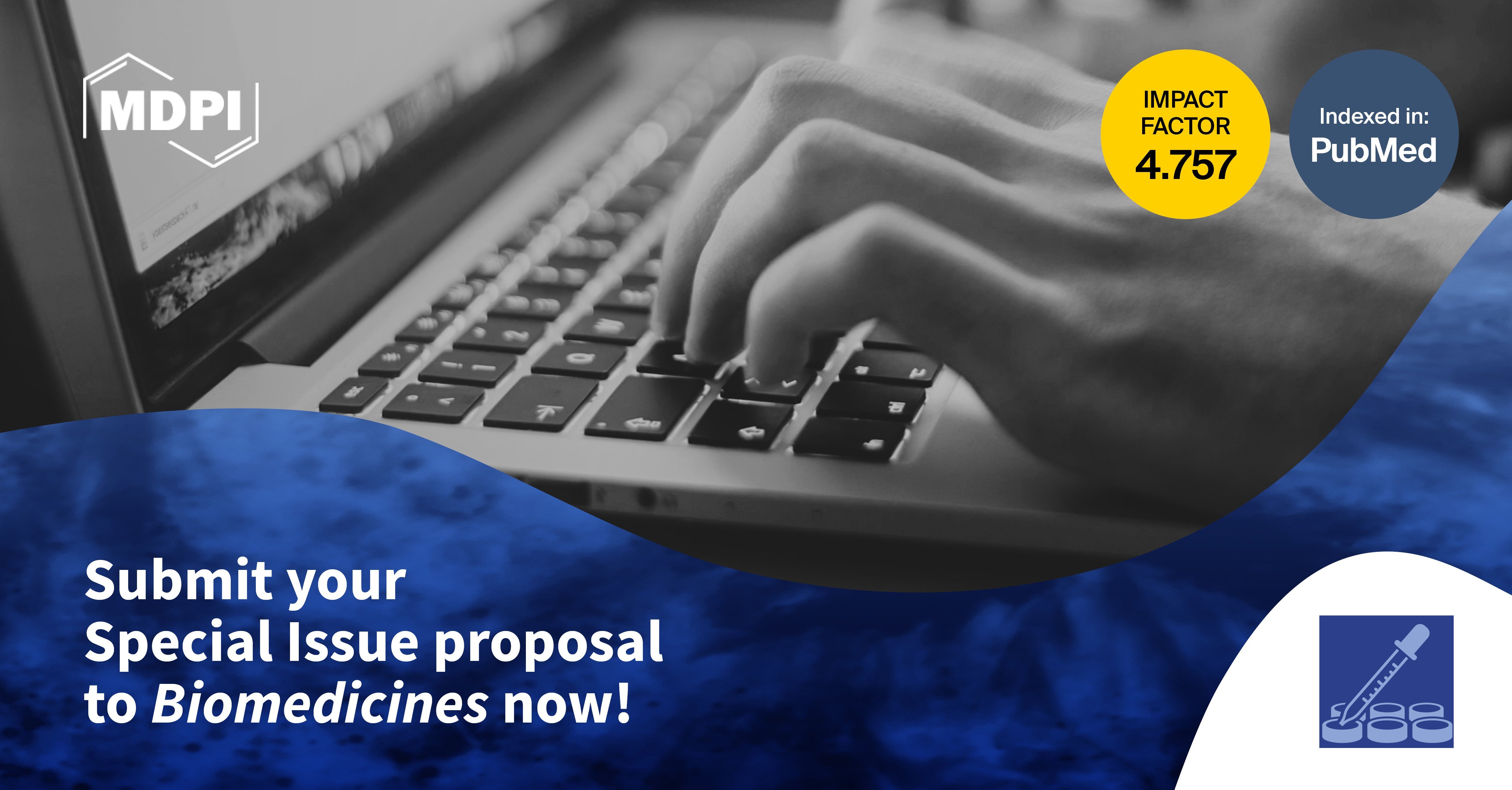
In addition to the new Special Issue Mentor Program, Biomedicines (ISSN: 2227-9059) continues to welcome all Special Issue proposals focusing on hot research topics.
1 December 2022
Editorial Board Members from Biomedicines Featured among the World’s Top 2% Scientists

Scientists at Stanford University have recently published an update of the list of the top 2% most widely cited scientists. The time node of the statistical data of this list is from 1960 to 2022, and it is divided into two lists: "Lifetime Scientific Influence Ranking" and "2022 Annual Scientific Influence Ranking". The "Lifetime Scientific Influence Ranking" counts the comprehensive influence performance of scientists during their careers, and the "2022 Annual Influence Ranking" focuses on highlighting the academic influence of scientists in the previous year. This ranking, considered the most prestigious worldwide, is based on the bibliometric information contained in the Scopus database and includes more than 200,000 researchers from the more than 10 million scientists considered to be active worldwide, with 22 scientific fields and 176 subfields taken into account.
We are pleased to share that 81 Editorial Board Members from MDPI’s journal Biomedicines (ISSN: 2227-9059) were featured in the World’s Top 2% Scientists list in 2022.
| Name | Affiliation |
| Prof. Dr. Ali Nokhodchi | University of Sussex, UK |
| Prof. Dr. Alireza Dolatshahi-Pirouz | Technical University of Denmark, Denmark |
| Dr. Anand Rotte | Arcellx Inc, USA |
| Dr. Andrea M.P. Romani | Case Western Reserve University, USA |
| Dr. Andrea Padoan | Azienda Ospedale Università Padova, Italy |
| Dr. Andrei Surguchov | University of Kansas Medical Center, USA |
| Prof. Dr. Artur Cavaco-Paulo | Universidade do Minho, Portugal |
| Prof. Dr. Baoxue Yang | Peking University Health Science Center, China |
| Dr. Bernhard Ryffel | INEM/CNRS andUniversite d'Orleans, France |
| Dr. Carlo Colosimo | Santa Maria University Hospital, Italy |
| Prof. Dr. Carmen Jerónimo | Instituto Portugues de Oncologia de Francisco Gentil Porto, Portugal |
| Prof. Dr. Catherine Thieblemont | Hôpital Saint-Louis, France |
| Dr. Celestino Sardu | Università degli Studi della Campania Luigi Vanvitelli, Italy |
| Dr. Christian Dani | Université Côte d'Azur, France |
| Dr. Christina M. Lill | Universität zu Lübeck, Germany |
| Prof. Dr. Chul Ahn | UT Southwestern Medical Center, USA |
| Dr. Chun Ming Wong | The University of Hong Kong, Hong Kong, China |
| Prof. Dr. Dimiter S. Dimitrov | University of Pittsburgh School of Medicine, USA |
| Dr. Dimitrios Kapogiannis | National Institute on Aging (NIA), USA |
| Dr. Dongryeol Ryu | SKKU School of Medicine, Korea |
| Dr. Elisa Rumi | Università degli Studi di Pavia, Italy |
| Dr. Felicetto Ferrara | Azienda Ospedaliera Di Rilievo Nazionale Antonio Cardarelli, Italy |
| Prof. Dr. Francesco Blasi | Istituto Europeo di Oncologia, Italy |
| Dr. François R. Jornayvaz | Hôpitaux Universitaires de Genève, Switzerland |
| Dr. Germana Bancone | University of Oxford, UK |
| Prof. Dr. Gianluca Gambarini | Sapienza Università di Roma, Italy |
| Prof. Dr. Gianluigi Mazzoccoli | IRCCS Casa Sollievo della Sofferenza, Italy |
| Dr. Giuseppina Basta | Istituto di Fisiologia Clinica del CNR, Italy |
| Prof. Dr. Heping Xu | Queen's University Belfast, UK |
| Prof. Dr. Jan B. Vermorken | Universitair Ziekenhuis Antwerpen, Belgium |
| Dr. Jean A. Boutin | Institut de Recherches Servier, Croissy-sur-Seine, France |
| Prof. Dr. Jeanine Walenga | Loyola University of Chicago, USA |
| Dr. Jenni Harvey | University of Dundee, UK |
| Dr. Jiake Xu | The University of Western Australia, Australia |
| Prof. Dr. José García Solé | Universidad Autónoma de Madrid, Spain |
| Prof. Dr. Juan Sahuquillo | Hospital Universitari Vall d'Hebron, Spain |
| Prof. Dr. Juergen Schrezenmeir | Kiel Center of Innovation and Technology, Germany |
| Dr. Kenichi Suda | Kindai University School of Medicine, Japan |
| Dr. Kenneth Lundstrom | PanTherapeutics, Switzerland |
| Dr. Khalid Iqbal | New York State Institute for Basic Research in Developmental Disabilities, USA |
| Dr. Kiichi Hirota | Kansai Medical University, Japan |
| Dr. L. Eric Huang | University of Utah Health, USA |
| Dr. Lennart Hardell | The Environment and Cancer Research Foundation, Sweden |
| Prof. Dr. Lia Ginaldi | Università degli Studi dell'Aquila, Italy |
| Dr. Lia Rimondini | Università del Piemonte Orientale, Italy |
| Prof. Dr. M. R. Mozafari | Monash University LPO, Australia |
| Prof. Dr. Maria Luisa Torre | Università degli Studi di Pavia, Italy |
| Dr. Makoto C. Nagano | McGill University, Canada |
| Dr. Manlio Vinciguerra | Fakultní Nemocnice u Sv. Anny v Brně, Czech Republic |
| Prof. Dr. Mario Dell'Agli | Università degli Studi di Milano, Italy |
| Dr. Meiwan Chen | University of Macau, Macao, China |
| Dr. Mike Barbeck | BerlinAnalytix GmbH, Germany |
| Prof. Dr. Natalia V. Gulyaeva | Institute of Higher Nervous Activity and Neurophysiology of RAS, Russia |
| Dr. Natasha Irrera | Università degli Studi di Messina, Italy |
| Prof. Dr. Nathalie Lassau | Universite Paris-Saclay, France |
| Dr. Navid Rabiee | Macquarie University, Australia |
| Prof. Dr. Nicola Silvestris | IRCCS Istituto Tumori Giovanni Paolo II, Italy |
| Dr. Nicoletta Galeotti | Università degli Studi di Firenze, Italy |
| Dr. Olivier Micheau | Université Bourgogne Franche-Comté, France |
| Prof. Dr. Rakesh Kumar | Swami Rama Himalayan University, India |
| Dr. Raphael Mechoulam | Hebrew University, Israel |
| Prof. Dr. Ricardo Pérez-Tomás | Universitat de Barcelona, Spain |
| Dr. Seema Singh | University of South Alabama College of Medicine, USA |
| Dr. Sergio Cortelazzo | Humanitas Gavazzeni Hospital, Italy |
| Prof. Dr. Silvia Di Agostino | Università degli studi Magna Graecia di Catanzaro, Italy |
| Dr. Simone Patergnani | University of Ferrara, Italy |
| Prof. Dr. Solomon Habtemariam | University of Greenwich, UK |
| Prof. Dr. Stefano Angioni | Università degli Studi di Cagliari, Italy |
| Dr. Steven E. Mutsaers | The University of Western Australia, Australia |
| Prof. Dr. Swee Hin Teoh | Nanyang Technological University, Singapore |
| Dr. Takenobu Katagiri | Saitama Medical University, Japan |
| Dr. Thanigaimalai Pillaiyar | Eberhard Karls Universität Tübingen, Germany |
| Dr. Thiruganesh Ramasamy | University of Pittsburgh School of Medicine, USA |
| Prof. Dr. Thomas Kietzmann | University of Oulu, Finland |
| Prof. Dr. Tracey Pirali | Università degli Studi del Piemonte Orientale Amedeo Avogadro, Italy |
| Dr. Valentina Citi | Università di Pisa, Italy |
| Dr. Valeria Barresi | Università degli Studi di Verona, Italy |
| Prof. Dr. Verinder Sharma | Western University, Canada |
| Dr. Vinay Tergaonkar | ASTAR, Singapore |
| Dr. Xi Yao | City University of Hong Kong, Hong Kong, China |
| Prof. Dr. Zaal Kokaia | Lund University, Sweden |
The latest rankings reflect the significant influence and research excellence of the scientists, who are committed to furthering their knowledge for the benefit of the world.
We would like to congratulate our Editorial Board Members on their excellent achievement and thank them for their immense contribution to the scientific progression and development of Biomedicines.
21 November 2022
Meet Us at the 15th Annual Meeting of Chinese Society for Immunology, 27–30 December 2022, Chongqing, China

A range of MDPI journals will be attending the 15th Annual Meeting of Chinese Society for Immunology. This meeting will be held in Chongqing, China, from 27 to 30 December 2022.
The conference focuses on the following areas:
- Recognition and regulation of innate immune responses;
- Adaptive immune response;
- Immune metabolism and immune regulation;
- Immunity to COVID-19 infection;
- Tumor immunity and tumor immunotherapy;
- Autoimmune diseases and other topics.
The following MDPI journals will be represented:
- IJMS (leading journal);
- Vaccines;
- Metabolites;
- Cells;
- Cancers;
- Biomedicines;
- CIMB;
- Pathogens;
- Immuno.
If you plan on attending this conference, feel free to stop by our booth #B13. Our delegates look forward to meeting you in person to answer any questions you may have.
For more information about the conference, please see the following link: https://csimeeting2022.sciconf.cn/cn/web/index/13562.
21 October 2022
Biomedicines 2022 Young Investigator Award—Winners Announced

We are pleased to announce that the winners of the Biomedicines 2022 Young Investigator Award are Dr. Yuyan Jiang and Prof. Billy Wai-Lung Ng.
Dr. Yuyan Jiang is a postdoctoral researcher at the Department of Radiation Oncology at Stanford University, USA. Dr. Jiang is a highly productive young researcher with special interests in developing next-generation radio-sensitizer, bio-responsive cancer nanomedicine and photoactive ultrasensitive molecular probes for deep-tissue diagnosis. Since the beginning of her scientific career in 2016, she has published 39 peer-review articles in high-ranking journals including Nature Biomedical Engineering, Nature Communications, Chemical Reviews, Accounts of Chemical Research, etc. According to Google Scholar, her research has received > 5,500 citations and her h-index is 36. Dr. Jiang is an Editorial Board Member of Materials and Collagen and Leather. She is also the Guest Editor of two Materials Special Issues, including “Advanced Biomaterials Design and Sensing Application” and “Advanced Biomaterials for Cancer Sonodynamic Therapy”.
Prof. Billy Wai-Lung Ng leads the Ng Lab of Chemical Biology and Drug Discovery at the School of Pharmacy, Chinese University of Hong Kong (CUHK). His research interests are chemical biology, drug discovery, and medicinal chemistry. Prof. Ng completed his postdoctoral training at Harvard Medical School/Dana-Farber Cancer Institute. Prior to Harvard, he was a research fellow at the University of Oxford, with funding support from the Croucher Foundation and Marie Curie Fellowship. He was a Fulbright Scholar at Massachusetts Institute of Technology (MIT) during his graduate study. He obtained his Ph.D. and B.Sc. (1st Class Hons.) in chemistry from CUHK. He has co-authored more than 20 papers in prestigious journals such as Science, Nature Chemical Biology, Molecular Cell, J. Am. Chem. Soc., Angew. Chem. Int. Ed., and ACS Central Science and he also serves as a reviewer for more than 20 journals including Science Translational Medicine, Nature Chemical Biology, and Nature Biotechnology. Prof. Ng was honored as a Young Global Leader (YGL) by the World Economic Forum in 2022. For further details, please visit his lab webpage: https://www.ngwailung.com.
As the awardees, Dr. Yuyan Jiang and Prof. Billy Wai-Lung Ng will each receive an honorarium of CHF 1000 and an electronic certificate.
We would like to thank all the nominators from various fields of study for their participation and all the Award Committee Members for their evaluation of the many excellent nominations.
On behalf of Biomedicines 2022 Young Investigator Evaluation Committee,
Prof. Dr. Shaker A. Mousa
Editor-in-Chief
29 September 2022
Meet Us at the 2022 BMES Annual Meeting, 12–15 October 2022, San Antonio, Texas, USA

Conference: 2022 BMES Annual Meeting
Date: 12–15 October 2022
Place: San Antonio, Texas, USA
Booth: #346
MDPI will be attending the 2022 BMES Annual Meeting as an exhibitor from 12 to 15 October 2022 in San Antonio, Texas, USA.
BMES holds an annual meeting where they have hosted up to 5,500 biomedical engineers who attend more than 2,500 scientific presentations on cancer treatment, heart disease, women’s health, global health disparities, and more. The meeting allows members to advocate for their innovative solutions, demonstrating their commitment to the society’s core value of health equity for all individuals. In addition, BMES shares scientific information to inspire the up-and-coming generation through four scientific journals, three special interest groups, and collaborations with other scientific societies to elevate the visibility and significant impact that the biomedical engineering community has worldwide as the thought leaders behind the future of human health.
From 12 to 15 October 2022, in the vibrant multicultural city of San Antonio, we will celebrate the tremendous contributions made by BMES members in research, teaching, education, and the workforce that directly impact many sectors of our society. We also aim to highlight equity issues in healthcare and education, stemming from racial and socioeconomic diversity, gender and sexual orientation, and disabilities.
The following MDPI journals will be represented:
- Applied Sciences;
- Bioengineering;
- Biomedicines;
- Biomimetics;
- Biomolecules;
- Biosensors;
- Cancers;
- CIMB;
- Diseases.
Please do not hesitate to reach out if you plan on attending this conference. Our delegates look forward to meeting you in person and answering any questions that you might have.
For more information about the conference, please visit the following website: https://www.bmes.org/annualmeeting.
28 September 2022
Peer Review Week 2022 – Research Integrity: Creating and Supporting Trust in Research

Peer Review Week began 19 September 2022 under the theme of “Research Integrity: Creating and Supporting Trust in Research”. Through various blog articles, podcast, and webinar, we discussed this crucial subject throughout the week, celebrating the essential role peer review plays in maintaining research quality.
To begin, we held a Webinar on the topic. Professor Peter W. Choate and Dr. Emmanuel Obeng-Gyasi joined Dr. Ioana Craciun, one of MDPI’s scientific officers, for an in-depth discussion.
We invite you to view the event recording:
During the week, the MDPI Blog in a series articles highlighted how good Peer Review safeguards research integrity. The following topics were covered:
- Peer Review Week 2022
- Research Integrity
- What We’ve Learned About Peer Review Reports
- 4 Steps to the Perfect Peer Review Report
- How to Write the Perfect Peer Review Report: An Interview
- Inviting Great Peer Reviewers
In a new edition of Insight Faster, an MDPI podcast, we were delighted to talk to the co-chairs of the Peer Review Week committee, Jayashree Rajagopalan (Senior Manager of Global Community Engagement for CACTUS) and Danielle Padula (Head of Marketing and Community Development at Scholastica) to get their take on this year’s event and its related topics.
You can find the Podcast here.
We hope you enjoy the contents!
26 September 2022
Meet Us Online at the 2nd International Electronic Conference on Biomedicines (ECB 2023), 1–31 March 2023

Conference: ECB 2023: The 2nd International Electronic Conference on Biomedicines
Date: 1–31 March 2023
Biomedicines (ISSN: 2227-9059) is pleased to announce this call for participation in the 2nd International Electronic Conference on Biomedicines. ECB 2023 seeks to fulfill the need of academics to gather to share results and ideas by offering a completely digital (online) method of running this scientific conference. Researchers currently working on biomedicines are encouraged to join this event and share their findings with colleagues from all over the world.
The conference will cover but not be limited to the following general and related themes:
- Frontiers of biomedicine in SARS-CoV-2;
- RNA processing and human diseases;
- Extracellular vesicles for biomarker discovery;
- Medicinally active plants and phytochemicals;
- Molecular mechanisms of neurodegeneration;
- Immune system, tumor immunology, and autoimmune disease;
- Obesity and metabolic diseases;
- Nutraceuticals as adjuvant therapeutics;
- Musculoskeletal tissue regeneration;
- Wound healing;
- Peptide-based piezoelectric materials;
- Nanomedicine, combination cancer therapy, and immunotherapy.
All submitted abstracts will be evaluated by the conference peer review committee. Upon acceptance, authors will contribute an extended abstract for the conference proceedings and a slide presentation of their work. The authors with outstanding contributions will be invited to submit full manuscripts for potential publication in Biomedicines (https://www.mdpi.com/journal/biomedicines).
Important Dates:
Abstract Submission: 5 January 2023;
Acceptance Notification: 16 January 2023;
Full Paper Submission: 6 February 2023;
Final Paper Notification: 17 February 2023.
The Scientific Committee looks forward to receiving contributions in response to this call and will be happy to provide any further information to interested parties. Any questions may be addressed to the conference secretariat ([email protected]).
We thank you in advance for attending this conference, and we look forward to a stimulating exchange.
To find out more about the conference, please visit the following link: https://ecb2023.sciforum.net.
22 September 2022
Recruiting Volunteer Reviewers for Biomedicines
Biomedicines (ISSN: 2227-9059) is recruiting volunteer reviewers. Reviewers are responsible for regularly providing timely, high-quality reports on manuscripts submitted to the journal. More information about the role is available at: https://www.mdpi.com/reviewers.
Peer review constitutes an essential part of the publication process, ensuring that papers published in Biomedicines maintain its high standards. We are looking to recruit expert reviewers to help uphold the journal’s quality and efficiency expectations.
To apply, please visit the following link: https://susy.mdpi.com/volunteer/journals/review.
7 September 2022
Meet Us at the ASHG Annual Meeting 2022 (ASHG 2022), 25–29 October 2022, Los Angeles, USA

MDPI will be attending ASHG 2022, held in Los Angeles, USA, from 25 to 29 October 2022.
The following MDPI journals will be represented:
- Genes;
- JPM;
- Biomedicines;
- Biomolecules;
- Cardiogenetics;
- Cancers;
- Brain Science;
- Symmetry;
- Diagnostics;
- Metabolites;
- Cells;
- Biology;
- Humans;
- DNA.
If you plan on attending this conference, feel free to stop by our booth: #1844. Our delegates look forward to meeting you in person to answer any questions you may have.
For more information about the conference, please see the following link:
6 July 2022
Recruiting Topical Advisory Panel Members for Biomedicines
We are currently recruiting Topical Advisory Panel Members for the journal Biomedicines (ISSN: 2227-9059). The main responsibility of the new members of the Topical Advisory Panel is to regularly provide support to Guest Editors and Editorial Board Members. More information on the responsibilities of the Topical Advisory Panel is available at the following link: https://www.mdpi.com/editors#Supporting_Editor_Responsibilities.
Biomedicines is an international, scientific, peer-reviewed, open access journal on biomedicines published monthly online by MDPI. The aims and scope of the journal can be found on the following website: https://www.mdpi.com/journal/biomedicines/about.
The benefits of Topical Advisory Panel Members include the following:
- The opportunity to publish one paper per year with a discount in Biomedicines, as well as potential discounts for additional papers you invite;
- A certificate of recognition of your position;
- Additional sponsorships for conferences organized by Topical Advisory Panel Members of Biomedicines;
- Travel grants for conferences that you attend or organize.
To qualify as a Topical Advisory Panel Member, applicants must:
- Have experience in a field related to the journal;
- Have completed their Ph.D. within approximately the last 10 years;
- Have at least 6 papers published in the last 5 years, as a first author or corresponding author;
- Currently hold an independent research position in academia or a government institute.
If you are interested in this position, please apply via the following link: https://www.mdpi.com/journal/biomedicines/topical_advisory_panel_application, or send an email to [email protected] with your academic CV. We look forward to hearing from you!
Biomedicines Editorial Office
6 July 2022
Welcoming New Editorial Board Members of Biomedicines
We are delighted to welcome the following nine recognized researchers who recently joined the Editorial Board of Biomedicines (ISSN: 2227-9059).
|
Editorial Board Members: |
Affiliations: |
|
Prof. Dr. Zhi Shi |
Jinan University, China |
|
Prof. Dr. Chuan Li |
National Yang Ming Chiao Tung University, Taiwan |
|
Dr. Christos K. Kontos |
National and Kapodistrian University of Athens, Greece |
|
Prof. Dr. Swee Hin Teoh |
Nanyang Technological University, Singapore |
|
Dr. Mihaela Gherghiceanu |
Victor Babes National Institute of Pathology, Romania |
|
Dr. Xi Yao |
City University of Hong Kong, Tat Chee Avenue, Hong Kong |
|
Prof. Dr. Dafang Chen |
Peking University, China |
|
Dr. Ryota Niikura |
Tokyo Medical University, Japan |
|
Dr. Barbara Rath |
Vienna Vaccine Safety Initiative, Germany |
We look forward to their every success, both in their research and in the development of the journal.
Further details concerning the Editorial Board can be found at the following link: https://www.mdpi.com/journal/biomedicines/editors.
28 June 2022
2021 Impact Factors - Released
The 2021 citation metrics have been released in the Journal Citation Reports (JCR), and we’re pleased to announce the following results for MDPI journals:

| Journal | Impact Factor | Rank | Category |
| Antioxidants | 7.675 | Q1 | Food Science & Technology |
| Biochemistry & Molecular Biology | |||
| Chemistry, Medicinal | |||
| Cells | 7.666 | Q2 | Cell Biology |
| Nutrients | 6.706 | Q1 | Nutrition & Dietetics |
| Cancers | 6.575 | Q1 | Oncology |
| Pharmaceutics | 6.525 | Q1 | Pharmacology & Pharmacy |
| International Journal of Molecular Sciences | 6.208 | Q1 | Biochemistry & Molecular Biology |
| Q2 | Chemistry, Multidisciplinary | ||
| Marine Drugs | 6.085 | Q1 | Chemistry, Medicinal |
| Pharmacology & Pharmacy | |||
| Biomolecules | 6.064 | Q2 | Biochemistry & Molecular Biology |
| Batteries * | 5.938 | Q2 | Electrochemistry |
| Energy & Fuels | |||
| Materials Science, Multidisciplinary | |||
| Viruses | 5.818 | Q2 | Virology |
| Biosensors | 5.743 | Q1 | Chemistry, Analytical |
| Instruments & Instrumentation | |||
| Q2 | Nanoscience & Nanotechnology | ||
| Journal of Fungi | 5.724 | Q1 | Mycology |
| Q2 | Microbiology | ||
| Nanomaterials | 5.719 | Q1 | Physics, Applied |
| Q2 | Chemistry, Multidisciplinary | ||
| Materials Science, Multidisciplinary | |||
| Nanoscience & Nanotechnology | |||
| Metabolites | 5.581 | Q2 | Biochemistry & Molecular Biology |
| Foods | 5.561 | Q1 | Food Science & Technology |
| Drones * | 5.532 | Q2 | Remote Sensing |
| Remote Sensing | 5.349 | Q1 | Geosciences, Multidisciplinary |
| Imaging Science & Photographic Technology | |||
| Q2 | Remote Sensing | ||
| Environmental Sciences | |||
| Journal of Theoretical and Applied Electronic Commerce Research | 5.318 | Q2 | Business |
| Antibiotics | 5.222 | Q1 | Pharmacology & Pharmacy |
| Q2 | Infectious Diseases | ||
| Pharmaceuticals | 5.215 | Q1 | Pharmacology & Pharmacy |
| Q2 | Chemistry, Medicinal | ||
| Biology | 5.168 | Q1 | Biology |
| Fermentation | 5.123 | Q2 | Biotechnology & Applied Microbiology |
| Toxins | 5.075 | Q1 | Toxicology |
| Q2 | Food Science & Technology | ||
| Bioengineering * | 5.046 | Q2 | Engineering, Biomedical |
| Polymers | 4.967 | Q1 | Polymer Science |
| Journal of Clinical Medicine | 4.964 | Q2 | Medicine, General & Internal |
| Vaccines | 4.961 | Q2 | Immunology |
| Medicine, Research & Experimental | |||
| Molecules | 4.927 | Q2 | Chemistry, Multidisciplinary |
| Biochemistry & Molecular Biology | |||
| Microorganisms | 4.926 | Q2 | Microbiology |
| Journal of Functional Biomaterials * | 4.901 | Q2 | Engineering, Biomedical |
| Materials Science, Biomaterials | |||
| Biomedicines | 4.757 | Q2 | Medicine, Research & Experimental |
| Pharmacology & Pharmacy | |||
| Biochemistry & Molecular Biology | |||
| Plants | 4.658 | Q1 | Plant Sciences |
| International Journal of Environmental Research and Public Health | 4.614 | Q1 | Public, Environmental & Occupational Health (SSCI) |
| Q2 | Public, Environmental & Occupational Health (SCIE) | ||
| Environmental Sciences (SCIE) | |||
| Membranes | 4.562 | Q1 | Polymer Science |
| Q2 | Engineering, Chemical | ||
| Materials Science, Multidisciplinary | |||
| Chemistry, Physical | |||
| Pathogens | 4.531 | Q2 | Microbiology |
| Catalysts | 4.501 | Q2 | Chemistry, Physical |
| Toxics | 4.472 | Q2 | Toxicology |
| Environmental Sciences | |||
| Gels | 4.432 | Q1 | Polymer Science |
| Journal of Cardiovascular Development and Disease | 4.415 | Q2 | Cardiac & Cardiovascular Systems |
| Chemosensors | 4.229 | Q1 | Instruments & Instrumentation |
| Q2 | Chemistry, Analytical | ||
| Q3 | Electrochemistry | ||
| Genes | 4.141 | Q2 | Genetics & Heredity |
| Diagnostics | 3.992 | Q2 | Medicine, General & Internal |
| Agronomy | 3.949 | Q1 | Agronomy |
| Plant Sciences | |||
| Land | 3.905 | Q2 | Environmental Studies |
| Sustainability | 3.889 | Q2 | Environmental Sciences (SCIE) |
| Environmental Studies (SSCI) | |||
| Q3 | Green & Sustainable Science & Technology (SCIE) | ||
| Q4 | Green & Sustainable Science & Technology (SSCI) | ||
| Sensors | 3.847 | Q2 | Instruments & Instrumentation |
| Chemistry, Analytical | |||
| Engineering, Electrical & Electronic | |||
| Materials | 3.748 | Q1 | Metallurgy & Metallurgical Engineering |
| Q2 | Physics, Applied | ||
| Physics, Condensed Matter | |||
| Q3 | Materials Science, Multidisciplinary | ||
| Chemistry, Physical | |||
| Biomimetics * | 3.743 | Q2 | Engineering, Multidisciplinary |
| Q3 | Materials Science, Biomaterials | ||
| Tropical Medicine and Infectious Disease * | 3.711 | Q1 | Tropical Medicine |
| Q2 | Parasitology | ||
| Q3 | Infectious Diseases | ||
| Lubricants * | 3.584 | Q2 | Engineering, Mechanical |
| Fractal and Fractional | 3.577 | Q1 | Mathematics, Interdisciplinary Applications |
| Water | 3.530 | Q2 | Water Resources |
| Q3 | Environmental Sciences | ||
| Micromachines | 3.523 | Q2 | Instruments & Instrumentation |
| Physics, Applied | |||
| Chemistry, Analytical | |||
| Q3 | Nanoscience & Nanotechnology | ||
| Journal of Personalized Medicine | 3.508 | Q2 | Medicine, General & Internal |
| Health Care Sciences & Services | |||
| Agriculture | 3.408 | Q1 | Agronomy |
| Processes | 3.352 | Q2 | Engineering, Chemical |
| Separations | 3.344 | Q2 | Chemistry, Analytical |
| Magnetochemistry | 3.336 | Q2 | Chemistry, Inorganic & Nuclear |
| Q3 | Chemistry, Physical | ||
| Materials Science, Multidisciplinary | |||
| Brain Sciences | 3.333 | Q3 | Neurosciences |
| Buildings | 3.324 | Q2 | Construction & Building Technology |
| Engineering, Civil | |||
| Forests | 3.282 | Q1 | Forestry |
| Energies | 3.252 | Q3 | Energy & Fuels |
| Life | 3.251 | Q2 | Biology |
| Coatings | 3.236 | Q2 | Materials Science, Coatings & Films |
| Physics, Applied | |||
| Q3 | Materials Science, Multidisciplinary | ||
| Animals | 3.231 | Q1 | Agriculture, Dairy & Animal Science |
| Veterinary Sciences | |||
| Journal of Intelligence * | 3.176 | Q2 | Psychology, Multidisciplinary |
| Fishes | 3.170 | Q1 | Marine & Freshwater Biology |
| Q2 | Fisheries | ||
| Healthcare | 3.160 | Q2 | Health Policy & Services (SSCI) |
| Health Care Sciences & Services (SCIE) | |||
| Inorganics * | 3.149 | Q2 | Chemistry, Inorganic & Nuclear |
| Insects | 3.139 | Q1 | Entomology |
| Atmosphere | 3.110 | Q3 | Meteorology & Atmospheric Sciences |
| Environmental Sciences | |||
| Current Oncology | 3.109 | Q3 | Oncology |
| ISPRS International Journal of Geo-Information | 3.099 | Q2 | Geography, Physical |
| Q3 | Computer Science, Information Systems | ||
| Remote Sensing | |||
| Diversity | 3.029 | Q2 | Biodiversity Conservation |
| Ecology | |||
| Tomography | 3.000 | Q3 | Radiology, Nuclear Medicine & Medical Imaging |
| Current Issues in Molecular Biology | 2.976 | Q3 | Biochemistry & Molecular Biology |
| Medicina | 2.948 | Q3 | Medicine, General & Internal |
| Symmetry | 2.940 | Q2 | Multidisciplinary Sciences |
| Horticulturae | 2.923 | Q1 | Horticulture |
| Machines | 2.899 | Q2 | Engineering, Mechanical |
| Engineering, Electrical & Electronic | |||
| Systems * | 2.895 | Q2 | Social Sciences, Interdisciplinary |
| Applied Sciences | 2.838 | Q2 | Engineering, Multidisciplinary |
| Physics, Applied | |||
| Q3 | Chemistry, Multidisciplinary | ||
| Materials Science, Multidisciplinary | |||
| Children | 2.835 | Q2 | Pediatrics |
| Minerals | 2.818 | Q2 | Mining & Mineral Processing |
| Mineralogy | |||
| Geochemistry & Geophysics | |||
| Universe | 2.813 | Q2 | Astronomy & Astrophysics |
| Q3 | Physics, Particles & Fields | ||
| Journal of Marine Science and Engineering | 2.744 | Q1 | Engineering, Marine |
| Q2 | Oceanography | ||
| Engineering, Ocean | |||
| Entropy | 2.738 | Q2 | Physics, Multidisciplinary |
| Fire * | 2.726 | Q2 | Forestry |
| Q3 | Ecology | ||
| Metals | 2.695 | Q2 | Metallurgy & Metallurgical Engineering |
| Q3 | Materials Science, Multidisciplinary | ||
| Electronics | 2.690 | Q3 | Engineering, Electrical & Electronic |
| Computer Science, Information Systems | |||
| Physics, Applied | |||
| Crystals | 2.670 | Q2 | Crystallography |
| Q3 | Materials Science, Multidisciplinary | ||
| Aerospace | 2.660 | Q1 | Engineering, Aerospace |
| Mathematics | 2.592 | Q1 | Mathematics |
| Photonics | 2.536 | Q3 | Optics |
| Actuators | 2.523 | Q2 | Instruments & Instrumentation |
| Q3 | Engineering, Mechanical | ||
| Veterinary Sciences | 2.518 | Q2 | Veterinary Sciences |
| Behavioral Sciences * | 2.286 | Q3 | Psychology, Multidisciplinary |
| Axioms * | 1.824 | Q2 | Mathematics, Applied |
For more information on Impact Factors and what it means to index academic journals, please visit our related blog posts.
* Journals given their first Impact Factor in 2022
Source: 2021 Journal Impact Factors, Journal Citation Reports TM (Clarivate, 2022)
20 June 2022
MDPI’s 2021 Young Investigator Awards in “Medicine & Pharmacology”—Winners Announced
MDPI’s Young Investigator Awards recognize promising junior researchers, acknowledge their contributions, and enhance communication among scientists. We are proud to present the winners for the year 2021 in the “Medicine & Pharmacology” category. The winners were selected by the journals’ editors.
We warmly congratulate the awarded young investigators for their outstanding contributions. MDPI will continue to provide support and recognition to the academic community.
- Jasper Fuk-Woo Chan, Queen Mary Hospital, Hong Kong
- Mateusz Maciejczyk, Medical University of Bialystok, Poland
- Matteo Lambertini, University of Genova, Italy
- Helen Rogers, Newcastle University, UK
- Amir Karami, University of South Carolina, USA
- Andrea Palermo, Campus Bio-Medico University, Italy
Journal of Personalized Medicine:
- Simone Di Franco, University of Palermo, Italy
- Catriona Hippman, University of Calgary, Canada
- Veeru Kasivisvanathan, University College London, UK
- Andrea Cortegiani, University of Palermo, Italy; University Hospital Policlinico Paolo Giaccone, Italy
- Qi Zhou, Purdue University, USA
20 June 2022
MDPI’s 2021 Travel Awards in “Medicine & Pharmacology”—Winners Announced
We are proud to recognize the winners of MDPI’s 2021 Travel Awards in the “Medicine & Pharmacology” category for their outstanding presentations and to present them with the prize.
MDPI journals regularly offer travel awards to encourage talented junior scientists to present their latest research at academic conferences in specific fields, which helps to increase their influence.
The winners mentioned below were carefully selected by the journal editors based on an outline of their research and the work to be presented at an academic conference.
We would like to warmly congratulate the Travel Awards winners for the year 2021 and wish them the greatest success with their future research endeavors. MDPI will continue to enhance communication among scientists.
- Soheil Saeedi, University of Zurich, Switzerland
- Shawn Alexander Hallett, University of Michigan, USA
- Claire Albert, Yale University, USA
- Raquel Filipa da Costa Viveiros, NOVA University of Lisbon, Portugal
- Patrick Jim Küppers, University Hospital Bonn, Germany
20 June 2022
MDPI’s 2021 Outstanding Reviewer Awards in “Medicine & Pharmacology”—Winners Announced
In order to acknowledge our reviewers, who so generously dedicate their time to reviewing papers, and demonstrate diligence, professionalism, and timeliness when reviewing manuscripts, MDPI journals regularly offer outstanding reviewer awards to scholars who participate in the peer-review process.
We are proud to recognize winners for the year 2021 in the “Medicine & Pharmacology” category for their outstanding contributions among extensive competition by presenting them with an Outstanding Reviewer Award.
We would like to take this opportunity to congratulate all of the winners on their achievement. MDPI will continue to provide support and recognition to the academic community.
- Antonio G. Solimando, University of Bari Aldo Moro, Italy
- Chenghui Li, University of Arkansas for Medical Sciences, USA
- Joaquim Carreras, Tokai University, Japan
- Pierfrancesco Franco, University of Turin School of Medicine, Italy
- Laurentiu Pop, University of Texas Southwestern Medical Center, USA
- Margaret Fitch, University of Toronto, Canada
- Caroline Mariano, BC Cancer Agency, Canada; University of British Columbia, Canada
- Naser Alsharairi, Griffith University, Australia
- Peter W. Choate, Mount Royal University, Canada
- Qin Xiang Ng, National University of Singapore, Singapore
- Giulio Francesco, Sapienza University of Rome, Italy
- Sebastian Schnaubelt, Medical University of Vienna, Austria
- Olga Kislitsina, Northwestern University, Northwestern Memorial Hospital, USA
Journal of Personalized Medicine:
- Onofrio Laselva, University of Foggia, Italy
- Ping-Hsun Wu, Kaohsiung Medical University, Taiwan
- Vladimir Vladimirov, Virginia Commonwealth University, USA
- Mauro Giuffrè, University of Trieste, Italy
- Erika Palmieri, National Cancer Institute at Frederick, USA
- Anjul Khadria, California Institute of Technology, Pasadena, USA
20 June 2022
MDPI’s 2021 Best Paper Awards in “Medicine & Pharmacology”—Winners Announced
The purpose of our Best Paper Awards is to promote and recognize the most impactful contributions published within MDPI journals.
The editors of each journal carefully selected reviews and research papers through a rigorous judging process based on criteria such as the scientific merit, overall impact, and the quality of presentation of the papers published in the journal last year.
We are honored to present the winners in the “Medicine & Pharmacology” category, who were selected amongst extensive competition, and congratulate the authors for their outstanding scientific publications.
MDPI will continue to provide support and recognition to the academic community.
by Eunice Ego Mgbeahuruike, Milla Stålnacke, Heikki Vuorela and Yvonne Holm
Antibiotics 2019, 8(2), 55; doi:10.3390/antibiotics8020055
by Bernardo Ribeiro da Cunha, Luís P. Fonseca and Cecília R. C. Calado
Antibiotics 2019, 8(2), 45; doi:10.3390/antibiotics8020045
by Zvi Artzi, Shiran Sudri, Ori Platner and Avital Kozlovsky
Dent. J. 2019, 7(1), 29; doi:10.3390/dj7010029
by Philipp Sahrmann, Cyrill Bettschart, Daniel B. Wiedemeier, Ahmed Al-Majid, Thomas Attin and Patrick R. Schmidlin
Dent. J. 2019, 7(4), 115; doi:10.3390/dj7040115
by Chantal Huisman and Helianthe Kort
Healthcare 2019, 7(1), 31; doi:10.3390/healthcare7010031
by Vijay Kumar Chattu, Soosanna Kumary Chattu, Deepa Burman, David Warren Spence and Seithikurippu R. Pandi-Perumal
Healthcare 2019, 7(1), 37; doi:10.3390/healthcare7010037
by Eija Könönen, Mervi Gursoy and Ulvi Kahraman Gursoy
Clin. Med. 2019, 8(8), 1135; doi:10.3390/jcm8081135
by Yueyuan Zhou, Yusuke Yamamoto, Zhongdang Xiao and Takahiro Ochiya
Clin. Med. 2019, 8(7), 1025; doi:10.3390/jcm8071025
by Tara K. Sigdel, Felipe Acosta Archila, Tudor Constantin, Sarah A. Prins, Juliane Liberto, Izabella Damm, Parhom Towfighi, Samantha Navarro, Eser Kirkizlar, Zachary P. Demko, Allison Ryan, Styrmir Sigurjonsson, Reuben D. Sarwal, Szu-Chuan Hseish, Chitranon Chan-On, Bernhard Zimmermann, Paul R. Billings, Solomon Moshkevich and Minnie M. Sarwal
Clin. Med. 2019, 8(1), 19; doi:10.3390/jcm8010019
by Borros Arneth
Medicina 2020, 56(1), 15; doi: 10.3390/medicina56010015
by Márió Gajdács, Marianna Ábrók, Andrea Lázár, and Katalin Burián
Medicina 2019, 55(7), 356; doi: 10.3390/medicina55070356
by Atheer Awad, Fabrizio Fina, Sarah J. Trenfield, Pavanesh Patel, Alvaro Goyanes, Simon Gaisford and Abdul W. Basit.
Pharmaceutics 2019, 11(4), 148; doi:10.3390/pharmaceutics11040148
by Constantin Mircioiu, Victor Voicu, Valentina Anuta, Andra Tudose, Christian Celia, Donatella Paolino, Massimo Fresta, Roxana Sandulovici and Ion Mircioiu
Pharmaceutics 2019, 11(3), 140; doi:10.3390/pharmaceutics11030140
9 June 2022
2021 CiteScores - Released

The 2021 citation metrics have been officially released in Scopus!
We are pleased to announce that 182 MDPI journals are included, of which:
● 21 journals received their first CiteScore.
● 85% of journals increased their CiteScore from 2020.
● 155 journals (85%) ranked above average, in at least one category.
The following 65 MDPI journals (36%) ranked among the top 25% of journals, in at least one category:
|
Journal |
CiteScore |
Quartile |
Category |
|
10.1 |
Q1 |
Genetics |
|
|
10.0 |
Q1 |
Biomedical Engineering |
|
|
8.1 |
Q1 |
Pharmacology, Toxicology and Pharmaceutics (miscellaneous) |
|
|
7.9 |
Q1 |
Electrical and Electronic Engineering |
|
|
7.9 |
Q1 |
Nutrition and Dietetics |
|
|
7.4 |
Q1 |
General Earth and Planetary Sciences |
|
|
7.2 |
Q1 |
Computer Science Applications |
|
|
6.9 |
Q1 |
Inorganic Chemistry |
|
|
6.9 |
Q1 |
Computer Networks and Communications |
|
|
6.7 |
Q1 |
General Biochemistry, Genetics and Molecular Biology |
|
|
6.6 |
Q1 |
General Chemical Engineering |
|
|
6.6 |
Q1 |
Health, Toxicology and Mutagenesis |
|
|
6.6 |
Q1 |
Infectious Diseases |
|
|
6.5 |
Q1 |
Food Science |
|
|
6.5 |
Q1 |
Civil and Structural Engineering |
|
|
6.4 |
Q1 |
Nature and Landscape Conservation |
|
|
6.4 |
Q1 |
Instrumentation |
|
|
6.1 |
Q1 |
Management Information Systems |
|
|
5.9 |
Q1 |
Chemistry (miscellaneous) |
|
|
5.7 |
Q1 |
Polymers and Plastics |
|
|
5.6 |
Q1 |
Engineering (miscellaneous) |
|
|
5.5 |
Q1 |
General Environmental Science |
|
|
5.5 |
Q1 |
Urban Studies |
|
|
5.4 |
Q2 |
Computer Networks and Communications |
|
|
5.3 |
Q1 |
Food Science |
|
|
5.3 |
Q1 |
Plant Science |
|
|
5.2 |
Q1 |
Ecology, Evolution, Behavior and Systematics |
|
|
5.2 |
Q1 |
General Engineering |
|
|
Journal of Open Innovation: Technology, Market, and Complexity |
5.1 |
Q1 |
Development |
|
5.0 |
Q1 |
Chemistry (miscellaneous) |
|
|
5.0 |
Q1 |
Control and Optimization |
|
|
5.0 |
Q1 |
Geography, Planning and Development |
|
|
5.0 |
Q1 |
Geography, Planning and Development |
|
|
4.9 |
Q1 |
Forestry |
|
|
4.9 |
Q1 |
Control and Optimization |
|
|
4.9 |
Q1 |
Soil Science |
|
|
4.8 |
Q1 |
General Earth and Planetary Sciences |
|
|
4.8 |
Q1 |
Mechanical Engineering |
|
|
4.8 |
Q1 |
Public Health, Environmental and Occupational Health |
|
|
4.8 |
Q1 |
Geography, Planning and Development |
|
|
International Journal of Environmental Research and Public Health |
4.5 |
Q1 |
Public Health, Environmental and Occupational Health |
|
4.5 |
Q1 |
Physical Therapy, Sports Therapy and Rehabilitation |
|
|
4.4 |
Q1 |
Mathematical Physics |
|
|
4.4 |
Q1 |
General Medicine |
|
|
4.3 |
Q1 |
General Mathematics |
|
|
4.2 |
Q1 |
Surgery |
|
|
4.1 |
Q1 |
Health Professions (miscellaneous) |
|
|
4.1 |
Q1 |
Plant Science |
|
|
4.0 |
Q1 |
General Engineering |
|
|
4.0 |
Q1 |
Forestry |
|
|
4.0 |
Q1 |
Education |
|
|
3.9 |
Q1 |
General Pharmacology, Toxicology and Pharmaceutics |
|
|
3.9 |
Q1 |
Applied Mathematics |
|
|
3.8 |
Q1 |
Development |
|
|
3.8 |
Q1 |
Architecture |
|
|
3.8 |
Q1 |
Metals and Alloys |
|
|
3.5 |
Q1 |
Communication |
|
|
3.4 |
Q1 |
General Social Sciences |
|
|
2.9 |
Q1 |
General Mathematics |
|
|
2.8 |
Q1 |
Analysis |
|
|
2.7 |
Q1 |
General Veterinary |
|
|
2.6 |
Q1 |
Algebra and Number Theory |
|
|
1.8 |
Q1 |
Conservation |
|
|
1.0 |
Q1 |
Religious Studies |
|
|
0.9 |
Q1 |
Philosophy |
Source: 2021 CiteScores™ (Elsevier)
29 March 2022
Welcoming New Section Editors-in-Chief of Biomedicines
We are pleased to announce that Prof. Dr. Robert Passier has been appointed Editor-in-Chief of Section “Biomedical Engineering in Human Health” and Prof. Dr. Manfredi Tesauro has been appointed Editor-in-Chief of Section “Endocrinology and Metabolism Research”. We look forward to their contributions to Biomedicines (ISSN: 2227-9059).
|
|
Name: Prof. Dr. Robert Passier |
|
|
Name: Prof. Dr. Manfredi Tesauro |
9 December 2021
Biomedicines | 10th Anniversary

The year 2022 marks the 10th anniversary of Biomedicines (ISSN: 2227-9059, IF: 6.081), a peer-reviewed, open access journal based on research in the field of biomedicine. Thus far, more than 2800 papers from more than 17,000 authors have been published in Biomedicines. As well as this, more than 6300 reviewers have submitted at least one review report to this journal. We value the contributions made by authors and reviewers. To celebrate the 10th anniversary of Biomedicines, we are arranging events and the release of special content. We hope that you will be able to join us to celebrate this milestone of our journal.
If you have any questions, suggestions, or recommendations, please do not hesitate to contact [email protected].
Biomedicines Editorial Office
22 November 2021
722 MDPI Editorial Board Members Receiving "2021 Highly Cited Researchers" Distinction
It is our great honor to congratulate the Editorial Board Members and Editors in MDPI's journals who have been distinguished as 2021 Highly Cited Researchers by Clarivate, according to Web of Science data. We herewith express our gratitude for the immense impact the named researchers continue to make on scientific progress and on our journals' development.
Clarivate's annual list of Highly Cited ResearchersTM identifies the most highly cited scientists for the past decade. Their impactful papers are among the top 1 per cent in the citation distribution of one or more of 22 fields analyzed in the "Essential Science Indicators", distinguishing them as hugely influential among their peers.
| Abate, Antonio Abatzoglou, John T. Abbaszadeh, Mostafa Acharya, U. Rajendra Acharya, Viral V. Agarwal, Ravi P. Ahn, Myung-Ju Airoldi, Laura Ali, Imran Allakhverdiev, Suleyman I. Aluko, Rotimi E. Anasori, Babak Andersson, Dan I. Andes, David Anker, Stefan D. Apergis, Nicholas Ariga, Katsuhiko Arqub, Omar Abu Aschner, Michael Assaraf, Yehuda G. Astruc, Didier Atala, Anthony Atanasov, Atanas G. Atangana, Abdon Bahram, Mohammad Bakris, George L. Balandin, Alexander A. Baleanu, Dumitru Balsamo, Gianpaolo Bando, Yoshio Banks, William A. Bansal-Travers, Maansi Barba, Francisco J. Barros, Lillian Basit, Abdul W. Baskonus, Haci Mehmet Bassetti, Matteo Battino, Maurizio Bell, Jordana T. Bellomo, Nicola Benediktsson, Jon Atli Benelli, Giovanni Benjakul, Soottawat Bhatnagar, Amit Biddle, Stuart J. H. Biondi, Antonio Biondi-Zoccai, Giuseppe Bjarnsholt, Thomas Blaabjerg, Frede Blaschke, Thomas Blay, Jean-Yves Blumwald, Eduardo Blunt, John W. Boffetta, Paolo Bogers, Marcel Bonomo, Robert A. Bowman, David M.J.S. Boyer, Cyrille Brestic, Marian Brevik, Eric C. Buhalis, Dimitrios Burdick, Jason A. Byrd, John C. Cabeza, Luisa F. Cai, Xingjuan Cai, Jianchao Calhoun, Vince D. Calin, George Cao, Jinde Cao, Guozhong Carvalho, Andre F. Castellanos-Gomez, Andres Cerqueira, Miguel Ângelo Parente Ribeiro Chang, Jo-Shu Chang, Chih-Hao Chastin, Sebastien Chau, Kwok-wing Chemat, Farid Chen, Xiaobo Chen, YangQuan Chen, Jianmin Chen, Chaoji Chen, Min Chen, Qi Chen, Jun Chen, Xi Chen, Peng Chen, Yulin Chen, Bo Chen, Chen Chen, Zhi-Gang Chen, Wei-Hsin Chen, Gang Chen, Yongsheng Chen, Xiang Chen, Yimin Chen, Runsheng Chen, Lidong Chen, Shaowei Chen, Qian Chen, Yu Chen, Shuangming Chiclana, Francisco Cho, Sun Young Choi, Wonyong Chowdhary, Anuradha Choyke, Peter L. Cichocki, Andrzej Corella, Dolores Corma, Avelino Cortes, Javier Cortes, Jorge Costanza, Robert Crommie, Michael F. Cui, Yi Cui, Haiying Cui, Qinghua Cummings, Kenneth Michael Dai, Shifeng Dai, Sheng Daiber, Andreas Davis, Steven J. Dawson, Ted M. de la Fuente-Nunez, Cesar Decker, Eric Andrew Dekel, Avishai Demaria, Marco Deng, Yong Deng, Xiangzheng DePinho, Ronald A. Desneux, Nicolas Dimopoulos, Meletios-Athanasios Ding, Aijun Dionysiou, Dionysios D. Dokmeci, Mehmet Remzi Dolgui, Alexandre Dong, Fan Dou, Shi Xue Dou, Letian Du, Qian Du, Bo Dube, Shanta Rishi Dufresne, Alain Dummer, Reinhard Dupont, Didier Edwards, David Elaissari, Abdelhamid Elhoseny, Mohamed Ellahi, Rahmat Ellis, Erle C. ElMasry, Gamal Esteller, Manel Estévez, Mario Fabbro, Doriano Facchetti, Antonio Fan, Zhanxi Fang, Chuanglin Fasano, Alessio Fečkan, Michal Felser, Claudia Feng, Liangzhu Fensholt, Rasmus Ferdinandy, Péter Fernandez-Lafuente, Roberto Ferreira, Isabel C. F. R. Filippi, Massimo Fisher, Helen Fortino, Giancarlo Fosso Wamba, Samuel Franceschi, Claudio Fujita, Hamido Fujita, Masayuki Gai, Francesco Gaisford, Simon Galanakis, Charis M. Galluzzi, Lorenzo Galvano, Fabio Gan, Ren-You Gan, Lihua Gandomi, Amir H. Gao, Bin Gao, Feng Gao, Minrui Gao, Huijun Gao, Wei Gao, Huile Garbe, Claus Garcia, Hermenegildo Gasbarrini, Antonio Gasco, Laura Gautret, Philippe Geng, Yong Gerdts, Gunnar Geschwind, Daniel H. Ghadimi, Noradin Ghaffari, Roozbeh Ghamisi, Pedram Giampieri, Francesca Glick, Bernard R. Gnant, Michael Goel, Ajay Gogotsi, Yury Goldewijk, Kees Klein Gong, Jinlong Gong, Yongji Govindan, Kannan Granato, Daniel Grancini, Giulia Green, Douglas R. Grosso, Giuseppe Gu, Ke Guan, Cao Guastella, Adam J. Guerrero, Josep M. Gui, Guan Guizani, Mohsen Guo, Zaiping Gupta, Rangan Gutzmer, Ralf Haase, Dagmar Habibi-Yangjeh, Aziz Hagemann, Stefan Hagger, Martin Hamblin, Michael R. Hammoudeh, Shawkat Han, Heesup Hanes, Justin Harrison, Roy M. Hartung, Hans-Peter Hasanuzzaman, Mirza He, Jr-Hau He, Hongwen He, Jiaqing He, Debiao Henseler, Jörg Herrera, Francisco Herrera-Viedma, Enrique Hetz, Claudio Ho Kim, Jung Holmes, Elaine Hossain, Ekram Hsueh, Po-Ren Hu, Xiaosong Hu, Wenbin Huang, Jianping Huang, Hongwei Huang, Yu Huang, Jianying Huang, Peng Huang, Baibiao Huang, Shaoming Hubacek, Klaus |
Iqbal, Hafiz M. N. |
Saad, Fred |
The full list of 2021 Highly Cited Researchers can be accessed at the following webpage in the Web of ScienceTM https://recognition.webofscience.com/awards/highly-cited/2021/.
--- Highly Cited Researchers (HCR) is a Clarivate product.
16 November 2021
Topical Advisory Panel Established to Support Editorial Board
Academic editors play a crucial role in leading our journals and ensuring that each article undergoes a robust and timely peer-review. With the launch of Topics this year and addition of Topic Editors to our family of academic editors, we decided it would be a good time to restructure our academic boards, thus providing more clarity and support for each role. MDPI is pleased to announce the launch of a new position—Topical Advisory Panel Member, that will replace the previous position of Topics Board Member. The Topical Advisory Panel will be comprised of early career researchers eager to gain experience in editorial work.
The main responsibility of the new members of the Topical Advisory Panel is to regularly provide support to Guest Editors, Topic Editors, and Section Board Members. The responsibilities of the Topical Advisory Panel are available here: https://www.mdpi.com/editors.
Each year, the members’ performances are evaluated, and outstanding members are promoted to the Editorial Board by the Editor-in-Chief.
To qualify as a Topical Advisory Panel Member, applicants must:
- Have expertise and experience in the field related to the journal;
- Have received a Ph.D. in the last 10 years, approximately;
- Have at least 6-8 published papers in the last 5 years as first author or corresponding author;
- Currently hold an independent research position in academia or a government institute.
If you are interested in this role, please contact the editorial office by email.
We look forward to hearing from you soon.
25 October 2021
Open Access Week 2021 | It Matters How We Open Knowledge: Building Structural Equity, 25–31 October

Founded in 1996, MDPI was one of the first fully Open Access publisher. Over 25 years MDPI has grown to become the largest Open Access publisher globally, publishing over 160,000 articles across more than 350 journals in 2020. At the core, MDPI was founded in response to a pressing need of fast publication and inclusion. The scholar was set at the centre of the publication process for the first time. Acting as a service provider, rather than a product provider, MDPI exists to help scientists achive their objective to disseminate research results. At MDPI, we believe scientists deserve a better service from the publishing world.
The International Open Access Week (Open Access Week), founded by the SPARC (the Scholarly Publishing and Academic Resources Coalition) Alliance and student partners in 2008, has been successfully running for 13 years. As an advocate and pioneer of open access publishing, MDPI actively responds to the call of International Open Access Week. This year’s theme of “It Matters How We Open Knowledge: Building Structural Equity” highlights the Recommendation’s call for equitable participation from all authors and readers.
For the last 25 years, MDPI has been committed to disseminating open research. Here is a video showing MDPI’s Commitment to Equity, Inclusion and Diversity for More than 25 Years.
International Open Access Week is an important opportunity to catalyze new conversations, create connections across and between communities that can facilitate this co-design, and advance progress in the building of more equitable foundations for opening knowledge—discussions and actions that need to be continued, year in and year out. MDPI has always aimed to provide professional and efficient publishing services to scholars around the world.
Our mission is to make scientific research accessible to everyone; this year, we interview and hold discussions with open science ambassadors on how to build an equal and inclusive environment for open science. Academic editors help us collaborate with more institutions to advocate for open access ideas.
Besides this, our scientific community is a key driver of our success and MDPI’s remarkable growth. Despite the pandemic, we have prepared online conferences and workshops to gather scholars from different communities.
The Basel Sustainable Publishing online forum provides an equal opportunity for stakeholders and researchers from multi-cultural environments to exchange ideas and eliminate barriers to participation.
Conference date: 25 October 2021, online
Conference website: https://bspf2021.sciforum.net/
Main topics: MDPI discusses the current dilemma of open access science from various perspectives such as governments, libraries, and publishers, and related measures on how to change the status quo of discrimination from a global perspective.
We aim to support equality, inclusion, diversity, and accessibility in scholarly communications. We collaborate with universities and key laboratories and have scholarly communications with researchers, teachers, and students on open access workshops.

- 25 October 2021
Energies journal and Institute of Mechanics, Chinese Academy of Sciences
- 28 October 2021
Machines journal and State Key Laboratory of Traction Power, Southwest Jiaotong University
- 29 October 2021
Processes journal and Beijing Institute of Technology
- 29 October 2021
Coatings journal and Wuhan University of Technology
MDPI is committed to providing open access and high-quality publishing services for scholars and promoting rapid dissemination of academic achievements. We hope to promote the practices and policies of open access publishing and diversify the dissemination of academic achievements.
23 September 2021
2020 MDPI Top Reviewer Award—Winners Announced

Rigorous peer-review is the cornerstone of high-quality academic publishing. Over 369,916 scholars served as reviewers for MDPI journals in 2020. We are extremely appreciative of all those who made a contribution to the editorial process in this capacity. At the beginning of every year, journal editorial offices publish a list of all reviewers’ names to express our gratitude. In addition, this year, the MDPI Top Reviewer Award was announced, to recognize the very best reviewers for their expertise and dedication, and their high-quality, and timely review reports. We are pleased to announce the following winners of the 2020 MDPI Top Reviewer Award:
- Adriana Burlea-Schiopoiu;
- Alban Kuriqi;
- Álvaro González-Vila;
- Alessandro Alaimo;
- Alexey Beskopylny;
- Alexander Yu Churyumov;
- Alberto Fernández-Isabel;
- Andrea Mastinu;
- Antonios N. Papadopoulos;
- Anton Rassõlkin;
- Antonio Humberto Hamad Minervino;
- Arkadiusz Matwijczuk;
- Artur Słomka;
- Baojie He;
- Bartłomiej Potaniec;
- Bojan Đurin;
- Camilo Arturo Rodriguez Diaz;
- Carmelo Maria Musarella;
- Chiachung Chen;
- Chiman Kwan;
- Cristian Busu;
- Danil Pimenov;
- Dan-Cristian Dabija;
- Delfín Ortega-Sánchez;
- Demetrio Antonio Zema;
- Denis Butusov;
- Elena Lucchi;
- Gaurab Dutta;
- Livia Anastasiu;
- M. R. Safaei.
For more information about how to become a reviewer of MDPI journals, please see: www.mdpi.com/reviewers.
22 September 2021
MDPI Joins SDG Publishers Compact

UN's 17 Sustainable Development Goals (SDGs) are the blueprint to achieve a better and more sustainable future for all. In 2020 the SDG Publishers Compact was launched, aimed to inspire publishers and accelerate progress to achieve the 17 goals by 2030. Members of the programme are committed to support the publication of materials that will promote and inspire actions towards SDGs.
MDPI is an eager advocate of SDGs and has already been supporting the programme by creating Special Issues and publishing a series of books on SDGs prior to joining the Compact in 2021. MDPI's Sustainability Foundation initiated the World Sustainability Awards in 2016. We fully support UN's goals to promote sustainable actions that make the world a better place for all and, as part of its commitment, we will focus our actions on SDG10: Reduced Inequalities whilst promoting all 17 SDGs. For more details, please visit the programme’s website: https://www.un.org/sustainabledevelopment/sdg-publishers-compact/.
Joining this initiative was a unanimous decision. MDPI has in its core values the dissemination of science for all, breaking the wall between research access and under-represented members of the scientific community and the general population. To support this initiative further and continue to support under-represented scientists, MDPI will take a series of actions that will be announced once ready.
The first action MDPI takes is to nominate Dr. Liliane Auwerter as the coordinator of the programme. Dr. Auwerter studied Environmental Process Technology (UTFPR, Brazil), obtained her MSc degree in Water and Environmental Engineering (University of Surrey, UK) and in 2020 completed her PhD in self-healing low-friction materials for water transport (Imperial College London, UK), always focusing on diverse scientific projects that would potentially bring sustainability to industrial processes. As a student in Brazil, she engaged in volunteering activities focused on environmental education and took part in the Millennial Development Goals meetings held at the university.
For more information, please contact:
Dr. Liliane Auwerter
Scientific Officer
[email protected]
22 September 2021
Welcoming Dr. Kimon Stamatelopoulos to the Editorial Board of Biomedicines
3 August 2021
Announcement on Japanese Consumption Tax (JCT)
This serves to announce to our valued authors based in Japan that value-added tax, or consumption tax will now be imposed on article processing fees and other service fees for all papers submitted, or resubmitted (assigned new paper IDs), effective from 15 August 2021. The change is in accordance with the Japanese "Act for Partial Revision of the Income Tax Act and Other Acts" (Act No. 9 of 2015), which includes a revision of consumption taxation on cross-border supplies of services such as digital content distribution.
For additional information from the National Tax Agency please see here ("Cross-border supplies of electronic services").
Contact: Setsuko Nishihara, MDPI Tokyo
30 June 2021
2020 Impact Factors - Released
The 2020 citation metrics have been officially released in the Journal Citation Reports (JCR)!
We are pleased to announce that 85 MDPI journals are included, of which:
- 10 journals received their first impact factor
- 96% of journals increased their impact factor from 2019
- 32 journals (38%) ranked among the top 25% of journals, in at least one category
| Journal | Impact Factor | Rank | Category |
| Cancers | 6.639 | Q1 | • Oncology |
| Cells | 6.600 | Q2 | • Cell Biology |
| Pharmaceutics | 6.321 | Q1 | • Pharmacology & Pharmacy |
| Antioxidants | 6.313 | Q1 | • Food Science & Technology |
| • Biochemistry & Molecular Biology | |||
| • Chemistry, Medicinal | |||
| Biomedicines | 6.081 | Q1 | • Medicine, Research & Experimental |
| • Pharmacology & Pharmacy | |||
| • Biochemistry & Molecular Biology | |||
| International Journal of Molecular Sciences | 5.924 | Q1 | • Biochemistry & Molecular Biology |
| Q2 | • Chemistry, Multidisciplinary | ||
| Pharmaceuticals | 5.863 | Q1 | • Pharmacology & Pharmacy |
| • Chemistry, Medicinal | |||
| Journal of Fungi | 5.816 | Q1 | • Mycology |
| • Microbiology | |||
| Nutrients | 5.719 | Q1 | • Nutrition & Dietetics |
| Biosensors | 5.519 | Q1 | • Chemistry, Analytical |
| • Instruments & Instrumentation | |||
| Q2 | • Nanoscience & Nanotechnology | ||
| Marine Drugs | 5.118 | Q1 | • Chemistry, Medicinal |
| • Pharmacology & Pharmacy | |||
| Biology | 5.079 | Q1 | • Biology |
| Nanomaterials | 5.076 | Q1 | • Physics, Applied |
| Q2 | • Chemistry, Multidisciplinary | ||
| • Materials Science, Multidisciplinary | |||
| • Nanoscience & Nanotechnology | |||
| Viruses | 5.048 | Q2 | • Virology |
| Journal of Personalized Medicine | 4.945 | Q1 | • Medicine, General & Internal |
| • Health Care Sciences & Services | |||
| Metabolites | 4.932 | Q2 | • Biochemistry & Molecular Biology |
| Biomolecules | 4.879 | Q2 | • Biochemistry & Molecular Biology |
| Remote Sensing | 4.848 | Q1 | • Geosciences, Multidisciplinary |
| Q2 | • Remote Sensing | ||
| • Imaging Science & Photographic Technology | |||
| • Environmental Sciences | |||
| Gels * | 4.702 | Q1 | • Polymer Science |
| Antibiotics | 4.639 | Q2 | • Infectious Diseases |
| • Pharmacology & Pharmacy | |||
| Toxins | 4.546 | Q1 | • Toxicology |
| • Food Science & Technology | |||
| Vaccines | 4.422 | Q2 | • Immunology |
| • Medicine, Research & Experimental | |||
| Molecules | 4.412 | Q2 | • Chemistry, Multidisciplinary |
| • Biochemistry & Molecular Biology | |||
| Foods | 4.350 | Q2 | • Food Science & Technology |
| Polymers | 4.329 | Q1 | • Polymer Science |
| Journal of Clinical Medicine | 4.242 | Q1 | • Medicine, General & Internal |
| Toxics | 4.146 | Q2 | • Toxicology |
| • Environmental Sciences | |||
| Catalysts | 4.146 | Q2 | • Chemistry, Physical |
| Microorganisms | 4.128 | Q2 | • Microbiology |
| Membranes | 4.106 | Q1 | • Polymer Science |
| Q2 | • Engineering, Chemical | ||
| • Materials Science, Multidisciplinary | |||
| • Chemistry, Physical | |||
| Genes | 4.096 | Q2 | • Genetics & Heredity |
| Fermentation * | 3.975 | Q2 | • Biotechnology & Applied Microbiology |
| Journal of Cardiovascular Development and Disease * | 3.948 | Q2 | • Cardiac & Cardiovascular Systems |
| Plants | 3.935 | Q1 | • Plant Sciences |
| Life | 3.817 | Q2 | • Biology |
| Diagnostics | 3.706 | Q2 | • Medicine, General & Internal |
| Current Oncology | 3.677 | Q3 | • Oncology |
| Materials | 3.623 | Q1 | • Metallurgy & Metallurgical Engineering |
| Q2 | • Materials Science, Multidisciplinary | ||
| • Chemistry, Physical | |||
| • Physics, Applied | |||
| • Physics, Condensed Matter | |||
| Sensors | 3.576 | Q1 | • Instruments & Instrumentation |
| Q2 | • Chemistry, Analytical | ||
| • Engineering, Electrical & Electronic | |||
| Pathogens | 3.492 | Q2 | • Microbiology |
| Agronomy | 3.417 | Q1 | • Agronomy |
| • Plant Sciences | |||
| Chemosensors | 3.398 | Q2 | • Instruments & Instrumentation |
| • Chemistry, Analytical | |||
| Q3 | • Electrochemistry | ||
| Land | 3.398 | Q2 | • Environmental Studies |
| Brain Sciences | 3.394 | Q3 | • Neurosciences |
| International Journal of Environmental Research and Public Health | 3.390 | Q1 | • Public, Environmental & Occupational Health (SSCI) |
| Q2 | • Public, Environmental & Occupational Health (SCIE) | ||
| • Environmental Sciences (SCIE) | |||
| Tomography | 3.358 | Q2 | • Radiology, Nuclear Medicine & Medical Imaging |
| Fractal and Fractional * | 3.313 | Q1 | • Mathematics, Interdisciplinary Applications |
| Sustainability | 3.251 | Q2 | • Environmental Sciences (SCIE) |
| • Environmental Studies (SSCI) | |||
| Q3 | • Green & Sustainable Science & Technology (SCIE) | ||
| • Green & Sustainable Science & Technology (SSCI) | |||
| Water | 3.103 | Q2 | • Water Resources |
| • Environmental Sciences | |||
| Journal of Theoretical and Applied Electronic Commerce Research | 3.049 | Q3 | • Business |
| Energies | 3.004 | Q3 | • Energy & Fuels |
| Agriculture | 2.925 | Q1 | • Agronomy |
| ISPRS International Journal of Geo-Information | 2.899 | Q2 | • Geography, Physical |
| • Computer Science, Information Systems | |||
| Q3 | • Remote Sensing | ||
| Micromachines | 2.891 | Q2 | • Instruments & Instrumentation |
| • Physics, Applied | |||
| Q3 | • Chemistry, Analytical | ||
| • Nanoscience & Nanotechnology | |||
| Coatings | 2.881 | Q2 | • Materials Science, Coatings & Films |
| • Physics, Applied | |||
| Q3 | • Materials Science, Multidisciplinary | ||
| Children | 2.863 | Q2 | • Pediatrics |
| Processes | 2.847 | Q3 | • Engineering, Chemical |
| Separations | 2.777 | Q3 | • Chemistry, Analytical |
| Insects | 2.769 | Q1 | • Entomology |
| Animals | 2.752 | Q1 | • Agriculture, Dairy & Animal Science |
| • Veterinary Sciences | |||
| Symmetry | 2.713 | Q2 | • Multidisciplinary Sciences |
| Atmosphere | 2.686 | Q3 | • Meteorology & Atmospheric Sciences |
| • Environmental Sciences | |||
| Applied Sciences | 2.679 | Q2 | • Engineering, Multidisciplinary |
| • Physics, Applied | |||
| Q3 | • Chemistry, Multidisciplinary | ||
| • Materials Science, Multidisciplinary | |||
| Photonics | 2.676 | Q2 | • Optics |
| Buildings * | 2.648 | Q2 | • Construction & Building Technology |
| • Engineering, Civil | |||
| Healthcare | 2.645 | Q2 | • Health Policy & Services (SSCI) |
| Q3 | • Health Care Sciences & Services (SCIE) | ||
| Minerals | 2.644 | Q2 | • Mining & Mineral Processing |
| • Mineralogy | |||
| • Geochemistry & Geophysics | |||
| Forests | 2.634 | Q1 | • Forestry |
| Crystals | 2.589 | Q2 | • Crystallography |
| Q3 | • Materials Science, Multidisciplinary | ||
| Entropy | 2.524 | Q2 | • Physics, Multidisciplinary |
| Diversity | 2.465 | Q2 | • Biodiversity Conservation |
| Q3 | • Ecology | ||
| Journal of Marine Science and Engineering | 2.458 | Q2 | • Oceanography |
| • Engineering, Marine | |||
| • Engineering, Ocean | |||
| Medicina | 2.430 | Q2 | • Medicine, General & Internal |
| Machines * | 2.428 | Q2 | • Engineering, Mechanical |
| Q3 | • Engineering, Electrical & Electronic | ||
| Electronics | 2.397 | Q3 | • Engineering, Electrical & Electronic |
| • Computer Science, Information Systems | |||
| • Physics, Applied | |||
| Fishes * | 2.385 | Q2 | • Fisheries |
| • Marine & Freshwater Biology | |||
| Metals | 2.351 | Q2 | • Metallurgy & Metallurgical Engineering |
| Q3 | • Materials Science, Multidisciplinary | ||
| Horticulturae * | 2.331 | Q1 | • Horticulture |
| Veterinary Sciences * | 2.304 | Q1 | • Veterinary Sciences |
| Universe | 2.278 | Q3 | • Physics, Particles & Fields |
| • Astronomy & Astrophysics | |||
| Mathematics | 2.258 | Q1 | • Mathematics |
| Magnetochemistry | 2.193 | Q3 | • Chemistry, Inorganic & Nuclear |
| • Chemistry, Physical | |||
| • Materials Science, Multidisciplinary | |||
| Current Issues in Molecular Biology | 2.081 | Q4 | • Biochemistry & Molecular Biology |
| Actuators | 1.994 | Q3 | • Instruments & Instrumentation |
| • Engineering, Mechanical | |||
| Aerospace * | 1.659 | Q2 | • Engineering, Aerospace |
* Journals given their first Impact Factor in 2021
Source: 2020 Journal Impact Factors, Journal Citation Reports ® (Clarivate, 2021)
28 April 2021
Book Builder—Compile a Customized E-Book from Your Favorite MDPI Open Access Content
MDPI Books recently released Book Builder, a new online tool to conveniently arrange, design and produce an eBook from any content published in MDPI journals. Book Builder offers two functions: on the one hand (1) Selections, available to every registered user of MDPI; on the other hand (2) Special Issue Reprints, which can be used exclusively by Guest Editors of Special Issues.
Selections
In just a matter of a few clicks, all users are now able to assemble books from MDPI articles and receive instantaneous feedback in the form of a fully produced and compiled book (PDF), which can be downloaded or ordered as print copy. Selections can include any paper published with MDPI, picking and combining content from different journals and special issues.
This way, the user may for example choose to compile an ebook focusing around a particular topic, or assemble articles from a group of others.
We invite you to make yourself familiar with the new tool! The Book Builder can be found here: https://www.mdpi.com/books/book_builder.
Special Issue Reprints
The Book Builder allows Guest Editors of MDPI journals to create a reprint from a successfully completed Special Issue or Topical Collection in book format. If you are a Guest Editor for an MDPI journal, you can use the new tool to create an PDF document which includes all articles published in the Special Issue as well as a book cover and table of contents.
For Special Issues containing a minimum of 5 articles, the Guest Editor can request its publication on the MDPI Book platform. Published reprints are assigned an ISBN and DOI.
In addition to the PDF copy of the Reprint Book, as a token of our gratitude, MDPI offers every Guest Editor one (1) complimentary print copy (via print-on-demand). All contributors benefit from a discount on orders of any additional print copies, to share with colleagues or libraries or others.
In line with our organization's values, MDPI Books publishes all content in open access, promoting the exchange of ideas and knowledge in a globalized world. MDPI Books encompasses all the benefits of open access—high availability and visibility, as well as wide and rapid dissemination. MDPI Books are distributed under the terms and conditions of the Creative Commons Attribution License, meaning as an author you retain the copyright for your work. In addition, with MDPI Books you can complement the digital version of your work with a high-quality printed counterpart.
If you are interested in editing a book volume or series, or have a monograph manuscript to be considered for publication, please submit your proposal online and look at our Information for Authors.
Contact: Laura Wagner, MDPI Books Manager (email)
15 April 2021
MDPI Celebrates Company Milestone With 25th Anniversary Page
"We exist to help scientists achieve their own objectives"

In June of this year, MDPI will celebrate the 25th anniversary of its foundation. To mark this significant milestone, we have created a 25th Anniversary page on our website that evokes the development of our company over the past quarter-century.
MDPI has been a pioneer of Open Access publishing ever since the concept was first created.
In a wide-ranging interview, our CEO Delia Mihaila reflects on the company’s 25th anniversary and its contribution to the world of scientific publishing.
Delia considers how MDPI has evolved since starting life in 1996 as a visionary ‘project’ run out of an apartment in Basel, Switzerland, by Dr. Shu-Kun Lin. A chemist who was passionate about the long-term preservation of rare chemical sample, Dr. Lin was determined to help scholars publish their findings as quickly as possible and make their research results available to as wide a readership as possible worldwide. That determination remains unchanged 25 years later.
Today, MDPI is an international organization with over 4,000 employees based on three continents and in ten countries, and ranks among the world's top four academic publishers.
MDPI's mission is to accelerate access to new scientific research, delivering insight faster for researchers worldwide. Read more here about the company's remarkable success story and what the Open Access publishing model can offer the global scientific community.
10 March 2021
Journal Selector: Helping to Find the Right MDPI Journal for Your Article
At MDPI, we strive to make your online publication process seamless and efficient. To achieve this, our team is continuously developing tools and features to make the user experience useful and convenient.
As the number of academic papers continues to grow, so does the need to analyze and work with them on a large scale. This prompted us to design a new feature aimed at helping researchers find journals that are relevant to their publication by matching their abstract topic. In this regard, we designed a similarity model that automatically identifies the most suitable academic journals for your paper.
We are pleased to introduce Journal Selector, a new feature that measures similarity in academic contexts. By simply entering the title and/or abstract into our Journal Selector, the author will see a list of the most related scientific journals published by MDPI. This method helps authors select the correct journals for their papers, highlighting the time of publication and citability.
The methodology is known as representation learning, where words are represented as vectors in hyperspace. Representation helps us differentiate between different concepts within articles, and in turn, helps us identify similarities between them.
We used an advanced machine learning model to better capture the semantic meanings of words. This helps the algorithm make better predictions by leveraging scientific text representation. In turn, this ensures high precision, helping authors decide which journal they should submit their paper to.
The goal is to support authors to publish their work in the most suitable journal for their research, as fast as possible, accelerating their career progress.
Contact: Andrea Perlato, Head of Data Analytics, MDPI (email)
25 December 2020
Biomedicines Reaches 1000 Article Milestone

Biomedicines (ISSN 1999-4915; ODEN: BIOMID) is a peer-reviewed open access journal on biomedicines, published monthly online by MDPI. Biomedicines has passed another milestone by publishing its 1000th article since the journal inception in 2013. On behalf of the editorial team, we would like to express our gratitude to the Editor-in-Chief of Biomedicines, Prof. Dr. Shaker A. Mousa, all Section Editors-in-Chief and Editorial Board Members, as well as to the Guest Editors of Special Issues, Topics Board Members, and Reviewer Board Members who have ensured the continued success of the journal through their hard work and diligence.
Biomedicines is now covered in the Science Citation Index Expanded (Web of Science) with Impact Factor of 4.717 for 2020 and ranked 41/197 (Q1) in “General Biochemistry, Genetics and Molecular Biology” and 48/219 (Q1) in “Medicine”.
15 December 2020
MDPI adopts C4DISC principles to improve diversity and inclusion in scholarly communications
MDPI is proud to adopt the principles of the Coalition for Diversity & Inclusion in Scholarly Communications (C4DISC) to support building equity, inclusion, diversity, and accessibility in scholarly communications.
The C4DISC represents organizations and individuals working in scholarly communications and is focused on addressing issues of diversity and inclusion within the publishing industry.
MDPI’s Managing Editors encourage the Editors-in-Chief and Associate Editors to appoint diverse expert Editorial Boards. This is also reflective in our multi-national and inclusive workplace. We are proud to create equal opportunities without regard to gender, ethnicity, geographic location, sexual orientation, age, disability, political beliefs, religion, or socio-economic status. There is no place for discrimination in our workplace and editors of MDPI journals are to uphold these principles in high regard.
Representatives from C4DISC meet monthly, and have started to implement initiatives to shed light and improve on the lack of diversity in scholarly communications. Some of the initiatives include developing a joint statement of principles; conducting market research; providing training resources, best practices, toolkits, and documentation for our collective memberships; and establishing outreach programs, curricula, events, and publications.
The Coalition is committed to:
- eliminating barriers to participation, extending equitable opportunities across all stakeholders, and ensuring that our practices and policies promote equitable treatment and do not allow, condone, or result in discrimination;
- creating and maintaining an environment that respects diverse traditions, heritages, and experiences;
- promoting diversity in all staff, volunteers, and audiences, including full participation in programs, policy formulation, and decision-making;
- raising awareness about career opportunities in our industries to groups who are currently underrepresented in the workforce;
- supporting our members in achieving diversity and inclusion within their organizations.
14 December 2020
Article Layout and Templates Revised for Future Volumes
At MDPI we have slightly revised the layout for articles to be published in the 2021 Volume, starting at the end of December 2020. As of today, the article templates available for download on ‘Instructions for Authors’ pages have been updated.
The most noticeable change can be found on the first page of the article, where a left-hand column has been created to include the following front matter elements: (i) the recommended citation style for the article, (ii) the publishing history, (iii) as well as the Creative Commons Attribution license used (iv) a standard note regarding affiliations. At the same time, the extra spacing on the left means the authors’ affiliations are now more clearly set apart than before. Other front matter key elements such as journal logo, article type, article title, authors, abstract and keywords remain unchanged.
The blank column on the left runs through all pages in an article; as a result, the main text is slightly more condensed, which improve reader friendliness for smaller screens. Small figures/tables are aligned on the left with standard indenture, while large figures/tables are centered and covering the full width of the page. The revised layout was applied in the article pictured below, to serve as an example:

1) Information is displayed in the left information bar.

2) In the main text, there is a blank column on the left.

3) Small tables/figures are aligned on the left, large tables/figures are centered.
11 December 2020
2020 "Highly Cited Researchers" on MDPI Journal's Editorial Boards
We are pleased to acknowledge that many academic editors who have made an impact on MDPI journals as editorial board members, editors-in-chief, or section editors, are recognized as 2020 Highly Cited Researchers by Clarivate.
Highly Cited Researchers highlights the top 1% of researchers, by citations, in one or more of the 22 fields used in Clarivate Analytics Essential Science Indicators. We offer our congratulations to 279 academic editors of MDPI journals who were recognized as the most influential scholars in their fields in 2020.
Adams, Dave Agarwal, Ravi P. Ahn, Choon Ki Ahn, Myung-Ju Albrecht, Randy A. Andersson, Dan I. Anker, Stefan D. Apergis, Nicholas Ariga, Katsuhiko Artaxo, Paulo Balsamo, Gianpaolo Barba, Francisco J. Benediktsson, Jon Atli Benelli, Giovanni Bhatnagar, Amit Bialystok, Ellen Blaabjerg, Frede Blay, Jean-Yves Bogers, Marcel Bolton, Declan J. Boyer, Cyrille Brocca, Luca Bruix, Jordi Buhalis, Dimitrios Burdick, Jason A. Byrd, John C. Cabeza, Luisa F. Cabrerizo-Lorite, Francisco Javier Cai, Jianchao Calhoun, Vince D. Cantu, Robert C. Cerqueira, Miguel Chang, Jo-Shu Chau, Kwok-wing Chemat, Farid Chen, Jianmin Chen, Jun Chen, Min Chen, Shaowei Chen, Wei Chen, Wei-Hsin Chen, Xiaofeng Chen, Yangkang Chen, Zhi-Gang Chiclana, Francisco Corella, Dolores Cortes, Javier Cortes, Jorge Cummings, Kenneth Michael Dai, Shifeng Decker, Eric A. DePinho, Ronald A. Dimopoulos, Meletios-Athanasios Dincer, Ibrahim Du, Yihong Dupont, Didier Edwards, David Ellahi, Rahmat Ellis, Erle C. ElMasry, Gamal Esteller, Manel Estruch, Ramón Fang, Chuanglin Fasano, Alessio Fernandez-Lafuente, Roberto Ferreira, Isabel Fortino, Giancarlo Galluzzi, Lorenzo Galvano, Fabio Gandomi, Amir H. Gandomi, Amir H. Gao, Bin Gao, Feng Gao, Wei Garbe, Claus García, Hermenegildo Geschwind, Daniel H. Giampieri, Francesca Giralt, Sergio A. Glanz, Karen Goldewijk, Kees Klein Gössling, Stefan Govindan, Kannan Granato, Daniel Grosso, Giuseppe Grosso, Giuseppe Guerrero, Josep M. Haase, Dagmar Hagger, Martin S. Hamblin, Michael R. Han, Heesup Jankovic, Joseph Janotti, Anderson |
Jiang, Hai-Long Kalaji, Hazem M. Kalantar-Zadeh, Kourosh Kaner, Richard B. Karimi, Hamid Reza Kataoka, Kazunori Keesstra, Saskia Kepp, Oliver Kerminen, Veli-Matti Keyzers, Robert A. Khademhosseini, Ali Khan, Nafees A. Kim, Ki-Hyun Klemeš, Jiří Jaromír Klenk, Hans-Peter Konopleva, Marina Y. Krammer, Florian Krebs, Frederik C. Kroemer, Guido Kudo, Masatoshi Kurths, Juergen Kurzrock, Razelle Kuznetsov, Nikolay V. Kyrpides, Nikos C. La Vecchia, Carlo Lai, Yuekun Lam, James Lancellotti, Patrizio Lee, Sangmoon Leung, Victor C. M. Li, Jinghong Li, Yurui Lindahl, José M. Merigó Lip, Gregory Y. H. Loh, Xian Jun Long, Hualou Lund, Henrik Luo, Jingshan Luque, Rafael Lyons, Timothy W. Ma, Jun Ma, Wen-Xiu Ma, Yanming Maeda, Keisuke Makarova, Kira Mantovani, Alberto Martín-Belloso, Olga Martinoia, Enrico Marzband, Mousa Masclaux-Daubresse, Celine Masson, Patrick Mateos, María Victoria Mathiesen, Brian Vad Matyjaszewski, Krzysztof McArthur, Grant A. McCauley, Darren Medlock, Jolyon M. Melero, Ignacio Mezzetti, Bruno Miroshnichenko, Andrey E. Moran, Daniel Mueller, Lukas A. Mueller-Roeber, Bernd Naushad, Mu Nemeroff, Charles B. Nieto, Juan J. O'Donnell, Colm Ogino, Shuji Olabi, Abdul-Ghani O'Regan, Donal Orsini, Nicola Oswald, Isabelle P. Ozcan, Aydogan Pahl-Wostl, Claudia Pang, Huan Payne, James E. Peng, Shushi Perc, Matjaz Perez-Alvarez, Jose Angel Piquero, Alex R. Ploss, Alexander Postolache, Mihai Pradhan, Biswajeet Prinsep, Michele R. Qian, Dong Qu, Xiaogang Reiter, Russel J. Riahi, Keywan Richter, Andreas Rignot, Eric Robert, Caroline Ros, Emilio Rosell, Rafael |
Rosen, Marc A. |
The full list of 2020 Highly Cited Researchers can be accessed on https://recognition.webofsciencegroup.com/awards/highly-cited/2020/
--- Highly Cited Researchers (HCR) is a Clarivate product.
10 July 2020
Meet Us at the Society for Neurosciences’ 50th Annual Meeting (Neuroscience 2020), Washington, USA, 24–28 October 2020

MDPI will be attending the conference Neuroscience 2020, which will be hosted in Washington, USA, 24–28 October 2020.
SfN’s 50th annual meeting is the premier venue for the presentation of emerging science in the field of neurosciences, where one can learn from experts, forge collaborations with peers, explore new tools and technologies, and advance their career.
The following MDPI journals will be represented:
- Brain Sciences (leading journal)
- JCM
- Medicina
- Genes
- Children
- Cancers
- Behavioral Sciences
- Cells
- IJERPH
- Disease
- Biomedicines
- JPM
- Pathogens
- Healthcare
- IJMS
- Psych
- Pharmaceuticals
- Clocks&Sleep
- Jounal of Intelligence
- Pharmaceutics
If you are attending this conference, please feel free to stop by our booth (Booth #208). Our delegates look forward to meeting you in person, to answer any questions you may have. For more information about the conference, please visit:
9 July 2020
Open Access Agreement Between Jisc Collections and MDPI
We are delighted to announce the establishment of our Open Access agreement with Jisc Collections, which will allow UK institutions to benefit from access to article processing charge (APC) discounts and streamlined payment workflows.
All institutions participating in the agreement will also gain access to the MDPI online submission system where they can find full article metadata and pricing information for easy identification and additional transparency.
Eligible authors affiliated with the participating institutions are prompted to choose the corresponding Institutional Open Access Program (IOAP) when they submit an article via our online submission system.
About Jisc
Jisc's vision is for the UK to be the most digitally advanced education and research nation in the world. At its heart is the super-fast national research and education network, Janet, with built-in cyber security protection. Jisc also provides technology solutions for its members (colleges, universities and research centres) and customers (public sector bodies), helps members save time and money by negotiating sector-wide deals and provides advice and practical assistance on digital technology. Jisc is funded by the UK higher and further education and research funding bodies and member institutions.
For more information, contact [email protected].
About MDPI
MDPI is a publisher of fully peer-reviewed, Open Access journals with a focus on thorough and rapid editorial processing. Its aim is to ensure that high-quality research is verified and made available to the research community as quickly as possible. MDPI stands at the forefront of the Open Access movement, having launched its first online journal Molecules in 1996. Today, MDPI is a leader in Open Access publishing with over 250 journals across all research disciplines, and all content published under a Creative Commons Attribution License (CC BY).
For any questions about this agreement, please contact the MDPI IOAP team at [email protected].
29 June 2020
Updated Impact Factors Released in the Journal Citation Reports (Clarivate)
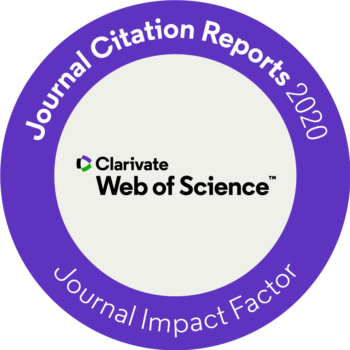
The updated citation metrics have been released in the Journal Citation Reports (JCR), published by Clarivate. The recent release of the JCR includes seventy-one MDPI titles. Out of these, 18 titles are newcomers, receiving a first Journal Impact Factor which is based on citation activity in 2019: Actuators, Agriculture, Biology, Biomedicines, Biosensors, Chemosensors, Children, Healthcare, Journal of Fungi, Journal of Personalized Medicine (JPM), Land, Life, Magnetochemistry, Membranes, Pharmaceuticals, Photonics, Separations and Toxics.
- Out of the previously listed journals, a total of 72 percent boast an increased Impact Factor.
- 25 journals are ranked among the top 25% of journals in at least one of the categories they are ranked for.
- Articles published in 2019 in MDPI journals account for approximately 17 percent of of articles published in gold Open Access journals covered in the Science Citation Index Expanded (SCIE) and Social Sciences Citation Index (SSCI).
First Impact Factors
| Journal | Impact Factor | Rank | Category | Details |
| Actuators | 1.957 | 31/64 (Q2) | • Instruments & Instrumentation | Link |
| Agriculture | 2.072 | 25/91 (Q2) | • Agronomy | Link |
| Biology | 3.796 | 19/93 (Q1) | • Biology | Link |
| Biomedicines | 4.717 | 30/138 (Q1) 36/270 (Q1) |
• Medicine, Research & Experimental • Pharmacology & Pharmacy |
Link |
| Biosensors | 3.240 | 24/86 (Q2) | • Chemistry, Analytical | Link |
| Chemosensors | 3.108 | 16/64 (Q1) 27/86 (Q2) 13/27 (Q2) |
• Instruments & Instrumentation • Chemistry, Analytical • Electrochemistry |
Link |
| Children | 2.078 | 50/128 (Q2) | • Pediatrics | Link |
| Healthcare | 1.916 | 62/102 (Q3) 45/87 (Q3) |
• Health Care Sciences & Services (SCIE) • Health Policy & Services (SSCI) |
Link |
| Journal of Fungi | 4.621 | 5/29 (Q1) 31/135 (Q1) |
• Mycology • Microbiology |
Link |
| Journal of Personalized Medicine | 4.433 | 24/165 (Q1) 10/102 (Q1) |
• Medicine, General & Internal • Health Care Sciences & Services |
Link |
| Land | 2.429 | 58/123 (Q2) | • Environmental Studies (SSCI) | Link |
| Life | 2.991 | 26/93 (Q2) 109/267 (Q2) |
• Biology • Microbiology |
Link |
| Magnetochemistry | 1.947 | 22/45 (Q2) 109/159 (Q3) 201/314 (Q3) |
• Chemistry, Inorganic & Nuclear • Chemistry, Physical • Materials Science, Multidisciplinary |
Link |
| Membranes | 3.094 | 53/143 (Q2) 129/314 (Q2) 23/89 (Q2) |
• Engineering, Chemical • Materials Science, Multidisciplinary • Polymer Science |
Link |
| Pharmaceuticals | 4.286 | 49/270 (Q1) | • Pharmacology & Pharmacy | Link |
| Photonics | 2.140 | 48/97 (Q2) | • Optics | Link |
| Separations | 1.900 | 53/86 (Q3) | • Chemistry, Analytical | Link |
| Toxics | 3.271 | 32/92 (Q2) 92/265 (Q2) |
• Toxicology • Environmental Sciences |
Link |
Updated Impact Factors
| Journal | Impact Factor | Rank | Category | Details |
| Agronomy | 2.603 | 18/91 (Q1) 65/234 (Q2) |
• Agronomy • Plant Sciences |
Link |
| Animals | 2.323 | 10/63 (Q1) 14/142 (Q1) |
• Agriculture, Dairy & Animal Science • Veterinary Sciences |
Link |
| Antibiotics | 3.893 | 23/93 (Q1) 64/270 (Q1) |
• Infectious Diseases • Pharmacology & Pharmacy |
Link |
| Antioxidants | 5.014 | 10/139 (Q1) 56/297 (Q1) 7/61 (Q1) |
• Food Science & Technology • Biochemistry & Molecular Biology • Chemistry, Medicinal |
Link |
| Applied Sciences | 2.474 | 161/314 (Q3) 32/91 (Q2) 88/177 (Q2) 62/154 (Q2) |
• Materials Science, Multidisciplinary • Engineering, Multidisciplinary • Chemistry, Multidisciplinary • Physics, Applied |
Link |
| Atmosphere | 2.397 | 48/93 (Q3) | • Meteorology & Atmospheric Sciences | Link |
| Biomolecules | 4.082 | 98/297 (Q2) | • Biochemistry & Molecular Biology | Link |
| Brain Sciences | 3.332 | 113/271 (Q2) | • Neurosciences | Link |
| Cancers | 6.126 | 37/244 (Q1) | • Oncology | Link |
| Catalysts | 3.520 | 65/159 (Q2) | • Chemistry, Physical | Link |
| Cells | 4.366 | 70/195 (Q2) | • Cell Biology | Link |
| Coatings | 2.436 | 10/21 (Q2) | • Materials Science, Coatings & Films | Link |
| Crystals | 2.404 | 10/26 (Q2) 165/314 (Q3) |
• Crystallography • Materials Science, Multidisciplinary |
Link |
| Diagnostics | 3.110 | 39/165 (Q1) | • Medicine, General & Internal | Link |
| Diversity | 1.402 | 119/168 (Q3) | • Ecology | Link |
| Electronics | 2.412 | 125/266 (Q2) | • Engineering, Electrical & Electronic | Link |
| Energies | 2.702 | 63/112 (Q3) | • Energy & Fuels | Link |
| Entropy | 2.494 | 33/85 (Q2) | • Physics, Multidisciplinary | Link |
| Foods | 4.092 | 27/139 (Q1) | • Food Science & Technology | Link |
| Forests | 2.221 | 17/68 (Q1) | • Forestry | Link |
| Genes | 3.759 | 53/177 (Q2) | • Genetics & Heredity | Link |
| Insects | 2.220 | 18/101 (Q1) | • Entomology | Link |
| International Journal of Environmental Research and Public Health (IJERPH) | 2.849 | 58/193 (Q2) 32/170 (Q1) 105/265 (Q2) |
• Public, Environmental & Occupational Health (SCIE) • Public, Environmental & Occupational Health (SSCI) • Environmental Sciences (SCIE) |
Link |
| International Journal of Molecular Sciences (IJMS) | 4.556 | 74/297 (Q1) 48/177 (Q2) |
• Biochemistry & Molecular Biology • Chemistry, Multidisciplinary |
Link |
| ISPRS International Journal of Geo-Information (IJGI) | 2.239 | 31/50 (Q3) 18/30 (Q3) |
• Geography, Physical • Remote Sensing |
Link |
| Journal of Clinical Medicine | 3.303 | 36/165 (Q1) | • Medicine, General & Internal | Link |
| Journal of Marine Science and Engineering | 2.033 | 31/66 (Q2) | • Oceanography | Link |
| Marine Drugs | 4.073 | 16/61 (Q2) | • Chemistry, Medicinal | Link |
| Materials | 3.057 | 132/314 (Q2) | • Materials Science, Multidisciplinary | Link |
| Mathematics | 1.747 | 28/324 (Q1) | • Mathematics | Link |
| Medicina | 1.205 | 107/165 (Q3) | • Medicine, General & Internal | Link |
| Metabolites | 4.097 | 95/297 (Q2) | • Biochemistry & Molecular Biology | Link |
| Metals | 2.117 | 18/79 (Q1) 185/314 (Q3) |
• Metallurgy & Metallurgical Engineering • Materials Science, Multidisciplinary |
Link |
| Micromachines | 2.523 | 56/92 (Q3) 23/64 (Q2) |
• Nanoscience & Nanotechnology • Instruments & Instrumentation |
Link |
| Microorganisms | 4.152 | 37/135 (Q2) | • Microbiology | Link |
| Minerals | 2.380 | 6/21 (Q2) 11/30 (Q2) |
• Mining & Mineral Processing • Mineralogy |
Link |
| Molecules | 3.267 | 70/177 (Q2) 141/297 (Q2) |
• Chemistry, Multidisciplinary • Biochemistry & Molecular Biology |
Link |
| Nanomaterials | 4.324 | 89/314 (Q2) 42/103 (Q2) |
• Materials Science, Multidisciplinary • Nanoscience & Nanotechnology |
Link |
| Nutrients | 4.546 | 17/89 (Q1) | • Nutrition & Dietetics | Link |
| Pathogens | 3.018 | 65/135 (Q2) | • Microbiology | Link |
| Pharmaceutics | 4.421 | 44/270 (Q1) | • Pharmacology & Pharmacy | Link |
| Plants | 2.762 | 58/234 (Q1) | • Plant Sciences | Link |
| Polymers | 3.426 | 16/89 (Q1) | • Polymer Science | Link |
| Processes | 2.753 | 59/143 (Q2) | • Engineering, Chemical | Link |
| Remote Sensing | 4.509 | 9/30 (Q2) | • Remote Sensing | Link |
| Sensors | 3.275 | 22/86 (Q2) 77/266 (Q2) 15/64 (Q1) |
• Chemistry, Analytical • Engineering, Electrical & Electronic • Instruments & Instrumentation |
Link |
| Sustainability | 2.576 | 120/265 (Q2) 26/41 (Q3) 53/123 (Q2) 6/8 (Q3) |
• Environmental Sciences (SCIE) • Green & Sustainable Science & Technology (SCIE) • Environmental Studies (SSCI) • Green & Sustainable Science & Technology (SSCI) |
Link |
| Symmetry | 2.645 | 29/71 (Q2) | • Multidisciplinary Sciences | Link |
| Toxins | 3.531 | 21/92 (Q1) 34/139 (Q1) |
• Toxicology • Food Science & Technology |
Link |
| Universe | 1.752 | 18/29 (Q3) 42/68 (Q3) |
• Physics, Particles & Fields • Astronomy & Astrophysics |
Link |
| Vaccines | 4.086 | 57/158 (Q2) 50/138 (Q2) |
• Immunology • Medicine, Research & Experimental |
Link |
| Viruses | 3.816 | 12/37 (Q2) | • Virology | Link |
| Water | 2.544 | 31/94 (Q2) | • Water Resources | Link |
Source: Clarivate 2020, InCites Journal Citation Reports®.
29 June 2020
Biomedicines Receives First Journal Impact Factor of 4.717
The editors are pleased to inform that Biomedicines has received a first Impact Factor of 4.717, as published in the 2019 Edition of the Journal Citation Reports® (Clarivate), released just now. Biomedicines ranks 30th out of 138 (Q1) titles in the 'Medicine, Research & Experimental' category, as well as 36th out of 270 (Q1) titles in 'Pharmacology & Pharmacy'.
Thank you to the authors, editorial board members and reviewers for their contribution in achieving this milestone for Biomedicines.
19 June 2020
Recruiting Editors for Biomedicines

Biomedicines is currently recruiting Editorial Board Members.
Biomedicines (ISSN 2227-9059) is an open access journal devoted to all aspects of research on human health and disease, the discovery and characterization of new therapeutic targets, therapeutic strategies, and research of naturally driven biomedicines, pharmaceuticals, and biopharmaceutical products. The website can be accessed at https://www.mdpi.com/journal/biomedicines.
As an Editorial Board Member, you would be responsible for the following:
- Making decisions on whether a manuscript can be accepted or not based on the reports we collect;
- Suggesting special topics or editing a Special Issue on a topic related to your research;
- Promoting the journal and increasing its visibility at relevant academic conferences;
- Advising on the journal’s development.
If you are interested in this position or know of potential candidates to recommend, please contact the Biomedicines Editorial Office ([email protected]). We look forward to hearing from you soon.
13 May 2020
COVID-19 Academic Resources Center

Since 1996, MDPI has been committed to supporting the research community by providing the latest research freely available and making relevant and useful research available as quickly as possible. The world is current experiencing a pandemic of COVID-19, and researchers are working extremely hard to understand it and find a cure.
The values MDPI holds strongly are particularly important at the moment, and we will continue to publish relevant, peer-reviewed research as quickly as possible in open access format. This means that it will immediately be available for researchers, health professionals, and the general public to read, distribute, and reuse. We believe that scientific advancements will be crucial to overcoming this pandemic, and will do everything we can to support researchers working looking for solutions.
COVID-19 Academic Resources Center contains a variety of information related to COVID-19 available from MDPI, including journal articles, special issues, and preprints, among others.
For more information, please visit: https://www.mdpi.com/covid-19
9 April 2020
Free Open Platforms to Support Academics During the COVID-19 Pandemic

As a leading Open Access publisher, MDPI is committed to fostering open scientific exchange in all forms across all disciplines. Due to the outbreak of COVID-19, many researchers have to stay at home and many academic conferences have been cancelled or postponed. In light of these changes, MDPI has adopted numerous initiatives that may help accelerate scientific exchange and provide support to the academics during this period.
Scholarly Community—Encyclopedia
Encyclopedia is an online reference created and curated by active scholars. It aims to highlight the latest research results as well as providing benchmark information for researchers and the general public interested in accurate and advanced knowledge on specific topics.
Comprehensive and Free Literature Database—Scilit
Scilit is a comprehensive, free database for scientists that uses a new method to collate data and index scientific material. Our crawlers extract the latest data from CrossRef and PubMed on a daily basis. This means that newly published articles are immediately added to Scilit.
Display Academic Achievements—SciProfiles
SciProfiles is an innovative social network for researchers and scholars that is developed by MDPI. In line with our broad mission, the purpose of SciProfiles is to accelerate discovery and innovation by facilitating immediate access to research results and providing opportunities for academic networking.
Organize and Participate in Conferences Online—Sciforum
Sciforum is an event planning platform that supports open science by offering the opportunity to host and participate in academic conferences. It provides an environment for scholarly exchange, discussion of topics of current interest, building of networks, and establishing collaborations.
Post Early Versions of Research Outputs—Preprints
Preprints is a platform dedicated to making early versions of research outputs permanently available and citable. We post original research articles and comprehensive reviews, and papers can be updated by authors at any time. Content on Preprints is not peer-reviewed, and feedback can be received from readers.
***
MDPI remains committed to open science and open data and has signed a statement, along with more than thirty scholarly publishers, showing our intention to facilitate sharing of new research findings as early on as possible. The initiative sees publishers collectively removing barriers to new research, in the face of a global healthcare crisis.
25 March 2020
MDPI Comment on the COVID-19 Virus
The world is currently suffering from a global pandemic of the corona virus COVID-19. MDPI expresses its sympathies for all of those affected by the virus and stands in solidarity with medical staff and researchers treating patients and searching for scientific solutions.
MDPI has previously published papers covering corona viruses in addition to new papers on the current outbreak, see all papers here. In particular, Viruses has published a number of Special Issues and papers on the topic (see here, here, and here) as well as a forthcoming Special Issue.
Alongside journal articles, MDPI has been a strong supporter of preprints, which are increasingly being used to rapidly disseminate the latest research, and we run the preprint server Preprints.org. Our database of research articles, Scilit, is free to use and covers all publishers including preprint servers. New papers are often in search results within hours of publication and users can set up alerts for new papers.
Our main priority during this period has been the health and safety of staff, and we continue to allow staff to work at home and closely monitor the situation in all locations in which we work. Despite the restrictions, we continue to provide a full publication service and, by close collaboration with our editorial boards and making use our in-house teams, ensure that there are no unnecessary delays in publishing vital research. Fast and open publication has always been at the core of MDPI values and is now more important than ever.
We hope that a solution to the current situation will emerge soon. In the meantime, we will do our best to continue communicating vital research in all fields.
20 March 2020
MDPI Backs Open Pharma Statement on Open Access
MDPI has endorsed Open Pharma’s Position Statement in support of open access publishing with the aim of advancing medical science and ultimately, improving patient care. Open pharma is a group of research funders, healthcare professionals, publishers, academics, and other healthcare stakeholders.
Since its inception in 1996, MDPI’s efforts have aligned with Open Pharma’s vision of more effective and transparent publishing, collaborating internationally with experts to deliver peer-reviewed online research journals to the scientific community and the general public. MDPI publishes 56 journals in the field of Medicine and Pharmacology and is planning to hold the World Pharma Forum in Basel in 2021.
Published under a Creative Commons License, MDPI’s articles can be freely shared and their content re-used, upon proper attribution. In support of the statement, MDPI will continue to uphold its open access policy and provide fast editorial services to ensure that new medical evidence can be read by everyone, without paywall restrictions.
18 March 2020
MDPI Co-Signed Position Statement on Transformative Agreements
The advantages of the open access model of scientific publishing are being increasingly recognized in the scientific community. It allows new scientific evidence to be accessed from the moment of publication for free by anyone around the globe, boosting the impact of new research. In response, many funders, libraries and universities have been adopting new principles to accelerate the transition to open access.
Recently, “transformative agreements” have been negotiated between traditional publishers and various institutions. While increasing the number of open access papers, these agreements lack binding commitments to a full transition to open access, their conditions vary across different regions, and access is still limited for many users.
MDPI is a co-signatory of the recent position statement raising concerns about potential downsides of transformative agreements and how they may delay a full transition to open access. The statement highlights that these models “risk perpetuating current limitations on access, transparency and market competitiveness, while simultaneously facilitating excessive charges on the public purse”.
As a pioneering open access journal publisher, MDPI is the first to promote the importance of science being made available to everyone. Our peer-reviewed journals, covering diverse academic disciplines, are fully accessible to the public free of charge under a Creative Commons Attribution License (CC BY). This is why, along with other open access publishers, MDPI is a proud signatory of the position paper and is committed to contributing to the replacement of weak transitional agreements with “agreements with publishers that are already fully committed to open science and who offer full, immediate and transparent Open Access”.
Read the position paper here
16 March 2020
Encyclopedia Outstanding Contributor Awards 2020 - Open for Application
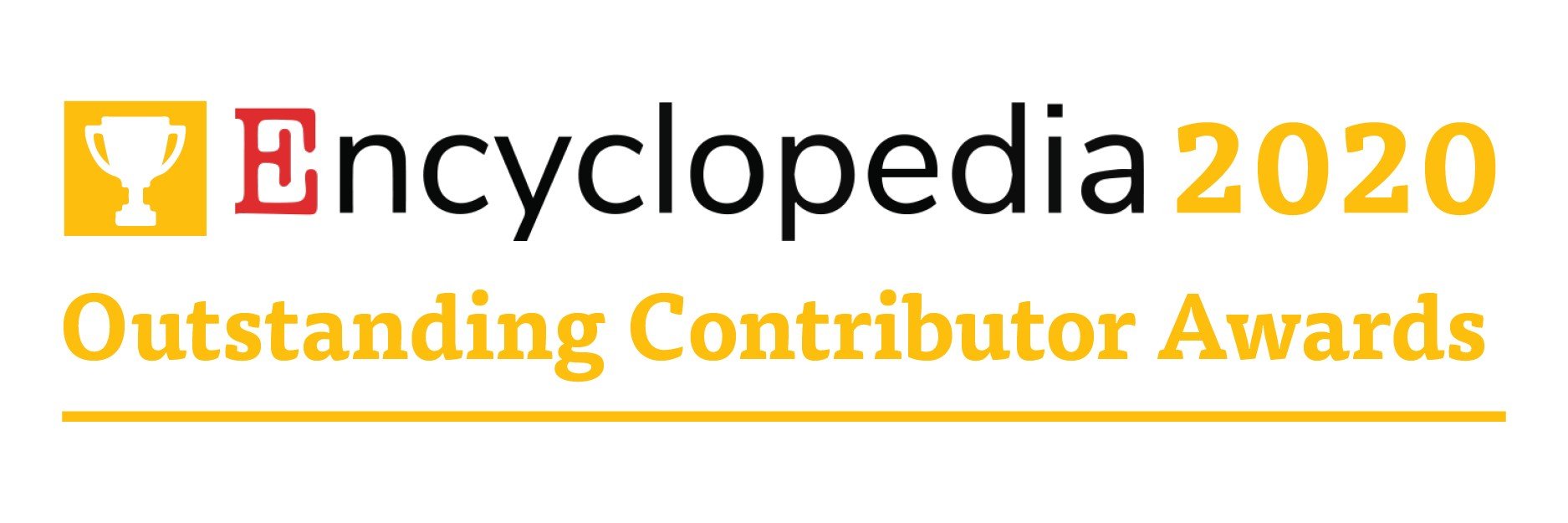
We are pleased to announce that Encyclopedia will be awarding five Outstanding Contributor Awards for researchers in 2020. The nominations and applications will be assessed by an Evaluation Committee consisting of senior scholars from the Encyclopedia Editorial Board.
Prize for Winners
- An official certificate;
- A cash award of 500 CHF or an MDPI discount voucher of 800 CHF.
Application Deadline
31 December, 2020 (Please send your application email with a list of all entries you contributed to our office before the deadline: [email protected])
Candidate Requirements
- Have a Ph.D. degree;
- Have more than three qualified entries published in Encyclopedia in 2020.
Evaluation Standards
- Number of entries published in Encyclopedia in 2020;
- Quality of entries online (including length, figure quality, and novelty);
- Impact of entries (including the number of likes, discussion contents, views, and downloads).
If you are a researcher and have not yet contribute entries to Encyclopedia, please do not miss this chance to highlight your research results.
20 December 2019
Professor Jackie Wilce Receiving 2019 Biomedicines Investigator Lectureship
In collaboration with Pacifichem 2020, we are delighted to announce Associate Professor Jackie Wilce, from Monash University, Melbourne, Australia, as the recipient of the Biomedicines Investigator Lectureship 2019. She will give a speech at the symposium “Advancing Frontiers in Peptide and Protein Science with Nano-to-Macro Molecular Solutions, New Technologies in Polyamide Synthesis and Applications” to be held in Hawaii in December.

Jackie Wilce’s research focuses on the biophysical analysis of macromolecular interactions that underlie important cellular processes in health and disease. These include protein–oligonucleotide interactions underlying translational control and innate immunity as well as interactions of signalling molecules in cancer. The characterisation of these interactions facilitate the design, synthesis, and testing of inhibitor molecules that have therapeutic potential. The techniques she employs include structural methods, binding studies, cellular assays, and chemical design and synthesis. Her research group at Monash University currently includes two postdoctoral researchers and four postgraduate students, and her research is conducted in collaboration with international, national, and institutional collaborators.
16 December 2019
Meet Us at SFFRI in Taoyuan, Taiwan, 17–20 March 2020

MDPI will be attending the 20th Biennial Meeting for the Society for Free Radical Research International (SFRRI 2020), Taoyuan, Taiwan, 17-20 March 2020.
The Society for Free Radical Research, founded in the United Kingdom in 1982, is an International Society and operates as a charitable voluntary, non-profit institution. The aims and objectives of the International Society are to advance education in free radical processes with particular reference to their industrial and medical importance, informing education for the benefit of the public. The Society promotes interest in all aspects of research into the reactions and properties of free radicals and into their physical, chemical, biological, medical, and industrial roles. Founded in 1982, and now with over 2500 members worldwide, the Society consists of five autonomous regional groups: SFRR Asia, SFRR Europe, SFRR Australasia, Society for Free Radical Biology and Medicine (SFRR Americas), and SFRR Africa. A number of regional groups have also been established within these areas.
The following MDPI journals will be represented:
- Antioxidants
- Molecules
- Biology
- International Journal of Molecular Sciences (IJMS)
- Medicines
- Biomolecules
- Life
- Metabolites
- Biomedicines
If you are also attending this conference, please feel free to stop by our booth. Our delegates look forward to meeting you in person and answering any questions you may have. For more information about the conference, please visit the website: http://www.sfrri2020.org/.
15 November 2019
Biomedicines, Chemosensors and Pharmaceuticals Accepted for Inclusion in the Science Citation Index Expanded (SCIE) in Web of Science
We are pleased to inform the journals Biomedicines (ISSN 2227-9059), Chemosensors (ISSN 2227-9040) and Pharmaceuticals (ISSN 1424-8247) have been accepted for inclusion in the Science Citation Index Expanded (SCIE) in the Web of Science Core Collection, as well as in Current Contents. These journals are due to receive first Journal Impact Factors in the June 2020 release of the Journal Citation Reports.



The Science Citation Index Expanded (SCIE), Web of ScienceTM and Current Contents are Clarivate Analytics products.
11 October 2019
Introducing SciProfiles, an Academic Social Network
MDPI is pleased to announce the release of SciProfiles, its social network platform for researchers and scholars.
The purpose of SciProfiles is aligned with MDPI’s broad mission to accelerate discovery and innovation by facilitating immediate access to research results and to serve scholars and communities by providing opportunities for academic networking.
SciProfiles also ambitions to serve as a sustainable, transparent and community-driven research evaluation system aligned with the DORA principles (https://sfdora.org/). Through their scientific profiles, academics can highlight their contribution to research communities, and measure their impact on their field, beyond publication numbers and impact factors. SciProfiles is currently a beta version and will enrich to give researchers the possibility to highlight all of their contributions to science and their scientific communities as authors, reviewers, editors, conference organizers, conference panelists, conference keynote speakers, or even as lecturers or student mentors at their University.
The classic components of popular community social networks, including follower/following, classical metrics, endorsements and recommendations (https://www.mdpi.com/about/announcements/1690), comments (https://www.mdpi.com/about/announcements/1397) are or will be very soon highlighted in SciProfiles as open science contributions.
To help increase the impact and visibility of articles and their authors to an appropriate audience, the platform offers a NewsFeed that includes recommendations of relevant content based on interests, publication history, saved searches or colleagues’ recommendations.
SciProfiles’ avatars are now being integrated on several MDPI platforms, meaning that you will directly access researchers’ profiles from any of the MDPI platforms:
MDPI's journal publishing website: www.mdpi.com
MDPI's conference hosting and management website: www.sciforum.net
MDPI's pre-print website : www.preprints.org
MDPI's knowledge sharing website : www.encyclopedia.pub
MDPI's books store: www.mdpi.com/books
MDPI's literature database : www.scilit.net
SciProfiles aims to serve scientific communities at large. It can be embedded into third-party websites and also welcomes integration of data from third-parties.
Dr. Shu-Kun Lin: https://sciprofiles.com/profile/2
Dr. Franck Vazquez: https://sciprofiles.com/profile/FranckVazquez
Dr. Martyn Rittman: https://sciprofiles.com/profile/martynrittman
2 October 2019
Winners of the 2019 MDPI Writing Prize
We are delighted to announce the winners of the 2019 MDPI Writing Prize. Entrants were asked to write on the theme "Judging research: How should research and researchers be evaluated and rewarded?" We received a large number of excellent essays from PhD students and postdocs, and the process of shortlisting and choosing winners was not an easy one. The winners demonstrated excellent writing skills alongside interesting and thought-provoking ideas.
As last year, we will begin the process of collating all entries into a book that will be available in open access format. Alongside promoting good writing skills, we see the prize as a way to promote the voices of early career researchers within broader debates and policy discussions.
Congratulations to all of the participants and especially the winners. The winners are:
1st Prize (500 CHF):
Albin Nilsson (National Centre for Nuclear Research, Warsaw, Poland)
[Read here]
2nd Prize (250 CHF):
Qi Zhang (Shandong University, Jinan, China)
[Read here]
Igor Ogashawara (Indiana University, Indianapolis, US)
[Read here]
3rd Prize (100 CHF):
Margaret Sivapragasam (Universiti Teknologi Petronas, Perak, Malaysia)
[Read here]
Arvind Sharma (The University of Queensland, Gatton, Australia)
[Read here]
Jose Flores-Guerrero (University Medical Center Groningen, Groningen, The Netherlands)
[Read here]
The MDPI Writing Prize is an annual award supported by MDPI Author Services, which provides services including language editing, reformatting, plagiarism checks, and image editing.
20 September 2019
MDPI Now Gives Scholars the Possibility to Endorse and Recommend Articles

MDPI is pleased to announce the release of a new functionality giving the possibility for researchers and scholars to endorse, and formally recommend articles to their colleagues.
MDPI was an early signatory of the San Francisco Declaration on Research Assessment (https://sfdora.org/read/) which calls for improvement in how quality and impact of scholarly research outputs are evaluated, especially in moving beyond journal-based citation metrics (journal Impact Factor, Scopus Citescore, etc.).
MDPI supports the establishment of article-level impact metrics, including citations, views, downloads, and Altmetric scores. These measures serve as an impact indicator for research articles on a case–by-case basis, assessing paper on its own merit. However, these metrics are also subjective and can give a biased picture of the article impact: they do not directly reflect the quality or the intrinsic scientific value of the article.
In our view, community engagement with publications based on community-driven metrics can help to overcome this limitation. We have therefore launched an option for scholars to endorse articles, indicating their own assessment of its content and making a recommendation to their community. This follows our implementation of the open source Hypothesis commenting tool, which has been available for all articles published by MDPI for over a year (https://www.mdpi.com/about/announcements/1397). Both endorsement and commenting are available for all previously published and forthcoming MDPI articles.
In addition to potentially serving as a sustainable solution to article assessment, endorsements will help scientific communities to identify the most relevant articles, independently of the journal in which it was published.
The code for the endorsing functionality, which relies on DOIs and ORCIDs, will be made available on GitHub with an open source license.
Dr. Shu-Kun Lin, President and Founder
Dr. Franck Vazquez, Chief Scientific Officer
Dr. Martyn Rittman, Publishing Director
11 September 2019
Create an Entry in Encyclopedia to Get a 100 CHF Voucher in Publishing in MDPI Journals
Encyclopedia is a free online reference created and curated by active scholars. It aims to highlight the latest research results as well as provide a comprehensive record of scientific development. If you have any suggestions or questions, please feel free to contact us via [email protected].

6 August 2019
Preprints Reaches 10,000 Posted Articles Milestone
We are pleased to announce that Preprints has passed the milestone of 10,000 posted preprints. We are delighted to have reached this after just over three years of operation. Our congratulations and thanks go to our authors and advisory board who have supported growth of the platform and been crucial to its operation.
You can find further details at https://www.preprints.org/announcement/show/37.
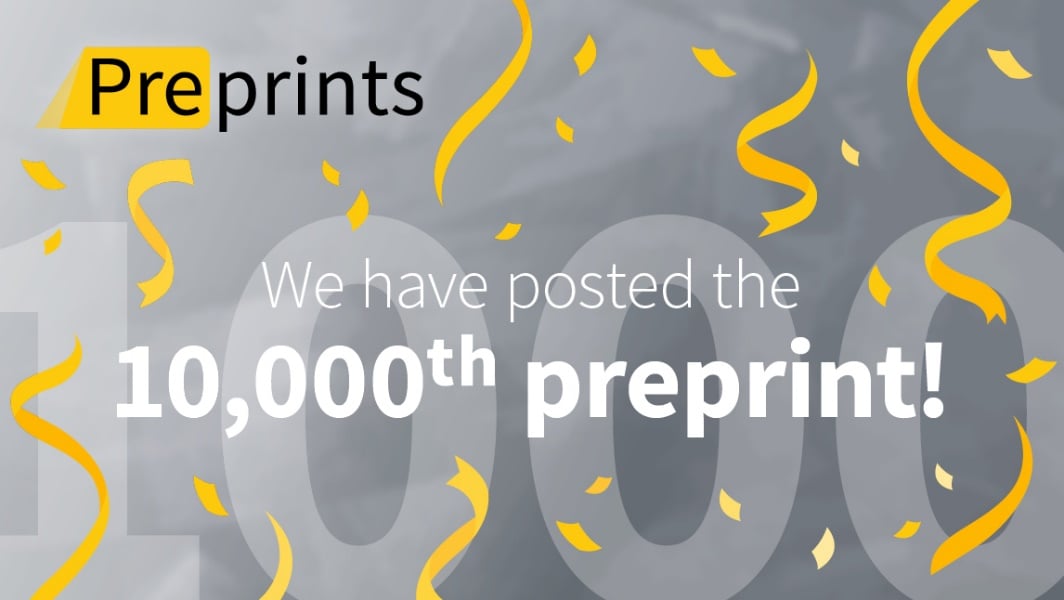
2 August 2019
DeepGreen Partnering with Publishers and Universities in Distributing Open Access Content to Institutional Repositories
Last week, the DeepGreen initiative in Germany started into an advanced test phase with the publishing partners S. Karger AG, SAGE Publishing, MDPI, Frontiers and De Gruyter, as well as 27 universities from all over Germany, from Hamburg University of Applied Sciences to University of Konstanz.
DeepGreen aims at lowering the barriers for open access publishing by automatically delivering metadata and full text publications from participating publishers to authorized repositories at German universities.
In preparation for a later live operation, the advanced test phase serves to gain experience with extensive data deliveries from publishers and also handling different repository software (including OPUS4, DSpace, EPrints, MyCoRe). DeepGreen thereby acts as a sophisticated platform, receiving articles published by authors affiliated with German universities and depositing these articles to respective university repositories, based on the affiliation metadata. For more information about DeepGreen: https://deepgreen.kobv.de
Karger AG has been a close cooperation partner of the DeepGreen consortium since 2016. S. Karger has more than 80 subscription-based and around 20 open access journals covering a wide spectrum in health science. DeepGreen will assign S. Karger articles to authorized institutions on the legal basis of German alliance and national licenses.
SAGE Publishing was founded by Sara Miller McCune in 1965 to support the dissemination of usable knowledge and educate a global community. SAGE publishes more than 1,000 journals and over 600 new books each year, spanning a wide range of subject areas. Our growing selection of library products includes archives, data, case studies and video. SAGE remains majority owned by our founder and after her lifetime will become owned by a charitable trust that secures the company’s continued independence. Principal offices are located in Los Angeles, London, New Delhi, Singapore, Washington DC and Melbourne. SAGE Publishing has been a close cooperation partner of DeepGreen since 2016.
MDPI is a scientific open access publisher and has been a partner of DeepGreen since 2017. MDPI comprises 205 peer-reviewed journals of various disciplines. All articles are published under a CC-BY license and are freely available without embargo period.
Frontiers is a scientific open access publisher with 61 journals of over 600 academic disciplines. All articles are peer-reviewed and published freely available under CC-BY license.
De Gruyter is an academic publisher with more than 700 subscription-based and open access journals of 29 disciplines. Articles provided by De Gruyter will be assigned to institutions with German alliance and national licenses.
There is promising communication with other publishers.
DeepGreen is funded by the German Research Foundation (DFG) and the consortium comprises six institutions: the Cooperative Library Network Berlin-Brandenburg, Bavarian State Library, Bavarian Library Network, University Library of the Technische Universität Berlin, University Library of Erlangen-Nuremberg and the Helmholtz Open Science Coordination Office at the GFZ German Research Centre for Geosciences.
If you would like to know in more detail which institutions take part in the advanced test phase of DeepGreen, you can find more information here.
17 July 2019
First Basel Sustainable Publishing Forum
The University of Basel and the MDPI Sustainability Foundation are organizing the First Basel Sustainable Publishing Forum on 9th September 2019.
The aim of this event is to provide background and perspectives on Plan S to Learned Societies, which have to make well-informed decisions to transition their journals to Open Access (OA).
The BSPF will bring together several representatives of Learned societies, Plan S architects as well as representatives from various publishers and publishing platforms. After getting the big picture from cOAlition S, panel discussions will allow to better understand the diverse challenges that Learned societies are facing to transition their journals to OA as well as to identify sustainable, implementable and scalable solutions for successful Open Access transition.
For program details and registration, please follow the link below:
https://sciforum.net/conference/SustainableSolutionsToOpenAccess
19 June 2019
Meet Us at Neuroscience 2019 in Chicago, IL, USA, 19–23 October 2019

MDPI will be attending Neuroscience 2019, to be held at McCormick Place in Chicago, IL, USA, 19–23 October 2019.
Join 30,000 colleagues from more than 70 countries at the world’s largest marketplace of ideas and tools for global neuroscience.
The following MDPI journals will be represented:
- Brain Sciences
- Journal of Clinical Medicine
- Genes
- Cancers
- Diagnostics
- Pathogens
- Medicines
- International Journal of Molecular Sciences
- Healthcare
- Journal of Personalized Medicine
- Psych
- Cells
- Children
- Biomedicines
If you are also attending this conference, please feel free to stop by our booth (Booth #405). Our delegates look forward to meeting you in person to answer any questions you may have. For more information about the conference, please visit: https://www.sfn.org/Meetings/Neuroscience-2019.
6 June 2019
Meet Us at European Society of Cardiology Congress 2019 in Paris, France, 31 August – 4 September 2019

MDPI will be attending the European Society of Cardiology Congress 2019 in Paris, France, 31 August – 4 September 2019.
The ESC Congress is the world’s largest conference in cardiovascular medicine. ESC Congress 2019 will take place in one of the world’s most alluring cities, Paris, and will be organised in conjunction with the World Heart Federation emphasizing the global reach of the event.
ESC Congress 2019 will build on the solid foundations of a congress that attracts worldwide cardiology leaders to present and exchange on their knowledge and most important research results. It will focus on the best and latest science but will also emphasize the importance of innovation, introducing topics at the frontiers of cardiovascular medicine and science to the attendees.
The following MDPI journals will be represented:
- Journal of Clinical Medicine
- Diagnostics
- Cancers
- Pathogens
- Cells
- Children
- Medicina
- Healthcare
- Journal of Personalized Medicine
- Journal of Cardiovascular Development and Disease
- Biomedicines
If you are also attending this conference, please feel free to stop by our booth (Booth C590). Our delegates look forward to meeting you in person to answer any questions you may have. For more information about the conference, please visit the following link: http://www.escexhibition.org/ESC2019/default.aspx.
31 May 2019
First-Timers: MDPI Journals Receiving a First CiteScore™ in Scopus
In addition to MDPI journals who received updated CiteScores for 2018, the titles listed below were added in Scopus recently and therefore received a first CiteScore in May 2019, based on last year's citation activity in the database.
For almost all of the newly added MDPI titles, their CiteScore ranks in the upper 50% of the distribution (Q1 or Q2) in at least one of the research areas. The following titles rank in the top 25% cited journals based on CiteScore: Actuators; Biomedicines; Coatings; Cosmetics; Fermentation; Journal of Fungi; Journal of Open Innovation: Technology, Market, and Complexity; Nanomaterials; and Publications.
To access the full data for MDPI journals, please see here. More data can also be found in SJR Scimago Journal & Country Rank.
New CiteScore for MDPI Journals
| Journal | Rank (Quartile) |
Category | Link | CiteScore 2018 | SNIP 2018 |
| Actuators | 9/92 (Q1) 60/232 (Q2) |
• Control and Optimization • Control and Systems Engineering |
Link | 2.80 | 1.542 |
| Atmosphere | 26/71 (Q2) | • Environmental Science (miscellaneous) | Link | 2.27 | 0.855 |
| Atoms | 36/69 (Q3) 105/173 (Q3) 239/397 (Q3) |
• Nuclear and High Energy Physics • Atomic and Molecular Physics, and Optics • Condensed Matter Physics |
Link | 1.20 | 0.707 |
| Axioms | 25/91 (Q2) 26/78 (Q2) 11/27 (Q2) 55/135 (Q2) 35/58 (Q3) |
• Algebra and Number Theory • Geometry and Topology • Logic • Analysis • Mathematical Physics |
Link | 0.99 | 0.670 |
| Bioengineering | 42/139 (Q2) | • Bioengineering | Link | 3.14 | - |
| Biomedicines | 40/189 (Q1) 47/206 (Q1) |
• General Biochemistry, Genetics and Molecular Biology • Medicine (miscellaneous) |
Link | 3.33 | 0.908 |
| Chemosensors | 34/110 (Q2) 50/160 (Q2) |
• Analytical Chemistry • Physical and Theoretical Chemistry |
Link | 2.77 | 0.770 |
| Climate | 53/109 (Q2) | • Atmospheric Science | Link | 1.95 | 0.864 |
| Coatings | 27/116 (Q1) 63/271 (Q1) 15/53 (Q2) |
• Surfaces, Coatings and Films • Materials Chemistry • Surfaces and Interfaces |
Link | 2.42 | 1.186 |
| Computation | 74/204 (Q2) 171/460 (Q2) 58/118 (Q2) 127/259 (Q3) |
• General Computer Science • Applied Mathematics • Theoretical Computer Science • Modeling and Simulation |
Link | 1.40 | 0.552 |
| Computers | 128/274 (Q2) 52/89 (Q3) |
• Computer Networks and Communications • Human-Computer Interaction |
Link | 1.59 | - |
| Cosmetics | 92/390 (Q1) 38/128 (Q2) 67/164 (Q2) 11/23 (Q2) 23/30 (Q4) |
• Surgery • Dermatology • Pharmaceutical Science • Chemical Engineering (miscellaneous) • Aging |
Link | 1.81 | 1.689 |
| Econometrics | 339/595 (Q3) | • Economics and Econometrics | Link | 0.82 | - |
| Fermentation | 91/404 (Q1) 76/273 (Q2) 10/24 (Q2) |
• Plant Science • Food Science • Biochemistry, Genetics and Molecular Biology (miscellaneous) |
Link | 2.24 | - |
| Fibers | 86/288 (Q2) 34/103 (Q2) 118/352 (Q2) 49/83 (Q3) |
• Civil and Structural Engineering • Ceramics and Composites • Mechanics of Materials • Biomaterials |
Link | 2.01 | 0.889 |
| Galaxies | 46/76 (Q3) | • Astronomy and Astrophysics | Link | 1.08 | 0.308 |
| High-Throughput | 181/257 (Q3) 153/205 (Q4) 108/139 (Q4) 340/407 (Q4) |
• Biotechnology • Biomedical Engineering • Bioengineering • Biochemistry |
Link | 0.88 | 0.295 |
| Inorganics | 35/69 (Q3) | • Inorganic Chemistry | Link | 1.90 | 0.474 |
| International Journal of Neonatal Screening | 138/277 (Q3) 3/5 (Q3) 95/166 (Q3) |
• Pediatrics, Perinatology and Child Health • Immunology and Microbiology (miscellaneous) • Obstetrics and Gynecology |
Link | 1.07 | 0.240 |
| Journal of Developmental Biology | 39/76 (Q3) 224/375 (Q3) 164/265 (Q3) |
• Developmental Biology • Molecular Biology • Cell Biology |
Link | 2.36 | 0.813 |
| Journal of Functional Biomaterials | 11/83 (Q1) 26/205 (Q1) |
• Biomaterials • Biomedical Engineering |
Link | 5.10 | 2.234 |
| Journal of Fungi | 90/591 (Q1) 62/404 (Q1) |
• Ecology, Evolution, Behavior and Systematics • Plant Science |
Link | 2.84 | 0.982 |
| Journal of Imaging | 291/661 (Q2) 136/272 (Q3) 36/70 (Q3) 40/75 (Q3) |
• Electrical and Electronic Engineering • Radiology, Nuclear Medicine and Imaging • Computer Graphics and Computer-Aided Design • Computer Vision and Pattern Recognition |
Link | 1.47 | - |
| Journal of Marine Science and Engineering | 30/92 (Q2) 105/288 (Q2) 77/203 (Q2) |
• Ocean Engineering • Civil and Structural Engineering • Water Science and Technology |
Link | 1.76 | 0.955 |
| Journal of Open Innovation: Technology, Market, and Complexity | 4/202 (Q1) 27/1111 (Q1) 9/214 (Q1) |
• General Economics, Econometrics and Finance • Sociology and Political Science • Development |
Link | 4.26 | 2.138 |
| Journal of Sensor and Actuator Networks | 13/92 (Q1) 27/123 (Q1) 70/274 (Q2) |
• Control and Optimization • Instrumentation • Computer Networks and Communications |
Link | 2.58 | 1.036 |
| Lubricants | 182/579 (Q2) 42/116 (Q2) |
• Mechanical Engineering • Surfaces, Coatings and Films |
Link | 1.87 | 1.321 |
| Machines | 104/323 (Q2) 33/92 (Q2) 214/579 (Q2) 21/53 (Q2) 262/661 (Q2) 109/232 (Q2) |
• Industrial and Manufacturing Engineering • Control and Optimization • Mechanical Engineering • Computer Science (miscellaneous) • Electrical and Electronic Engineering • Control and Systems Engineering |
Link | 1.63 | 0.769 |
| Mathematics | 86/339 (Q2) | • General Mathematics | Link | 1.04 | 0.739 |
| Nanomaterials | 29/272 (Q1) 66/439 (Q1) |
• General Chemical Engineering • General Materials Science |
Link | 4.21 | 1.112 |
| Processes | 9/23 (Q2) 25/59 (Q2) 68/139 (Q2) |
• Chemical Engineering (miscellaneous) • Process Chemistry and Technology • Bioengineering |
Link | 2.05 | 1.049 |
| Proteomes | 54/115 (Q2) 23/46 (Q2) 213/407 (Q3) 229/375 (Q3) |
• Clinical Biochemistry • Structural Biology • Biochemistry • Molecular Biology |
Link | 2.32 | 0.445 |
| Publications | 11/66 (Q1) 51/312 (Q1) 83/351 (Q1) 233/569 (Q2) |
• Media Technology • Communication • Business and International Management • Computer Science Applications |
Link | 1.96 | 1.068 |
| Robotics | 234/579 (Q2) 38/92 (Q2) |
• Mechanical Engineering • Control and Optimization |
Link | 1.53 | 0.722 |
| Toxics | 32/117 (Q2) 3/8 (Q2) 40/114 (Q2) |
• Health, Toxicology and Mutagenesis • Chemical Health and Safety • Toxicology |
Link | 2.84 | 0.896 |
20 May 2019
Meet Us at the European Human Genetics Conference in Gothenburg, Sweden, 15–18 June 2019

MDPI will be attending the ESHG 2019, to be held in Gothenburg, Sweden, 15th-18th June 2019.
ESHG 2019 - The 53rd European Human Genetics Conference is everything you need in human genetics, whatever your professional background. The Scientific Program Committee (SPC) has worked hard to invite the best speakers from various sectors of human genetics, and to select the best abstracts for platform presentations.
The following MDPI journals will be represented:
- Genes
- Journal of Clinical Medicine
- Cancers
- International Journal of Molecular Sciences
- Cells
- Diagnostics
- Healthcare
- Journal of Personalized Medicine
- Genealogy
- Biomedicines
If you are also attending this conference, please feel free to stop by our booth (Booth #492). Our delegates look forward to meeting you in person to answer any questions you may have. For more information about the conference, please visit: https://2019.eshg.org/
11 April 2019
Meet Us at the 46th Controlled Release Society Annual Meeting & Exposition

We will be attending the 46th Controlled Release Society Annual Meeting & Exposition. It is one of the biggest events in pharmaceutical field. Representatives of the following open access journals will attend:
Pharmaceutics
JCM
Biomolecules
Materials
IJMS
Molecules
Nanomaterials
Pharmaceuticals
Scientia Pharmaceutica
Vaccines
JPM
Genes
JFB
IJERPH
Biomedicines
Healthcare
If you are also attending this conference, please feel free to stop by our booth (Booth #303). Our delegates look forward to meeting you in person to answer any questions you may have. For more information about the conference, please visit: https://2019.controlledreleasesociety.org/
20 March 2019
Fostering Open Access Publishing Worldwide: New IOAP Participants in February and March 2019
We are pleased to welcome more universities from Poland, Italy, Germany, Brazil and other parts of the world to MDPI's Institutional Open Access Program (IOAP). A warm welcome to the institutions listed below, who have joined the Program in February and March this year.
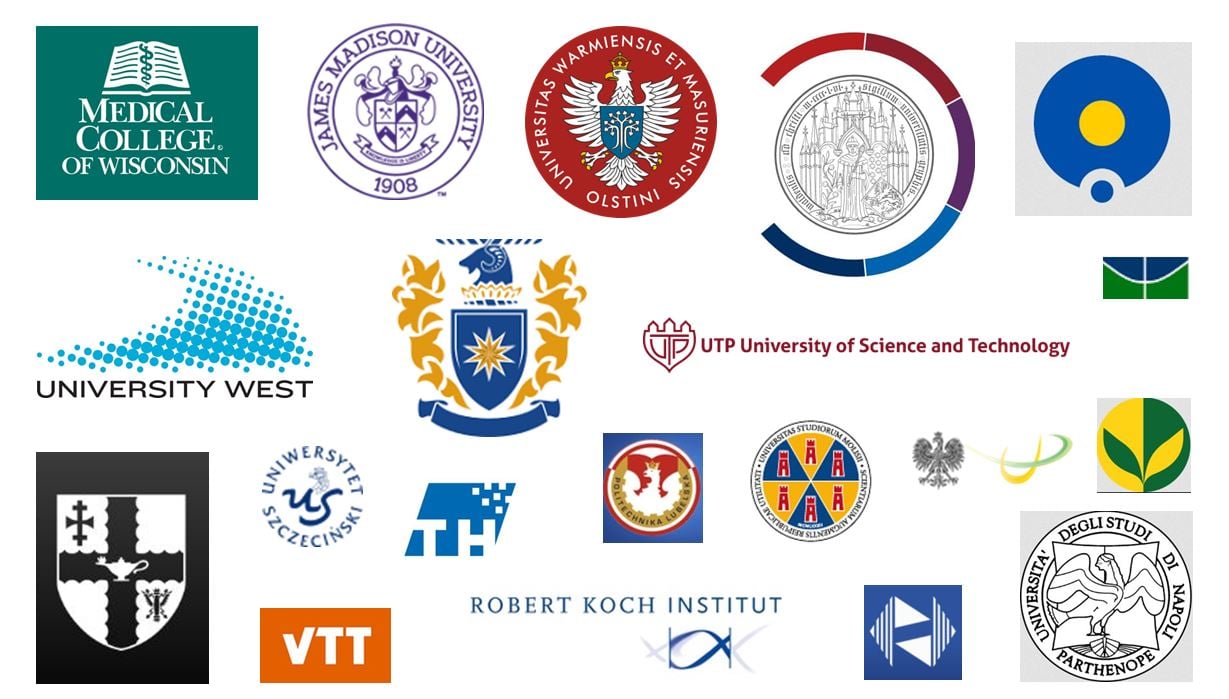
Authors affiliated with these institutions can now enjoy a discount on the APC for papers accepted for publication in any MDPI journal. If you would like to learn more about our program, please visit: https://www.mdpi.com/about/ioap or email us at [email protected].
5 March 2019
MDPI Joins Jisc’s Publications Router Service
We are delighted to announce our participation in Jisc’s Publication Router project, as of March 2019.
Publications Router is a Jisc service that automatically sends notifications about research articles to institutions' systems such as their repositories or CRISs, since May 2015. Through this agreement, MDPI will provide Jisc with daily feeds and information regarding published articles, which will be gathered by their system and delivered to institutions also registered to this service. Nearly all of our articles are published within 15 days of acceptance, so institutions will receive them quite promptly.
The feed will include the full text of the published version of record, with no embargo, so the articles can be exposed immediately for public view. They are accompanied by rich metadata, including confirmation of the immediate CC BY licence, minimising the need for any manual intervention or checking.
For more information about Publications Router, you may contact Jisc’s central helpdesk at [email protected]. For any queries about MDPI’s institutional agreements and collaborations, you may get in touch with MDPI’s Institutional Engagement team at [email protected], which would be very happy to hear from further UK institutions.
1 February 2019
2018 MDPI Top Reviewer Award—Winners Announced
Rigorous peer-review is the cornerstone of high quality academic publishing. Over 97,000 scholars served as reviewers for MDPI journals in 2018. We are extremely appreciative of all those who made a contribution to the editorial process in this capacity. At the beginning of every year, journal editorial offices publish a list all reviewers’ names to express our gratitude. In addition, this year the “MDPI Top Reviewer Awards” are announced, to recognize the very best reviewers for their expertise, dedication, high quality, and timely review reports. We are pleased to announce the following winners of the 2018 MDPI Top Reviewer Awards:
- Ali Behnood
- Andrea Pezzuolo
- Angela Gorgoglione
- Anna D'Auria
- Antonio D'Andrea
- Azhar Abbas
- Bogdan Zagajewski
- Chunhui Chen
- Dominika Głąbska
- Dominika Guzek
- Dragan Pamucar
- Francisco J. G. Silva
- Frank Li
- Gianluca Serafini
- Gyorgy Szekely
- Haozhi Pan
- Helvi Heinonen-Tanski
- José Manuel Gómez-Soberón
- Kathy Lewis
- Klara Kosova
- Luis N. López De Lacalle
- M. Z. Naser
- Malwina Tytła
- Masoume Amirkhani
- Matteo Ghidelli
- Moretti Laura
- Petra Schneider
- Roberto Cerchione
- Spyros Papaefthymiou
- Ştefan Cristian Gherghina
24 January 2019
JAMS Journals: A Low-Cost Publishing Platform

Since 2010, MDPI has run its own online submission system. More recently, we have made the software, with accompanying publishing services, available to other publishers as JAMS (Journal and Article Management System). We are now delighted to announce the launch of JAMS Journals, a standardized platform for operating open access journals at low cost.
JAMS Journals provides a comprehensive service, including a shared submission website, journal websites hosted at a URL provided by the publisher, and a full production service. There is a small setup fee and the cost for each published paper is just a few hundred Swiss francs.
The platform demonstrates that running an open access journal can be straightforward and affordable. The JAMS Journals platform is suitable for
- small publishers or groups of scholars looking to launch their own journal;
- existing publishers or societies seeking to explore open access options;
- publishers looking to convert an existing subscription journal to open access.
JAMS journals launches with two journals from Canadian-based publisher Etcetera Publications:
- Canadian Journal of Pesticides & Pest Management (http://www.cjppm.ca)
- Nanotechnology in Agriculture, Food & Environment (http://www.nanoafe.ca)
Dr AJ Al-Rajab (President of Etcetera Publications) comments:
“In the past few months, we were working on our project to launch new open access scientific journals in the field of agricultural and environmental sciences. We decided to go with JAMS for this venture because of the high quality of their services, reasonable prices, professionalism and easy communication. Our portfolio is expected to grow rapidly during 2019 to include more titles covering different areas in agriculture and environment. MDPI earned already our complete satisfaction and we are looking for a long term cooperation.”
Alongside the new platform, we continue to provide flexible, tailored journal management solutions for existing publishers. For any questions or to request a quotation, contact Dr. Constanze Schelhorn ([email protected]).
24 January 2019
Popularity of Preprints Continues to Grow

2018 was a great year for preprints, with increasing numbers of authors looking to make their papers available online before peer review. Along with other preprint servers, our platform Preprints.org saw an increase in the uptake from authors, and more than double the number of announced papers compared to 2017. In fact, we recently passed two important milestones: 8000 preprints online and 30,000 authors.
We believe that the whole research community has the opportunity to benefit from work being available online as early as possible. We thank and congratulate our authors for supporting us to make this goal a reality.
In 2019, we will be looking carefully at how to provide better value for authors, maintain efficiency while growing in size, and make sure we remain well-connected with the research community.
If you want to participate, you can consider screening preprints or joining our advisory board. And, of course, posting your own work.
9 January 2019
Open Access Agreement between the Austrian Academic Library Consortium (KEMÖ), the Austrian Science Fund (FWF), and MDPI

We are delighted to announce the establishment of our national Open Access agreement with the Austrian Academic Library Consortium (KEMÖ) and the Austrian Science Fund (FWF). Through this national agreement, the Austrian institutions listed below as well as FWF will cover the Article Processing Charges (APC) of manuscripts published by eligible corresponding or funded authors in MDPI journals as long as central funds are available.
All participating institutions have gained access to the MDPI online submission system where they can find full article metadata and pricing information as well as Funder and Grant ID details for easy identification and additional transparency. At the same time eligible authors are benefited from an APC discount which comes at no cost for the institutions.
Eligible corresponding authors affiliated with the participating institutions are prompted to choose the corresponding Institutional Open Access Program (IOAP) when they submit an article via our online submission system. The program will be selected automatically if authors submit their papers using their institutional email address. To claim their discount, FWF funded authors should choose the particular funder and add their Grant ID upon online submission of their manuscript. The institutions will then crosscheck the information and confirm the APC funding.
Eligible authors that have their APC covered by their institution or funder are advised to include the following sentence in their acknowledgments: "Open Access Funding by the [name of the institution/funder]".
The full text of the agreement is openly available online at: http://doi.org/10.5281/zenodo.2536007
For any questions about the agreement, please contact the KEMÖ Consortium at [email protected], FWF at [email protected], or the MDPI IOAP team at [email protected].
The Austrian institutions participating in this agreement are:
- Austrian Science Fund (FWF)
- University for Continuing Education Krems
- University of Applied Sciences BFI Vienna
- University of Applied Sciences Upper Austria
- University of Applied Sciences Technikum Wien
- Vorarlberg University of Applied Sciences
- International Institute for Applied Systems Analysis (IIASA)
- Institute of Science and Technology Austria
- MCI Management Center Innsbruck
- University of Graz
- University of Linz
- University of Salzburg
- Graz University of Technology
- TU Wien
- University of Veterinary Medicine Vienna
- University of Vienna
This is our first collective agreement with a national library consortium, while the individual institutions around the world participating in our IOAP are now more than 500 - see details here: https://www.mdpi.com/about/ioap. We would be mostly interested in discussing about possible collaborations with other consortia, funders, and institutions in our mutual efforts to accelerate Open Access.
2 January 2019
Encyclopedia—the Scholarly Community Encyclopedia

We are pleased to announce the new platform Encyclopedia, which is an online reference created and curated by active scholars. It aims to highlight the latest research results as well as providing benchmark information for researchers and the general public interested in accurate and advanced knowledge on specific topics.
We encourage authors of review articles to quote and adapt the content of their published papers to create Encyclopedia entries. You can create completely new entries on topics in which you have knowledge and expertise. There is no limit on the topics or research fields. All of science and the humanities are included. Each entry will be published directly after submission.
We also have prepared a DOI application function in Encyclopedia. Once a DOI application is approved, the entry website will announce the DOI number and a pdf version with DOI information will be automatically created.
We look forward to your contributions and hope you will make use of this service. Find more about the service at: https://encyclopedia.pub/
30 October 2018
Institutional Open Access Agreement between Bill and Melinda Gates Foundation and MDPI

We are delighted to announce that the Bill and Melinda Gates Foundation (BMGF) is now a participant of our Institutional Open Access Program (IOAP). Authors funded by the BMGF can enjoy discounts on the APC, while the funder covers the costs of eligible articles centrally. BMGF also has access to the MDPI online submission system where they can find full article metadata and pricing information as well as Grant ID details for easy identification and additional transparency.
We hope that funded authors find the programme beneficial and we are happy to offer our IOAP to other funders that need a streamlined workflow of compliance checking and APC coverage.
To claim their discount, BMGF funded authors should choose the particular funder and add their Grant ID upon online submission of their manuscript.
For any questions about the BMGF agreement, please contact the funder at [email protected] or the MDPI IOAP team at [email protected].
2 October 2018
MDPI Welcomes Plan S
Recently, it was announced that a group of European funders supported 10 principles that will help to expand open access, known as Plan S. MDPI warmly welcomes this move as a step towards achieving more open and accessible communication of research across all disciplines. Some aspects remain to be clarified, however the details given so far match the aims and values that MDPI has held over the past two decades.

We believe that open access publishers should be active participants in discussions around Plan S, particularly regarding potential new business models and practical aspects of implementation. MDPI supports APCs as a transparent unit of payment for article publishing, however we are committed to exploring other measures and recently signed the Jussieu Call. Sustainability is a key value for MDPI, and future funding models should have at their heart the sustainability of knowledge and research dissemination. Plan S provides an opportunity for funders and publishers to directly discuss funding of open access journals in ways that are beneficial to all parties involved.
30 August 2018
MDPI establishes Open Access agreement with Qatar National Library

We are happy to announce the establishment of an Open Access (OA) agreement with Qatar National Library (QNL). QNL is committed to supporting and helping Qatar authors publish OA at no cost. Through this national agreement, QNL will cover the Article Processing Charges (APC) of manuscripts published by Qatar-based corresponding authors in MDPI journals.
Eligible corresponding authors affiliated with Qatar research centers and universities are prompted to choose QNL as part of our Institutional Open Access Program (IOAP) when they submit an article via our online submission system. The program will be selected automatically if authors submit their papers using their institutional email and/or a computer registered with the institution’s IP range. QNL will then crosscheck the information and confirm the APC funding.
Qatar authors that have their APC covered by QNL are advised to include the following sentence in their acknowledgments: "The publication of this article was funded by Qatar National Library".
For more information, please visit Open Access at QNL or email the QNL Open Access team at [email protected].
6 June 2018
Meet Us at the 18th World Congress of Basic and Clinical Pharmacology in Kyoto

We will be attending the 18th World Congress of Basic and Clinical Pharmacology, which will be held in Kyoto, Japan, 1–6 July 2018, and representing the following open access journals:
JCM
Pharmaceuticals
Biomedicines
Brain Sciences
Diseases
Pharmacy
Tropical Medicine and Infectious Disease
Cancers
Marine Drugs
Please come along to our booth (#3-6) to chat with our delegates about our journals. We'll gladly answer any questions about our journals and about open access publishing. We look forward to meeting you in person in Edmonton!
For more information on the conference, please visit:
http://www.wcp2018.org/
31 May 2018
2017 CiteScore™ Metrics Released
The 2017 CiteScore™ data is available now, based on citation data in the Scopus® database. The current CiteScore reflects citation activity in 2017 for articles published in 2014‒2016. Please note that the list below includes journals assigned a CiteScore in this year’s release. For a full list of journals indexed in Scopus, please see our journal list.
Thirteen of our journals received a CiteScore which is in the top 10% of the distribution in at least one of the categories (marked with * in the table below), while a further 32 journals exhibit scores that are in the first quartile of the respective categories.
To access the full data for MDPI journals, please see here. More data can also be found in SJR Scimago Journal & Country Rank.
Unlike CiteScores and the widely used Journal Impact Factors, the Source Normalized Impact per Paper (SNIP) metrics are normalized in order to correct for differences in citation practices between scientific fields. Therefore, the SNIP allows direct comparison between journals specialized in different fields.
According to 2017 data, MDPI publishes six journals with an average citation impact, or SNIP, in excess of 1.500. These journals are Biomolecules, Cancers, Journal of Clinical Medicine (JCM), Marine Drugs, Remote Sensing and Sensors (see the last column in the table below).
CiteScore Data for MDPI Journals
| Journal | Rank (Quartile) |
Category | Link | CiteScore 2017 | 2016 |
2015 |
SNIP 2017 |
| Aerospace | 43/116 (Q2) | • Aerospace Engineering | Link | 1.23 | - | - | 1.152 |
| Agriculture | 69/309 (Q1) 91/398 (Q1) 78/255 (Q2) |
• Agronomy and Crop Science • Plant Science • Food Science |
Link | 1.93 | - | - | 1.133 |
| Agronomy | 46/309 (Q1) | • Agronomy and Crop Science | Link | 2.38 | - | - | 1.115 |
| Algorithms | 22/46 (Q2) 61/125 (Q2) 60/107 (Q3) 64/114 (Q3) |
• Numerical Analysis • Computational Mathematics • Computational Theory and Mathematics • Theoretical Computer Science |
Link | 1.03 | 1.15 | 1.07 | 0.749 |
| Animals | 12/154 (Q1) * 48/367 (Q1) |
• General Veterinary • Animal Science and Zoology |
Link | 2.02 | 1.46 | 1.66 | 1.099 |
| Antibiotics | 6/68 (Q1) * 62/263 (Q1) 55/230 (Q1) 31/108 (Q2) 47/134 (Q2) 139/398 (Q2) |
• General Pharmacology, Toxicology and Pharmaceutics • Infectious Diseases • Pharmacology (medical) • Microbiology (medical) • Microbiology • Biochemistry |
Link | 2.85 | 1.65 | - | 0.975 |
| Antibodies | 43/143 (Q2) 61/164 (Q2) 85/189 (Q2) |
• Drug Discovery • Immunology and Allergy • Immunology |
Link | 2.85 | - | - | 0.844 |
| Antioxidants | 23/119 (Q1) 35/169 (Q2) 100/398 (Q2) 119/367 (Q2) 102/264 (Q2) |
• Clinical Biochemistry • Physiology • Biochemistry • Molecular Biology • Cell Biology |
Link | 3.42 | - | - | 1.361 |
| Applied Sciences | 48/270 (Q1) 15/66 (Q1) 31/116 (Q2) 18/53 (Q2) 151/434 (Q2) 186/535 (Q2) |
• General Engineering • Fluid Flow and Transfer Processes • Instrumentation • Process Chemistry and Technology • General Materials Science • Computer Science Applications |
Link | 1.90 | - | - | 0.801 |
| Biology | 12/177 (Q1)* 32/186 (Q1) 10/40 (Q1) |
• General Agricultural and Biological Sciences • General Biochemistry, Genetics and Molecular Biology • General Immunology and Microbiology |
Link | 3.48 | 3.02 | 2.78 | 0.961 |
| Biomolecules | 31/398 (Q1) * 41/367 (Q1) |
• Biochemistry • Molecular Biology |
Link | 5.72 | 1.67 | 3.08 | 1.542 |
| Biosensors | 20/119 (Q1) | • Clinical Biochemistry | Link | 3.59 | 2.83 | 2.37 | 1.122 |
| Brain Sciences | 47/111 (Q2) | • General Neuroscience | Link | 2.56 | - | - | 0.695 |
| Cancers | 26/323 (Q1) * 23/191 (Q1) |
• Oncology • Cancer Research |
Link | 5.82 | 5.02 | 4.07 | 1.567 |
| Catalysts | 32/151 (Q1) 21/46 (Q2) |
• Physical and Theoretical Chemistry • Catalysis |
Link | 3.23 | 3.44 | 3.45 | 0.954 |
| Crystals | 76/272 (Q2) 140/434 (Q2) 127/398 (Q2) 26/64 (Q2) |
• General Chemical Engineering • General Materials Science • Condensed Matter Physics • Inorganic Chemistry |
Link | 1.97 | 1.89 | 1.47 | 0.745 |
| Diagnostics | 49/119 (Q2) | • Clinical Biochemistry | Link | 2.43 | - | - | 0.788 |
| Diversity | 30/124 (Q1) 14/52 (Q2) 83/306 (Q2) 11/29 (Q2) |
• Nature and Landscape Conservation • Agricultural and Biological Sciences (miscellaneous) • Ecology • Ecological Modelling |
Link | 2.15 | 2.03 | 1.96 | 1.300 |
| Electronics | 109/644 (Q1) 26/148 (Q1) 42/224 (Q1) 50/259 (Q1) 23/96 (Q1) |
• Electrical and Electronic Engineering • Hardware and Architecture • Control and Systems Engineering • Computer Networks and Communications • Signal Processing |
Link | 2.97 | - | - | 1.227 |
| Energies | 6/73 (Q1) * 31/192 (Q1) 103/644 (Q1) 4/16 (Q1) 47/140 (Q2) |
• Control and Optimization • Energy Engineering and Power Technology • Electrical and Electronic Engineering • Energy (miscellaneous) • Renewable Energy, Sustainability and the Environment |
Link | 3.11 | 2.50 | 2.87 | 1.340 |
| Entropy | 35/202 (Q1) | • General Physics and Astronomy | Link | 2.41 | 1.87 | 1.99 | 1.189 |
| Forests | 17/129 (Q1) | • Forestry | Link | 2.31 | 2.06 | 1.76 | 0.990 |
| Future Internet | 132/259 (Q3) | • Computer Networks and Communications | Link | 1.25 | - | - | - |
| Games | 132/187 (Q3) 78/110 (Q3) 305/418 (Q3) |
• Statistics and Probability • Statistics, Probability and Uncertainty • Applied Mathematics |
Link | 0.61 | 0.87 | 0.57 | 1.038 |
| Genes | 21/91 (Q1) 74/311 (Q1) |
• Genetics (clinical) • Genetics |
Link | 3.49 | 3.62 | 3.18 | 0.374 |
| Geosciences | 32/182 (Q1) |
• General Earth and Planetary Sciences | Link | 1.97 | 1.67 | 1.29 | 0.856 |
| Information | 143/251 (Q3) | • Information Systems | Link | 1.16 | 0.78 | 0.94 | 1.146 |
| Insects | 27/135 (Q1) | • Insect Science | Link | 1.85 | 1.81 | 1.38 | 0.719 |
| International Journal of Environmental Research and Public Health (IJERPH) | 80/478 (Q1) 34/106 (Q2) |
• Public Health, Environmental and Occupational Health • Health, Toxicology and Mutagenesis |
Link | 2.41 | 2.38 | 2.42 | 0.931 |
| International Journal of Molecular Sciences (IJMS) | 7/69 (Q1) * 61/535 (Q1) 20/163 (Q1) 9/64 (Q1) 26/151 (Q1) 89/367 (Q2) 17/46 (Q2) |
• Spectroscopy • Computer Science Applications • Organic Chemistry • Inorganic Chemistry • Physical and Theoretical Chemistry • Molecular Biology • Catalysis |
Link | 3.86 | 3.73 | 3.37 | 0.998 |
| ISPRS International Journal of Geo-Information (IJGI) | 79/605 (Q1) 22/82 (Q2) 13/36 (Q2) |
• Geography, Planning and Development • Earth and Planetary Sciences (miscellaneous) • Computers in Earth Sciences |
Link | 2.10 | 1.62 | 1.52 | 1.062 |
| Journal of Clinical Medicine (JCM) | 10/841 (Q1) * | • General Medicine | Link | 7.07 | - | - | 1.535 |
| Journal of Functional Biomaterials (JFB) | 43/199 (Q1) 23/77 (Q2) |
• Biomedical Engineering • Biomaterials |
Link | 3.47 | - | - | 1.344 |
| Journal of Low Po- wer Electronics and Applications (JLPEA) |
301/644 (Q2) | • Electrical and Electronic Engineering | Link | 1.12 | 0.98 | 0.83 | 0.367 |
| Journal of Personalized Medicine (JPM) | 54/189 (Q2) | • Medicine (miscellaneous) | Link | 2.61 | - | - | 0.944 |
| Land | 50/124 (Q2) 129/306 (Q2) 36/65 (Q3) |
• Nature and Landscape Conservation • Ecology • Global and Planetary Change |
Link | 1.44 | - | - | 0.658 |
| Life | 4/94 (Q1) * 70/561 (Q1) 40/186 (Q1) 20/80 (Q2) |
• Palaeontology • Ecology, Evolution, Behavior and Systematics • General Biochemistry, Genetics and Molecular Biology • Space and Planetary Science |
Link | 3.16 | 2.95 | 1.68 | 0.935 |
| Marine Drugs | 17/146 (Q1) | • Drug Discovery | Link | 4.58 | 3.83 | 3.66 | 1.537 |
| Materials | 83/434 (Q1) | • General Materials Science | Link | 3.02 | 3.26 | 3.11 | 1.285 |
| Membranes | 5/18 (Q2) 15/53 (Q2) 4/10 (Q2) |
• Chemical Engineering (miscellaneous) • Process Chemistry and Technology • Filtration and Separation |
Link | 2.69 | 2.19 | 2.95 | 0.880 |
| Metabolites | 47/209 (Q1) 103/398 (Q2) 127/367 (Q2) |
• Endocrinology, Diabetes and Metabolism • Biochemistry • Molecular Biology |
Link | 3.35 | - | - | 0.925 |
| Metals | 155/434 (Q2) | • General Materials Science | Link | 1.87 | - | - | 0.955 |
| Micromachines | 105/554 (Q1) 154/644 (Q1) 64/224 (Q2) |
• Mechanical Engineering • Electrical and Electronic Engineering • Control and Systems Engineering |
Link | 2.31 | 1.83 | 1.78 | 0.987 |
| Minerals | 33/175 (Q1) 45/208 (Q1) |
• Geotechnical Engineering and Engineering Geology • Geology |
Link | 2.21 | 2.13 | 1.77 | 1.149 |
| Molecules | 4/25 (Q1) 25/172 (Q1) 18/104 (Q1) 31/163 (Q1) 30/151 (Q1) 31/146 (Q1) 55/160 (Q2) |
• Chemistry (miscellaneous) • Pharmaceutical Science • Analytical Chemistry • Organic Chemistry • Physical and Theoretical Chemistry • Drug Discovery • Molecular Medicine |
Link | 3.27 | 3.09 | 2.65 | 1.146 |
| Nutrients | 11/255 (Q1) * 9/112 (Q1) * |
• Food Science • Nutrition and Dietetics |
Link | 4.35 | 4.29 | 4.07 | 1.403 |
| Pathogens | 38/263 (Q1) 20/108 (Q1) 9/40 (Q1) 40/164 (Q1) 110/367 (Q2) |
• Infectious Diseases • Microbiology (medical) • General Immunology and Microbiology • Immunology and Allergy • Molecular Biology |
Link | 3.52 | - | - | 1.166 |
| Pharmaceuticals | 14/172 (Q1) * 33/160 (Q1) |
• Pharmaceutical Science • Molecular Medicine |
Link | 4.12 | 4.90 | 3.64 | 1.370 |
| Pharmaceutics | 21/172 (Q1) | • Pharmaceutical Science | Link | 3.68 | 3.83 | 2.68 | 1.092 |
| Photonics | 30/116 (Q1) 80/270 (Q2) 53/160 (Q2) |
• Instrumentation • Radiology Nuclear Medicine and Imaging • Atomic and Molecular Physics, and Optics |
Link | 1.96 | - | - | 0.817 |
| Plants | 73/561 (Q1) 48/389 (Q1) 44/306 (Q1) |
• Ecology, Evolution, Behavior and Systematics • Plant Science • Ecology |
Link | 3.13 | - | - | 0.969 |
| Polymers | 17/142 (Q1) 63/359 (Q1) |
• Polymers and Plastics • General Chemistry |
Link | 3.30 | 3.74 | 3.37 | 1.213 |
| Religions | 26/389 (Q1) * | • Religious Studies | Link | 0.56 | - | - | 0.676 |
| Remote Sensing | 13/182 (Q1) * | • General Earth and Planetary Sciences | Link | 4.03 | 3.56 | 3.76 | 1.559 |
| Resources | 19/142 (Q1) 39/261 (Q1) |
• Nature and Landscape Conservation • Management, Monitoring, Policy and Law |
Link | 2.69 | - | - | 1.387 |
| Scientia Pharmaceutica | 92/172 (Q3) | • Pharmaceutical Science | Link | 0.86 | - | - | 0.513 |
| Sensors | 9/116 (Q1) * 25/160 (Q1) 100/644 (Q1) 19/104 (Q1) 113/398 (Q2) |
• Instrumentation • Atomic and Molecular Physics, and Optics • Electrical and Electronic Engineering • Analytical Chemistry • Biochemistry |
Link | 3.23 | 2.78 | 2.21 | 1.550 |
| Social Sciences | 81/213 (Q2) | • General Social Sciences | Link | 0.60 | - | - | 0.445 |
| Sustainability | 61/605 (Q1) * 55/261 (Q1) 60/140 (Q2) |
• Geography, Planning and Development • Management, Monitoring, Policy and Law • Renewable Energy, Sustainability and the Environment |
Link | 2.37 | 1.96 | 1.78 | 1.030 |
| Symmetry | 44/327 (Q1) 17/45 (Q2) 16/40 (Q2) 14/25 (Q2) |
• General Mathematics • Computer Science (miscellaneous) • Physics and Astronomy (miscellaneous) • Chemistry (miscellaneous) |
Link | 1.32 | 1.12 | 0.95 | 0.802 |
| Toxins | 18/106 (Q1) 21/111 (Q1) |
• Health, Toxicology and Mutagenesis • Toxicology |
Link | 3.32 | 3.34 | 3.76 | 1.136 |
| Vaccines | 5/230 (Q1) * 13/263 (Q1) * 18/302 (Q1) * 11/146 (Q1) * 32/189 (Q1) |
• Pharmacology (medical) • Infectious Diseases • Pharmacology • Drug Discovery • Immunology |
Link | 4.88 | 1.23 | 3.76 | 1.255 |
| Viruses | 29/263 (Q1) 16/68 (Q1) |
• Virology • Infectious Diseases |
Link | 3.88 | 3.60 | 3.74 | 1.130 |
| Water | 66/605 (Q1) 37/191 (Q1) 43/199 (Q1) 193/398 (Q2) |
• Geography, Planning and Development • Water Science and Technology • Aquatic Science • Biochemistry |
Link | 2.29 | 2.05 | 1.96 | 1.007 |
30 April 2018
Winners of the First MDPI Writing Prize
We are pleased to announce the results of the first MDPI Writing Prize. We received a large number of entries from across the globe on the theme of “The Global Benefits of Open Research”. It was a pleasure to read so many original, well-researched and well-presented ideas, and the final choice was not an easy one. We are pleased to announce that the winners are as follows:
1st prize (500 CHF, Swiss knife and certificate)
Edmond Sanganyado, Shantou University, China
2nd prizes (250 CHF, Swiss knife and certificate)
Kamala T. Rajahgopal, Asia e University, Malaysia
Yin Zhixuan, Qingdao University of Technology, China
3rd prizes (100 CHF, Swiss knife and certificate)
Alexandra Ticea, Carol Davila University of Medicine and Pharmacy, Romania
Ankur Sarker, University of Virginia, USA
Daniel Attoye, United Arab Emirates University, UAE
Congratulations to all of them! The winning entries can be downloaded by clicking on the names above. A compilation of all entries will soon be available as an open access book.
The writing prize is sponsored by the MDPI English editing service.
23 March 2018
Check for Updates: A New Function in the Article PDF Version

At MDPI, we always want to keep you up to date. Even for already published articles, some corrections or minor changes may occur. To prevent you from missing any updates, from now on you will be able to access the latest version of any manuscript by clicking on the “check for updates” logo that you can find in the PDF file, even if you have saved the file on your computer.
13 March 2018
MDPI Becoming a Member of UKSG

We are proud to announce that MDPI is now a member of UKSG, the UK´s largest scholarly communications community. Through UKSG, different stakeholders share their knowledge and experience in order to improve the knowledge and information environment for researchers. UKSG´s members include universities, publishers, content providers, intermediaries, and other similar organisations. Members participate in discussions and events on issues around scholarly communications.
The UKSG Annual Conference and Exhibition is a flagship initiative from the UKSG and one of the most stimulating events in the scholarly communications calendar. It is held annually and attracts a large number of delegates. More information is available at https://www.uksg.org/events/annualconference
MDPI is delighted to be a part of this active community and we look forward to making our own contribution. We will continue to support organisations and initiatives that boost collaboration and vision within scholarly communication.
More information about UKSG can be found at https://www.uksg.org/. The full membership list is available at: https://www.uksg.org/members.
1 February 2018
MDPI Signed the San Francisco Declaration on Research Assessment (DORA)

The DORA initiative addresses the need for advanced approaches in the evaluation and measurement of the quality of scientific research outputs. It is a worldwide initiative covering all scholarly disciplines. MDPI proudly joins a list of more than 400 organizations around the world which support DORA’s recommendations for improving the way the quality of research results is evaluated.
More info can be found at http://www.ascb.org/dora/
22 January 2018
Meet Us at the Experimental Biology 2018 (21–25 April 2018) in San Diego, CA, USA

MDPI will be attending the Experimental Biology 2018 annual meeting in San Diego, CA, USA from 21 to 25 April 2018, representing the following open access journals:
Antibiotics
Antioxidants
Behavioral Sciences
Bioengineering
Biology
Biomedicines
Brain Sciences
Cancers
Cells
Dentistry Journal
Diagnostics
Diseases
Epigenomes
Fermentation
Genes
High-Throughput
International Journal of Molecular Sciences (IJMS)
International Journal of Environmental Research and Public Health (IJERPH)
Journal of Clinical Medicine (JCM)
Journal of Developmental Biology (JDB)
Journal of Functional Morphology and Kinesiology (JFMK)
Metabolites
Methods and Protocols
Microorganisms
Non-Coding RNA
Nutrients
Pharmaceuticals
Pharmaceutics
Proteomes
Sports
Veterinary Sciences
Viruses
Experimental Biology is the annual meeting of five societies comprised of more than 14,000 scientists and 25 guest societies.
The areas of primary focus include anatomy; biochemistry and molecular biology; investigative pathology; nutrition; pharmacology; physiology. Attendees represent scientists from academic institutions, government agencies, non-profit organizations and industry.
Conference details:
San Diego Convention Center
San Diego CA
USA
21–25 April 2018
Do you want to learn more about MDPI open access journals? Don’t miss this opportunity to discuss them with our editors and MDPI delegates. If you are at Experimental Biology 2018, just come visit our booth for a moment to have a chat. We have some gifts for you to take home and will answer any questions that you have about the open access journal (booth # 1034).
For more information, please visit:
http://experimentalbiology.org/2018/Home.aspx
29 December 2017
Ten Journals Added in Scopus®
We are pleased to inform that ten MDPI journals (shown below) have been found suitable for inclusion in Scopus over the course of the past few months. As varied as the topical focus for these journals may be, their editorial teams do share a passion for serving research communities around the world.
The coverage in Scopus starts from 2017 volumes, with the articles expected to be indexed within the next few months.
21 December 2017
Meet Us at the AACR Annual Meeting 2018 in Chicago, IL, USA

We will be attending the AACR Annual Meeting 2018, to be held in Chicago, IL, USA, 14-18 April 2018. The American Association for Cancer Research (AACR) is the world's oldest and largest professional association related to cancer research. The AACR gives the opportunity to gain visibility for your organization among more than 21,000 scientists and other cancer professionals who are projected to attend from around the world. Representatives of the following MDPI open access journals will attend:
Antibodies (https://www.mdpi.com/journal/antibodies)
Biomedicines (https://www.mdpi.com/journal/biomedicines)
Cancers (https://www.mdpi.com/journal/cancers)
Cells (https://www.mdpi.com/journal/cells)
Children (https://www.mdpi.com/journal/children)
Diagnostics (https://www.mdpi.com/journal/diagnostics)
Epigenomes (https://www.mdpi.com/journal/epigenomes)
Genes (https://www.mdpi.com/journal/genes)
Healthcare (https://www.mdpi.com/journal/healthcare)
High-Throughput (https://www.mdpi.com/journal/high-throughput)
IJERPH (https://www.mdpi.com/journal/ijerph)
JCM (https://www.mdpi.com/journal/jcm)
IJMS (https://www.mdpi.com/journal/ijms)
JPM (https://www.mdpi.com/journal/jpm)
Medical Sciences (https://www.mdpi.com/journal/medsci)
Medicines (https://www.mdpi.com/journal/medicines)
Metabolites (https://www.mdpi.com/journal/metabolites)
ncRNA (https://www.mdpi.com/journal/ncrna)
Pharmaceuticals (https://www.mdpi.com/journal/pharmaceuticals)
Pharmaceutics (https://www.mdpi.com/journal/pharmaceutics)
Scientia Pharmaceutica (https://www.mdpi.com/journal/scipharm)
Vaccines (https://www.mdpi.com/journal/vaccines)
Please come along to our stand, No.1339, to have a chat with our delegates about the journals, and information on online publishing as well as our editorial procedures. You may also learn more about the various awards offered by the journals, including the Best Paper Awards, the Young Investigator Awards, Travel Awards, etc. Some useful handouts are also available. We look forward to meeting you in person to answer any questions you may have.
Conference address:
AACR Annual Meeting 2018
McCormick Place North/South
Chicago, IL, USA
Conference date:
14-18 April 2018
For more information on the conference, please visit:
http://www.aacr.org/Meetings/Pages/MeetingDetail.aspx?EventItemID=136
19 December 2017
Announcing the MDPI English Writing Prize
The competition is still open until end of March! Please check out the banner for more details: https://mdpi-res.com/data/english-prize.pdf
15 December 2017
UCL Press Adopts the MDPI Editorial Platform JAMS

We are delighted to announce that UCL Press has adopted MDPI's Journal Article & Management System, JAMS, including production services. JAMS is a modular, integrated editorial platform for academic publishers. It offers flexibility, ease-of-use, and is a fully integrated solution for the end-to-end management of scholarly journals. JAMS is based on the software used to publish MDPI’s portfolio of journals.
Ian Caswell, UCL Press Journals Manager, says he is "excited to see UCL Press and MDPI partner together to implement the JAMS submission system for all UCL Press journals. The system offered a flexible, efficient and straightforward solution for our processes from author submission to ready for publication. I am grateful for the valuable experience and support MDPI have offered and look forward to developing our programme with an effective submission system in place.” Dr Martyn Rittman, MDPI’s Publishing Services Manager, adds, “We are proud to support one of the UK’s premier university presses in their publishing operation. This is an excellent way for us at MDPI to share our experience and knowledge, and benefit the research community beyond our own journals.”
JAMS combines services that are kept separate for many publishers. The entire editorial process, production and invoicing (e.g. for open access article processing charges) are fully integrated into a single platform. This allows for efficient, fast manuscript processing. For further information about JAMS, see https://www.mdpi.com/publishing_services.
23 November 2017
New Participants in the Institutional Open Access Program (IOAP)
We are pleased to welcome new participants to MDPI's Institutional Open Access Program (IOAP), designed to help institutions manage the transition to the Open Access publishing model. Researchers affiliated with participating universites benefit from a 10% discount on the Article Processing Charges (APC) for any paper published in an MDPI journal, while the participating library or university incurs no basic fee for participating in the program.
The IOAP set of free services, provided by MDPI to institutions that sign up, include:- No fee for participants and no obligation to prolong after the initial 12 months. The participants may withdraw from the programme at any time, and we will also keep it free for the library for as long as they continue in the programme.
- Authors affiliated with the university will receive a 10% discount on the APC.
- The institution is granted free access to the MDPI submission system and can receive free alerts of new submissions to our journals.
- By default, authors from the institution will continue to be invoiced directly unless the institution opts for central billing.
- Auto-archiving of papers into the institutions´ repository as long as it supports SWORD 1.3.
More details about the programme and a list of our current participant institutions can be found at: https://www.mdpi.com/about/ioap
Institutions which are interested to participate may do so online at: https://www.mdpi.com/ioap-form
The following North American universities have signed up to the IOAP program recently:
Connecticut College, USA
Emory University, USA
Florida International University, USA
Johns Hopkins University, USA
Mississippi State University, USA
Northeastern University, USA
Rice University, USA
University of Ontario Institute of Technology, Canada
University of Rhode Island, USA
University of Texas Southwestern Medical Center, USA
University of Toronto, Canada
University of Windsor, Canada
University of Wisconsin–Madison, USA
Wellesley College, USA
West Virginia University, USA
Many prestigious institutions from Europe and Asia have joined as well:
Asia Pacific University of Technology & Innovation, Malaysia
Czech Technical University in Prague, Czech Republic
Gdansk University of Technology, Poland
Martin-Luther-Universität Halle-Wittenberg, Germany
National Chung Hsing University, Taiwan
Newcastle University, UK
Northumbria University, UK
Southwest University, China
Technical University of Crete, Greece
University Malaya, Malaysia
University of Antwerp, Belgium
University of Cyprus, Cyprus
University of Manchester, UK
University of Reading, UK
University of Sussex, UK
University of Warwick, UK
West Pomeranian University of Technology Szczecin, Poland
We offer a warm welcome to the new participants!
10 November 2017
Available Journal Awards at MDPI
In order to reward the academic community, especially young researchers, and enhance communication among scientists, MDPI journals regularly offer various awards to researchers in specific fields, for example, Young Investigator Awards, Travel Awards, Best Paper Awards, and Best Poster Awards, etc. The awardees range from PhD students to junior scientists.
Currently, the following 44 awards given by MDPI journals are accepting applications. Please click on the award title below to check whether you are eligible for it and start the application process.
|
Subject |
Journal |
Award |
Intended Awardee |
|
Biology & Life Sciences |
Animals |
PhD students or postdoctoral researchers |
|
|
Antioxidants |
Postdoctoral researchers or PhD students |
||
|
Biology |
PhD or postdoctoral fellows |
||
|
Forests |
Postdocs or PhD students |
||
|
International Journal of Molecular Sciences (IJMS) |
Ground-breaking contribution in the fields of Molecular Biology, and Molecular Pathology |
||
|
Journal of Fungi (JoF) |
Travel Awards 2018 |
PhD graduate students, and postdoctoral fellows |
|
|
Life |
Travel Award 2018 |
PhD students or postdoctoral fellows |
|
|
Metabolites |
PhD students |
||
|
Pharmaceuticals |
PhD students |
||
|
Toxins |
Postdoctoral fellows |
||
|
Viruses |
Viruses 2018 participants |
||
|
Viruses |
Viruses 2018 participants |
||
|
Water |
2018 Young Investigator Award |
Young investigators |
|
|
Chemistry & Materials Science |
Biomimetics
|
Graduate Student or Postdoctoral Trainee / Research Associate |
|
|
Catalysts |
PhD students |
||
|
Chemosensors |
PhD or postdoctoral fellows |
||
|
Entropy |
Young investigators |
||
|
Fibers |
2018 Travel award |
Postdocs or PhD students |
|
|
Magnetochemistry |
Postdocs |
||
|
Materials |
PhD or postdoctoral fellows |
||
|
Metals |
PhD or postdoctoral fellows |
||
|
Minerals |
PhD or postdoctoral fellows |
||
|
Sensors |
Travel Award 2018 |
PhD or postdoctoral fellows |
|
|
Sensors |
Sensors' reviewers in 2017 |
||
|
Sensors |
Young investigators |
||
|
Technologies |
PhD students |
||
|
Computer Science & Mathematics |
Multimodal Technologies and Interaction (MTI) |
Postdoctoral researchers or PhD students |
|
|
ISPRS International Journal of Geo-Information(IJGI) |
Postdocs |
||
|
Journal of Sensor and Actuator Networks (JSAN) |
Postdoctoral fellows and PhD students |
||
|
Journal of Imaging |
Postdoctoral fellows and PhD students |
||
|
Engineering |
Actuators |
PhD or postdoctoral fellows |
|
|
Remote Sensing |
Authors |
||
|
Machines |
PhD or postdoctoral fellows |
||
|
Micromachines |
PhD or postdoctoral fellows |
||
|
Fluids |
Postdoctoral fellows and PhD students |
||
|
ChemEngineering |
Postdoctoral researchers and PhD students |
||
|
Environmental & Earth Sciences |
Diversity |
Travel Awards 2018 |
Postdoctoral fellows |
|
International Journal of Environmental Research and Public Health (IJERPH) |
Authors who submit from 1 Nov 2017 to 31 Oct 2018 |
||
|
Resources |
Postdocs or PhD students |
||
|
Geosciences |
Postdoctoral fellows and PhD students |
||
|
Physical Sciences & Astronomy |
Galaxies |
Ph.D. students, postdoctoral fellows, or lecturers in cosmology or galaxies physics |
|
|
Applied Science |
Postdocs |
||
|
Medicine & Pharmacology; Public Health & Healthcare |
Journal of Clinical Medicine (JCM) |
PhD or postdoctoral fellows |
|
|
Medicines |
Postdocs |
7 November 2017
MDPI has signed the Jussieu Call for Open Science and Bibliodiversity
The Jussieu Call aims to develop and implement alternative models to meet the aims of open science while promoting bibliodiversity. In particular it wishes to promote new business models for funding open access publication. It was drafted on the Jussieu campus in Paris by a group of French researchers and scientific publishing professionals.
MDPI supports scholarly communities and initiatives that innovate and further promote Open Access publishing. There is a need to explore different frameworks to fund open access in ways that ensure that excessive funds are not diverted from research towards publishing. Many fair funding models already exist, and they can be further developed and extended. These include institutional support, library contributions or subsidies, premium services, participatory funding, etc. For this reason, MDPI has signed up to the Jussieu call and welcomes its aims.
More information can be found at http://jussieucall.org/ (archived here)

6 October 2017
Dr. Franck Vazquez, MDPI CEO, Interviewed by Scholarly Kitchen
The Society for Scholarly Publishing’s popular blog about topics in academic publishing, Scholarly Kitchen, recently interviewed MDPI’s CEO, Dr. Franck Vazquez. He shared some thoughts and information on the past and future of MDPI and open access publishing in general:
“In the long run, we aim to anchor MDPI in research communities. We recently developed and launched the preprint platform Preprints, revamped our free-to-use conference hosting platform Sciforum, and are working on other projects, such as Scilit, our bibliographic database.”
Read the full interview here.
25 September 2017
Meet Us at the ICONAN 2017 Conference in Barcelona
We will attend the International Conference On Nanomedicine And Nanobiotechnology (ICONAN 2017) that will be held in Barcelona, Spain, 25–27 September 2017, representing our open access journals at the interface of nanotechnology, medicine and biology:
Bioengineering
Biomedicines
Biomimetics
Biomolecules
Journal of Functional Biomaterials
Journal of Personalized Medicine
High-Throughput
Medical Sciences
Scientia Pharmaceutica
Please stop by our booth to chat with our delegates about our journals. They will answer any questions about open access publishing and our journals. We look forward to meeting you in Barcelona!
For more information on the conference, please visit:
http://premc.org/conferences/iconan-nanomedicine-nanobiotechnology/
19 September 2017
A Warm Welcome to the New IOAP Participants
We are delighted to have welcomed 24 new participants to our Institutional Open Access Programme (IOAP) since the beginning of September this year. These are University libraries and Research Institutions located around the world; from the USA and Canada to the UK, and from Norway and Spain to Greece. Well respected Universities, such as the University of Denver, the University of Colorado Boulder, and the University of Arizona in the US, have signed up, while their researchers can now benefit from a 10% discount on the Article Processing Charges (APC) for any papers they publish in MDPI journals, at no cost for the library or the University.
We are more than happy to see the Open Access movement growing stronger and wider every day and we appreciate the vital role which librarians, repository managers, and other scholarly communications professionals play in the field. Our communication with and service to this community is, therefore, one of our principal priorities. The IOAP is our way to support academic and scientific Institutions as well as their scholars in managing, administrating, and publishing research in an Open Access world.
The IOAP set of free services, provided by MDPI to institutions that sign up, include:
- No fee for participants and no obligation to prolong after the initial 12 months. The participants may withdraw from the programme at any time, and we will also keep it free for the library for as long as they continue in the programme.
- Authors affiliated with the university will receive a discount on the article processing charge (APC).
- The institution is granted free access to the MDPI submission system and can receive free alerts of new submissions to our journals.
- By default, authors from the institution will continue to be invoiced directly unless the institution opts for central billing.
- Auto-archiving of papers into the institutions´ repository as long as it supports SWORD 1.3.
More details about the programme and a list of our current participant institutions can be found at: https://www.mdpi.com/about/ioap
Institutions which are interested to participate may do so online at: https://www.mdpi.com/ioap-form
The full list of the Institutions that signed up in September is as follows:
- University of Denver, USA
- University of Colorado Boulder, USA
- University of Arizona, USA
- Institute of Metrology of Bosnia and Herzegovina, Bosnia and Herzegovina
- Middlebury College, USA
- Touro College, USA
- University of New Orleans, USA
- University of Leicester, UK
- Indiana University-Purdue University Indianapolis, USA
- University of Strathclyde, UK
- Cranfield University, UK
- Hope College, USA
- Oregon State University, USA
- Drew University, USA
- Swansea University, UK
- University of South Florida, USA
- University of Georgia, USA
- Arizona State University, USA
- University of Southern Mississippi, USA
- Université du Québec à Chicoutimi, Canada
- Grinnell College, USA
- Norwegian University of Science and Technology, Norway
- University of Patras, Greece
- Public University of Navarre, Spain
19 September 2017
Find Us at ConBio2017: Consortium of Biological Sciences 2017, Kobe Port Island, Japan, 6–9 December 2017
MDPI will be attending the ConBio 2017: Consortium of Biological Sciences 2017 in Kobe, Japan, from 6 to 9 December 2017 representing the open access journals:
International Journal of Molecular Sciences (IJMS)
Biomedicines
Fermentation
Biology
Do you want to learn more about IJMS and other MDPI open access journals? Don’t miss this opportunity to discuss them with our editors such as Masatoshi Maki, Michihiro Mutoh, Hideyuki Yamawaki, Hideaki Itoh, Hitoshi Shimano, Toshiyuki Fukada as well as MDPI delegates. If you are at ConBio2018, just come visit our booth for a moment to have a chat. We have some gifts for you to take home and will answer any questions that you have about the open access journal. Our booth number is B07, located in Building No. 1.
Conference details:
Kobe Port Island
Japan
6–9 December 2017
http://www.aeplan.co.jp/conbio2017/english/index.html
23 June 2017
Congratulations for Publishing the 100,000th Peer-Reviewed Article
Congratulations to the authors Javier Monroy and Javier Gonzalez-Jimenez from Universidad de Malaga, Spain, Victor Hernandez-Bennets, Han Fan and Achim Lilienthal from Örebro University, Sweden for publishing the 100,000th peer-reviewed article.
The article is published in the Chemical Sensors section of Sensors.
GADEN: A 3D Gas Dispersion Simulator for Mobile Robot Olfaction in Realistic Environments
Evermore pressing environmental concerns have led global actors and decision-makers to search for stricter emission monitoring approaches. As part of novel monitoring systems, robots with gas and environmental sensors are a promising solution. However, validation of such robotic inspectors is expensive, time consuming, and plagued by repeatability issues. In this article, we present GADEN (the short form for Gas Dispersion Simulator for Mobile Robot Olfaction in Realistic Environments), which combines gas dispersion and robotics simulation in a common framework. Developed under the widely used Robot Operating System (ROS), GADEN enables validation of sensing strategies with gas dispersion being simulated using computational fluid dynamics and filament dispersion theory. GADEN allows simulating complex, realistic, 3D environments for reproducible testing of robotic gas sensing algorithms. Through qualitative and quantitative evaluations, we show that GADEN is a versatile and user-friendly evaluation tool and emphasize its enormous potential for the mobile robot olfaction community.
Read the full article here: https://www.mdpi.com/1424-8220/17/7/1479/htm
12 June 2017
Meet us at ETOX 18: The European Workshop on Bacterial Protein Toxins, Paris, 26-30 June 2017
Toxins
Pathogens
IJMS
Vaccines
Biomedicines
Biology
Please come along to our booth to talk to our delegates concerning the above journals and the travel awards that you might be interested in. The Editorial Board Members of Toxins, Professors Holger Barth, Emmanuel Lemichez, Cesare Montecucco and Michel R. Popoff will also be there to answer your questions about the journal and publishing. We look forward to meeting you in person to answer any questions you may have. For more information about the conference, please visit http://www.etox18.org/.
6 June 2017
CiteScore™ Metrics Released for Scopus Journals
The CiteScore, the new citation metric for journals covered in the Scopus® database, was released on 1 June 2017, reflecting the citation activity in 2016 for articles published during the three previous years. Please note that the list below does not contain all MDPI journals covered in Scopus. For the CiteScore to serve as a reliable metric at least three volumes of articles need to be indexed in Scopus; journals which have not met this criterion have been omitted here.
Ten MDPI journals received a CiteScore which is in the Top 10% of scores in at least one of the categories, while a further 21 journals exhibit scores that are in the first quartile of the respective categories.
CiteScore Data for MDPI Journals
| Journal | Rank | Category | Link | CiteScore 2016 | 2015 |
2014 |
| Algorithms | 44/112 (Q2) 49/111 (Q2) 19/42 (Q2) 52/113 (Q2) |
• Numerical Analysis • Computational Mathematics • Computational Theory and Mathematics • Theoretical Computer Science |
Link | 1.15 | 1.07 | 1.06 |
| Animals | 69/343 (Q1) 21/146 (Q1) |
• Animal Science and Zoology • General Veterinary |
Link | 1.46 | 1.66 | 0.74 |
| Biology | 13/92 (Q1) 34/81 (Q1) 10/75 (Q1) |
• General Agricultural and Biological Sciences • General Biochemistry, Gene- tics and Molecular Biology • General Immunology and Microbiology |
Link | 3.02 | 2.78 | 1.74 |
| Biomolecules | 234/382 (Q3) 260/353 (Q3) |
• Biochemistry • Molecular Biology |
Link | 1.67 | 3.08 | 1.00 |
| Biosensors | 36/118 (Q2) 209/2156 (Q1) |
• Clinical Biochemistry • General Medicine |
Link | 2.83 | 2.37 | 2.04 |
| Cancers | 29/196 (Q1) 27/321 (Q1) |
• Cancer Research • Oncology |
Link | 5.02 | 4.07 | 2.31 |
| Catalysts | 18/44 (Q2) 27/144 (Q1) |
• Catalysis • Physical and Theoretical Chemistry |
Link | 3.44 | 3.45 | 2.17 |
| Crystals | 70/270 (Q2) 25/64 (Q2) 118/398 (Q2) 131/424 (Q2) |
• General Chemical Engineering • Inorganic Chemistry • Condensed Matter Physics • General Materials Science |
Link | 1.89 | 1.47 | 1.03 |
| Diversity | 10/41 (Q1) 9/25 (Q2) 76/291 (Q2) 24/109 (Q1) |
• Agricultural and Biological Sciences (miscellaneous) • Ecological Modelling • Ecology • Nature and Landscape Conservation |
Link | 2.03 | 1.96 | 1.82 |
| Energies | - | - | Link | 2.50 | 2.87 | 2.66 |
| Entropy | 51/198 (Q2) | • General Physics and Astronomy | Link | 1.87 | 1.99 | 1.69 |
| Forests | 17/127 (Q1) | • Forestry | Link | 2.06 | 1.76 | 1.84 |
| Games | 204/398 (Q3) 83/181 (Q2) 48/105 (Q2) |
• Applied Mathematics • Statistics and Probability • Statistics, Probability and Uncertainty |
Link | 0.87 | 0.57 | 0.64 |
| Genes | 62/300 (Q1) 18/90 (Q1) |
• Genetics • Genetics (clinical) |
Link | 3.62 | 3.18 | 1.33 |
| Geosciences | 36/169 (Q1) |
• General Earth and Planetary Sciences | Link | 1.67 | 1.29 | 1.13 |
| Information | 156/237 (Q3) | • Information Systems | Link | 0.78 | 0.94 | 0.74 |
| Insects | 28/131 (Q1) | • Insect Science | Link | 1.81 | 1.38 | 1.23 |
| International Journal of Environmental Research and Public Health (IJERPH) | 67/446 (Q1) 31/102 (Q2) |
• Public Health, Environmental and Occupational Health • Health, Toxicology and Mutagenesis |
Link | 2.38 | 2.42 | 2.47 |
| International Journal of Molecular Sciences (IJMS) | 23/157 (Q1) 8/64 (Q1) 90/353 (Q1) 22/144 (Q1) 16/44 (Q1) 8/62 (Q1) |
• Organic Chemistry • Inorganic Chemistry • Molecular Biology • Physical and Theoretical Chemistry • Catalysis • Spectroscopy |
Link | 3.73 | 3.37 | 3.06 |
| ISPRS International Journal of Geo-Information | 12/29 (Q2) 28/79 (Q2) 96/587 (Q1) |
• Computers in Earth Sciences • Earth and Planetary Sciences (miscellaneous) • Geography, Planning and Development |
Link | 1.62 | 1.52 | - |
| Journal of Low Power Electronic Applications (JLPEA) | 301/645 (Q2) | • Electrical and Electronic Engineering | Link | 0.98 | 0.83 | 0.83 |
| Life | 65/525 (Q1) 36/186 (Q1) 5/92 (Q1) 20/80 (Q2) |
• Ecology, Evolution, Behavior and Systematics • General Biochemistry, Gene- tics and Molecular Biology • Palaeontology • Space and Planetary Science |
Link | 2.95 | 1.68 | 1.20 |
| Marine Drugs | 18/145 (Q1) | • Drug Discovery | Link | 3.83 | 3.66 | 3.59 |
| Materials | 63/424 (Q1) | • General Materials Science | Link | 3.26 | 3.11 | 2.69 |
| Membranes | 103/424 (Q1) | • Materials Science | Link | 2.19 | 2.95 | 2.42 |
| Micromachines | 173/645 (Q2) 69/211 (Q2) 113/526 (Q1) |
• Electrical and Electronic Engineering • Control and Systems Engineering • Mechanical Engineering |
Link | 1.83 | 1.78 | 2.10 |
| Minerals | 45/206 (Q1) 29/167 (Q1) |
• Geology • Geotechnical Engineering and Engineering Geology |
Link | 2.13 | 1.77 | - |
| Molecules | 32/157 (Q1) | • Organic Chemistry | Link | 3.09 | 2.65 | 2.62 |
| Nutrients | 12/247 (Q1) | • Food Science | Link | 4.29 | 4.07 | 3.78 |
| Pharmaceuticals | 8/168 (Q1) 21/158 (Q1) |
• Pharmaceutical Science • Molecular Medicine |
Link | 4.90 | 3.64 | 1.92 |
| Pharmaceutics | 19/168 (Q1) | • Pharmaceutical Science | Link | 3.83 | 2.68 | 2.46 |
| Polymers | 13/138 (Q1) 44/354 (Q1) |
• Polymers and Plastics • General Chemistry |
Link | 3.74 | 3.37 | 4.10 |
| Remote Sensing | 13/169 (Q1) | • General Earth and Planetary Sciences | Link | 3.56 | 3.76 | 3.23 |
| Sensors | 25/96 (Q2) 25/159 (Q1) 124/382 (Q2) 103/645 (Q1) |
• Analytical Chemistry • Atomic and Molecular Physics, and Optics • Biochemistry • Electrical and Electronic Engineering |
Link | 2.78 | 2.21 | 2.40 |
| Sustainability | 49/129 (Q2) 68/587 (Q1) 56/236 (Q1) |
• Renewable Energy, Sustai-nability and the Environment • Geography, Planning and Development • Management, Monitoring, Policy and Law |
Link | 1.96 | 1.78 | 1.52 |
| Symmetry | 17/42 (Q2) 49/111 (Q2) |
• Numerical Analysis • Computational Mathematics |
Link | 1.12 | 0.95 | 1.02 |
| Toxins | 16/102 (Q1) 16/108 (Q1) |
• Health, Toxicology and Mutagenesis • Toxicology |
Link | 3.34 | 3.76 | 2.85 |
| Vaccines | 146/184 (Q4) 151/250 (Q3) 93/145 (Q3) 186/299 (Q3) 130/232 (Q3) |
• Immunology • Infectious Diseases • Drug Discovery • Pharmacology • Pharmacology (medical) |
Link | 1.23 | 3.76 | 2.85 |
| Viruses | 15/68 (Q1) 34/250 (Q1) |
• Virology • Infectious Diseases |
Link | 3.60 | 3.74 | 3.80 |
| Water | 33/184 (Q1) 48/195 (Q1) 62/587 (Q1) 198/382 (Q3) |
• Water Science and Technology • Aquatic Science • Geography, Planning and Development • Biochemistry |
Link | 2.05 | 1.96 | 1.45 |
17 May 2017
Three New Institutional Memberships Established
We are pleased to announce that the Goethe University of Frankfurt, the Technical University of Hamburg (TU Hamburg-Harburg), as well as the Humboldt University of Berlin, in Germany, have joined MDPI's institutional membership program: Primary authors from these instititions will benefit from a 10% discount on the article processing charges.
Additional details can be found on our institutional membership page.
4 May 2017
MDPI Supports the Initiative for Open Citations (I4OC)
As an open access publisher, we are keen to support openness and transparency in the research process. Citation data is very important for assessing the value of individual papers and the contribution of researchers. As such, we support the recently launched Initiative for Open Citations (I4OC). The initiative recognizes that citations should be freely available and machine-readable. By doing so, authors gain the maximum benefit from having their work cited.
MDPI now uploads citation data with metadata uploaded to Crossref when registering digital object identifiers (DOIs) for published papers. We are delighted to take this step to support a truly open research environment.
2 May 2017
Publons Peer Review Academy Goes Live
Getting high quality review reports is critical for any journal’s editorial process. At MDPI we have put in place several measures to motivate reviewers and reward them for their work. We are proud of the quality of reviewer reports we receive and grateful for the hours put in by active researchers from across the globe.
Reviewers of MDPI’s largest journals can get recognition via Publons, a website dedicated to rewarding peer reviewers. They have now taken this one step further and launched the Publons Reviewer Academy to help train reviewers to provide useful feedback. Through the academy, researchers can be trained and tutored in various aspects of how to provide structured feedback that will be of genuine help to editors and authors. We support this initiative and recommend it to potential MDPI reviewers, especially early career researchers. See the Publons announcement for further information.
More information on reviewing for MDPI, including how to volunteer as a reviewer, can be found here.
24 April 2017
Two New Institutional Memberships Established
We are pleased to announce that the following universities have joined MDPI's institutional membership program: Trinity University, San Antonio, Texas, USA and the University of New South Wales (UNSW), Sydney, Australia. Primary authors from these instititions will benefit from a 10% discount on the article processing charges.
Additional details can be found on our institutional membership page.
30 March 2017
Credit for Preprints Comments via Publons
Preprints.org is a platform run by MDPI that allows authors to make early versions of manuscripts available before peer review has been completed.
One of the major benefits of putting a preprint online is to get feedback before journal submission. Until now, however, the feedback has been on a voluntary basis. Preprints is delighted to be the first preprint server to collaborate with Publons to acknowledge substantial comments as reviews and give commentators the opportunity to receive credit for their efforts.
When you add a comment to any article, there is a check box to click for it to appear on Publons. If you have already linked your account it will be passed on automatically. If you don't already have a Publons account, you will be contacted soon afterwards with instructions on how to create one.
We appreciate the enthusiasm and cooperation of Publons in this project and expect it to be of great benefit to authors and commenters alike.
20 March 2017
MDPI 2016 Annual Report Released
We are pleased to announce that our annual report for the year 2016 has now been published.
It contains information regarding company and journal performance, conferences and other publishing services that we provided throughout 2016.
To read the report in full or download a copy, please click here.
15 March 2017
Our 100,000th Article Could be Yours!
After the 20th anniversary of MDPI in 2016, we will reach another milestone this year and will publish the 100,000th peer-reviewed article in one of our 170+ open access journals.
We would like you to be part of this great achievement and so are offering to publish the 100,000th accepted paper free of charge.
To be in with a chance, select a journal in one of our 10 scientific subject areas and submit your paper.
Access the live tracker on published articles here.
![]()
3 March 2017
1000 Preprints Online
We are delighted that Preprints now has 1000 papers online since its launch on 3 May 2016.
For more information, see the editorial here.
9 February 2017
Minister and State Secretaries Visit MDPI Office at STP, Belgrade, Serbia
Earlier this week the Science Technology Park in Belgrade, Serbia was visited by Swiss Secretary of State Dr. Mauro Dell’Ambrogio, as well as Serbian Minister of Public Administration and Local Self-Government Ana Brnabic, State Secretary Dr. Vladimir Popovic and Mayor of Belgrade Mr. Siniša Mali.
During the visit to the STP they had a short presentation from MDPI’s CEO Dr. Franck Vazquez and IT Manager Mr. Miloš Čučulović, and further discussed important issues such as Open Access and Open education. Dr. Dell'Ambrogio said he was impressed with the potential for development and ideas for business.
For more information please see:
http://bit.ly/2kpIu7k and http://bit.ly/2kpUQfz
7 February 2017
The 6th World Sustainability Forum: Final Press Release
Basel, 29 January 2017
The 6th World Sustainability Forum #WSF2017SA: African universities critical to achieving the Sustainable Development Goals
Jeffrey and Sonia Sachs win first World Sustainability Award.
Universities need to take the lead in solving the greatest challenges the world faces today, particularly in Africa. They need to do this not only through education – teaching the next generation to think critically and creatively to find sustainable solutions – but also through research that cuts across a range of disciplines. To ensure these solutions are implemented, they need to partner with the private sector and with government.
This was the key message from the 6th World Sustainability Forum (WSF2017), which took place in Cape Town on 27 and 28 January 2017. Sponsored by MDPI and the journal Sustainability under the patronage of the Universities of the Western Cape (UWC), Cape Town (UCT), University of Basel and the National Research Foundation (NRF) of South Africa, the conference was attended by key national and international speakers, including world-leading economist Professor Jeffrey D. Sachs, senior United Nations (UN) advisor and director of the Earth Institute at Columbia University.
The WSF is an annual sustainability conference which addresses research in a range of areas related to sustainable development and sustainability globally. This was the first WSF to take place on the African continent. Discussions at the 2017 conference were driven by the 17 sustainable development goals (SDGs) adopted as part of the 2030 Agenda for Sustainable Development by the UN in September 2015.
Achieving the SDGs “is the moonshot for our generation,” said Sachs. “Like the moonshot [moon landing] of the 1960s, these are tough, bold and achievable objectives.”
“This is a nasty, tough world we live in, and our world agrees on very little. So when 193 governments agree on something, that is important. And when they agree on something as important as sustainable development, that is really something for us to grab hold of – that is a lifeline.”
There was agreement at the WSF that the SDGs are particularly important for Africa, and that African universities in particular have a role to play in achieving them.
Said Professor Tyrone Pretorius, vice-chancellor of UWC: “The quest for sustainable development can only be met through education. Universities today are the oil that fuels the knowledge economy.”
As part of the drive to develop academic capacity to provide the knowledge needed to meet the SDGs, WSF2017 was preceded by the 1st Postgraduate Forum on Sustainability. “A series of workshops for postgraduate education linked to WSF are important, in order to equip postgraduates with the skills necessary to promote sustainability,” said Professor Thandi Mgwebi, director for research at UWC. A second postgraduate forum will take place alongside the WSF2018 in Beijing.
This capacity development is particularly critical to Africa. Said Sachs: “African universities need to do research to find solutions to Africa’s development challenges, because no other university will.”
The UN set a target of achieving the SDGs by 2030: “I regard this as the breakthrough period to end extreme poverty on the continent,” said Sachs, “and for Africa to become one of the most dynamic centres of the world economy.”
It is a critical time for South African universities, said Professor Mamokgethi Phakeng, deputy vice-chancellor for research and internationalisation at UCT: “Higher education is at a crossroads, and there is much polarisation. We need to think carefully about how this sustainable development agenda is owned by all so that it is inclusionary.”
There was also strong emphasis on public–private partnerships – for universities, business and government to work together to achieve the goals.
Said Professor Francis Petersen, deputy vice-chancellor at UCT and vice-chancellor designate at the University of the Free State: “Business sustainability has become critical, because there is increasing demand and complexity of demand on business from the natural, social and economic environment. Sustainability cannot be a standalone issue, divorced from business as usual. Sustainability needs to be embedded into business.”
Environmental crises and climate change was also high on the WSF agenda. In his keynote address, Sachs noted the irreversibility of the climate- and environmental-related challenges.
“If we don’t get our act together, we lose the chance of safety,” he said.
Said Professor Mark New, pro vice-chancellor and director of the African Climate and Development Initiative at UCT: “We have a fundamental challenge in responding to climate change, and we must go further than just putting a plaster on a wound. We need to address the deep structural issues, to move from our current model of development into climate-compatible development.”
“This requires researchers to find the evidence for the correct development pathways to take, and then support the ability of policymakers at all levels to enable the shift to climate-compatible development planning.”
Said Dr. Aldo Stroebel, executive director of international relations and cooperation at the NRF, in closing: “We have seen over the past two days an urgency towards the next step of thinking, that critical type of framework that we all must engage with, not only from an academic perspective, but further up into the policy environment and into rural-based environments where one can clearly see the links and effectiveness of the work.”
World Sustainability Awards
The first World Sustainability Award and the first Emerging Sustainability Leader Awards were presented by Prof. Thandi Mgwebi, Director of Research at UWC, and Dr. Franck Vazquez, CEO of MDPI, during the ceremony on 27 January 2017 as part of the gala dinner of the 6th World Sustainability Forum in South Africa.after day one of proceedings of the 2017 World Sustainability Forum South Africa.
Professor Jeffrey D. Sachs and Dr. Sonia Ehrlich Sachs are the joint recipients of the first World Sustainability Award. Jeffrey Sachs is a world-renowned economist and senior United Nations (UN) advisor and director of the Earth Institute at Columbia University. Sonia Sachs is a paediatrician and public health specialist, and director of the Health Centre at the Centre for Sustainable Development, also at Columbia University.
The joint recipients of the first Emerging Sustainability Leader Award are Dr. Esther Ngumbi and Dr. Xiaosong Hu. Esther Ngumbi is a postdoctoral researcher at Auburn University in Alabama USA and serves as a 2015 Clinton Global University Mentor for agriculture. Xiaosong Hu is a professor at the Chongqing University in China and specialises in automotive control systems and mechanical engineering.
The World Sustainability Award and the Emerging Sustainability Leader Awards are funded to encourage new initiatives and developments in sustainability with the ultimate aim of fostering the transition to sustainable practices and societies.
The World Sustainability Award is funded by the MDPI Sustainability Foundation, and included a monetary prize of USD 100,000 to Jeffrey and Sonia Sachs. The Emerging Sustainability Leader Award is funded by the journal Sustainability, awarded to researchers under 40, and included a monetary prize of USD10,000.
Issued jointly by: UCT Global Strategy and Visibility, Research Office, UWC Communications & Media and MDPI AG
Conference photos are free available at: https://sciforum.net/conference/wsf-6/page/175 Photo credit: Matthias Burkhalter
|
Carla Bernardo |
Luthando Tyhalibongo |
Matthias Burkhalter |
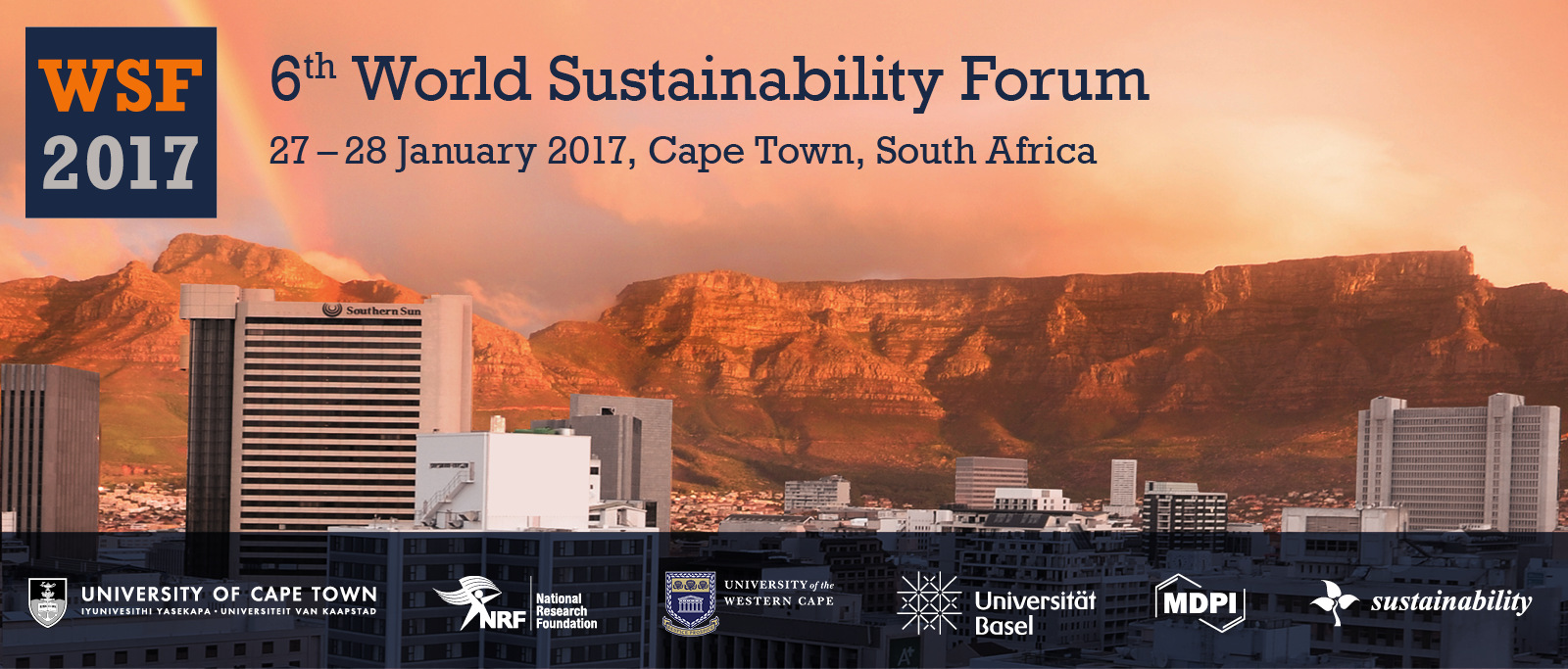
31 January 2017
Three New Institutional Memberships Established
We are pleased to announce that the Chalmers University of Technology, Sweden, the University of Manitoba, Canada and the Technical University of Cartagena, Spain, have joined MDPI's institutional membership program: Primary authors from these institutions will benefit from a 10% discount on the article processing charges.
Additional details can be found on our institutional membership page.
27 January 2017
6th World Sustainability Forum under way in South Africa
The 6th World Sustainability Forum is currently being held at the Cape Sun Hotel until 28 January 2017.
The Forum will showcase the work of internationally renowned researchers and include more than 150 presentations. During the conference dinner, the World Sustainability Award, associated with a US$ 100,000 prize, will be announced, as well as the Emerging Sustainability Leader Award, associated with a US$ 10,000 prize. The prizes are sponsored by the MDPI Sustainability Foundation and Sustainability, an academic open access journal by MDPI.
Here are some pictures from the forum so far:
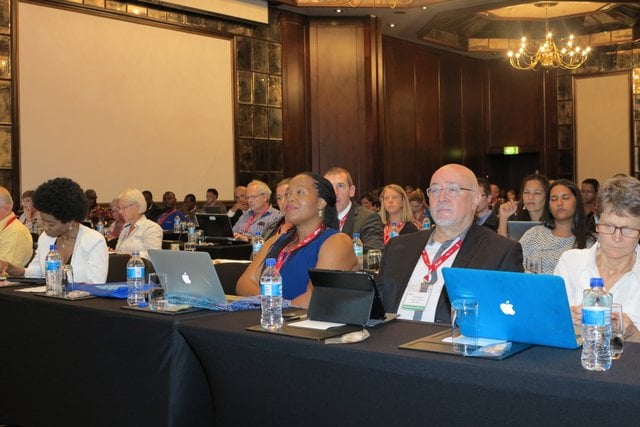
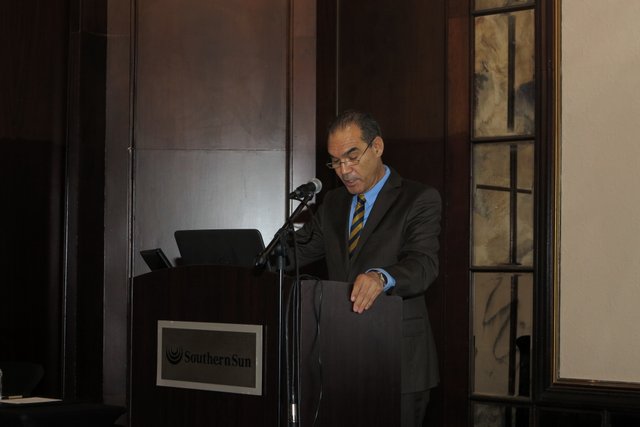
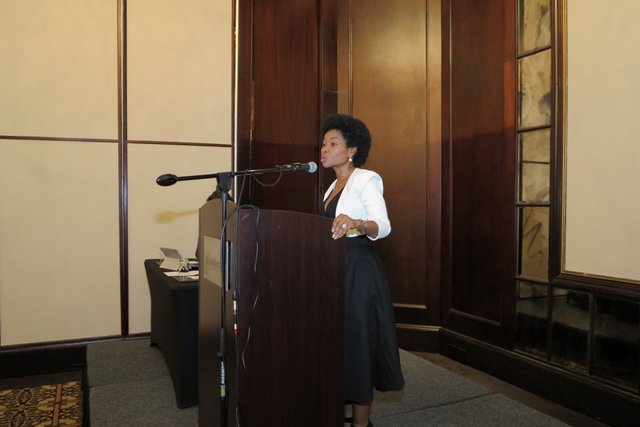
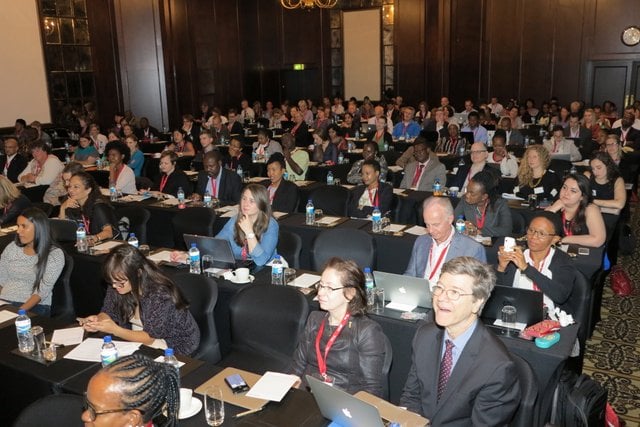
To see the full WSF2017 program and schedule, please see here: https://sciforum.net/conference/wsf-6/page/schedule
19 January 2017
Cape Town to Host the 6th World Sustainability Forum
Cape Town will host the 6th World Sustainability Forum at the Cape Sun Hotel on 27 and 28 January 2017. This prominent event, held for the first time in Africa, will include many illustrious South African and international experts, such as Her Excellency Graça Machel (Sustainable Development Advocate for the United Nations, Mozambique), Joyene Isaacs (HoD Agriculture Western Cape Government), Jeffrey Sachs (Columbia University, USA), Max Bergman (SRaM, University of Basel), Mark New (Pro Vice-Chancellor, University of Cape Town), Frans Swanepoel (FutureAfrica, University of Pretoria) and Francis Petersen (Vice-Chancellor-designate, University of the Free State). The Forum will provide a stage for national and international debates on sustainability in South Africa, the African continent, and about international perspectives on sustainability. It brings together researchers and representatives from government and the business sector to discuss a wide-ranging set of issues associated with sustainability, including food security, water and energy scarcity, mining, poverty reduction, climate change, and urbanisation.
The next few decades will be marked by profound changes in the relationships between global economics, national societies, and the environment. We have entered what some call the Anthropocene, an age in which human activity dominates the climate and the environment. These changes will have numerous consequences on societies around the globe. South Africa and Africa will play a central role, for better or worse, in creating opportunities and risks during these changing times as Africa is profoundly influencing and being influenced by global developments.
The adoption of the 17 United Nations Sustainable Development Goals and the 2030 Agenda for Sustainable Development in September 2015 was accompanied by what insiders considered an optimism they have not experienced in relation to UN resolutions before. The relative efficiency in the drafting, the lack of trenches between East and West, or between North and South, and the unanimity of support of the 193 countries speak volumes. In stark contrast, sustainability seems to go against a changing economic and political tide, where waves of nationalism and protectionism from some of the most powerful countries risk the wellbeing of the rest of the world. The 6th World Sustainability Forum will enable fruitful exchanges, which sensitise South African and international communities to the global urgency and specifics of sustainability.
The Forum will showcase the work of internationally renowned researchers and include more than 150 presentations. During the conference dinner, the World Sustainability Award, associated with a US$ 100 000 prize, will be announced, as well as the Emerging Sustainability Leader Award, associated with a US$ 10 000 prize. The prizes are sponsored by the MDPI Sustainability Foundation and Sustainability, an academic open access journal by MDPI. The World Sustainability Forum is preceded by the Postgraduate Forum on Sustainability, which will introduce more than 100 young scholars from South Africa and the African continent to sustainability research. Both events are organized and sponsored by the University of Cape Town, the University of the Western Cape, the University of Basel, MDPI, and by the National Research Foundation of South Africa.
Contacts:
Scientific Matters: Prof Manfred Max Bergman, Social Research and Methodology Group (SRaM), University of Basel, Switzerland; Email: [email protected]
Press Accreditation and General Enquiries: Mr Matthias Burkhalter, MDPI AG, Basel, Switzerland; Email: [email protected]; Tel. +41 61 683 77 34
Follow us on Twitter
#WSF2017SA
6 January 2017
MDPI Supports the OA2020 Initiative
MDPI is now a proud supporter of the OA2020 Initiative.
Open Access 2020 is an international initiative that aims to induce the swift, smooth and scholarly-oriented transformation of today’s scholarly journals from subscription to open access publishing.
MDPI is participating in the upcoming Berlin13 conference in March 2017, where we are contributing to the initiative by aiding in the design of the roadmap which will make OA the default publishing model.
For more information please see here.
5 January 2017
Three New Institutional Memberships Established
We are pleased to announce that the University of Texas at Arlington, USA, the Harbin Institute of Technology, China and TU Darmstadt, Germany, have joined MDPI's institutional membership program: Primary authors from these institutions will benefit from a 10% discount on the article processing charges.
Additional details can be found on our institutional membership page.
22 December 2016
Two New Institutional Memberships Established
We are pleased to announce that the Otto-von-Guericke-Universität Magdeburg, Germany and the University of California, Berkeley, USA, have joined MDPI's institutional membership program: Primary authors from these instititions will benefit from a 10% discount on the article processing charges.
Additional details can be found on our institutional membership page.
19 December 2016
MDPI and Wellcome Trust Compliance
The Wellcome Trust has, for a number of years, required that the results of its funded projects are published in open access format. Recently it announced criteria that publishers must fulfil for publication fees to be paid by the Trust. MDPI is pleased to have been added to the list of compliant publishers.
Only publishers who have confirmed their compliance by 16 December 2016 will be eligible to receive payment of APCs by the Wellcome Trust as of 1 April 2017. For more information on the criteria and a full list of publishers that meet them, see here.
13 December 2016
Meet MDPI at the 2016 AGU Fall Meeting
 MDPI is currently attending the 2016 AGU Fall Meeting (12–16 December, 2016)
MDPI is currently attending the 2016 AGU Fall Meeting (12–16 December, 2016)
If you are also attending the conference, please feel free to stop by our booth (Booth #1147) and meet the representative editors.
Conference details:
2016 AGU Fall Meeting
12–16 December 2016
Moscone Center
747 Howard St
San Francisco, CA 94103, USA
8 December 2016
Three New Institutional Memberships Established
We are pleased to announce that Purdue University, USA, the Universitat Politécnica de Valencia, Spain and the Queensland University of Technology, Australia, have joined MDPI's institutional membership program: Primary authors from these instititions will benefit from a 10% discount on the article processing charges.
Additional details can be found on our institutional membership page.
16 November 2016
World Sustainability Award - Final Extension
The deadline for the World Sustainability Award has been extended for one last time! You now have one more month to nominate an individual researcher, group or project! The final deadline for nominations will be December 15, 2016.
For full details, please visit here.
11 November 2016
Three New Institutional Memberships Established
We are pleased to announce that the University of Minnesota, USA, the Universidad Politécnica de Madrid, Spain and Shanghai Jiao Tong University, China, have joined MDPI's institutional membership program: Primary authors from these instititions will benefit from a 10% discount on the article processing charges.
Additional details can be found on our institutional membership page.
4 November 2016
MDPI Joins the United Nations Global Compact
MDPI has become a member of the United Nations Global Compact to support corporate sustainability and have committed ourselves to the ten principles associated with the Compact.
Sustainability has always been at the core of MDPI’s values, starting with the collection and preservation of rare chemical samples that started in 1996 and led to the first journal, Molecules. Sustainability has become one of our flagship journals and we have supported and organized several conferences and events based on Sustainability, including the upcoming 6th World Sustainability Forum. As a global enterprise, we see it as our duty to promote responsible practices that will ensure a bright future for our planet. Given this, the choice to join the Global Compact was an easy one and we will do our utmost to fully implement it.
3 November 2016
MDPI Now a Member of SPARC Europe
We are delighted to announce that MDPI has become a member of SPARC Europe, an organization that works for open scholarship in Europe, including support of open access publication.
As one of the few publishers to join SPARC Europe to date, MDPI looks forward to making a contribution that puts open scholarship on a positive and sustainable path. We fully support the goals of open scholarship that allow the largest number of people possible to benefit from work of researchers in all disciplines. We hope that our membership will enable us to work with other stakeholders to find the best possible solution.
2 November 2016
World Sustainability Award Deadline Extension
The deadline for the World Sustainability Award has been extended! You now have until November 15, 2016 to nominate an individual researcher, group or project!
For full details, please visit here.
26 October 2016
Four New Institutional Memberships Established
We are pleased to announce that the Wuppertal Institut, Germany, the University of Girona, Spain and Central South University and Huazhong University of Science and Technology, China, have joined MDPI's institutional membership program: Primary authors from these instititions will benefit from a 10% discount on the article processing charges.
Additional details can be found on our institutional membership page.
24 October 2016
International Open Access Week 2016
Meet us during International Open Access Week 2016! We will be presenting at various locations in Europe and China.
To get involved and for full details see the complete list of events organised by MDPI here.
18 October 2016
Institutional Membership established with Universitat Pompeu Fabra, Spain and Aalto University, Finland
We are pleased to announce that the Universitat Pompeu Fabra, Spain and Aalto University, Finland, have joined MDPI's institutional membership program: Primary authors from these universities will benefit from a 10% discount on the article processing charges.
Additional details can be found on our institutional membership page.
12 October 2016
Institutional Membership Established with Iowa State University and the University of North Texas, USA
We are pleased to announce that the Iowa State University and the University of North Texas, USA, have joined MDPI's institutional membership program: Primary authors from these universities will benefit from a 10% discount on the article processing charges.
Additional details can be found on our institutional membership page.
7 October 2016
MDPI at Open Access Days in Munich, 10-11 October 2016
Meet MDPI during the Open Access Days held from 10-11 October 2016 at Ludwig Maximilian University of Munich, Germany.
The two-day event will feature experts from the open access sector, scientists from all disciplines, publishing representatives and supporters of scientific research and communication from libraries as well as research institutes and funding institutions. Join us!
For more information about the event and to see the program, visit the event webpage.
7 October 2016
Institutional Membership Established with the University of Sevilla and the University of Alicante, Spain
We are pleased to announce that the University of Sevilla and the University of Alicante, Spain have joined MDPI's institutional membership program: Primary authors from these universities will benefit from a 10% discount on the article processing charges.
Additional details can be found on our institutional membership page.
29 September 2016
Institutional Membership Established with the University of Delaware
We are pleased to announce that the University of Delaware, USA, has joined MDPI's institutional membership program: Primary authors from this university will benefit from a 10% discount on the article processing charges.
Additional details can be found on our institutional membership page.
19 September 2016
Peer Review Week 2016
As an open access publisher indebted to the work of our peer reviewers, we are proud to support Peer Review Week 2016. As part of the week's activities and to celebrate this year's theme "Recognition for Review", MDPI will host two webinars that anyone can join.
These webinars will explore the role and value of reviewers and the recognition they receive from a publishers perspective, with examples from MDPI's experience in publishing nearly 80,000 peer reviewed papers, along with evidence from reviewer surveys. It will also touch upon potential changes in how review is carried out and tips for early career researchers who want to be involved in the review process.
Details and links to join can be found below:
Wednesday September 21, 08:00 (CEST)
Friday September 23, 16:00 (CEST)
For more information about all the activites taking place, please visit the Peer Review Week website.
6 September 2016
Institutional Membership established with Kansas State University and Northwestern University, USA
We are pleased to announce that Kansas State University and Northwestern Universty, USE, have joined MDPI's institutional membership program: Primary authors from these universities will benefit from a 10% discount on the article processing charges.
Additional details can be found on our institutional membership page.
5 September 2016
Institutional Membership Established with University College Cork
We are pleased to announce that University College Cork, Ireland, has joined MDPI's institutional membership program: Primary authors from this university will benefit from a 10% discount on the article processing charges.
Additional details can be found on our institutional membership page.
22 August 2016
MDPI New Office Location
We are pleased to announce that MDPI has now moved to a new permanent address:
MDPI AG
St. Alban Anlage 66
CH-4052 Basel
Postfach, CH-4020 Basel
Switzerland
Telephone and fax numbers remain unchanged.
10 August 2016
Institutional Membership established with the University of Texas at Austin, USA, the Wroclaw University of Science and Technology, Poland and the University of Granada and the Compultense University of Madrid, Spain
We are pleased to announce that the following institutions have joined MDPI's institutional membership program in August 2016:
- University of Texas at Austin, USA
- Wroclaw University of Science and Technology, Poland
- University of Granada, Spain
- Compultense University of Madrid, Spain
Authors affiliated with these institutions will benefit from a 10% discount on the article processing charges.
Additional details can be found on our institutional membership page.
18 July 2016
Institutional Membership established with Louisiana State University and Florida State University, USA, Royal College of Surgeons, Ireland, University of Rostock, Germany, AGH University of Science and Technology, Poland and Southeast University, China
We are pleased to announce that the following institutions have joined MDPI's institutional membership program in July 2016:
- Louisiana State University, USA
- Florida State University, USA
- Royal College of Surgeons, Ireland
- University of Rostock, Germany
- AGH University of Science and Technology, Poland
- Southeast University, China
Authors affiliated with these institutions will benefit from a 10% discount on the article processing charges.
Additional details can be found on our institutional membership page.
12 July 2016
MDPI Moving to New Office Location in Basel (Switzerland) in August 2016
As of 20 August 2016, MDPI's new address in Basel will be:
MDPI AG
St. Alban-Anlage 66
CH-4052 Basel
Switzerland
Telephone and fax numbers remain unchanged.
St. Alban-Anlage 66 was built from 1947 to 1948 and initially the home of the "Bühler AG", a book printing business.




For more information about this building, see: https://www.mdpi.com/about/headquarters
21 June 2016
"Behind the Scenes of Academic Publishing—A Publisher's Perspective" - MDPI's Lecture at the University of Basel
From the 15-16 September, 2016, MDPI will run a course on Academic Publishing at the University of Basel.
In this two day workshop, MDPI will look in detail at the role performed by academic journal publishers and how they interact with academics. Ethical dimensions, what happens when problems occur and how the publisher coordinates all aspects of the submission process will also be covered.
For more detailed information about the program, trainers and registration please visit the course webpage.
14 June 2016
2015 Impact Factors Released
We are pleased to report the 2015 Journal Impact Factors in the latest Journal Citation Reports® Science Edition, published by Thomson Reuters in June 2016. Twenty out of 25 journals have seen an increase in their Impact Factor and two journals (Crystals and IJGI) received a first Impact Factor. Coatings was recently added to SCIE and will receive its first Impact Factor in next year’s JCR.
Updated Impact Factors for Journals in the Science Citation Index Expanded (SCIE)
| Journal | 2015 Impact Factor | Details | Category Rank |
| Applied Sciences | 1.726 | Link | 83/163 (Q3) in ‘Chemistry, Multidisciplinary’; 129/271 (Q2) in ‘Materials Science, Multidisciplinary’; 64/145 (Q2) in ‘Physics, Applied’ |
| Atmosphere | 1.221 | Link | 66/84 (Q4) in ‘Meteorology & Atmospheric Sciences’ |
| Catalysts | 2.964 | Link | 53/144 (Q2) in ‘Chemistry, Physical’ |
| Energies | 2.077 | Link | 43/88 (Q2) in ‘Energy & Fuels’ |
| Entropy | 1.743 | Link | 25/79 (Q2) in ‘Physics, Multidisciplinary’ |
| Forests | 1.583 | Link | 19/66 (Q2) in ‘Forestry’ |
| Genes | 3.242 | Link | 60/165 (Q2) in ‘Genetics & Heredity’ |
| International Journal of Environmental Research and Public Health (IJERPH) | 2.035 | Link | 101/225 (Q2) in ‘Environmental Sciences’ |
| International Journal of Molecular Sciences (IJMS) | 3.257 | Link | 110/289 (Q2) in ‘Biochemistry & Molecular Biology’; 51/163 (Q2) in ‘Chemistry, Multidisciplinary’ |
| Marine Drugs | 3.345 | Link | 13/59 (Q1) in ‘Chemistry, Medicinal’ |
| Materials | 2.728 | Link | 63/271 (Q1) in ‘Materials Science, Multidisciplinary’ |
| Metals | 1.574 | Link | 18/73 (Q1) in ‘Metallurgy & Metallurgical Engineering’; 145/271 (Q3) in ‘Materials Science, Multidisciplinary’ |
| Micromachines | 1.295 | Link | 30/56 (Q3) in ‘Instruments & Instrumentation’ 63/83 (Q4) in ‘Nanoscience & Nanotechnology’ |
| Minerals | 1.468 | Link | 9/21 (Q2) in ‘Mining & Mineral Processing; 14/29 (Q2) in ‘Mineralogy’ |
| Molecules | 2.465 | Link | 24/59 (Q2) in ‘Chemistry, Organic’ |
| Nanomaterials | 2.690 | Link | 64/271 (Q1) in ‘Materials Science, Multidisciplinary’; 36/83 (Q2) in ‘Nanoscience & Nanotechnology’ |
| Nutrients | 3.759 | Link | 16/78 (Q1) in ‘Nutrition & Dietetics’ |
| Polymers | 2.944 | Link | 20/85 (Q1) in ‘Polymer Science’ |
| Remote Sensing | 3.036 | Link | 5/28 (Q1) in ‘Remote Sensing’ |
| Sensors | 2.033 | Link | 36/75 (Q2) in ‘Chemistry, Analytical’; 16/27 (Q3) in ‘Electrochemistry’; 12/56 (Q1) in ‘Instruments & Instrumentation’ |
| Sustainability | 1.343 | Link | 146/225 (Q3) in ‘Environmental Sciences’; 22/29 (Q4) in ‘Green & Sustainable Science & Technology’ |
| Symmetry | 0.841 | Link | 31/63 (Q2) in ‘Multidisciplinary Sciences’ |
| Toxins | 3.571 | Link | 16/89 (Q1) in ‘Toxicology’ |
| Viruses | 3.042 | Link | 14/33 (Q2) in ‘Virology’ |
| Water | 1.687 | Link | 33/85 (Q2) in ‘Water Resources’ |
Journals with First Impact Factors
| Journal | 2015 Impact Factor | Details | Category Rank |
| Crystals | 2.075 | Link | 13/26 (Q2) in ‘Crystallography’ |
| ISPRS International Journal of Geo-Information | 0.651 | Link | 45/49 (Q4) in ‘Geography, Physical’; 26/28 (Q4) in ‘Remote Sensing’. |
8 June 2016
Bioengineering, Biomedicines, Children, Magnetochemistry and Resources added to the Emerging Sources Citation Index in Web of Science
We are pleased to announce that the journals Bioengineering, Biomedicines, Children, Magnetochemistry and Resources have been accepted for inclusion in the Emerging Sources Citation Index (ESCI) in Web of Science.
The ESCI serves to highlight promising journals which are still under consideration for the Science Citation Index Expanded (SCIE) or the Social Sciences Citation Index (SSCI).
The Emerging Sources Citation Index (ESCI), Science Citation Index Expanded (SCIE), Social Sciences Citation Index (SSCI), and Web of Science™ (WoS) are Thomson Reuters products.





26 May 2016
Institutional Membership established with University of Bremen, Germany, Koç University, Turkey, IIASA, Austria and Jilin University and Kunming Institute of Botany, CAS, China
We are pleased to announce that the following institutions have joined MDPI's institutional membership program in May 2016:
- Unversity of Bremen, Germany
- Koç University, Turkey
- International Institute for Applied Systems Analysis (IIASA), Austria
- Jilin University, China
- Kunming Institute of Botany, Chinese Academy of Sciences, China
Authors affiliated with these institutions will benefit from a 10% discount on the article processing charges.
Additional details can be found on our institutional membership page.
23 May 2016
Institutional Membership Established with the KTH Royal Institute of Technology, Sweden and the South China University of Technology, Beijing University of Technology and Southern Medical University, China
We are pleased to announce that the following institutions have joined MDPI's institutional membership program in April and May 2016:
- KTH Royal Institute of Technology, Sweden
- South China University of Technology, China
- Beijing University of Technology, China
- Southern Medical University, China
Authors affiliated with these institutions will benefit from a 10% discount on the article processing charges.
Additional details can be found on our institutional membership page.
26 April 2016
New Section on www.mdpi.com - Latest Books
You may have noticed a new section that is now visible on our home page. This section is called "Latest Books" and showcases recent publications from MDPI Books, our book publishing service.
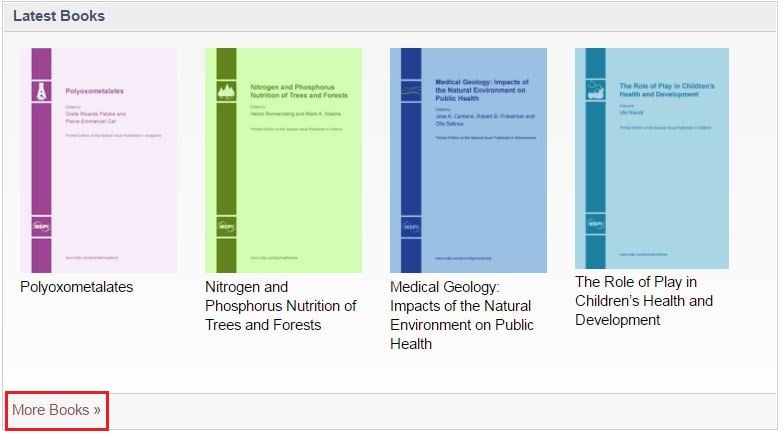
By clicking on the hyperlink "More Books" you will be taken to the MDPI Books Home Page. There you will find more information about the service, as well as the "Recent Publications" list.
Clicking on any of the book images in this list will take you to detailed information about that book (shown below). Here you can also download a PDF version of the book, or order a hardcover printed copy.
For further information about the MDPI Books service, please visit the webpage or contact [email protected].
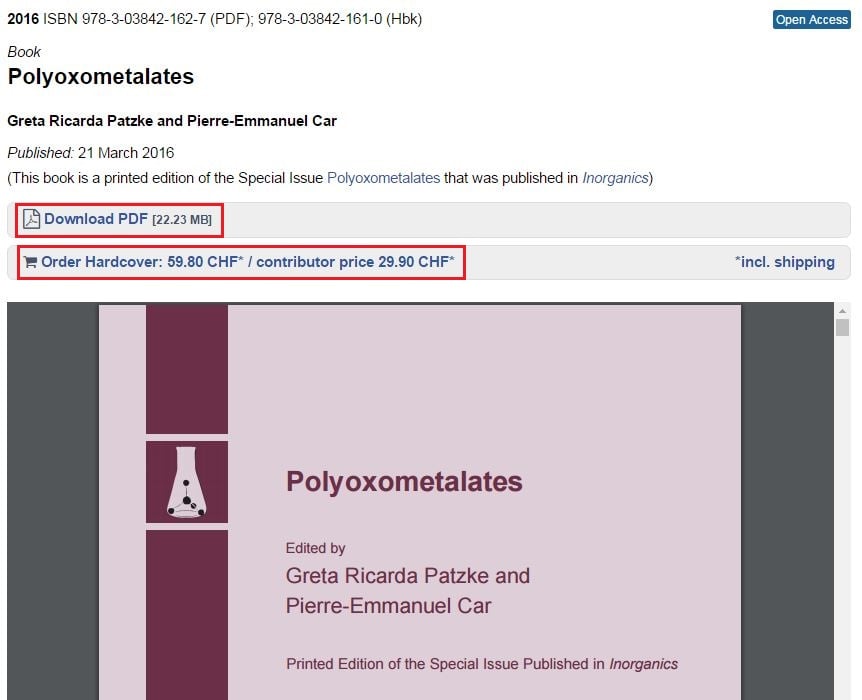
31 March 2016
Axioms, Behavioral Sciences, Photonics, Separations and Toxics added to the Emerging Sources Citation Index in Web of Science
We are pleased to announce that the journals Axioms, Behavioral Sciences, Photonics, Separations and Toxics were recently accepted for inclusion in the newly launched Emerging Sources Citation Index (ESCI) in Web of Science.
ESCI serves to highlight promising journals which are still under consideration for the Science Citation Index Expanded (SCIE) or the Social Sciences Citation Index (SSCI).
The Emerging Sources Citation Index (ESCI), Science Citation Index Expanded (SCIE), Social Sciences Citation Index
(SSCI), and Web of Science™ (WoS) are Thomson Reuters products.
30 March 2016
Institutional Membership established with the University of Winchester, UK, Silesian University of Technology, Poland and Beijing Jiaotong University and Zhejiang University, China
We are pleased to announce that the University of Winchester, UK, the Silesian University of Technology, Poland and Beijing Jiaotong University and Zhejiang University, China, have joined our Institutional Membership program. Primary authors from these universities will benefit from a 10% discount on article processing charges.
Additional details can be found on our institutional membership page.
24 March 2016
New Editorial Office in Barcelona, Spain
We are excited to announce the opening of our new editorial office in Barcelona, Spain. The launch team is led by a Senior Editor and comprises further staff holding doctoral degrees with several years of research experience. The new editorial team will help us to get closer to European research communities and progress Sciforum, the platform to support the scientific community via conference hosting and other functions. They will also help spread the word about Open Access and meet academics at scientific events.
We are in the process of hiring more doctoral and masters graduates to join the editorial team and welcome applications via [email protected]. For contact details about the office, see our contact page.

22 February 2016
Membership Established with the Max Planck Society
We are pleased to announce that the Max Planck Digital Library (MPDL) has signed an agreement with MDPI to support authors associated with the Max Planck Society (Max-Planck-Gesellschaft). As of 22 February 2016, corresponding authors will receive full funding from the MPDL for articles published in MDPI journals, with a 10% discount applied to the Article Processing Charges. Additional details can be found at our institutional membership page.
Founded in 1948, The Max Planck Society is one of Germany’s leading research organizations, and is currently made up of 83 institutes conducting basic research in natural sciences, life sciences, social sciences and humanities. 18 Nobel laureates have emerged from its ranks of scientists and the society has more than 15,000 publications in scientific journals each year.
5 February 2016
Institutional Membership Extension: Wageningen University, CSIC, University of Zürich, ETH Zürich, University of Tübingen and Osnabrück University
We are pleased to announce that Wageningen University, the Netherlands, the Spanish National Research Council (CSIC), Spain, the University of Zürich and ETH Zürich, Switzerland, and the University of Tübingen and Osnabrück University, Germany, have not only renewed their institutional memberships with MDPI after two years of successful cooperation, but have also increased the reduction of the article processing charges (APCs) for affiliated authors to 25%.
Additional details can be found on our institutional membership page.
5 February 2016
Institutional Membership established with Brock University, Canada and the University of Pisa, Italy
We are pleased to announce that Brock University, Cananda, and the University of Pisa, Italy, have joined MDPI's institutional membership program: Primary authors from these universities will benefit from a 10% discount on the article processing charges as of 01 February 2016.
Additional details can be found on our institutional membership page.
25 January 2016
MDPI Sponsors diss:kurs with the University of Basel
MDPI is pleased to announce its newly established sponsorship of diss:kurs, an event coordinated by the University of Basel to support their doctorate program. For more information about the event and how to register, please visit the diss:kurs webpage.
7 January 2016
New Institutional Memberships Established with Tsinghua University, the Chinese Society of Micro-Nano Technology, Ruhr University Bochum and the University of Ulm
We are pleased to announce that the following institutions have joined MDPI's institutional membership program as of 1 January 2016:
- Tsinghua University, China
- Chinese Society of Micro-Nano Technology (CSMNT)
- Ruhr University Bochum, Germany
- University of Ulm, Germany
Authors affiliated with these institutions will benefit from a 10% discount on the article processing charges.
Additional details can be found on our institutional membership page.
5 January 2016
Safety, Fermentation, C-Journal of Carbon Research, Magnetochemistry, Batteries and Horticulturae Released Their First Issue in December 2015
We are pleased to announce that MDPI's open access journals Safety, Journal of Imaging, Fermentation, C-Journal of Carbon Research, Magnetochemistry, Batteries and Horticulturae released their first issue at the end of December 2015.
17 December 2015
Institutional Membership Extension: University of Bern, Switzerland
We are pleased to announce that the University of Bern, Switzerland has not only renewed their institutional membership with MDPI after two years of successful cooperation, but also increased the reduction of the article processing charges (APCs) for affiliated authors to 25%.
17 December 2015
Institutional Membership with the University of Ulm and Helmholtz Zentrum Munich
We are pleased to announce that University of Ulm, Germany and Helmholtz Zentrum Munich, Germany has joined MDPI's institutional membership program:
Primary authors from the University of Ulm and Helmholtz Zentrum Munich will benefit from a 10% discount on the article processing charges as of 1 January 2016. Additional details can be found on our institutional membership page.
9 December 2015
Membership Established with the Virginia Polytechnic Institute and State University (Virginia Tech)
We are pleased to announce that Virginia Tech has joined MDPI's institutional membership program. Authors from Virginia Tech will benefit from a 10% discount on the article processing charges as of 1 December 2015. Additional details can be found on our institutional membership page.
1 December 2015
Membership Established with the Technical University of Denmark and the University of North Florida
We are pleased to announce that the following universities have joined MDPI's institutional membership program:
- Technical University of Denmark (as of 1 November 2015)
- University of North Florida, USA (as of 15 November 2015)
Primary authors from the Technical University of Denmark and the University of North Florida will benefit from a 10% discount on the article processing charges.
Additional details can be found on our institutional membership page.
2 October 2015
Membership Established with the University of Freiburg and the University of Regensburg
We are pleased to announce that the following universities have joined MDPI's institutional membership program:
University of Freiburg, Germany
University of Regensburg, Germany
Primary authors from the University of Freiburg and the University of Regensburg will benefit from a 10% discount on the article processing charges as of 1 October 2015 and 1 November 2015.
Additional details can be found on our institutional membership page.





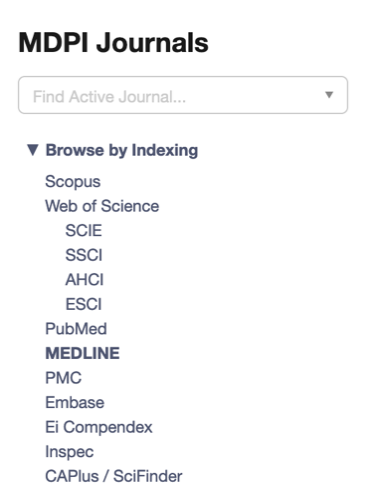










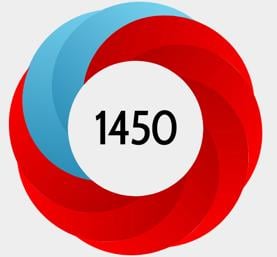


















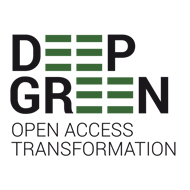


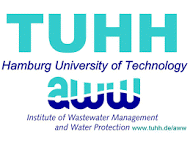




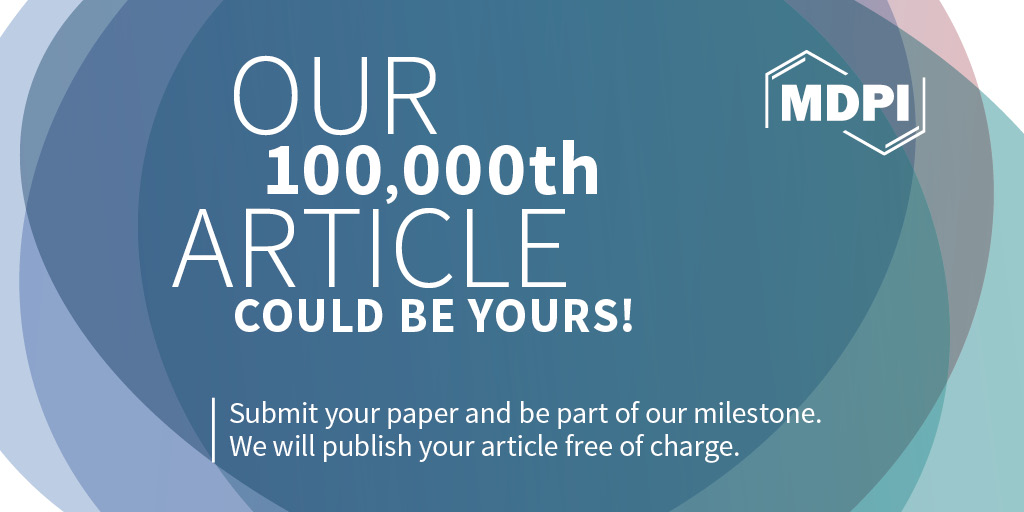




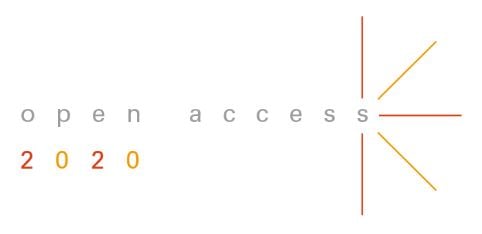



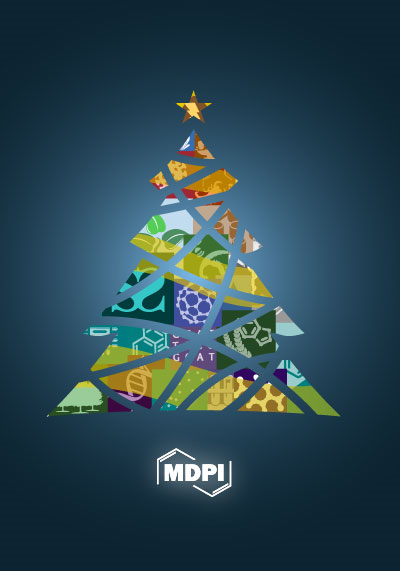





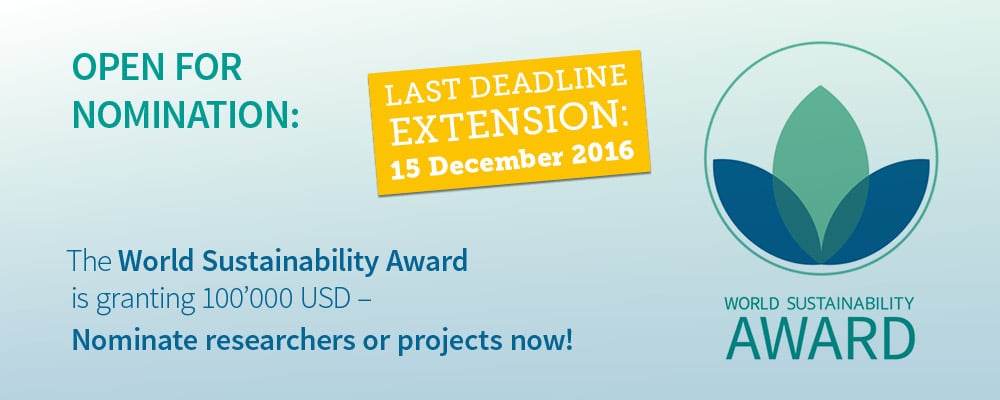



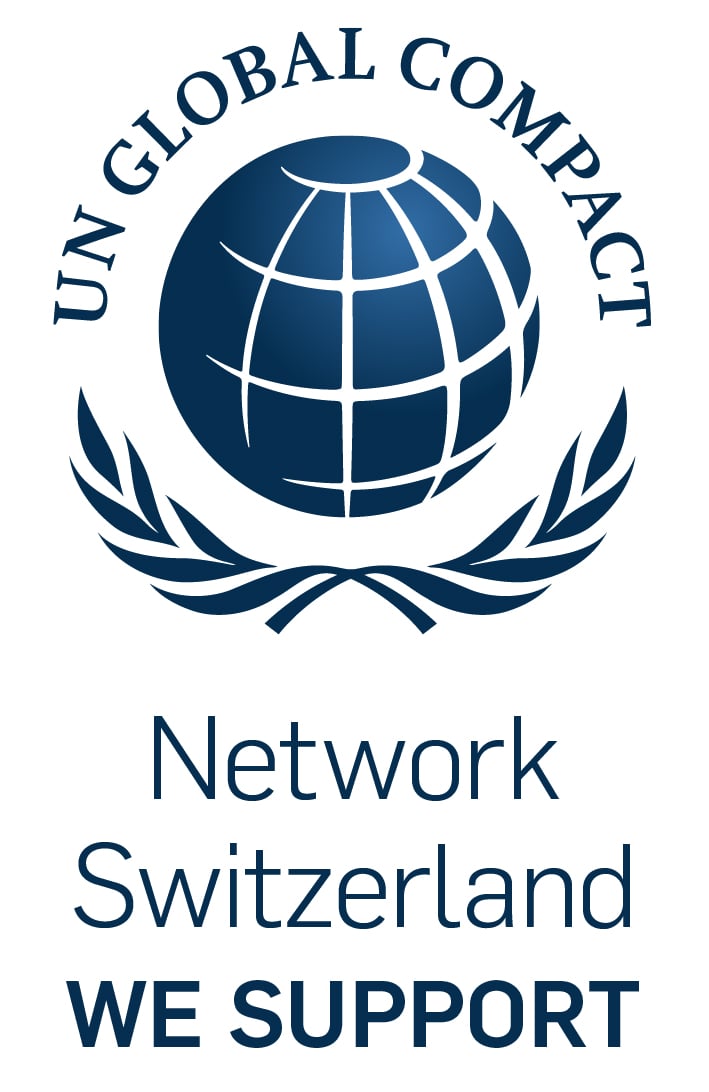
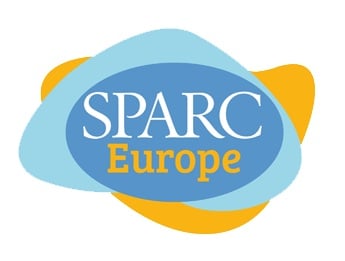
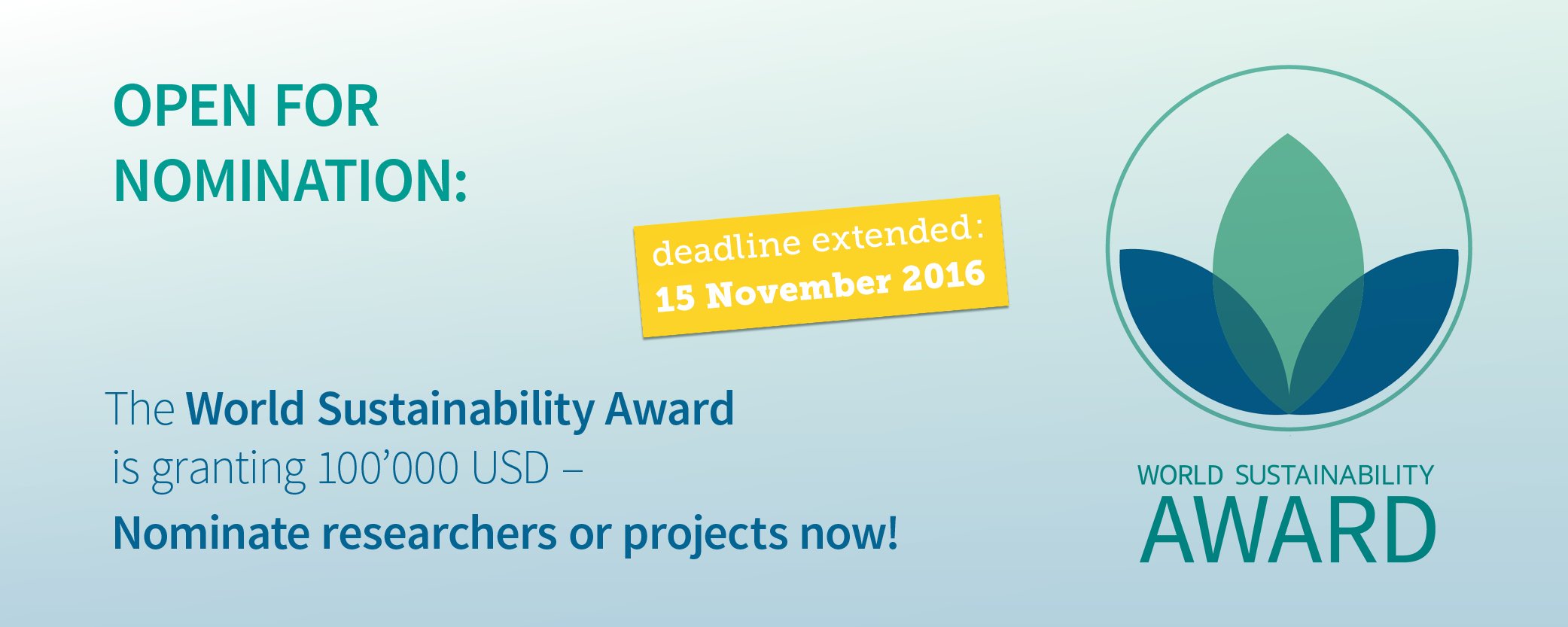 .
.




